|
|
|
|
#161 |
|
Senior Member
|
Meeting of the Supreme Eurasian Economic Council
Vladimir Putin took part in a meeting of the Supreme Eurasian Economic Council, held via videoconference. December 11, 2020 - 13:45 - Novo-Ogaryovo, Moscow Region 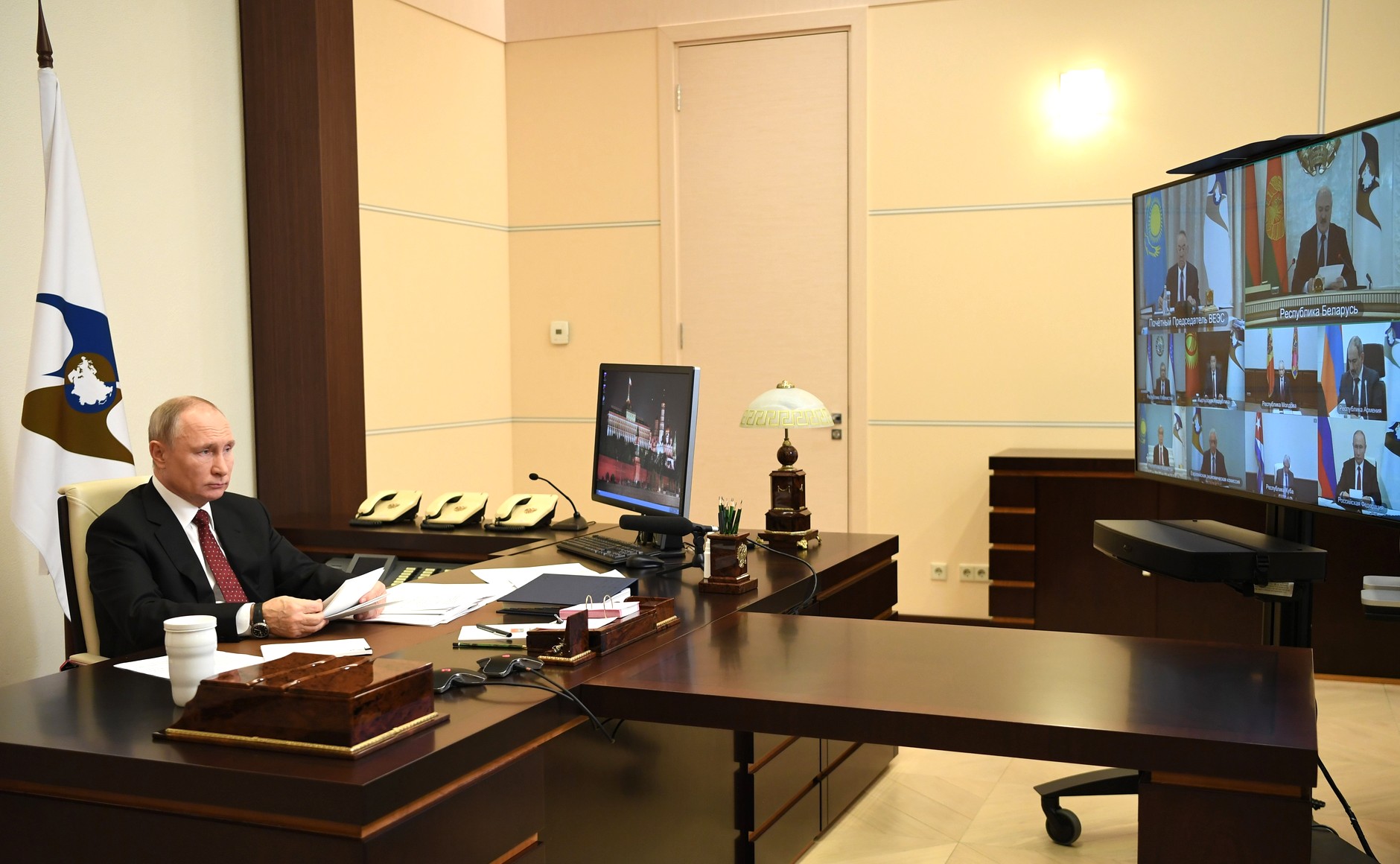 The meeting was also attended by President of Belarus Alexander Lukashenko, Prime Minister of Armenia Nikol Pashinyan, President of Kazakhstan Kassym-Jomart Tokayev, Acting President of Kyrgyzstan Talant Mamytov, President of Moldova Igor Dodon (head of EAEU observer state), President of Uzbekistan Shavkat Mirziyoyev (head of EAEU candidate state), President of Cuba Miguel Diaz-Canel Bermudez (head of EAEU candidate state), Honorary Chairman of the Supreme Eurasian Economic Council Nursultsn Nazarbayev, and Chairman of the Eurasian Economic Commission Board Mikhail Myasnikovich. The Republic of Belarus holds the chairmanship of the Eurasian Economic Union this year, and the Republic of Kazakhstan will take over the EAEU chairmanship in 2021. A package of documents was adopted at the meeting, in particular, an agreement on the exchange of information on combatting the legalisation of proceeds from crime (money laundering) and financing of terrorism by transferring cash and (or) monetary instruments via the customs border of the Eurasian Economic Union (EAEU). It was also decided to grant the Republic of Cuba and the Republic of Uzbekistan observer status at the EAEU. Other documents include decisions on the strategic areas of Eurasian economic integration through to 2025, the main directions of the EAEU international activities in 2021, and the approaches to the development of trade and economic cooperation with its main partners in the mid-term perspective. In addition, a decision was made to establish a free trade zone between the EAEU member states, on the one hand and the Islamic Republic of Iran, on the other, as well as a decision on the entry into force of an agreement on a free trade zone between the EAEU member states and the Republic of Serbia from October 25, 2019.  President of Russia Vladimir Putin: Mr Lukashenko, friends, First of all, I would like to join the words of gratitude that have been addressed today to the Belarusian leadership for their chairmanship of the Eurasian Economic Union in 2020. Although we have been working in a challenging situation created by the coronavirus pandemic, we have nevertheless achieved a great deal, and integration processes continued to develop successfully within the EAEU framework. Proof of this is a large package of decisions and agreements prepared for approval at today’s meeting of the Supreme Eurasian Economic Council. I have no doubt that their implementation will contribute to the further deepening of interaction in trade, investment, the economy as a whole, finance, industry, energy and all other spheres. It has been pointed out that the five member states rapidly developed effective interaction in the fight against the coronavirus infection, and that the joint action plan, which was adopted in July to strengthen the EAEU countries’ healthcare systems and stop the spread of the infection, is being implemented in full. Russia has supplied its EAEU partners with kits for over 900,000 COVID-19 tests and continues to supply them with medications, PPE and medical consumables. It is very important, as you are all aware, that Russian professionals are in constant contact with their colleagues in the five member states, holding consultations and sharing their experience with them. Teams of Russian epidemiologists and mobile laboratories have been sent to the hardest-hit regions of EAEU countries. We are now analysing the possibility of delivering the Russian Sputnik V vaccine to EAEU countries. Incidentally, a second Russian vaccine, EpiVacCorona, has completed registration, and a third vaccine is in the final stage of trials. Of course, we are interested in the five EAEU states taking part in the study and clinical trials of the Russian vaccine and in organising joint production. Regrettably, the coronavirus pandemic has had a negative impact on our countries’ economies and social spheres. We have noted a decline in gross domestic product (GDP) and industrial production. This is also affecting levels of employment and unemployment. Therefore, all of us, all EAEU countries, in addition to taking care of our people’s health and lives, must also address other priorities, such as preventing the current economic downturn from becoming a drawn-out and long-term problem. This calls for closing our ranks even more and redoubling efforts to improve the situation, address economic recovery and development matters, and advance on the path of integration development more energetically. We support the draft strategic guidelines for the development of Eurasian economic integration until 2025, which the governments of the five member states prepared to complete the development of a common EAEU market of goods, services, capital and workforce, as well as a common digital space. This is aimed at stimulating our countries’ economic growth and, ultimately, at increasing the well-being and quality of life for our people, which is essentially our main goal. I would like to single out digitisation cooperation among the EAEU member states. This year, all of us saw for ourselves that it is highly important to use advanced information technology, given the current situation. They largely made it possible for government agencies and virtually all industries, education and healthcare to operate normally. I would like to note that Russia was among the proponents of expanding cooperation in this area. We are satisfied to note that the Union’s digital agenda, passed at the 2017 summit of the Supreme Eurasian Economic Council in Sochi, is being consistently implemented. The agenda calls on the five member states to conduct a coordinated policy in the area of Internet-based economic development, formulating common e-commerce regulations and common information exchange and protection standards. The EAEU is already implementing major digital projects in the area of transport, industry and labour market. The Eurasian Development Bank promotes digital initiatives. The Bank has instituted a special Fund for financing new promising projects in information integration. Russia has suggested one such project stipulating the creation of a mobile app that makes it possible to considerably simplify administrative formalities during movement between the Union’s countries. Electronic technologies also help protect our common market, and therefore consumers, from pirated goods. We aim to reduce illegal sales and purchases, to improve the competitive environment for businesses, for our enterprises. The Union’s digital mechanisms for labelling goods, whose use was also initiated by Russia, help oversee the movement of goods all over the Union. It would be useful to expand the scope of the agreement on labelling goods. Digital systems for labelling tobacco products, some pharmaceuticals, perfumes, footwear, photo equipment and tires will be introduced before the end of the year. From January 1, 2021, there are plans to start labelling light industry products and later, certain types of dairy products. 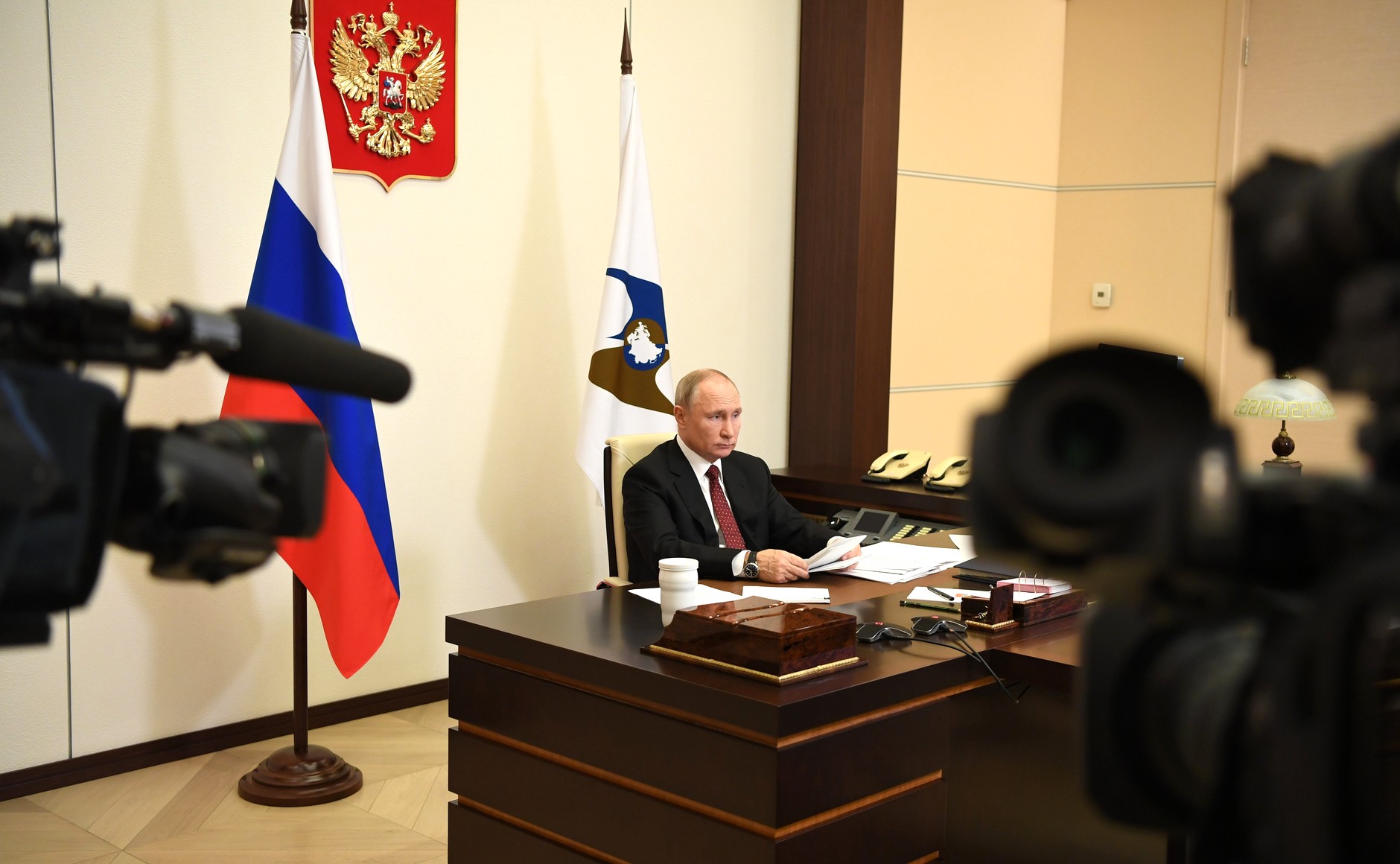 Colleagues, friends, I would like to note that a number of foreign states are interested in working with the EAEU; we have talked about this. Today, the Supreme Eurasian Economic Council will grant observer status to the Republic of Uzbekistan. I would like to greet our colleague, President of Uzbekistan. They will also decide to grant observer status to Cuba, and I would also like to greet the President of the Republic of Cuba. This is indeed an important milestone for strengthening the union’s ties with our natural and traditional partners. The EAEU is implementing a cooperation agreement with major economic powers like China and India. The first round of talks on a free trade agreement with India will take place in the near future. Today, we will approve a decision on similar talks with Iran. We also support the idea of signing preferential agreements with Indonesia and Mongolia. It should be noted that a Memorandum of Understanding between the Secretariat of the SCO and the Eurasian Economic Commission was signed on November 10 at the SCO Heads of State Council meeting that was chaired by Russia. We see this as yet another step towards implementing our concept to set up a Greater Eurasian Partnership in security, economic, cultural and humanitarian cooperation. In this context, expanded cooperation with other countries and regional integration associations, of course, has great significance. First, we are talking about coordinating the EAEU’s activities with China’s Belt and Road Initiative. In the long run, the steps I have mentioned will play a positive role in establishing a truly favourable atmosphere for partnership and cooperation on our common Eurasian continent. 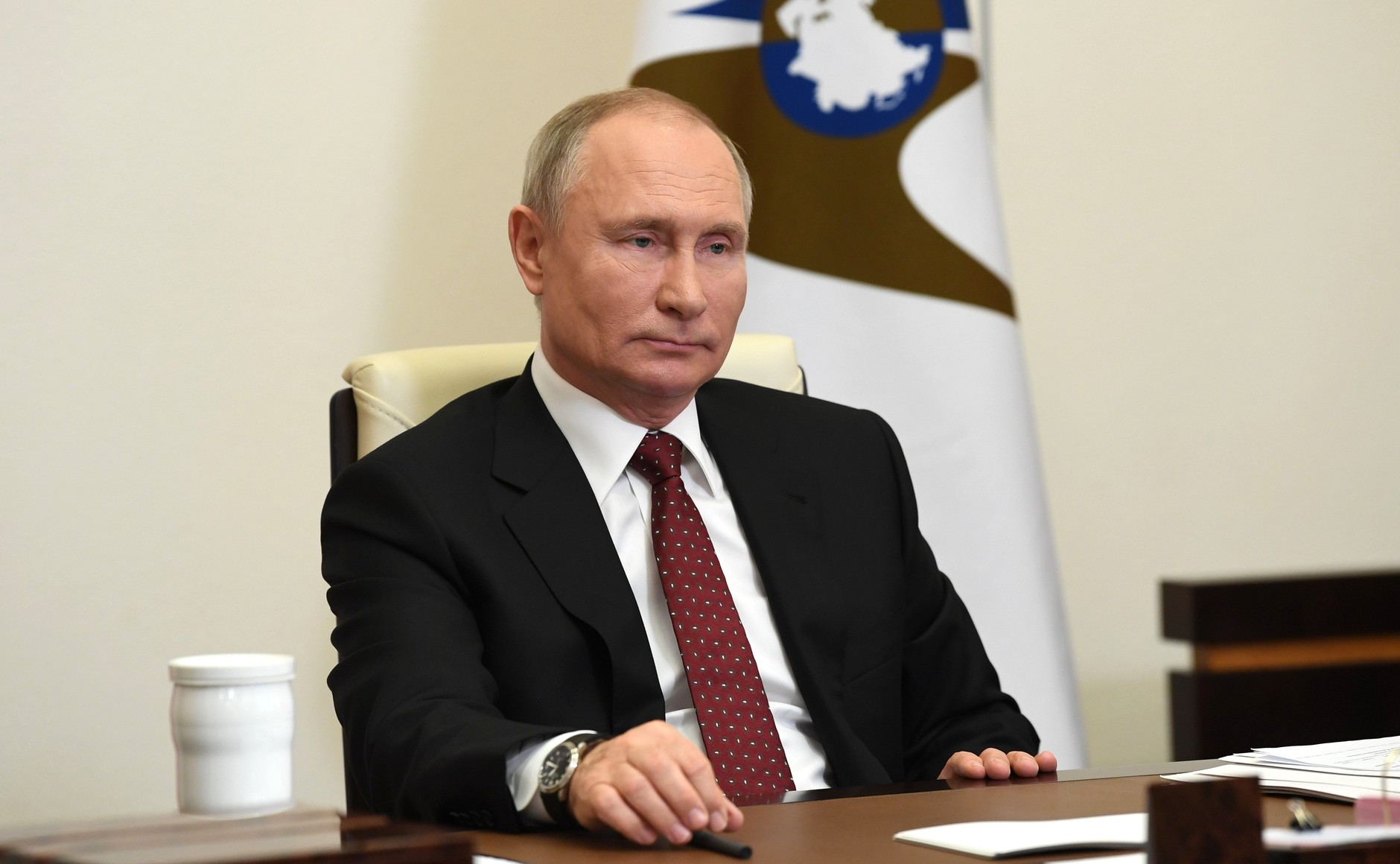 Colleagues, In conclusion, I would like to wish our Kazakhstani friends, due to assume the presidency of the Eurasian Economic Union, every success next year. Colleagues, you can certainly count on our support and overall assistance. I have no doubt that the presidency of Kazakhstan, that initiated the creation of our association, will be successful. I would like to once again recall the role of Nursultan Nazarbayev, the first President of Kazakhstan, in this process, and I would like to thank him for promoting it so enthusiastically and effectively in the post-Soviet space. I know that Kazakhstan’s presidency will be successful. Thank you for your attention. The source of information - http://en.kremlin.ru/events/president/news/64643 Meeting with Chairman of the Constitutional Court Valery Zorkin On the eve of Constitution Day, Vladimir Putin met with Chairman of the Constitutional Court Valery Zorkin. December 11, 2020 - 17:45 - Novo-Ogaryovo, Moscow Region  President of Russia Vladimir Putin: Mr Zorkin, we regularly meet with the Constitutional Court judges on the eve of December 12 – Constitution Day. However, unfortunately, during the pandemic such large meetings are rare. Nonetheless, I would like to ask you to send my best wishes to the members of the Constitutional Court. The Constitutional Court members are working hard, I know. You will be able to tell us about your activity during the past year. I would like to wish everyone all the best and especially good health – this is now most important and much needed – and I express my hope that we will continue our constructive work in the future because to some extent our functions – of the Constitutional Court and the President – coincide in some ways. I am hoping for your support in the future in the realisation of the rights of citizens as part of your serious constitutional process – the observance, or, to be more precise, the interpretation of the norms of the Fundamental Law, which is being carried out by the Constitutional Court. This is particularly relevant today in view of the recently passed amendments to the Constitution. Why? Because when it comes to, say, some areas of our activities, a need arises to clarify the new provisions, the amendments to the Constitution for the citizens and legal entities, to show the people – both civil society and our economic actors – what new opportunities and rights the citizens get following the amendments. This are overall major, massive efforts. I want to finish with what I started. I congratulate you and all members of the Constitutional Court on this holiday – Constitution Day of the Russian Federation. Chairman of the Constitutional Court of the Russian Federation Valery Zorkin: Thank you, Mr President. Let me also congratulate you in return because you are the guarantor of the Constitution while we are its custodians. But first I would like to relate to you the warmest address from the judges. We wrote it in our traditional report that we present to you every year, and all the judges have signed it. But you understand that this is last year’s report because the current year is not over yet and the report has not been released yet. The judges wished you, as they say in Russia, many a good year. Vladimir Putin: Thank you.  Valery Zorkin: Regarding our work, Mr President, we must all live, and are living, under the Constitution but this particularly refers to the Constitutional Court because, as you said, we interpret it, we directly apply it. Regarding the amendments, we are working on it “off the reel” because we have… I was just “tortured” by some TV channels with an improvised question: are we applying the amendments? Of course, we are. Moreover, in our rulings this year after July 4, we are referring directly to the new amendments. We proceed from the fact that they have significantly upgraded the Constitution, within its fundamental principles; naturally, the principles have not changed, but they were specified. In this respect there has been nothing more fundamental in 30 years than this comprehensive overhaul which primarily involved areas of constitutional guarantees for citizens’ rights, social rights, the structure of power, and they added a greater balance of power. Others sometimes say, “Look, they have a presidential republic there.” A presidential republic – so what? Of course, it is a presidential republic. But previously under our Constitution the President formed the government himself, so to say, and only the Prime Minister was approved by the State Duma that gave its consent. Now when the ministers are also approved by the State Duma, I think it is strange to say that things have become worse. Apparently, everything will depend on how things run at a practical level. I hope that the Constitutional Court’s modest efforts – I am not depreciating myself, I truly believe that our efforts are modest – will facilitate this in every way because we do check the laws. We are checking the laws for the benefit of our citizens because we review the complaints people have regarding the violation of their rights based on the law applied. In this sense, we are the Constitutional Court on human rights. But, naturally, our activities are not limited to this because we have many powers, especially as regards the amendments. After all, as you know, the authority of the Constitutional Court has been substantially expanded and this imposes a high responsibility on us. However, we believe we will fulfil it despite the optimisation of the court’s personnel number. But I think this decision was based on practice and I hope we will be fine. There was a lot published when the Constitution was being adopted. Even today people ask: “How do you get to the Constitutional Court if you have to go through all the courts of instance before that?” But this suggests the question: “How could it be otherwise? Should the Constitutional Court come before a district court?” Incidentally, in practice we proceeded from the premise that people must receive protection in other courts that have the right to analyse actual circumstances and evidence and make a law-based ruling. So, in this respect, our practice was ahead of the current record of the Constitutional Court’s adjusted authority. I would like to say just a few words about statistics but not make it tiresome for you. Now that it is required that all other opportunities in the courts of general jurisdiction are exhausted – these are primarily the courts of appeal and the court of cassation – by and large the number of complaints has gone down a bit. But why has it gone down? In most cases, these complaints have nothing to do with us at all. A person says: “I was given the wrong flat. Please help me get the right one in the district court.” But there are also complaints that are within our responsibility because people complain about the application of a law in a specific case. But the share of these complains has practically remained unchanged. I say “practically” although there has been some reduction but not to the extent that as feared because of the many requirements that a citizen must fulfil before applying to the Constitutional Court. In the past we made about 3,000–3,200 rulings on important issues. I do not want to bore you with the details but this year the number remained at about 3,000. As to rulings, this year there will be more of them compared to last year. Vladimir Putin: Why? Valery Zorkin: It just turned out that way. This was not a specific goal. 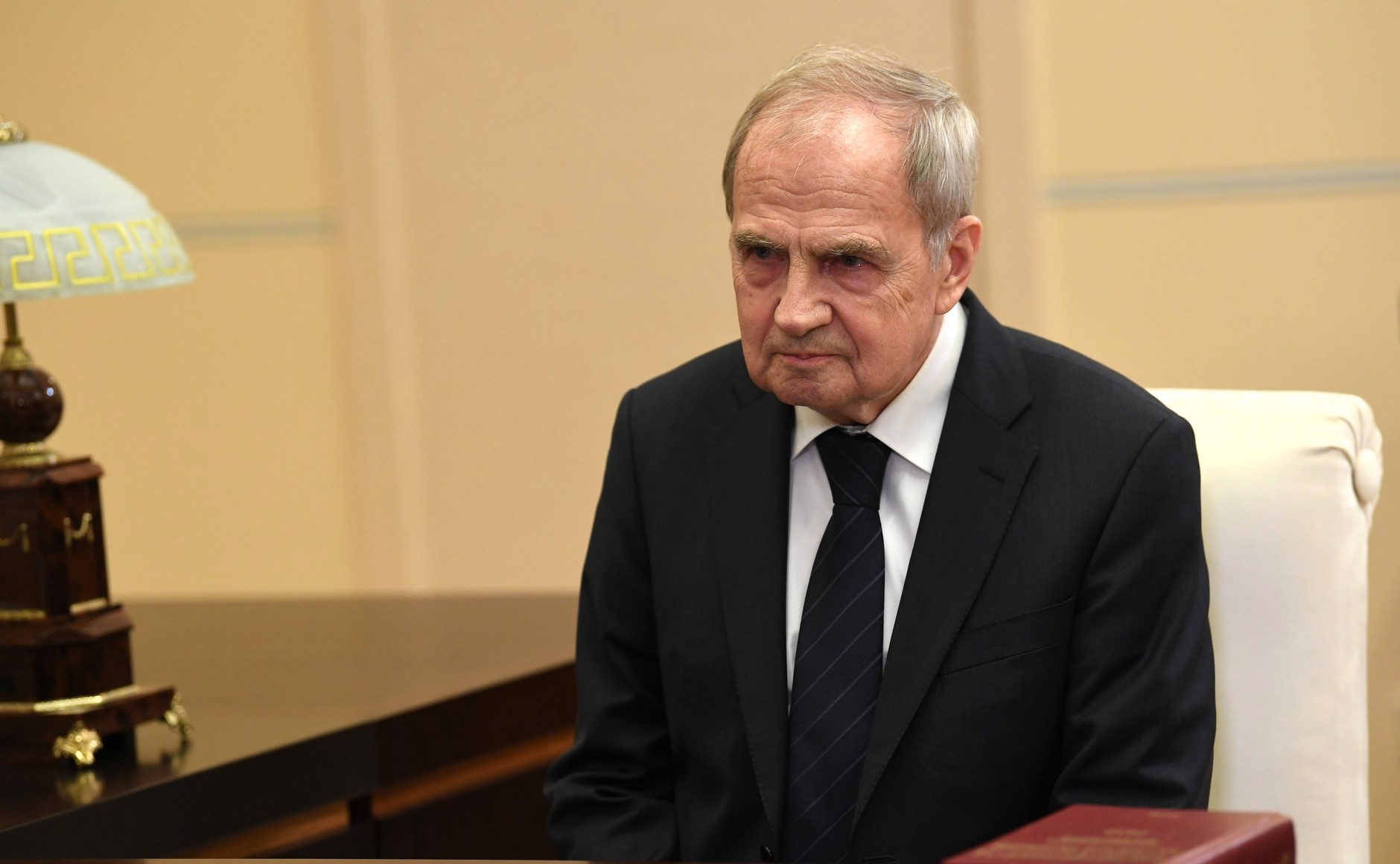 Vladimir Putin: Mr Zorkin, I would like to draw your attention to the following. You know that the State Duma and the Federation Council are now passing new laws in furtherance of the new provisions of the Constitution. It is crucial that these federal laws passed by the Federal Assembly precisely resonate with the letter and the spirit of the amendments to the Constitution. Valery Zorkin: Yes, it is crucial, otherwise the “pyramid” will be incoherent. Unfortunately, the Constitutional Court does not have absolute influence here, Mr President. We only respond when there is a request from respective state bodies or from citizens. But I think such complaints will arise anyway because not everyone will be happy about the practical result. I think there is no use arguing about the amendments themselves since they have become part of the Constitution. But when they are translated into laws, disagreements are bound to arise when the laws in effect will seem misinterpreted to a litigant. Then, here is the Constitutional Court, please come to us, and we will offer the proper interpretation. Vladimir Putin: Ok. The source of information - http://en.kremlin.ru/events/president/news/64647 Meeting with permanent members of the Security Council Vladimir Putin held a meeting, via videoconference, with permanent members of the Security Council. December 11, 2020 - 18:05 - Novo-Ogaryovo, Moscow Region  The discussion focused on current issues on the domestic socioeconomic agenda. The President also informed the meeting participants about the outcomes of the EAEU summit. The meeting was attended by Prime Minister Mikhail Mishustin, Federation Council Speaker Valentina Matviyenko, State Duma Speaker Vyacheslav Volodin, Deputy Chairman of the Security Council Dmitry Medvedev, Chief of Staff of the Presidential Executive Office Anton Vaino, Security Council Secretary Nikolai Patrushev, Foreign Minister Sergei Lavrov, Defence Minister Sergei Shoigu, Federal Security Service Director Alexander Bortnikov, Foreign Intelligence Service Director Sergei Naryshkin, and Special Presidential Representative for Environmental Protection, Ecology and Transport Sergei Ivanov. The source of information - http://en.kremlin.ru/events/president/news/64648 Greetings to President of Turkmenistan Gurbanguly Berdimuhamedov Vladimir Putin sent a message of greetings to President of Turkmenistan Gurbanguly Berdimuhamedov on the 25th anniversary of the UN General Assembly Resolution on Turkmenistan’s permanent neutrality. December 12, 2020 - 10:00 The message reads, in part: “Russia has great respect for the peaceful foreign policy pursued by your country aimed at expanding constructive international cooperation. Turkmenistan enjoys well-deserved recognition in the international arena and makes a significant contribution to enhancing security and stability in Central Asia and the Caspian region. I believe that further progress in the Russia-Turkmenistan strategic partnership fully meets the interests of our neighbourly nations.” The source of information - http://en.kremlin.ru/events/president/news/64652 Social online forum of United Russia party Vladimir Putin met with participants of the online social forum of the United Russia political party via videoconference. December 14, 2020 - 14:10 - Novo-Ogaryovo, Moscow Region 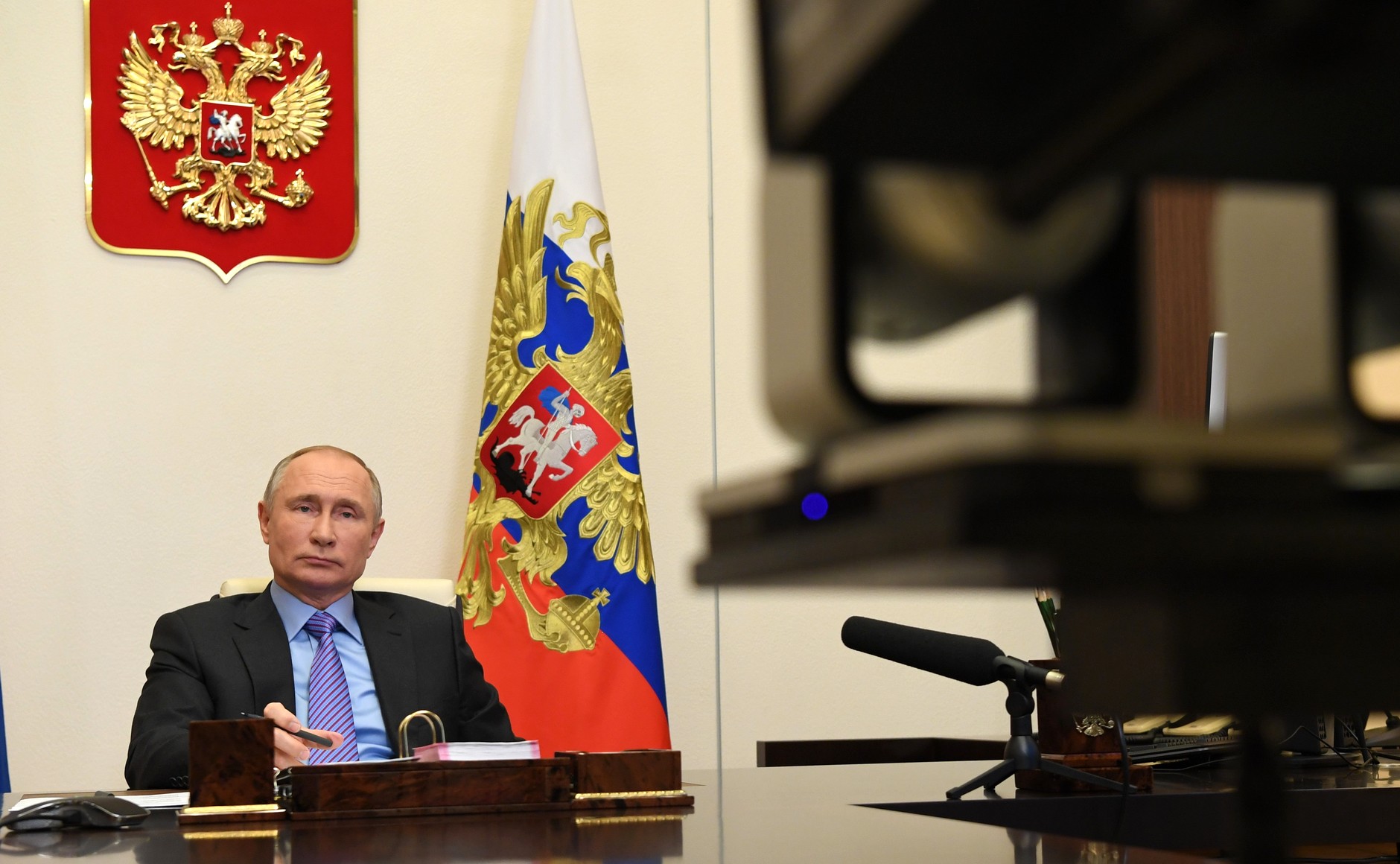 The moderators at the forum included Deputy Secretary of the General Council of the United Russia party, State Duma deputy Yevgeny Revenko and volunteer, Deputy Chairman of the Committee of the Krasnoyarsk Territory Legislative Assembly on construction, housing and utilities Yelena Penzina. Yevgeny Revenko: Friends, President Vladimir Putin, the leader of our party, has joined us now. Mr President, good afternoon. 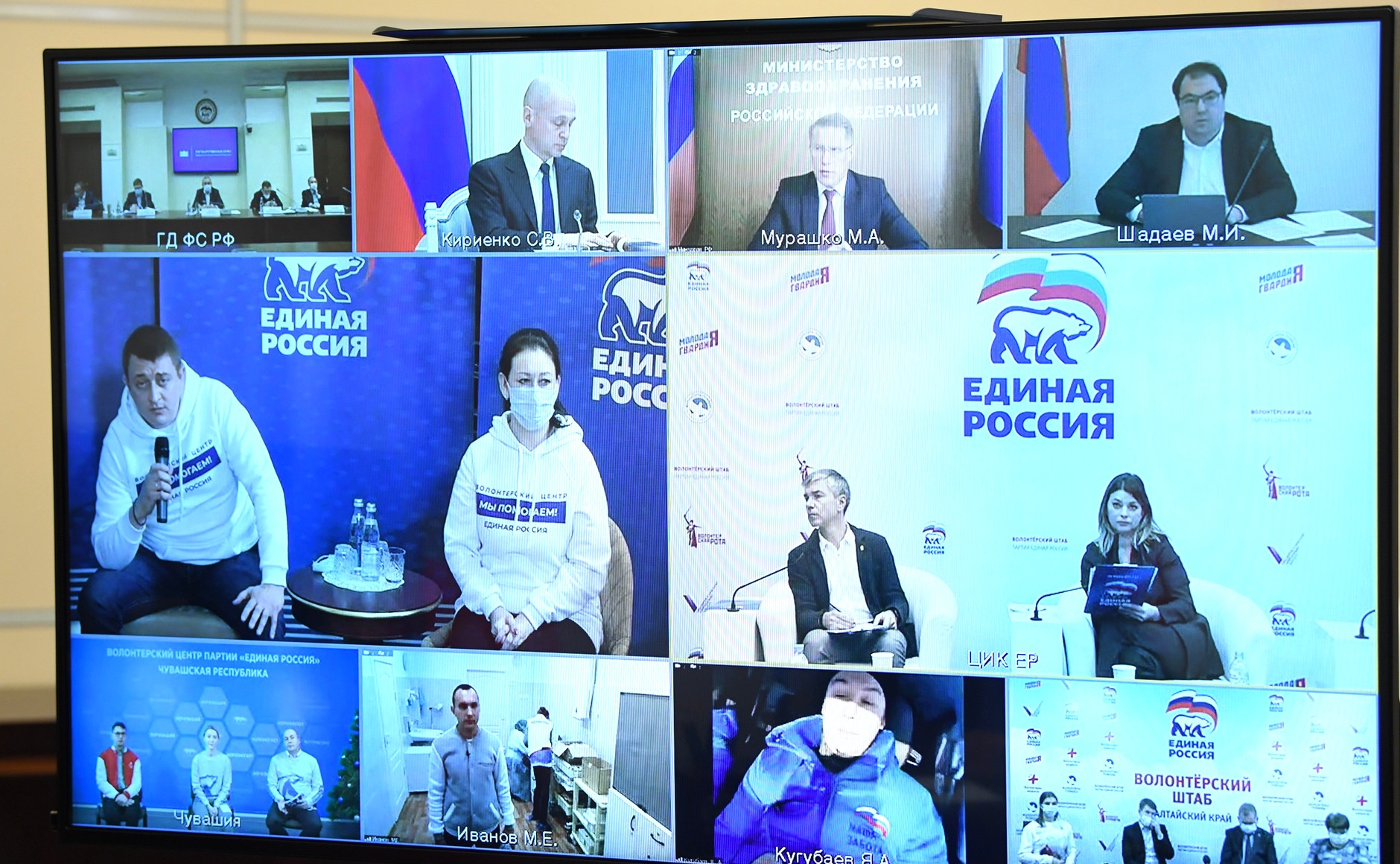 President of Russia Vladimir Putin: Good afternoon, Yevgeny. Yelena, good afternoon. I have listened closely to what Andrei [Gimbatov] has been saying just now. I enjoyed it. And his very last words, I would say those were the most important: when people do good, they enjoy it. This is the meaning of life in general, in a broader sense. When you help your friends or even people you may not know, but who need your support, you get satisfaction from this. It is one of the most important incentives and most important tools for any person’s self-realisation. So, Andrei, thank you. Now that I have joined you, I would like to greet you all, friends. I would also like to greet Mr Medvedev, good afternoon. Good day to all the participants of the United Russia social online forum. As I was saying, I would like to underscore once again that your work is greatly needed. I mean, not only this forum, but all the work you do in general. I would like to wish you continued progress with your work, that any initiatives that you come up with today as well will all be implemented. I would like to point out that this is extremely important. It will be interesting to hear your proposals today, what you are discussing, what goals you set yourselves and what practical solutions you can suggest for the tasks facing the country. I would like to say the following in this connection. I know that thousands of your party volunteers are delivering medications and foodstuffs, as it has just been said here. And they are using their own cars for this, making free deliveries to those who need them, including to medical personnel, and donating their personal funds to buy PCs for pupils who are studying remotely, and PPE, helping old and ailing people and those who have no relatives, and everyone for whom the current situation is especially difficult. There is one more thing I would like to mention in this context. I believe that the everyday work, work with the people (Andrei, a member of a municipal council, spoke about it), which the country’s largest party has been doing during the past few months, is a suitable reason for reviewing your ranks so as to identify and give praise to those who did their best and who have proved to be reliable comrades and kind and warm-hearted people, not just social climbers, but hard-working people who are ready to help deal with the difficult tasks the country is facing. These people definitely constitute a powerful creative force across the country, one the party really needs. These people are the bedrock of the party’s successful future and its worthy representation in society and at all levels of power. I would like to give the floor to Mr Medvedev now. I hope that you will speak later as well, and that I will have an opportunity to respond to the discussions that are being held at your forum.  <…> Vladimir Putin: Here is what I would like to say in conclusion of my part in this event. Unfortunately, I will have to move on to the other items on my agenda, I still have to have a number of international telephone conversations. But this is what I would like to draw your attention to. The fact that United Russia has been very active in countering the difficulties faced by the country in countering the coronavirus is very important. What is said here, what is studied and being done is already extremely important for maintaining the prestige of the country’s leading political force. The national economy, the defence capability of this country and the shape of its healthcare and education systems depend on the decisions of this party. Therefore, it bears special responsibility for the performance of the state. This is a very heavy load. But do you know how to buttress it? Through a sincere striving to do better for the country as a whole and for each individual. If this is done in the interests of an individual citizen, especially the person who lives next door, people really believe in the sincerity of the entire political force, in this case United Russia, in the sincerity of what it is doing for the national interest. You are absolutely on the right track. I would like to sincerely wish you success. Thank you very much. All the best to you. 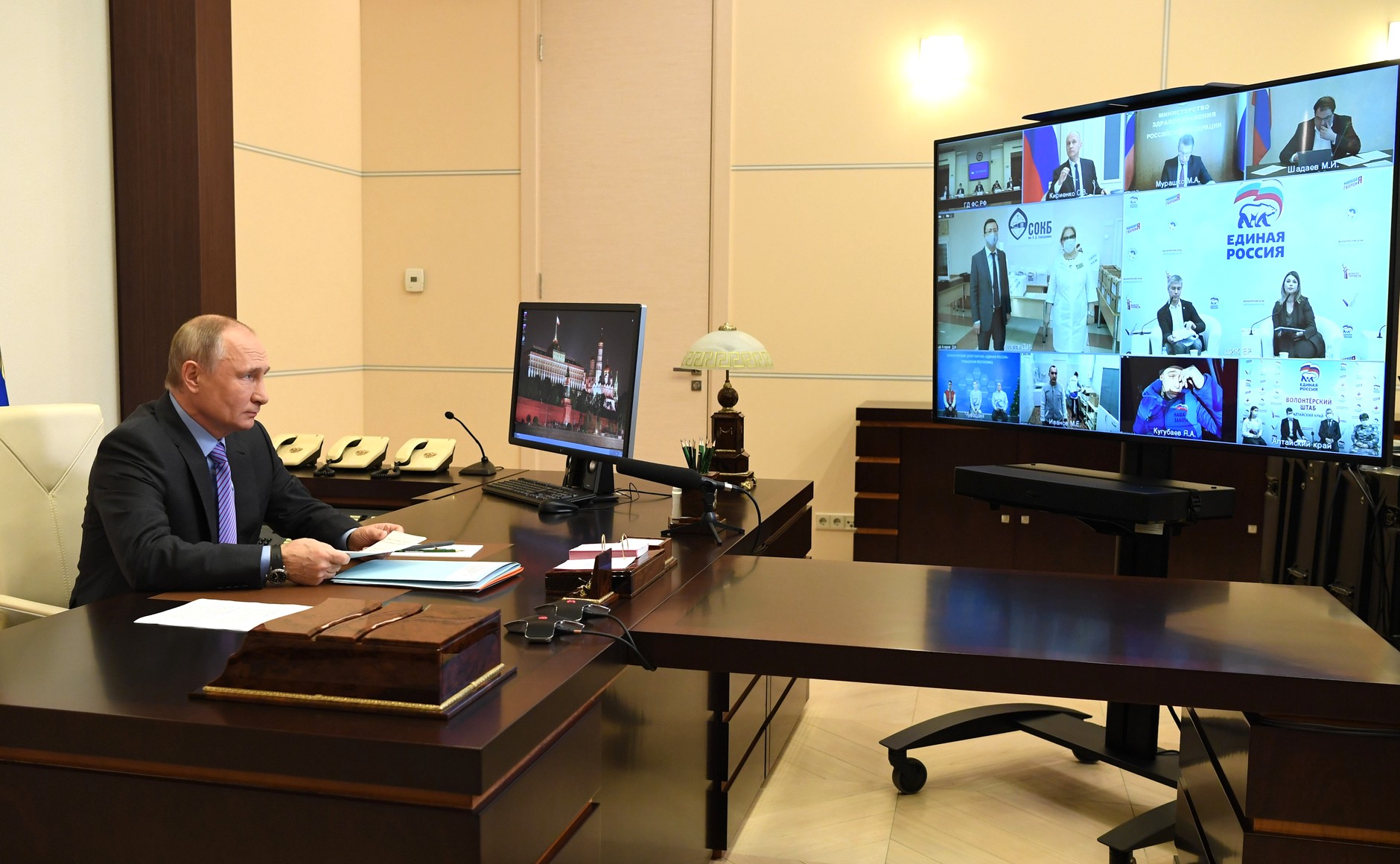 Yevgeny Revenko: Mr President, thank you for these words, for your support and your assessment of our work. The source of information - http://en.kremlin.ru/events/president/news/64655 Congratulations to Joseph R. Biden on winning US presidential election Vladimir Putin sent a message to Joseph R. Biden congratulating him on his victory in the presidential election in the United States of America. December 15, 2020 - 10:20 In his message, Vladimir Putin wished the President-elect every success and expressed confidence that Russia and the United States, which bear special responsibility for global security and stability, can, despite their differences, effectively contribute to solving many problems and meeting challenges that the world is facing today. The President of Russia noted that with this in mind, Russian-American cooperation, based on the principles of equality and mutual respect, would meet the interests of both nations and the entire international community. “For my part, I am ready for interaction and contacts with you,” Russia’s Head of State stressed. The source of information - http://en.kremlin.ru/events/president/news/64660 Meeting with Tver Region Governor Igor Rudenya Vladimir Putin had a working meeting with Tver Region Governor Igor Rudenya. The head of the region updated the President on the socioeconomic situation in the region. December 15, 2020 - 14:05 - The Kremlin, Moscow 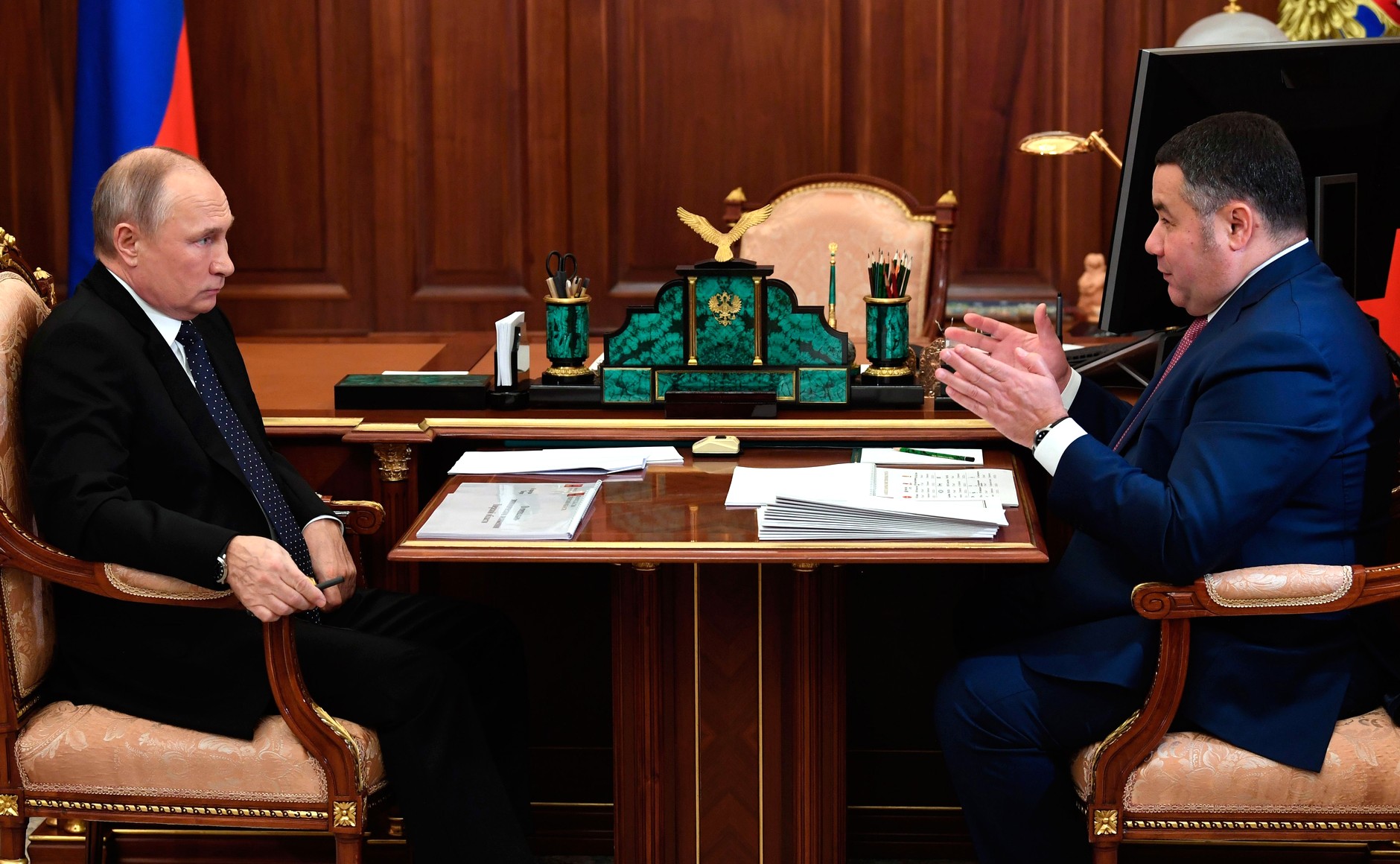 Igor Rudenya reported on the coronavirus response efforts, including the creation of additional hospital beds, equipment procurement and restrictions. At the same time, he noted that, along with protecting people's health, it is equally important to preserve jobs. According to the Governor, large enterprises are operating, and so is the state and municipal administration system. To support the economy, especially small and medium-sized businesses, the region launched the Working Capital programme. A regional fund for supporting small and medium-sized businesses has been created to issue loans of up to 20 million rubles per company at 1.5 percent per annum for 16–18 months. According to Rosstat, economic growth and financial growth in the region have remained stable, in particular, thanks to the support from the federal Government. Investment projects in the region were also discussed. The local company Rumelko (owned by Novolipetsk Steel) is implementing an 18-billion-ruble project (more than 600 jobs) with planned completion in 2022. The Korean company Orion International has invested more than 5 billion rubles to build confectionery factories. Shell Neft is planning a new facility in Torzhok, with more than 500 jobs, and more than 5 billion rubles in investment. 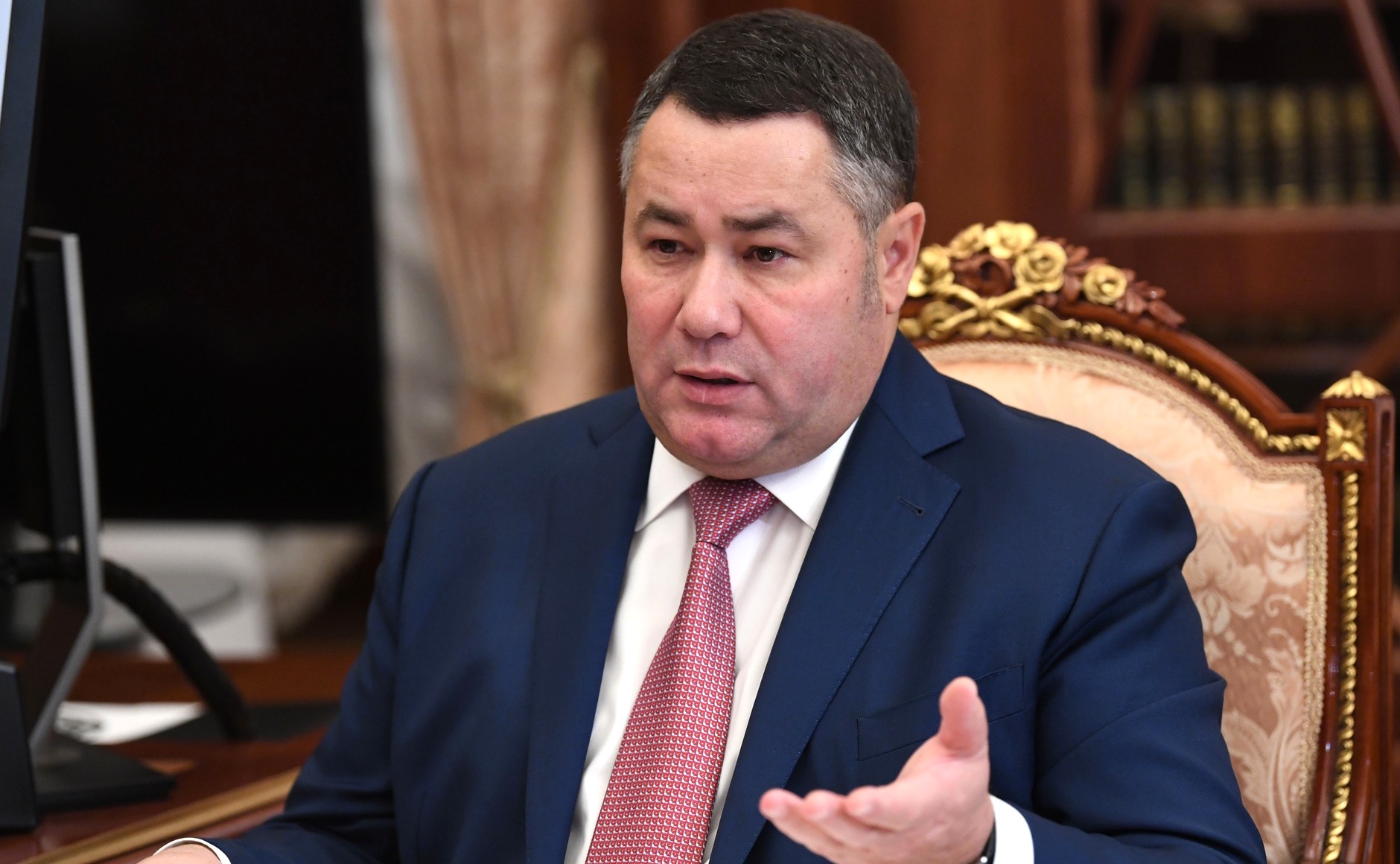 The President noted that in 2018–2019, amid a nationwide fixed investment growth trend of over 7 percent, the region showed a decline of more than 26 percent. Igor Rudenya explained that during those years, the region completed several large projects launched in 2016–2017. So right now, the region mainly counts on medium and small-sized businesses and the new projects that he mentioned. It is also especially important now to add more jobs and replace labour migrants with local human resources as much as possible. Another priority is the local transport logistics, the Governor added. Thanks to the federal Government’s support, the M-11 motorway has been completed. The region now has good infrastructural access, and the companies that operate there can establish their headquarters in Tver. It became very convenient to get to St Petersburg and Moscow, as well as to other regions in the Central Federal District. At the same time, he mentioned several negative aspects: the system of petrol stations and rest stops on the new motorway is not growing quickly enough. Next year, however, the situation is going to improve with the involvement of the state companies Avtodor, Rosneft and Gazpromneft.  The President and the Governor also discussed problems with connecting more consumers to the gas grid. According to Igor Rudenya, it is a key development factor for the region's economy. Of the 42 local municipalities, 13 are not supplied with gas, although a large number of oil and gas pipelines of international significance actually cross Tver Region. Thanks to Presidential instructions, an agreement has been signed with Gazprom on a connection programme until 2025. As a result, almost every municipality will have gas, which is essential for attracting investors and creating jobs. The President stressed it was important to synchronise this work with Gazprom, because last-mile connection is the region’s responsibility. Igor Rudenya confirmed that this is being done. The programme is being implemented in two phases and is funded accordingly. Of the 23 billion rubles for the general connection programme, 15.9 billion are provided by Gazprom and 7 billion are invested by Tver Region. The source of information - http://en.kremlin.ru/events/president/news/64662 Greetings to participants in ceremony in St Sava Church in Belgrade Vladimir Putin congratulated the participants of a ceremony to mark the completion of a mosaic in the Church of St Sava in Belgrade. December 15, 2020 - 16:00 The message reads, in part: “The dream of building this majestic cathedral inspired and united many generations of Serbs, who wanted to immortalise the memory of St Sava, the founder and first Archbishop of the Serbian Orthodox Church, a patriot, enlightener and founding father of Serbian literature. Serbian and Russian masters created the mosaics that now decorate the walls of the church. This collaboration is extremely important and symbolic, especially in the context of the fraternal friendship and spiritual affinity that has united our peoples since olden times. Patriarch Irinej of Serbia, who devoted so much attention to the construction of the Church of St Sava, was buried in its crypt. I would like to use this occasion to once again express my deepest condolences on his passing. I would like to extend my sincere gratitude to all those who have contributed and continue contributing to the construction of the Church of St Sava and to wish happiness and wellbeing to Belgrade residents and all citizens of Serbia.” The source of information - http://en.kremlin.ru/events/president/news/64665 Greetings on Kazakhstan’s Independence Day Vladimir Putin sent a message of greetings to President of the Republic of Kazakhstan Kassym-Jomart Tokayev on the occasion of the country’s national holiday, Independence Day. December 16, 2020 - 10:00 The President of Russia noted Kazakhstan’s major achievements in socioeconomic development and progress in science and technology, the country's well-deserved authority in the global arena, as well as its important constructive role in solving current international problems. Vladimir Putin also noted with satisfaction the steady progress in bilateral relations, strategic partnership and alliance between Russia and Kazakhstan. The President of Russia expressed confidence that joint efforts will ensure further expansion of the entire range of bilateral ties, as well as cooperation on the EAEU, CSTO, CIS, SCO, UN and other multilateral platforms. “This undoubtedly meets the fundamental interests of our fraternal peoples, and goes in line with strengthening security and stability in the Eurasian space,” the Russian President underlined. The source of information - http://en.kremlin.ru/events/president/news/64669
__________________
Where should they dig the Very Deep Pit? Piglet said that the best place would be somewhere where a Heffalump was, just before he fell into it, only about a foot farther on. (c) Alan Alexander Miln Last edited by Alex Him; December 17th, 2020 at 09:18 AM. |
|
|
#162 |
|
Senior Member
|
Vladimir Putin’s annual news conference - PART I
The President of Russia held his annual news conference. December 17, 2020 - 16:35 - Novo-Ogaryovo, Moscow Region The news conference was broadcast live by Rossiya 1, Rossiya 24, Channel One, NTV and MIR television channels, as well as Mayak, Vesti FM and Radio Rossii radio stations. Public Television of Russia (OTR) and its site (http://www.otr-online.ru/online/) provided live sign language interpretation of the event. Representatives of federal and foreign media worked at the World Trade Centre in Moscow. In addition, special platforms have been set up in all federal districts, where representatives of regional media could participate and ask their questions. During the news conference the call centre continued to accept questions from individuals. Questions could be asked via the website https://moskva-putinu.ru or by using the Moskva-Putinu mobile app.  President of Russia Vladimir Putin: Good afternoon. My greetings to all of you, here in Novo-Ogaryovo, in the call centre and across the regions of the Russian Federation, in Moscow and St Petersburg. Today we are holding the traditional news conference to wind up this year’s results. Since COVID-19 prevented us from holding the Direct Line live, my colleagues have tried to merge these two events into a single one by introducing elements inspired by the Direct Line format into this news conference so that I can interact directly with people, hear what they have to say, what is going on in the country, and listen to their proposals on what more can be done in order to address matters in the best possible way and find effective solutions to the issues we face and deliver on our objectives. Allow me to mention that over the past years it has become a good tradition for us to ensure that all the questions we get, and there are hundreds of thousands of them, are answered in one way or another. For that, I would like to thank my colleagues from the Presidential Executive Office, the Government, but first and foremost from non-governmental organisations: the Civic Chamber and the Russian Popular Front, the volunteers who contacted the people who took part in previous Direct Lines, talked to them, discussed the challenges pinpointed by these people, and quite often succeeded in resolving various matters that people were concerned with, and which probably remain relevant to this day. I very much hope that we will do the same this year. I would like to ask volunteers, the Russian Popular Front to continue this wonderful practice, very useful for the country. For me, I would like to emphasise, such events are not formal; I highly value them. Even though I have a vast flow of information about what is happening in the country reaching me through various channels, still, there is nothing more valuable than direct communication with the people, with Russian citizens, there is nothing more valuable than hearing their opinions about their lives and concerns, and again, what we need to do in order to have a better life. You know, I would rather finish my opening remarks here. It would be a good idea to start the Q&A without wasting any more time. I would like to give the floor to Mr Peskov, who is at the call centre now. He will continue to moderate our meeting. Mr Peskov, please.  Presidential Press Secretary Dmitry Peskov: Good afternoon, Mr President. Hello everyone. Vladimir Putin: Good afternoon. Dmitry Peskov: We have our participants scattered widely across our vast country, and I suggest we start from the easternmost point. Vladivostok, please. Once again, I urge everyone to be brief and dynamic so that as many journalists as possible have time to ask their questions. Please, Vladivostok, help me out, for a start. Dmitry Kaistro: Good evening. It is evening here already. So this is Vladivostok, the capital of the country's largest federal district, the Far East. There are 50 correspondents here, and you can see how active they are. Each of them has their own established audience and their own questions for the head of state. I suggest we begin now. We seem to have people here who really have something to say. Mr Peskov, would you choose who will go first? Dmitry Peskov: Could you show me the audience, please? Did I see Magadan there? Dmitry Kaistro: Yes, the young lady in blue. Lyudmila Shcherbakova: Good afternoon. Magadan State Television and Radio Company. My name is Lyudmila Shcherbakova. First of all, I would like to greet you Mr President, and all the spectators and the audience on behalf of Russia’s Far East and Magadan Region in particular. I have the following question. We all know that this was a challenging year, to an extent that I can hardly find the right words to describe. Still, in your opinion, was this year all bad, or was there something positive as well?  Vladimir Putin: The year was… What do you mean by calling this a bad year? This is like the weather: is it good or bad? Weather is just the way it is. The same goes for the year: it had its ups and downs, as it always happens in life. Of course, this year brought us a problem that is on everyone’s lips, and is a matter of concern for all of us: the coronavirus pandemic. However, not only Russia, the entire world has been hit by this scourge. We are fully aware of this, since over 70 million people have already been infected by the coronavirus, according to WHO data. This problem has affected all aspects of our lives. What is a pandemic? It means lockdowns, curbed production, declining passenger and cargo traffic and all that goes with it. Unfortunately, it also means fewer jobs, and lower incomes. This has all become a reality. At the same time, here is what I wanted to point out. First (and I will try to provide figures to back this up), despite the plethora of challenges we have been facing, and there has been plenty of problems, and we will discuss them today, since this is why we are here, the whole world has been submerged in this ocean of problems. Still, we can affirm in all confidence that we faced up to these problems with dignity and in some ways maybe even better than other countries of the world that have every right to be proud of their economies, social services and healthcare systems. I have some prompts here (it is not my intention to delve deep into numbers since it sounds boring) to show you where we are right now. At this point in time, Russia’s GDP has fallen by 3.6 percent, which is less than in the leading European, EU countries, and less than in the United States. In some EU countries GDP has so far dropped by as much as 9 percent (I think this is the case in Great Britain). We have industrial production down 3 percent now – mainly due to oil, because we have made the OPEC Plus deal and began to cut production, and this affected our overall performance. But there is also good news (better in some areas, worse in others, but we do have some improvements): yesterday, my colleagues from the Government reported to me that processing industries (manufacturing) showed 1.1 percent growth in November. This gives us reason to hope that this trend will continue, that we will move forward in this direction. Over the past few years, our agricultural industry has posted good figures, and now, at the moment, it is somewhere around up 1.8. The Minister said agriculture might not even show a decline for the year, but an increase of up to 2 percent. I hope this will be the case. Our banking sector is in a very satisfactory condition, with profits estimated at about 1.3 trillion rubles for the year. This definitely testifies to the financial system’s stability. Real wages. I ask the country’s citizens, try not to be angry with me because what I will say now might not correspond to how people feel in real life; nevertheless, I am going to cite an averaged figure, and it also needs to be taken into account. I hope real wages will grow by about 1.5 percent by the end of the year across Russia, although unfortunately, there will be a decline in real disposable incomes. Why is this happening? What does it mean? Where does this difference come from? This has to do with the declining incomes of individual entrepreneurs, and the resulting changes. Overall, real incomes, unfortunately, will fall by around 3 percent. Unemployment rate in Russian was 4.7 percent at the beginning of 2020; now, as you know, it has grown to 6.3 percent. We will certainly talk about this later. Everything we do to support the economy, to support the affected industries, is aimed at maintaining employment. We have [unemployment at] 6.3 percent now, but I hope that over the next year, we will be able to bring it down to the earlier figures. A positive trade balance can be considered a good indicator. It creates conditions for good macroeconomic development. Our national debt had been at its lowest at $70 billion, in dollar terms. It shrank by another 10 billion since. We borrow less in foreign markets, while regularly servicing all our loan obligations. Our international reserves have grown. At the beginning of this year, they amounted to 554.4 billion; now, as of December 4, they are already about 587.7 billion. The same holds true for the National Wealth Fund. In ruble terms, it was 7.7 trillion, now it is almost 13.5 trillion. This is significant growth. There is something I need to draw your attention to. What is an obviously positive part of our economic growth? As much as 70 percent of the Russian federal budget comes from non-oil and gas revenues now. This means, well, we are not entirely off the so-called oil and gas needle, but we are starting to get away from it. Even if someone still likes to think of Russia as a petrol station, they no longer have real grounds for that. Even though the dependence is still strong enough, and we have to bear this in mind. Finally, this outgoing year is also associated with major national events, such as the 75th anniversary of Victory in the Great Patriotic War. Despite all the difficulties caused by the pandemic, we nevertheless celebrated it properly, with the Victory Parade on Red Square; and the Immortal Regiment march also took place, albeit online. These are all positive aspects. But most importantly, there is something else I definitely need to mention now, and I would like to thank the citizens of our country for it: even in the most difficult circumstances, we have once again reaffirmed what underlies the Russian identity – people rallying together in the face of a threat. We have seen it all, the work of volunteers, the work of doctors – we bow down before them again as a sign of deepest gratitude – the prevailing attitude in society, people are ready to help and support their neighbours, those especially in need of help and support. That showed a nationwide unity – let alone the We Are Together volunteer campaign, which is just an external manifestation of the internal attitude in society – this, in my opinion, is something that determines our country and is a decisive factor. Once again, I would like to express my gratitude to everyone who took part in those major campaigns. Thank you. 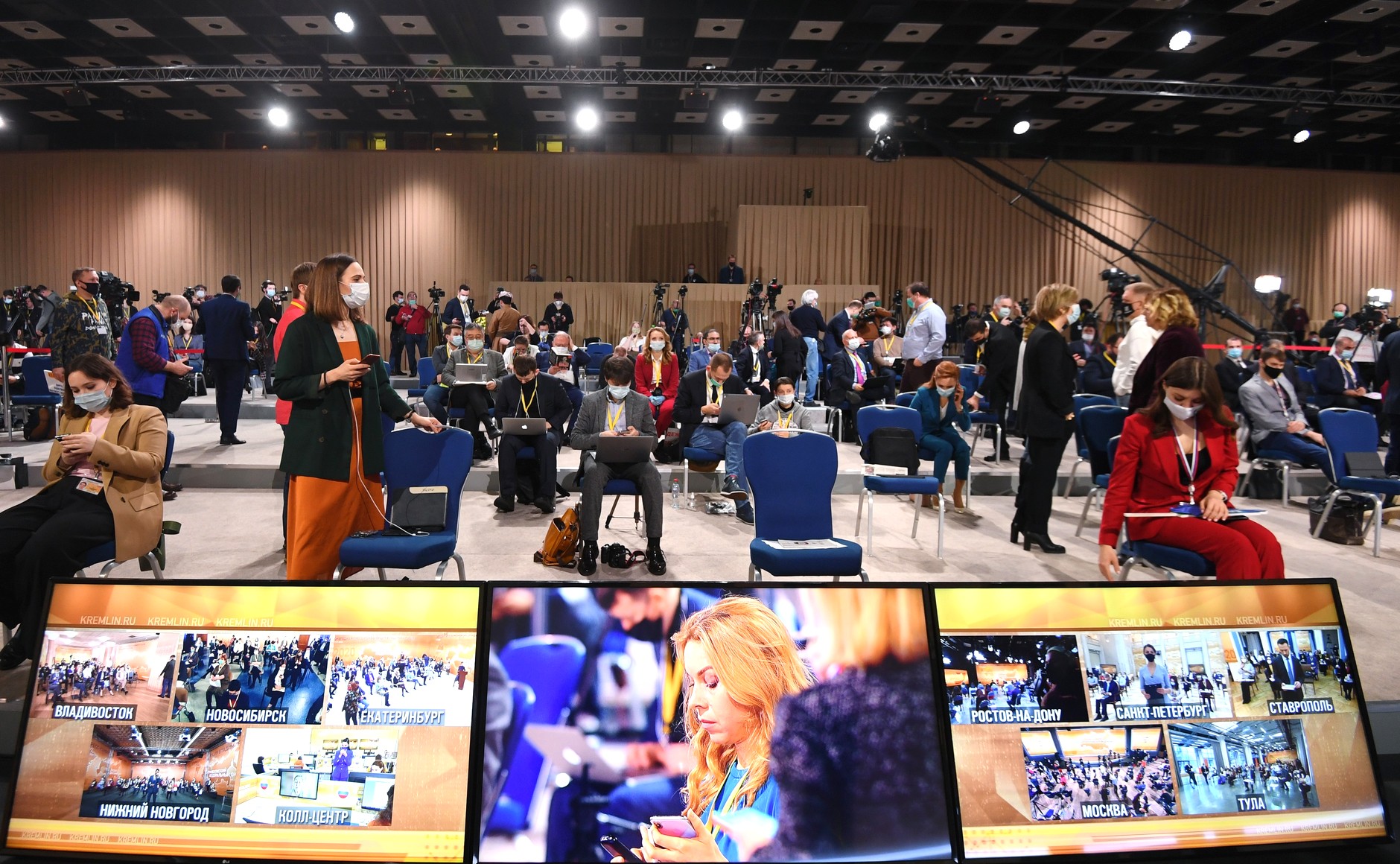 Dmitry Peskov: I would like to remind everyone that after asking your questions you should change the mike cover for a new one. After all, we must comply with the sanitary rules. Let us proceed. The Kremlin pool, please, show us Novo-Ogaryovo. We will give the floor to our largest holding, the VGTRK, Rossiya channel. Alexei Petrov: Thank you. Alexei Petrov, Vesti news programme, Rossiya TV channel. Mr President, face masks have become an unpleasant symbol of the times. It is obvious that the pandemic is the main event of the year. My question concerns the situation in the Russian healthcare system. How would you describe its state of readiness? How well has it responded and how well is it responding to the current challenges? There is an important nuance here. Do you think the situation is being analysed? Are the shortcomings and drawbacks being considered? This includes the shortage and labelling of medications, something that has been spoken about many times, and our social activists have reported about this to you. What is the net result? Another thing has to do with the primary care system reform. A lot of money has been invested in it. How will it proceed now in the light of the lessons of the pandemic? Thank you. 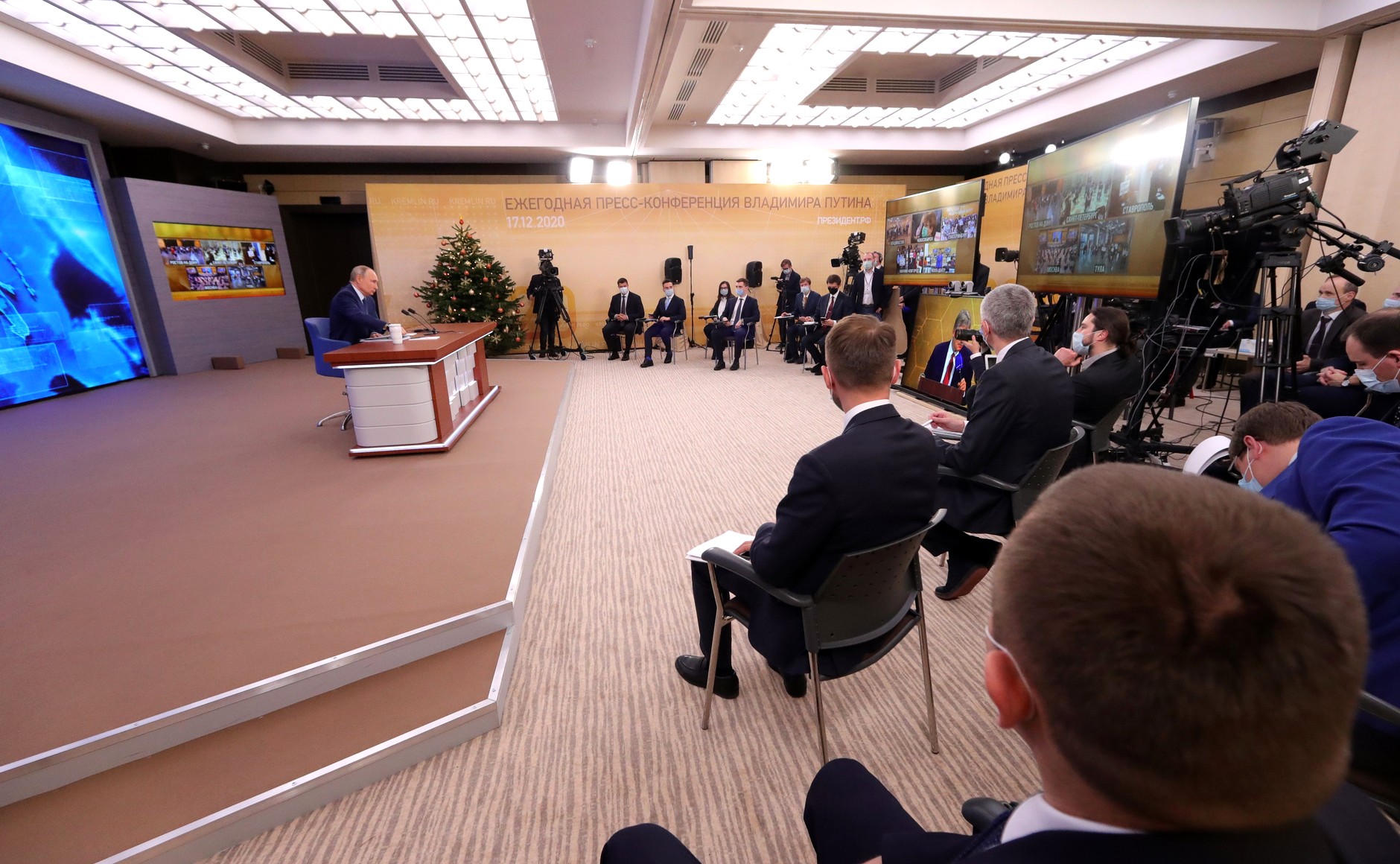 Vladimir Putin: Regarding the readiness of our healthcare system. Of course, not a single healthcare system in the world was ready for the scale of the problem we faced. There are simply no such systems. We are analysing everything that is taking place across the world, and we see that there are no such systems. But there are examples of how the pandemic response was organised in Russia. Compared to other countries, although we do have a great number, an ocean of problems, some of which you have mentioned, but compared to what was happening in the world our healthcare system has proved to be more effective. I will now talk about medicine shortages and other problems – it goes without saying that the problems are still there, and we can see them all. It is evident from the incoming questions, and I can hear it in your question, it suggests that not everything has been resolved. But look, when the pandemic was only just starting, when the very first signals came from our friends in the People's Republic of China that there was a problem, we reacted immediately at the border, and – I have already said this many times – it bought us time to get prepared, so that when it all hit us on a large scale, we were ready. It bought us time, we began to quickly deploy the healthcare system proper, as well as other measures to prevent a pandemic, and we did not waste any of that time. The required number of beds for coronavirus patients was 95, we are counting in millions, and the availability was only 50 percent; now we have 125 – sorry, I meant thousands – 125,000, and now we have 177,000 deployed, even 277,000 – a total of 277,000 beds deployed in a fairly short time. During that time, we have built 40 coronavirus centres: 30 of them were built quickly by the Ministry of Defence, and 10 by the regions. Overall, we will have 40, as the last one should be completed in the final days of 2020. This shows our ability to quickly respond to a problem. Yesterday, when I was inspecting equipment, I spoke to a young woman working as a volunteer: at the time the pandemic began, we had very few doctors or specialists – 8,300, and now, there are 150,000 doctors working with this infection, and total medical staff numbers are more than half a million, some 520,000–530,000, I think. What happened? We were able to quickly convert some of the medical institutions available for dealing with COVID and set up a retraining system for medical personnel. We introduced bonuses for people working in the ‘red zones’ in order to support our doctors, also 10,000 for senior students of medical universities, and 7,000 each for college students, as you know. We quickly expanded the production of personal protective equipment and suits, and disinfectants to sanitise premises. In some cases, the expansion was dramatic: for example, with the facemasks everyone is sick and tired of by now, we increased production 20 times, and this rarely happens. Our healthcare system and state governance system in this area have shown that they can quickly mobilise resources, and they have done this. Incidentally, the required amount of medications has doubled. It is true that some regions have problems – I am aware of this and have just received information from the call centre based on what people say. There is a shortage of medications at hospitals, not to mention pharmacies, and free medications are not provided – I will say a few words about this as well. But these are not the same problems that we faced at the beginning. These problems have to do with logistics and purchase and delivery delays, but on the whole our industry has responded well enough. At the beginning of the pandemic we did not know what we were facing, how to identify or test the disease, what treatment to use, and whether there would ever be an antidote, that is, a vaccine against it. Just look now: we have moved forward a great deal in all of these areas. Russia is one of the world’s top three countries for COVID testing, and the WHO believes that mass testing is a way to deal with the problems created by the spreading infection. Take medications: we are now producing domestic medications in the necessary amount. And lastly, vaccination: Russia is the first country in the world to create and produce a vaccine, or vaccines created at the Gamaleya National Research Centre and at the Novosibirsk-based Vektor Centre. These are good vaccines, as I have said on numerous occasions, safe and effective: their efficacy rate is over 95 percent, approaching 96 or 97 percent, according to experts, and not a single case of serious side effects has been reported. Thankfully, our foreign colleagues have changed their attitude towards us and are ready to collaborate in the areas where it is not working out for them. The Anglo-Swedish AstraZeneca is ready to work with us, and is in the process of signing a corresponding agreement. This is very good; I am really glad when top-notch specialists – this is a large and good company with a global reputation – join forces, including with their Russian partners. I have no doubt that this will have a very good result not just for our citizens, but for the world as a whole. Everything I have said just now shows that although there are quite a few problems, our healthcare system has responded appropriately to the threats our citizens faced. Turning to the question on primary healthcare, it is true, of course, that we had to channel the necessary resources into what I have just mentioned, fighting the coronavirus, helping doctors, volunteers, students, etc., and acquiring the required manufacturing capability as soon as possible. We have postponed the effort to upgrade primary healthcare, without forgetting about it or placing it on the back burner. Instead of launching this undertaking on July 1, we will begin on January 1, and all the resources that were to be spent on this programme will be engaged within the timeframe set out in the programme. This is 500 billion rubles from the federal budget and another 50 billion from regional budgets. Over the next three years or so, some 300 billion rubles will have been made available and used. We have started improving some aspects of primary healthcare. This includes buying motor vehicles, for example. We need these vehicles right now, as I can see from the questions we have been receiving, but this is also part of the programme to develop primary healthcare. Since we are on this topic, I would like to say that ensuring that all people enjoy access to medical services is what the efforts to develop primary healthcare are all about. I know that there are many issues here that need to be resolved without delay. This will be our priority. Of course, this is also about personnel training, infrastructure, etc. As for your question on how to respond to challenges that arose in the course of the fight against the pandemic and have yet to be resolved, of course, we are looking into these issues. In this context, let me reiterate that our event today is essential since it provides us with massive feedback from all regions across the country, giving us a picture of what is being done in specific regions of the Russian Federation, and allowing us to respond to these developments and fine-tune our actions. We can draw the obvious conclusion that we need to move towards building a better sanitary and epidemiological service and reforming it. We need to understand how many specialised hospital beds we need and in what regions, and how many specialists are required. This programme is ready by all accounts, and we will make it a reality. 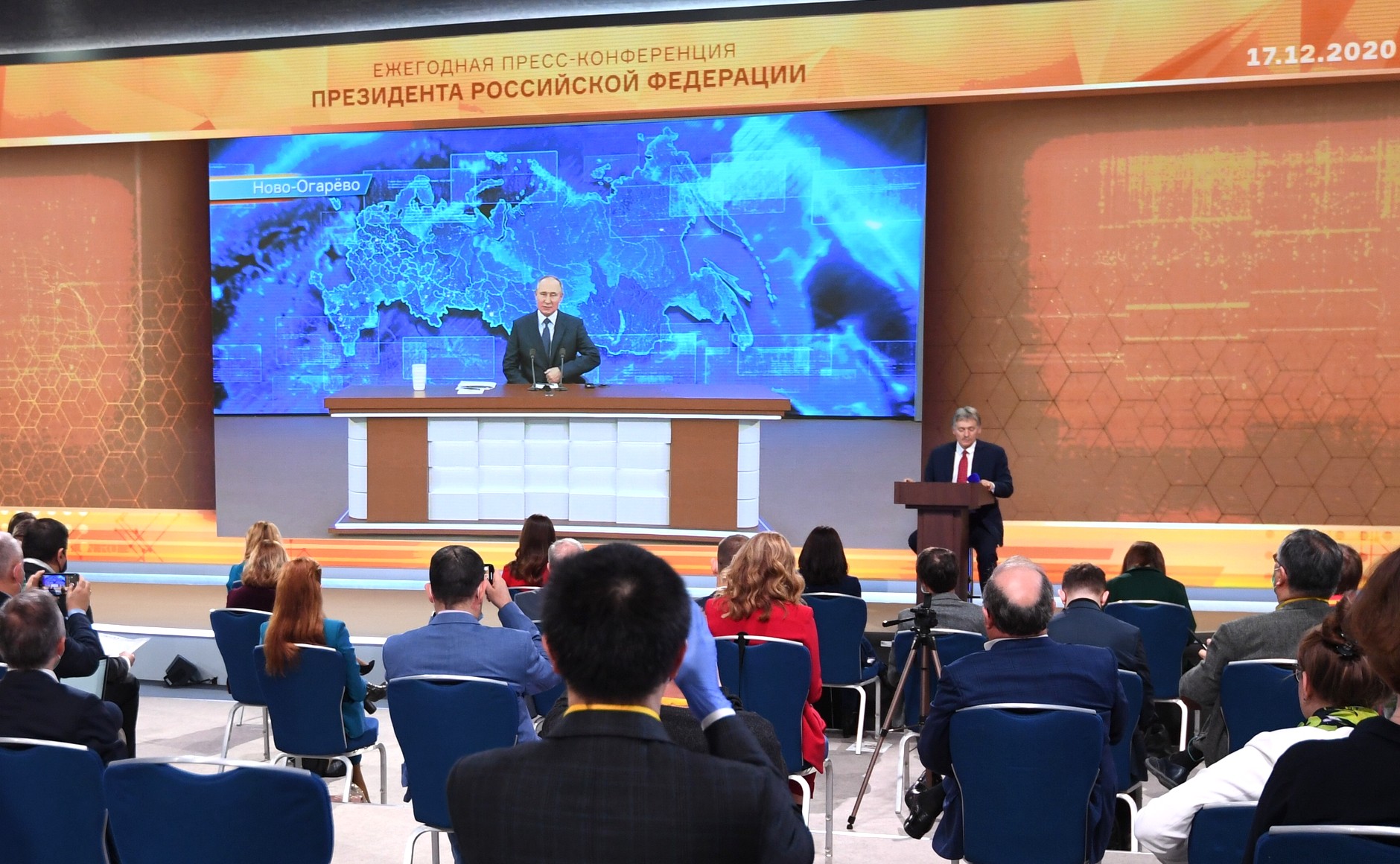 Dmitry Peskov: Let’s move on. Ura.Ru. Anton Olshannikov: Good afternoon, Mr President. My name is Anton Olshannikov, from the Ura.Ru news agency. The epidemic is a problem indeed, but life goes on, and in this regard, I have this compound question about life, concerning elections, the big campaign we are going to have next year. How do you think this upcoming political campaign will differ from the last one? What will the political landscape be like in the country? The second part of my question is about the old mainstream opposition parties. Isn’t it time for them to make way for young parties, and do these young parties even have a chance, given how they have shown themselves at the municipal elections? And the last part of my question is about external interference. It is obviously quite possible, especially since this campaign is so important. How do you intend to block this interference? Thank you.  Vladimir Putin: As for the 2021 parliamentary elections, there will be a few differences, of course, mainly because we have adopted amendments to the Constitution – this is my first point. This means that the parliament now has more powers in a number of areas, including in forming the Government of the Russian Federation. You know, I would like to repeat this again, the State Duma now in fact makes the final decision not only regarding the Prime Minister, but also on cabinet ministers and deputy prime ministers. The President must sign the personnel decisions adopted by parliament. And this – I do not think everyone has fully realised this yet – this greatly augments the importance of the deputy corps’ work, of their responsibility to the country, including for the work of the Government. This link between parliament and the Government is extremely important, I think. This is the first point. Second, about the new parties and whether the old political heavyweights should cede their places to them. This is not for the new parties or for the political heavyweights, that is, the traditional parties, but for our citizens, the voters to decide. They will decide at the elections which parties to support. But does our political system, which continues developing, offer an opportunity for more political forces and parties to participate in the general election campaigns? Yes, it does. I think, no, I am sure that next year up to 16 parties will be taking part in the elections without collecting signatures, as far as I am aware. This is because in accordance with our legislation they have won seats in several Russian regions and therefore have the right to try their hand on the national political stage. I wish them every success, but I would like to repeat that it is for the voters to decide whom to elect. I would like to note in this connection that the traditional parties are well known and have been represented in parliament for many years. It should be said that different, sometimes widely different views are expressed in parliament, where heated debates are held on a number of priority matters facing the country. At the same time, nearly all these parties act patriotically in the interests of the nation while offering their own solutions to the problems the country is facing. Approaches and ways to address problems may differ, but the goal of all our traditional political parties is the same – the welfare and development of the country. Dmitry Peskov: Let us move from Moscow to Siberia now. Novosibirsk, you have an opportunity to ask your question. Anton Vernitsky: Mr President, you have mentioned Novosibirsk as a centre where one of our vaccines has been created. Allow me to take Mr Peskov’s place now and act as a moderator. Can I choose who will ask the question? The thing is that I have seen a poster with the word “vaccine” on it. Go ahead, please, but first introduce yourself. Lyudmila Keibol: Lyudmila Keibol, Altai Territory. Mr President, I would like to ask if you have been vaccinated. What do you think about compulsory vaccination if there are not enough pilot vaccine doses in the regions? The epidemiological situation is quite complicated in Altai Territory. And one more question: will we have enough vaccine doses in Russia if we help out other countries? Thank you. 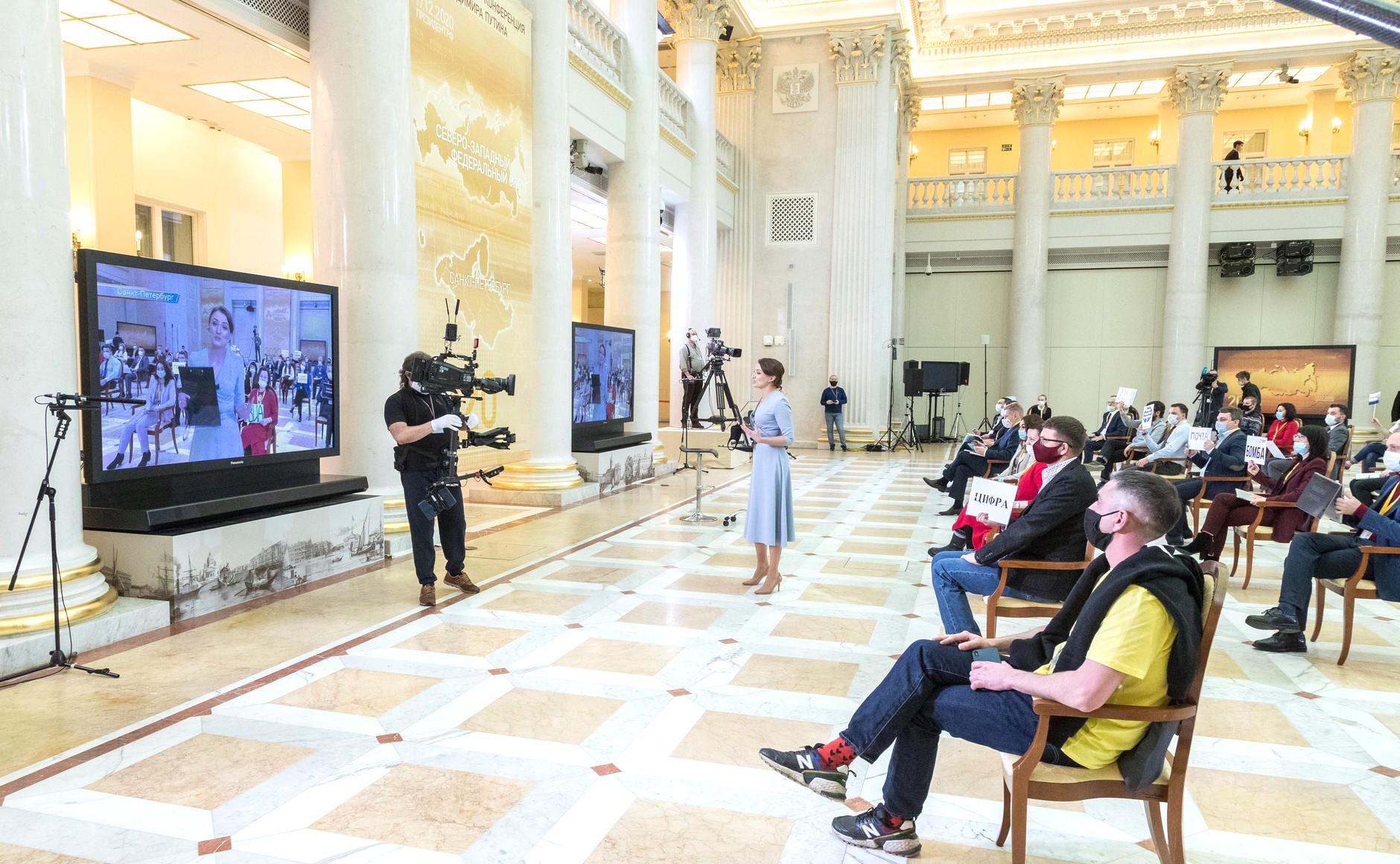 Vladimir Putin: Look here. I urge everyone to pay close attention to specialists’ recommendations. I see, Lyudmila, that you have put on a mask. This is great. And you have gloves as well. Specialists are telling us that the vaccines that are now coming into civil circulation are designed for people in a certain age group. So vaccines have not yet reached people like me. Let me repeat that I am a law-abiding person in this sense, I follow the recommendations of our specialists, therefore I have not been vaccinated yet. But I will do it as soon as it becomes possible. This is the first point. Now the second one: I hear from specialists that it is necessary to have an interval between, say a flu shot and the coronavirus vaccine. Some of them say it should be two weeks whereas others insist it should be at least four weeks. I am referring to the coronavirus vaccine. The third point is about the need for a large-scale or universal vaccination campaign. I think it must be done. It is not only Russian virologists who say this but also their colleagues practically throughout the world. Mass vaccination is one of the few ways of dealing with all pandemic-related issues. It is this vaccination that will create nationwide, community immunity. And let me repeat once again: our vaccine is effective and safe. Therefore, I do not see any reasons for rejecting it. Finally, the next issue that is related to aid to other countries, as you put it. First of all, as I have always said and will say it again because I want all people in this country to hear me, our task is to carry out vaccination inside the Russian Federation. There are some issues in this respect. What are they? The vaccine itself and its components are good. But we are still short of the hardware, the equipment for producing the amount of the vaccine we need. I believe 70 million people have already got flu shots. This is large-scale vaccination all over the country. This is what we must also do to counter COVID-19. But to produce this vaccine, we need corresponding plants, companies and equipment. We will build them. I assume that all plans in this respect will be carried out. Next year, in the very beginning, we will already have millions of vaccine doses and we will keep increasing its production on and on. With regard to cooperation with other countries, since we need time in order to boost the technological capabilities of our enterprises to produce the vaccine, nothing is preventing us from producing the components of this vaccine in other countries, which will invest their own money into expanding their production capacities and purchasing the corresponding equipment. This is what I am talking about. In no way does this interfere with vaccinating the public in Russia. On the contrary, it will even improve the final quality of the product, since increasingly it will be mass produced. Anton Vernitsky: Mr President, let us continue the tradition Mr Peskov started here. (Addressing Lyudmila Keibol.) We would like to present you with a microphone windscreen. The fact is that you used the microphone without wearing a mask. Now you have it, so go ahead and use it. 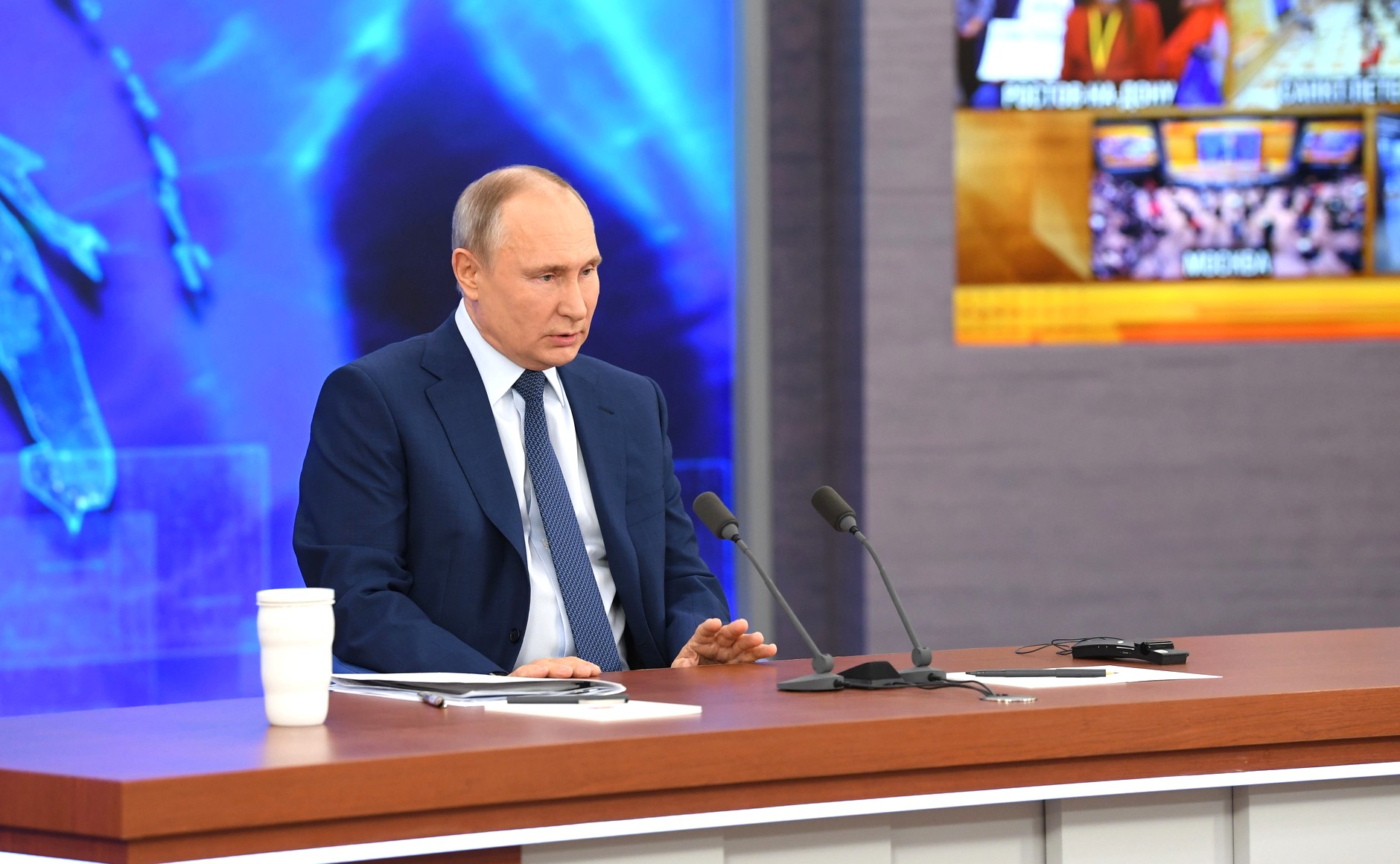 Vladimir Putin: You are a perfectionist, I would say. But never mind. Dmitry Peskov: Let us visit the call centre. Nailya Asker-Zade: The call centre has received many pandemic-related questions, as well as questions about the doctors’ work during this challenging period. These questions were handled by a medical worker and volunteer Alevtina Kiselyova. She worked five months as a general practitioner at an outpatient clinic and saw COVID-19 patients. Good afternoon, Alevtina, Tell us what Russia’s citizens are complaining about. Alevtina Kiselyova: Good afternoon, We received many complaints about serious problems, including testing, getting a home visit by a doctor, and a lack of medications in both pharmacies and hospitals. At times, people waited over a week for an ambulance to arrive. I also handled messages from the “red zone” doctors, which I would like to focus on. Doctors from the town of Kola, Murmansk Region, and the town of Kachkanar, Sverdlovsk Region, have not once been paid a bonus for working with COVID-19 patients. The last time the bonus was paid to the military hospital personnel in Nizhny Novgorod and the doctors at an infectious disease hospital in the city of Tver was September. We have received many requests from those who are risking their lives just as doctors but do not receive any additional payments for this. These are the support personnel – lift operators, cleaning staff and canteen workers. They are working in the risk zone, and the operation of the “red zone” would be impossible without them. I feel sorry for those who are at the forefront of the war against the pandemic but do not feel appreciated. Mr President, we have a large number of questions regarding this, and we can give them to you so that you would issue instructions on dealing with every one of them. Mr President, is it possible to settle this problem? Vladimir Putin: Thank you. Alevtina, was it you I talked with yesterday? Alevtina Kiseleva: Yes, I talked with you yesterday. 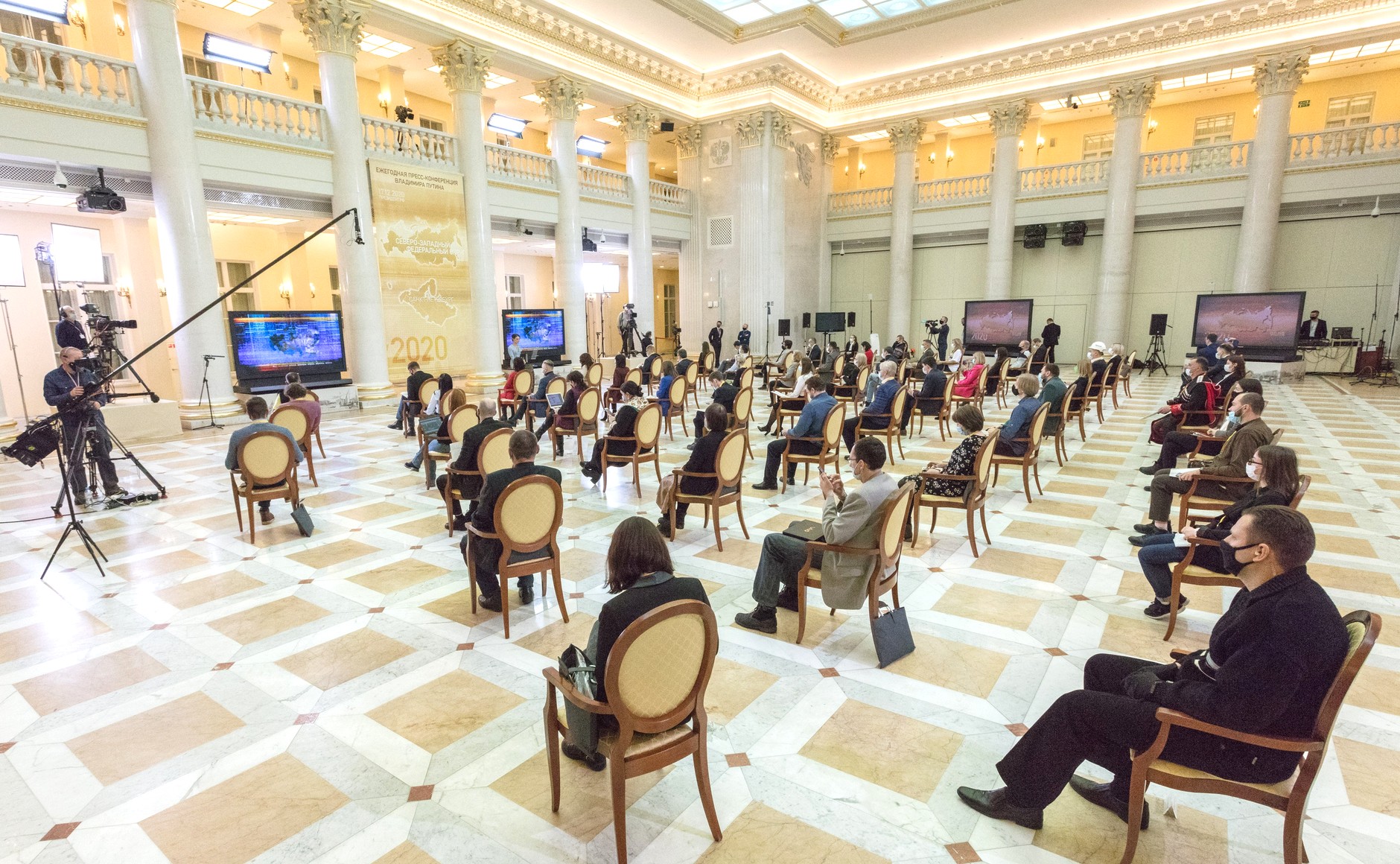 Vladimir Putin: I see. I have a question from the call centre, possibly from you, from the Ryazan Region: “We live in a small town, and we never have access to medications, free medications. Why do coronavirus patients have to pay for their medications? They said that confirmed cases would receive free medications, but we do not. Everyone I know is buying their own medications. Where is the money?” I would like to know this too. It is from Vladimir Korshunov, Ryazan Region. Alevtina, this is what I would like to tell you and all those who have sent in their questions, including Mr Korshunov. We have indeed allocated 10 billion rubles to the regions for a prompt response to arising problems connected with the purchase of PPE and the preparation of medical centres and facilities for dealing with COVID. We have also allocated 5 billion rubles, or even slightly more, for the provision of free medications to those who receive treatment at home. As for the Ryazan Region, I know for sure that all the approved allocations have been transferred from the federal budget to the region. It is not clear why these medications are not provided to the people; we will definitely look into the matter. Here is the procedure for receiving free medications: notify your outpatient clinic, which should confirm the diagnosis and provide the necessary medications. Alevtina, we will systematise the complaints that you received, and respond to other similar complaints and requests. To reiterate, we gave 10 billion to the regions for institutions and personal protective equipment, and 5 billion to help people directly. Of course, we will investigate where this money went. All the money from the federal budget was made available to the regions. Some governors – I am in constant contact with all of them – are reporting back to me that the money is being disbursed. There may be, of course, isolated irregularities, I hope that this is the case. Judging by the number of complaints, though, these are not isolated instances, but a widespread problem. We will definitely take a closer look at it. Alevtina Kiselyova: Thank you very much. Dmitry Peskov: Let us go back to the World Trade Centre. Introduce yourself, please. Pyotr Marchenko: MIC Izvestia, REN TV channel. Good afternoon, Mr President, Thank you for the vaccine. Above all, thanks go to the researchers. However, talk about fighting the pandemic has overshadowed the issue of the origin of that scourge. The debate continues until now, with the United States accusing China, and China accusing the United States of the virus being man-made or non-man-made. What do we know about it? Perhaps you ordered the special services to get on it and find out the source of the problem? 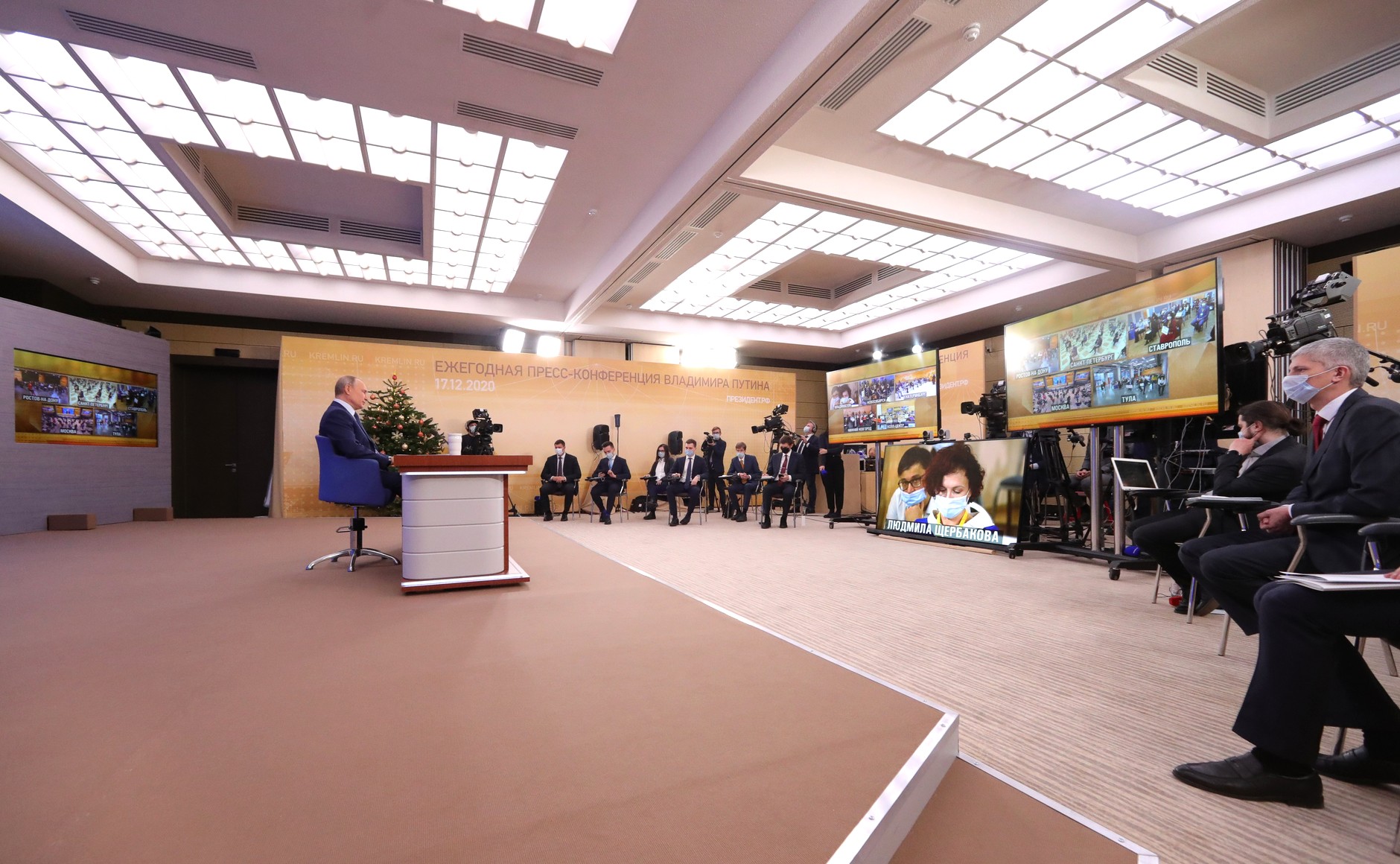 Vladimir Putin: There are many rumours regarding its origin. I do not feel like discussing this in front of the entire country and the whole world, especially since we do not have any evidence to back up these accusations. I think we need to join our efforts in combating the problem rather than look for the culprits. Cooperation will be the right thing to do. This is my first point. Secondly, some of our Western partners never stop emphasising that they adhere to humanistic principles in their domestic and foreign policies. So, we should think about how to help the people in particularly difficult circumstances and lift trade restrictions and sanctions for the countries and areas of cooperation that are critical for overcoming the pandemic fallout. Perhaps restrictions on supplying medications, medical equipment and doctor training should be lifted in the first place. This is what everyone should be thinking about rather than looking for the culprits. I have to note that, fortunately, we are developing cooperation with many countries, including the People’s Republic of China, at the level of specialists, regional heads and at the federal level. As for the tasks assigned to the special services: there are many various tasks, of course, but I believe this is not the right place to discuss how these tasks are fulfilled. One of the earlier questions was about possible interference in our elections. I am sorry, I did not respond to it, but not because I do not want to answer it. I just thought there are other issues that are more important, and focused on them. But this is a general question. Of course, they will try to interfere, they always do, and not only in our elections, but almost all over the world. This is global policy. Just like there are bases all over the world, there is interference on a worldwide scale. We know about it and are getting ready for it. But we will be able to efficiently block it only if the overwhelming majority of our citizens understand that a) it is interference, b) we must counteract it, and c) it is unacceptable and we must determine our destiny ourselves. It is very important that our society feels this. Therefore, the sentiments of internet bloggers, the sentiments of the media and their intention to protect themselves is a crucial thing, the protection of our sovereignty. At the same time, of course, we are open to cooperation with our partners and international observers. I think there is no such transparency anywhere else in the world. In some US states, you know, there are over a dozen states where it is prohibited for any foreign observers to attend the elections. We are nothing like that. On the contrary, we are open, we will work, and observers inside the country are working actively, including public organisations, the Civic Chamber, and others, and they are allowed to take part as observers. There are more opportunities for political parties and the media to observe the political processes inside the country, as it was before. We will definitely boost this activity to make our citizens confident that the elections are open and transparent and that their results should be respected. Dmitry Peskov: We will stay at the World Trade Centre. Alexander Gamov, one of the most prominent members of the presidential pool, go ahead, please. Alexander Gamov: Mr President, first, thank you very much for holding this countrywide gathering, I almost called it a Union-wide one, since it is so great for us to come together at this time and get an opportunity to tell you the truth. In general, you know that the coronavirus has dealt a heavy blow to the standard of living of many people. I come from the regions, and I get a lot of phone calls from there with people saying that they find it extremely difficult to get by, worse than ever before: poverty is on the rise, and poor people are getting even poorer, with unemployment, the falling ruble, growing prices and higher mortality. Also, I wanted to tell you that prices have been gradually increasing since about September or August. Why did it take until December to start talking about it? A minister would not sweat until cornered by the President, it seems. Could you tell us, please, whether there is a programme for resolving the issue with growing prices within a week, as you have said? Does the President or the Government have a programme to help Russia in the coming weeks? Thank you very much. I represent the Komsomolskaya Pravda website, radio station and newspaper. Alexander Gamov. 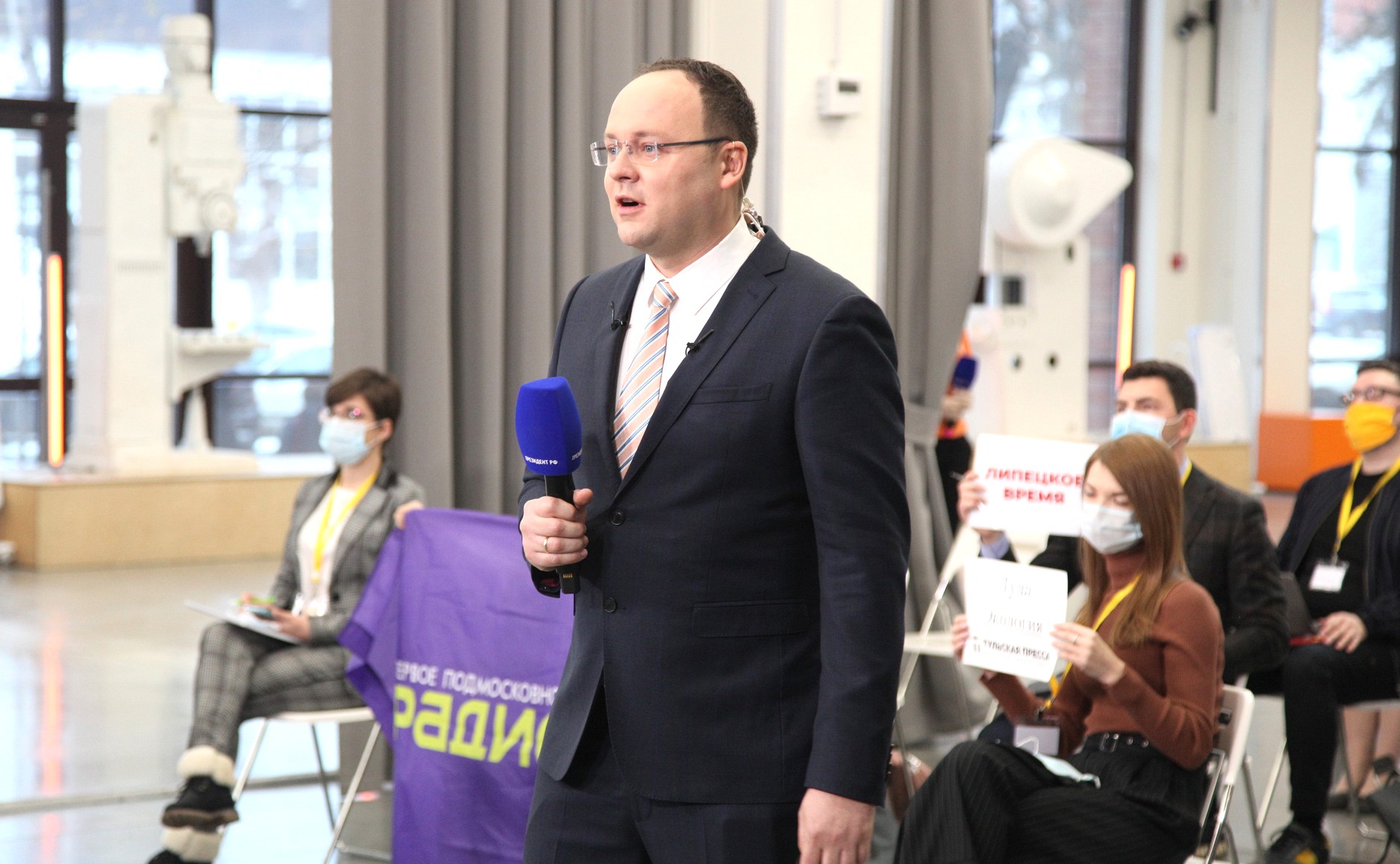 Vladimir Putin: As I have said at the outset, this is a challenging situation. When I said that the pandemic caused the shutdown of several manufacturers, rising unemployment and a decline in disposable incomes, these were not empty words, and not something that can be overlooked. This means that we see and understand what is going on. You said that things have never been as hard as they are today. This is not so. In 2000, 29 percent of the population lived below the poverty line. Almost one third of the country earned less than the subsistence level. One person out of three lived below the poverty line earning less than the subsistence level. In 2017, we had 12.3 percent of the population below the poverty line. Unfortunately, today this level increased to 13.5 percent, due to all these problems. Of course, 20 million people is still too many. You asked me whether there is a plan. Of course, there is a plan. Reducing the number of people below the poverty line is one of our key priorities. Let me elaborate on this subject. First, here is the plan: by 2030, we need to bring down the share of the population living in poverty from the current 13.5 percent to 6.5 percent. Having 6.5 percent of the population earning less than the subsistence level is still not good, but we need to be realistic. This is a far-reaching, but feasible goal. This is the first point I wanted to make. Now about prices. It is true that some prices are growing for objective reasons, for example, because the cost of their component parts has increased due to changes in the exchange rate. This is inevitable. Some products are only assembled in Russia, and we are now paying more for a large share of component parts, which have become more expensive because the ruble has slumped a bit. But when the price hike is not related to objective reasons, this provokes a painful reaction. This is what made me angry, frankly speaking. For example, although we had a record large harvest this year, the largest harvest in the past six years – it will be 131 million tonnes and possibly even 134 million tonnes this year, yet bread and pasta prices are growing. How is that? Why? This is the first thing I wanted to say. Second, sugar. I was told in the past that we should do something about cane sugar so as to support our own producers. We did so, in a number of ways, but not because we wanted to create a shortage on the domestic market. The minister has told me that we produce enough sugar for domestic consumption. But how can it be enough if sugar prices have soared by 75 percent? Or take sunflower oil: prices have grown by 17 percent. Is there a shortage of sunflower seeds? No. There is also plenty of that. Why did it happen then? Because prices have grown on the global market, and so our producers increased exports and started adjusting domestic prices to global ones, which is absolutely unacceptable. This is why we had such a tough discussion. The Government has responded. The main thing now is not to go too far with disciplinary action. This should have been done before with market measures; we should have adjusted the import duty, and this would have solved the problem. These are well known instruments, but they should be used on time. I hope we will do this now. Contracts have been signed or will be signed – I think they have already been signed – between producers and retail chains: producers will bring down their prices to a certain level, and the retail chains should do the same for basic foods. Of course, prices need to be monitored, and we will certainly do this. I hope to see the required changes within days, or weeks at the most. Now about what can and must be done and what we are doing to help the people in this difficult period. To begin with, we have substantially increased unemployment benefits since the unemployment rate has grown from 4.7 percent to 6.3 percent. This is common knowledge. But the most difficult situation is taking shape in families with children, and we have created a whole programme to support families with children: from zero to 1.5 years, from 1.5 to three years and from three to seven years old. We have introduced an allowance for toddlers from zero to 1.5 years, and the rules are as follows: if every family member receives less than two subsistence minimums (at first, it was was 1.5, but later we expanded this programme and now it covers more people), such families are entitled to receive one child subsistence minimum for every child. As for children from 1.5 to three years of age, if their parents’ incomes are below these levels, they can receive the same payments but from the maternity capital: we have given them the right to receive these funds from the maternity capital. And, finally, for children aged between three and seven years we have introduced the following rule: if the income of each family member is below the subsistence minimum, they will start getting half of the subsistence minimum per each child. However, we decided from the very start to analyse this situation and see how it will affect the incomes of families. If not all families reach one subsistence minimum per member, starting January 1, that is, in two weeks from now, we will be already paying them one subsistence minimum for every child. These are, so to speak, urgent measures to support Russian families. I did not mention lump sum payments for all children under 16. And then there is support for the labour market. We will probably talk about it later on, and I will speak about it separately, so as not to drag out the answer to your question. However, this is certainly one of the key issues, therefore I allow myself to devote more time to it. But the main point, of course, is that we need to develop the economy, reach the national development goals and implement national projects that contain these goals, create new jobs, raise the economy to a new level meeting the latest requirements, as well as develop artificial intelligence, digitisation and modern production lines that would allow people to have interesting jobs and receive decent incomes. The entire package of our measures envisaged by the national projects is aimed at reaching these goals.  Dmitry Peskov: Let’s not forget about the regions. Yekaterinburg, please. We have not had any questions from Yekaterinburg yet. Olga Armyakova: Colleagues, good afternoon. This is Yekaterinburg, the capital of the Urals. We are broadcasting from the office of the presidential envoy, where journalists from all over the Ural Federal District have gathered. Accreditation has been approved for 70 journalists, but only 69 are present now. We learned why just a minute ago. Colleagues, I must share this with you: a journalist from a local news agency could not come to the news conference because she had a son yesterday. I think that is a good reason, and that you, Mr President, will accept it. As for the others, you can see that they are all ready to leap into action, to ask their questions. Mr Peskov, what will we do? Will you choose the questions yourself? Dmitry Peskov: Can you show me the room? Olga Armyakova: Yes, of course. Dmitry Peskov: Show me the room, please. Right there, in the front row, with the “Waste” poster. Let’s have your question. Olga Armyakova: The front row, please, go ahead. You can remove the face mask, and don’t forget to introduce yourself. And then ask your question. Olga Balabanova: Good afternoon, Mr President. Olga Balabanova from Magnitogorsky Metall newspaper, Magnitogorsk. I have an environmental question, about waste management reform. As everyone is aware, it was officially launched in January 2019, but in fact it began long before that, five years ago. At any rate, a concession agreement was signed and a project was drafted in my city in 2015, but it came to a halt at the government expert review level. It looks as if they have started building [the recycling plant] now. Why is the reform, which is vitally important for the whole country, dragging on in all regions, and what can be done about this? 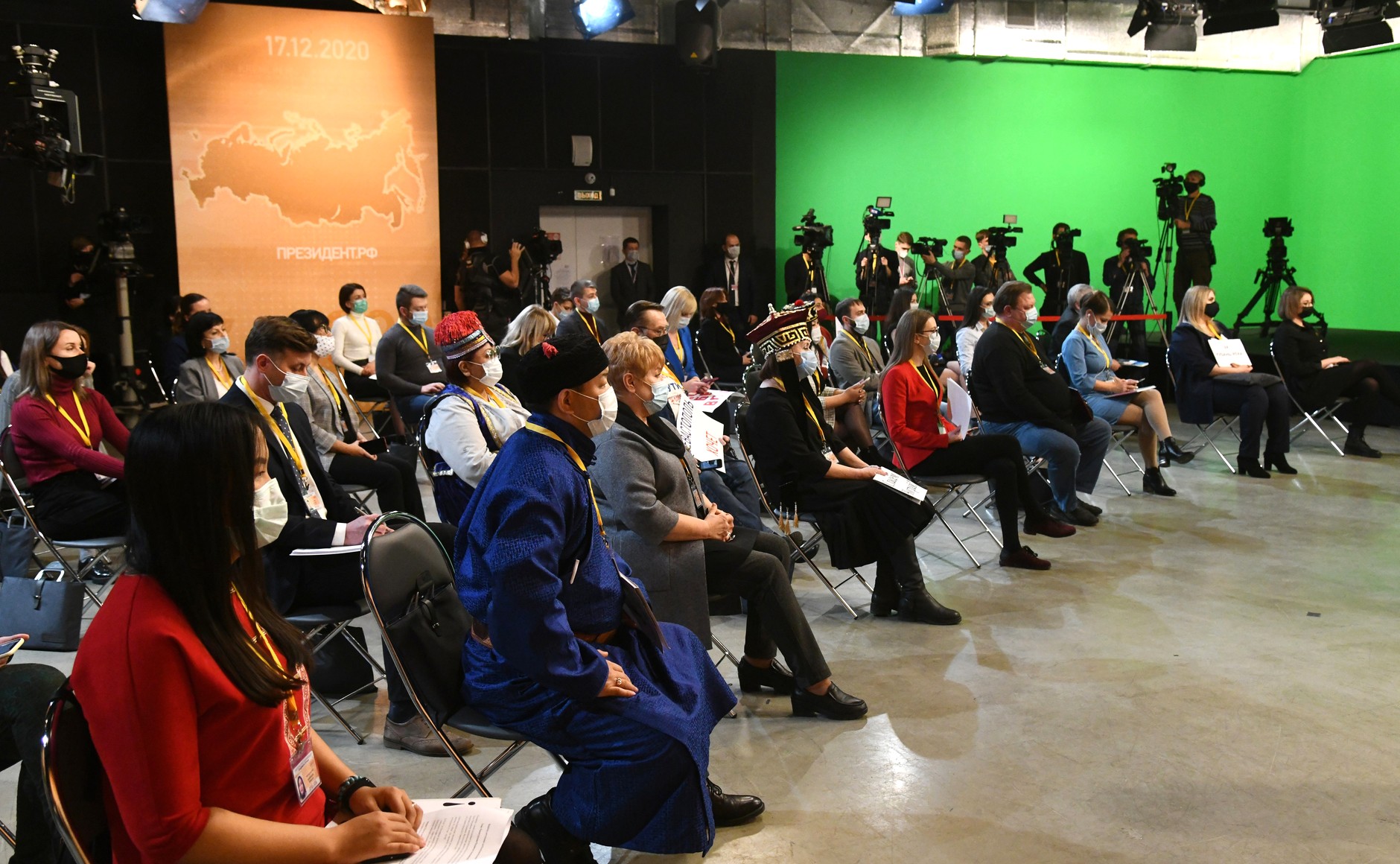 Vladimir Putin: I do not think it is dragging on, this reform. There are many problems with organising production but the reform itself is proceeding. There are several large objectives. First, we must create a new industry, full-cycle production, when waste is not taken to landfills but recycled for use in other sectors. This is the first objective. Second, we must ensure proper waste sorting so that by 2030 waste can be separated into different groups for subsequent recycling. Currently, one of the tasks for the organisers of all this work is to ensure that manufacturers and packaging companies carry more responsibility so that the burden of waste disposal could shift from customers to packaging producers. Overall, this is a practice typical almost everywhere in the world, and we will adhere to this very practice. For example, in car manufacturing, we charge a recycling fee. It works in our country and in the rest of the world. The same needs to be done in these areas. I assure you that the Government is dealing with this, as are regional authorities. And they will continue to work on this, no question about that. We allocate substantial resources for these efforts, and there is a solid plan. This money will not be reassigned to any other purpose, and this work will be completed according to plan. Since you are from Magnitogorsk, you know, one of the questions I have here has to do with Magnitogorsk and atmospheric emissions. The person asking the question wrote about what is happening in Magnitogorsk in relation to atmospheric emissions. Frankly speaking, I was a bit surprised because I know that over the past few years, the Magnitogorsk Iron and Steel Works has invested significant resources into upgrading its production facilities with the specific intention of reducing emissions and, according to the reports I received, the emissions have indeed decreased. And then I read this. Olga, what do you think? What is happening in Magnitogorsk in terms of atmospheric emissions? Olga Balabanova: Perhaps, as a patriot (I work for a newspaper associated with this plant), I believe that if waste treatment facilities were built, it is not a window you can open or close, as one of my friends says. It is an entire complex of facilities. My fellow residents may tear me to pieces for my words, but I think that many people take the fog they can see over the left riverbank for smog. In fact, the tank was separated from the plant with a closed circuit system. The water there is warm and does not freeze, which often produces fog. People look at it from the right bank and think that they see smog over the left bank. There are other production facilities in the city, such as a poultry factory, that may produce the smell that people often notice. But I do not think that the situation is as critical as they like to inflate it on social media. 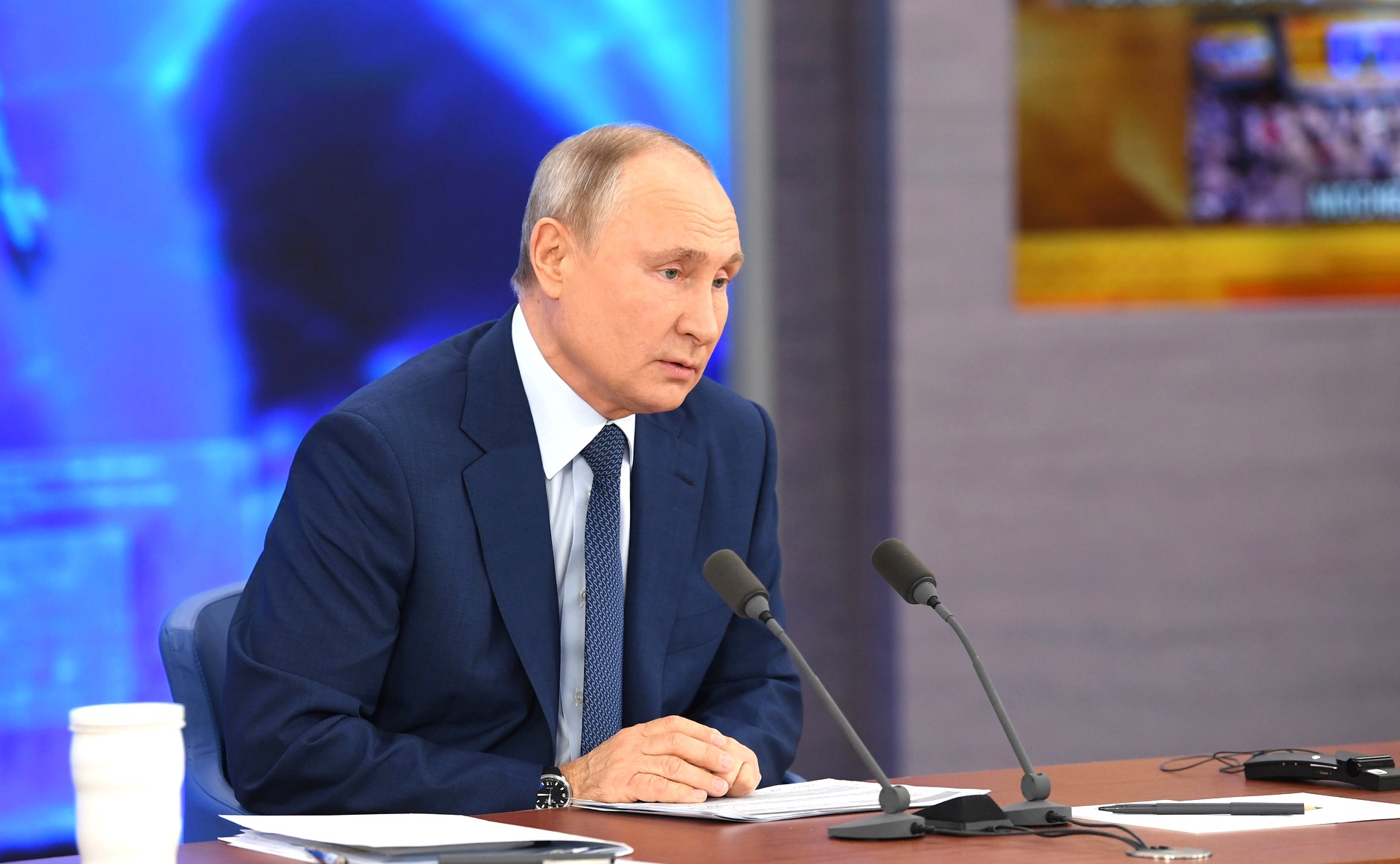 Vladimir Putin: Right, but this inquiry did not come from social media but from a specific person in Magnitogorsk. It is not social media. Olga Balabanova: We read about this on social media as well. Perhaps there is a problem, but the plant is dealing with it, and I do not think these are just idle promises. Vladimir Putin: I asked because I know that the plant has invested heavily in reducing emissions, much more than other metallurgical production centres. And in fact emissions have gone down, when measuring in tonnes. So, this came as a surprise to me. It seems that this matter does deserve some attention in general. Speaking about the environment, we are working on deploying a network of sensors across the country where polluters are especially active. Metallurgical production centres will be first on the list, and the system will be paid for by the companies themselves. I believe we will act accordingly in Magnitogorsk, and we will closely monitor, probably in a more objective manner what is happening there. Thank you very much. You know, there was a question earlier, if I may interrupt our presenters, on teachers’ salaries. “A top-category teacher in a rural area working 18 hours, which is full-time employment for a teacher, earns the same salary as a cleaning lady at the same school” – this is what Sergei Stepanchenko wrote us. This is a burning issue. This is why I picked it from this folder with many similar questions. Do you see what has happened here? I will tell you what happened and what needs to be done. Why did this happen? We took a decision that the minimum wage cannot be below the subsistence level, which led to an increase in salaries. This led to what you mentioned in your letter: the minimum wage cannot be less than the subsistence level, so the minimum wage went up, and a cleaning lady no longer earns less than minimum wage. She now has a higher salary. This had to be accompanied by an increase in salaries for other categories, but it was not done due to budget constraints. But the government will have to do this regardless. For this reason I would like to draw the Government’s attention to the fact that this state of affairs is far from normal. Dmitry Peskov: Let us go back to the World Trade Centre. We gave the floor to the most seasoned journalist here, now I want to give the floor to an aspiring journalist. I saw Sergei Shnurov there. Please give him the microphone. Sergei Shnurov [Leader of the "Leningrad" band]: Good afternoon, Mr President, Sergei Shnurov, RTVI international channel. I will leave the high-profile questions about Navalny to my colleagues, I will be nicer this time. Since I work for an international channel, my question is as follows: why did Russian hackers not help Trump get reelected? Have they all gone to the Silicon Valley already? No one is left behind, as you like to say. What kind of job can Trump count on now? Will you provide him with shelter if he asks for political asylum, like Snowden? This was an open-ended question coming from the channel. Now, a question from me: how can an ordinary Russian, someone representing the majority of the population in our country, describe this life without using profane language? 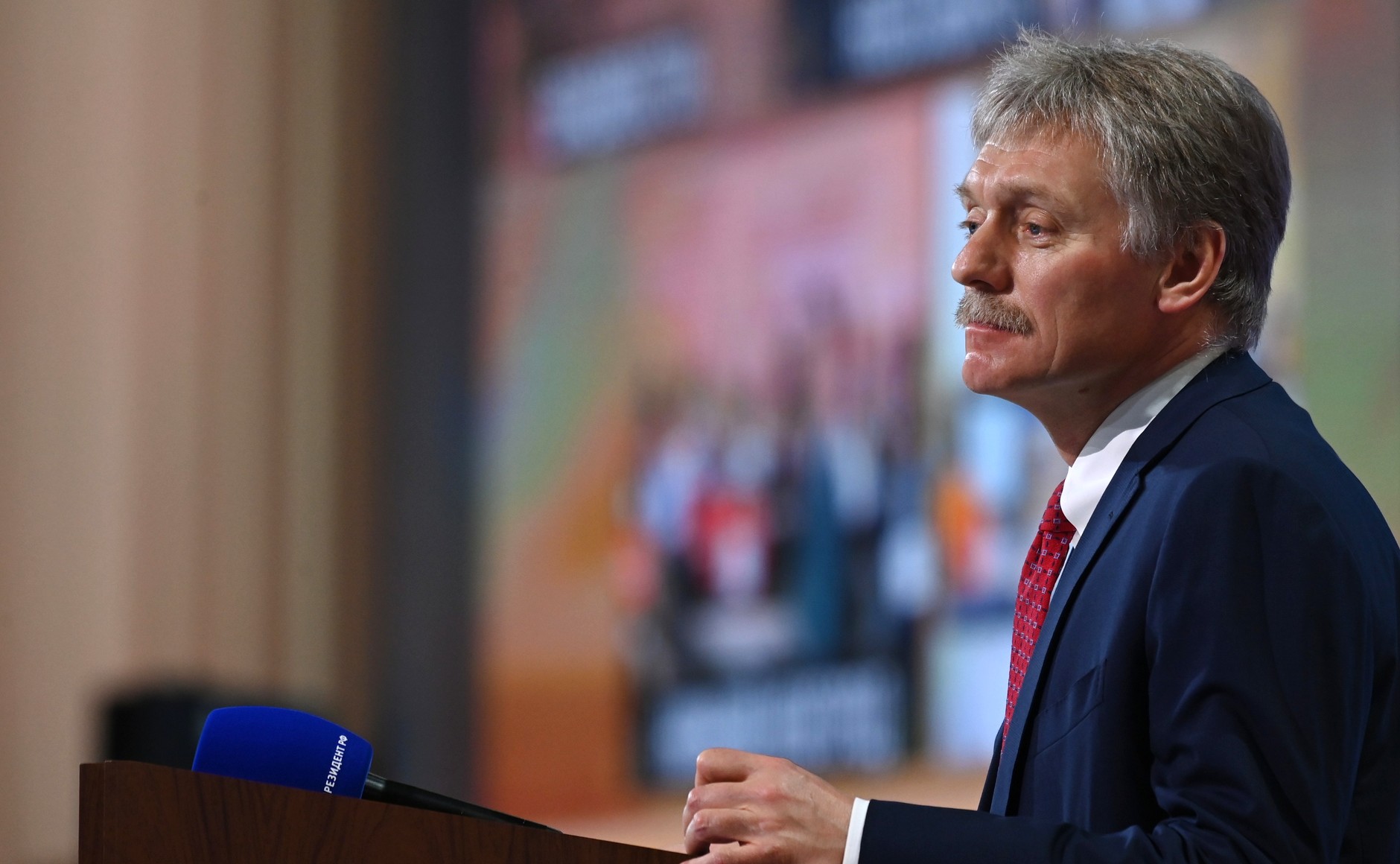 Vladimir Putin: I will start with the final part of your question. Just go back to the classics of Soviet cinema. Remember, when you have a radiator section land on your foot, you should say, “you dirty so-and-so?” instead of using curse words. Russian is rich enough to let anyone get his or her message across clearly and intelligibly, without resorting to the strong language you referred to. I want to thank you for not using it now, as you sometimes do, as I understand, from stage, addressing large audiences. Thank you very much for being courteous today. Why did Russian hackers not help Trump get reelected? I believe that this is not so much a question as a provocation. Russian hackers did not help the incumbent president of the United States to get elected the first time around and did not interfere in the domestic affairs of that great power. This is nothing but speculation and an excuse to degrade relations between Russia and the United States. This is an excuse to not recognise the incumbent US president’s legitimacy for domestic US considerations. In this sense, Russia-US relations have become hostage to domestic politics in the United States. I believe that, primarily, this is bad for the United States, but it is up to them, let them do as they please. We believe that the president-elect will figure out what is going on. He is a seasoned politician both in domestic and foreign affairs. We look forward to the new administration resolving at least some of the existing problems. I do not think Mr Trump will need to look for employment. Almost 50 percent of the people voted for him, if you count the number of registered voters, not electors. He relies on a fairly large base in the United States and, as far as I understand, is not going to leave his country’s political scene. Dmitry Peskov: Let us now turn to Novo-Ogaryovo and the Kremlin pool reporters, who are in the same room with the President. LIFE, go ahead please. Alexander Yunashev: Good afternoon, Mr President. I will take the advice from the young reporter. A number of interesting investigative reports have been released lately, for example, about your daughter, your former son-in-law Shamalov and other people who are allegedly close to you. This week the Alexei Navalny investigation also came out. Could you tell us why a criminal investigation into his poisoning and who did it has not been launched until now?  Vladimir Putin: I see. It is no surprise that these fake news stories emerge. It has always been this way and always will. There is a battle unfolding in the media space. Nothing new here. Do you remember the terrible developments in the Caucasus and efforts to fight international terrorism? How was yours truly portrayed by the international media and, unfortunately, in Russia as well? Remember how they portrayed me with fangs? I remember all this very well. Still, I have invariably proceeded from the premise that I need to be doing what I believe to be right for our country. When I do something, I do it not for the sake of pleasing someone abroad. This is the first part of my answer. The second part has to do with my close ones. This report is impossible to read. I flipped through it, since it talks about me, it seems, but it is such a cut-and-paste job, with so many things piling up, that I was unable to finish reading it. What did I want to point out in this regard? The report keeps repeating “the president’s son-in-law” over and over again. At the end, however, he is referred to as the former son-in-law. This is the first thing I wanted to say. Still, in the text they keep driving home the message that he is my son-in-law. So this goes for point one. The second point is about “President Putin forbidding the elite to hold overseas assets.” There is no ban preventing the elite from holding assets abroad. Public servants cannot have financial assets abroad. This was the right thing to do. They cannot hold accounts or other financial assets abroad. The company in question is 100-percent private. The state does not own a single share in it. The next question: who received shares in this company and how? It turns out that the company released a statement on this matter and what it thinks about these allegations. The company had a compensation scheme for its senior executives, and Mr Shamalov received stock just like all other senior executives. There are also other programmes for executives at a different level, and they received stock following a different scheme. Nothing special here. But ultimately, in my opinion, the most important thing is this: just now, aspiring journalist Shnurov asked about our hackers. What is written in the beginning? Note that it says that an unknown, anonymous person is pursuing goals we do not understand and then, apparently, this anonymous person is tracked down. What do I mean? It is said that what happened is similar to the events in 2016 when outlawed Russian hackers associated with Russian military intelligence hacked US Democratic Party members’ emails. Here is your anonymous person. I think we know who that is. Who called these hackers outlaws associated with Russian military intelligence? It was the US Department of State and US intelligence agencies, which are in fact the authors. At any rate, it is completely obvious that it was done upon their instructions. This is the first thing. The second is that the reference to the insinuation that our hackers, as they believe, interfered with US domestic policy in 2016 means that the purpose of this is clear. The purpose is to take revenge and try to influence public opinion in our country in order to interfere, of course, with our domestic politics. This is absolutely obvious. It is absolutely obvious to me and, I think, it will also become clear to the majority of readers if they pay attention to the things I have just mentioned. But to this end, I would like to emphasise the following: One should be driven by… now I want to address those who ordered these publications, not those who actually wrote them. I know that if they get an assignment from intelligence services they have to write it. But those who order these kinds of articles, should not be driven by revenge or act on the assumption of alleged exceptionalism; instead, they should develop relations with their international partners based on mutual respect and the fundamental standards of international law. Then we will be able to achieve shared success in the areas that are essential to all of us. Now, with regard to the patient of a Berlin clinic. I have already mentioned it many times, and can repeat only certain things. Mr Peskov told me just yesterday about the latest speculations in this regard concerning our special service officers’ data and so on. Listen, we are perfectly aware of what this is all about. It is about legalisation the first time around and now. This is not about an investigation. This is about legalising the materials from the US special services. Do you really think we are unaware of the fact that they are tracking locations? Our special services understand this well and are aware of it. Officers of the FSB and other special services are aware of it and use telephones whenever they believe they should not be hiding their location, etc. But if this is so – and rest assured that this is so – it means that this patient of a Berlin clinic has the support of the special services, those of the United States in this particular case. And if this is the case, then it gets interesting and the special services should, of course, be looking after him. However, this does not mean at all that he must be poisoned. Who cares about him? If they really wanted to, they would have, most likely, carried it through. His wife addressed me, and I gave the green light to have him treated in Germany that very second. There is one important thing that the general public is not paying attention to. It is a trick to attack the people at the top. Those who perform it thus propel themselves up to a certain level where they can say: see who I am talking to? I am a person of the same calibre, so treat me as a person of nationwide importance. It is a well-known trick that is used in political dealings around the world. I think, though, that something else, not these tricks, should be used to gain people’s respect and recognition. You need to prove your worth either by doing something important or by putting together a realistic programme with specific goals that can be implemented in a particular country, Russia, in this particular case. I urge the opponents to the current government and all political forces in our country to be led not by personal ambitions, but by the interests of the people of the Russian Federation, and to come up with a positive agenda in order to overcome the challenges facing the country. And we have many of them.  Dmitry Peskov: Moving on to Rostov-on-Don. Go ahead, please. Aina Nikolayeva: Good afternoon, Mr President. Good afternoon, colleagues. We are here at Don State Technical University. This is where the staff for the region’s major manufacturers like Rostselmash is educated. But today we have people with a humanities bent, mostly my colleagues, journalists. If you allow me, I will not waste your time anymore and pass the microphone to them. Sofia Brykanova: Good afternoon. Thank you for giving me the opportunity to ask a question. Mr President, I have what has become a traditional question for your news conferences, about Donbass. It is invariably relevant to our region. Aina Nikolayeva: Please, introduce yourself. Sofia Brykanova: I am sorry. Sofia Brykanova, Don-24 news agency. I have the following question: what prospects do you see for settling the conflict in Donbass and what, in your opinion, does the future hold for Russian-Ukrainian relations? Thank you. 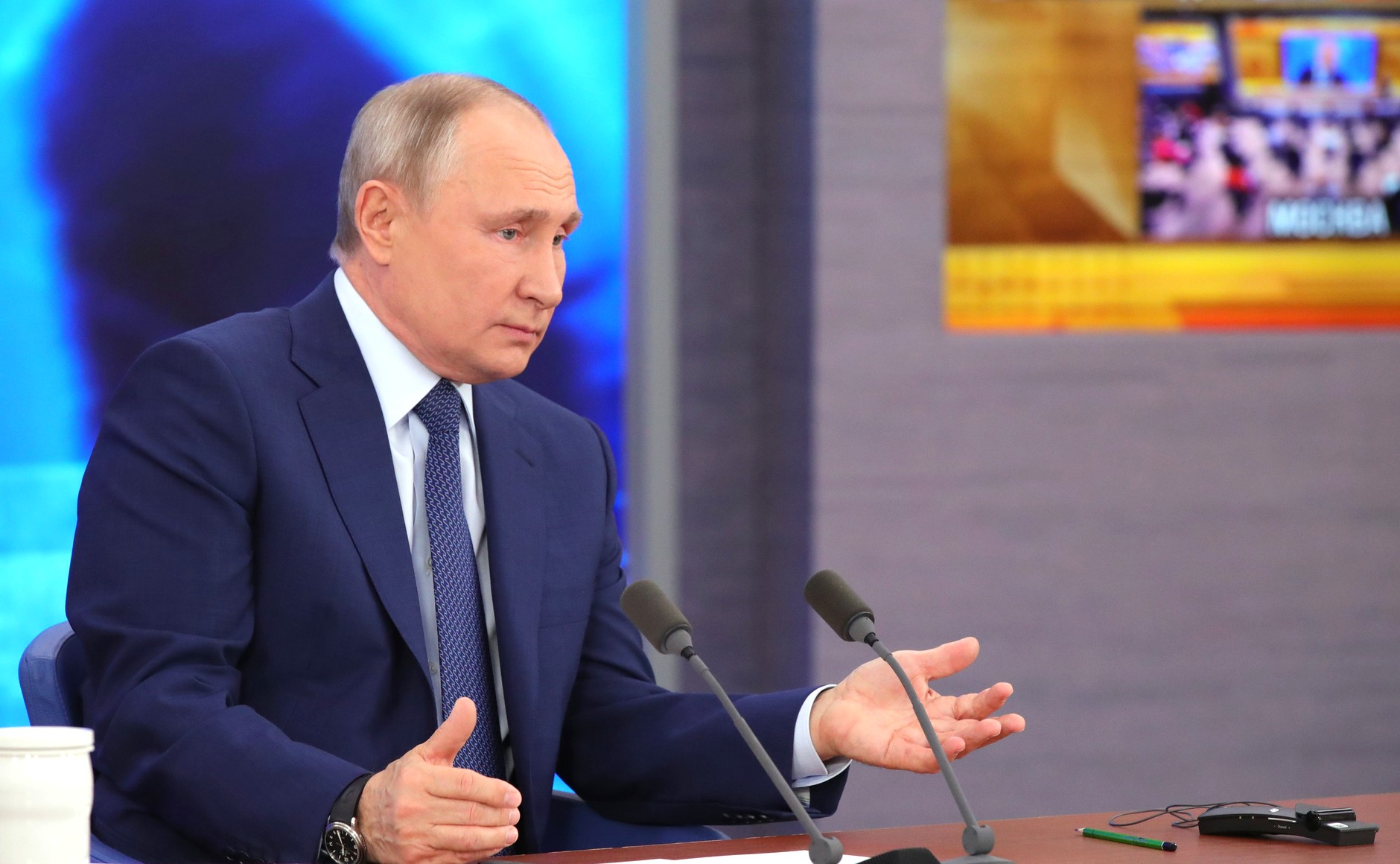 Vladimir Putin: Regarding the future of Russian-Ukrainian relations, this largely depends on the Ukrainian government, rather than Ukraine itself, I would say. After all, all the preceding heads of state, just as the current one, Vladimir Zelensky, came to power with slogans on unifying the country, which, at the end of the day, included building a relationship with Russia. But they have not been able to deliver on this promise so far. In fact, on their way to power they garner support from a majority of the people and voters, but when they get there, they hesitate and start looking back at the extreme nationalist forces. I think they simply lack the political courage. And the process stalls. This is what is happening right now, more or less. Thank goodness, when we met in Paris within the Normandy Format, we agreed on ending hostilities. This is holding, which is a major achievement. An exchange of detainees has taken place. However, there has been no progress in removing economic and social restrictions. In fact, nothing has been done to advance a political settlement. Moreover, officials in Kiev have said time and again that they do not intend to abide by the Minsk agreements and have suggested revising their key provisions. I would like to draw your attention to the fact that the Minsk agreements have been confirmed by a UN Security Council resolution, which means that they are international law. As such, they cannot be subject to unilateral revision. They have to respect the other side that signed the agreements, namely Donbass representatives. For these reasons, I believe a settlement is inevitable. It will happen sooner or later. The question is when. Let me reiterate that this largely depends on the current Ukrainian government. Russia will keep supporting Donbass as it has been. We will even increase our support. This includes supporting manufacturing, resolving social and infrastructural issues, etc. We will calmly proceed in this direction. Make no mistake, we understand the complicated situation in Donbass. Again, we will remain proactively involved not only on the humanitarian front, but also through direct cooperation. Dmitry Peskov: Now let’s take a question from Nizhny Novgorod. Nizhny Novgorod, please. Yevgeny Khvan: Good afternoon, Mr President, Mr Peskov. This is Nizhny Novgorod, the capital of the Volga Federal District. We have more than 70 journalists in our studio today. Of course, I can see everybody holding colourful posters. But allow me, as moderator, to choose a question based on the format of this news conference. Mr Peskov, will you allow me or will you choose yourself? Dmitry Peskov: Of course, go ahead. Yevgeny Khvan: Please, colleague with the poster saying “Online.” Since this is an online conference; don’t forget to introduce yourself. Oleg Kashtanov: Good afternoon, Mr President. Oleg Kashtanov. Izvestia Mordovii, Saransk. My question is about online education. This is a widely discussed matter. Last spring, our schools and universities had to switch to distance learning. I would like to know your opinion: do you think our higher education system and our schools tackled this challenge successfully? And could you be very specific? Because people are asking if this online education system is here to stay. And in this difficult time, could it be that the quality of education is declining? And, as a result, are graduates less qualified? 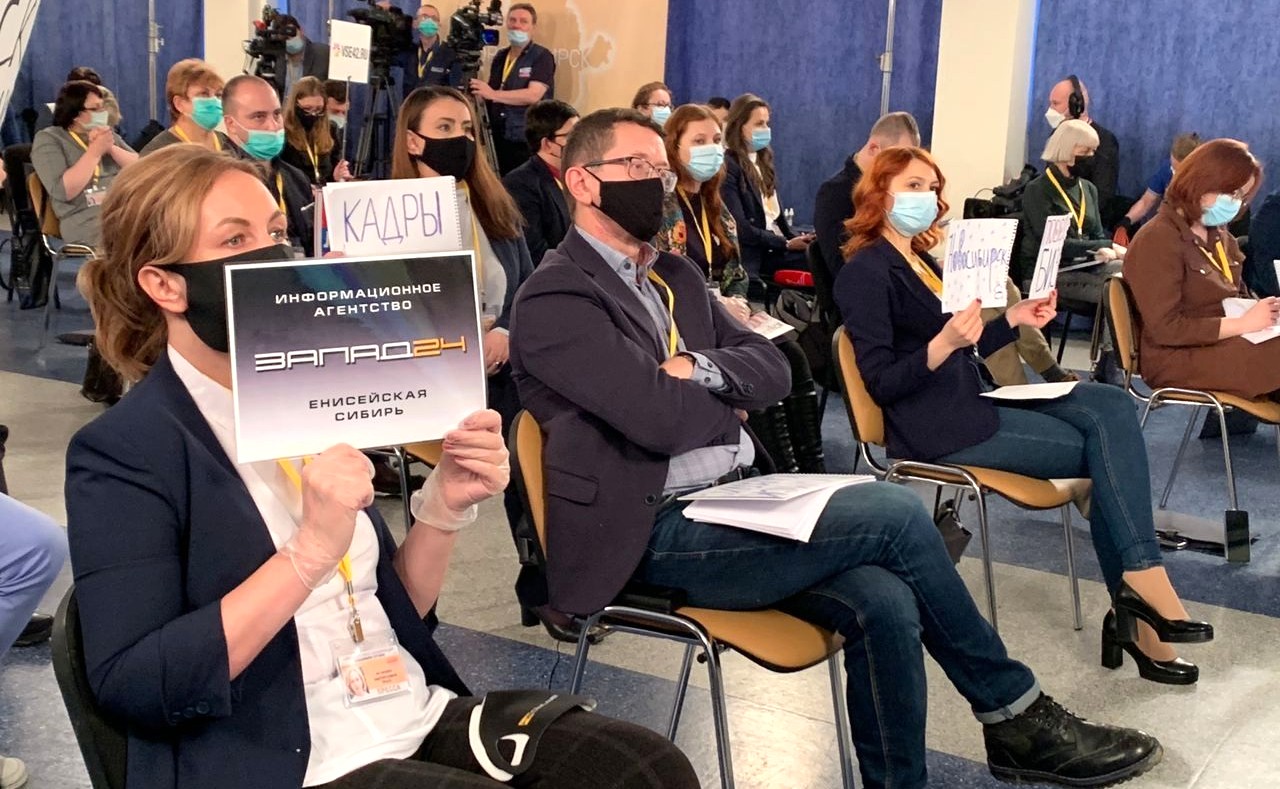 Vladimir Putin: Oleg, look, there should be a distinction between online education in schools and online education in colleges and universities. We have 39,900 schools in the country and only 2 percent are teaching online while a small part are using a mixed format and a major part are operating as normal. As for universities, all of them were asked to consider switching to remote classes. Regarding schools, I have plenty of notes here on their preparedness and technical capability to administer online learning, and I will talk about this in more detail later when I answer the written questions. But, of course, there are problems. There are problems with hardware because many people don’t have computer equipment. There are also problems with internet access and even access to phones. These difficulties exist, especially in small towns. What are we going to do? In 2021, all schools in the Russian Federation will be provided with access to high-speed internet. Some schools already have the internet, but in 2021, all schools must have it. This is the first thing. As for higher education, we have allocated support for universities twice this year, in July and in the autumn, with financial resources to support remote activity. And they are supposed to expand their capabilities in online learning, as independent economic entities, with the government support I just mentioned. This support has been provided twice this year. Now, on the quality of education. Of course, the online format will never replace a direct face-to-face interaction between students and teachers. At any rate, it will not happen for a long time. I think I do not need to go into detail as everybody understands what I mean. Nevertheless, an online format of education will be used; it exists and, of course, will be developed further both at schools and at universities. You know, just yesterday I spoke to some colleagues of mine. What can we project for the future? For example, it is not always possible for an expert in a very specific area to be present in several places at once, at several schools. Besides, this expert may be busy with his or her own research. But he or she can teach online. And we should certainly use this opportunity. The Sirius educational centre in Sochi, which is known around the country, is using it. Many other educational centres, universities and schools are using it as well. This will need to be done in the future as well. People want it, it has become a part of our life, and we need not be afraid of it. However, these capabilities should not be overstated, either. Mass online education is not here for the rest of our lives, not forever. Now, with regard to quality. I think that your real question – I believe you do have a sort of covert question – I said that e-learning will never replace in-person contact. Probably, the quality… In some respects, there is an upside where you can listen to internationally renowned scholars, but in some respects, the quality may suffer. Therefore, a mixed system would be best. There is another aspect, a sensitive one. I am aware that it is important for the students who, in some cases, even go to court complaining that they paid for in-person training, and online classes cannot provide the same quality. I know what they mean and, to a certain extent, I share this view. But there is another side to the coin. If a teacher, a professor or an assistant professor delivers lectures for a certain number of hours, offline or online, he or she gives them anyway, why should they be paid less? You see, this is a big question. If we look at the cost structure of a higher education institution, about 70 percent of it is wages. Therefore, higher education institutions have almost no “extra fat” that they could use to reduce online tuition fees. Otherwise, we would have to close some higher education institutions. Some experts believe there are too many of them, especially in the capital cities, so they need to merge. This question has long been raised by higher and secondary education specialists. I am taking a very careful approach to this matter now: nothing should be overstated here, and you should not get ahead of yourself, either. However, if a university can afford to tweak its finances, then, probably, they can reduce tuition where training is provided mostly online. The state, as I have said, provided financial support twice this year. We are prepared to continue to do so in the future relying on the actual state of affairs in higher and secondary education. Thank you. The source of information - http://en.kremlin.ru/events/president/news/64671
__________________
Where should they dig the Very Deep Pit? Piglet said that the best place would be somewhere where a Heffalump was, just before he fell into it, only about a foot farther on. (c) Alan Alexander Miln |
|
|
#163 |
|
Senior Member
|
Vladimir Putin’s annual news conference - PART II
The President of Russia held his annual news conference. December 17, 2020 - 16:35 - Novo-Ogaryovo, Moscow Region 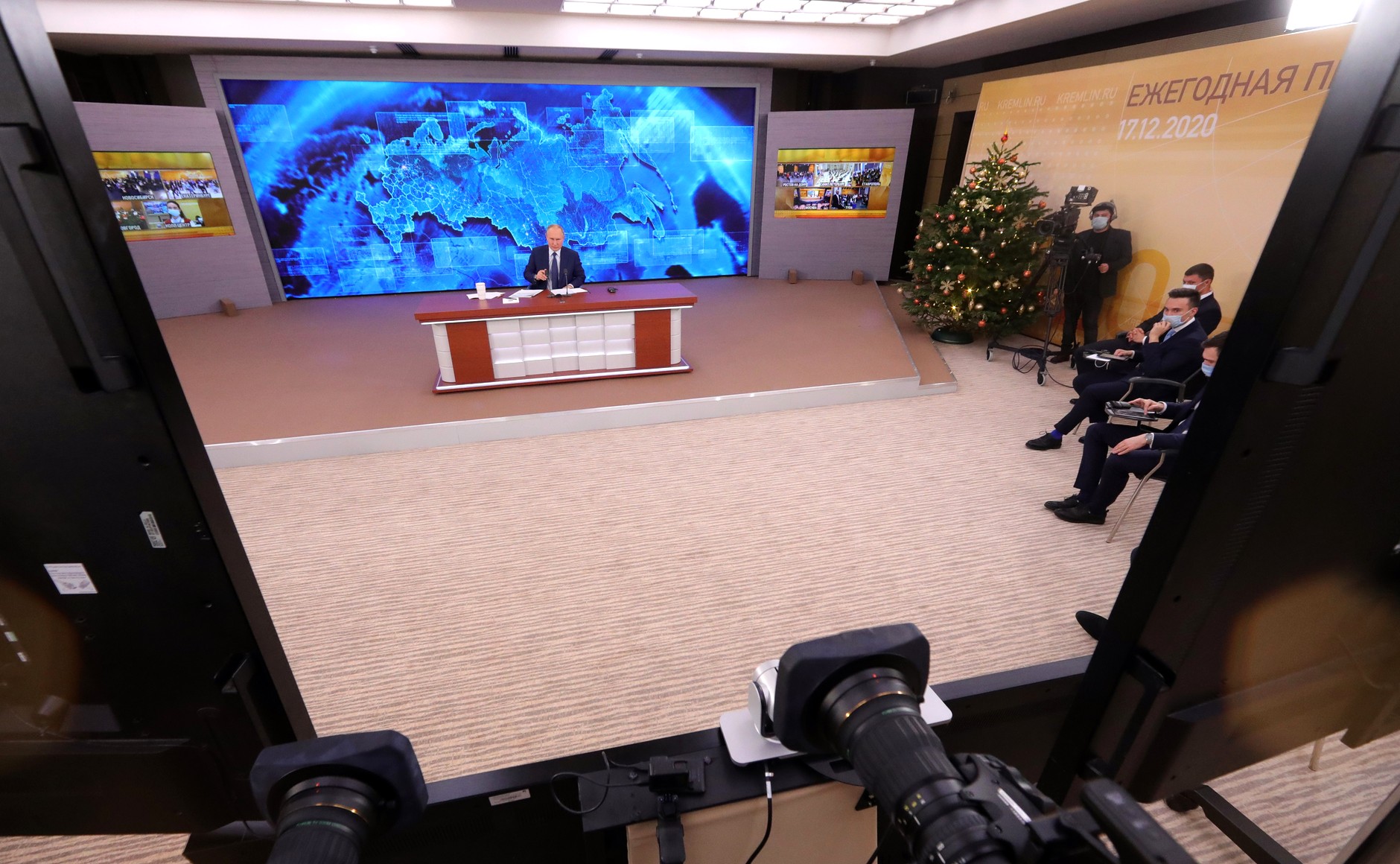 Dmitry Peskov: Tula. The camera in Tula is pointing at a young lady holding a sign that reads “I’m pregnant.” Young lady, go ahead and ask your question. Alexandra Bezukladova: Good afternoon, Mr President. Alexandra Bezukladova, Moskovsky Komsomolets in Ryazan. Mr President, we always hear that this official is corrupt, that one does not do a good job. Still, there are many positive examples around the country with officials ready to sacrifice to serve the interests of our country. In fact, my question is on one of such officials. On October 7 (your birthday) there was a fire at a military post in the Ryazan region where 46,000 tonnes of ammunition exploded. The fire swept through nearby communities, and people there were in hell, which is not an exaggeration with the shrapnel and shells flying around and fires everywhere. Many locals were simply unable to leave their homes and apartments on their own and needed help, and a local official saved seven people. At first, he saved two elderly people, getting a blast injury in the process, and later he returned to save a mother and her two kids, eight and five months old, as well as two more seniors. And all that was happening with shells flying around. Mr President, people from our region have collected signatures under a petition to award the title of Hero of the Russian Federation to this man. His name is Igor Grekov. Mr President, Emergencies Minister Yevgeny Zinichev was at the site of the explosion and saw everything with his own eyes. Mr President, does Igor Grekov deserve, in your opinion, to be awarded this title for saving human lives in a time of peace while risking his life? Vladimir Putin: Sasha, I will answer your question, but first I have one for you. What does this have to do with the fact that you are pregnant? I did not understand this. Alexandra Bezukladova: Mr President, let me fill you in on the context. It just so happened that last year I came to your news conference two weeks before giving birth, and I did not get a chance to ask a question. This year, God willing, I am once again pregnant, so I decided to try my luck, and it worked. I thought that if I made a bright poster saying I was pregnant, it would be noticed. And it worked, thank you. 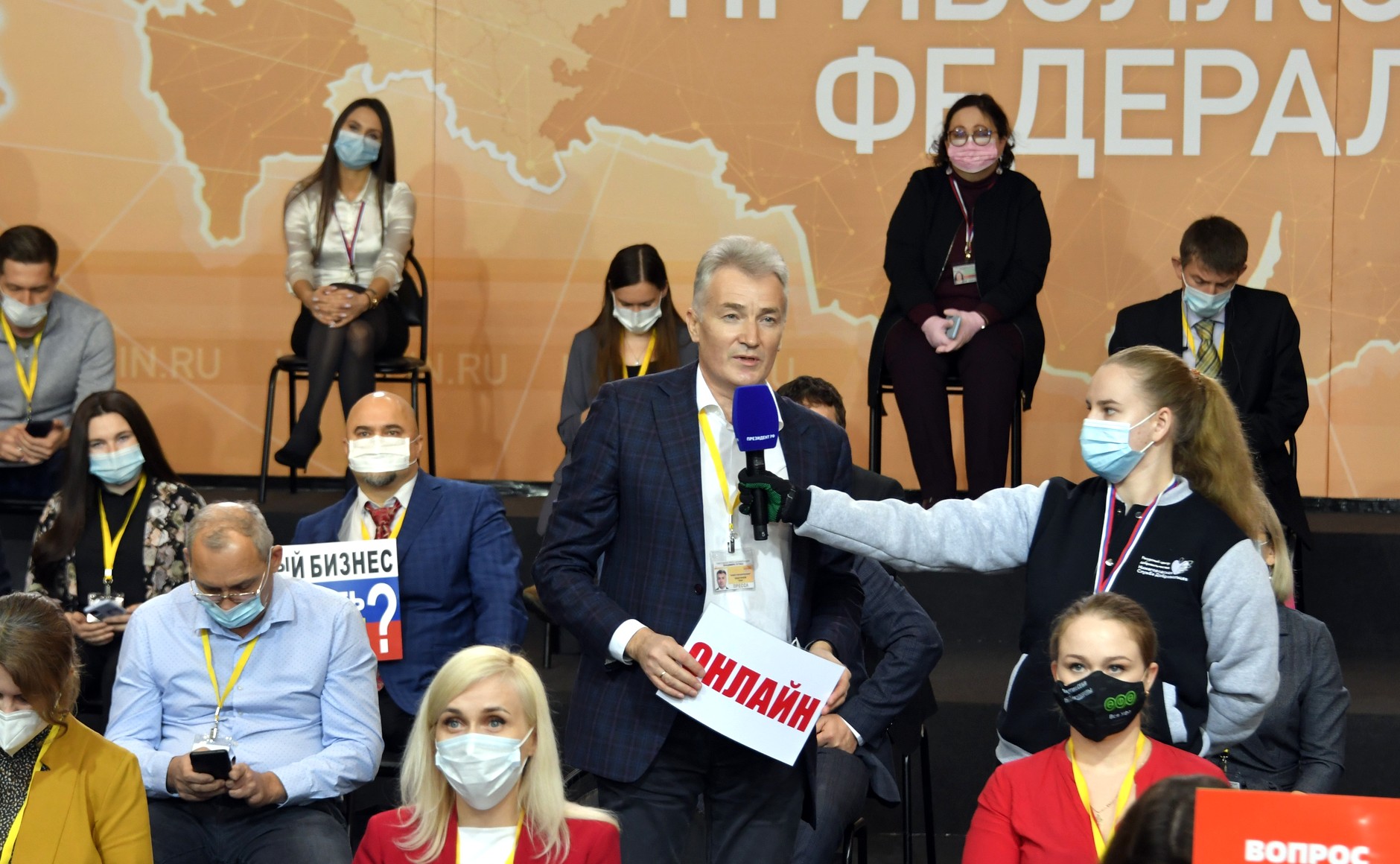 Vladimir Putin: I see; you tricked us. Ok, it’s not such a big deal. Regarding Igor Grekov: it was truly a heroic deed. If in time of peace a person risks his life to save others, he definitely deserves a state decoration. We will see what kind of decoration this should be. Thank you very much, Sasha, for drawing our attention to this. This means that you are a caring, warm-hearted and good person. This does you credit, no doubt about that. And your children will grow up in a positive environment. I wish you all the best. We will definitely look into the situation with Igor Grekov as you said. Is that okay with you? Alexandra Bezukladova: Thank you, Mr President. I cannot help but note one thing. The Russian Popular Front Forum scheduled for this year was postponed. A colleague of mine submitted a video for the forum; for some reason the video was leaked online. Now my colleague has been ostracised. Being journalists, we would like to know that, if you report a socially important problem in the region, it will not become public before the event. Journalism is becoming unsafe, to put it mildly. Vladimir Putin: Why did this harassment begin? I am not sure I understand. Alexandra Bezukladova: My colleague reported a heating supply problem at the Novo-Ryazanskaya Power Plant, which has the monopoly in the region. And I do not know who or how leaked it. My colleague and the Russian Popular Front Executive Committee were the only parties that had the video, but it ended up on social media. What followed was paid videos involving journalist Andrei Karaulov. These videos are all over social media and public groups; they contain insults, libel and so on and so forth, down to defamation and personal insults. Dmitry Peskov: Excuse me. This volunteer next to you will write down the details. Alexandra Bezukladova: Thank you very much. 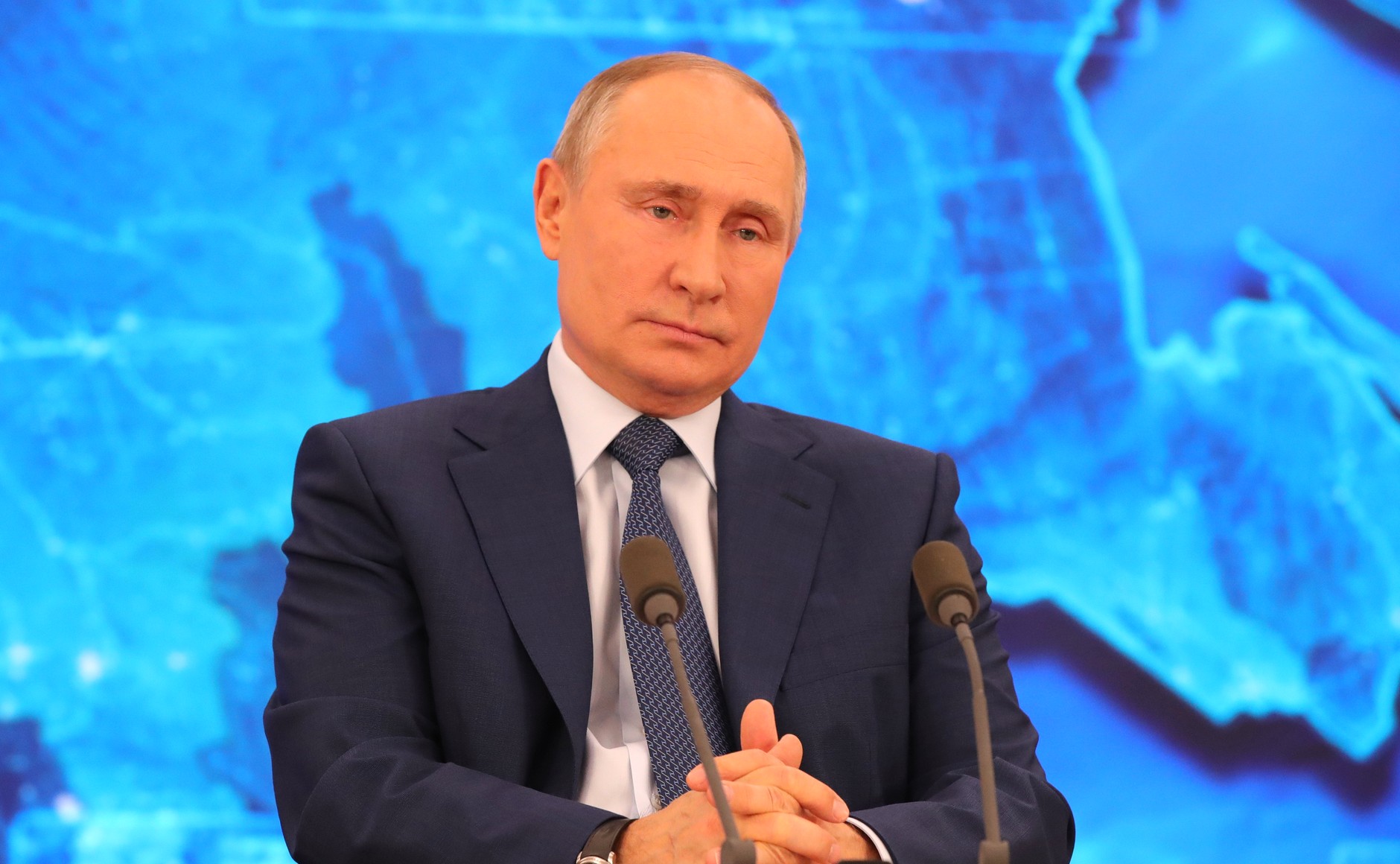 Vladimir Putin: Just a moment, Mr Peskov. Let Sasha talk. So your colleague reported about the Novo-Ryazanskaya Power Plant, is that correct? Alexandra Bezukladova: Mr President, my colleague is right here. He can answer all your questions, if you like. Vladimir Putin: Give him the microphone, please. Anton Nasonov: Good afternoon. Anton Nasonov, Editor-in-Chief of 62INFO, Ryazan. I am one of the winners of the Russian Popular Front’s national competition, Truth and Justice. I prepared a video report on the city’s problems related to the Novo-Ryazanskaya Power Plant. The video, which was only available to me and to the Russian Popular Front in Ryazan and in Moscow, was leaked on social media. As Alexandra said, I am being insulted, accused of corruption, etc. Vladimir Putin: What kind of corruption? Anton, listen, I cannot figure out who is accusing you. You are fighting for the interests of the public. Who is accusing you? What kind of corruption? Who did you sell out? I do not understand. You did not poison or kill anybody. What kind of corruption are you talking about? What did you sell? I do not understand. Anton Nasonov: They think my criticism of the Novo-Ryazanskaya Power Plant is unfair. Vladimir Putin: I see. Fine. I think you understand, Anton, that your work involves certain risks. There is no getting around this. On the contrary, I think that this outcry, which was part of a paid-for campaign, as I see it, should have taught you that you are on the right track. As for the Novo-Ryazanskaya TPP, I do not know what the problem is there, and I have not seen your reports, but I will ask my colleagues from the relevant agencies to look into this. They will definitely do so. Is this a private TPP? Who does it belong to? 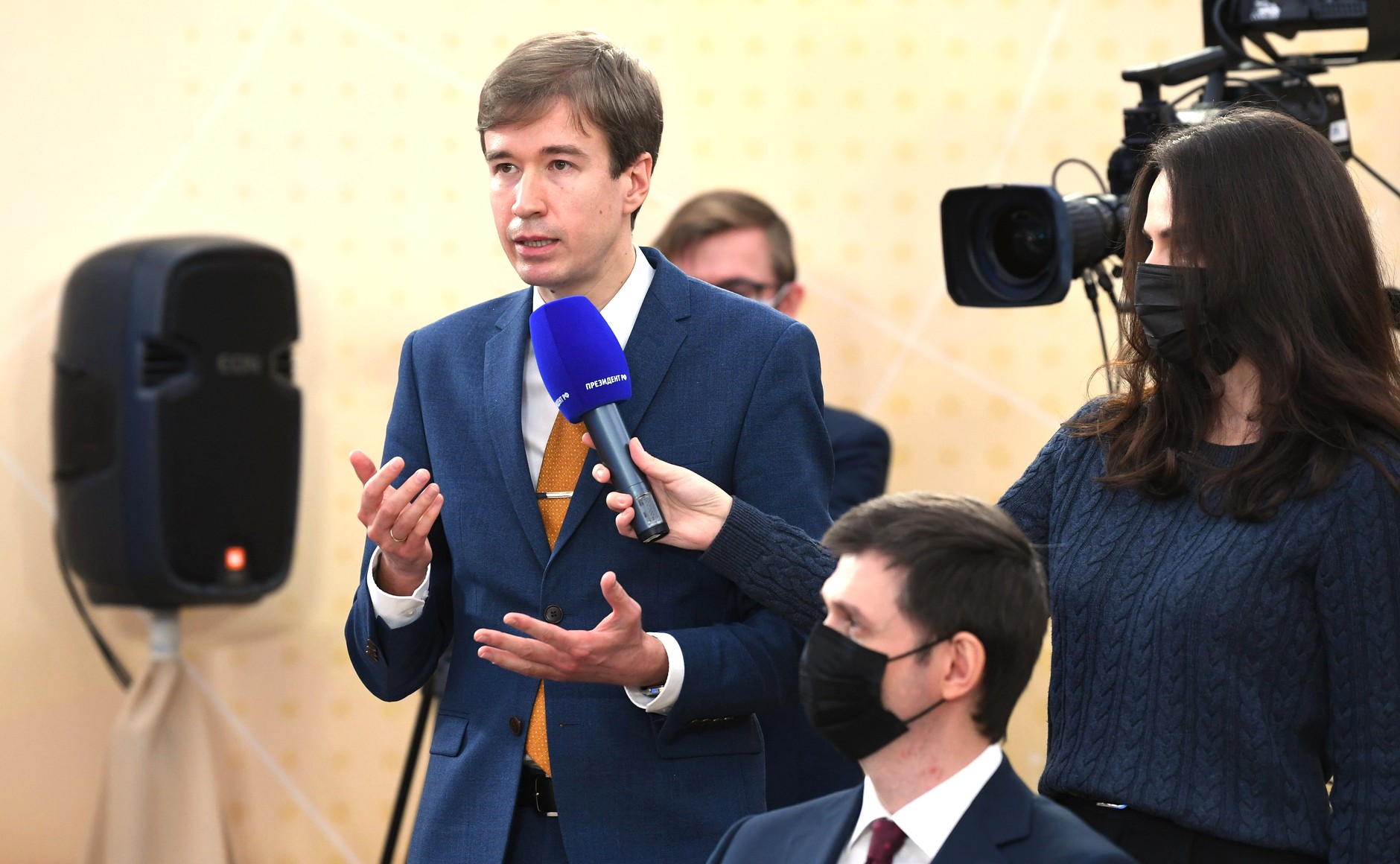 Anton Nasonov: It is a private entity that leases capacity and equipment from the city of Ryazan. Vladimir Putin: Ok. Fine. I will definitely look into this and ask the relevant agencies to review your reports. Thank you very much. Cheer up and be brave. There is nothing extraordinary here. This is how life is. There is a lot of nonsense in the media about me as well. What can I do? Ok, all the best to you. Good luck. As for Igor Grekov, who is he? What kind of official is he? Sasha, where does he work? Alexandra Bezukladova: He is Deputy Governor of the Ryazan Region. Vladimir Putin: Deputy governor. Very well, he did a good job. Thank you, Sasha. I have another paper, this time from Volosovo in the Leningrad Region. This is what Anatoly Terekhov writes. He had a conversation with an official (probably in Volosovo). Anatoly came to ask a question, and the official told him: “Did Putin promise you this? Then go and ask Putin. I did not promise anything.” This is followed by a question: “Why do officials behave in such an ugly manner in their offices?” There are people of this kind. Mr Terekhov, I would like to draw your attention to what Sasha has said. There are people like Igor Grekov, and there are those like the official you are talking about. There are different kinds of people in every sphere of activity. In fact, there is a rotten apple in every barrel. As for the fact that someone has treated you poorly, we will try to figure it out. Anyway, I will ask the governor to get in touch with you and get everything straight. Mr Peskov, let us move on. Dmitry Peskov: St Petersburg, we have not been to St Petersburg yet. Olga Knyazeva: Mr President, Mr Peskov, good afternoon. Greetings from St Petersburg. We have journalists here from all over the Northwestern Federal District. Please note, our signs are modest, nothing flashy, just a taste of refined St Petersburg. Shall we begin? Can I pick a journalist? 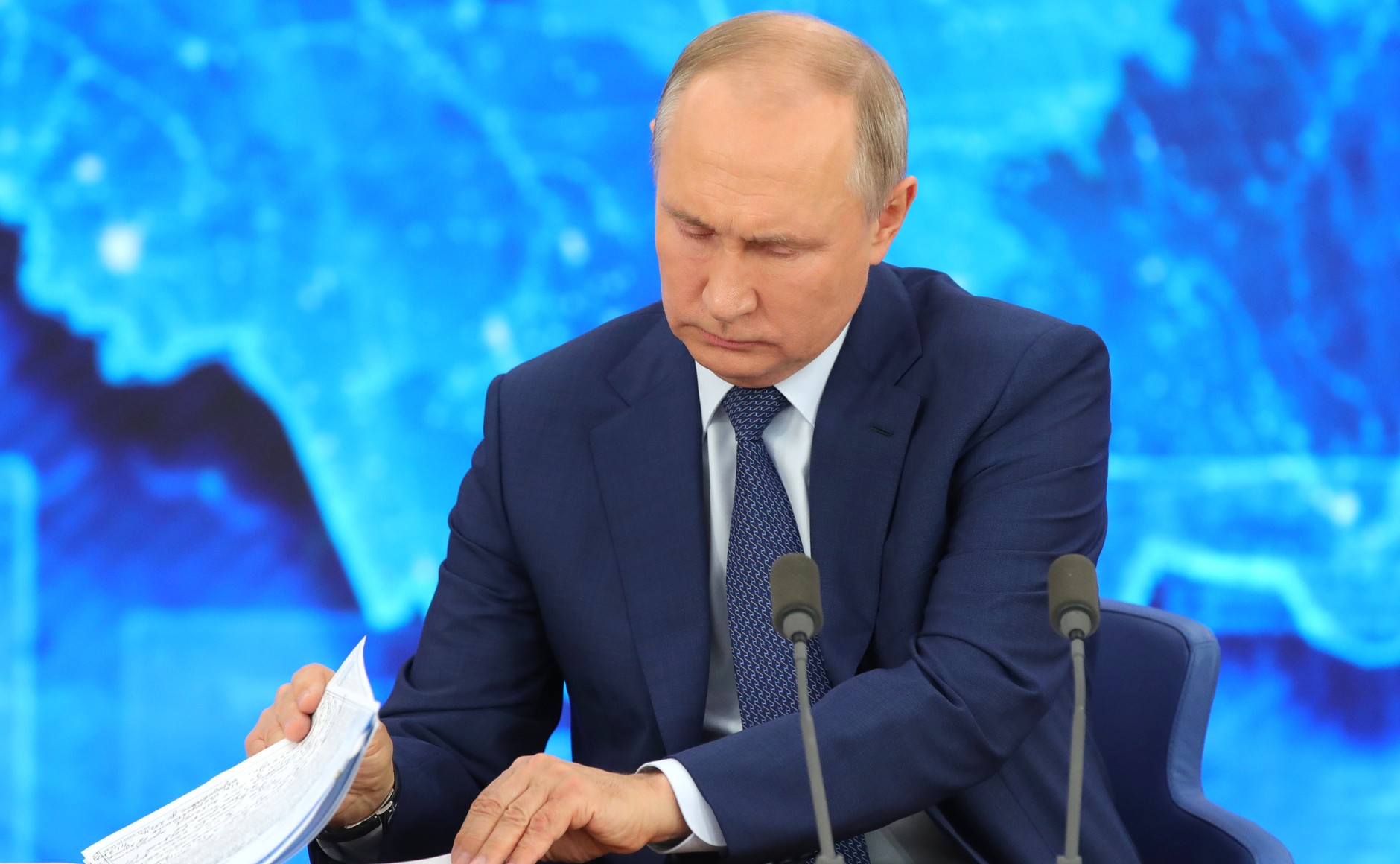 Dmitry Peskov: Yes, of course. Olga Knyazeva: I really like this explicit question from the daily, Sankt Petersburgskiy Dnevnik: when will the borders open? I read it out loud, I am sorry. I could not resist. Vladimir Putin: I see. Is that the question? Kirill Smirnov: Good afternoon, Mr President. Kirill Smirnov, Sankt Petersburgskiy Dnevnik. Yes, my question is when will the borders re-open? You know, just a few weeks ago St Petersburg was recognised as a top international tourist destination. It out-ranked Paris, New York and Rome, which are serious competitors. Opening borders is important from the viewpoint of budget revenue. We are aware that work is underway to resume passenger flights. There are countries that few Russians have ever been to, but air transport has been resumed with them. The tourism industry is the missing link in the revenue structure. It is important to know, even though the pandemic is a very important now, is there a chance that the borders will re-open any time soon? Thank you. Vladimir Putin: Kirill, you and I love St Petersburg. I think that most people in our country also think highly of our hometown. To those who have not yet been to St Petersburg, I highly recommend doing so, as it is one of the best world capitals, without a doubt. Of course, it is a tourist magnet. We are helping St Petersburg in every possible way, including with visa services for visitors, including those coming by ferry. We are trying to create other favourable conditions so that the tourism industry expands throughout the country and in St Petersburg as well. My congratulations to St Petersburg on wining this international competition. No doubt the city deserves it, not just because of its marvellous world-class architecture by the best architects from around the world like Rastrelli, Trezzini, etc., but also because today’s St Petersburg is a vibrant city that created new urban environments, overpasses and roads. It is proactive in infrastructure development, with outstanding new buildings, including culture and sports venues, Gazprom-Arena, and other landmarks. This is all very well. St Petersburg can host competitions at the highest level, and is already doing so. In fact, it has been quite good at it, serving as a model. All this, of course, attracts people to St Petersburg. Is the closing of the borders in any way related to attempts to impose restrictions on St Petersburg? What is the current situation with COVID-19 in the city? 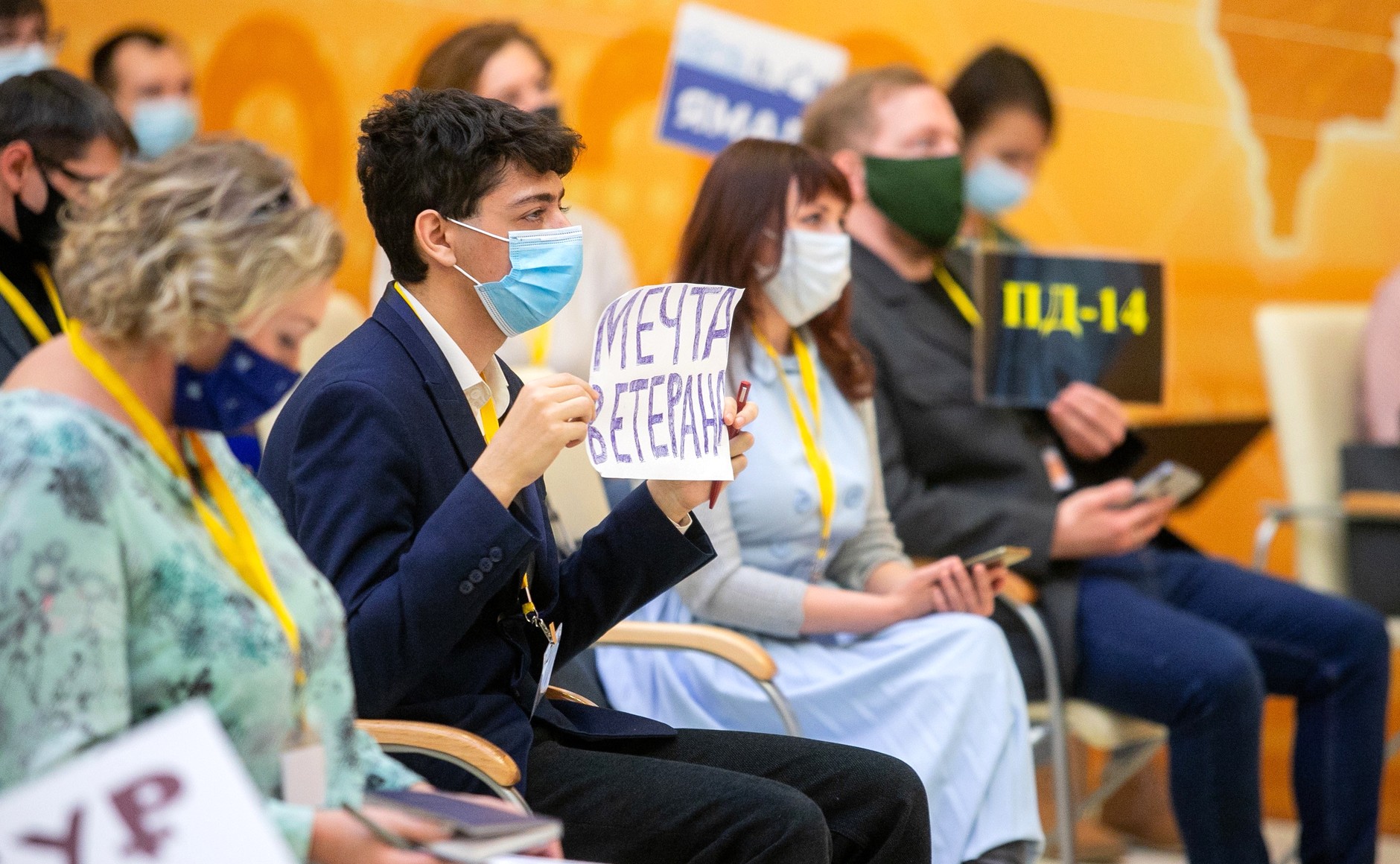 Kirill Smirnov: Of course, the incidence rate is high, even in terms of the averages. This is why the restrictions that we have in the region were introduced, including for the New Year holidays. Vladimir Putin: This is what I am talking about. About 85 percent of COVID-19 hospital beds in the country are filled, and St Petersburg has an even higher figure. This is what these restrictions are all about. We need to protect the lives and health of St Petersburg residents. As soon as doctors give the green light, the borders will open. In general, it would be great if Russian nationals explore domestic tourism opportunities more. They can benefit from the related government support measures and go to St Petersburg. There is no need to open borders for this. But as soon as it becomes possible, we will do it. Air travel has been among the affected sectors. In this sense, it is definitely important to enable airlines to serve Russian destinations and for our companies to operate overseas routes. We have 32 million people flying abroad every year. Let’s redirect this passenger flow to St Petersburg. These people spend $35 billion abroad every year. If we can attract them to domestic destinations and thus promote domestic tourism, this would be great. St Petersburg deserves it. I am certain that we will succeed. It will happen as soon as it becomes possible. Dmitry Peskov: Could you show the journalists in Novo-Ogaryovo, please? Channel One has not yet asked a question. Konstantin Panyushkin: Good afternoon. Konstantin Panyushkin, Channel One. I would like to go back to pre-pandemic times early this year when you and the Government did not have to deal with manual anti-crisis control. At that point, you were talking about a big step forward and it seemed to journalists that the Mishustin Government had things in place to reach this goal. However, many big, ambitious plans had to be suspended and, as we see, even the implementation of certain national goals was delayed until 2030. Hence, some questions. As for the national goals, is the coronavirus to blame for this delay or was Alexei Kudrin right when he said the national projects would not help achieve our national goals by 2024? What about the Government? Do you think Mishustin’s team is meeting expectations? There were some replacements recently, and it is rumoured that there will be more. And the last question – about the leap forward. When will this be on the agenda again? Thank you.  Vladimir Putin: Our strategic goals have not gone anywhere and have not been suspended. Of course, the coronavirus made its adjustments. I have already said that we had to delay some programmes by half a year, for instance, the development of primary healthcare because we had to find the resources for promptly resolving the problems of countering the coronavirus and supporting our people and badly affected economic sectors. Look, 838 billion rubles have been spent on direct support for people alone. These are huge funds, and we had to use them for this purpose, as well as for the support of affected industries. But nobody has cancelled our strategic goals. And the Government is doing well. Now we are considering retail prices. I know that your channel showed our discussion with some Government members in this context. I think some Government officials missed this moment and did not react in a timely manner. But in general, especially considering the pandemic, the Government has been very effective and very busy. I can say without exaggeration that they work day and night. And, of course, we can and should thank them for this. As for position changes, this is up to the Prime Minister. He has the right to select his own team. I approve these changes; I do not see any other. The Prime Minister is not initiating anything further in this respect. It seems to me it is necessary to ensure the smooth operation of the established team, and stability is required. This is my answer to part of your question. Nothing else is planned at this point, no more personnel changes. As for our strategic goals – yes, the Government was formed to carry them out. I believe it is doing well with these goals. Let me repeat that all of our goals have been determined. Obviously, there was criticism in the beginning: are we able to reach these national development goals using the instruments we call national programmes and national projects? Overall, yes, there are questions that require additional attention and analysis, but generally, we discussed all of them with the regions. And, despite this pandemic we will continue developing the country. Again, the example of primary healthcare: we planned to spend 500 billion rubles, plus 50 from the regions, on this, and this is what we intend to do. We are not using these funds for anything else. Everything will proceed according to plan. Dmitry Peskov: Okay, let’s continue in the middle. NTV. Vladimir Putin: Excuse me, I just promised to listen to that young lady over there. Give her the mike, please. Aisel Gereikhanova: Thank you. Aisel Gereikhanova, Rossiyskaya Gazeta. Mr President, why was the Constitution amended this year? Why now? 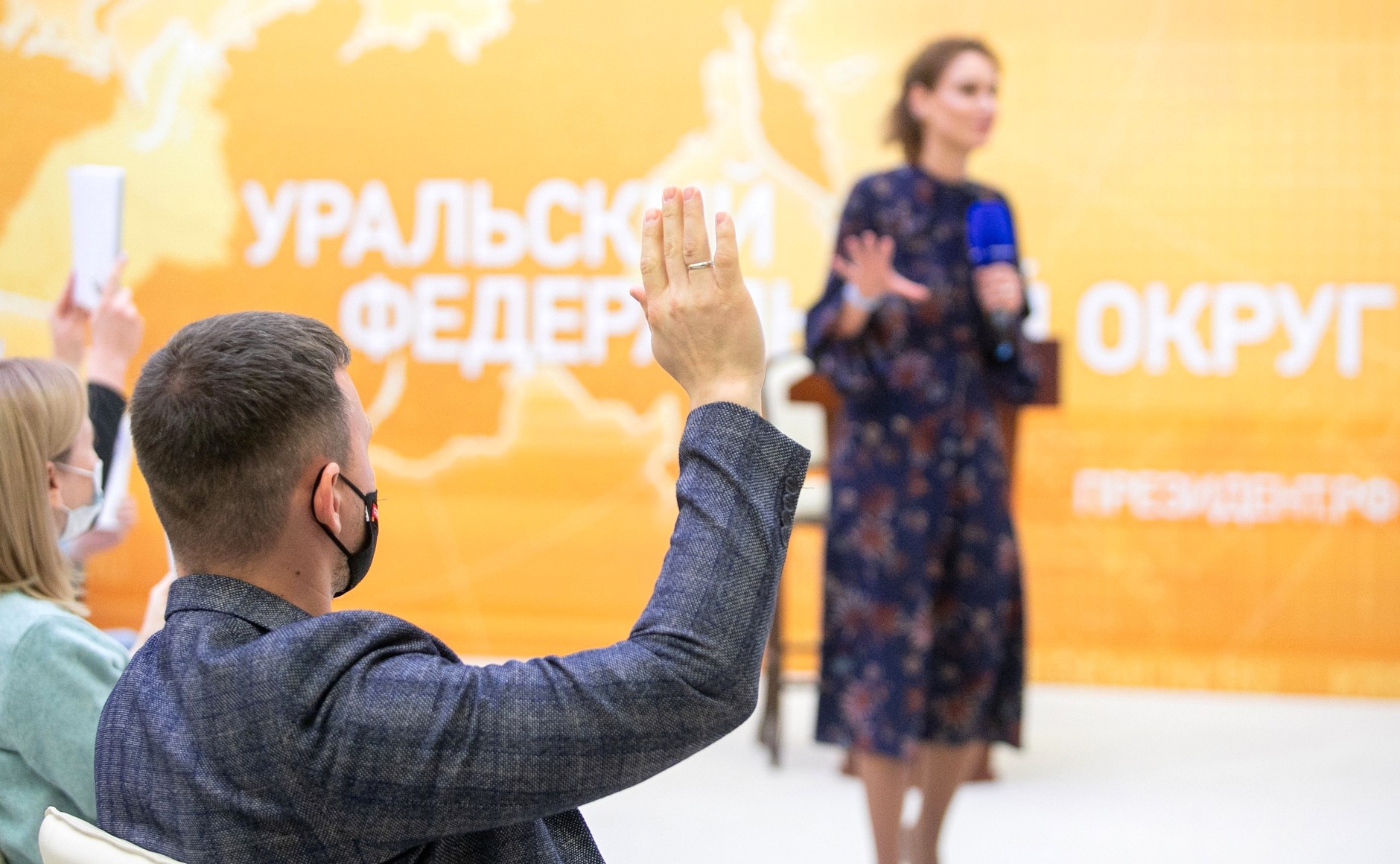 Vladimir Putin: You know, there is a proper time for everything. There is a proper time for fighting rising prices and there is a proper time for changes to the Fundamental Law. Many things were impossible before. First of all, I would like to say that the fundamental provisions of our Constitution remain unchanged, which is very important. The 1993 Constitution was adopted in the difficult conditions of public opposition and, let’s face it, amidst the military action in the Russian capital, Moscow. People were killed; automatic weapons were used and tanks fired at the parliament building. Those were the circumstances in which the Constitution was adopted. Our minds are such that we try to forget the worst memories, but those events did happen and here at home. The Constitution was adopted under those conditions and, to a certain degree, it played a stabilising role and helped restore civil peace, and created a certain political foundation for development. Now the situation is different. And we needed to change the Fundamental Law based on the current situation. We did not change it per se but made some corrections and amendments. Some of these things were not possible before. For example, social guarantees related to the necessary adjustment of pensions for inflation. What do I mean? Back in 1993, how could we include the government’s obligation to adjust pensions for inflation under the Constitution? Pensions were delayed for six months. Neither military pay nor pensions were paid. That actually happened. Now things are different. Now we must make sure that our current and future leaders cannot shrug this off because the foundations of the Russian economy allow it. Therefore, this measure can and must be included in the country’s Fundamental Law, along with the problems related to alleviating poverty. Earlier, your colleague said that many Russian families are struggling. Yes, it is true. But the minimum monthly wage cannot be below the subsistence rate. Can we achieve that? I think we can. Therefore, this requirement was included in the Constitution. There are other problems as well. I read the question about the janitor and the teacher. The cleaners who receive subsistence-level salaries saw their minimum wages go up, while the salaries for other categories of employees were not adjusted. However, the state will have to do this now, based on the Constitution, among other things, because the minimum wage cannot be lower than subsistence-level pay. You see, it is all related. Yes, efforts will have to be made to comply with the Constitution. This is the point behind these changes. Alternatively, for example, we spoke about primacy. We enshrined the supremacy of Russian constitutional law over all sorts of international norms in the amendments to the Constitution. Or, take the inviolability of our territory. Could we do this with the state of our army in 1993? Well, we could. You can say anything you want. Could we ensure it? No. You cannot use a nuclear bomb in every conflict, can you? Our conventional armed forces were in shambles. I already mentioned this. We were unable to put together 50,000 capable troops from an army of over a million servicemen to fight international terrorists in the Caucasus. Now, the situation has turned around, and even our opponents, as I call them, are saying, indeed, there are fewer of them, but they are much more efficient now. Russia has one of the most efficient armies in the world. We can now enshrine this in the Fundamental Law. This situation is ripe; we did it and did it at the right time. By the way, how many amendments were there? We received thousands, if not hundreds of thousands of them. I want to thank our citizens for their participation and for the fact that we held an all-Russian vote on this issue. Many people came to the polling stations. In fact, it was a referendum. Citizens authored the amendments to the Fundamental Law of the Russian Federation. This is important. It had to be done, and I would like to once again express my gratitude to everyone who supported the amendments to the Constitution. Dmitry Peskov: We have not heard from Stavropol yet. Stavropol, go ahead, please.  Pavel Krasnov: This is Stavropol, in the south of Russia. We could even compete with Rostov-on-Don for the title of the southernmost location today. The Southern Federal District is, of course, located there, but in geographical terms Russia’s southernmost point is in the Caucasus. Here in this room we have journalists from the North Caucasus Federal District, and they are ready to ask their questions. If there are no objections, let’s give them the floor. Mr Peskov, if you delegate your authority to me… Dmitry Peskov: Yes, please. Pavel Krasnov: I think that the first to speak on behalf of the Caucasus should be a woman. Go ahead, please. Zarina Cherchesova: Thank you. Zarina Cherchesova, radio broadcasting service of the Alania State Television and Radio Company. There is no getting away from coronavirus-related topics. It is stuck deep in our heads. All sectors have suffered during the pandemic, especially healthcare, although this sector was suffering even before the pandemic from low salaries and destructive optimisation policies. At the same time, the regions have started revising their priorities, and developing domestic tourism is one of the key tasks today, and this is very important for South Ossetia. Mr President, with this in mind, I would like to know what your plans are for supporting this sector of the economy moving forward. In many countries this sector accounts for a substantial share of budget revenue, for example in Turkey where there are all kinds of various preferences. I must say that South Ossetia has always been famous for its health resorts and unique springs. Today, South Ossetia has all it takes to develop tourism, including mountain skiing, gourmet tourism and most importantly, balneotherapy. There is one issue, however, which is infrastructure, and the region cannot resolve this without federal support. Thank you.  Vladimir Putin: We started talking about this in relation to St Petersburg: they are waiting for the borders to reopen and foreign tourists to come. You probably heard part of my answer; I was saying I believe it is very important to give our people the opportunity… our people are mostly used to vacationing abroad; 32 million of them travel. It is no less important to develop domestic tourism, I fully agree with that. This year, as you can see, we are trying to use various incentives, including the so-called cashback– a partial refund of the cost of their trips. But there is something you need to know. We have 15 billion rubles for this cashback – but only 1.2 billion have been spent. However, we agreed with the Government that we will not redistribute this money but will use at least the same amount next year, and will try to expand this kind of incentive. This offer was not promoted as much as we needed, so I would like to ask you and your colleagues, the media, those who work online: would you please support the development of domestic tourism, show and talk more often about the opportunities that our country and its various regions offer for our own citizens and guests from abroad. I certainly know, I understand, and I see people who say, yes, it is so beautiful, but excuse me, there is no toilet, no place to wash our hands, no restaurants and poor roads to drive or walk on. We are perfectly aware of this; it takes time and, of course, huge investment. But first, of course, we assume the money will come from the businesses that operate in this area. The government should provide the necessary support, of course, infrastructural primarily. We will allocate appropriate funds for this; the money has been earmarked. As I have said, we will support business in general, including regional businesses, and an agency is being created that is responsible for domestic tourism exclusively. Very recently, the day before yesterday or even yesterday, I spoke with Dmitry Chernyshenko, who is responsible for this industry in our country, and he is very actively involved, he is fighting – in fact, he is your active supporter. We are aware of how important this is for the country as well. You mentioned Turkey. It is close. For many decades, it was building a system and the state provided a lot of support for the industry. This is not an exception; I mentioned several examples. South Korea, for one, developed a whole system of government support for shipbuilding, through taxation. Later they brought everything back to normal and now it is South Korea that is building the largest capacity ships. Turkey did the same with its tourist industry. We will also move along a similar path. As for the funds that were allocated, let me repeat, the 15 billion for this year will be rolled over to the next one. Dmitry Peskov: We have been going for more than two hours. Those who have disposable masks do not forget to change them. If you do not have one, our colleagues will provide you with fresh ones. I promised to give the floor to NTV. 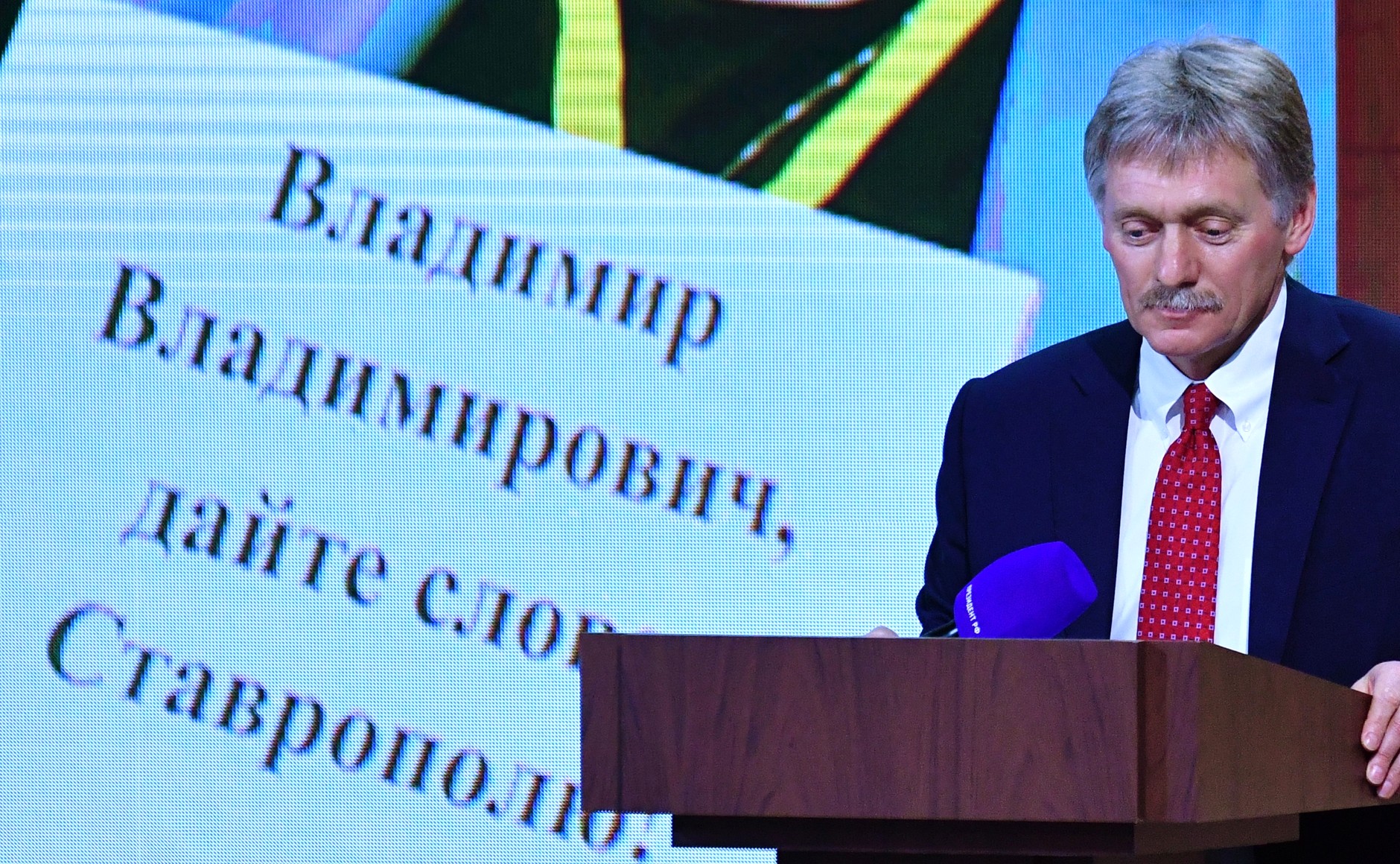 Vladimir Putin: Mr Peskov, just a second. To follow up on the issue, let me say that we already had a question about the internet and the opportunities to study online. I have many questions: quality of communication and the internet – this is urgent, especially for those who study online. This is clear. I have already said that we will introduce high-speed internet everywhere, at all schools in 2021. And, of course, it is very important to provide it in residential areas: before the end of 2021, a universal system of communications – both the telephone and the internet – must be created for residential areas of with 250 to 500 people. This is before the end of 2021. I will not go into detail at this point because there are many questions about it. The people in these residential areas sometimes ask odd questions: “Do we have to climb trees, really?” and so on. I understand all this; there are difficulties. But this problem must be resolved before the end of 2021. We are allocating 12.6 billion rubles for this purpose. It is envisaged in the budget and will be spent on this. I hope it will be spent in a way that makes people feel the change in quality. By 2030, we will resolve this problem for residential areas with 100 to 250 people. This is a major expense, but we will do it all the same. I said this to break up Mr Peskov’s dictate. Dmitry Peskov: Now let us give the floor to NTV. Vladimir Putin: Yes, do please. Dmitry Peskov: Please, give him the microphone. Sergey Kholoshevsky: Third time, lucky. Good afternoon, Mr President. Sergey Kholoshevsky, NTV television. Vladimir Putin: Good afternoon. Sergey Kholoshevsky: My question, with your permission, is about foreign policy and our so-called Western partners. Who of all world leaders, in your view, has been the most difficult negotiating partner and who was the most agreeable over the past four years? I, for example, remember you giving a geography lesson to Mr Macron and Ms Merkel at a G20 Summit in connection with the incident in the Kerch Strait. And what about Donald Trump? Or Recep Erdogan? You discussed Nagorno-Karabakh with him; he is an interesting person. To say nothing of Alexander Lukashenko – he must also be good company. If you allow, I have another question regarding the Nord Stream 2 project. The United States is bringing unprecedented pressure to bear on Europe in connection with this project but, amazingly, Europe, in particular Germany, have stood up to this pressure. What are the prospects for it do you think, will we finish the construction or not? 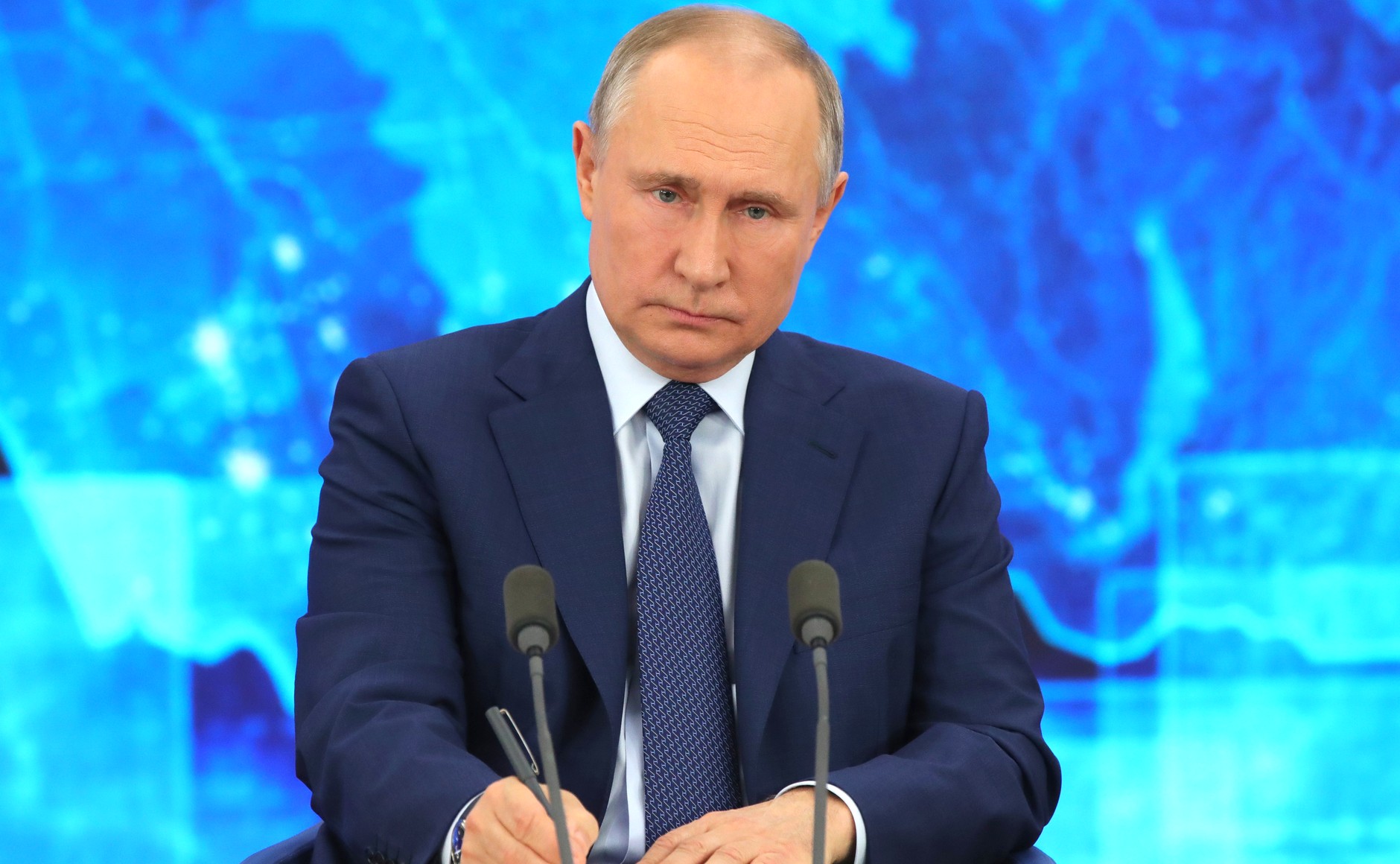 Vladimir Putin: Regarding convenient and agreeable or unpleasant partners, there are no such people. And I do not need to give lessons to anyone. All of these people are very knowledgeable. Believe me, these people have received top-level training. All of them seek to address the challenges facing their countries – and this comes first – through different methods, but still. There is a well-known maxim: there are no good or bad interests, there are only national interests. The same with me: I do not divide people into good and bad. I work with everyone to secure the best results for Russia. Sometimes there is a need for compromise and sometimes it is necessary to stick to your position. It is always like this. Anything else is counterproductive. You mentioned several, but not all countries with which we maintain comprehensive and complex relations. What about China? We have overlapping interests in many areas. Maybe this or maybe some personal vibes have contributed to the fact that I have good, business-like relations, above all, but at the same time very trusting and friendly relations with President Xi Jinping. This, of course, helps in our work. We have different, occasionally opposing views on certain matters with President Erdogan. But he keeps his word like a real man. He does not wag his tail. If he thinks something is good for his country, he goes for it. This is about predictability. It is important to know whom you are dealing with. Nord Stream 2 is undoubtedly beneficial for the EU’s economy in general and Germany’s in particular. Because the other option (buying more expensive primary energy source, US-produced liquefied gas at a 20 percent premium over our pipeline gas) means a dent in the German economy’s competitiveness and higher prices for households. That is all there is to it. This is obvious, and you do not need to be a gas expert or an economist to understand this. This is in line with the national interests of Europe and Germany. At least until now, representatives of the German economy have openly supported this project. We have many friends there, without any exaggeration, and Germany’s political leaders try not to interfere, since this is a purely economic project. There are 160 kilometres left to build to complete the single line. Both lines are a little over 160, 165 or so, kilometres. That is it. It is almost completed. I think we will finish the job. I hope that the new administration will treat its partners and allies with respect, will not insist on them neglecting their national interests, and will return to fair competition in global markets. I believe this project will also be fully implemented. Dmitry Peskov: We have not heard from the call centre in a long time. Let us go to the call centre. Nailya Asker-Zade: We thought you forgot all about us, but there are many questions here, and their number continues to increase. Let me remind you that questions to the President can be asked on the moskva-putinu.ru website or mobile app. You can record a video or send a text message. Let us get back to our volunteers. Sasha Pechenegin is here next to me now. During the pandemic, he and his colleagues processed more than 19,000 requests from people, including those for the delivery of medicines. Sasha, could you tell us what questions you received today? 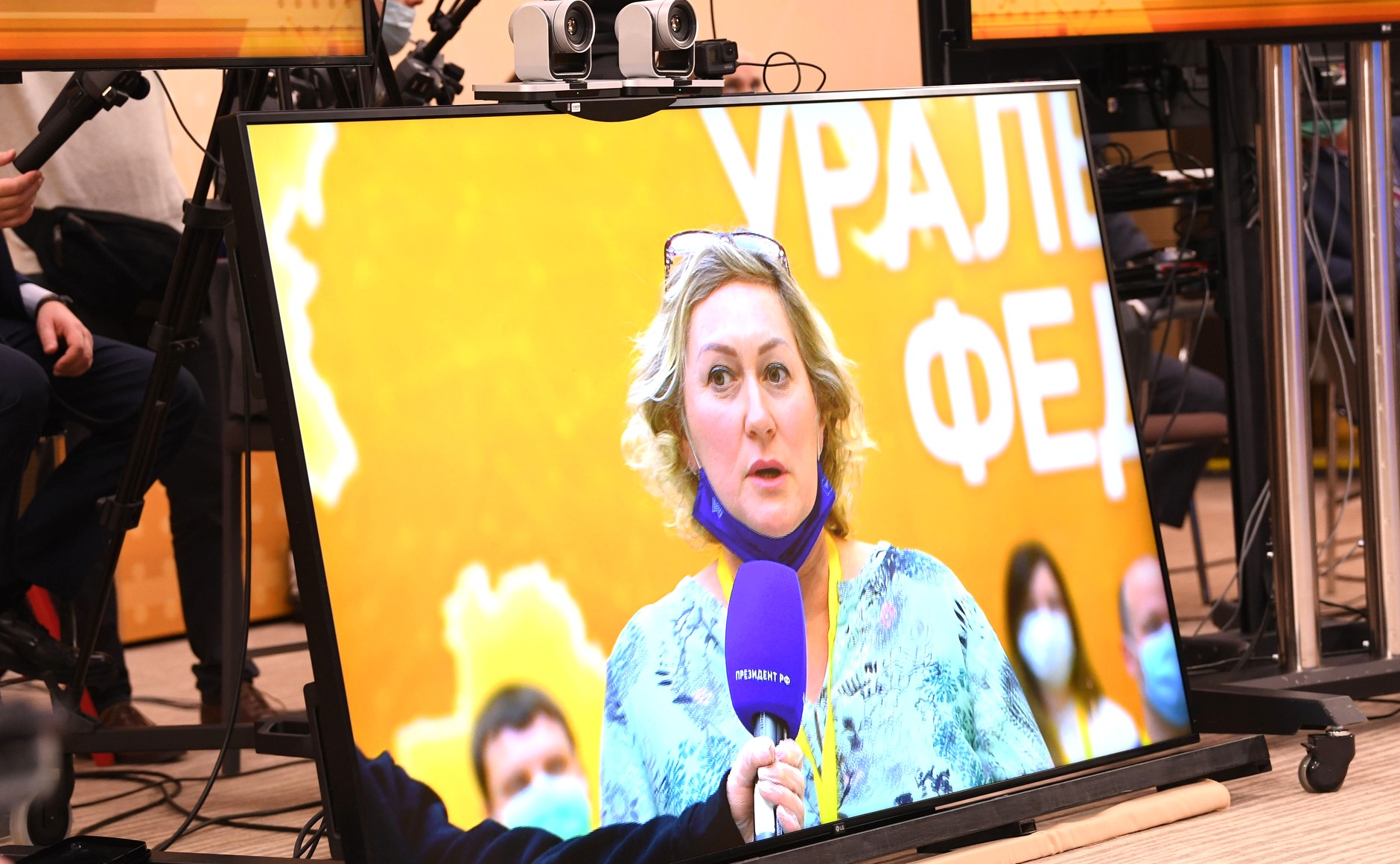 Alexander Pechenegin: Indeed, we have many questions now concerning benefits, social support measures, especially from mothers. People are interested whether there will be any new payments, because right now, people in various regions, such as Arkhangelsk, Ulyanovsk Region, and Tambov Region, I could list many regions, where people do not even know what they are entitled to, or where to go. In Moscow, for example, they complain about the integrated government service centres, which closed due to the coronavirus before people could apply for their benefits, and that service has been inactive on the gosuslugi.ru website. That is why people are concerned, because they do not know where to go. In this regard, perhaps the most important question. Mr President, are any more child benefits planned for next year? Because more often than not, it is a problem, and the government assistance now being provided is actually the only help they get. Thank you. Vladimir Putin: About child benefits. I think I spoke about it at the beginning in some detail – how this work was organised, for children aged 0–1.5, then 1.5–3 and 3–7 years. If people are telling you they do not know where to go, they have difficulties getting their benefits, then probably, everyone will agree with me that before thinking about any additional steps – we have a lot already happening on various tracks, I have listed just a few, but there are other forms of support, including for specific regions, and depending on the demographic situation in each region, there are specific support measures – so before we take any new steps, we need to streamline and ensure effective work of the support mechanisms already in place. I will definitely speak with the presidential plenipotentiary envoys to the regions and with the governors, and we will get back to this. This is done mainly through the Pension Fund and the integrated government service centres. But if they are closed somewhere, it means they need to make some other decisions on this score. I can only thank you for bringing this up, for responding to the people who asked you about this. Alexander Pechenegin: Thank you very much. Vladimir Putin: Thank you for what you are doing. Alexander Pechenegin: The volunteers have indeed done important work here. We were able to talk personally to petitioners – in some cases it worked, in others it did not, but we clarified certain information. Thank you very much for this opportunity. 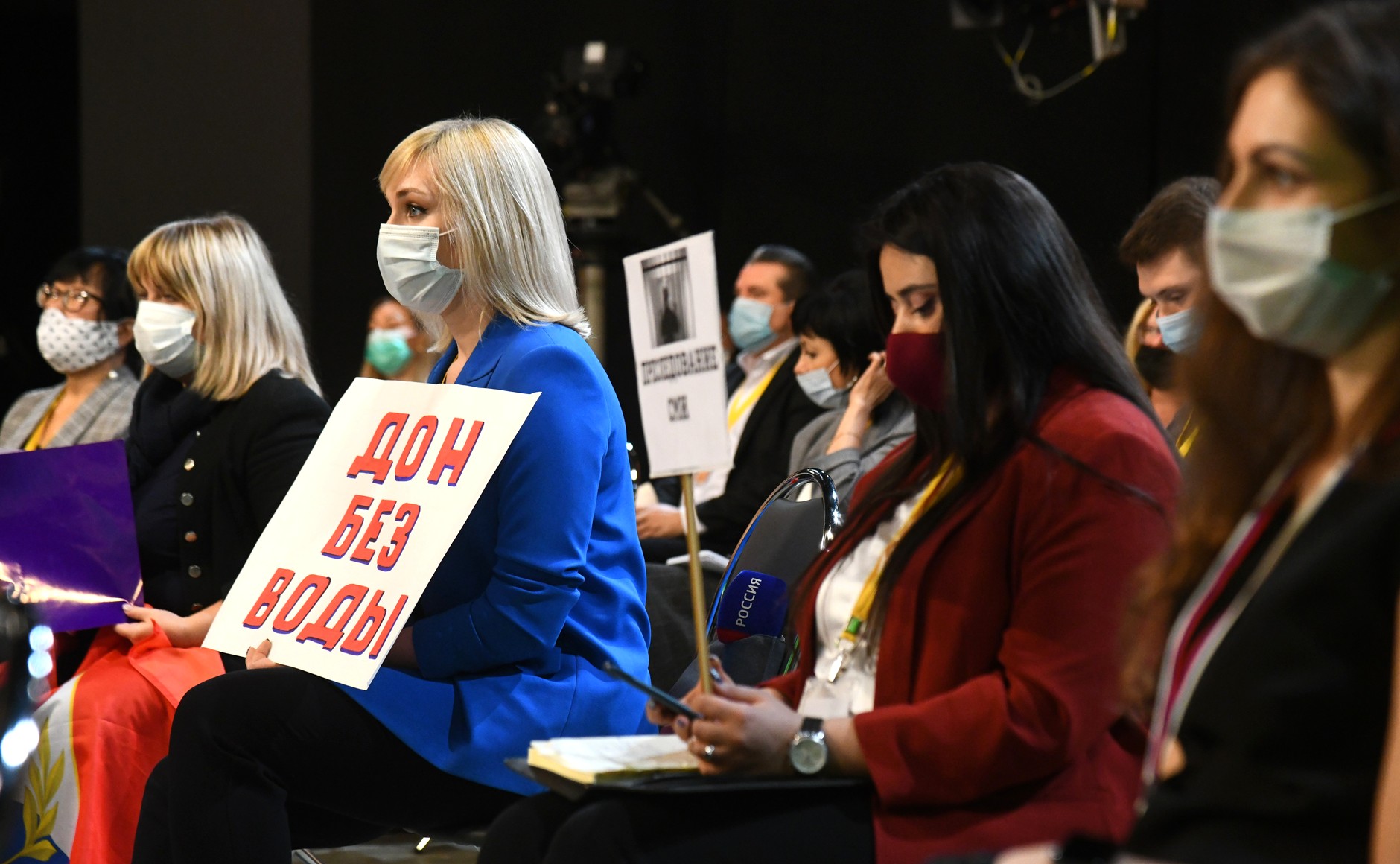 Vladimir Putin: It is strange. This sounds very strange and even alarming that people cannot properly exercise their rights. I assure you, we will definitely… Not even you, but I assure the people who spoke to you, we will definitely straighten this out. There are many questions about the healthcare system, of course. Altai Territory, for example. A district hospital was shut down. The person who asked this question is Natalia Dubovikova. People are panicking. Ms Dubovikova, I will definitely look into it. And I would like to bring this to the attention of the Altai Territory Governor and the plenipotentiary envoy. This happens, and quite frequently, unfortunately, when a small-town medical facility or educational institution, a school, is closed because it is inefficient and so on. But if people have nowhere else to go, considering Russia’s vast territory, we must take this into account. We will absolutely try to straighten this out. Please, let us move on. Dmitry Peskov: Let us go back to the World Trade Centre. Andrei Kolesnikov. Andrei Kolesnikov: Good afternoon, Kommersant daily. Mr President, courtesy of Ms Valentina Tereshkova, an article appeared in the Constitution, which reset your time in presidential office to zero. That is, you can start all over again in 2024. What does this mean? Are you really ready to start all over again, or do you want to avoid becoming a lame duck, at least before time? What was on your mind when you went ahead with this idea? In the eyes of many people, including mine, it was a rather cruel thing to do to the Constitution. Mr President, was it worth it? One more question, if I may. An up-and-coming journalist taught us to ask two questions in a row (he is not really a beginner). You spoke about Ivan Safronov’s case several days ago. The takeaway was that if he took information from open sources, he cannot be prosecuted under the treason article. This, as I understood, is what you believe. Did you have a chance to learn more about this case as you planned? What sources, for example, do the investigation authorities believe he got information from? Do you not feel that this grave article is being applied too readily and too frequently? I have something else to say. Several media outlets simultaneously published information yesterday that he may have taken information from classified sources. Even if we believe that this was the case, well, okay, he may have made a false step. This may have been the perfect case of someone who did not know what he was doing. I am sure that given these circumstances, he could be forgiven. I know Ivan as well as I knew his father, a man who was honest to the bone. I am ready to vouch for Ivan Safronov right here and now. This will not happen again, Mr President. And if it does, we will go down together. Not you and I, but he and I. 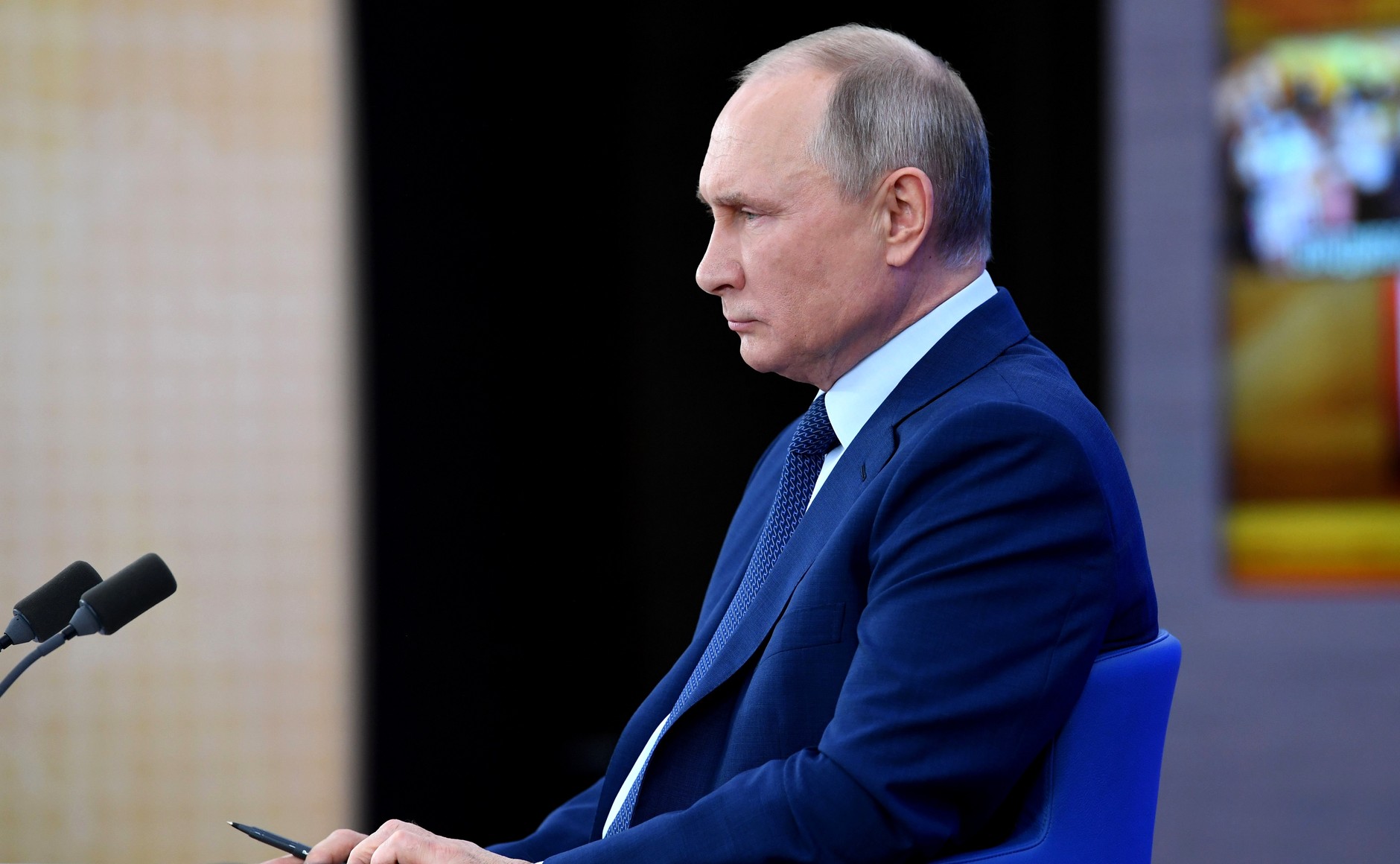 Vladimir Putin: Regarding the question of whether this was worth doing as part of the constitutional amendments, you know, there is one rule I always follow: I consider whether what we do benefits the country or not. If this is not the case, it is not worth it, but if it does have benefits, then we must do it. I have not decided yet whether I will run in the 2024 presidential election. That said, ensuring national stability and development is invaluable. From a formal perspective, the people have spoken. Whether I will do it or not, we shall see. This is my answer to your first question. As for Safronov, and whether he took information from open or classified sources, it is up to investigators to find out. After all, Andrei, he is not being prosecuted for his activity as a journalist. This is what these events are all about. He is not some kind of a dissident journalist fighting the government and being prosecuted and thrown into jail for doing it. This has nothing to do with his work as a journalist. It has to do with the rather long period of time when he worked as Rogozin’s aide or advisor at the Government and Roscosmos. This is not about journalism. You said that this could have been a misstep on his behalf. Yes, this does happen. And he could be forgiven. This can happen as well. We have to consider the danger posed by his acts, and what the actual damage was. He is being accused of espionage, betrayal. But treason is the worst sin. Handing classified information over to foreign intelligence is an act of treason. I understand that this may not go down well with those who trusted this person, and still trust him and like him. You have my sympathy. Honestly, I also have sympathy for him, as strange as this may sound, if what he did was actually a misstep. However, if he intentionally gathered information over a long period of time and handed it over to intelligence officers and was remunerated for this, this reveals who he actually is. Let me reiterate that at the end of the day, it is up to the court to determine to what extent he posed a threat to society. The question of whether he can be forgiven and pardoned will come afterwards. So far, it is too early to talk about this. Dmitry Peskov: Let us carry on here. Let us talk about sports. Match TV, go ahead. Vladimir Putin: All right. Olga Bogoslovskaya: Thank you very much, Mr President. Olga Bogoslovskaya, national sports television, Match TV. First of all, I would like to thank you for noting our five-year anniversary, a really important landmark for us, and for praising the work of our professional team. Thank you. My question to you is only partly related to sports because the issue is much broader. I am talking about the situation with one of our leading football players, Artyom Dzyuba. His personal video was posted online and there were many public repercussions. This incident was discussed practically by all media. Some people sympathised with him and others did not, forgetting that he did not upload this video himself but was “helped” by hackers, if we can say that the hackers helped him. Putting it mildly, they are truly dishonest people. Why did I say that this issue is only partially related to sports? Because this time an athlete got into this situation but it can happen to anyone in the future. This is my question to you: should this situation affect a professional career of not only an athlete but any person? Thank you very much. Vladimir Putin: The answer seems obvious: of course, it should not. Let him deal with his relationships and personal affairs but it is not appropriate for normal society to meddle in someone’s personal life. Unfortunately, this will always happen and for celebrities – and he is still a celebrity – this was inevitable. But this is a good lesson for him and other people who lead a public life. Keep this in mind. This is my first point. And my second point is that we should bear in mind that there are certain general rules and it is better to follow them. But should such incidents affect professional careers? Definitely not. Have you seen this video? 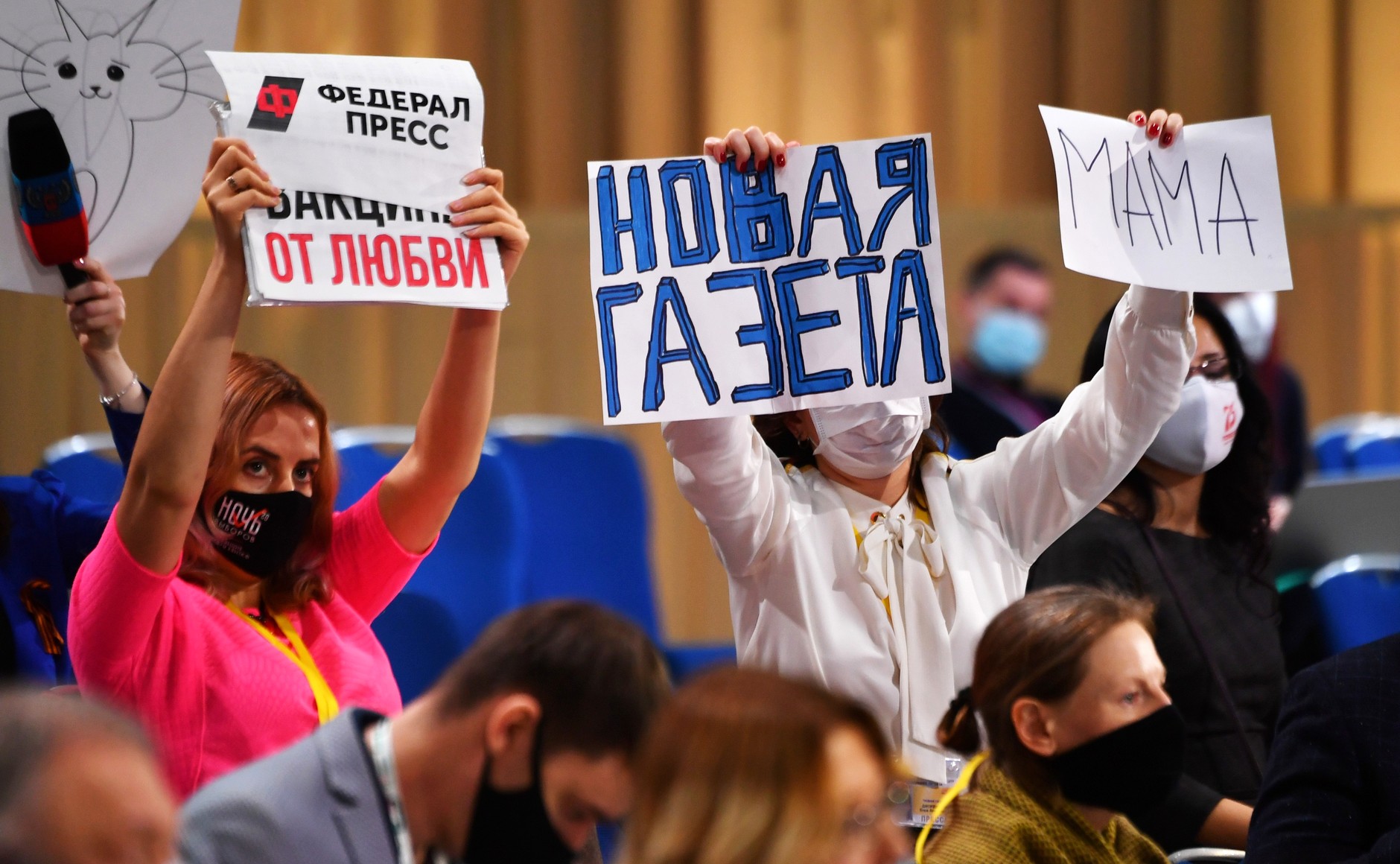 Olga Bogoslovskaya: You know, Mr President, I think the whole country saw it in some way. I did not watch it to the end but it was clear from the start what it was all about. Vladimir Putin: I, for one, have not seen it. Olga Bogoslovskaya: But you have probably heard about it. Vladimir Putin: I have not seen it but I read different letters that are sent to me, in part, through call centres, as I have said. For example, Yury Krasnyansky from Murmansk Region writes about the ambulance service in the village of Alakurtti. “We have one vehicle with one paramedic,” he writes, “You can get to the outpatient clinic on your own, if you are well enough to do it, that is. In the outpatient clinic, we have one general practitioner,” he continues. “She is 86 years old and can barely distinguish haemorrhoids from tonsillitis.” They do seem to have a problem with transport and medical care there. So here is what I would like to say in this regard: Mr Krasnyansky, first, if this is all true, if your 86-year-old doctor still continues working, she is clearly a labour veteran, and this means that she needs to be treated with special respect – I would like to emphasise that this is exactly how it should be – it means that, first, she went on working no matter what, and the level of fundamental training of medical workers in Soviet times and even in tsarist Russia has always warranted respect. This is the first point. Secondly – you might want to try to help her if she cannot distinguish haemorrhoids from a sore throat, help her somehow, support her, and we will try to support you. I have already said that we have started purchasing vehicles, including for paramedical stations, even ahead of schedule this year. I will definitely ask the relevant government agencies and the Murmansk Region Governor to take care of this – of your village, of this paramedical centre, the ambulance service, service in this area, and of course, we will help with vehicles. Dmitry Peskov: It is getting quite late in Vladivostok. Let us hear from Vladivostok again. Dmitry Kaistro: Good evening. It is almost midnight in the Far Eastern Federal District, and that is why our journalists’ patience, excitement and, most importantly, their unflagging energy are even more surprising. We have the best professionals of the Far East here, so it is very difficult to choose. Mr Peskov, with your permission, allow me to do this. Dmitry Peskov: Go ahead. Dmitry Kaistro: Excuse me, all of you are great, but I think that the young woman in a yellow cape with a poster saying “Politics and people” has hit on a crucial element of our current reality. Please, introduce yourself. 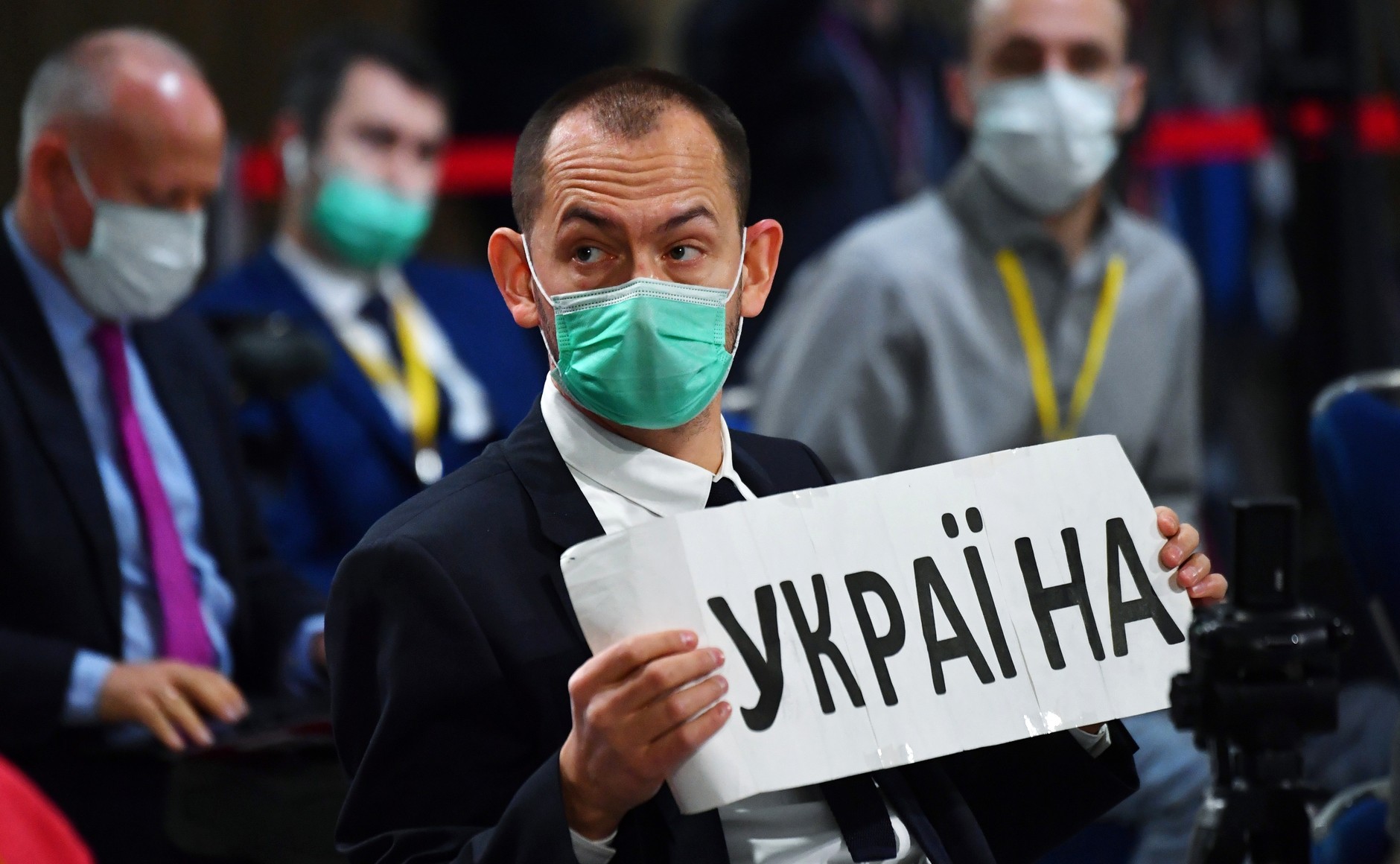 Oksana Kiselyova: Thank you. Oksana Kiselyova, PrimaMedia Agency. I think that people in the Far East will remember the year 2020 not only because of the pandemic, which is raging in all other regions as well, but also the appointment of new governors in several regions, including in the Jewish Autonomous Region, Kamchatka and Khabarovsk Territory. The events in Khabarovsk Territory were especially memorable, and not only for local residents who spoke up in support of former Governor Sergei Furgal, because protest rallies were also held in Primorye Territory, Sakhalin, Kamchatka, Magadan Region, and so forth. Mr President, the other day your Plenipotentiary Envoy to the Far East, Yury Trutnev, said in an interview with PrimaMedia that despite public sympathy for Furgal, he is responsible for botching several construction projects and was a difficult person to work with. Here is my question: do you have fresh information from the investigative authorities that confirms the gravity of the charges brought against Furgal? And about the protests: does public discontent over the decisions of some officials at different levels reach you? I am referring not just to political decisions, but also to their actions in the environment, culture and other spheres. Thank you. Vladimir Putin: Oksana, what can I tell you about Sergei Furgal? He is a member of a prominent party, which supported and continues supporting him. I had a good relationship with him, and, in general, he was loyal to the federal authorities. I had no problems with him. I am not aware of how Trutnev assessed him, but I think that he was working well, on the whole, doing his best as the leader of the region. However, the charges brought against him are grave: he has been charged as a member of an organised criminal group that was guilty of eliminating its commercial rivals. We are talking about murder, not embezzlement, fraud or abuse of office, but murder. Look, this is a grave charge. You asked if I have any additional information. The investigation is still underway. I do not phone them every day to demand additional information. Let us give them the opportunity to do their job in peace before taking the case to court. I can understand the people who were disgruntled by the news of Sergei Furgal’s arrest and the charges brought against him. I can understand that, because they had voted for him and hoped that he would deliver on his election promises. But what should we do about the charges? This is not political persecution; this is a criminal case. Similar action has been taken against representatives of other parties as well. Take United Russia: we remember that some regional party leaders, who committed crimes, have been convicted and sentenced to long prison terms. Some of them are still serving their sentences. Should we make exceptions for some parties? Regrettably, such cases have been reported in all parts of the political community; this has happened with members of all political parties. Our law enforcement and judicial powers must forget about their political preferences and act without bias in all cases. This also goes for Furgal. Dmitry Peskov: Let us move on to Novosibirsk. Anton Vernitsky: They are starting to shout here. You know, Mr President, during your press conference, some people have not only changed their disposable masks, but also redrawn their posters. But there are still those who came without posters, so here is someone without a poster, a lady in a black mask, who changed it, but did not draw a poster. Please introduce yourself. Yelena Malyshkina: Yelena Malyshkina, Vesti-Irkutsk, State TV and Radio Company Irkutsk. Irkutsk Region, Baikal, meaning it is about the environment. Mr President, good afternoon. I would like to ask you the following question. Over the past year, several major environmental incidents have occurred, and you personally had to take measures in order to sort out these situations: one had to do with Norilsk, and another with Usolyekhimprom. What punishment do you think those responsible deserve? And do you support the idea of, shall we say, maximum fines for those who cause such huge damage to nature and the environment? Thank you. Vladimir Putin: Look, Lena, we need to break this problem into two parts. The first part concerns the so-called accumulated damage, which has been caused by the operations of certain industrial enterprises since Soviet times, but is not associated with the activity of any specific modern commercial or state companies. And for this, the responsible party is definitely the state, represented by government authorities at various levels – both federal and regional. And of course, we must react to this, and we will. This is the story in Krasny Bor near St Petersburg, Usolye-Sibirskoye, some other facilities, storage facilities, and so on. The sooner we can effectively sort this out, the better. Then there are current problems and man-made accidents, and here the culprits should be identified by the relevant supervisory authorities, and those authorities will decide on the degree of their responsibility. This responsibility lies primarily with the polluters, and they must be held accountable. How seriously? The severity of punishment should correspond not to the threat posed, but to the amount of damage they caused to the environment and the people who live in a particular area. Therefore, as far as Norilsk Nickel is concerned, I am not interfering. I just know that the requirements for Norilsk Nickel are very high, and they must bear responsibility for what has been done. By the way, in the city of Norilsk, the company should definitely pay more attention to environmental issues and be more attentive to what is happening with emissions, even to what is happening with medicine. The company can certainly take on a certain share of the burden and responsibility for these areas of the region's life.  Dmitry Peskov: Let us have a question from the centre. Mir, go ahead. Introduce yourself, please. Nadezhda Seryozhkina: Nadezhda Seryozhkina, Mir International Television and Radio Company. Mr President, the Commonwealth of Independent States will mark its 30th anniversary in 2021. As we approach this anniversary, there is a feeling that the CIS is going through a midlife crisis: the President and Government in Kyrgyzstan had to step down; there were riots after the presidential election in Belarus, and Moldova’s president-elect Maia Sandu said or even demanded that Russian peacekeepers leave Transnistria. Mr President, I have the following question in this regard: are you concerned that Russia could lose any of its CIS allies? Thank you. Vladimir Putin: Nadya, you called it a “midlife crisis” and provided several examples, like Kyrgyzstan. But is this the first time it happened there? They are constantly playing musical chairs. I think that they are always trying to run ahead of the train in their attempts to fit their domestic policy into the mould of some Western countries. At the same time, they lack the level of political consciousness and institutional maturity of the kind, for example, France has. Political systems in France or the Federal Republic took decades, if not centuries, to take shape. It would not be an exaggeration to say that it took centuries for the parliamentary form of government to come about or to have traditional political parties with steady political platforms that the voters understand. These are established political systems. But do countries in the post-Soviet space have all this? For this reason, I would say that what happened does not result from short-term developments, but rather from the country’s efforts to find its own path, since we have to treat all our partners with respect. Therefore, I would not say that we have reached some kind of a fault line. President-elect Maia Sandu, I wish her all the best, I wish her every success in her work, but, as a representative of a certain political force, she did not say anything new. We have long been hearing representatives of various Western countries telling us that we need to withdraw our peacekeeping contingent. And Maia Sandu is the President of Moldova, but she is also a citizen of Romania. We have heard representatives of Western countries tell us we need to pull out, and in general, we are all for doing just that as soon as the appropriate situation develops, as soon as a normal dialogue is established between Transnistria and the rest of Moldova, as soon as they are on the path towards peace and reconciliation. We support this, and we were already very close to that with former President Voronin, but at the last moment, representatives of Western countries put pressure on him, too, and he refused, and withdrew from the previous agreements, and the solution of the Transnistrian issue was postponed indefinitely. We do not know why. Later, I asked my colleagues from the European Union, “Why did you do this?” – “Well, it just happened.” I suggest we do not go into detail now, but sooner or later, this problem must be resolved. Belarus – I have made repeated statements on this score. It is my belief that Belarusian people need to be given an opportunity to address their issues inside the country, and resolve them calmly. President Lukashenko has also made statements on this score. I agree with him that this should be done in a calm and measured manner. He initiated amendments to the Constitution – let us see how it goes. The only thing that definitely needed to be achieved there was, I have already mentioned this in one way or another – it all needed be done without outside interference. From what we can see now, unfortunately, this interference is taking place – the informational, political, and financial support for the opposition from abroad. Nothing good ever comes from abroad. You know, I can see through your mask that you are smiling, but this point is of the essence. Do you know what this essence is? The essence is that no matter how hard, difficult and even long this may take, it has to mature within society. Anything planted from the outside will never calm down the situation; rather, it will work as a bomb, a grenade, but it never helps. You just need to be patient and wait, and help all political forces avoid conflict with each other, but instead, encourage everyone to start a positive dialogue aimed at protecting people’s interests. Therefore, we will soon have a CIS event at the end of the year; I think it will be very appropriate and useful. We will discuss with my colleagues what tasks we should tackle as a matter of priority. Dmitry Peskov: Let us go to Yekaterinburg. 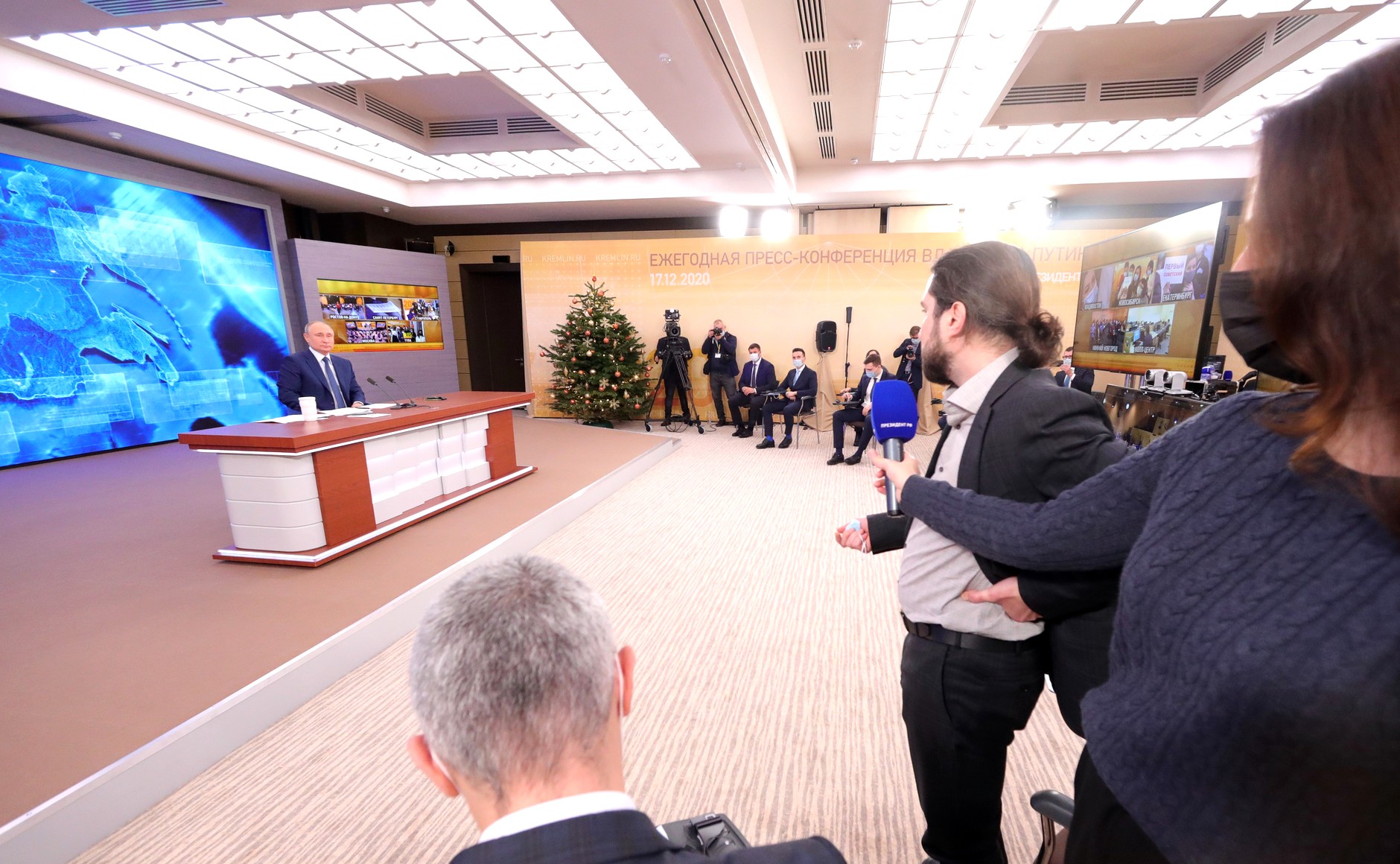 Olga Armyakova: Colleagues, in our neck of the woods, no one hollers from their seat, after all, the tough Urals character makes itself felt. However, there are clearly more signs now. The journalists made some more while we were busy talking in the news conference format. Let us hear what the young woman in the second row has to say. She has the word everyone had to learn this year. Please introduce yourself and go ahead with your question. Yekaterina Tsygankova: Good afternoon, Channel 4, Yekaterinburg, Yekaterina Tsygankova. I had the word “lockdown” written on my sign, which has probably become a household name by now. Here is my question: of course, the coronavirus has hurt the national economy, and our region is no exception. Unfortunately, this year, the budget had a shortfall in revenue of about 10 billion rubles, and revenue is down by 10 percent. Both small- and medium-sized businesses, as well as major industrial enterprises have felt the pinch. The unemployment numbers are up. Unfortunately, some enterprises are cutting staff, and some are laying off whole teams. Of course, I would not say that the state has abandoned us to face this misfortune on our own. Significant funds have been allocated from the federal and regional budgets to support unemployed people and families with children. There were benefits for entrepreneurs as well. But the situation remains difficult nonetheless. My question is, how do you see the economy recovering from the coronavirus crisis? My second question is, when will we be able to return to the pre-crisis period? Is it perhaps related to the fact that you did not introduce lockdown in October and November that was there in the spring? Thank you. Vladimir Putin: This is a legitimate question from Yekaterinburg, because Yekaterinburg and the Urals in general, is a major industrial centre. Of course, the restrictions caused by the coronavirus have affected, in one way or another, the Urals region, and the national economy as a whole. I will spend a little more time discussing this issue, as it is of critical importance for our country. Which industries were hit hardest? There are several such industries, including transport, primarily air transport, rail transport, especially passenger, retail trade in non-food products and the services sector, such as fitness centres, restaurants, cafes and the like. When I said that the Government has worked very hard this year and, in conjunction with the Presidential Executive Office, worked out the necessary decisions to support households and the economy, I named several sectors. What has been done in these sectors? First, we have postponed all payments, except VAT, until a later date. Second, we provided grants twice, I think. Third, we issued loans at zero interest rate. Fourth, we issued a loan at a 2-percent interest with an option to write off the entire amount if 90 percent of the payroll remained in place, or writing off 50 percent of the debt if 80 percent of employees were retained. We have postponed payments for state property lease. Finally, a far-reaching decision was made to reduce payments to social funds from 30 to 15 percent for small and medium-sized businesses. This is a permanent measure, and will outlast the pandemic. It is a whole package of measures that have generally supported the affected industries. In addition to the affected industries, we also worked with representatives of the backbone industries. What industries am I referring to? The automotive, the aircraft construction industry, shipbuilding, agriculture and construction. All our automotive programmes are progressing. You probably noted that the day before yesterday, the MS-21 powered by PD-14 engines, also produced domestically, took off on a flight. It is in fact already good enough for commercial production. A great achievement, among other things, for our engine builders and aircraft manufacturers. I congratulate them on this event. Yesterday, they also flew another Il-114, a completely new aircraft, practically a new modification. Also a great event. Congratulations! Our civilian shipbuilding industry has grown by 30 percent, despite all the problems caused by the pandemic. Construction. True, we built a little less this year, but in general, we supported the industry, and well enough. In fact, we supported both consumers and the industry at the same time, including through preferential mortgages at 6.2 percent. This was also a huge help to the economy. Overall, 4.6 trillion rubles were allocated to support individuals and industry, and to fight the pandemic. It is unprecedented spending, at 4.5 percent of the country's GDP. I have already said, I have cited the figure; the government channeled 838 billion for the direct support of individuals. We have developed a whole package of measures. They were planned, then initiated and formalised accordingly. This package of measures has also been used effectively. Now we are thinking about what to do next. As you said, we need to make our way out of the crisis. Emerging from the crisis will depend on how well we cope with the pandemic itself, how quickly it will end, how quickly we launch nationwide vaccination, and subsequently lift all the restrictions that are still in place. I expect that over the next six months, the situation will change for the better one way or another. As for the economy, according to various estimates, according to various calculations, we will overcome all these problems somewhere around the end of 2021 – the first quarter of 2022. Moreover, next year we expect to see positive trends in the country's GDP, the gross national product. But everyone needs to work hard. It is my belief that we will be able to achieve this goal and address these challenges. Dmitry Peskov: Let us turn to the call centre. 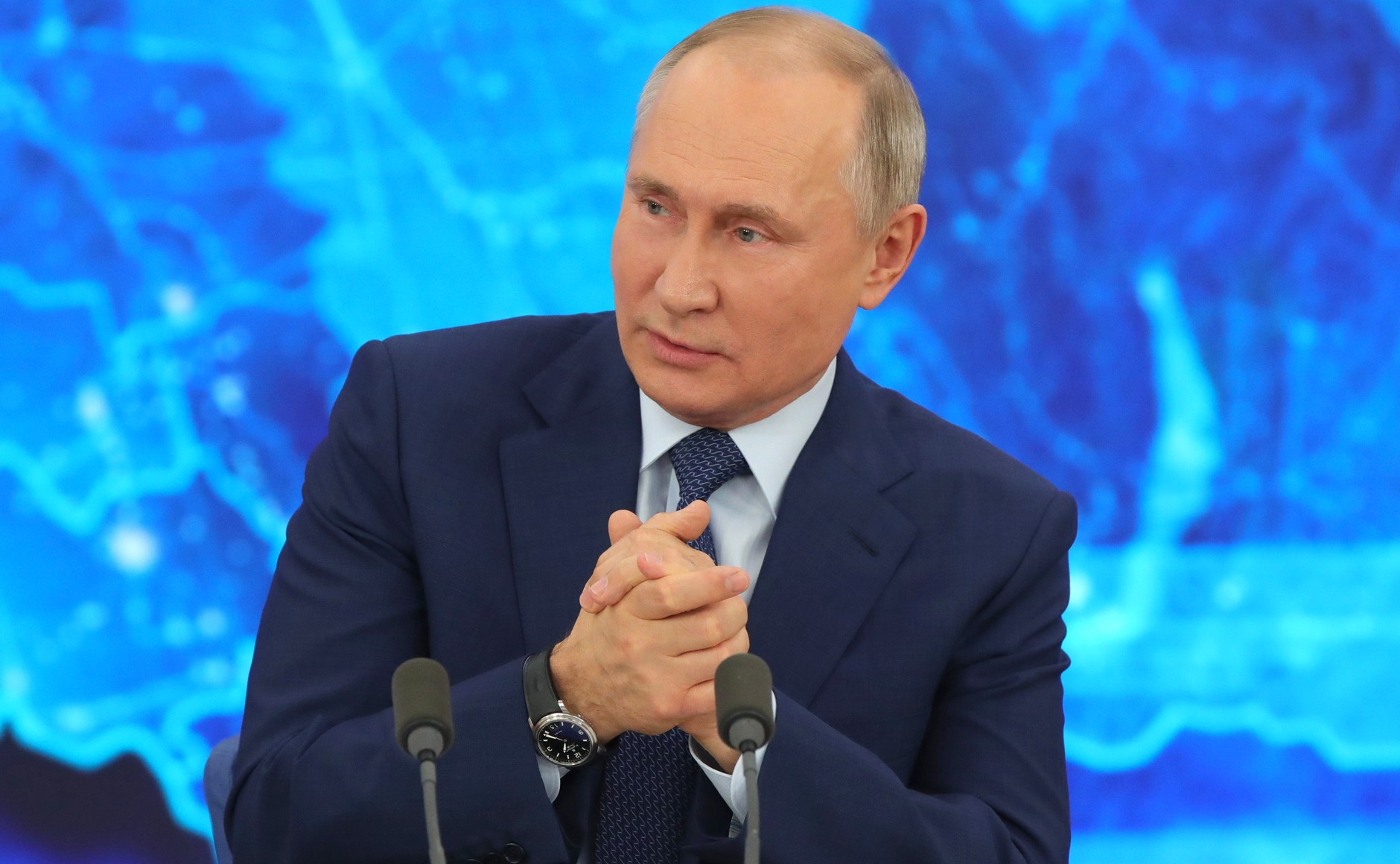 Nailya Asker-Zade: (no sound)… did not receive benefits for her nine-month-old child in December. Dmitry Peskov: Nailya, could you repeat that from the beginning? The sound was off. Nailya Asker-Zade: During the pandemic with its challenges, this money is the only way to make ends meet. So the parents are asking whether new child benefits will be paid out next year. Vladimir Putin: Please, repeat your question from the beginning. Nailya Asker-Zade: The next application comes from Algiza Tuktarova in Bashkortostan. In November and December, she did not receive any benefits for her nine-month-old child, and does not know where to go. During the pandemic with its challenges, this money is the only way to make ends meet. Therefore, the parents are asking whether new child benefits will be paid out next year. Vladimir Putin: I have already answered a question on the new payments. We are constantly monitoring the situation and what is going on. We are also thinking about paying out new benefits, and I will discuss this in a short while. However, if the woman that contacted you did not receive the payments for November and December, this means that the fault lies with the system for paying out these benefits that were designed to support people. We need to get it right and make sure that it works. Could you please tell us who raised this issue, and where she lives? Please, share her address. This has to be done through the Pension Fund, and using the integrated state service centre as a one-stop-shop. We will definitely look into this issue. What was the region again? Nailya Asker-Zade: Bashkortostan. Vladimir Putin: Bashkortostan. The governor probably hears us. Where specifically in Bashkortostan? Nailya Asker-Zade: We can find this request and share the details in a minute. Vladimir Putin: Please do, since we need to know the specific location. I know that Bashkortostan has a young governor who is quite active and effective, although mishaps are always possible. Please tell us the exact community. Nailya Asker-Zade: Yes, we will be back. 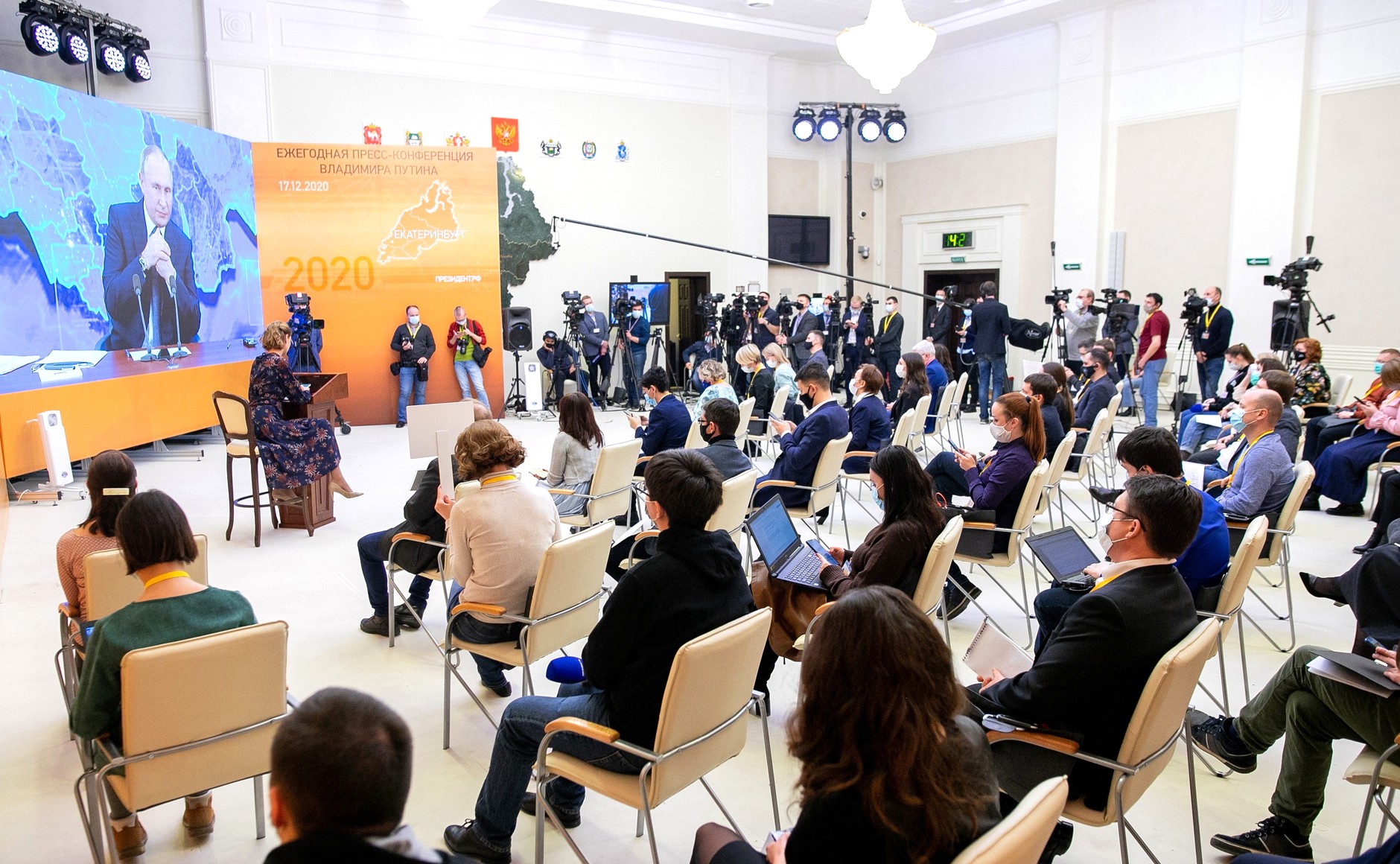 Dmitry Peskov: Let us now turn to Novo-Ogaryovo and the Kremlin pool. Please, show us Novo-Ogaryovo. I think I see RT in the back row. Go ahead, please. Igor Zhdanov: Igor Zhdanov, RT. Mr President, I have a question on security, in particular on the terrorist threat. Russia has always condemned all terrorist acts and continues to do so, including those happening in Europe. For example, this year there were attacks related to the publication of cartoons depicting the Prophet Muhammad. Russia, in turn, does not support publishing these cartoons. In your opinion, where does the freedom of expression as an inalienable human right end and become an insult to the feelings of religious people? Regarding Russia, what is being done to prevent us from following in Europe’s footsteps? Thank you very much. Vladimir Putin: Where does freedom end and become an offence? I will not tell you anything new, Igor. How can we draw a line between two freedoms? The answer is simple. A person’s freedom ends where another person’s freedom begins. This is a universal formula. Those who act without thinking and offend people of faith and hurt their feelings have to remember that there will be a response, one way or another. On the other hand, this response should not be aggressive. No world religion, including Christianity and Islam, as I have recently quoted from the holy books – the Quran, the Bible and the Torah, and the Buddhist holy texts – mentions aggression. When someone’s rights are violated, including for people of faith, the response should not be killing the perpetrator, since it runs counter to the spirit of any world religion. God gives life, and only God can take it. This is something everyone should remember. How does this apply to Russia? You asked me what we do to prevent this from happening. You know, from the outset Russia has been a multi-faith country. We have developed a certain culture of interaction between representatives of various faiths and ethnic groups. This is an essential element of the heritage our ancestors, the preceding generations passed on to us. There were very many tragic, difficult and even black pages in the history of our country. Just take a look at the deportation of some ethnic groups after the Great Patriotic War. This is a painful subject, and we try to avoid speaking about it, but this did happen in our history. I am not going to assess those events now. But it is a fact that some members of the ethnic groups that were later persecuted had given a hospitable welcome to the occupiers – and there were such people among nearly all of the Soviet Union’s ethnic groups in the occupied territories. Do you agree? Yes, there were traitors everywhere. At the same time, other people, including, by the way, members of the ethnic groups that were later deported, had fought heroically for the interests of their country, and fought to the bitter end and until their last breath. Why am I saying this now? There were no persecution campaigns on religious grounds; well, priests were indeed persecuted by the Soviet authorities, but it was only priests. Ordinary people were not persecuted because of their faith, never in our history, you see? This is extremely important. What I mean is that the culture of relations between different religions, as well as between non-believers, developed in our country over centuries. This is why, thankfully, we never permitted and do not permit such offensive behaviour with regard to people of different faiths. I hope that this will never happen, and I am asking all of you to ensure that this never happens, because this would destroy the country from the inside. We must not allow this to happen. As for what is taking place in some European countries, do you know the reason for it? For example, Muslims account for around 10 percent of the population in some European countries. But most of them are first, second- or third-generation immigrants, while in our country people of different religions live in their own country and have never had any other home countries. This is an extremely important feature, which explains the difference between relations that have developed and continue to develop among people of different faiths in our country and in Europe. This is why the multiculturalism project has ended in a fiasco, has failed there, something many of those who had advocated and promoted it had to admit. They had to admit that it failed. But it our country it has developed intrinsically over centuries and we treasure it. Dmitry Peskov: We have undeservedly overlooked major news agencies. Let us begin with TASS. You have the floor, please. Veronika Ichotkina: Today, we do not have so many questions on the international agenda. I have a question on an international matter, namely, the conflict in Nagorno-Karabakh. For convenience, I will divide the question into three parts. First. Why, in your opinion, did this long-standing conflict flare up so violently and why precisely now? Did this amount to objective conditions, or is it possible to blame one of the parties, or did someone toss the match from the outside? Second, how did Turkey behave in this conflict? It is common knowledge that Ankara provided considerable military support to Baku during the conflict’s hot phase. It was decided to establish a monitoring centre following the ceasefire agreement. Ankara therefore shows that it has its own interests in this region. And what interests does Russia have in this region, and how do they intersect or even directly clash with those of Turkey? And the situation in the vicinity of Gadrut is the last aspect. How great is the risk that ceasefire violations will continue in the region? And what will Russia do if these violations continue in the future? For example, is it possible to expand the peacekeeping contingent? Here is another aspect dealing with Gadrut. Judging by statements and discussions in these countries, certain tensions arise because the parties interpret differently Clause 4 of the trilateral agreement, under which the Russian peacekeeping contingent is deployed as the Armenian forces withdraw. To the best of my knowledge, Baku sees this clause and interprets it in such a way that Armenian forces should completely leave Nagorno-Karabakh. In turn, Yerevan believes that, under this clause, they should leave only those territories that are being ceded under the agreement. The Armenians therefore believe that they should leave only those territories they are ceding under the agreement, and the Azerbaijanis believe that Armenian forces should completely leave Nagorno-Karabakh. I therefore would like to ask you the following question on this aspect: As a co-author of this trilateral document, could you explain what you, Aliyev and Pashinyan had in mind while approving this clause? Thank you very much. 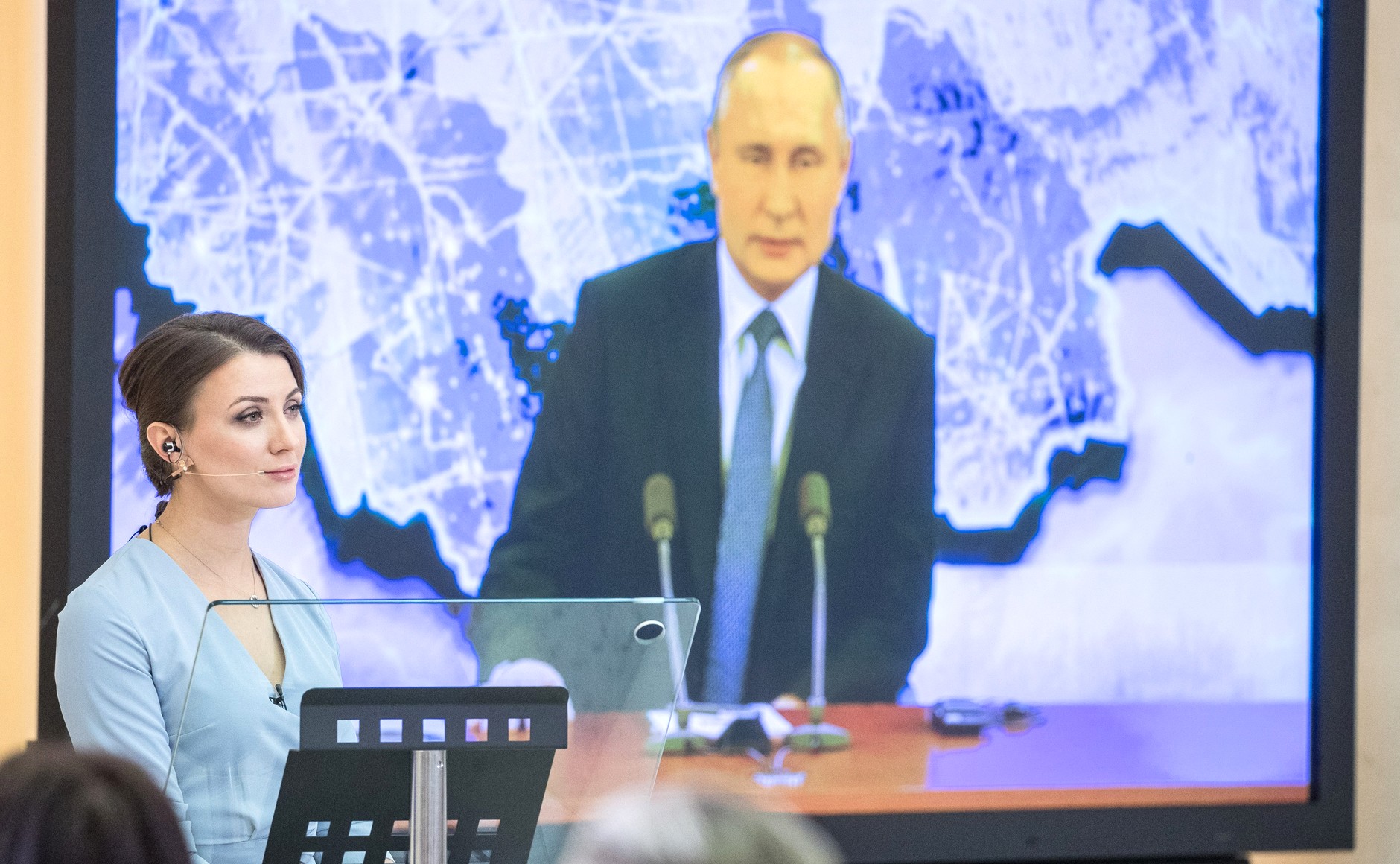 Vladimir Putin: You brought up so many issues. We could stay up all night discussing these. Firstly, why exactly did it happen at this particular time? The situation spiraled out of control and lasted for many years. I do not think this was the result of outside interference. Friction, shootings and skirmishes had been happening for some time. In the end, it all led to a full-scale conflict. Russia has invariably insisted that an agreement be reached without bloodshed. This is how we positioned ourselves in the Minsk Group, which Russia, the United States and France co-chair. We have for many years – I will reiterate our position – operated on the premise that Azerbaijan should get back the seven areas outside Nagorno-Karabakh. The very status of Nagorno-Karabakh should remain unchanged in the future. The status of Nagorno-Karabakh should be made permanent. However, Nagorno-Karabakh and Armenia should be able to maintain contact, so it was decided to create the “Lachin corridor,” that is, a physical connection between Armenia and Nagorno-Karabakh. Why Lachin? Because the area this corridor passes through is called Lachin District. This is not complicated. Turkey has publicly stated that it upheld, as they see it, the just cause of Azerbaijan, namely the return of the territories that were occupied in the 1990s. From an international legal standpoint, and I also mentioned this, these territories are an integral part of the Republic of Azerbaijan. I will say it again: Armenia did not recognise the independence of Nagorno-Karabakh, so in this respect, Nagorno-Karabakh is part of Azerbaijan from the perspective of international law. However, I believe things are more complicated than straightforward regulations, including international legal ones. The roots go back to the ethnic conflict, which began in Sumgait and then spread to Nagorno-Karabakh. Here, each side has its own truth. The Armenians in Nagorno-Karabakh then took up arms to protect their lives and dignity, which led to the situation at the time the conflict escalated this year. As you know, we agreed, in the trilateral statement, to stop the hostilities. Importantly, we agreed that the sides should stop at the positions they were holding at the time of signing the trilateral statement. This is where everyone has to stop. In this connection, there are many technical, infrastructure-related matters. Incidentally, this agreement to cease hostilities was essential, as I have said, because it stopped the bloodshed and spared lives. This is what actually mattered the most, and all the rest fades in comparison. The main objective that we have been able to achieve was to preserve the lives and health of the people. Since the armed forces stopped in their positions at the time of signing, certain infrastructure-related challenges had to be resolved, for both Azerbaijan and Armenia. But these matters have to be settled in a calm atmosphere, as part of the negotiating process. This trilateral statement provides the necessary framework and opportunities, since it states that once the ceasefire is in place, the next step will be to bring relations in the region back to normal by unlocking its economic and infrastructure potential, including roads and railway links, etc. This applies to the Nakhichevan Autonomous Republic, as well as transport links between Armenia’s north and south. The outbreak, the ceasefire violation happened only once. I hope that it will stay this way, and that the parties will sit down at the negotiating table, whether mediated by us or by the Minsk Group. It does not matter. What matters is that this process gets off the ground and comes to a positive conclusion. As for what troops should be deployed and where, I have already answered this question. We do hope that international mediators will move from words to action and start providing actual assistance to people who need help, primarily the refugees returning to Nagorno-Karabakh, so the humanitarian convoys do not come exclusively from Russia. International organisations should also make their presence felt, including UNICEF, UNESCO, and the United Nations World Food Programme. I hope that those willing to support the people in the conflict zone will respond via bilateral channels and move from words to actions. As for us, we are ready to carry on with these efforts. Regarding the expansion of our peacekeeping force, it is possible, but only if all the parties agree to this, including Azerbaijan, since we agreed on the number of peacekeepers early on. This is a purely technical matter, so if everyone comes to the conclusion that it has to be done, we will do it. If not, then we will not do it. That said, this is not just a matter of peacekeepers, but also how well Russia’s Emergencies Ministry and its staff, as well as the Border Guard Service of the Russian Federal Security Service operate there. Dmitry Peskov: Let us move on to Nizhny Novgorod. Yevgeny Khvan: I want to note that the news conference has been going on for over three hours. During this time, both the colours of the signs and the questions have changed. Our colleagues have prepared several questions and are trying to draw the President’s attention in various ways. Mr Peskov, I have a proposal. In fact, being a journalist, I would also like to give everyone the opportunity to speak, but apparently there is simply not enough time, so maybe you can look at the signs our colleagues are holding up and pick a question yourself. Dmitry Peskov: Penza, please. Pensions. Yevgeny Khvan: Please, introduce yourself. Yulia Izmailova: Good afternoon. My name is Yulia Izmailova, I am editor-in-chief of Molodoi Leninets newspaper from Penza. Mr President, the indexation of pensions for working pensioners was abandoned five years ago. It was said that it was a temporary and forced measure. Please, tell me, under what conditions will indexation be resumed? Yevgeny Khvan: Thank you. Vladimir Putin: The condition is quite simple: enough money in the budget. As you know, in the Soviet Union… It is good that being a Molodoi Leninets [Young follower of Lenin], you take care of the older generation. But Lenintsy know that in the Soviet Union, working pensioners did not receive any pension at all. Today, especially with the coronavirus pandemic and a drop in real income, indexation is very important. There are certain issues where several components of pension provision are lacking in the resulting sum for pensioners, and we definitely need to deal with this. I would think also about certain categories of pensioners who need additional support from the state. Their incomes are not big and they work at jobs that other people do not want to work at. In fact, the state is interested in these pensioners taking these jobs. Next year plans call for introducing indexation at a level higher than inflation, which is expected to be about 4 percent, maybe 4.1 percent. Pensions will be indexed by 6.3 percent. And we will do everything we can to meet this goal. As for your question, we, of course, are thinking about it and we believe that pensioners deserve it. 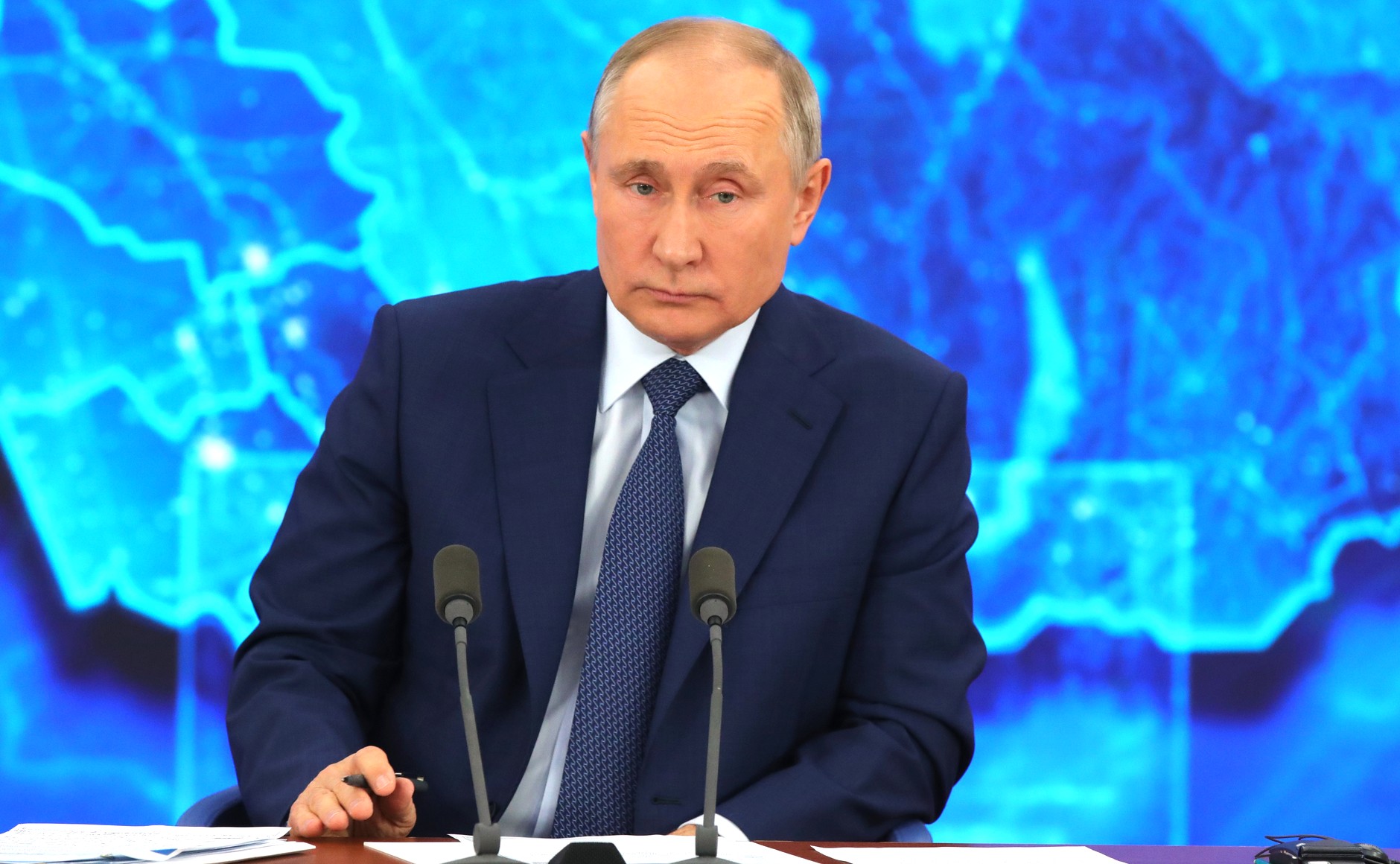 Dmitry Peskov: Did you manage to find out anything at the call centre? Nailya Asker-Zade: Can you hear us now? Dmitry Peskov: Yes, you can speak. Nailya Asker-Zade: We have found that question. Algiza Tuktarova from Kumertau, Bashkortostan, asks when will “Putin’s payments” be provided for November-December for children under three. Vladimir Putin: All right, I wrote that down, thank you. We will answer it. Nailya Asker-Zade: If I may, there is a question from a volunteer. Dmitry Peskov: Go ahead. Nailya Asker-Zade: Dmitry Bazhenov is joining us. Dmitry became a volunteer when he was still at school. During the pandemic, he has worked at Kommunarka Hospital. Dmitry, what questions have you received? Dmitry Bazhenov: Good afternoon. People are mostly concerned about water supplies. We have received questions from different parts of the country but Crimea is, of course, in the lead. The situation is particularly bad for the residents of Yevpatoria and Simferopol where the administration has already warned people that they may not have hot water until the end of the year. Not only the Crimean Peninsula but also many cities on the Black Sea coast suffer from lack of water during certain hours under a schedule, or not at all. At this point, I would like to read a question from Mikhail Masterkov, “Why is a water-supply schedule an emergency for Crimea but normal for Novorossiysk?” Mr President, the Russian people want to know whether there is a plan to restore water supply and when it will put into action. Vladimir Putin: There is a plan. I would like to respond to Mr Masterkov and all the people who asked about this. Yes, we know about this situation, and it is being dealt with at the Government and regional levels. As for Crimea, geological prospecting is being conducted there, as you know, and some water supply inlets are being redirected. I hope Sevastopol will not have these restrictions soon, and this applies to all of Crimea. There is every indication that Crimea has enough fresh water of its own. It just so happened that this problem was neglected in Soviet times, not to mention when Crimea was part of Ukraine. Now this plan is being carried out on a large scale. Some water is desalinated, but this may only be a limited alternative because desalination is quite expensive and the price might have to be included in the water rates. On the whole, the regional governor does not believe it will work on a broad scale. There may be another alternative for Crimea. Specialists maintain that there may be large reserves of fresh water in the Sea of Azov water area adjacent to Crimea and under the Sea of Azov. Put together, all these measures give me grounds to say that we will resolve this problem and the required funds are being allocated for this purpose. There is no doubt that the state will not try to economise on this issue. I am one hundred percent sure, so do not have any doubt. This concerns not just Crimea, though it is the hardest hit area. I understand that people are concerned about this problem. this also applies to Novorossiysk and Gelendzhik. Here I have selected a question on water supply and wastewater disposal. We will treat these problems in the same way. In Novorossiysk and Gelendzhik, they had a single waste water disposal system. Unfortunately, there was no separating of sewage disposal and storm water drainage. These two must be separated and then one system should be designed for one and later for the other and funding for construction should be provided. All this has been planned. Unfortunately, it is taking too long, I can see this both in Novorossiysk and Gelendzhik, and in other cities. But all this is planned and, I am sure, will be carried out. The source of information - http://en.kremlin.ru/events/president/news/64671
__________________
Where should they dig the Very Deep Pit? Piglet said that the best place would be somewhere where a Heffalump was, just before he fell into it, only about a foot farther on. (c) Alan Alexander Miln |
|
|
#164 |
|
Senior Member
|
Vladimir Putin’s annual news conference - PART III
The President of Russia held his annual news conference. December 17, 2020 - 16:35 - Novo-Ogaryovo, Moscow Region 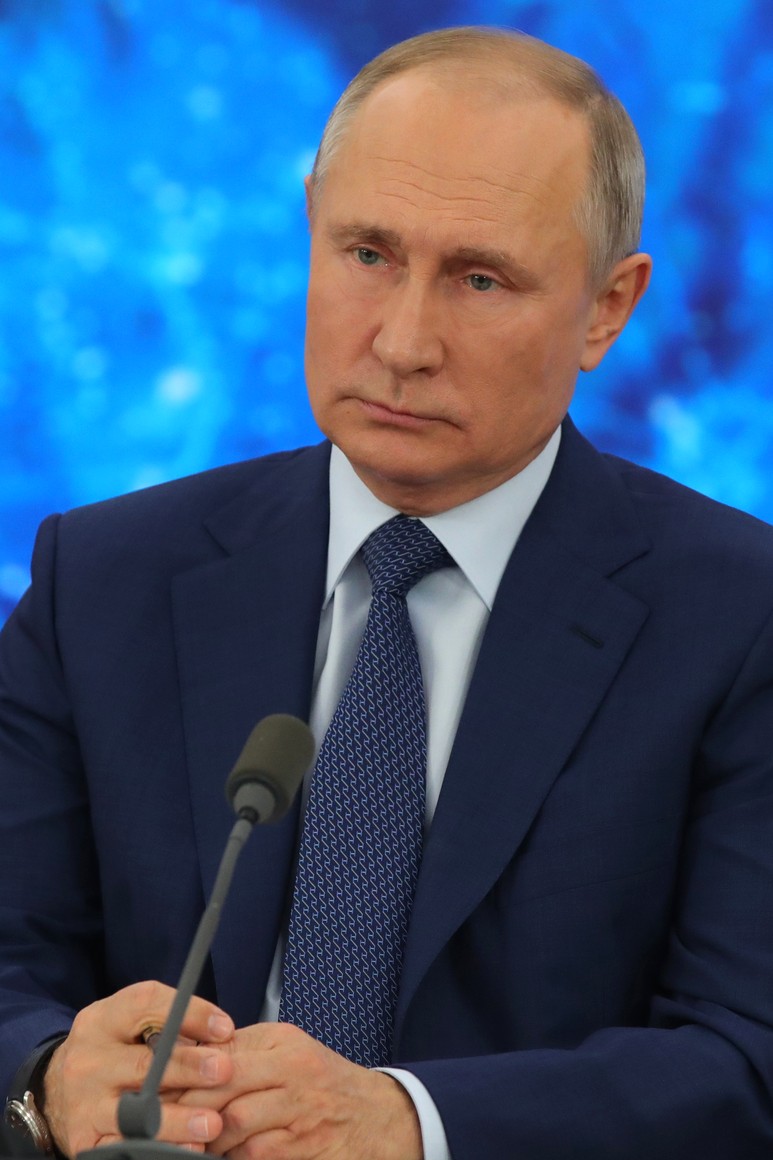 Dmitry Peskov: We have somewhat neglected the foreign media. BBC, please. Steve, we have not heard from you or seen you for a while. Steve Rosenberg: Steve Rosenberg, BBC News. Mr President, we increasingly hear the phrase “New Cold War” to describe relations between Russia and the West. Russia regularly blames the tension on external forces, either America, Britain or NATO. But having been in power yourself for 20 years, don’t you think that you bear some of the responsibility for the woeful relations, especially considering Russia’s actions over the past years, from annexing Crimea to using chemical weapons on British soil, in Salisbury? Or not? Are Russian authorities “squeaky clean”? And when it comes to chemical weapons – have you read the Bellingcat report that shows in detail that the attack on Alexei Navalny was orchestrated by the Russian state? Thank you. Vladimir Putin: I have already discussed the assassination attempt against the famous Russian blogger. I can only add to what has already been said on multiple occasions. We are ready to launch an investigation. If someone holds information that a chemical weapon was used, in this case Novichok, as we keep hearing, we ask you, please share it with us. We suggested that our specialists go to Germany, Sweden and France so that they can look into this issue together with their colleagues. Or we ask you to come to us and bring the biological samples or at least share an official statement with us. Steven, can you explain to me why, despite repeated requests from the Prosecutor General’s Office of the Russian Federation, we have still not received even an official statement? The German authorities turned all the materials over to the Organisation for the Prohibition of Chemical Weapons, and they refuse to share them with us, saying that Germany refused to authorise them to do so. Germany, in turn, tells us to inquire with the OPCW. Can you explain this to me, Steven? Why can’t they even give us an official report on the use of this Novichok? Steve Rosenberg: Are you asking me? Vladimir Putin: Yes, I am asking you. Steve Rosenberg: I am the journalist here, I am asking a question, and you answer it. 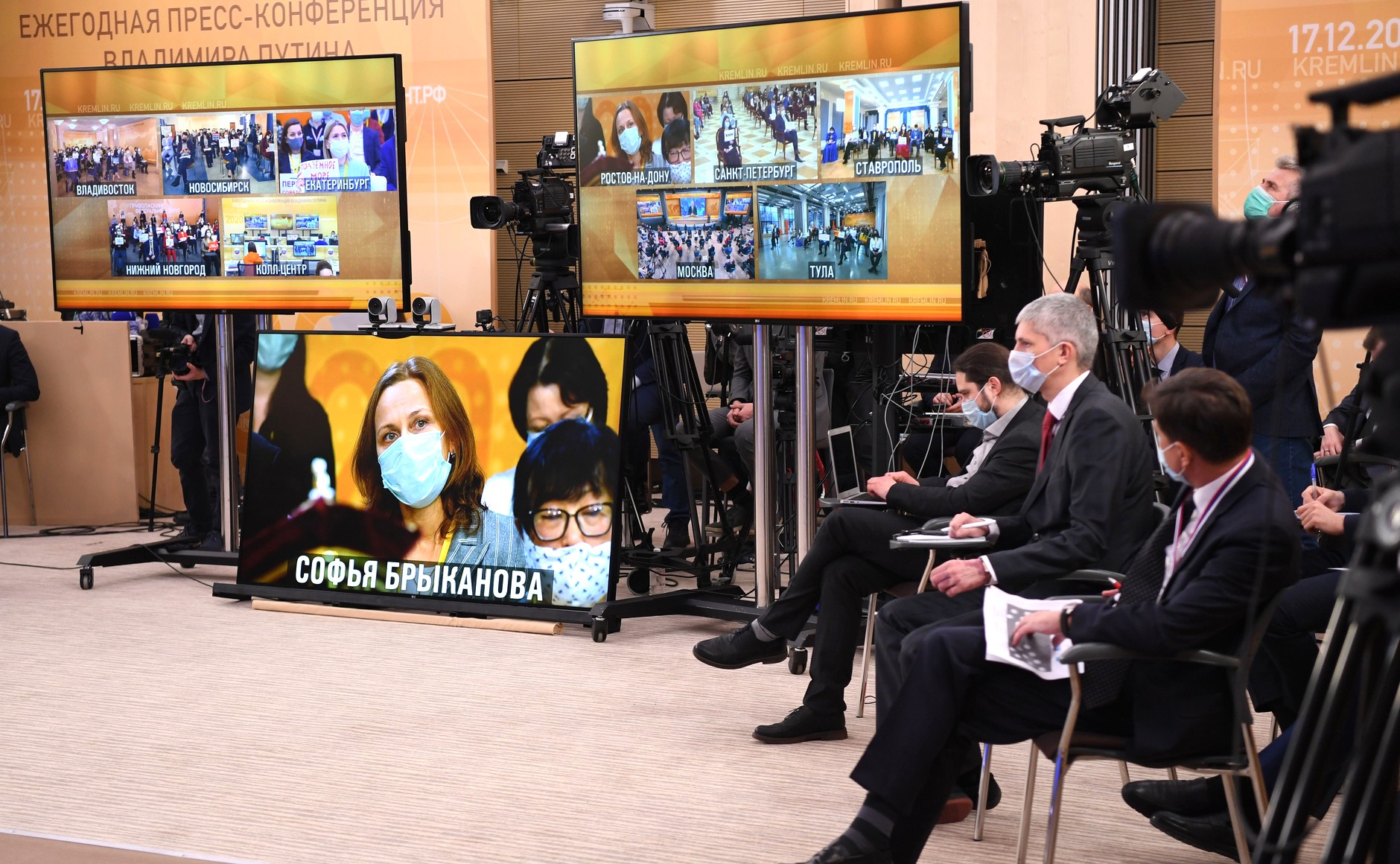 Vladimir Putin: Okay, fine. I apologise. Let me continue with my answer. Very well. Suppose this question remains hanging in the air. So be it. Regarding whether we are “squeaky clean.” Do we feel any responsibility for what is going on? I feel responsible for what is going on in Russia and with its people. I will do everything in the interests of the Russian Federation. This applies to Crimea returning to the Russian Federation. I would like to draw your attention to the fact that this is how the people expressed their will. In Kosovo, it was the parliament that took the decision, and you bought into it saying that this was the right way to go, everything is fine and democratic. In Crimea, people came to the polls and voted in a referendum, but for some reason, you do not like it. Let me remind you that democracy is the rule of the people, and you have to recognise this or stop using the term altogether. Crimeans have been facing sanctions. What have you sanctioned them for? If they were annexed, they cannot be blamed. Why should they be punished? If they were not annexed, if this reflects the result of a vote, it has to be recognised that this is democracy and they should be left alone, together with the accusations against Russia of annexing Crimea. Now, with regard to us being squeaky clean. Compared to you, yes, we are, indeed, squeaky clean, because we agreed to free the countries and peoples who wanted to be independent from a certain Soviet diktat. We heard your assurances that NATO would not expand eastward. However, you failed to keep your promises. Indeed, those promises were not made in writing; these were verbal statements, from NATO among others. However, you have done nothing in this regard. There have been two waves of expansion, and NATO's military infrastructure is moving closer to our borders. Should we not respond to this? Was it us who withdrew from the ABM Treaty? No, it was not us. So, we are forced to respond by creating innovative weapons systems that can nip these threats in the bud. Later on, our colleagues withdrew from the INF Treaty. Mind you, not we, but our US partners did so. Accordingly, we said that we would not produce or deploy such weapons until US weapons are deployed in Europe. However, no one has responded to this so far. Then, they withdrew from the Open Skies Treaty. What were we supposed to do? I do not want to ask you this question, but what were we supposed to do in this regard? Leave it at that? So, as a NATO country, you will fly over our territory and make everything available to our US partners, whereas we would not be able to do the same with regard to US territory? You are intelligent people, what makes you think we are dumb? Why do you think we cannot analyse and understand these elementary things? There are more issues that cause our concern. We are forced to respond to them. With all of that in place, we are facing the threat of the START Treaty expiring. Then, there will be no arms race restrictions, nothing at all. From day one, we have been calling on our partners to renew this treaty for at least another year and to conduct substantive, as diplomats say, talks on what to do next. We understand that Russia has developed state-of-the-art hypersonic systems, which no one else in the world has access to. We are aware of that. We are not against taking this circumstance into account. But to this day, no one has spoken to us about this. Similar systems are being developed in Great Britain and the United States. They have not yet developed them, we understand this, but we are open to talks. However, no one is talking to us. So, go ahead and answer your question about who is “squeaky clean” and who is not. We have two or three bases in Kyrgyzstan, Tajikistan and Syria where the terrorist threat is quite real. The other side, the United States, operates a vast network of bases around the world. Do you know the size of our military budget? It is 46 billion. Great Britain has a much bigger one. The US military budget is 770 billion. In terms of military spending, Russia ranks sixth internationally, after the United States, China, Saudi Arabia, Great Britain, France and Japan. So, who is squeaky clean and who is aggressive? Well, aggressive is not about us, for sure. If not squeaky clean, then, at least, we are comely and committed to maintaining dialogue and seeking compromise solutions. I would like to quote Leopold the Cat from a Russian cartoon: “Let us be friends, guys!”  Dmitry Peskov: Let us move to Stavropol. Vladimir Putin: Just a moment, there is a very important question I keep waiting for, but it has not been asked yet. It is a question from Smolensk, or rather from Smolensk Region. Galina Klimova is asking about gas supply on behalf of the people in the villages of Kommuna and Myasoyedovo in Vyazma District, Smolensk Region. She writes that high-pressure gas lines were laid back in 2015, but the villagers still have no gas. Ms Klimova, this is what I would like to say in this connection. First of all, this matter can and must be resolved, and we will certainly do that. Overall, provision of gas supply is estimated at 71.1 percent, and this year we allocated additional funds for this project. Gazprom has invested 22 billion rubles, and total investment is estimated at 56 billion rubles. It is important that 70 percent more gas lines are laid towards villages than to townships and towns. In other words, we are prioritising gas distribution for rural areas. I hope very much that the level of gas connectivity will reach approximately 90 percent by 2025, provided the technical capability is available. What does this mean? Laying gas lines to some areas is absolutely impossible because there are no gas deposits nearby or no infrastructure. But gas connections for Russia as a whole should reach some 90 percent by 2025. As for your villages, I promise to see to it that they are connected to the distribution system without delay. Dmitry Peskov: Stavropol. Pavel Krasnov: Thank you again. I suggest looking at the signs and posters prepared by my colleagues. As you can see, there is a great variety of subjects. Of course, this is a difficult choice, but frankly, I am attracted to a poster with the famous photograph by Yevgeny Khaldei, The Victory Banner over the Reichstag. Leonid Nechepurenko: Good afternoon. Yes, this is a great picture and a great moment, probably a pivotal moment in our history and in the history of the world. Actually, my question is about the 75th anniversary of the Great Victory, which we celebrated this year. Incidentally, Stavropol was one of the cities where a military parade was held. I represent Stavropol. Leonid Nechepurenko, Svoyo TV Channel. I had the luck to attend that parade. It was a unique event and one of the highlights of the year. It hurts even more to see some of the new tendencies, first of all probably on the part of our foreign partners who are trying to somehow revise the events of those years, question their significance – calling for a revision. The German Minister of Defence says that the only way to negotiate with Russia is “from a position of strength,” as if historical lessons have taught our partners nothing. Actually, my question is: what can Russia do and will it do anything at all to prevent a rewriting of history and to preserve the historical memory of that event? 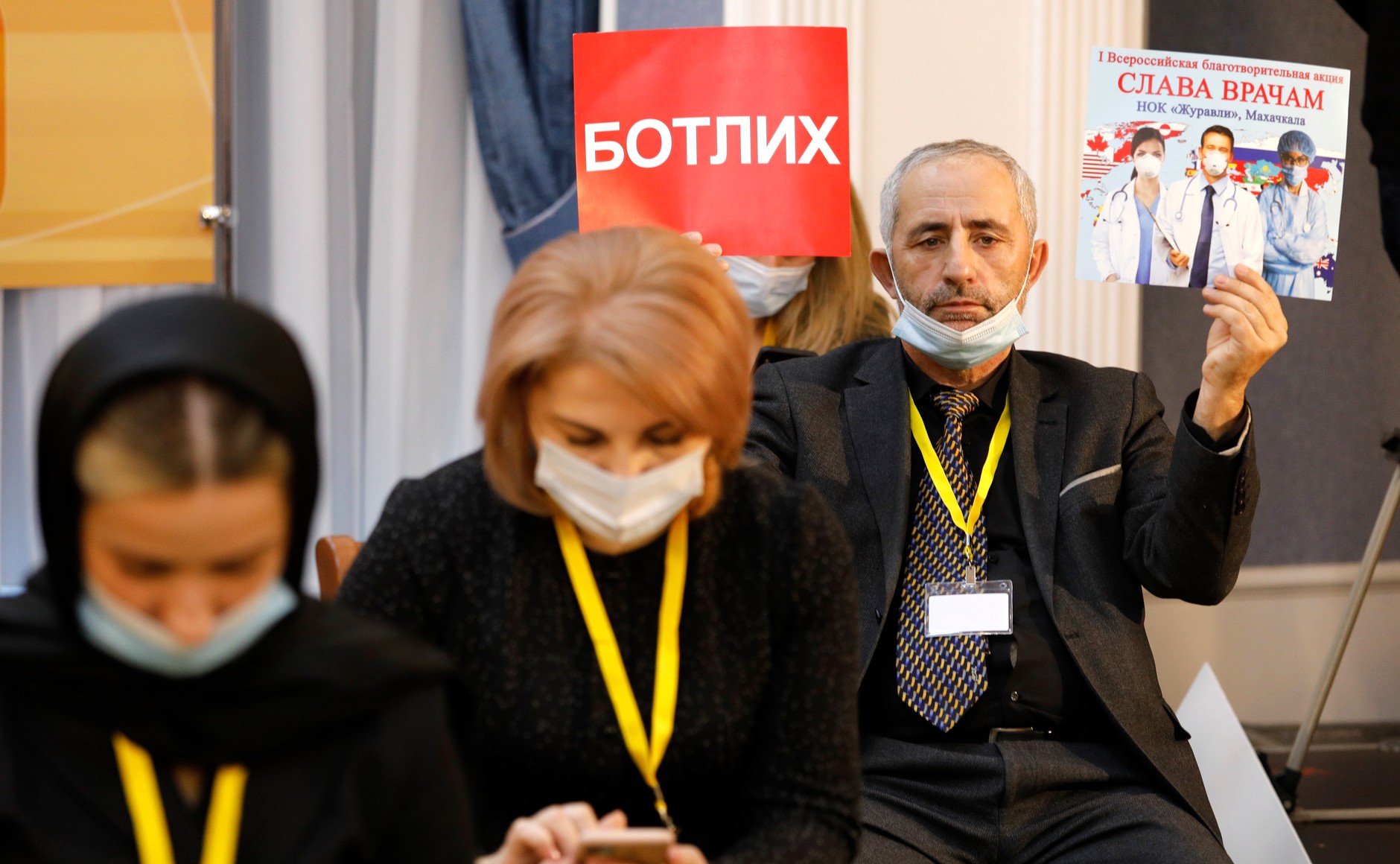 Vladimir Putin: To prevent a rewriting of history and, in general, any rewriting, we need to be self-sufficient, strong in every respect, primarily economically. We also need to develop our political system so that we feel confident in our country and that citizens understand where the country is headed and how it is progressing, and to build relationships with our partners in the international arena based on our interests and taking them into account. And of course, we should never forget about the feat of our ancestors, what they contributed to history not only during World War II and the Great Patriotic War, but also over the previous centuries. We have a lot to be proud of. As for the Great Patriotic War, you know that we are unlocking archives now, and publishing archival materials; we are creating agencies that will do that on an ongoing basis. I have said many times that all attempts to rewrite history are done for the sake of momentary political motives and will ultimately harm those who do it. This is especially true about the glorification of Nazism. I would like to point out that the UN General Assembly today adopted a resolution (I mean today New York time, I do not know how they dated it, maybe yesterday) condemning the glorification of Nazism. There were only two countries that voted against it – the United States and Ukraine. I do not think this flatters them, to put it mildly. And it is not even clear why. Well, I mean, on the one hand, it is clear, but on the other hand, there are things of a fundamental nature, not part of any current political situation. But we, for our part, are proud of our fathers, mothers, our grandfathers, and grandmothers. We are proud of our country and its history, and we will do everything to ensure that this pride stays with us throughout our life and is passed on to our children. Dmitry Peskov: Stavropol, will you please show us the room again. You have someone with a poster about Chechnya waging a war against somebody. Madina Musayeva: Vainakh State Radio and Television Company, Chechen Republic. First, I would like to relay words of greeting, gratitude and deep respect from the residents of the Chechen Republic who love you and are looking forward to your coming to Grozny. And now the question. The Chechen Republic today is a developed and safe region. This is largely due, among other things, to the efforts by the team, established with your support, by Hero of Russia Akhmat-Hajji Kadyrov, the first president of the Chechen Republic. After this national leader’s death you micromanaged the region and helped bring life back to normal. However, we face almost annual attacks by the United States of America against Ramzan Kadyrov and his team. Sanctions have been imposed many times on the Head of our region as well as his wife and children, and recently on a number of Chechen officials, sports organisations and a charity foundation named after our first president. Mr President, what do you think is the objective pursued by the West, and why do they enact these sanctions against Ramzan Kadyrov’s team?  Vladimir Putin: Madina, is Mr Kadyrov the only one about whom sanctions and stories are made up about? I think they are made up about Russia in general. Ramzan Kadyrov defends the interests not only of Chechnya and the Chechen people but also of the entire nation. This is why it is one of the objectives for our so-called opponents abroad. There is nothing special or unusual here. I know that Ramzam Kadyrov also takes it in stride. Some of my close associates, friends, or you might call them companions or teammates, even feel insulted by our partners if no sanctions are imposed on them. They say, “Why not, it looks almost humiliating and makes me wonder what we failed to do that we are not targeted by sanctions, as if to say that we have some peculiar relationship with them,” with our partners, as I say. There is really nothing so bad about this. Russia is a self-sufficient country and so are the Chechen people. Chechnya is progressing despite the heavy wounds of the mid-1990s, and progressing fairly quickly with its new team, which is relatively young. I know Mr Kadyrov, and I know him well. He has devoted his life to Chechnya, the people of Chechnya and Russia. My best wishes to him and all of you. I am certain that Chechnya as a whole will look just as good as Grozny does today. Madina Mysayeva: Mr President, I am afraid that there will be no second chance, so I would like to ask you another question. Dmitry Peskov: This is somewhat immodest. Let us move on… Madina Mysayeva: You said that Russia is Islam’s best friend and quoted from the Quran, and you always support Muslims. In your opinion, how important is it to build closer ties with the Arab world and what role does Ramzan Kadyrov play in this regard? Vladimir Putin: Regarding the Arab world, Ramzan Kadyrov’s role is just like that of any other head of a Russian region. In fact, it is the Foreign Ministry of the Russian Federation that is in charge of foreign policy. Still, regions have always contributed to the Foreign Ministry’s efforts in meaningful ways. As for the Arab world, and the Muslim world in general, we have long-standing ties with these organisations and countries. Russia has observer status with some of the prominent international Islamic organisations. Russia, the Soviet Union and today the Russian Federation have long maintained ties with the Arab world. We share strong and long-standing relations and are even witnessing a trend to further expand them. In Soviet times, there were ideological considerations at play, but now we have greatly expanded the geography of our cooperation with the Islamic world and the Arab world. We attach great importance to this and will keep moving in this direction and further develop these relations. In fact, the Russian Direct Investment Fund works with almost all sovereign wealth funds around the world. We have even built a unique relationship with some of the Arab investment funds. They came to trust the Russian Direct Investment Fund to an extent that they decided to automatically approve co-financing projects it is involved in. This speaks volumes about the level of confidence and the quality of our cooperation.  Dmitry Peskov: Let us return to the World Trade Centre. Interfax, please. Lana Samsonia: Good afternoon, Mr President. Lana Samsonia, Interfax news agency. I will start with an economic issue. During the pandemic Russia has not used the National Welfare Fund (NWF). It has left it almost untapped, and is using loans to make up for the budget deficit. Does this mean that we are preparing for an upheaval in the raw materials markets in the near future? Should those who hoped to get a return on their investment in the NWF forget about it for now? I would like to clarify one more point. Recently, talk of possibly suspending the results of privatisation has cropped up in the market. I would like to get a more specific answer to the following question: Is the state content with the current economic structure or can control of some major assets be returned either directly or through state-owned companies? And one more quick question. It is impossible to avoid the pandemic. I would like to know what you think about the introduction of certificates for those who decide to be vaccinated. What is your attitude towards this? Vladimir Putin: Once again please? Lana Samsonia: To the introduction of international certificates for those who decide to be vaccinated. Vladimir Putin: What are these certificates? I do not understand. Lana Samsonia: They will allow people to travel freely, to visit other countries. Maybe, Russia could initiate the introduction of international certificates like this. This would help promote our vaccine on the international market and allow people to travel, not to go into lockdown when they are abroad, in part, in the US. Thank you. 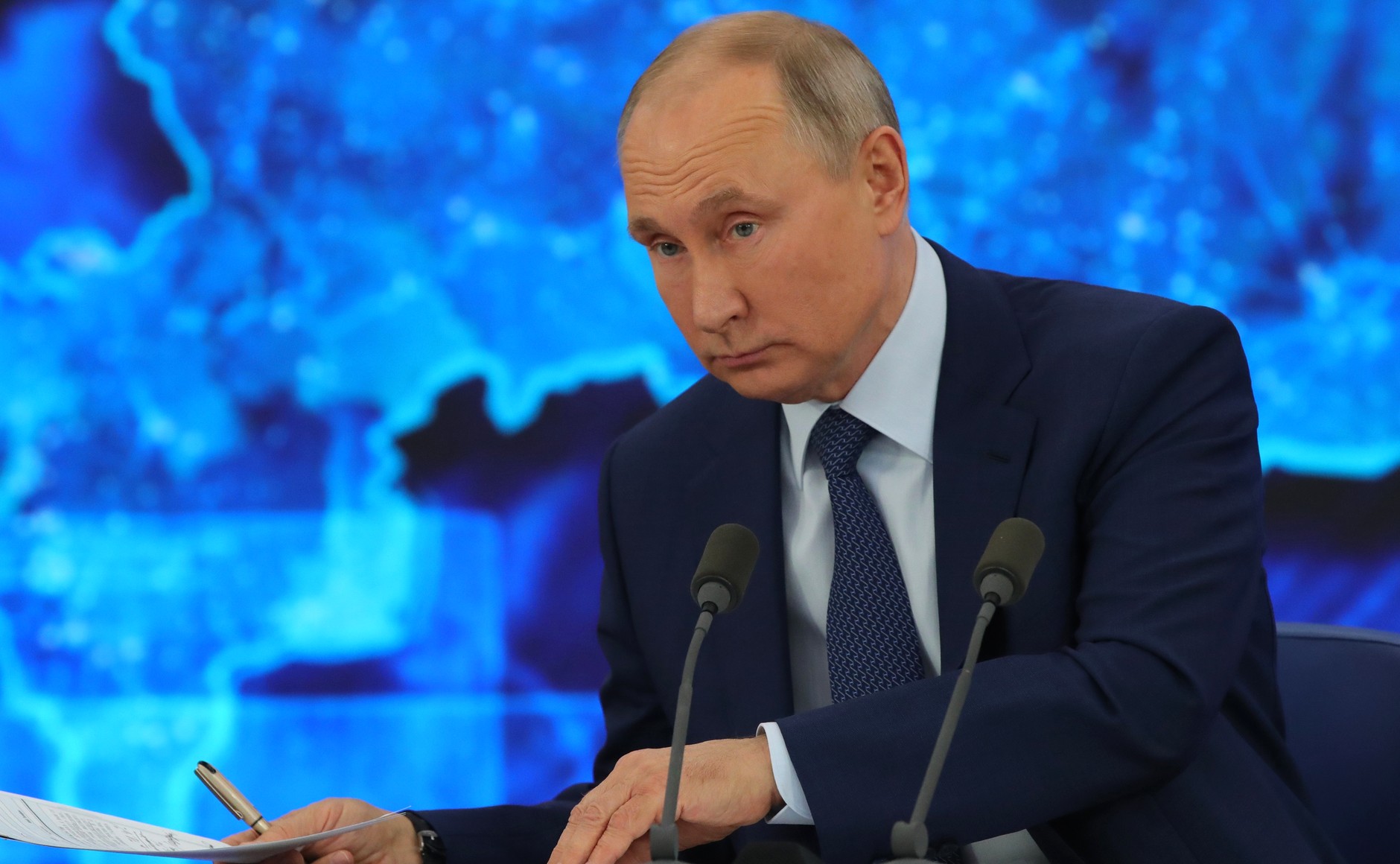 Vladimir Putin: As for international certificates that would allow inoculated people to travel freely, we can probably discuss this, although, it is common knowledge, and I am not revealing anything new by saying that even vaccinated people can infect others. We simply have to keep this in mind. They say that researchers have established a type of antibody with qualities that will not allow COVID to last long. The virus is quickly destroyed by the person’s immune system with these antibodies. But such questions require additional study. I do not know if it is possible to receive a certificate of this kind now. Vaccination is all about protecting your individual health. To a certain extent, it will work as a barrier to the disease. This is also true. This is how herd immunity is acquired. Of course, we can discuss this with our colleagues. Now about the National Wealth Fund. Indeed, it is up significantly, by 70 percent in ruble terms, I believe, which can also be accounted for by the exchange rate difference. This is a safety cushion. This does not mean that we are getting ready for more shocks. But we must have a safety cushion. Look, we have a law under which we can spend money from the NWF if its volume exceeds 7 percent of GDP. We are now close to 7.1 percent of GDP in the NWF. Liquid NWF funds amount to 8.2 trillion rubles. What does liquid mean? This means that we are already investing a portion of it, including from the NWF. This year, 60 billion was allocated to expand the so-called “eastern range,” that is, the Trans-Siberian Railway and the Baikal-Amur Railway. This year, we will use some of the funds from the NWF to cover current budget expenditures, primarily, payments to people, families with children, doctors and students of medical universities and colleges. This also includes supporting the affected sectors of the economy and major companies. The total amount of funds that we will allocate from the NWF this year will amount to 350 billion rubles, of which 250 billion has already been spent. Spending accelerates at the end of the year. I think 100 billion or so more may be spent before the year runs out. Therefore, we are using it, but we must do so carefully. I have already mentioned that we will have 7.1 percent of GDP in the NWF next year. But the Finance Ministry always looks at these numbers from a three-year perspective, bearing in mind possible exchange rate differences, economic growth in the country and external events. To reiterate, we are using every avenue to ensure budget stability and borrowing mainly on the domestic market, but we do take some money from the National Welfare Fund. Dmitry Peskov: Let us give the floor to St Petersburg. Olga Knyazeva: Thank you for coming back to us. Mr President, I would like to draw your attention to the fact that this room looks like a chess board from high up. These are the magnificent interiors of the Yeltsin library. Who will make the next move? I would like to give the microphone to the discreet young lady in the blue vest. She has been focused on following the news conference for more than three hours now.  Arina Aksyonova: Thank you. Good afternoon, Mr President. My name is Arina Aksyonova, Novgorod Region TV. My question is on education. I am from a small region, and we are eager to attract more young people to study here. Novgorod Region is doing a great deal in this regard. We have already invested over a billion rubles in our colleges and vocational training centres, and young people come to the region to study from 24 Russian regions. However, we are now facing a new challenge. We lack accommodation for them. Could it be possible to have a federal programme to upgrade and build new dormitories for colleges and vocational training schools? Vladimir Putin: All higher education and vocational training institutions face this problem. We work on this on a case-by-case basis. Usually the budget chips in, but mostly these initiatives are part of the programmes carried out by the education institutions themselves. We keep coming back to this issue, it is a common concern for all educational institutions, and it became especially acute after the National Final School Exam was introduced. School graduates from across the Russian Federation who have high marks and are entitled to apply for the country’s top universities have started to use this right. So many students from the regions, from small communities have started moving to large educational centres. Novgorod Region may not be a major region, but it is an established educational centre. Students move there and need places to live. There are many ways this can be resolved, including renting and living in dorms. In some cases, students get their rental charges reimbursed. Some universities try to help students find additional sources of income. We are aware of this problem and we will work on it. Dmitry Peskov: All right, let us go on. Let us move to the World Trade Centre. Kultura TV channel. Let us give the floor to Kultura. Yana Muzyka: Good afternoon. My name is Yana Muzyka, Rossiya-Kultura TV channel. We have a question about the promotion of the Russian language and culture. There are examples of business projects gaining an enormous audience and tremendous influence both in the country and beyond. Everyone remembers, for instance, the animated series Smeshariki [Kikoriki, known in the US as GoGoRiki] and Masha and the Bear. They have received enormous world recognition and have been such a great success that our colleagues have even made accusations that they were ordered by the Kremlin. Maybe there is something we do not know, and they were really ordered by you? Seriously speaking, you are using private initiative in ‘soft power’. How can we make our official efforts to promote our language and culture so impressive, powerful and successful? Thank you. 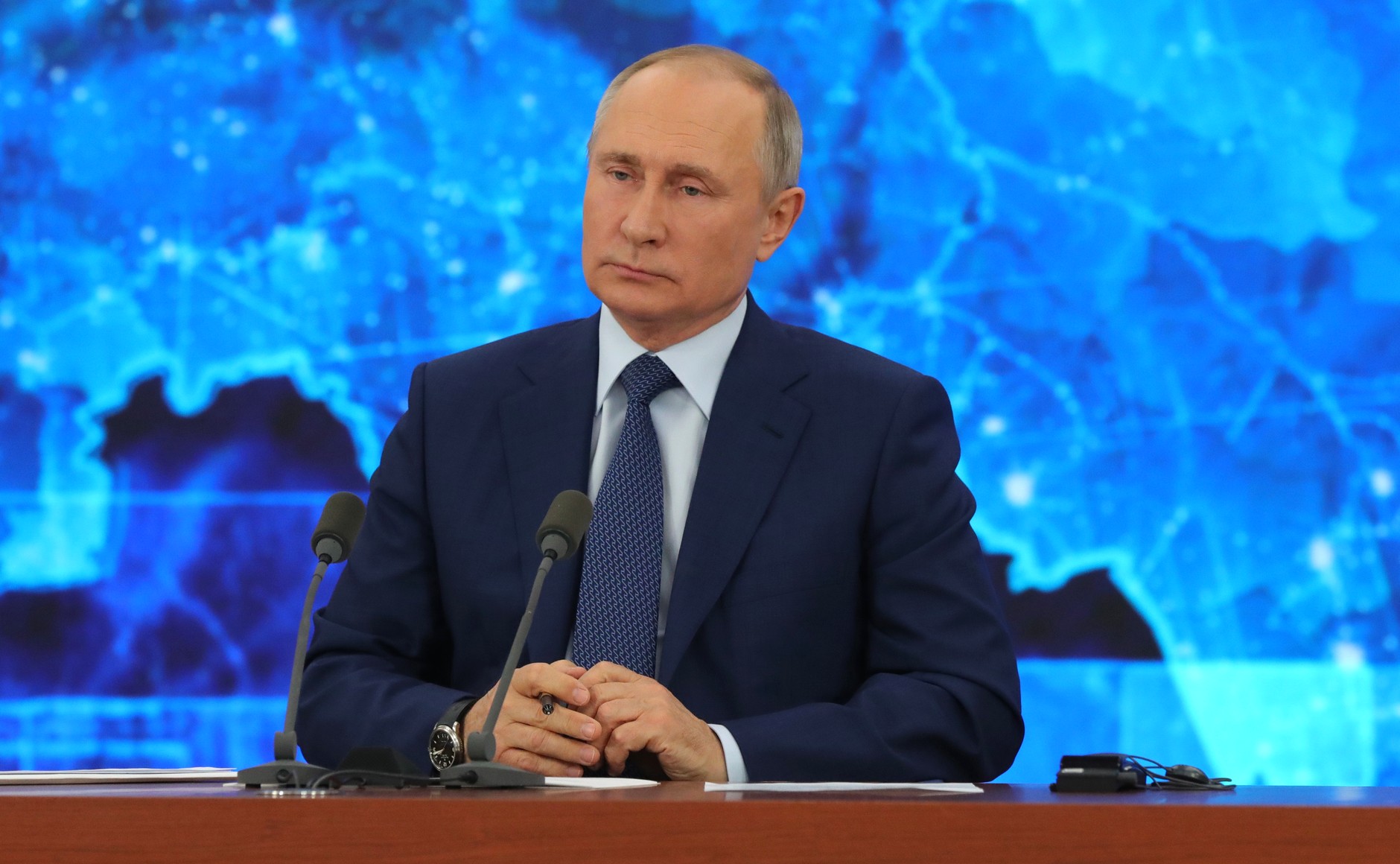 Vladimir Putin: Look, what is ‘soft power’? Culture is, of course, one of its aspects. Education, culture, and humanitarian ties in general. In this sense, they are the most universal instruments of cooperation in the world, and they are certainly immune to any restrictions or sanctions. If someone tries to introduce any sanctions, this will be primarily counterproductive for the initiators of such activities. There are some fundamental aspects in this respect. This is the foundation of the culture of the peoples of the Russian Federation – Russian culture and the culture of other peoples. These are the basic foundations of culture expressed in the level of culture in this country. By tradition, they are supported at the government level. I am referring to classical music, ballet and theatre art. No other country has such a school of theatre art. So many state-supported theatres certainly do not exist anywhere else in the world. They are our national asset. This is perfectly obvious. All of them have their own problems. There are many problems. However, this is still a powerful layer supported by the state. There are absolutely private initiatives as well, the ones you mentioned, for instance. This is amazing animation created by our talented people based on a solid foundation. But here the support of the state is obviously in demand and is absolutely insufficient. Yes, we are proud and happy for the artistic groups that have created such impressive images that are remembered and popular in the world. But in general, animation needs support from the state and business structures. I will not go into details at this point. I discussed this with my colleagues only recently. We talked a lot about Soyuzmultfilm [Russian animation studio]. It has many outstanding problems that must be dealt with more thoroughly, especially with animation. Why am I talking about this? Because whole generations of our children are being brought up on this animation. They must be brought up on things that small children understand, based on compassion, love for one’s country, family and friends, and nature. All these endless, crazy “shoot ’em up” games obviously attract the attention of small children, but I think that sometimes they may even do harm. So, one has to use extreme caution in this respect. As for everything positive, it certainly deserves greater support on behalf of the state than it has received up to now. This is ‘soft power’ as well, but it cannot be ordered by the state in any way. Support is the only thing required from the state. This is exactly the case when fewer orders and commands must be made. It is simply necessary to provide more support. Dmitry Peskov: Mr President, we have been going for four hours now. I suggest going to the call centre again, and then we will wait for you to decide how many more questions you are willing to take before we wrap it up. Bring on the call centre please. Nailya Asker-Zade: The call centre has received some questions from children. In the past, they had videos with poems and songs, but this year they are asking adult-like serious questions, which volunteer Dzhemiyat Kurbanova, has put together. Dzhemiyat, please read the questions. Dzhemiyat Kurbanova: Good afternoon, Mr President. Here is what Mikhail Yakovlev, 10, from Kursk wrote to us. He says he loves to watch the news. Recently, he realised that other countries do not like Russia. He is curious why. After all, we did nothing wrong to them.  Vladimir Putin: I can tell you straight away that people in many countries around the world love Russia. If we have discussions and arguments with big boys and girls, our colleagues, it is about adults sorting things out among themselves. Of course, in one way or another, what is happening between adults affects the relations between them, but relations between nations, people and ordinary citizens in most countries are very stable, friendly and based on mutual respect. Nailya Asker-Zade: We have more questions. Dzhemiyat Kurbanova: Yes. Gavriil Lazovoy wants things to be fair and is asking why his brother Pyotr, an 8th grade student, has been studying remotely for three months now, whereas he, a 5th grader, has to go to school every day. Here is what the boy says, I quote: “Please, let me study remotely too, or let my brother go to school, otherwise it is unfair.” Mr President, what would you say to that? Vladimir Putin: I would say that, unfortunately, this is an involuntary measure and, indeed, it is unfair, I completely agree with you. Of course, your family should be together. However, we need to do as the doctors say, and they say that young children do not get this infection as much or as badly as older children and adults. It goes unnoticed for them. Therefore, it is okay if they get together in class. Older children get sick more often, so it is better for them to use remote learning. I strongly hope it will be over sooner or later. There is something I noticed here, and I am happy for you and your brother, and want to thank your parents. Do you know what it is? It is special that you and your brother treat each other like that. Nailya Asker-Zade: One more question. Yelena Vorontsova from Yekaterinburg asks, Mr President, what books do you read to your grandchildren? Vladimir Putin: Marshak, for example. Nailya Asker-Zade: Which ones? Vladimir Putin: Twelve Months. There are other good books by Russian and Soviet writers. Our fairy tales are very good. 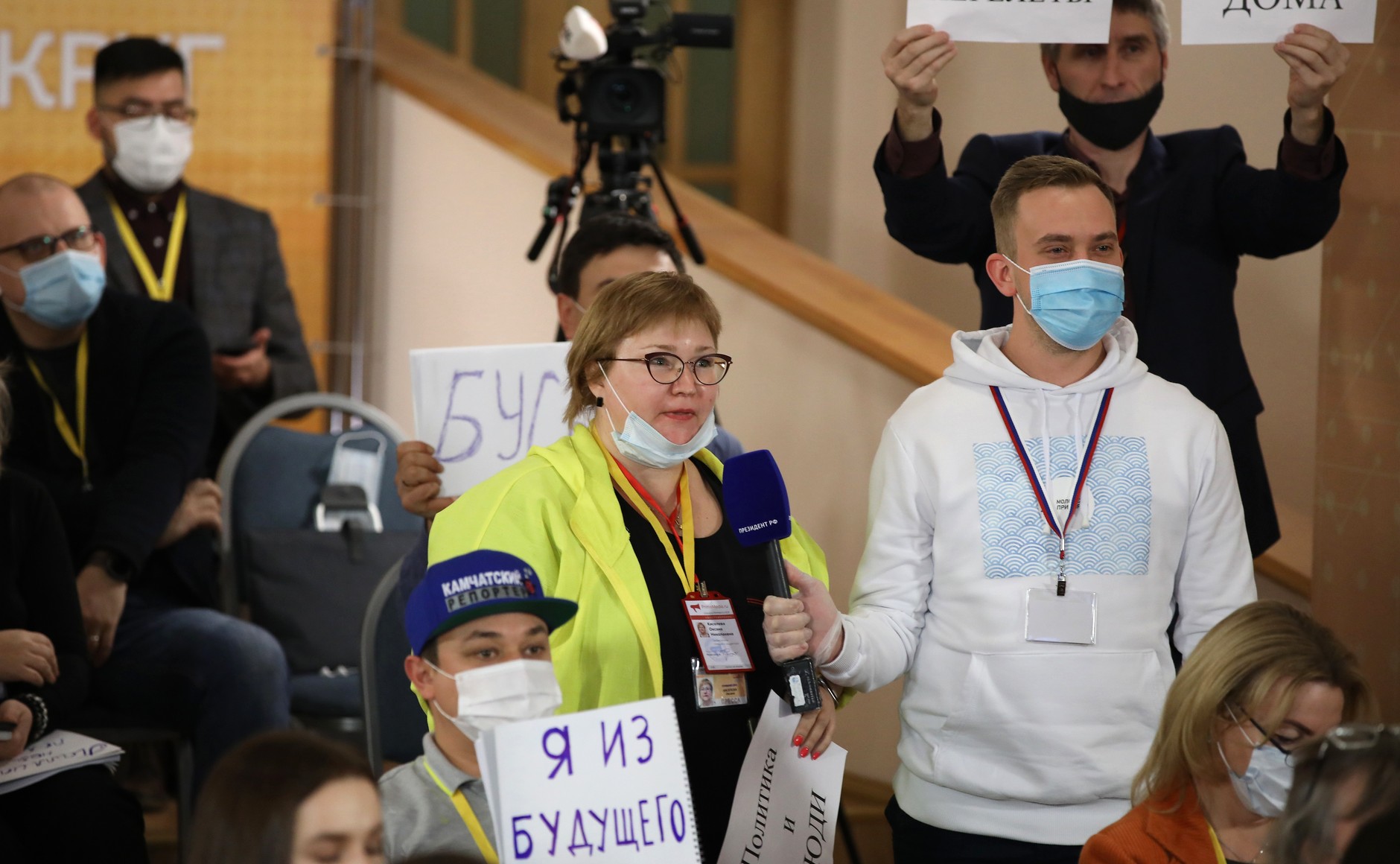 Nailya Asker-Zade: Thank you. Dmitry Peskov: Let us continue here. We have not yet given the microphone to RIA Novosti. Go ahead with your question please. Olga Samsonova: Mr President, good afternoon. RIA Novosti, Olya Samsonova. I would like to follow-up on one of the subjects you mentioned. I am referring to arms control, the future for the Open Skies Treaty and the INF Treaty. It seems to me that the prospect for bringing these treaties back to life looks dim, even with the new administration. But what about the New START? If efforts to extend it fall through, could it be that Russia will face the threat of a new arms race that we will not be able to shoulder economically, especially considering the current situation? This leads me to the second part of my question on hypersonic weapons. Can you tell us please, in your opinion has this transformed the global military and political balance? Have all the projects you mentioned, including in your 2018 address, been implemented, or are we to expect new arms systems to be developed in the future? Thank you. Vladimir Putin: Let us start at the beginning, as the saying goes. Regarding the New START, unless something happens, this treaty will cease to exist in February. I have already said during this news conference and have said in public many times that we are ready to continue the dialogue. I know that president-elect Biden said (this is at least how it sounded to me) that he was ready to continue this dialogue and preserve this fundamental treaty. We are ready for this, no problem, but we need our American partners to respond. If this does not materialise, will there be an arms race? It is already on, no doubt about that. It all started when the United States withdrew from the ABM Treaty. This is how it all happened. One country started building an umbrella for itself. What did this mean? This would have made our nuclear capability completely irrelevant. What were we supposed to do? We had to do everything we could to prevent this: either build a missile defence shield on our own, or develop systems that would not be affected by these missile defences. This is what we did in developing hypersonic weapons, including Avangard. Let me remind you that this missile has a speed exceeding Mach 20 with global range, and it is not a ballistic missile, which means that it cannot be intercepted by any missile defence system. Has the appearance of hypersonic missiles in Russia influenced… I am referring not only to Avangard but also Kinzhal [Dagger] and Zircon that are now being developed. The latter is a major weapon. Recently we subjected it to regular testing, which was very important for us. In effect, the work on this has been completed for the most part. It can exceed Mach 8 and has a long range. Importantly, it can be deployed as a fixed-base missile or stationed on ships, both surface ships and submarines. Where can these missiles be deployed? In neutral waters. If you calculate the range and speed, everything becomes clear. Does this influence the situation? Does it change anything? Of course, this influences the situation; it changes it. Our American partners (they have developed a lightning disarming strike theory, that is, a precision weapon strike primarily at control centres) have precision weapons but they do not yet have hypersonic weapons. Of course, they will develop them sooner or later. This much is obvious. However, as I have said, we will be prepared for this. You asked me what we are working on now. In part, we are working on this, the technology to counter future hypersonic weapons from the other leading armies in other countries. I am sure we will develop this. We are on the right track and working hard. Yes, we are also working on the other arms systems that I announced in my address, in one of my addresses. Some of them are already combat ready, for instance the Kinzhal and the Peresvet laser system. We are moving fast on the Sarmat heavy missile. In fact, we are in the final stages there. Work on the Poseidon system is going well. We are on plan in building a global range nuclear engine. There are some technical issues, but not a single problem that calls into question any goal in our plan. We will do all of this; I am sure of it. As for the arms race, as I have said, it is already underway. But look at how we have managed to deal with all this. We are sixth in the world in funding our army and defence industry but mostly the army, spending a bit over 46 billion as compared to 770 billion spent by the US. Yet, we have succeeded in developing what others do not have. Plus, we have a scientific and industrial base and school, the minds of our scientists and designers, talented engineers and workers. That will allow us to avoid engaging in an arms race. One executive in the US defence industry said recently, yes, they have reduced their numbers, their army has become more compact but they have become much more effective. This is true. This was our goal. We have not done everything we wanted. But we are on the right track and will continue our efforts to ensure the ultimate security of the Russian Federation and its people. 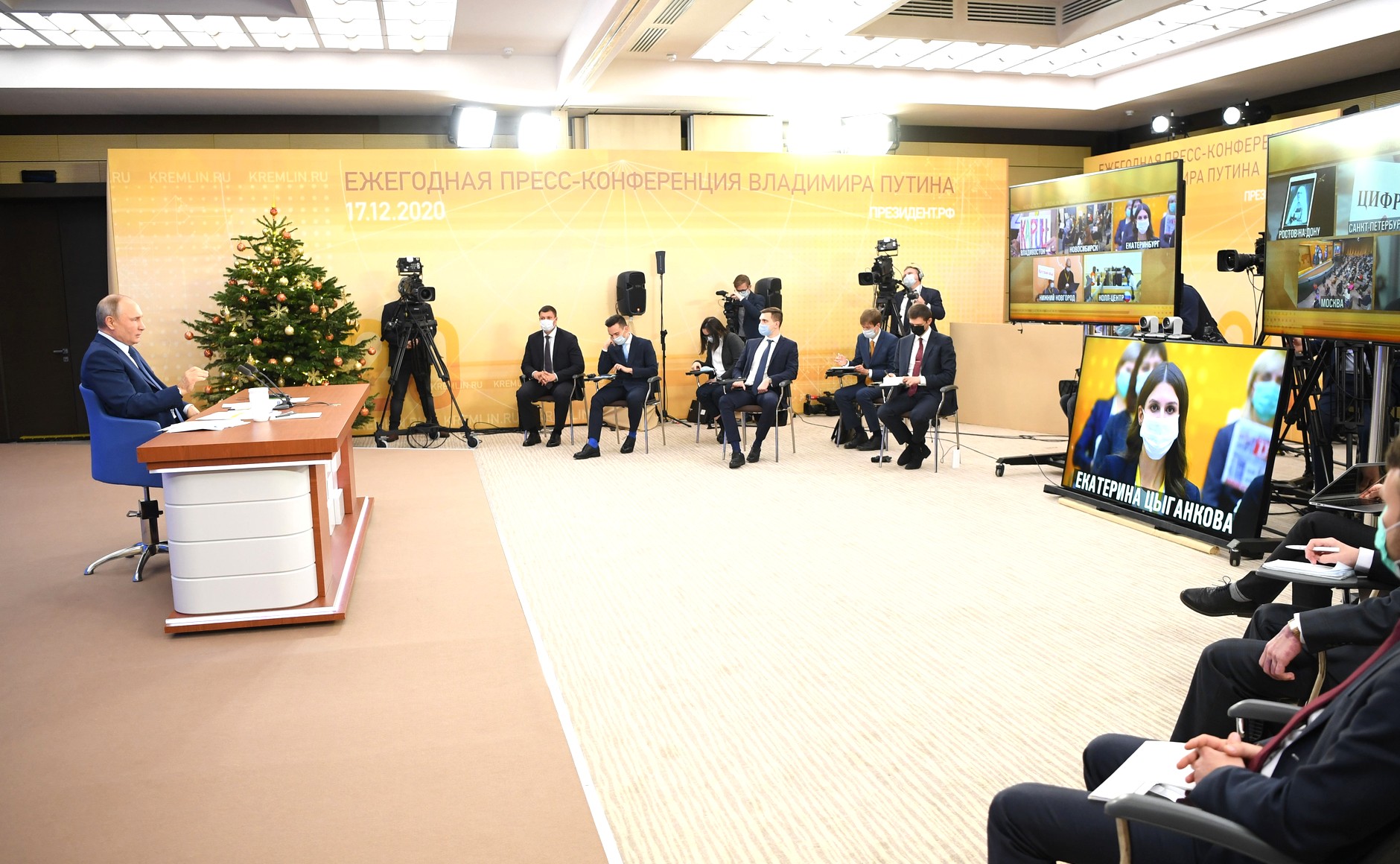 Dmitry Peskov: Mr President, what is your decision? Two or three more questions and we wrap it up? Vladimir Putin: Let us take two or three more. Dmitry Peskov: And then we will wrap up? Vladimir Putin: And we will be finished. Dmitry Peskov: Connect us with Rostov-on-Don, please. Aina Nikolayeva: Greetings, Thank you very much for coming back to us. We were anxiously looking forward to it; we have many distinct posters here, journalists from Kalmykia are wearing wonderful outfits. But our colleague in the front row is giving me a gesture with her hand across her throat indicating that she urgently wants to talk. Let us find out what all the urgency is about. You have the floor; you may lower your mask, and will you please keep standing? Vera Yuzhanskaya: Thank you very much. Vera Yuzhanskaya, Nashe Vremya newspaper, a regional paper in Rostov Region. Mr President, you see, I happened to attend all of your press conferences but I have not been able to ask a single question, so as a bonus, if I may, I have a two-part question. The two parts are different, though. The first part refers to what has already been partially addressed – the harvest and prices. Rostov Region celebrated a record-breaking harvest this year, but soon people began complaining, of course, because the prices were a real surprise. This defies logical explanation. I would like to ask why this happened. Obviously, you said the magic words to the Government and everyone started running around; now everything will be done right away. But why is this? Is it because we export too much or import too much? That is, we export grain, sunflower seed and import cattle breeding technology, many types of seeds; we import equipment for our food processing industry. What is the problem here? I will ask the second part after you have answered the first one. It concerns a totally different subject, spiritual food. 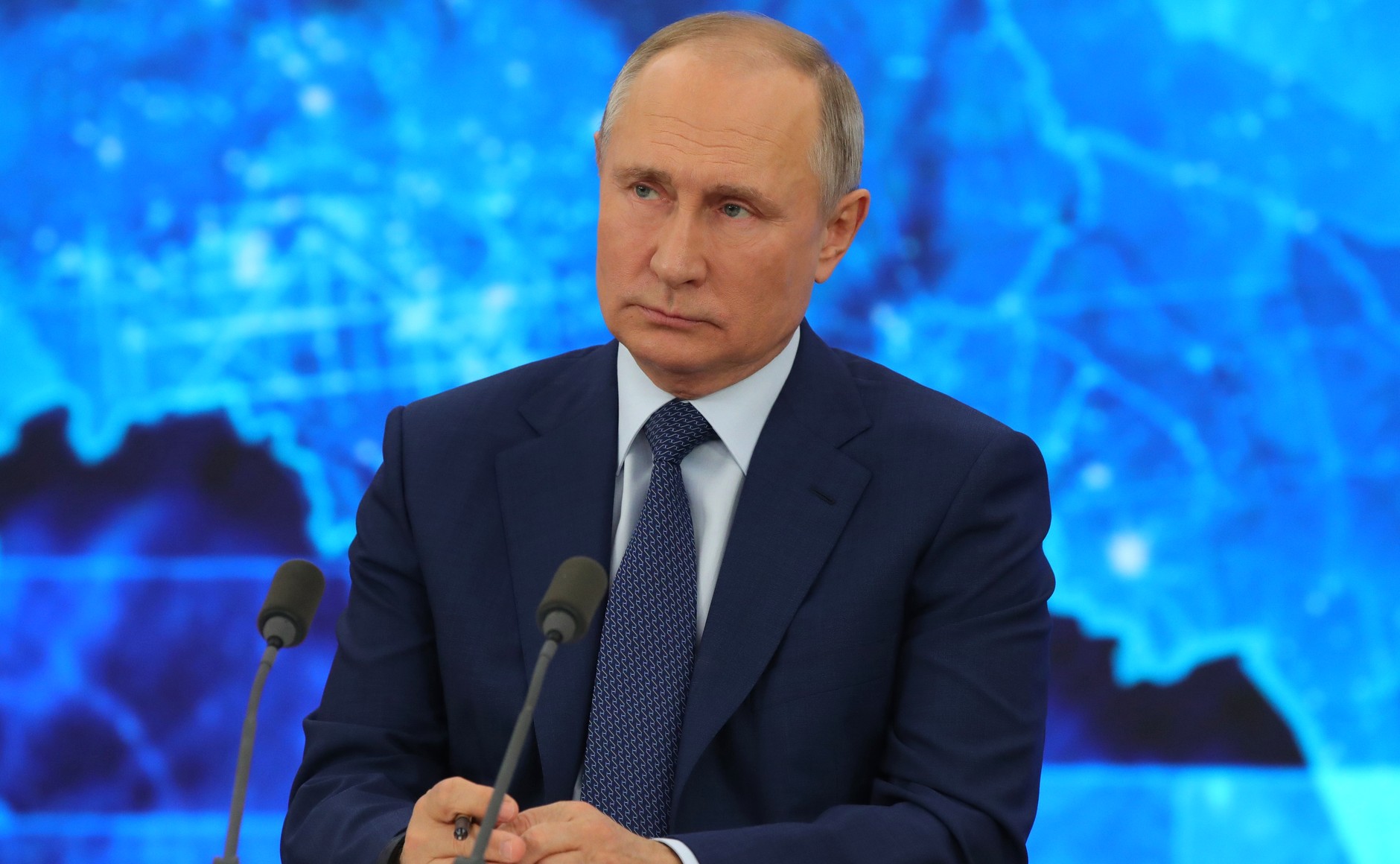 Vladimir Putin: All right. Yes, indeed, we must increase our independence. This includes some new technologies, seed and some areas of animal husbandry. But this is not related to prices. What do prices have to do with that? I have already clarified what it is related to; the prices are related to world markets. For example, oil and sugar. The sugar harvest this year was a bit smaller but it meets domestic demand. However, sugar prices went up on the global market, and so it was immediately used for export. This is it, there is nothing unusual here. Meanwhile, domestic prices began climbing to match global pricing. This happened in the oil industry as well, by the way. Manufacturers and exporters believe they should not be losing money with domestic prices. This is nonsense, of course, they must understand that they are not losing anything, they are producing things here. They are counting their lost opportunities since they are not exporting more. However, they forget how much the state has already invested and continues to invest in agriculture, and what they got from the budget in order to achieve these numbers. We have developed a system for supporting and subsidising exports. Despite the fact that the situation on the global markets has changed and exports have become more lucrative, the state continued to subsidise exports. This was a mistake and a belated response from the corresponding government agencies. My colleagues and I discussed this in no uncertain terms. Again, I believe this will be corrected soon. The same goes for bread and grains and everything that is produced from it, like pasta. A record-high harvest, 131 million or maybe even more – and bread prices are rising. This is nonsensical and is also related to exports and export incentives. To reiterate, these things may not be critical, but what is bad is that it affects our people. This is annoying. But it can be fixed. Most importantly, administrative actions should not be damaging to the industry. It is important to work within the market mechanism, including timely use of certain customs regulations when exporting food products. Indeed, we must provide incentives in the areas that need support. What was the second part of your question, Vera? Vera Yuzhanskaya: It was on behalf of some of my colleagues in the audience. The question is about the small town of Bataysk, and a small local newspaper Vperyod, which made it to the top ten newspapers list in Russia. It is a no-nonsense newspaper that protects the townspeople. The editor received the title Editor of the Year. We all learned our trade from Lena Pivovarova; everyone knows her in the community and on other platforms. In early November, the Property Management Committee, which owns the newspaper, fired the editor without providing any reason. People were indignant. No one should be fired for doing good work, and the newspaper is really good. Then, the people behind this decision began to make up reasons for firing the editor. They have sent an inspector there, after the editor was removed. Then, the security people come, seize documents and remove hard drives. Meanwhile, there is neither an accountant, nor an editor-in-chief there. At the same time, “special” parallel media came in. We have ordinary media and “special media” that throw mud at the editor, and she instantly goes from a person who has been working for 23 years and only received awards, to being a bastard, a swindler, a bandit and everything else. Aina Nikolayeva: What is your question? 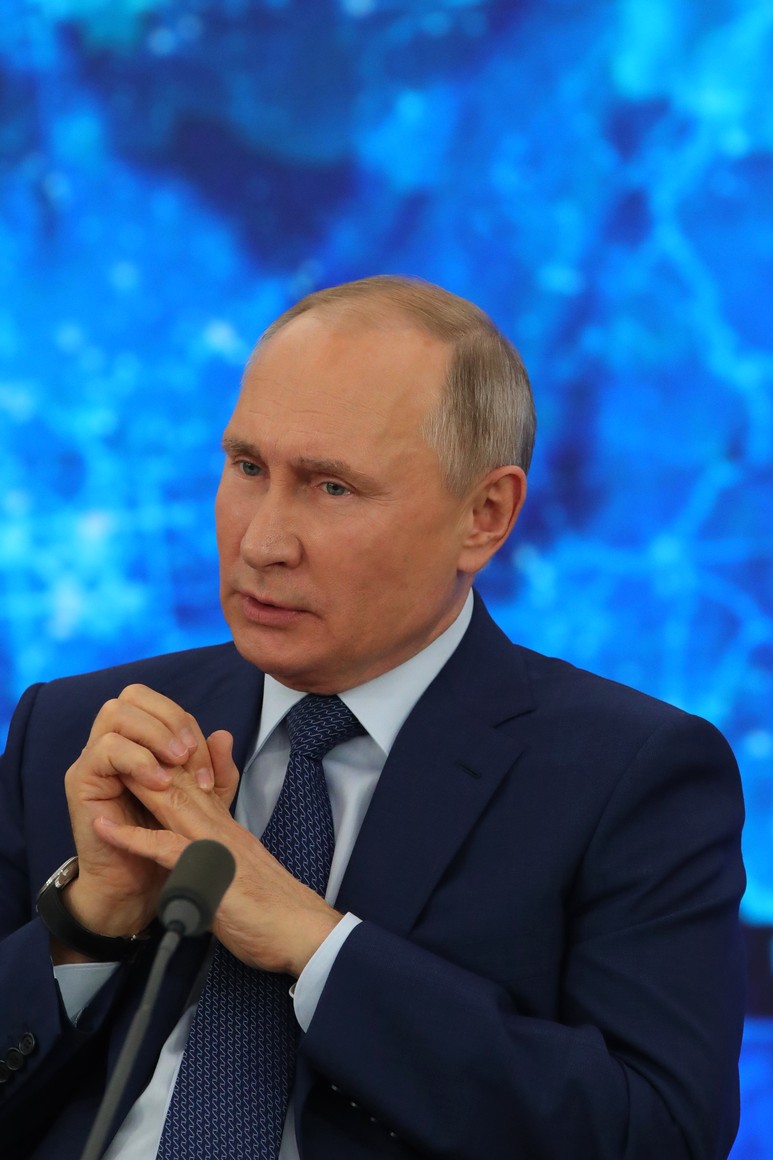 Vera Yuzhanskaya: What is my question? Mr President, how do you see the end of this story? Now, watching this editor being rolled into the dirt, other editors at small municipal newspapers will hide and say, “Let us keep quiet and not tell anyone anything, and not do real journalism, because the outlet’s managers will be taken down like Pivovarova; clearly, this can happen to the best of us.” Or will there be a different outcome to this problem? This is about soul and spirit because without normal media we cannot build a civil society. Thank you. Vladimir Putin: Yes, I agree that we cannot build a civil society without proper media outlets. This is obvious because an effective and live press is part of civil society. I do not know about the situation you have just described or about the work of Pivovarova, Editor-in-Chief of Vperyod Newspaper, but I believe you, I take your word for it, as they say. You said that the property committee had fired her, right? We understand that agencies that manage property do it on behalf of the state. However, it is completely clear that this is an organisation that should not be dealing with content, as they say. They should only monitor that nothing is stolen and everything is in place, so that nothing is taken away from the state. I hope the paper clips, chairs and other editorial furniture are in place, so it is clear that it was not the property committee that did it, but someone who runs the Bataysk property committee. Of course, I will ask the governor to deal with this. If he is not able to do it, I will help. Vera Yuzhanskaya: Mr President, if you could, please do not simply involve the officials. Can you please involve the Russian Popular Front, too? Vladimir Putin: Yes, this is a good proposal. I will do this. Agreed. Dmitry Peskov: Thank you, Rostov-on-Don. Let us return to the World Trade Centre. We have not taken any questions from that wing yet. Yevgenia Avramenko: Good afternoon, Yevgenia Avramenko, Federal News Agency. Mr President, a lot has been done this year in the context of the pandemic to support Russian businesses, but small enterprises are still not quite healthy. Can small businesses, for example, individual entrepreneurs, expect any federal support next year? In addition, on behalf of our agency I would like to thank you personally and perhaps Russia in general for not giving up on our compatriot – sociologist Maxim Shugalei. He and his interpreter spent about 18 months or even longer in a Libyan prison. We kept a close eye on this story, and it was a very cruel affair. We are happy that they are home for the New Year. Thank you. 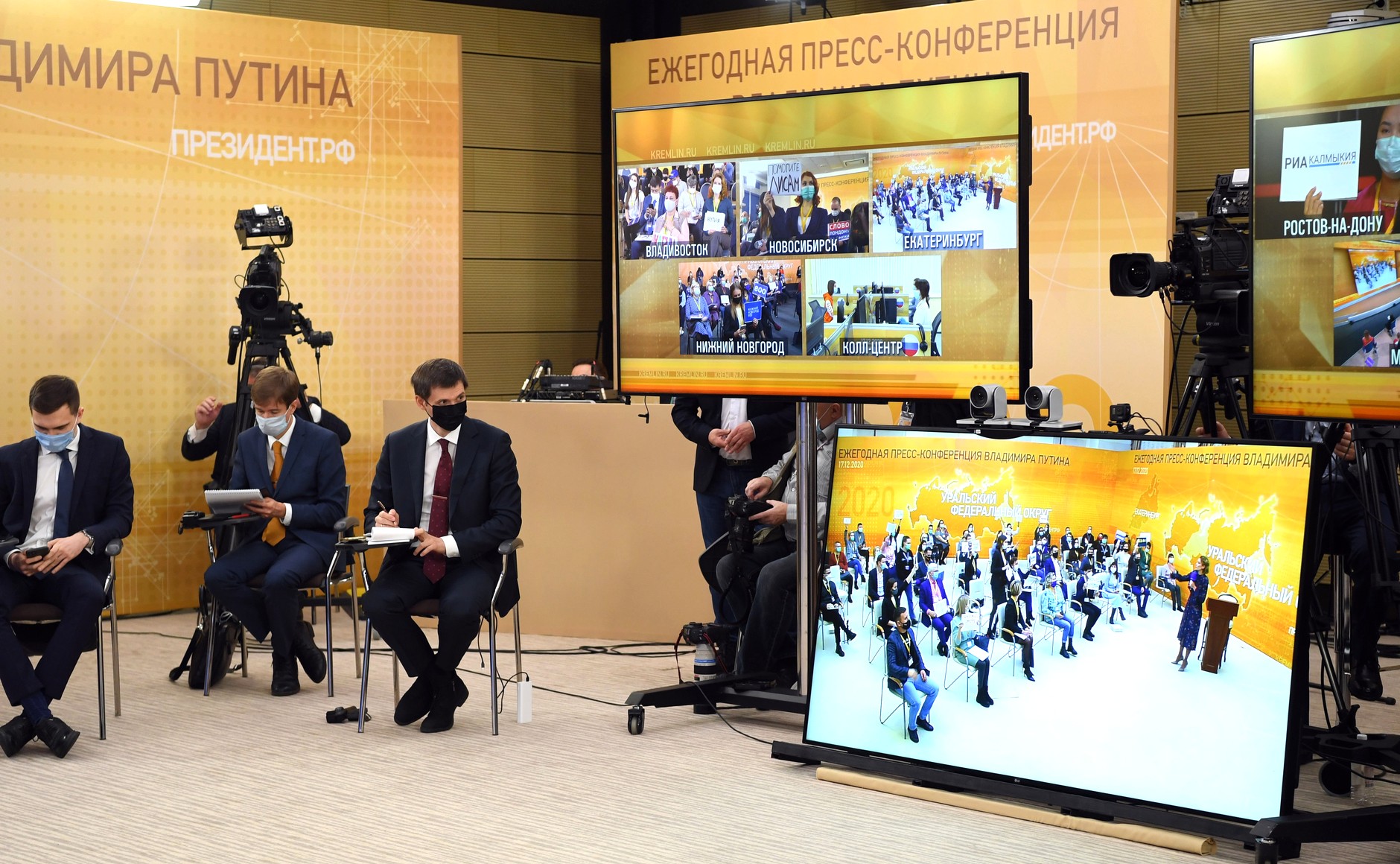 Vladimir Putin: This takes us back to the question from Grozny on Russia’s cooperation with the Arab world. Among other factors, and perhaps most importantly, we have been able to do this through our cooperation with some of our Arab friends who have been helping us, and this case was no exception. As for supporting SMEs, I have already listed the support measures, so there is no need to repeat all the measures we have developed and implemented for the affected sectors, primarily small and medium-sized businesses. We have allocated about a trillion rubles through various channels to the affected sectors. Independent business owners have suffered great damage, so this applied to them as well. The measures included returns on paid taxes, and reducing tax payments this year. These measures are well known, and people have been using them. We are monitoring the situation, how it is unfolding and where it will take us in the near future. Of course, if the need arises, and it probably will, we will think about what else can be done to support the self-employed. Dmitry Peskov: The President said very warm words about the Arab world. We have never had a journalist from Iceland ask a question at our new conference. Please introduce yourself. Haukur Hauksson: Haukur Hauksson, which translates as Falcon Son of Falcon. Thank you for the opportunity. Thank you, Mr Peskov, for giving me the floor and the opportunity to ask questions on air. This happens twice in Russia. Now, because of the coronavirus, there is no live broadcast, and journalists from all over the world can ask any question. So, this is good, and it is unique to Russia, where journalists and people can ask questions just like that. Therefore, I would like to put forward an idea of an international round table discussion where other presidents and leaders of state would also be present. From Scandinavia, too. There are presidents and kings today. Comrade Rosenberg, however, is gone, and if the queen… That is, when any person or a media member can ask questions, it is direct democracy. This is about grounding a leader, and this is actually very cool and very good. What is interesting is that comrades from other countries are teaching you democracy. What do you think about holding a roundtable discussion around the world with you and other participants? Technically, it is a very simple thing to do. The second part of my question is probably more fun. Happy upcoming New Year, Mr President! You once hinted that some day you would let us in on the secret of family happiness. You said it at a news conference. If you feel like it, you are welcome to do so now. And the last thing: a boy, I do not remember, from Rostov, I think, said that the West does not like Russia. That is far from the truth. We love Russia with all our hearts. It is the media and the authorities such as the BBC, CNN and others, including the Icelandic press, that accuse you of very bad things. There is a big war underway against you personally. Apparently, someone is afraid of you. But people in the West do not hate or think badly about Russia. So, thank you for the conference. Thanks go to technicians, interpreters, drivers and engineers. Keep it up, Mr President, and stay in good health at all times. Vladimir Putin: Thank you very much for your kind words. I rarely hear them. You will probably get in trouble for saying it later when you return and see your colleagues. But I think that putting up with things is part of the job. With regard to the roundtable discussion idea. It is a good idea. But you see, we have to first realise another one of our proposals, that is, to have the leaders of the permanent member states of the UN Security Council meet to discuss the issues that are of concern to all of humankind. This includes, by the way, the pandemic, which French President Macron suggested we focus on; it also includes the disarmament agenda, and an issue that concerns all of us – the environment, definitely a key problem facing humankind, combating terrorism, ethnic intolerance and religious intolerance. We could have an entire package of issues to discuss. The very idea of holding a roundtable discussion, possibly online, is certainly possible. It is crucial, though, that your proposal be supported by my other colleagues. As it happens, we have very good relations with Iceland, and not only at the people’s diplomacy level but also at the interstate level. We appreciate this and have respect for Iceland. Iceland has much to offer and to learn from. I mean energy, including hydro power. We cannot come close to your practices, although in some regions of the Russian Federation, Kamchatka in particular, we are studying and using it and hope that it will yield concrete practical results. As to the secret of family happiness, it is love. But this is no secret. Everybody knows that; it is a universal notion, it must be a cornerstone of relations both in families, and – since you mentioned international relations, in relations between different peoples. 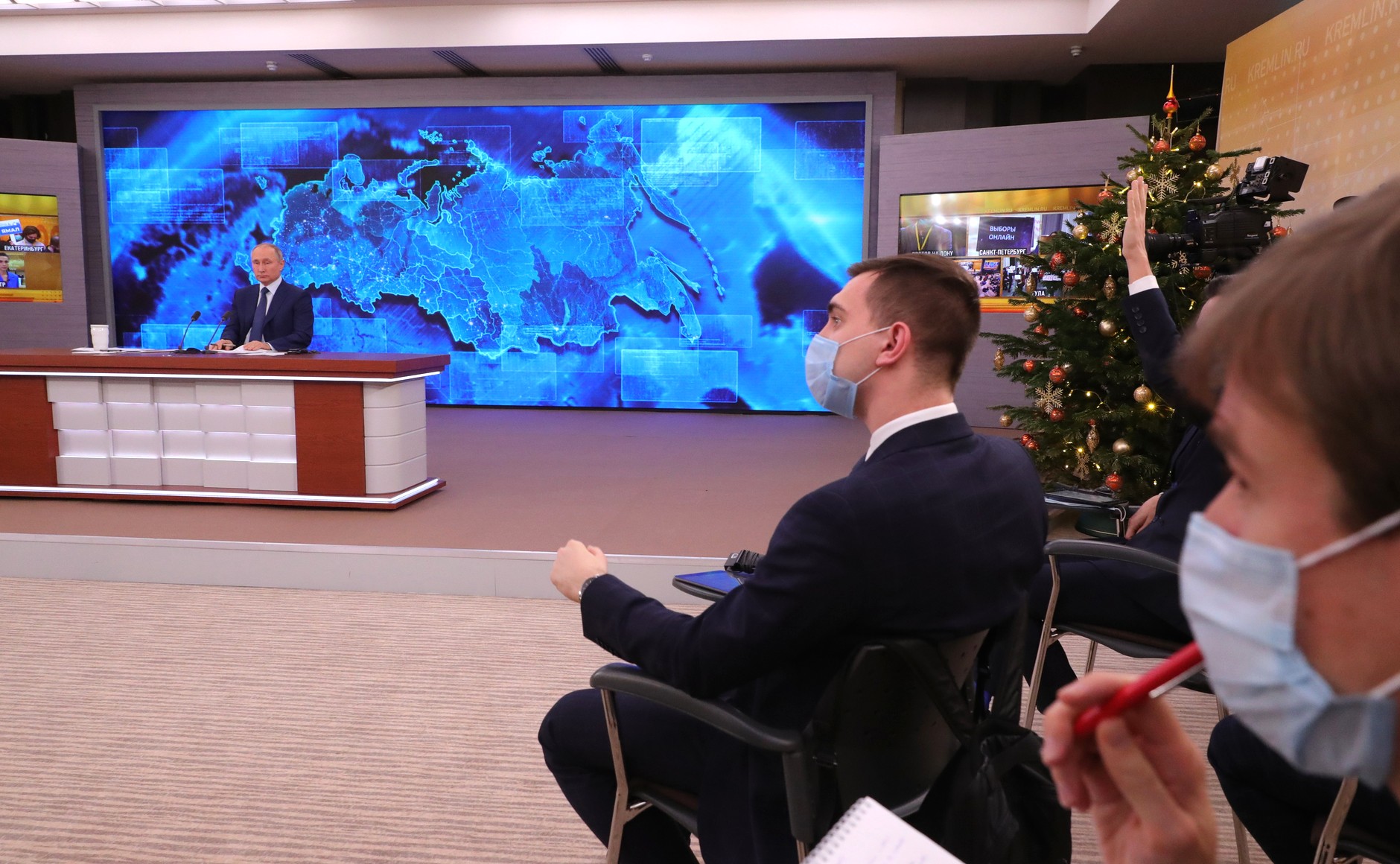 Dmitry Peskov: Mr President, the final question comes from Novo-Ogaryovo. Vladimir Putin: All right. Please. Dmitry Peskov: Stream Novo-Ogaryovo, please. I see Izvestia. Izvestia, go ahead. Viktor Sineok: Izvestia, Viktor Sineok. Mr President, we have heard many questions about many different problems but mine is a little different. Over the past year we have understood, we really felt what it meant to have a very hard time, including emotionally. You said at the press conference a few years ago that you put your emotions into your work. Here is my question: what sort of emotions have you felt in recent years, including this difficult year of 2020? And which emotions would you like to wish us in the coming year? Maybe you already know how you will toast the New Year? Vladimir Putin: Please, be seated. As to which prevailed – the good or the bad… You know, each year brings issues we have to overcome, and each year brings us great joy – both family, and state, national achievements. Against all odds, we have great achievements that we can and should be proud of, and we are. Yes, the year was complicated, but what would I like to draw your attention to? You know, this is what I thought about when you were asking me this question. Haven’t we faced difficulties in our recent history? Just now, in this meeting I remembered how hard life was in the 1990s and the early 2000s. It seemed at that time that there was no light at the end of the tunnel, that there was nothing. No army, no economy, a ruined social sphere and skyrocketing unemployment. One out of three lived below the poverty line, but look at what it is like now. Yes, there are problems. Yes, people are still living a very hard life, and there are very many such people. That said, the foundations of Russian statehood, the pillars of the Russian economy, and the potential of the state are incomparable with what they were in the 1990s and the early 2000s. This gives us tools we have never had before. This gives us an opportunity to focus on resolving the most important, most urgent problems without forgetting about the strategic development goals of the Russian Federation. As for toasts, like every person, every citizen, I always have toasts for the New Year. It is only important that the amount of champagne and other drinks you consume is limited. As for toasts, the number does not matter. Of course, we will all raise toasts to the people in our lives, our family, friends and colleagues. But I, my family and friends always have one main toast – “To Russia.” Not to finish my remarks on this pathetic note but on something heart-felt, I would like to say the following: during this meeting, some of my colleagues asked me what we were planning to do to support families with children and whether we have plans for this. This is what I would like to say. Some volunteers told me recently that they have various ideas and initiatives on supporting children before the New Year. Unfortunately, this year large events like children’s New Year parties have been cancelled due to the restrictions. Large events in theatres, children’s studios and so on have been cancelled as well. But still, this is an unusual holiday. It comes with expectations and hopes for the future and, at the same time, with difficulties. Therefore, before coming here I consulted the Government and the Presidential Executive Office. We agreed that our country, our state will also give a gift to our children. It is a small, modest gift, but nevertheless, we will pay 5,000 rubles to all families with children under 7 years old; 5,000 will be paid for every child in this age group. I would like to thank all of you for our common work. I would also like to wish you all the best. I hope we have not worn each other out. I would like to hope that the people who listened to us for more than four hours, for four and a half hours, have found this useful and interesting. For my part, I would like to say that the meeting was very useful for me. We will do all we can to give the best possible response to all your questions, concerns and problems that are faced by the country and each Russian family. All the best to you! Thank you very much. Dmitry Peskov: Thank you, Mr President. All the best, goodbye. Vladimir Putin: Goodbye. * * *  Vladimir Putin: Go ahead, what are your questions? Question: Have you had enough of self-isolation? How do you cope with it? Vladimir Putin: First, I am not in complete self-isolation. As you see, we do meet from time to time. I have in-person communication with my colleagues. And then there is one more way. I work with my colleagues from the Government and the Executive Office occasionally – no, in fact, regularly – but not at the same distance we have now with you. We just get seated farther from each other, three, four or five metres apart. However, this distance does not interfere with discussing current and future problems we are working on. Question: Mr President, you have just recalled the 2000s. Meanwhile, now is the 20th anniversary of the new version of the national anthem. Back then there were such heated debates, even overheated, and many people were against this anthem. Do you think it has become a unifying symbol of the nation 20 years later? Vladimir Putin: Sure, that is what it was, and it remains the same. I always said and I want to reiterate: We should never throw a baby out with bathwater. We must feel that we are not, as they say in Russia, Ivans with no kith and kin. We should take along all the very best that unites us all. And this music by Alexandrov is amazing and wonderful, and the entire nation knew it. Why should we give it up? Sure, the situation has changed, and yes, we changed the lyrics. I think there is nothing to worry about, everything proceeded in an absolutely natural way. And it is one of the symbols which unite the country. 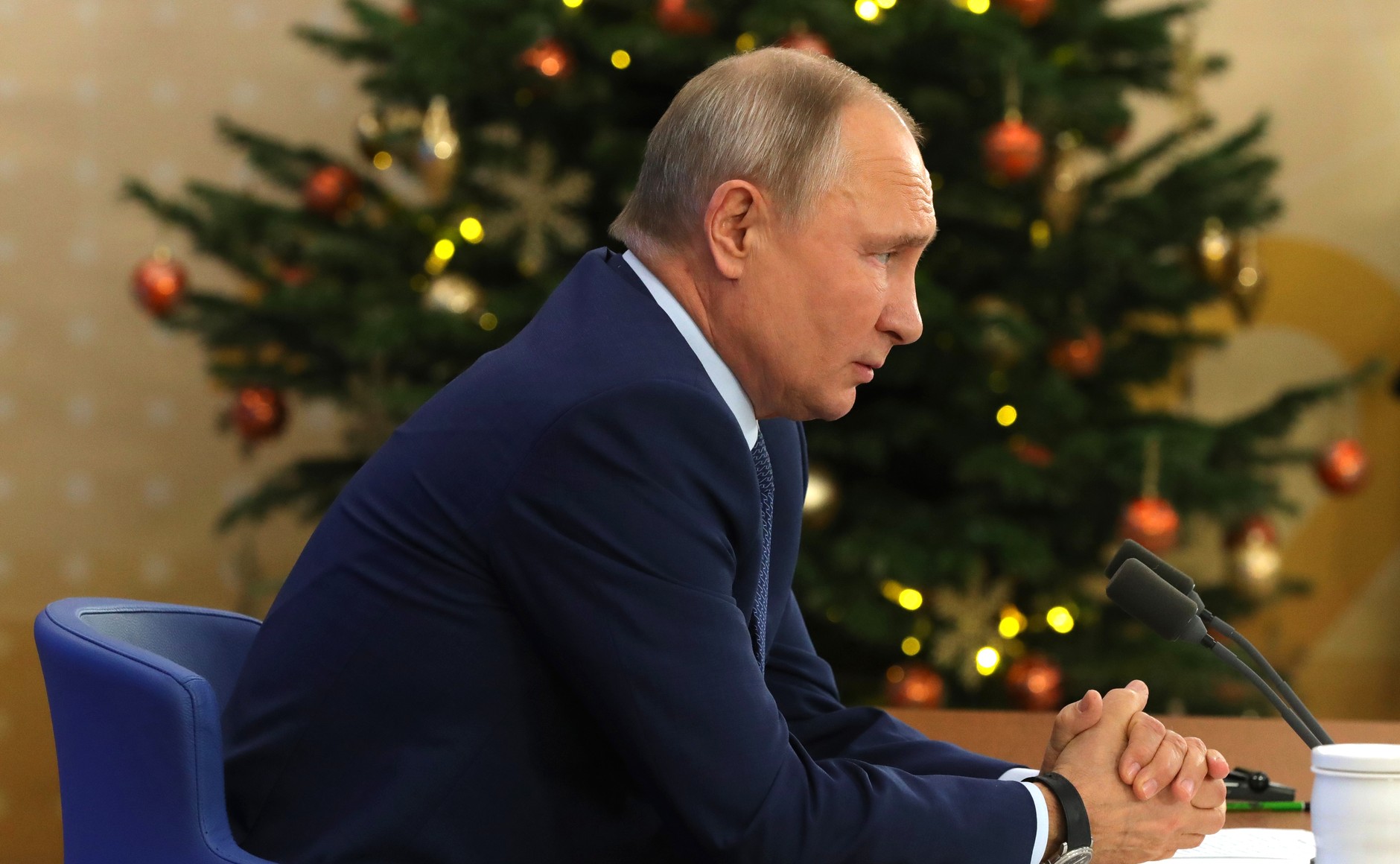 Question: Mr President, as a Russia Today staff member, I cannot but ask you about the work of our channel and oftentimes about RT-affiliated projects on Western internet platforms. We constantly encounter some sort of hurdles, one can even call it censorship – one day they restrict access to RT Documentary, then they do something else of the kind. Can you tell us, please, if any steps will be taken at the state level to protect not only us but all Russian media outlets that have to use these Western platforms such as YouTube, Facebook and so on? Vladimir Putin: We have to develop these platforms ourselves – this is the best road to independence in this area, in the information area. Information independence is impossible if we depend on foreign platforms. It is truly impossible. They can shut everything down at a push of a button. And this is happening, we see it with our own eyes. Is it possible to respond to that at the state level? Yes, it is possible to respond, and the Foreign Ministry does that. But how effective is that? It is not effective. This is why we are obliged to and we will point that out to our partners who are particularly preoccupied with human rights and freedom of information. But let me repeat again – the key to ensuring independence in information space is developing technological and technical capabilities ourselves. This is what we will be doing. Question: When answering the question about Navalny today, you said that stealing billing data of the Russian security services’ officers by Americans is a common thing, it is routine. Vladimir Putin: Yes, the NSA [the US National Security Agency] does it, we are aware of that. It is their job, and they are not hiding it. What is wrong with that? Remark: In this case personal data was also stolen and the names and photos were published. And CNN knocked on the door of the flat. Vladimir Putin: Listen, it has been going on always and everywhere and it will go on. But we know it, they are not even concealing it. Some former NSA employees talk about this not only with respect to our country, but also with respect to other countries, with respect to their own citizens, the same thing happens. This is the way their intelligence agency works. To be honest, I do not see anything special here. It is a compilation, a scrapheap where they keep dumping, dumping, dumping in the hope that it will somehow impress the public and will sow mistrust in the political leadership. This is a form of information warfare. 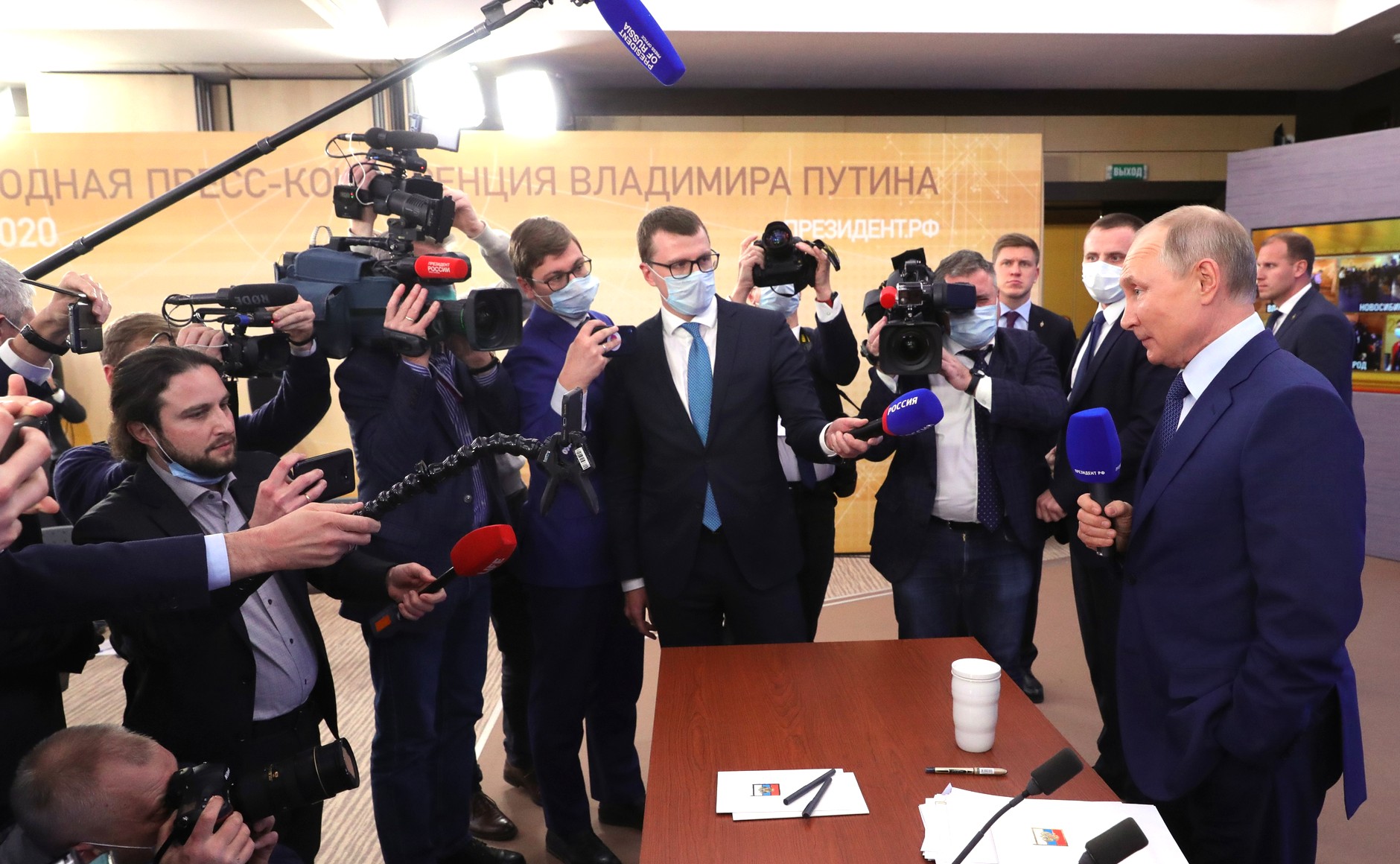 Question: Mr President, may I? Zvezda TV channel. You spoke about the 75th anniversary of Victory and about historical memory. I do not know if you heard about the recent statement by German Defence Minister Annegret Kramp-Karrenbauer that Russia should be spoken with only from a position of strength. Probably because we do not understand any other language. Do you think this is an reasonable statement from a defence minister? Vladimir Putin: Of course, not. The lady became a defence minister and she probably wants to show how tough she is. In this case she repeated a fairly trite cliché which is being repeated in many NATO countries. It is counterproductive for our inter-state relations. It is absolutely meaningless from the point of view of defence policy because… Because! Because they need to take a look at what the Russian Army is like today, that’s why. To be honest, I would not think much of that, and we should not inflate this issue. I am not sure she is happy about making that statement, just as many responsible politicians in Germany. It is just a traditional cliché. Question: What event are you most looking forward to in 2021? Vladimir Putin: In 2021? Let us first wait for the New Year to arrive. We will see the New Year in and raise our toasts, including to Russia. Question: How long will the pandemic last, Mr President? Vladimir Putin: Nobody knows that. It will depend on the achievement of herd immunity and the vaccine efficiency. I said earlier that some Western partners have expressed readiness for joint work. This is very good. It shows that professionals can find resolve to step beyond political limitations. I am not sure about political developments but I would very much wish the work were done at the professional level. We also have an option – to design a light vaccine, as specialist call it, by the Gamaleya Centre: just one jab which will not be effective for as long, the protection level will be lower but the efficiency will stand at 85 percent anyway, but we will be able to produce tens of millions vaccine doses right away. This is also an option. And we can design it ourselves or we can do it with our partners. There are many options here. As to when it will end – nobody gives a straightforward answer to this question. Some vaccine producers, thank God, said frankly that things are not going so well, they have had some failures. But I do not see anything terrible here either. I do not think we should point fingers saying, “Hey, they can’t make anything” and gloat. No, this is not our way. Question: How did China manage to defeat the pandemic so fast? As a follow-up on the topic. Vladimir Putin: They had tough restrictive measures and the authorities were able to implement them.  Question: Do you fear that people are just going crazy now – cafes and restaurants are being closed before the New Year’s eve, that the people will just not be able to stand it? Vladimir Putin: I do not think that closing cafes and restaurants is a critical matter for their visitors. However, from the point of view of business we need to think and look at the losses that emerge here. Because obviously the business plans included operation and revenues during the holiday season but it did not materialise. This is what needs to be considered. Meanwhile, most people celebrate the New Year with their families. Although fatigue is growing, naturally. But people see and understand what is going on. One can be a COVID dissident or whatever until they themselves contract the disease. Question: But there will be no lockdown? Vladimir Putin: We are not planning a lockdown. Question: As a man who has been vaccinated, I really want to ask you this. I took part in the third stage of the post-registration trials of the Gamaleya vaccine, had a jab, but I faced the fact that many of my friends and even family members did not understand why I had done it. A lot of people are not going to be vaccinated … Vladimir Putin: We need to explain it to them, they need clarifications. Remark: I do, I show them with my example. Will we have a way to persuade people to get the vaccine? Because very many people will refuse if this continues to be voluntary. And the recovery period will be longer. Vladimir Putin: It can only be done voluntarily. As to explaining and persuading, it must be done with your help and the help of your colleagues, representatives of the media, bloggers and specialists who must give the necessary information to the people in a clear and plain language so that it invokes their trust. Question: What do you write there? (Points at the pad.) Vladimir Putin: I put down what your colleagues were asking, the names of those who asked questions, the topic: Yana, culture, Olga, the New START, National Welfare Fund. So as not to forget a part of the question being asked. 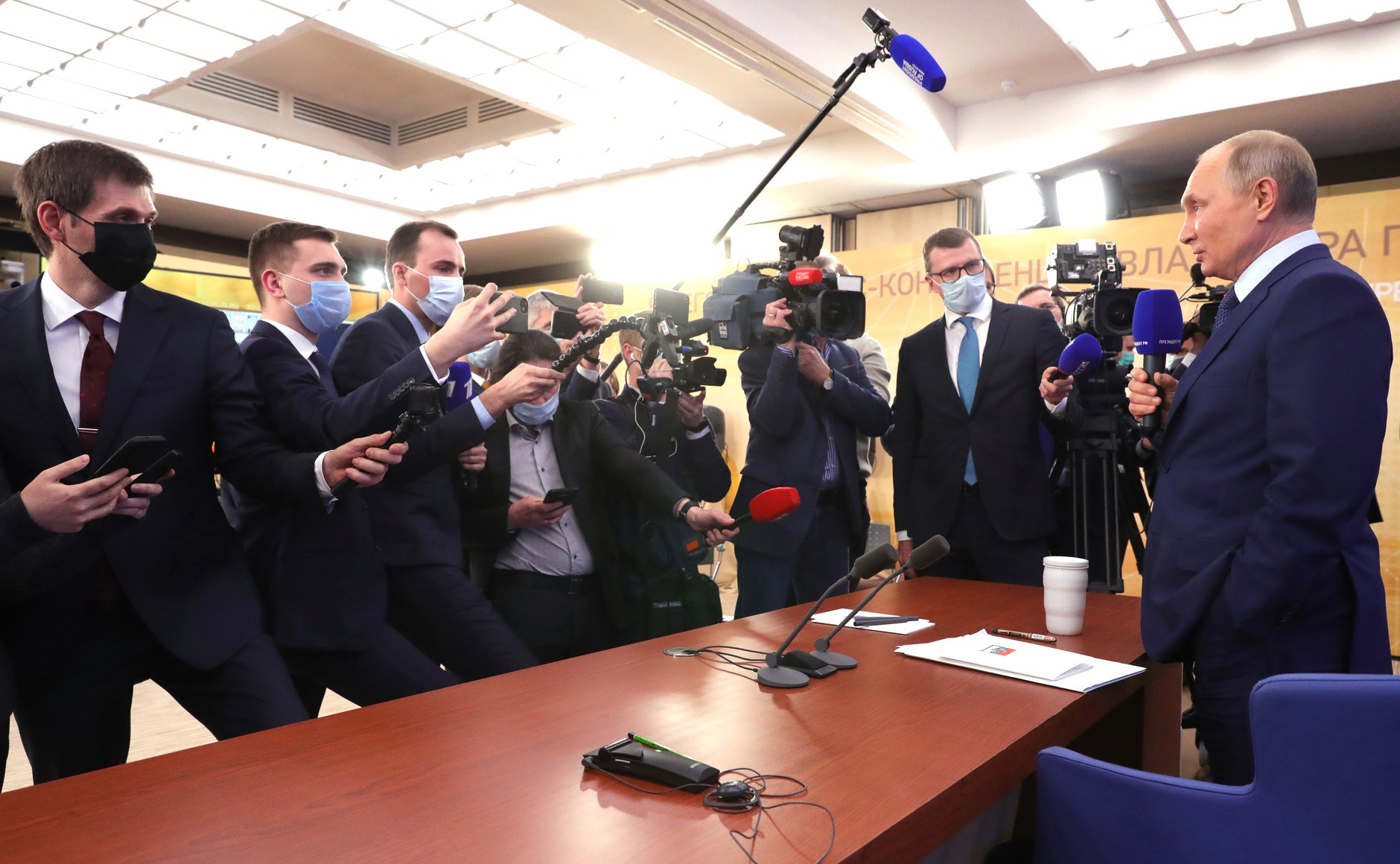 Question: Did you note any governors following the results? Vladimir Putin: You see, we keep records, everything. It is a case when nothing is lost. We will not lose anything. Question: What have you got in your mug, if it’s not a secret? Vladimir Putin: Tea. It is not even tea, but an infusion of Siberian herbs. Question: Has the composition changed over the years? Vladimir Putin: No, it is a herbal tea brewed from Siberian herbs. Question: Mr President, will you miss Ms Merkel? Vladimir Putin: Ms Merkel? Well, she is not leaving yet, thank God, she is working. That is why I think it is not quite appropriate to tell me she has left and something will follow. They have a parliamentary government there. I am aware of the developments in their domestic politics, I am aware of what can happen there in the nearest future. We have rather good personal relations with the Federal Chancellor, and the inter-state relations are of quite a high level. The Federal Republic of Germany is one of our biggest trade and economic partners. It follows China, probably, coming in second, I need to see the latest data. Everything has gone down due to the pandemic, but German businesspeople are undoubtedly among the biggest investors in the Russian economy. Unlike other investors, they invest in the real sector. We highly appreciate this, let me stress it again, we really have a lot of friends there who trust us and we value their trust. Question: What do you think your relationship with Mr Biden will be like? Vladimir Putin: I do not know. It will largely depend on the new administration. Let me reiterate, he is an experienced person, he has been in politics all his life. You know, there is a famous formula: the retinue makes the king. This is why it depends on who will make up his team. Actually, we already see candidates to the key positions, we know all of them and we have worked with them one way or another. We are not expecting any surprises here. Nevertheless, we heard the statement by the president-elect that it would be reasonable to extend the New START. We will wait and see what that will amount to in practical terms. The New START expires in February.  Question: Mr President, can you guarantee that such restrictions … Vladimir Putin: Come on, let us avoid such wording. (Laughter.) Question: …promise that there will be no more restrictions like the tough ones in spring with many non-working days, restriction on retail centres, and closures of businesses? Vladimir Putin: I can say that they are not in our plans. There is no need. The incidence of the disease is fairly high but according to specialists it has entered a plateau, which means that we do not see a sharp increase. We proceed from the assumption that given the number of specialised beds that we have, provided we increase drug production, I hope that we will not have the negative developments you mentioned. We will monitor this more closely so that people will get the necessary drugs and be hospitalised when needed. Here’s what you say: some people do not believe in vaccines and do not want to be vaccinated, or they do not believe anything at all; others are unhappy if they were not taken to hospital straight away; yet others are unhappy because they were not given the medications – all that must be reviewed carefully, calmly, in time, and we must give a timely response. If we do this, if we follow the rules and comply with requirements from the sanitary doctors, we will need no lockdowns. Question: Could you give us a little clarification about Safronov, whatever there is, Ivan is still our colleague. You said he is accused among other things of working as Rogozin’s aide in the Government. Vladimir Putin: Did I? No, I did not say that. Remark: He has been working at Roscosmos for the past six months. Vladimir Putin: Listen, I did not say that he was charged because he worked as an aide. I said that the investigation considers some elements of his activities to be illegal, they are connected not with his work as a Kommersant journalist, but with a long period of his life, including the period when he worked as Rogozin’s aide. That is all. But he gathered and passed information. That is what the investigators tell me. Remark: That is, while he was a Kommersant journalist. Vladimir Putin: No, not that alone. Also when he worked in other positions in other places. So what we need is the investigation to get to the bottom of the matter so that the case can go to court. There are no people who want to persecute him. Do you think he has some enemies at the Federal Security Service or the Investigative Committee? There are no personal enemies there. Did he rub any of them the wrong way or accused of something? No, there was nothing of that. The matter is different – whether what he did falls under the articulated clause and the crime he is charged with, or not. 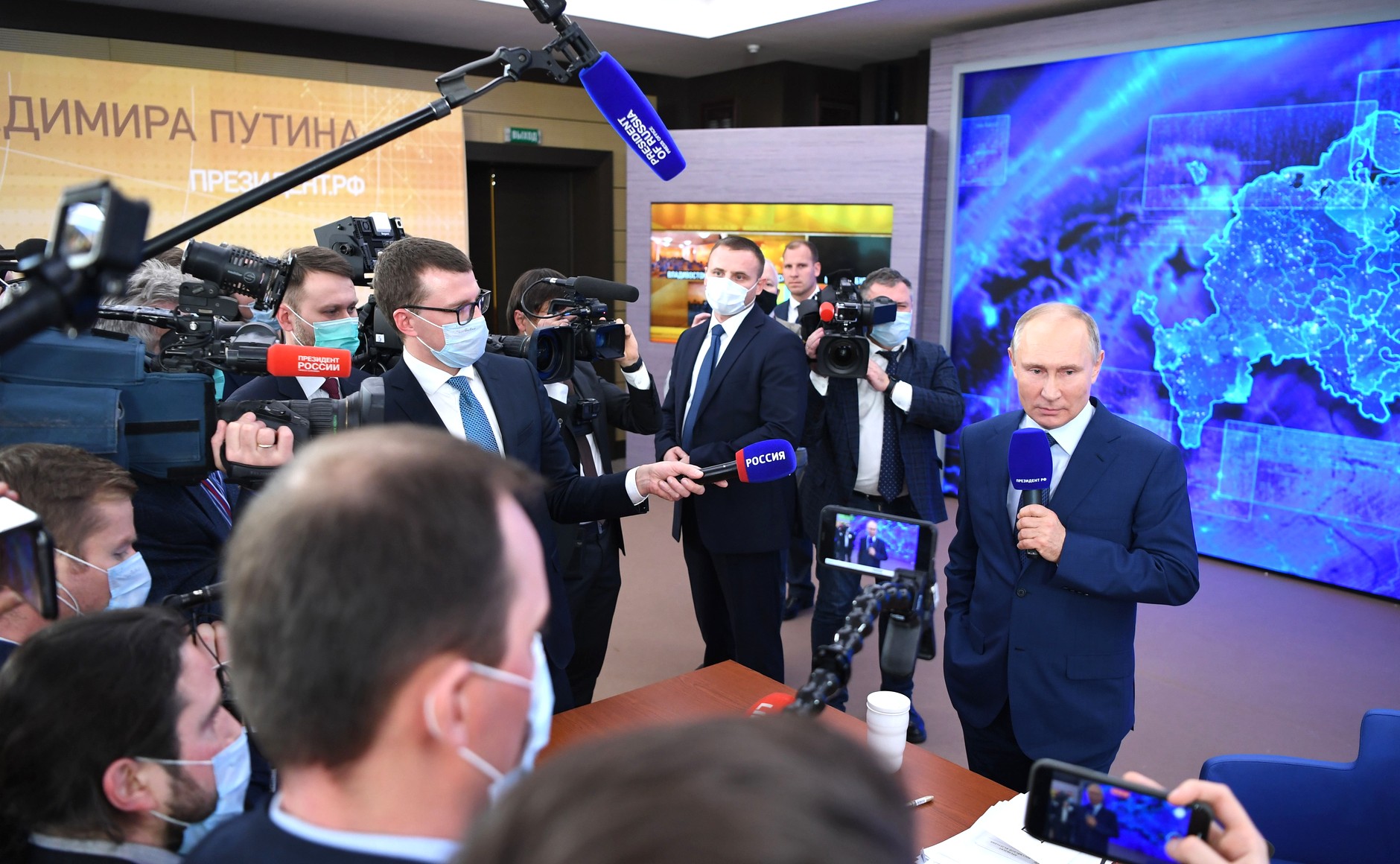 Question: Can you say what exactly he is charged with? Vladimir Putin: Passing classified information to intelligence agents of western countries. This is a straightforward charge. That is all there is to it. Question: Did it also happen last year and the year before? Vladimir Putin: I am not going to go into detail now. What is the point? To be honest, I do not know the details, and I should not make things up. I am not going to specify. What for? It is a sensitive matter, let the investigators do their job in peace. He has no enemies, do you understand? But it is an obvious fact, isn’t it, that the man working in the sphere of information collected some sort of information which he should not have deliberately passed on to intelligence agencies but he still did. These are the facts. If he, as a journalist, a free journalist, fulfilled his duties and signed a contract with someone, be it even a Western media outlet, that is a different matter regardless of whether the authorities like it or not. However, if he collected secret, classified information and passed it on to an intelligence agent, if he realised what he was doing and still did it – that is a completely different story, isn’t it? That is the point, and this is what it is about. There is no conspiracy there. Who cares about him anyway? Remark: What if he is used to put pressure on Rogozin? Vladimir Putin: Oh my God, this is total nonsense. Rogozin – why should he be under pressure? He is an official, he works today. If he works well, let him. If he does not want to work or if he does not work well, we will replace him. There is nothing special about it. By the way, he is getting ahead, progressing as Roscosmos head. There is no conspiracy theory here. It is pure nonsense, just get it out of your heads. As I see it, he is your colleague, many of you knew or know him personally. But what can we do if he deliberately collected and deliberately passed on information, fully aware of who he was passing it to and what information it was? I am sorry, but in that case let him face the consequences. But the investigators and security services must prove that, that’s true. If they do, then the court will hear the case. If they do not, then they will apologise to him. Question: Mr President, will the 5,000 ruble payments be paid out before the New Year and what is the procedure? Vladimir Putin: Before the New Year. The procedure is standard, like the one when 10,000 rubles were given to children under 16. Thank you, everyone. Remark: Happy upcoming New Year! The source of information - http://en.kremlin.ru/events/president/news/64671
__________________
Where should they dig the Very Deep Pit? Piglet said that the best place would be somewhere where a Heffalump was, just before he fell into it, only about a foot farther on. (c) Alan Alexander Miln |
|
|
#165 |
|
Senior Member
|
Message to Emmanuel Macron
Vladimir Putin sent President of the French Republic Emmanuel Macron a message expressing his concern over the news that President Macron had tested positive for COVID-19. December 17, 2020 - 17:05 The President of Russia wished Emmanuel Macron a speedy recovery and good health for many years to come. The source of information - http://en.kremlin.ru/events/president/news/64672 Executive Order on one-time payment to families with children The President signed Executive Order On One-Time Payment to Families with Children. December 17, 2020 - 17:10 In order to provide social support to families with children, the President resolved to make a one-time payment to citizens of the Russian Federation living in Russia who are parents, adoptive parents, legal guardians or custodians of children aged up to eight years, who are also Russian citizens, in the amount of 5,000 rubles per child within this category. Corresponding instructions have been issued to the Russian Federation Government and the Pension Fund. The source of information - http://en.kremlin.ru/events/president/news/64673 Meeting of CIS Heads of State Council Vladimir Putin took part in the CIS Heads of State Council meeting via videoconference. December 18, 2020 - 14:00 - Novo-Ogaryovo, Moscow Region  The participants in the videoconference, chaired by the Republic of Uzbekistan, discussed the current state of and prospects for developing cooperation within the CIS in the political, trade, economic, social and cultural spheres, as well as joint efforts to counter the coronavirus. They also exchanged opinions on important international and regional matters. A package of documents has been signed during the Meeting of the CIS Heads of State Council. The documents include resolutions On the Concept for the Further Development of the Commonwealth of Independent States and the Plan of Basic Measures for its Implementation; On the Development and Strengthening of Inter-Parliamentary Cooperation of the CIS Member States; On the Concept of Military Cooperation of the CIS Member States until 2025; as well as decisions on joint statements on the 75th anniversary of the UN and on international information security cooperation. In addition, an agreement was signed on the Joint Engineering Unit for Humanitarian Demining of the Armed Forces of the CIS Member States and a decision on the CIS Programme of Cooperation to Strengthen Border Security for 2021–2025 Documents were also signed to declare 2022 a Year of Folk Art and Cultural Heritage in the CIS, and 2023, a Year of the Russian language as a language of interethnic communication. Taking part in the meeting were President of Uzbekistan Shavkat Mirziyoyev, President of Azerbaijan Ilham Aliyev, President of Belarus Alexander Lukashenko, President of Kazakhstan Kassym-Jomart Tokayev, Acting President of Kyrgyzstan Talant Mamytov, President of Moldova Igor Dodon, President of Tajikistan Emomali Rahmon, President of Turkmenistan Gurbanguly Berdimuhamedov, Speaker of the Federation Council, Chair of the Council of the Inter-Parliamentary Assembly of the CIS Member States Valentina Matviyenko, and Chairman of the Executive Committee – Executive Secretary of the Commonwealth of Independent States Sergei Lebedev. 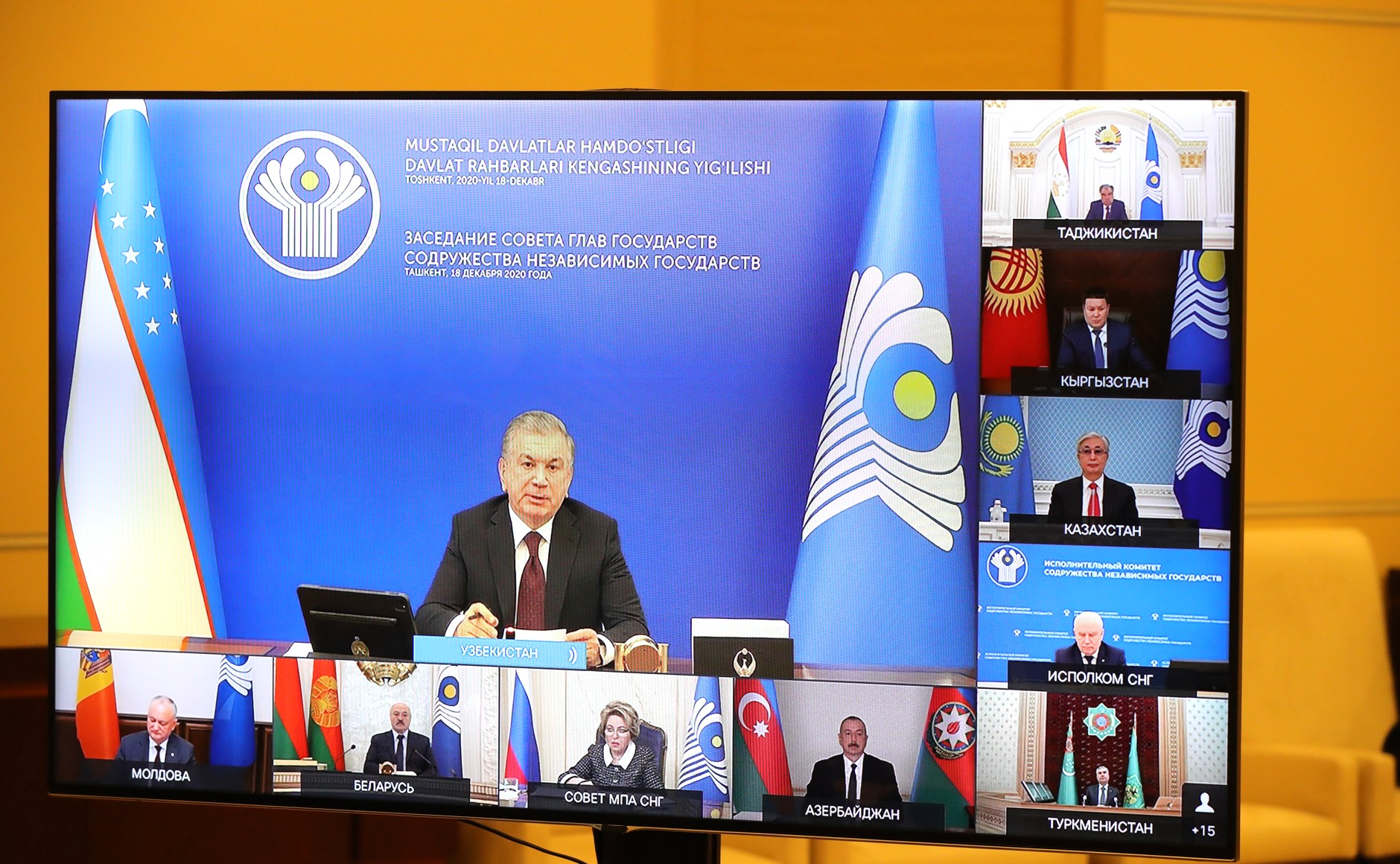 President of Russia Vladimir Putin: Colleagues, I would like to join those who thanked Chairman of the CIS Heads of State Council Shavkat Mirziyoyev for organising this meeting. It is a good opportunity for us to take stock of the year that is now ending and outline cooperation plans for the CIS for the short term. As my colleagues have already said, 2020 has been a challenging year, to say the least. Of course, I am referring to the coronavirus pandemic, which forced us to mobilise the available resources in order to protect the lives and health of our people. It is essential that from the very beginning of the outbreak, CIS members understood the need for collective approaches to fighting the epidemic. Our sanitary services coordinated their efforts. We are drafting cooperation agreements on sanitary controls and responding to epidemiological emergencies. The Plan of Action setting out joint initiatives to counter the epidemic is about to be completed. I have already said on a number of occasions that Russia has assisted its interested CIS partners in fighting the coronavirus and overcoming its consequences in every possible way, and importantly, will continue to do so. In particular, CIS countries received testing kits and reagents for a total of 1.3 million COVID-19 tests. I would like to emphasise that this accounts for 52 percent of all overseas assistance provided by Russia. Russian doctors and epidemiologists were sent on missions to many CIS countries, as my colleagues have already mentioned today, including Armenia, Azerbaijan, Kazakhstan, Kyrgyzstan, Moldova, Tajikistan and Uzbekistan, in order to assist these countries in preventing, diagnosing and treating coronavirus infection. Of course, we stand ready to assist all CIS countries in getting their people vaccinated using Russian vaccines. I am referring to the Sputnik V and EpiVacCorona vaccines. Other Russian vaccines are expected to become available soon. We also propose working together on producing them. This has been mentioned already. Let me confirm that we are ready to work together with you and are interested in doing this. This is essential for the people of our countries, considering our close economic and people-to-people ties. Hundreds of thousands, even millions of our citizens travel back and forth between our countries. Unprecedented attempts by external forces to interfere in the internal affairs of several CIS member states were another serious challenge we faced this year. I will not speak about this now. Colleagues have already touched on these matters in one way or another. Of course, all of us have been concerned about the armed conflict in Nagorno-Karabakh, in which the neighbouring CIS member states – Azerbaijan and Armenia – are involved. Regrettably, armed clashes there have claimed numerous lives, aggravated the already complicated situation in the South Caucasus and increased the risk of the proliferation of the terrorist threat. It has been noted that Russia provided mediation services to stop the bloodshed in the Nagorno-Karabakh zone, bring about a full ceasefire and launch the stabilisation process. At the same time, we tried to comply with the key agreements reached within the OCSE Minsk Group, in particular, among its co-chairs – the Russian Federation, France and the United States. As you are aware, on November 9, Russia, Azerbaijan and Armenia signed a trilateral statement. Our colleagues have already spoken about this. It is very important that this statement is being consistently implemented, by and large. The Russian peacekeepers, who have been deployed along the contact line, are doing everything they can to prevent a new aggravation. The international community and, of course, all our countries are facing a vital objective – to help the affected regions settle their humanitarian problems, including those related to the return of refugees, rebuilding the damaged infrastructure, and protecting and restoring historical, religious and cultural landmarks. 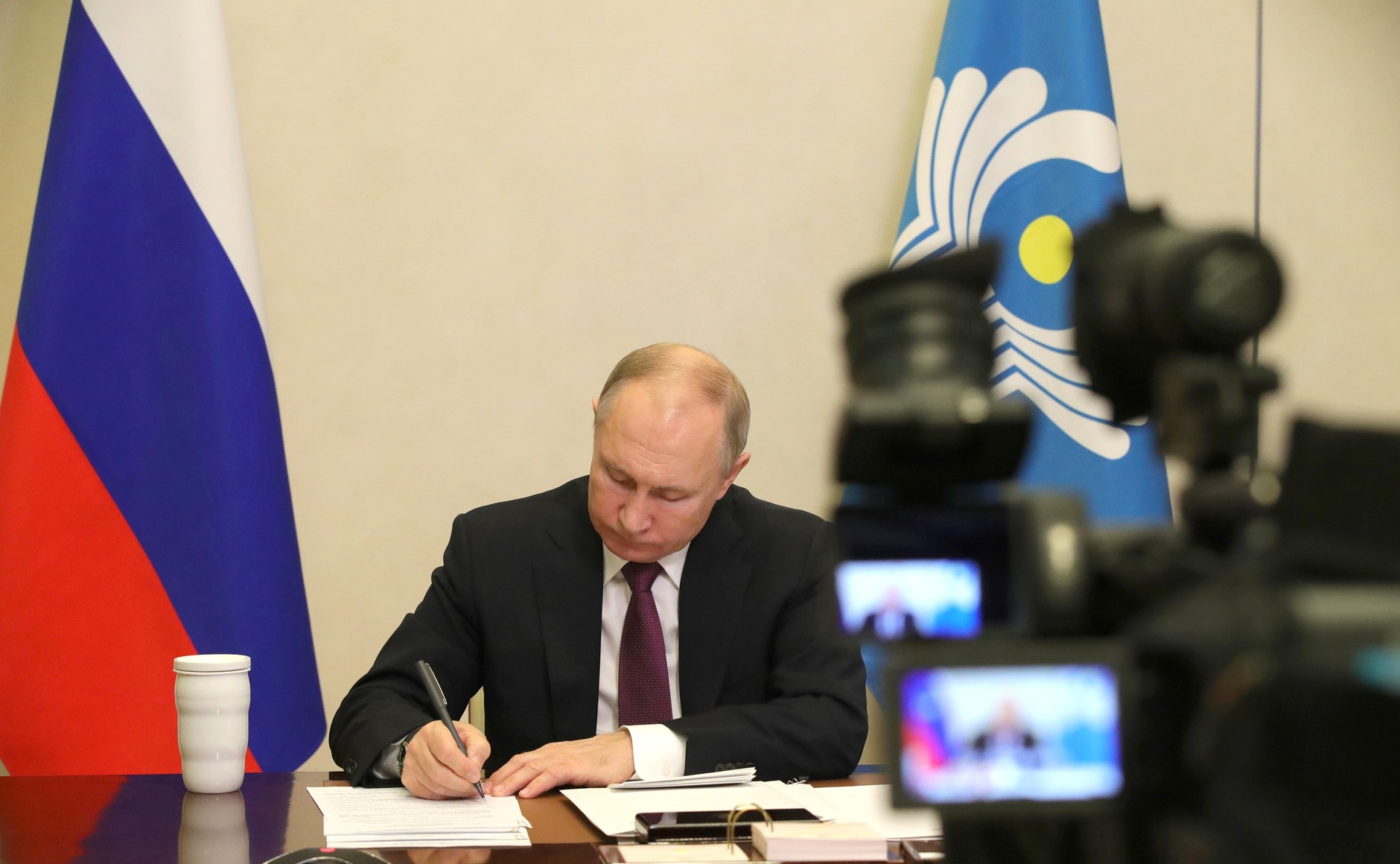 Friends, Despite these challenges and problems, interaction between the CIS member states continued to develop in all spheres this year, including in the economy and trade, in politics and security, as well as in the cultural and humanitarian sphere. This is evident from the large set of decisions and agreements, which have been prepared for approval at today’s meeting of the SCO Heads of State Council. I would like to once again thank our Uzbek friends for this. One of the documents to which I would like to attract your attention is the draft of the updated Concept for the CIS Further Development. Russia supports the CIS priorities for the medium term as set out in that document. We believe that it is important to continue strengthening the CIS countries’ interaction when it comes to ensuring security in the post-Soviet space, protecting the CIS external borders, and combating other current challenges, such as terrorism and crime in cyberspace and other spheres. We see great potential in the implementation of joint projects in the field of industrial and technological cooperation, as Mr Lukashenko has said, as well as in aircraft manufacturing, energy, telecommunications, science in general, technology and digitisation. Not that long ago, we attended an international event organised by Sberbank of Russia together with the President of Kazakhstan. I would like to note that our organisation could also hold events of this kind. I would like to thank the President of Kazakhstan for taking part in this event, held at Russia’s initiative. Russia also wants to promote deeper humanitarian ties between CIS countries in order to preserve a single cultural, scientific and educational space. In this context, I would like to note the experience of holding joint thematic years by CIS countries, which has been a success. The fact that their programme is compiled well in advance is a good thing. The next year, 2021, will be the Year of Architecture and Urban Planning. Today we will take a decision to devote the year 2022 to promoting folk art and preserving our rich cultural heritage. We have always been proud of our heritage and the unique cultural identity of every nation within the former USSR. We should never forget that this is something we can all be proud of. The year 2023 will be devoted to promoting the Russian language as a means of international communication. We are now speaking Russian and are able to communicate freely, without interpreters. This definitely creates a certain atmosphere and helps us in our work. Even more importantly, there are many labour migrants in our countries, especially in Russia. For all of us, including for those people, and there are millions of them, being able to learn the Russian language when they need it is essential. This year, all activities within the CIS were marked by the 75th anniversary of Victory in the Great Patriotic War, which is quite logical. Mr Igor Dodon has already said that military detachments of a number of CIS countries took part in the parade on Red Square. We appreciate this very much, and I would like to thank you for this. We are grateful to our CIS partners for supporting Russia at international platforms on initiatives to preserve the historical truth and counter attempts to justify Nazism in all its forms. I am certain that we need to act in the spirit of solidarity in defending the memory of the feats of our peoples who saved the world from aggression and had to pay a high price and suffer irreparable losses. The Great Victory not only brought peace, but also enabled us to lay a solid foundation for the contemporary international order. Today, we are to adopt another important statement, on the 75th anniversary of the United Nations. The fact that it clearly reaffirms the commitment by the CIS to the UN Charter and emphasises the central coordinating role of the UN in international affairs is of crucial importance. 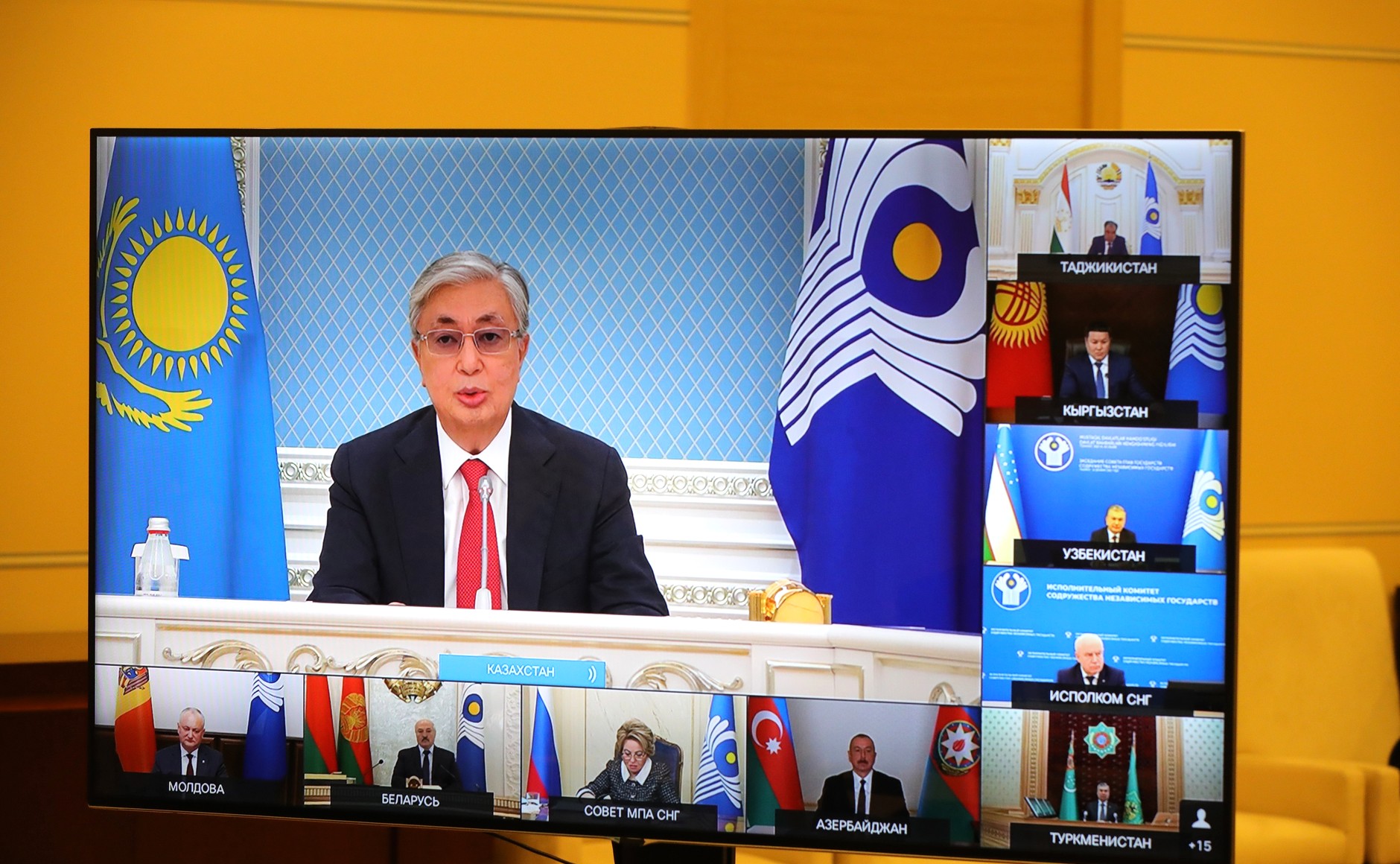 Colleagues, To conclude, I would like to wish all our countries every success as we approach the New Year holidays. My greetings to your families and the people in your countries on this wonderful occasion. I would also like to wish our friends in Belarus every success in chairing the CIS in 2021. Thank you for your attention. The source of information - http://en.kremlin.ru/events/president/news/64676 Greetings on the opening of a memorial to sambo founders Viktor Spiridonov, Vasily Oshchepkov and Anatoly Kharlampiyev Vladimir Putin congratulated participants in the ceremony for unveiling a memorial to sambo founders Viktor Spiridonov, Vasily Oshchepkov and Anatoly Kharlampiyev, as well as Russia’s sambo community. December 18, 2020 - 14:00 The message reads, in part: “We and our future generations will never forget those who pioneered sambo in the 1920s and who formulated and developed its philosophy and traditions. This form of unarmed self-defence, which incorporated the best practices of national martial arts, is a truly unique sport that fosters the development of high moral principles, strong will, civic responsibility, endurance and self-discipline. I would like to stress that the memorial you are opening today has an important and noble mission: to commemorate our outstanding compatriots whose selfless devotion led to the creation of sambo, which has since become popular throughout the world. There is no doubt that young athletes will meet at this monument in Luzhniki’s Alley of Glory, where winners and veterans will be celebrated and other important events will be held. I would like to express my deep and sincere gratitude to the All-Russian Sambo Federation, the Russian Military Historical Society, the Moscow Government and the talented group of designers for this major project of great importance.” The source of information - http://en.kremlin.ru/events/president/news/64733 Meeting with permanent members of Security Council Vladimir Putin chaired a meeting of permanent members of the Security Council via videoconference. December 18, 2020 - 16:25 - Novo-Ogaryovo, Moscow Region Attending the meeting were Prime Minister Mikhail Mishustin, Federation Council Speaker Valentina Matviyenko, State Duma Speaker Vyacheslav Volodin, Deputy Chairman of the Security Council Dmitry Medvedev, Chief of Staff of the Presidential Executive Office Anton Vaino, Security Council Secretary Nikolai Patrushev, Foreign Minister Sergei Lavrov, Defence Minister Sergei Shoigu, Foreign Intelligence Service Director Sergei Naryshkin, and Special Presidential Representative for Environmental Protection, Ecology and Transport Sergei Ivanov. 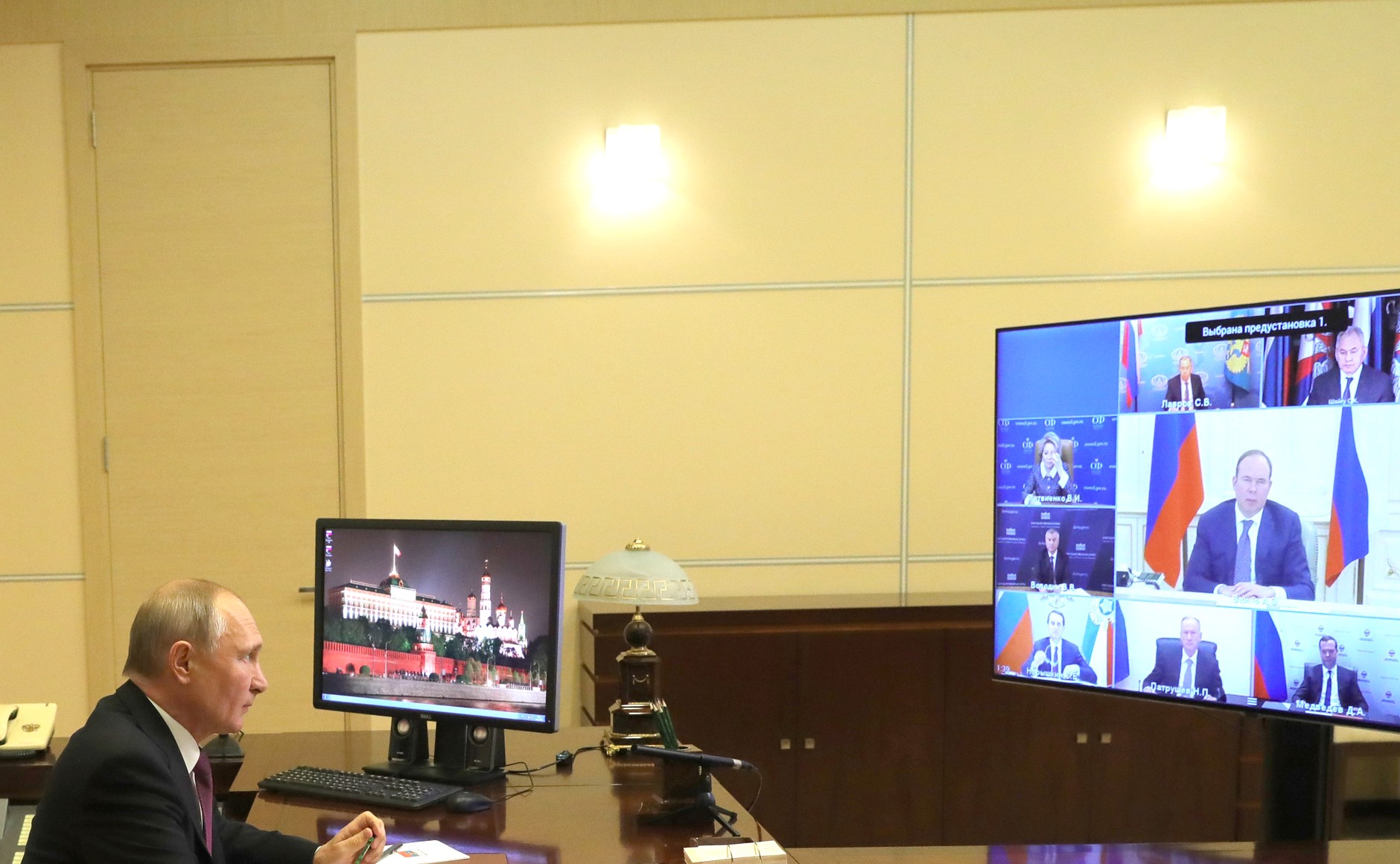 President of Russia Vladimir Putin: Good afternoon, colleagues. Today we are holding yet another meeting of the permanent members of the Russian Security Council and will focus on a very important and sensitive issue. I am referring to neutralising threats to the national security of our country related to the development of artificial intelligence technology for military purposes in the leading armies of the world. A relevant report will be made by Chief of the General Staff Valery Gerasimov. Please, Mr Gerasimov. The source of information - http://en.kremlin.ru/events/president/news/64678 Telephone conversation with Alexander Kolyasnikov Vladimir Putin had a telephone conversation with Alexander Kolyasnikov from Tula Region, who visited the Moscow Zoo with his parents thanks to the President’s participation in the New Year Wishing Tree national campaign. December 19, 2020 - 17:30 The President took part in the New Year Wishing Tree charity event and helped a wish come true for a Tula Region boy Alex, whose dream was to hug a panda. The child came to the Russian capital with his parents and, supervised by the Zoo staff, met the animal in a special area for training. Alex was able to create a unique T-shirt: he and Ru Yi the Panda applied colourful prints to the T-shirt. Vladimir Putin called Alex and his parents during the tour and asked if the boy enjoyed meeting Ru Yi and congratulated him on his New Year wish coming true. The source of information - http://en.kremlin.ru/events/president/news/64680 Congratulations on Security Agency Worker’s Day Vladimir Putin visited Russia’s Foreign Intelligence Service headquarters on Security Agency Worker’s Day. December 20, 2020 - 14:40 - Moscow 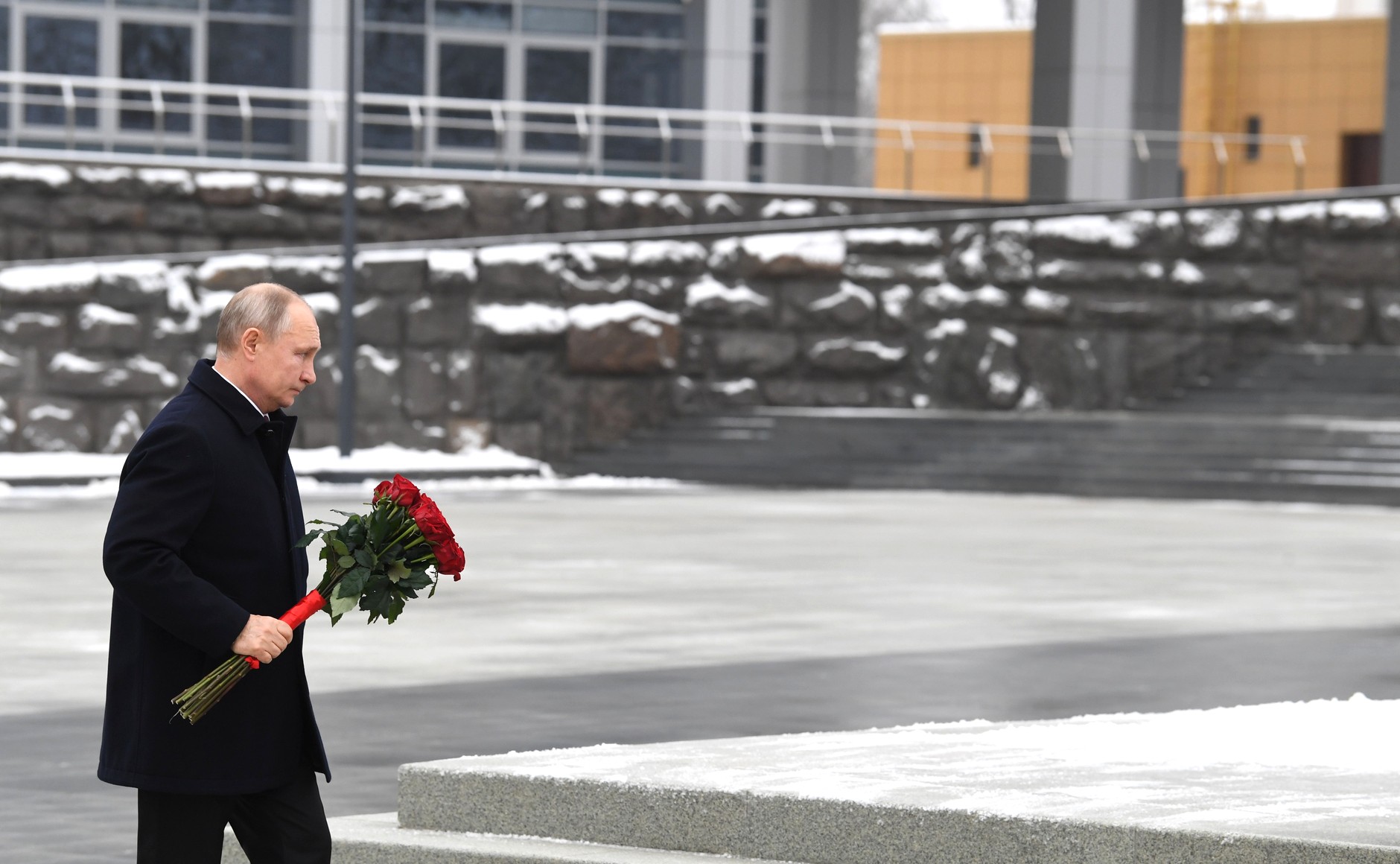 The President laid flowers at the monument erected to commemorate the centenary of Russia’s Foreign Intelligence Service and congratulated current and former officers of the Russian special services on their professional holiday. 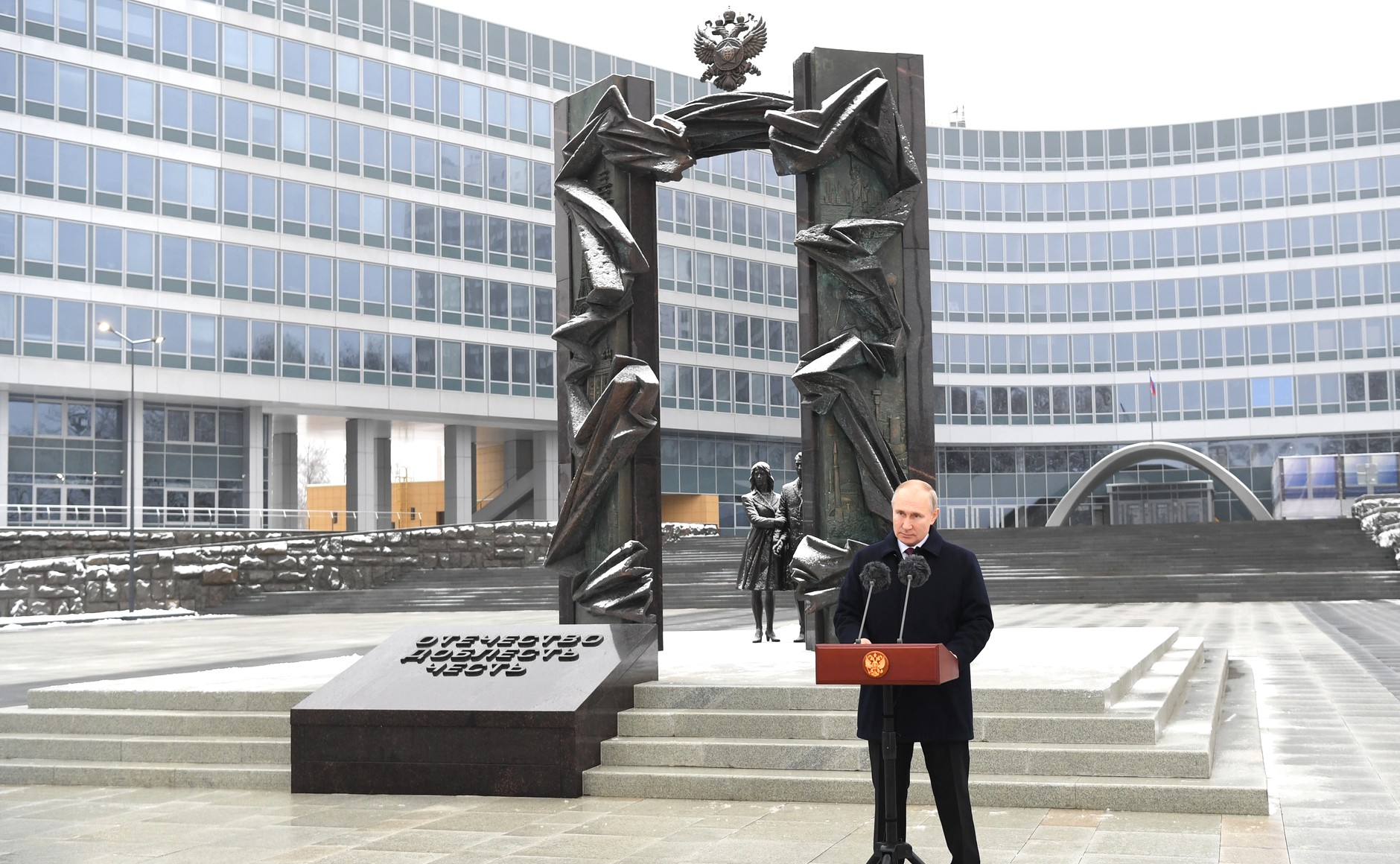 President of Russia Vladimir Putin: Comrade officers, colleagues, veterans, I congratulate you on Security Agency Worker’s Day. I wish success to those who defend Russia from external and internal threats, stand for our sovereignty and national interests and for whom the security and wellbeing of the Motherland have been and will always be a lifelong commitment. Today is a holiday for all state bodies and special services whose job is to ensure the nation’s security. But we have gathered here at the Foreign Intelligence Service headquarters because today this service celebrates an anniversary – 100 years since its establishment. On this great occasion, I would like to sincerely congratulate all those who have worked and who continue to work in this key area, one that is crucial for the state. I would also like to greet those who have recently chosen this predestination, which is oftentimes connected with considerable risk. 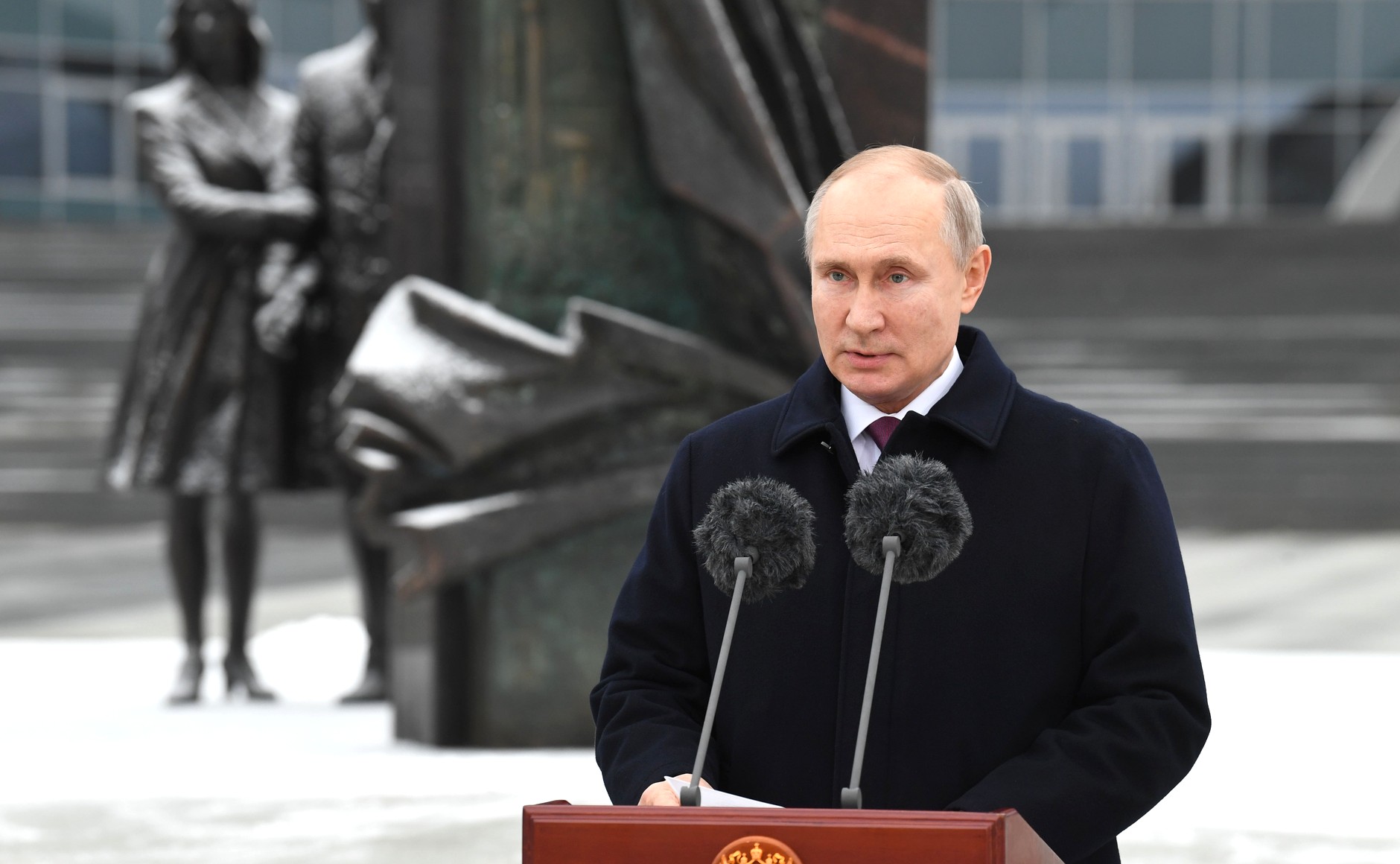 By continuing the traditions of their predecessors, who served Russia before the revolution, intelligence officers have made an invaluable contribution to ensuring the country’s security and selflessly carried out the most difficult assignments, the results of which have at times even impacted the course of our history, as well as that of the world. I expect that the Foreign Intelligence Service will continue to exhibit flexibility in responding to the ever-changing international situation, to display vigorous commitment in identifying and neutralising potential threats to Russia, and to enhance the quality of its analyses. All the personnel of Russia’s security agencies are comrades-in-arms of the Foreign Intelligence Service staff. And on this holiday, I would like to extend my warmest wishes to them too. 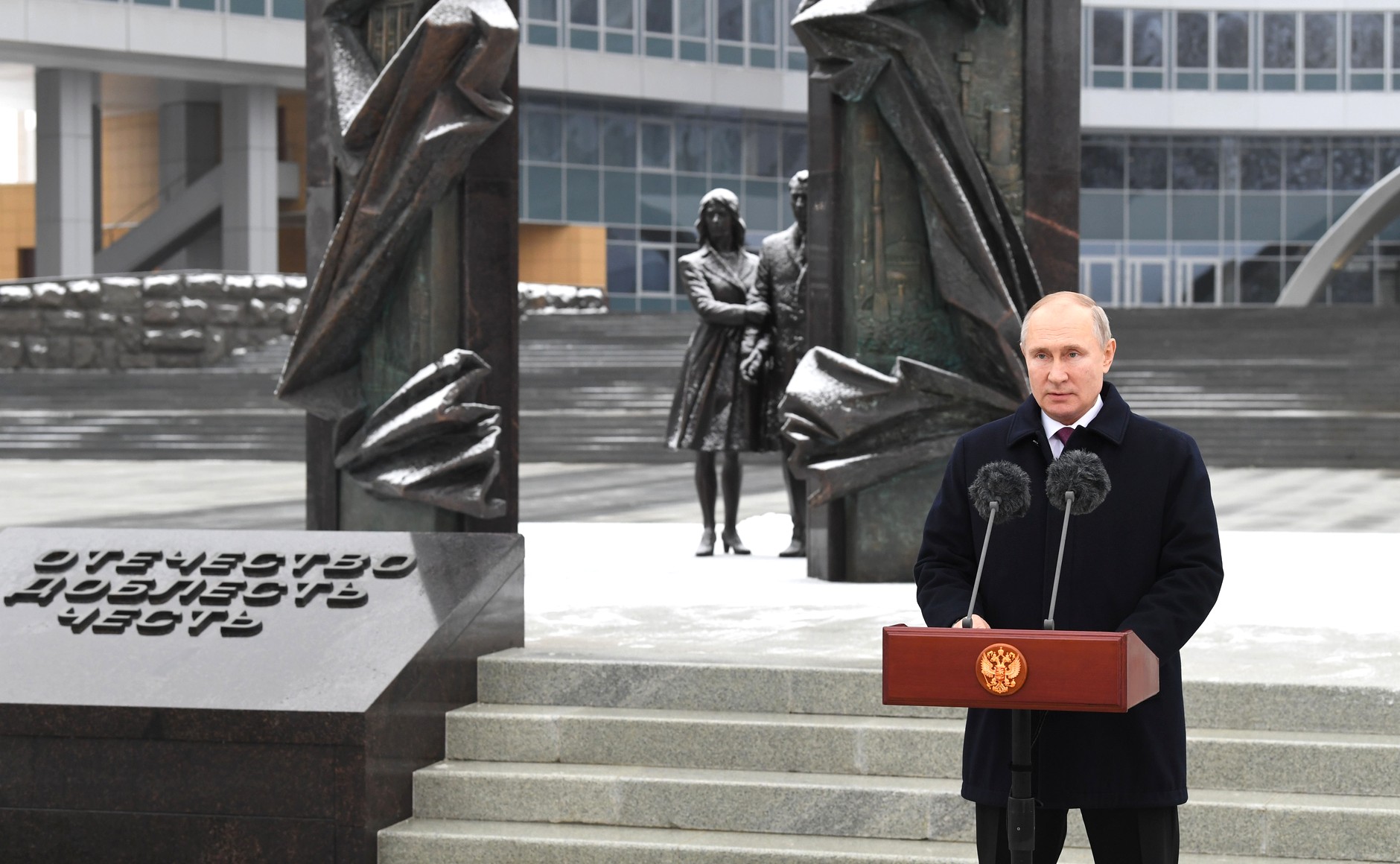 We rightly take pride in the glorious pages of all our agencies’ history. In the year of the 75th anniversary of the Great Victory, we bow our heads in memory of all those who led our troops on the attack, in military units made up of security agency personnel, who fought on the frontline in the midst of battles, defending Moscow, Leningrad and Stalingrad, fighting for Kursk and on other major frontlines of the Great Patriotic War. Of those who formed guerrilla units to carry out sensitive assignments from the rear, eliminating spies, traitors and saboteurs. Our common challenge is to oppose any attempts to re-write history, including attempts to hush or distort the role of the Russian special services in crushing Nazism and protecting the country’s national interests overall. Yes, we do remember and we will never forget the tragic pages of the 20th century, just like we will never forget the lessons of the past, or the crimes and repressions that the people of our country were subjected to. But without a doubt, when the security agencies are efficiently performing their duties, subordinate to the law and our national interests, their services were and always will be of paramount importance for Russia. It is one of the major guarantees of the sovereign, democratic and independent progress of our multi-ethnic society. And its fortitude to take on any challenge. One such challenge is international terrorism. And the Russian people are no strangers to this evil. We remember everyone who died defending Russia from this cruel enemy, which our country faced during the most horrendous period of its history. We currently have a powerful national system to fight terrorism. But fairly recently, not to mention the mid-1990s or early 2000s, as early back as 2010, 779 terrorist crimes were recorded in Russia. In 2015 there were only 36 such cases, and during the first 11 and a half months of this year – just two. At the core of these statistics lies huge, day-in-day-out, risky and tedious work, now performed at a new level of competency. The Federal Security Service and other agencies under the National Antiterrorist Committee must continue to act resolutely and consistently. We also need to further build on the results reached by the counterintelligence agencies. I know first-hand what we are talking about here, and offer my highest praise on these complicated and professional operations. We must keep a strong focus on ensuring information security, fighting extremism and corruption and tackling economic crimes. And of course, we must ensure more efficient protection of our state borders, especially in view of simmering regional conflicts in close vicinity to them. The staff of the Federal Guard Service must continue to reliably ensure security of state facilities and major events, and the Main Directorate for Special Programmes must carry on resolving a wide range of tasks in order to increase the stability of key state bodies and communications systems, and do so under any conditions, no matter how complicated they might be. 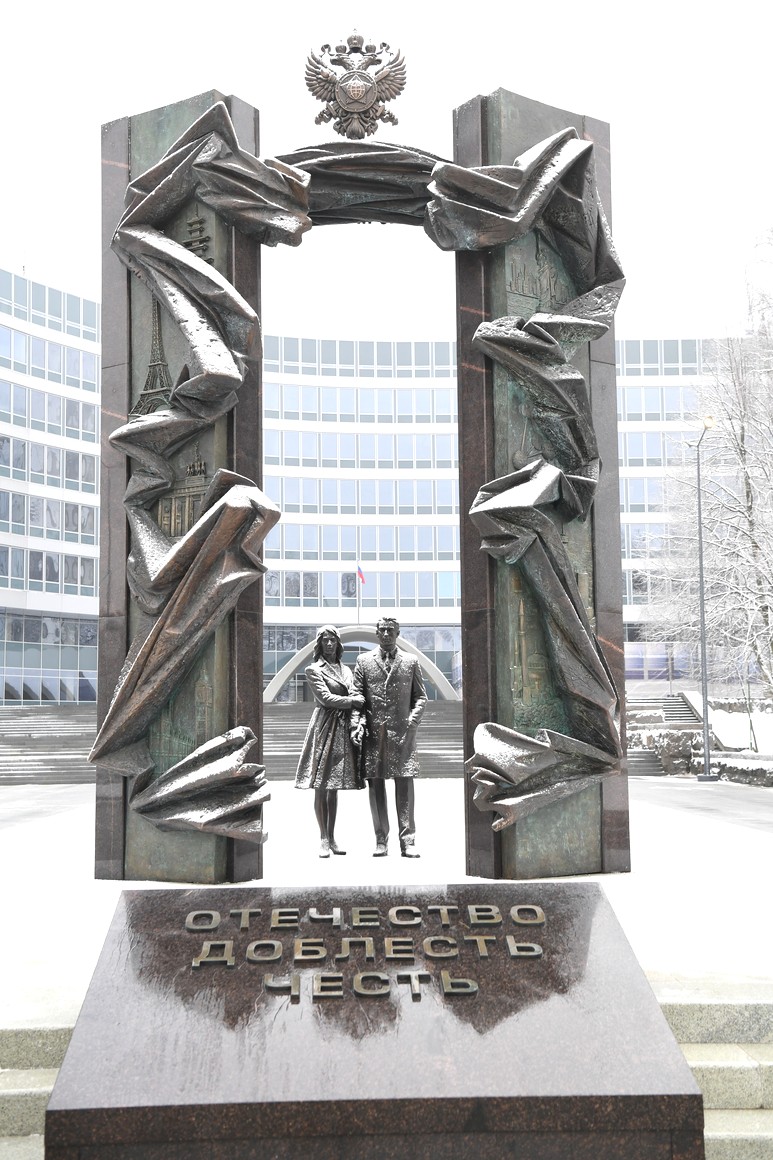 Friends, Let me thank you again for your service to the Motherland. I know for sure that your ranks are made up of reliable and courageous people. I wish you success and good health and I extend best wishes to your families and friends. Happy holiday, and of course, a Happy 2021 New Year! All the very best to you. Thank you. The source of information - http://en.kremlin.ru/events/president/news/64681 Congratulations on the 30th anniversary of Nezavisimaya Gazeta Vladimir Putin congratulated the staff of the Nezavisimaya Gazeta newspaper on the 30th anniversary of the first issue. December 21, 2020 - 09:30 The message reads, in part: “This anniversary is a great occasion to look back on the eventful history of Nezavisimaya Gazeta and those who worked for it in its early days, establishing high quality standards and strengthening the prestige and authority of the Russian press with their talent and day-to-day journalistic work. It is important that the newspaper’s current editorial team is preserving and developing the traditions of its predecessors. Nezavisimaya Gazeta is valued for its thorough and in-depth approach to covering current events, for its constant openness to free discussion and objective criticism, to brave and heated debates about the situation in the country and the world. This is why Nezavisimaya Gazeta enjoys well-deserved recognition among colleagues and its extensive readership.” The source of information - http://en.kremlin.ru/events/president/news/64685
__________________
Where should they dig the Very Deep Pit? Piglet said that the best place would be somewhere where a Heffalump was, just before he fell into it, only about a foot farther on. (c) Alan Alexander Miln |
|
|
#166 |
|
Senior Member
|
Meeting on the signing of a memorandum between the Gamaleya Centre, AstraZeneca, RDIF and R-Pharm
Vladimir Putin held a meeting, via videoconference, on the signing of a Memorandum of Intent in the area of preventing the novel coronavirus infection (COVID-19) between the Gamaleya National Centre of Epidemiology and Microbiology, AstraZeneca, the Russian Direct Investment Fund and R-Pharm. December 21, 2020 - 12:40 - The Kremlin, Moscow 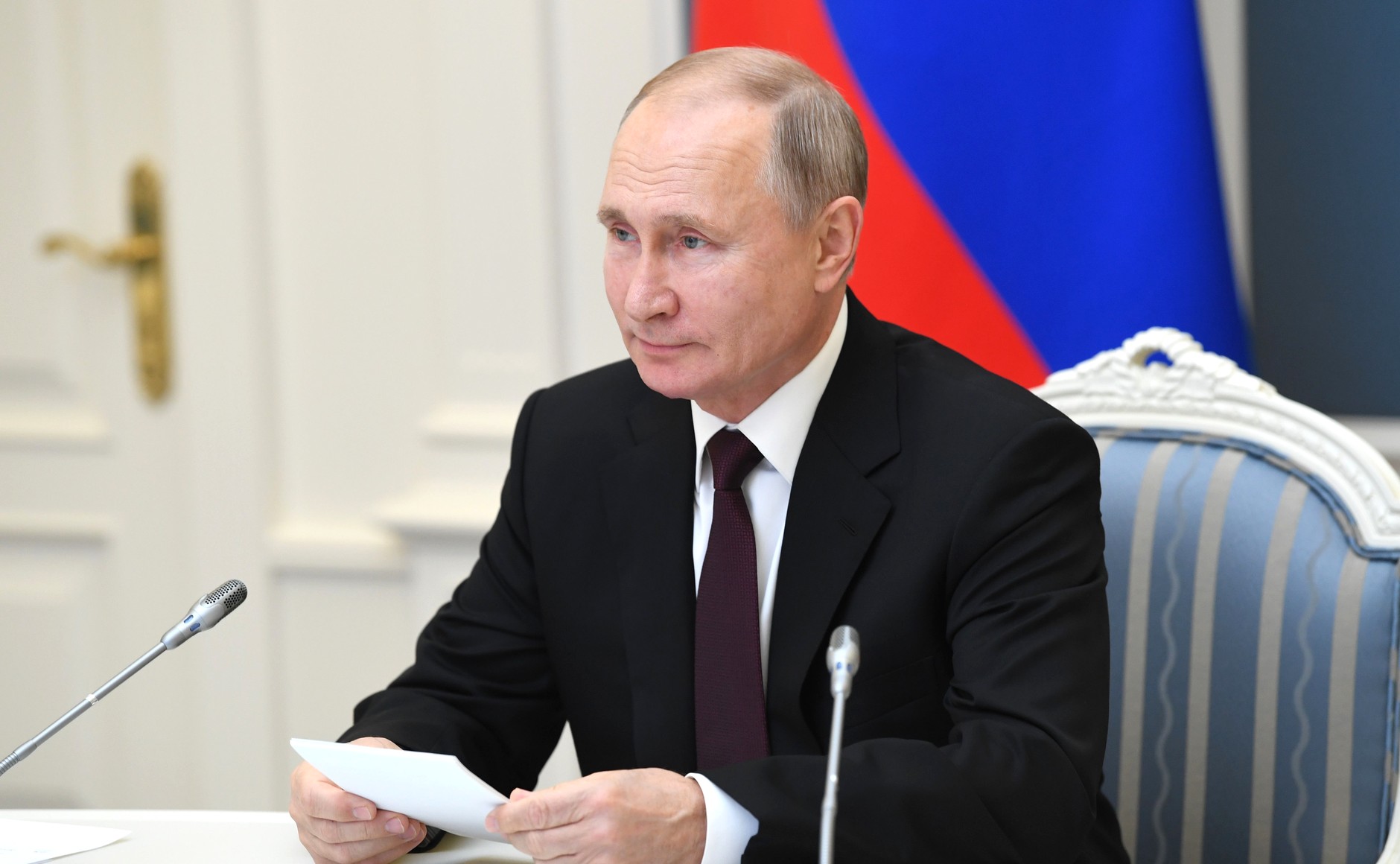 The meeting was attended by Director of the Gamaleya National Centre of Epidemiology and Microbiology of the Russian Healthcare Ministry Alexander Gintsburg, CEO of the Russian Direct Investment Fund (RDIF) Kirill Dmitriev, Deputy Director of the Gamaleya National Centre of Epidemiology and Microbiology Denis Logunov, Chairman of the Board of Directors of R-Pharm Alexei Repik, and CEO of AstraZeneca Pascal Soriot.  President of Russia Vladimir Putin: Good afternoon. I am glad to see you all. Welcome and congratulations on this significant event, the signing of a memorandum of cooperation. I am absolutely certain that your commitment to partnership may serve as a compelling example of combining research forces, technologies and investment in order to achieve a common goal, which is to protect the lives, health and safety of millions of people on the planet. Here is what I would like to say. You must have noticed this. My colleagues and I discussed this at length during the G20 summit, a meeting of the leaders of the world’s 20 leading economies. I would like to stress that practically all speakers unanimously agreed that we need to work together to combat the coronavirus. This intention is in fact included in the summit’s final document. In this context, you are doing exactly what the G20 recommended and what the United Nations have repeatedly called for when addressing experts around the world. I am talking about joining efforts. It is important to use all opportunities that international cooperation offers in order to move as quickly as possible towards the moment when this dangerous infection will finally be defeated. And I am very pleased that Russian specialists, proving their high level of professionalism and scientific expertise, have already made a significant contribution to this common task – they have developed three safe and effective vaccines that can provide a high guarantee of preventing the infection, and in some cases seriously decrease its gravity. The very first in this series was a vaccine developed by researchers at the Gamaleya Centre with the support of the Russian Direct Investment Fund. I can see all the project participants here, too. The large-scale vaccination campaign already underway in Russia is making use of their invention. We know that scientists in other countries around the world are also vigorously working on new vaccines. As far as I know, one has been created by AstraZeneca with the University of Oxford. I sincerely greet Mr Pascal Sorio. To build on these achievements, Russian scientists and our foreign colleagues have made a decision which is based on the principle of an open scientific and professional partnership – and there are no and cannot be any boundaries to that, of course, especially in the current situation. Just recently, you announced the start of clinical trials to assess the safety and efficacy of the combined use of two vaccines, namely the AstraZeneca and Oxford vaccine and the Russian Sputnik V vaccine from the Gamaleya Centre. 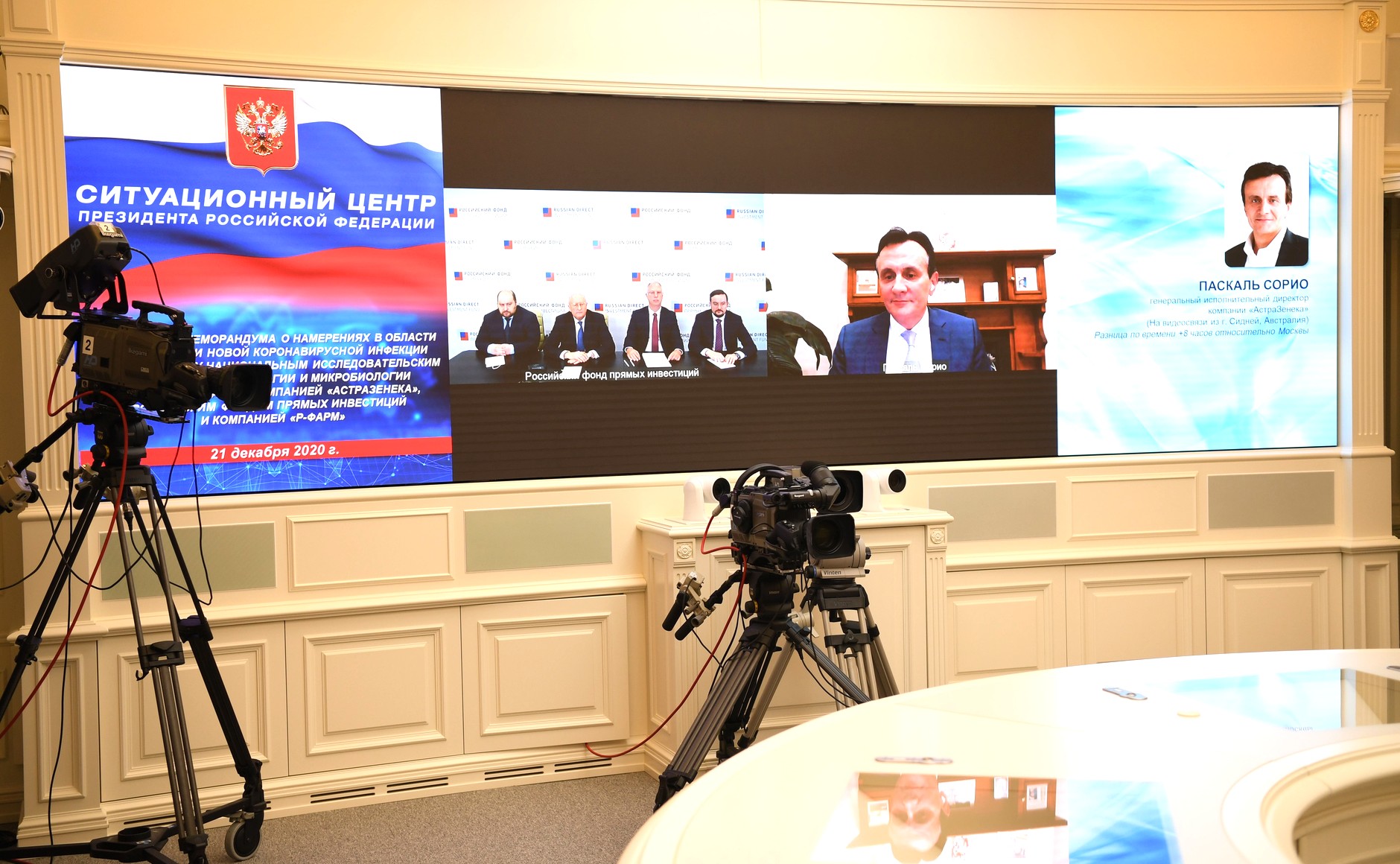 I know that our colleagues in Russia and representatives of AstraZeneca consider this joint programme an essential step in finding the most effective solution to combat the COVID-19 infection. Such cooperation can produce a powerful effect and synergy, both in terms of increasing the efficacy and reliability of the vaccination campaign, of the vaccine itself, and also for its greater availability due to the introduction of various vaccination plans, enabling modern production and logistics, the use of the most advanced industrial facilities in Russia and in other countries. Today, I am happy to note that it is precisely Russian scientists, our investment companies and representatives of the partner company AstraZeneca that are implementing the World Health Organisation recommendations in real life. Today, you are doing what WHO representatives have repeatedly recommended. They have called for joint action and continue to do so. And you are showing an example of leadership in pooling international efforts and thus bringing victory over this treacherous virus closer. We sincerely wish every success to all colleagues in all countries. We know that the process is developing with difficulty. We realise that it is necessary to exert the maximum possible effort, while moving along a virtually untrodden road. By the way, this concerns everyone. We can see problems facing our colleagues. It is therefore very important to act hand in hand, being aware of our shared responsibility. We must understand that it is precisely cooperation that can expand on what has already been achieved by certain countries and organisations. It goes without saying that Russia is ready to pool such efforts and to conduct joint work, especially in those areas which aim to preserve people’s lives and health. In this connection, I would like to note that AstraZeneca has been operating on the Russian market for many years, successfully implementing a number of investment projects. I know that they have even built a factory, and that they are investing in joint research and personnel training projects. Mr Soriot, we will support this striving on the part of your company and other partners who have been working rather actively in the pharmaceutical sector for a long time in various regions of the Russian Federation. We will do this in every way. I am confident that cooperation between Russian colleagues and AstraZeneca will make it possible to achieve a breakthrough while working on vaccines and on a number of other vitally important medicines. I know that your company is working in precisely this direction. In conclusion, I would like to once again congratulate you on signing a memorandum of cooperation and to wish you every success in the joint work. It would be no exaggeration to say that this work is highly important and noble. Thank you very much.  <…> Russian Direct Investment Fund (RDIF) CEO Kirill Dmitriev: Mr President, colleagues, Mr President, you instructed the RDIF to focus on countering the epidemic, and we used our expertise to find solutions in three areas, each of them vital for saving lives: test kits, antiviral medicine and a vaccine. As you now, we have invested in the production of rapid and effective test kits, in the production of the first antiviral medicines registered in Russia and one of the world’s two such medicines, as well as in the creation and production of the Sputnik V vaccine. When you established the Russian Direct Investment Fund, you instructed us from the beginning to focus on partnership, which you have just mentioned. The partnership approach you encouraged has allowed us to successfully deal with the creation of the vaccine for the protection of our citizens and people in other countries. Evidence of this partnership approach is the composition of our International Advisory Board, which includes scientists from the United States, Sweden, Germany, Argentina, Croatia and Italy. We are working in partnership with the world’s leading countries to conduct clinical trials in the UAE, Venezuela and India. Today we can announce that clinical trials have ended successfully in Belarus, where our vaccine has been registered today. Belarus is one of the first countries to register our vaccine. We are working with producers in India, China, Brazil, the Republic of Korea and other countries to launch the production of Sputnik V beyond Russia. Today, the Prime Minister of Kazakhstan launched the joint production of the Sputnik V vaccine in Kazakhstan. We expect Belarus to start manufacturing finished vaccine doses as soon as the first quarter of 2021. Overall, we hope to produce over 500 million vaccine doses at our facilities outside Russia next year. Of course, our key priority is to protect Russian citizens, as you instructed, but it is also important to maintain partnership with the countries that would like to buy our vaccine to save their citizens. We will supply the vaccine to them mostly from our manufacturing facilities outside Russia. Deliveries will begin this year. We are also collaborating with regulatory authorities when it comes to the approval of the Russian vaccine, and we expect to get it approved in several countries as soon as this year. The number of such countries will increase several times over next year. We are pleased to see such high assessment of Russia’s regulatory standards. For example, as the result of our efforts, the lower house of the Brazilian Parliament has adopted a law on the use in Brazil of the vaccine registered in Russia. We believe that this is a very important example, including for other countries which want to save their citizens and trust Russia’s regulatory standards. 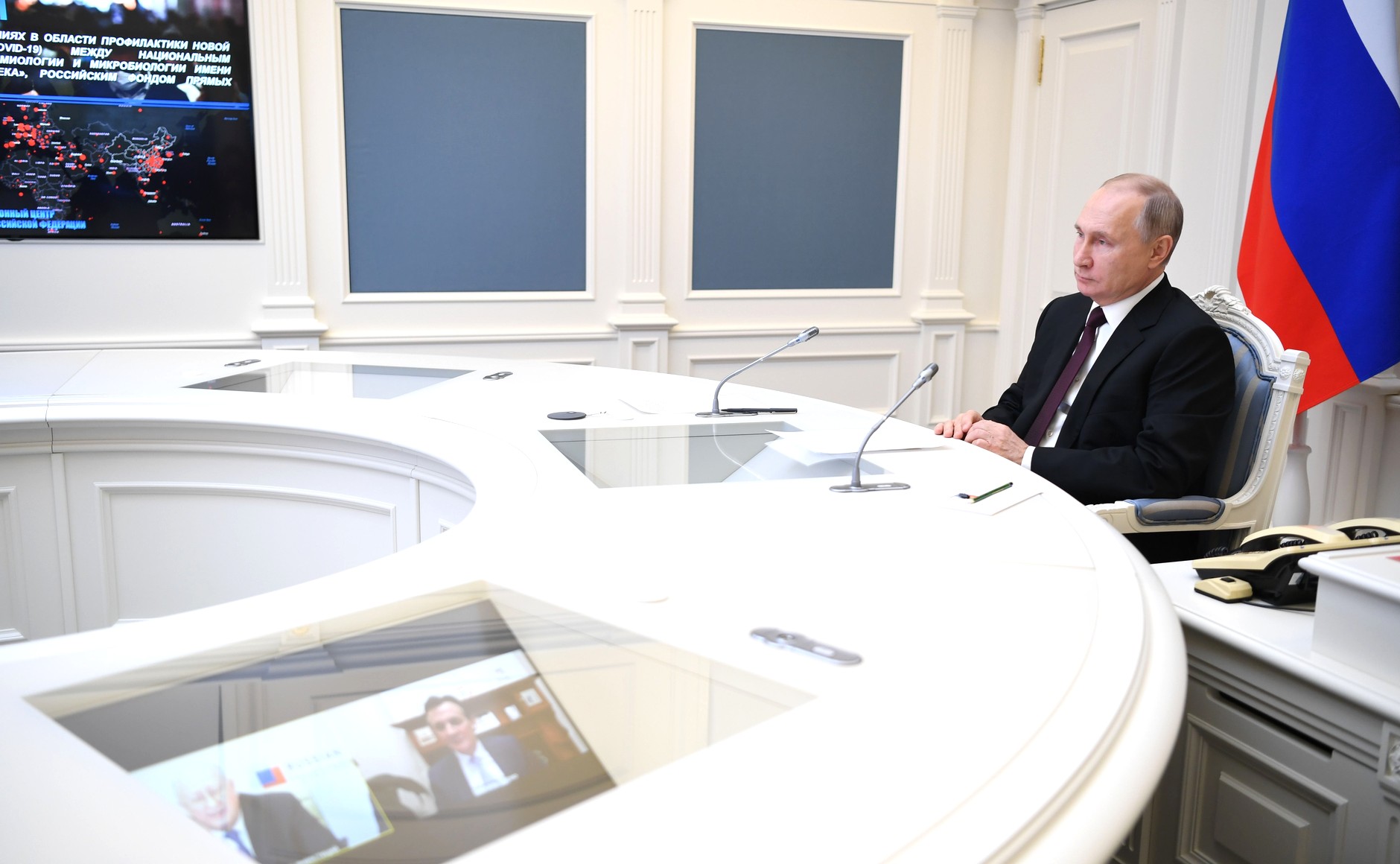 Why does this vaccine enjoy such great demand? It is certainly very effective – over 90 percent prevention of the infection and in fact 100 percent prevention of severe cases. It uses a unique technology based on two vectors, and this sets our vaccine apart from others because we use two different vectors in two injections. This is unique and we believe it is more effective than a vaccine that uses the same approach for both injections. Our platform relies on decades of research, and more than 250 clinical trials have shown its safety. The cost of this vaccine is lower than many other vaccines in overseas markets. Its required storage temperature (+2 – +8 C) allows for convenient logistics. We are grateful to Pascal Soriot of AstraZeneca for the partnership we are announcing today. Sputnik V remains our main highly effective vaccine, but we also invited AstraZeneca to use one of our vaccine components to create another effective drug. AstraZeneca has accepted the offer from the Russian Direct Investment Fund and the Gamaleya Centre and will soon begin clinical trials of its vaccine in combination with adenovirus serotype 26 from Sputnik in three countries in the CIS and the Middle East. R-Pharm will be one of the sponsors of this study. We welcome the start of this phase with AstraZeneca. We believe that this will be an example for many other manufacturers – an example of working in partnership, in constructive cooperation, and we are confident that both Sputnik V and the new drug will be included in vaccine portfolios in various countries. The portfolio approach to developing vaccines is what will ensure people’s safety. And this portfolio approach should be based not on politics, but on the efficacy and safety the vaccine shows. In conclusion, I would like to say that we are also ready for partnership, including with Western countries, as regards, for example, the provision of Sputnik V for those patients who suffer from severe allergies and who cannot use other vaccines because some of them have been reported to cause severe allergic reaction. We are ready to supply Sputnik V to Western countries, including this category of their citizens. We can also confirm that, according to our information, Sputnik V is highly effective against the new virus mutation found in Europe. And, accordingly, it is as effective against the new strain as against previous strains. Sputnik V has already repeatedly shown its effectiveness despite prior mutations in the S protein. And, of course, cooperation with a global pharmaceutical leader like AstraZeneca is important, among other things, in fighting new mutating strains of the coronavirus. We would like to thank you, Mr President, for your support and continue fight against the coronavirus. In partnership with other companies and countries, our vaccine will continue to save lives, jobs and economies worldwide. 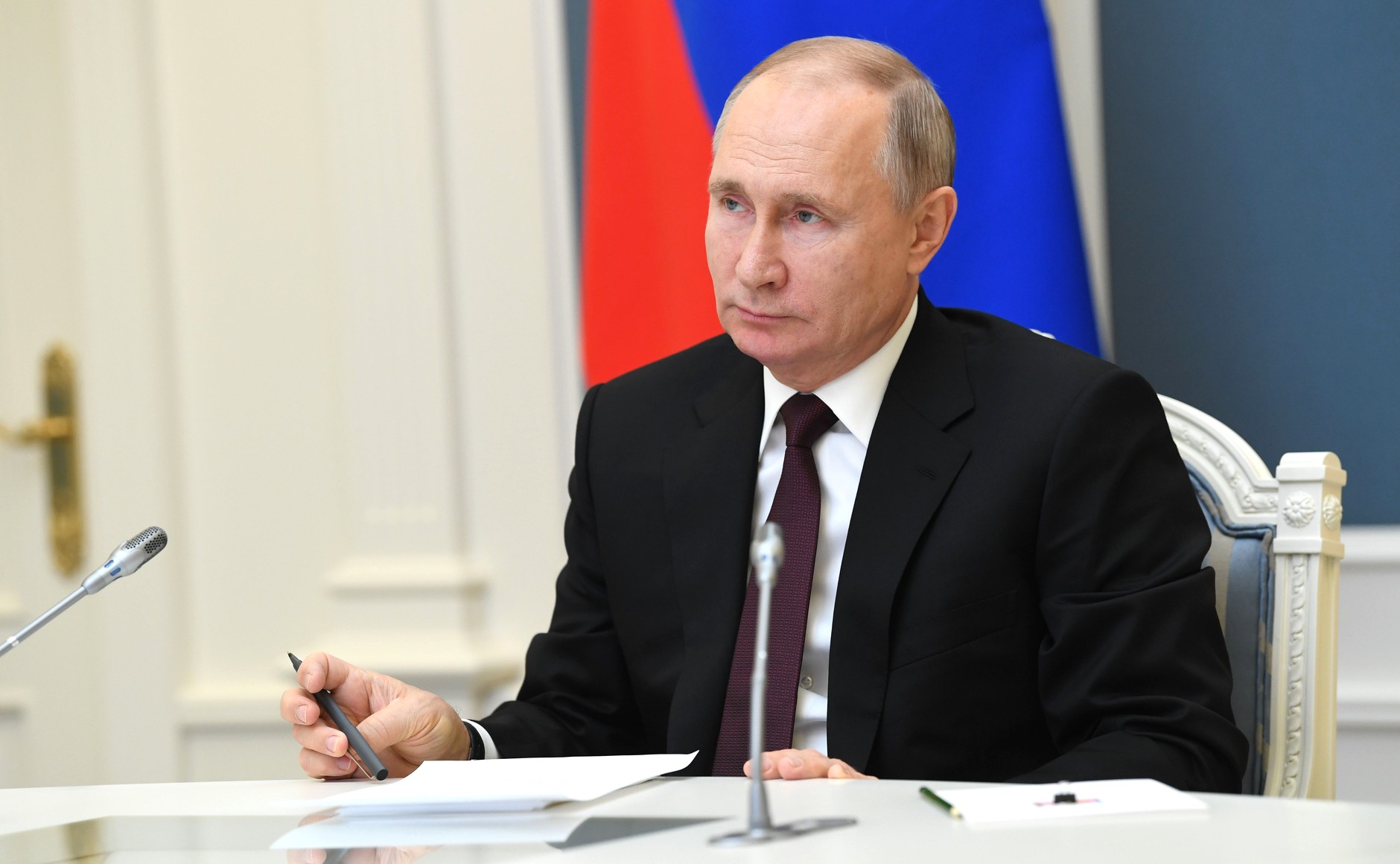 Vladimir Putin: Colleagues, friends, I am now recalling some events that took place many years ago and had to do with the use of our polio vaccine. It happened in Japan, where the Japanese government doubted that using that vaccine was advisable, that it was effective. But the people realised that, they corrected their leaders, and the vaccine was effectively used in many countries and brought very good results after that. Today, as we can see, the situation has changed dramatically. Today, we are all talking about the need to join efforts, I have already mentioned this – at the G20 level, and at the United Nations. Everyone agrees that this process will certainly be rewarding, and it is something that really needs to be done today. You have indeed switched from words to action, from calls to the implementation of the projects the whole world, humanity is grappling with today, without any exaggeration. Firstly, I congratulate you on this, and secondly, I express my hope that your cooperation will be a success, and I wish you good luck. Thank you. The source of information - http://en.kremlin.ru/events/president/news/64683 Expanded meeting of the Defence Ministry Board Vladimir Putin visited the National Defence Control Centre where he took part in an annual expanded meeting of the Defence Ministry Board. December 21, 2020 - 13:30 - Moscow 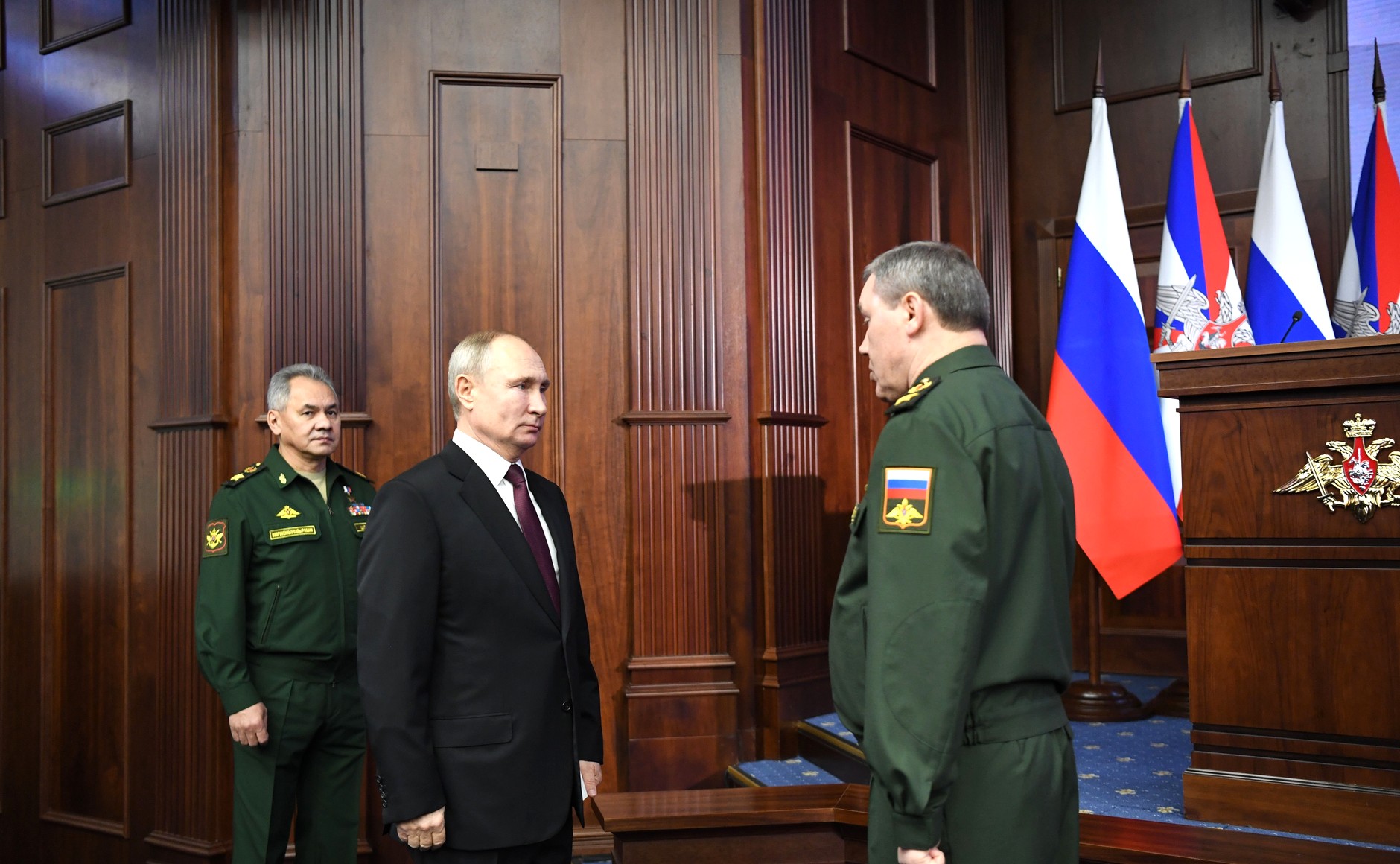 President of Russia Vladimir Putin: Comrade officers, As custom has it, during this expanded meeting of the Defence Ministry Board today, we will analyse the performance of the Defence Ministry in 2020 and identify priorities for the further development of the Armed Forces. This year has been challenging for everybody. As you know, the world has faced the coronavirus pandemic. One would think that it is high time for state leaders and the entire global community to show utmost responsibility and join efforts. But unfortunately, that has not always been the case. We have seen new regional conflicts break out and old, years-long conflicts escalate. Attempts have been made to undermine global stability. I would like to stress that in these difficult and essentially unprecedented circumstances, the Defence Ministry and divisions of the Army and the Navy have performed their tasks in a professional and efficient manner. I am talking about combat alert duty, military training, conscription and, of course, the re-equipment of the Armed Forces, which is the key task. I spoke to Chief of the General Staff Valery Gerasimov last night and Defence Minister Sergei Shoigu this morning about this work and how it was done in our country in the past. It is really something worth knowing. In the Soviet Union, the share of modern equipment in the Soviet Army’s general-purpose forces was 54 percent, and in the strategic and nuclear forces 65 to 70 percent. That is a pretty good number. In 2000, the share of modern equipment in the general-purpose forces dropped to a critically low of 12 percent, and in the nuclear deterrence forces to 35 percent. I remember very well my first conversations on the issue with then Defence Minister Igor Sergeyev. He was a very decent person and a high-calibre missile expert. He told me: “What can I do? We do not even have enough money to maintain the nuclear forces.” What about now? As of mid-December 2020, the share of modern weapons and equipment in the Russian military is over 70 percent for the general-purpose forces and 86 percent for the nuclear forces. Therefore, our Army and, most importantly, our nuclear triad have reached the level that guarantees Russia’s security. There is something I really need to underscore. It is absolutely unacceptable to stand idle. The pace of change in all areas that are critical for the Armed Forces is unusually fast today. It is not even Formula 1 fast – it is supersonic fast. You stop for one second and you start falling behind immediately. Therefore, as soon as in 2021, in our nuclear deterrent forces, we must reach a level of 88.3 percent of modern weapons. We know exactly what needs to be done and for which weapons. As for our general-purpose forces, they should reach a level of 75.9 percent by 2024, that is, almost 76 percent. This year, our troops have shown high combat readiness and the ability to effectively fulfill complex and non-standard tasks in more than 5,700 exercises and drills at various levels, including the large-scale Caucasus-2020 exercise involving military contingents from five other countries. Our service members are acting responsibly and courageously in Syria. In fact, their daily work is the most important stability factor in that country and in the entire region. On November 10, Russian peacekeepers embarked on a very difficult mission in Nagorno-Karabakh. Their presence is now a guarantee of the parties’ compliance with the agreements on the cessation of hostilities. They are also doing a lot to improve the humanitarian situation and help refugees, to de-mine the area and rebuild social infrastructure, as well as to preserve the local cultural, historical and religious landmarks. Unfortunately, they risk themselves not without losses; they risk their lives so that a peaceful life would return to this land. Comrade officers, All of us – the country's government and citizens – are grateful to the Russian Army for its invaluable contribution to the common fight against the coronavirus infection, something I mentioned at the beginning, for the help that was so timely and effective, tangible. With the recently opened medical centre in Yuzhno-Sakhalinsk, in nine months, the Ministry of Defence has quickly built 30 medical centres for patients with this dangerous infection. Eight mobile hospitals have been deployed in the regions with particularly challenging situation. I know that those specialists, military builders worked as if in combat conditions, and acted according to wartime or front-line laws, when an assigned task has to be completed at all costs, no matter what. I should add that since the beginning of the epidemic, military medical organisations have accepted almost 37,000 coronavirus patients for inpatient treatment, including around 13,000 civilians. Military doctors, mid-level and junior medical staff (over 18,000 medical workers) not only did everything they could to prevent the spread of the coronavirus in the Army and the Navy but also helped their colleagues working in civilian healthcare, including as members of mobile teams. They have been performing their duties with professionalism, discipline and extreme dedication. They have spared no effort and often worked overtime to help people in distress. As is always the case, these examples prove the common Russian saying: “Our people and army are united.” We can see that these are not just empty words. Once again, I would like to say a huge thank you to military and civilian construction workers for their fast and high quality work on the construction of new medical centres. I want to thank all representatives of the military medical service for their courage and selflessness in combating the epidemic. I would like to note that, despite the difficult epidemiologic situation, a military parade was held on Red Square and in 27 cities to mark the 75th anniversary of the Great Victory. The Main Cathedral of the Armed Forces and the Road of Memory Museum Complex were opened. Many other campaigns to commemorate this significant date were held in the online format. 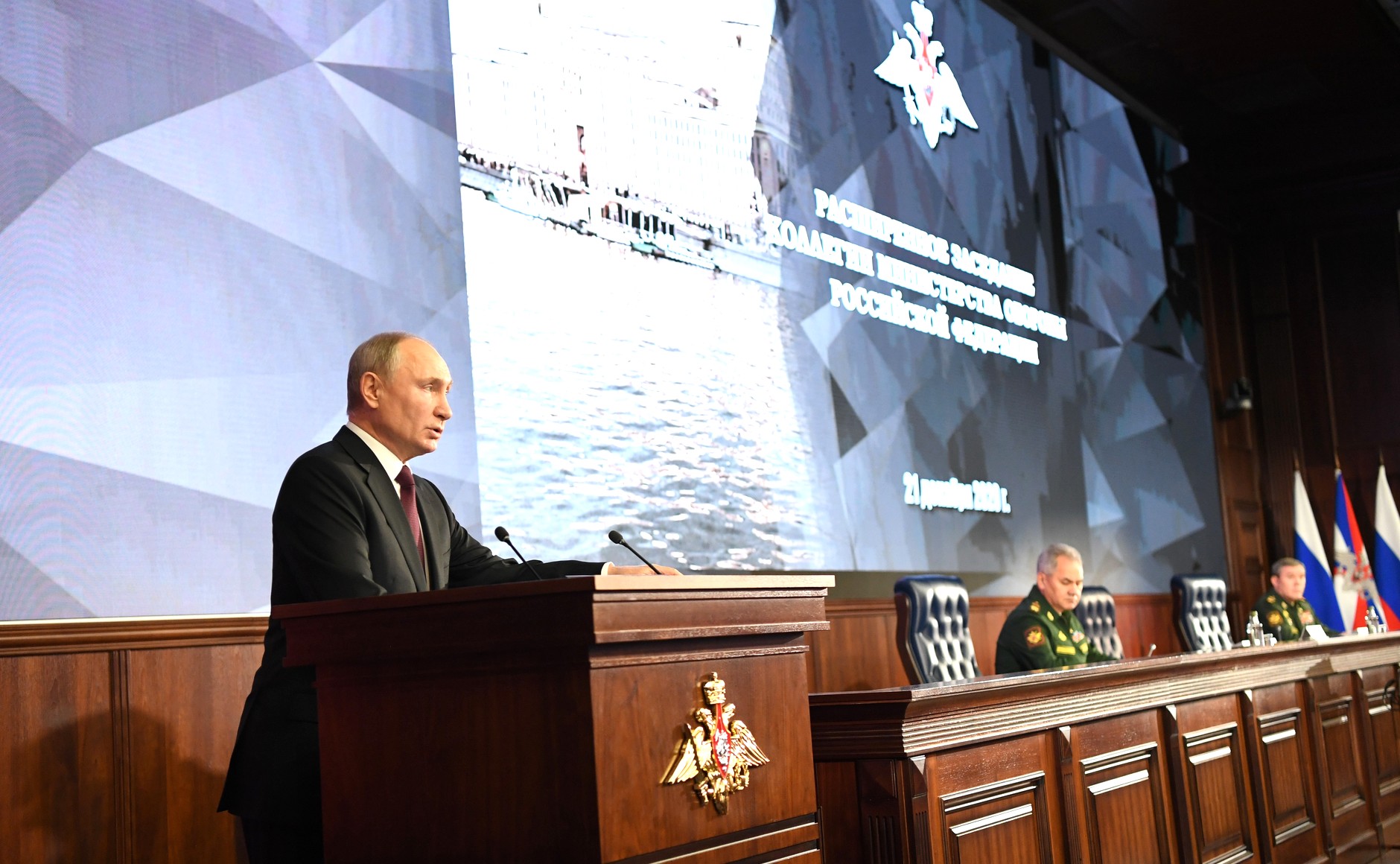 Comrade officers, As I said, the military and political situation in the world remains complicated. There are high risks of escalation in the South Caucasus, the Middle East, Africa and other regions. NATO’s military activity persists. Unfortunately, the arms control system continues to deteriorate. Under contrived pretexts, the United States has already withdrawn from the Anti-Ballistic Missile (ABM) Treaty, the INF Treaty and the Open Skies Treaty. There is uncertainty with regard to the New START which, as you know, will expire in February 2021. We have repeatedly stated our readiness to extend the treaty but there has been no response. Needless to say, we are analysing the current geostrategic, military and political situation in detail and predicting possible scenarios for future developments. State defence planning for the next five years was completed in 2020. We took all the existing and potential threats to Russian security into account as well as the growing combat capabilities of our Army and Navy. The main conclusion is obvious. We will continue to work actively on the qualitative development of the Armed Forces, enhancing their combat readiness and efficiency. I have just spoken about this, at the beginning. In this context, I am instructing you to focus on the following key tasks. First, it is necessary to maintain our nuclear weapons in high combat readiness and develop all components of the nuclear triad. This is of fundamental importance to ensure our national security and preserve strategic parity in the world. We discussed this specifically, in detail during our most recent session of meetings last November in Sochi. As you know, such meetings have already become traditional. Our approaches in this area are strictly defensive and set forth in the 2020 document On the Principles of State Nuclear Deterrence Policy of the Russian Federation. The second point, it is as important to consolidate the potential of the non-nuclear deterrent capability, primarily high-precision weapons. We do not intend to produce and deploy medium- and shorter-range missiles in the European part of Russia or in other areas of the country, for that matter. However, we must be ready to respond in a timely manner to the Western countries’ deployment of counterpart missiles near our borders. If we are forced to, we must take all response measures and do this in the shortest time possible. I have no doubt that we will do this, both as regards the deployment locations of the relevant systems and their control centres. The third point. We must continue smoothly reequipping the Army and the Navy with modern weapons and hardware. In other words, the assignments of the state defence order must be fulfilled strictly on time. I would like to emphasise that with respect to strategic forces, we have already done serious research and technology groundwork on pieces of equipment that have no counterparts in the world. Our general-purpose forces must be developed in the same way. Let me add that the Defence Ministry and defence enterprises must review the question of signing long-term contracts on all the main types of weapons. At the same time it is necessary to absolutely rule out unjustified increases in the costs of orders, use rational pricing procedures. The fourth point, the technical modernisation of the Army and the Navy requires the introduction of new forms and methods of combat action. It is necessary to develop military science for this purpose. It is not enough just to study the experience of current armed conflicts and local wars. It is also essential to make forecasts for the future, in part, to take into consideration the appearance of weapons based on new physical principles in the armies of some Western countries. We know this and are working on it, but we must constantly keep our attention focused on it. Fifth, combat training must include more active use of weapons and equipment with AI elements, which we discussed at the Security Council meeting only recently, including robotic vehicles, unmanned aerial vehicles, and automated control and command systems. Such weapons can increase the combat capability of units several times over and will largely determine the outcome of hostilities today and in the near future. In addition, new approaches to using the Union State’s regional group must be tested during the upcoming Zapad 2021 (West) exercises. Some of our neighbours are already showing increased interest in our plans for the exercise. But we traditionally invite observers to them. Mr Shoigu, we must invite them this time as well. Let them watch: we are open in this sense.  Comrade officers, One of our main objectives and clear priorities is to raise the standards of social guarantees for the country’s defenders. I would like to note that the military pay was increased by 3 percent on October 1, 2020. We also keep up the pace of housing construction for the military personnel. Over the past three years, more than 15,000 of our military personnel have bought housing with federal subsidies, and 108,000 have been issued military-provided flats. In 2021–2023, another 10,000 of our service people will receive permanent flats and 90,000, military-provided housing. The savings and mortgage system is quite effective. In 2018–2020, it has been used to provide housing to over 57,000 of our military personnel. Another 55,000 will use it to buy housing in the next three years. Taken together, in 2018–2023, nearly 138,000 of our military personnel will have acquired permanent housing, and 198,000 will have been issued military-provided housing. The latter figure will be even larger with due account for sublease subsidies, which have been issued to 59,600 people in 2020 alone. We will continue improving living conditions for our military personnel, their families and military pensioners. I am sure, and you no doubt share this view, that the wellbeing of our military personnel will strengthen the combat capability of the Army and the Navy, as well as national security, and will also enhance the prestige of military service. In conclusion, I would like to thank the Defence Ministry leadership and staff for the 2020 results. I am sure that you will continue to attain your objectives in the same commendable manner. Thank you. 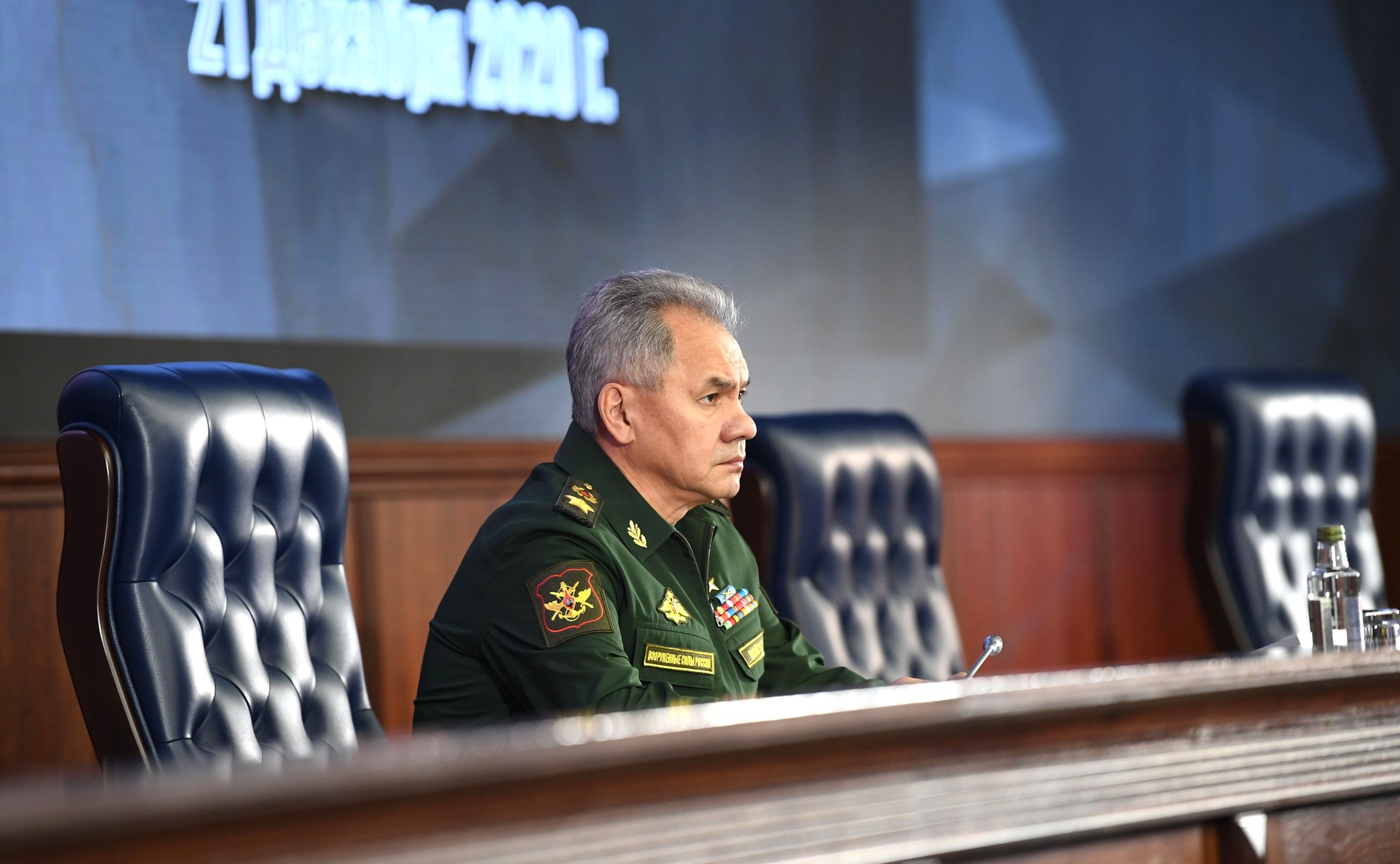 Defence Minister Sergei Shoigu: Comrade Supreme Commander-in-Chief, In 2020, the geography of challenges expanded, and the role of the armed force in resolving international problems increased. NATO sees Russia as the main threat to their military build-up on our borders. The United States has started redeploying its combat units from Germany to Poland and the Baltic countries. The reconnaissance and demonstration actions of US aircraft and warships near Russian borders have become 15 percent more active over the past year. The US is building up the forward presence of US ships in the Arctic. NATO’s exercises, conducted simultaneously at Russia’s western, southern and eastern borders have become systematic. In August and September alone, they involved 55 warplanes, including strategic bombers and 12 ships that carry precision weapons. We are closely following these exercises and we respond appropriately. Our nuclear triad is maintained at a level that guarantees strategic deterrence. Over 95 percent of our strategic missile forces are continuously ready for combat use. Our long-range aircraft are successfully patrolling the air space. This year, our strategic missile carriers performed 50 flights on pre-set routes. Our nuclear missile submarines are on scheduled combat service in assigned areas in the World Ocean. The high combat readiness of our strategic nuclear forces is ensured by the unprecedented level of our modern arms, which stands at 86 percent. This year, three missile regiments of the strategic missile forces have been reequipped with Yars missiles. The 1st regiment continues to be reequipped with the Avangard hypersonic glide vehicle. The aviation strategic nuclear forces have been armed with five upgraded Tu-95 MS missile carriers. The Navy has received a flagship Borei-A class nuclear-powered submarine Knyaz Vladimir armed with Bulava ballistic missiles and cutting-edge systems for overcoming missile defence. Modern infrastructure has been created for the Yars and Avangard missile systems. This year over 950 structures and facilities have been built for the strategic missile forces. Ground forces have received over 3,500 new and upgraded weapons, including 220 tanks and other armoured combat vehicles, and over 1,500 pieces of automotive equipment. A new motor rifle division – missile artillery brigades – has been established. Thirteen military units have been formed in the Aerospace Forces, including a military transport aviation regiment and an anti-aircraft missile regiment. As many as 147 aircraft and over 150 pieces of air defence equipment, including four S-400 anti-aircraft missile systems and 24 Pantsir-S combat vehicles, have been fielded. In order to develop the military airfield network, runways at 14 airfields have been upgraded and over 270 buildings and structures have been built. The Aerospace Forces began to receive the first modern Inokhodets (Ambler) and Forpost reconnaissance and attack medium-range UAVs. The Unified Space System (USS) has boosted its combat capabilities. The fourth Kupol spacecraft was launched in May, thus completing the second phase of USS orbital group deployment. The launch complex for the Soyuz-2 missiles and the assembly-and-testing complex for heavy-duty booster rockets were renovated. The test launch of the Angara-A5 rocket with a mass-dimensional model of a spacecraft was successfully completed. The Navy received 2 modern submarines, 7 surface ships, 10 combat boats, and 10 ships and support boats. The number of Bal and Bastion coastal missile systems reached 74 percent of the target number this year. A motorised rifle division and a coastal missile brigade have been formed in the Navy. The Black Sea Fleet headquarters was rebuilt and its control system was thoroughly upgraded. The Caspian Flotilla military infrastructure, including a mooring front, has been commissioned in Makhachkala. The 3-km long northern and southern breakwaters at its main base in Kaspiysk have been completed. Thus, the goal of rearmament as instructed by the Supreme Commander-in-Chief in the May 2012 Executive Order has been achieved. The level of modern weapons in the Armed Forces now stands at 70.1 percent. In order to increase it, the Defence Ministry is working to improve the cost strategy that made it possible to exclude an unsubstantiated increase in the cost of government contracts in 2018–2020, to preserve the state armament programme in the amount of 551 billion rubles, and to use these funds for re-equipping the troops. The use of forward funding will make it possible to cope with the shortage of allocations for building open ocean ships and reducing the deadlines for delivering modern aircraft. At present, 16 open ocean surface ships are being built and another 19 upgraded. Government contracts for another six ships like this will be concluded next year. Considering the current number of contracts, the total number of open ocean warships that are under construction or are being upgraded is 41. As for aircraft, early delivery of 94 planes and helicopters is planned for the end of 2024. These include 22 Su-57 aircraft the number of which will be brought up to 76 units by 2028. With these measures, the amount of modern hardware will make it possible to bring the level of modern arms in the Army and the Navy to 75.9 percent by late 2024. We are planning to sign long-term contracts on all major types of weapons. They will allow defence enterprises to confidently plan their operations for the next seven years, purchase the required materials and effectively manage their operational activities. Early next year we will sign long-term contracts for additional purchase of long-range high-precision missiles, thus doubling this number. A detailed report on this issue was made at the meetings you chaired in Sochi. Wrapping up the rearmament topic, I would like to emphasise that our Armed Forces have become one of the most advanced and technologically developed armies of the world. We have matched the parameters of the armed forces of many states in the level of modern weapons. That said, Russia stepped back from 8th to 9th place in its defence spending this year. The re-equipping of the Army and the Navy has been taking place amid the restrictions, which created a risk that defence enterprises would not fulfil their state defence orders. At the peak of the pandemic, 2,300,000 specialists were on self-isolation and most enterprises stopped operations. It was only the intervention of the Supreme Commander-in-Chief that made it possible to restore the production processes and prevent a reduction in defence product output. The financial monitoring system created by the Defence Ministry allowed for the implementation of state defence order by defence enterprises amid the restrictions. The timely adjustment of tough self-isolation measures made it possible to not only maintain the schedule for fulfilling state defence order but also meet social commitments to the companies’ employees and the budget system. As part of providing assistance to the population, the military-construction complex has set up 30 multifunctional medical centres with a total area of over 200,000 square metres in 23 regions in a matter of nine months. Yesterday, the 30th centre was commissioned in Yuzhno-Sakhalinsk. They are outfitted with the latest equipment. This was accomplished to keep the incidence rate of coronavirus in the Armed Forces per 100,000 people 37 percent lower than nationally. To this end, the number of PCR research laboratories has been increased by 2.5 times since April and the number of tests per day increased seven-fold. This fully covered the need for testing the military and civilian personnel of the Armed Forces. The time to obtain test results has been reduced from two days in April to four hours in June. Over 8,000 beds have been organised for inpatient treatment at military hospitals, half of which are used in the interest of civilians. Since the beginning of the pandemic, medical assistance has been provided to over 13,000 civilian patients. In addition, about 5,000 former service personnel, as well as families with many children of service personnel and families that lost their breadwinners, have received social support. In order to diagnose the coronavirus early, the number of tomography machines has been increased eightfold, which makes it possible to conduct tests the same day without interruptions or waiting lines. Currently, the Armed Forces are conducting mass vaccination. A strict quarantine has been introduced in military schools, education organisations are operating as planned using an e-training system. Thanks to this, training has continued uninterrupted. Telemedicine has proved its effectiveness during the pandemic. The number of remote consultations has increased fivefold. The Defence Ministry’s airlift ambulance service performed 191 flights during the year and transported 630 patients in serious and critical condition. The 48th Central Research Institute of CBRN Troops took part in developing the Sputnik V vaccine which was tested at the Defence Ministry’s medical facilities. I would like to note that this institute is Russia’s only OPCW-certified research organisation. However, its experimentation base has remained unchanged since 1992. Mr President, thank you for supporting our proposal to create a modern laboratory and experimental complex at the 48th Central Research Institute. This will allow us to participate in international research as well as to create promising vaccines and medications. Currently, the Government is looking into allocating additional budgetary funds for these purposes. In the Armed Forces, like in the country in general, there is a high number of cancer cases. In 2021, in the interests of military personnel and employees of other security services, it has been proposed that we begin construction of a unified oncological centre at the Burdenko Hospital and a multipurpose medical centre in Sevastopol. We have about 150,000 officers of security, defence and law enforcement agencies and their families in this city, but unfortunately, there is no decent medical institution there. 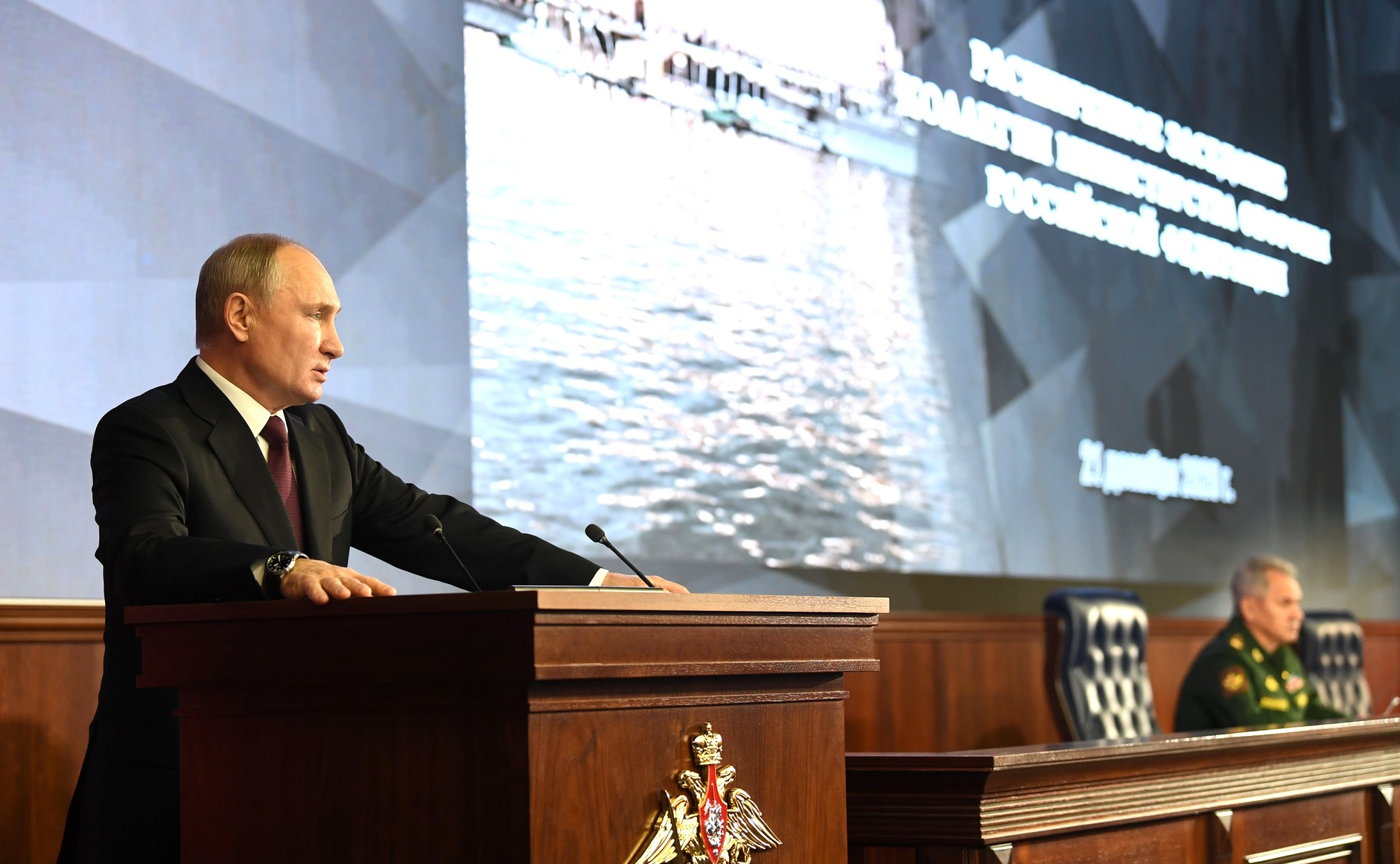 Mr President, I would like to ask you to support the joint initiative of the security services to build these facilities. Amid the pandemic, the Armed Forces have fully retained their high combat capability and carried out all planned activities. A significant contribution to the training of personnel was achieved with the snap inspections of combat readiness of troops, carried out continuously over seven years. This year there have been two, but larger than before. As a result, all military districts, the Northern Fleet, and all categories and branches of the Armed Forces were inspected. Over the year, the Armed Forces carried out over 18,500 training events at various levels. The intensity of multi-service training and bilateral exercises increased by 5 and 6 percent, respectively. Foreign countries continue to show great interest in the International Army Games. This year they took place in five countries involving over 3,300 military personnel from 32 states. The competitions were attended by over 1.2 million people. The main combat training event was the Caucasus-2020 strategic command-staff exercise. It showed the high level of training of military command and control bodies, strategic and operational levels, and the ability of troops to reliably ensure Russia's military security along the southwestern borders. The Navy conducted a large-scale multi-fleet and multi-service exercise called Ocean Shield. This group demonstrated its ability to effectively carry out tasks to protect our national interests in the waters of three oceans and nine seas, including the Northern Sea Route. The ships and vessels of the Navy made 140 cruises to all strategically important regions of the World Ocean, as well as 122 visits and business calls to the ports of 28 foreign countries. Also, the international exercises Slavic Brotherhood, Bridge of Friendship, Selenga and Friendship were successfully carried out. Within the CSTO, we took part in the Echelon special logistics exercise and the Indestructible Brotherhood command-staff exercises with the peacekeeping forces. We are continuing to form a professional army. 13,000 officers who graduated from academies have been assigned to the military units. Commissioned officer slots are over 96 percent filled. The number of contracted soldiers is increasing: their number in all corps and branches of the Armed Forces almost doubles that of conscripts. The need for contracted service personnel with certain specialties is caused by regular deliveries of new weaponry and military equipment. As of now, they are six-percent short of the estimated necessary numbers. By late 2022 it may grow to 14 percent unless proper funding is provided. This issue is being considered by the Government of the Russian Federation. Due to the pandemic, cadets were selected for enrolment in military academies by special mobile groups in the regions of the cadets’ residence. Academy applicants were gathered and selected via videoconference without interrupting official duties and active service. In total, over 12,000 cadets and over a thousand military students were enrolled. This year, a branch of the Nakhimov Naval School welcomed its first cadets in Kaliningrad. Thus we have finished establishing the network of Nakhimov schools in all the fleets. Cadets of the Tver and North Caucasus Suvorov schools began their studies in new facilities fully fitted out with cutting-edge training equipment. The defence research potential of the Armed Forces got a boost from service personnel of 17 research companies. They have already obtained 14 patents on inventions, and designed 84 technical innovations and 44 applied mathematical models. (The Minister went on to address the topics of solving social problems facing service personnel and their families, including employment for their wives and kindergarten enrolment for their children, indexation of military pay, extra allowances for certain categories of service personnel, and provision of housing.) The Defence Ministry continues to consistently pursue the development of military and social infrastructure in the Arctic. Over 360 buildings and facilities with a total area of over 413,000 sq m have been put into operation in the past two years. The installation works at the military base on Alexandra Land have been completely finished. It is the world’s only facility at 80 degrees north latitude. It comprises 334 buildings and facilities. The runway at the Nagurskoye airfield has been extended to 3.5 kilometres. The second-stage facilities of the military station in Tiksi for 300 servicemen of an air defence unit were commissioned. We continue to respond to the environmental damage in the Arctic. Throughout the year, 2,830 metric tons of scrap metal have been collected, and cleaning works have been completed at Cape Marre-Sale, Kildin Island and the territory of the Shantar Islands National Park. In all, 26,000 metric tons of scrap metal have been collected since the beginning of this project, of which over 20,000 metric tons have been removed [from the area]. The Defence Ministry and the Russian Geographical Society have jointly conducted 12 expeditions; the most ambitious of which, The Arctic Archipelagos, allowed researchers to explore the environment in the region and on the Arctic Ocean seabed. The Defence Ministry, together with Gazprom Neft and Rosneft, continues the construction of six integrated fuel supply facilities at military airfields. Overall, 14 integrated fuel supply facilities have been built since we started this investment project. We are carrying out a project with NOVATEK to convert boiler houses to liquefied natural gas so the number of LNG boilers will exceed 1,000 by 2025. This will allow us to cut fuel oil expenses by 15 percent. Armed Forces logistics support units have been using 819 kilometres of the main pipeline to supply water to Simferopol and the central part of the Crimean Peninsula for six months now. Overall, we have supplied over 6 million cubic metres of water to the area. This year, we have finished the construction of an aqueduct and hydraulic engineering facilities to supply Sevastopol with 15,000 cubic metres of water daily. By March 1 next year, after the construction of a public water collection facility and engineering infrastructure are completed, the daily water supply will increase by another 50,000 cubic metres. Since November 10, in keeping with the trilateral agreement, Russian military personnel have been successfully conducting operations in Nagorno-Karabakh. Russian troops were deployed in the designated areas in a short time frame and started to carry out their tasks at 23 watch posts. So far, not a single serious incident has been recorded. Civilians have been given safe passage in their vehicles along the Lachin Corridor. The Russian peacekeepers mediated the “all for all” swap of prisoners between Armenia and Azerbaijan. They also organised the exchange of bodies of those killed. Feeling safe, civilians started to return home and restore their houses. They are receiving support from military personnel of the Peacekeeping Operational Centre. Since November 14, Russian peacekeepers ensured the return home for over 42,000 refugees. They are also clearing land mines in Nagorno-Karabakh. Overall, over 6,000 explosives have been rendered harmless. Two modern block-module townships for 330 people have been built in Stepanakert to accommodate the Russian peacekeepers. We will build 32 townships by April 1 next year to create comfortable living and working conditions for the peacekeeping troops. The Russian force group continues to act as a guarantor of peace in Syria. In cooperation with the Turkish military, they are patrolling the main roads in the northeast of Syria. They are also closely cooperating in the Idlib de-escalation zone. The traffic of civilian vehicles on the M-4 road in the north of Syria has been organised with the assistance of the Russian troop contingent. Since May 25, the Russian military police have escorted about 35,000 vehicles and over 66,000 people. The military personnel of the Russian Centre for the Reconciliation of Warring Parties has conducted over 2,500 humanitarian actions and accompanied more than 650 UN humanitarian convoys. Military medics rendered aid to over 130,000 civilians. Owing to the efficient performance of the Russian and Syrian inter-departmental coordination headquarters, more than 2 million Syrians have returned to the places of their pre-war residence. An international conference on the return of refugees was held in Damascus with the active involvement of the Defence Ministry. It was used to improve this process and promoted humanitarian assistance to them. More countries decided to help the Syrian government. We are upgrading the military and social infrastructure at our bases in Syria. Shelters have been built for all combat aircraft at the Khmeimim airfield. Another nine shelters for helicopters were built this year. The reconstruction and upgrade of the barracks and housing facilities and infrastructure were carried out at the material technical support point of the Russian Navy in Tartus. This year, international military cooperation included 96 countries. The following countries remained our priority partners in military-technical cooperation: China, India, Egypt, Algeria, Vietnam, Turkey and Myanmar. We continued strengthening our allied relations with the CSTO, the CIS and the SCO member states. We have fulfilled all your instructions on assisting six foreign states in coping with the pandemic. The first joint meeting of defence ministers of the SCO, CIS and CSTO countries took place this year under the Russian chairmanship. This is a new authoritative negotiating platform for discussing and resolving major national security problems. The annually held Army Forum strengthens international defence cooperation. Delegations from 92 countries attended it as guests or participants, and the number of visitors exceeded 1.4 million people. On the sidelines of the forum, participants in international military-technical cooperation signed export contracts for military products worth over $380 million and signed a number of international agreements. In addition, 41 government contracts were signed with 27 defence enterprises for over 1.16 trillion rubles. Along with the military-political bodies, the commanders maintained high levels of psychological and political morale among the troops and their readiness to perform combat missions in any circumstances. In the year of the 75th anniversary of Victory, the Defence Ministry has implemented major priority and cultural projects. Military parades were held in 28 cities. Traditionally, the main Naval parade was held this year. The opening and consecration of the Main Cathedral of the Armed Forces and the Road of Memory museum complex were the high point of the year. The museum maintains information on about 34 million participants in the Great Patriotic War. This unique complex has already become a centre of spiritual attraction for our country’s military and civilians. Even with the pandemic restrictions in place, it was visited by over 1 million people. We are honouring and upholding the historical memory of the Great Victory heroes. I would like to note that a federal law was adopted at our initiative, which provides for criminal liability for desecrating war graves and monuments to the defenders of the Fatherland. The most numerous youth movement, Yunarmiya (Young Army), has been developing successfully, covering all regions of Russia and involving over 740,000 teenage members. In cooperation with the city of Moscow and the Moscow Region, a year-round educational and methodological centre for military-patriotic education of youth Avangard was created. This year, 23 more such regional centres started their work. They will be created in all Russian regions by 2023.  Comrade Supreme Commander-in-Chief, The Armed Forces have fulfilled all tasks set forth for 2020. Combat potential has increased by 13 percent. The level of national defence capability has been ensured as well. We have finished drafting the defence plan of the Russian Federation for 2021–2025, which you endorsed. The implementation of the signed contracts has provided for the delivery of over 250,000 pieces of weapons and munition. The implementation of state assignments on purchases has reached 99.8 percent and on repairs and upgrades 99.7 percent. The re-equipping of the Army and scheduled repairs have allowed us to keep 95 percent of arms in operable condition. A total of 3,200 buildings and facilities have been put into service. Importantly, the military construction complex carried out large-scale infrastructure projects in four to seven months. In 2020, the total amount of capital investment transferred to customers exceeded 275 billion rubles, which is almost double the figure for the past year. That way, the scale of construction-in-progress has been substantially reduced. Problems and plans for resolving them are included in the 2019–2025 plan for Defence Ministry activities. In 2021, the Defence Ministry has a number of priority tasks to fulfil. Regarding re-equipping. The strategic missile forces must receive 13 launchers with Yars and Avangard ICBMs. Using the additional allocations for the manufacture of these systems, we must reach the level of 88.3 percent for modern strategic nuclear forces. We must complete the construction of infrastructure for Yars and Avangard systems in Kozelsk, Yasnoye, Uzhur, Novosibirsk and Yoshkar Ola. We also need to complete the Severo-Yeniseysky proving ground for summer tests of the Sarmat missile system and start state tests of the upgraded Tu-160 aircraft. The Navy will receive two Borei-A class nuclear-powered submarines, Knyaz Vladimir and Generalissimo Suvorov, equipped with Bulava ballistic missiles. Regarding the general-purpose troops: deliver over 500 modern armoured combat vehicles to the Land Forces, the Airborne Forces and the Naval coastal defence troops; form an air defence missile brigade in the Southern Military District; deliver over 100 new and upgraded aircraft to the Aerospace Forces and the Naval aviation; complete the construction of a radar station with prefab technology in Vorkuta and have it operating in a trial mode; begin the construction of the Yakhroma radar station in Sevastopol and individual units for the over-the-horizon location of air targets in Kaliningrad and Zeya; equip the Navy with four new submarines, six surface ships and 22 boats and supply vessels. We also plan to prepare and hold a joint strategic military exercise, Zapad 2021, with the Russian and Belarusian armed forces; hold the Army 2021 International Military and Technical Forum; open the Omsk cadet military school based on new infrastructure; commission 3,000 buildings and facilities along with the deliveries of new models of weapons and hardware, depending on the budget allocations we receive for these purposes. Comrade Supreme Commander-in-Chief, In keeping with your instructions, next year we will continue to work for the progressive development of the Armed Forces and the improvement of their quality. We will discuss the performance [of the Armed Forces] in more detail during the closed part of the board meeting. This concludes my report. 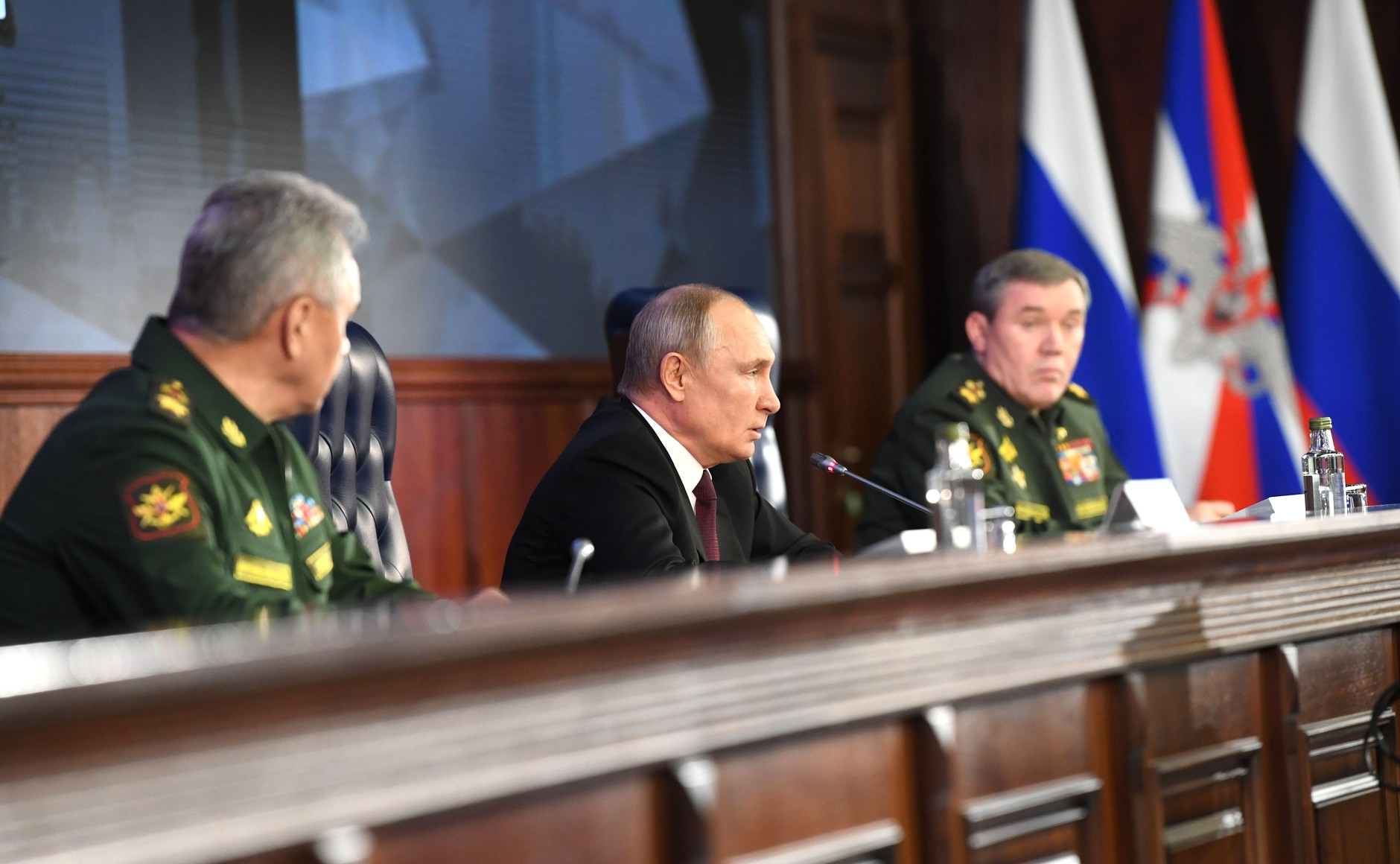 Vladimir Putin: Thank you, Mr Shoigu. In conclusion, I would like to say the following: we have just listened to the report by the Minister. The Defence Ministry has to address quite a few tasks and it has plenty of areas of work, all of which are important – there is nothing that is not of major importance. Take the Ministry’s involvement in the efforts to combat the pandemic. I began with this and Mr Shoigu spoke about it. The medical staff was very effective, indeed; we feel proud of them. The organisation is good, the procedures are good, the protocols are correct and sometimes they are even more effective than those used by civilians. They did everything on schedule and the quality was good. There was neither malfunction in the defence industry, nor an outbreak of the disease in the Armed Forces, and they have also achieved the objectives in terms of military training and manufacturing of the necessary hardware by defence enterprises. The same goes for many other areas of your work. There are many areas but it is clear that the main goal for everyone in this meeting is to ensure our national defence capability. And it is very important at this point, as I said in my opening remarks, to remember that the speed of scientific and technical change is extremely high. It is very important not to miss anything and to closely follow any opportunities for the further development. This is an extremely important thing to remember. We must by no means rest on our laurels. Yes, we say it and I proudly repeat, as I have done many times: we have developed weapons that the world does not possess, primarily, of course, hypersonic arms. We are now working on plans how to move the Avangard’s Stiletto-based combat manoeuvrable unit to advanced missile systems that are currently being developed. We also have many other plans and not only for the nuclear triad but also for conventional arms. But we know and we must realise that the world’s leading armies are spending enormous resources that do not compare with ours on ensuring their supremacy. There is no option for giving the edge on anything to them. I want everyone to understand this. Do you know this popular wisdom? What is the worst thing in the world? What must never be allowed? This is to have to catch up or to ask anyone for favours. If we do not have to catch up with anyone, we will not have to ask for favours. I would like you to focus on this work, not routine work although everyone has a great deal of routine in all areas, including the Armed Forces. Routine must not blur our vision. Our successes in the past few years must not allow us to relax our progress in any way. I would like to thank you for your service. The past year has been difficult and tough. The Armed Forces and the entire military component of the state, everything related to it, have shown high mobilisation readiness and not simply viability but an opportunity to develop in any circumstances. You have made it. I hope you will do the same positive work next year as well. Thank you very much. I wish you all the best. The source of information - http://en.kremlin.ru/events/president/news/64684 Meeting with Dmitry Ashchepkov Vladimir Putin met with Dmitry Ashchepkov, a nine-year-old participant of the New Year Tree of Wishes national campaign of the Dream with Me charity project, and his family from the Chelyabinsk Region. December 21, 2020 - 20:50 - Red Square, Moscow Dmitry came to Moscow together with his parents, 14-year-old brother Denis and 8-year-old sister Sofia. They already visited VDNKh, the planetarium, the zoo, Patriot Park and the Kremlin. 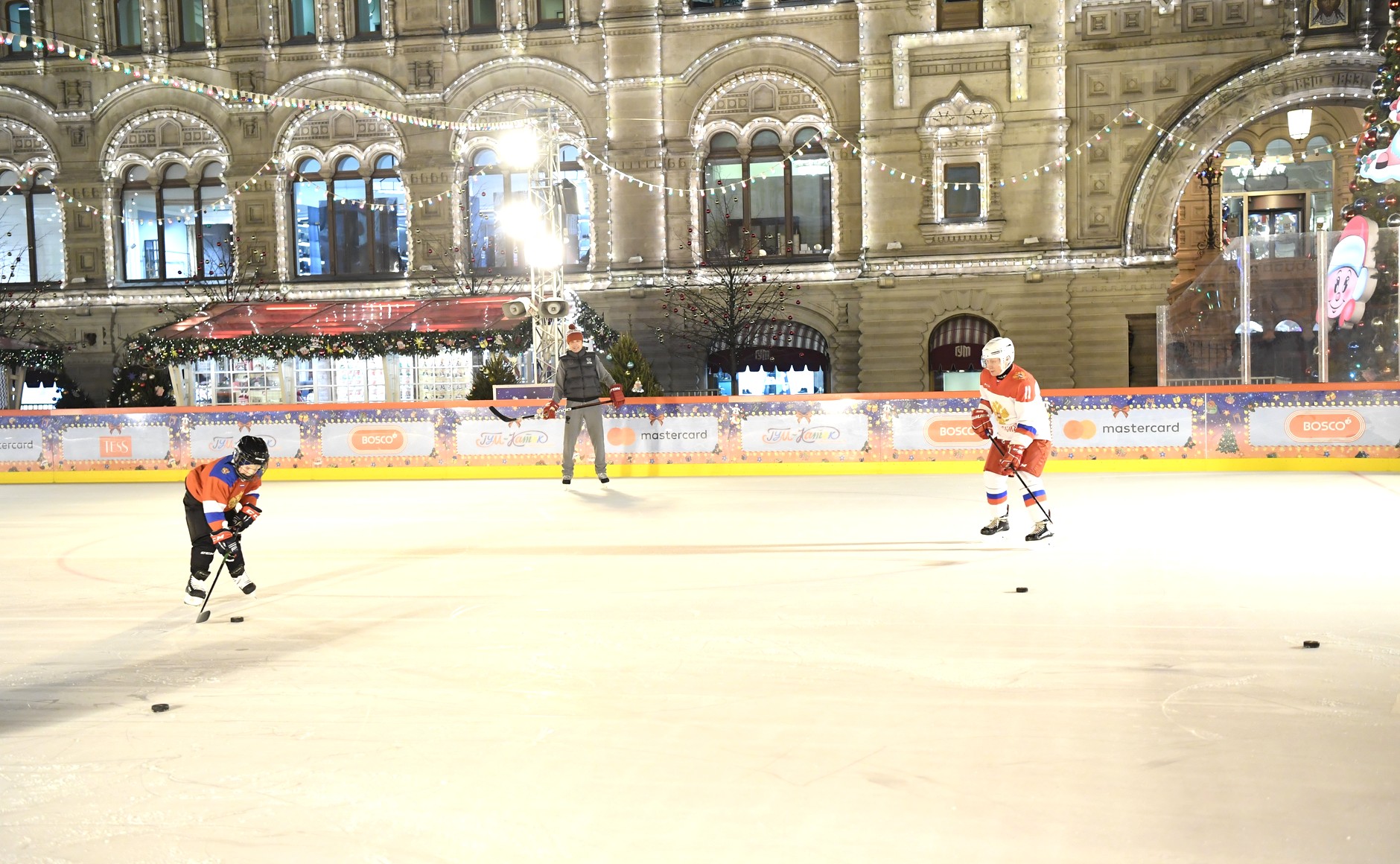 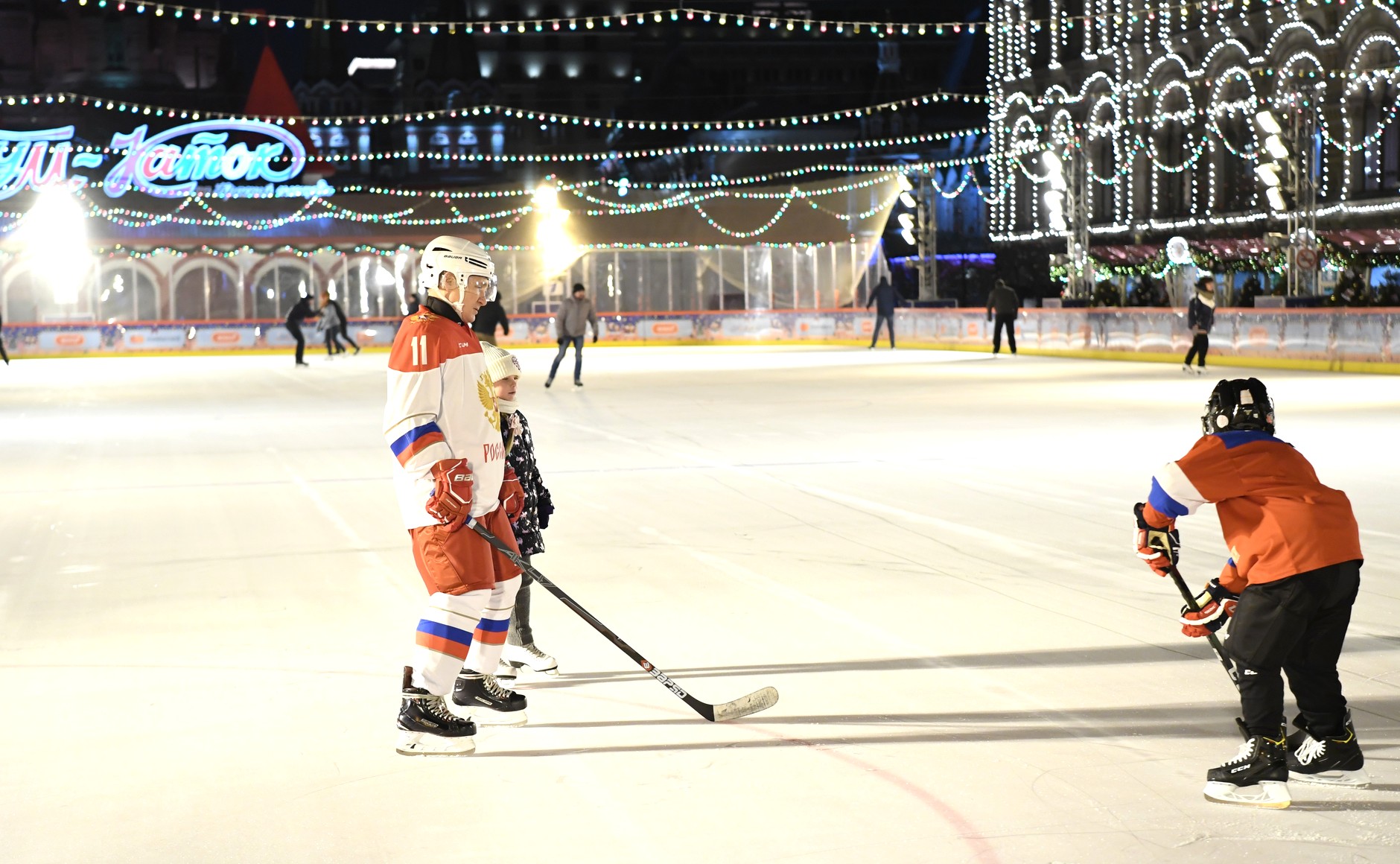  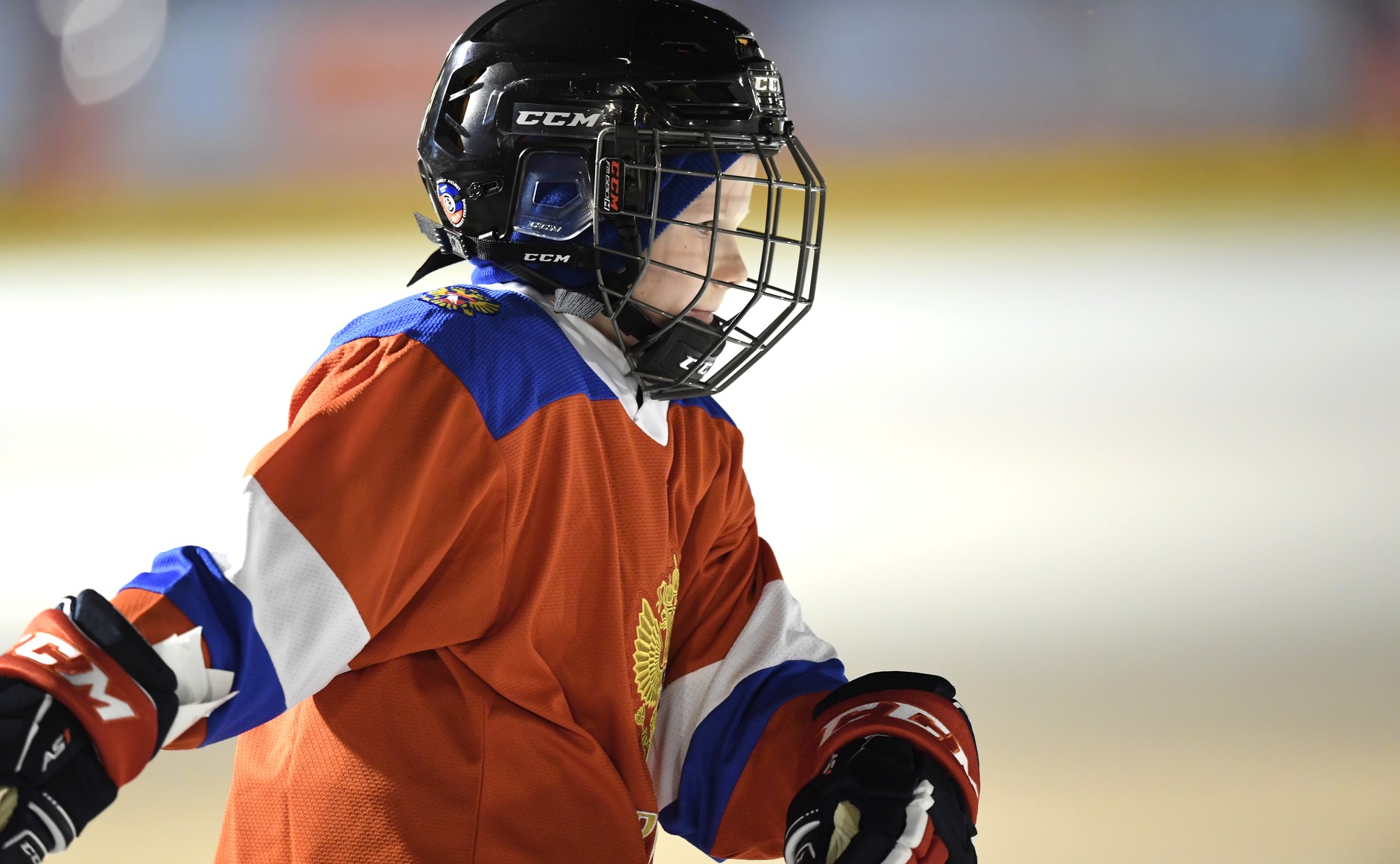 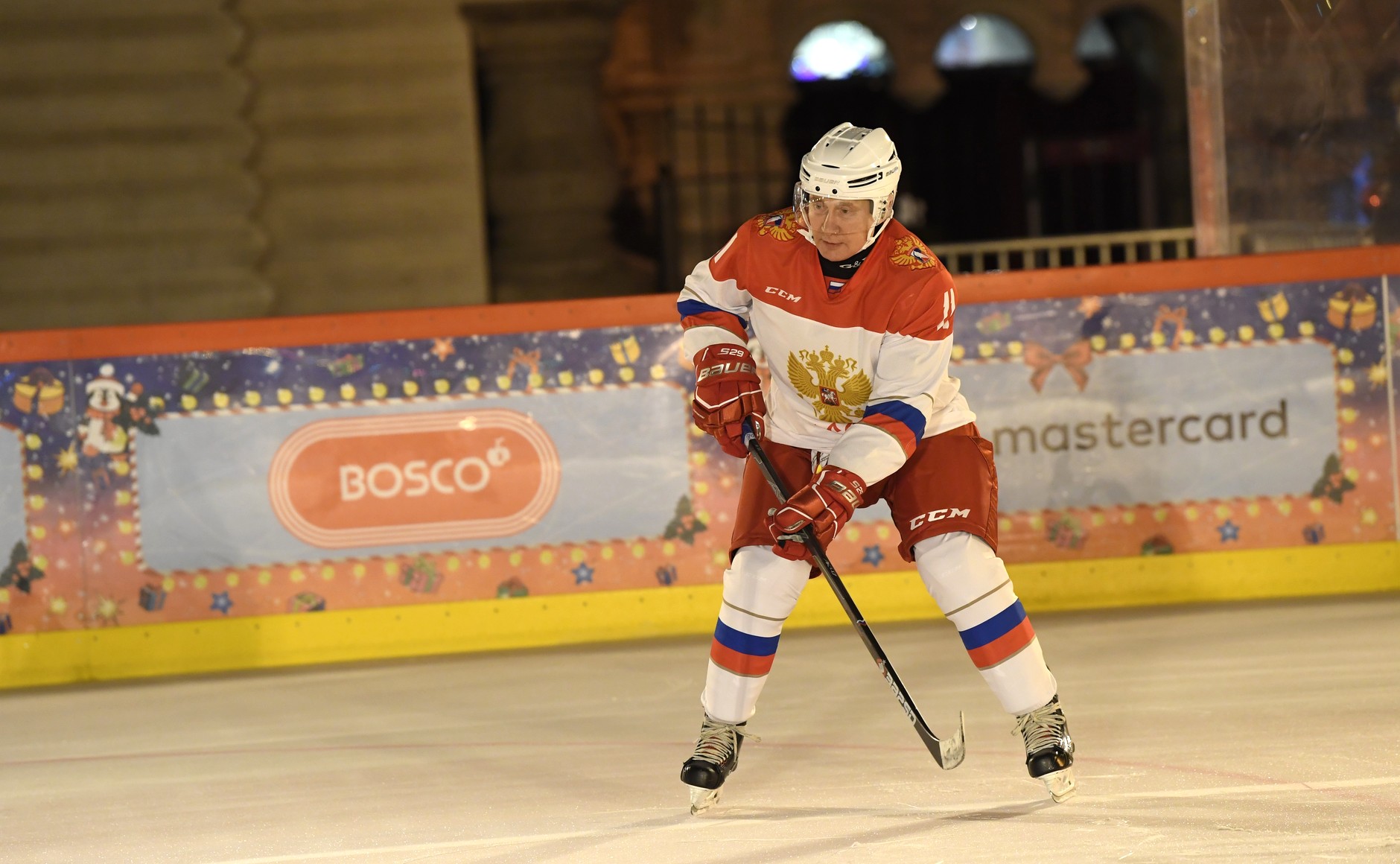 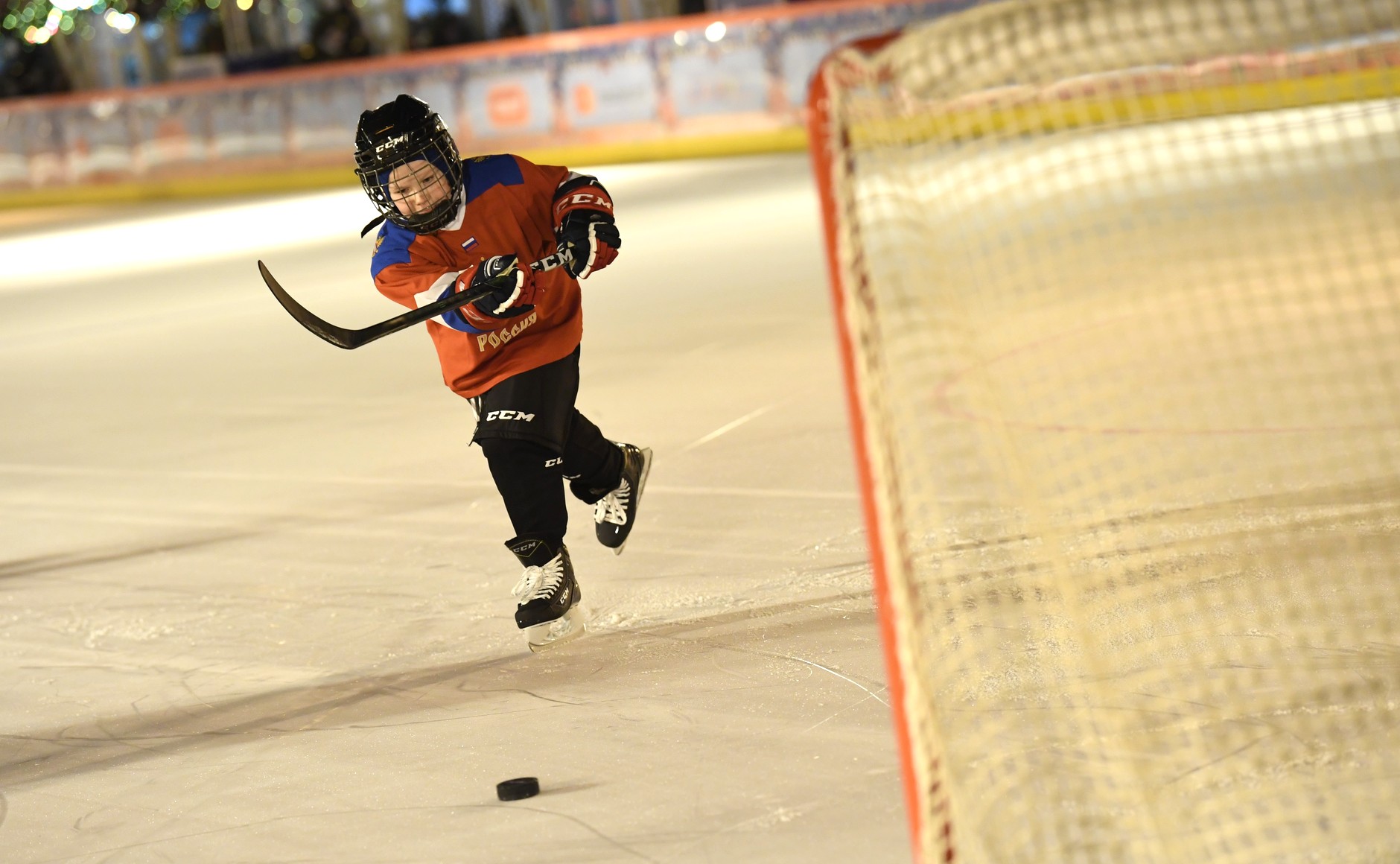 Dmitry met with Vladimir Putin at the GUM skating rink. The President asked the boy about his impressions of the city. Then Olympic Champion and Vice-President for Development of the Continental Hockey League Valery Kamensky went out on the ice. They had an ice-hockey practice together and posed for a photo. 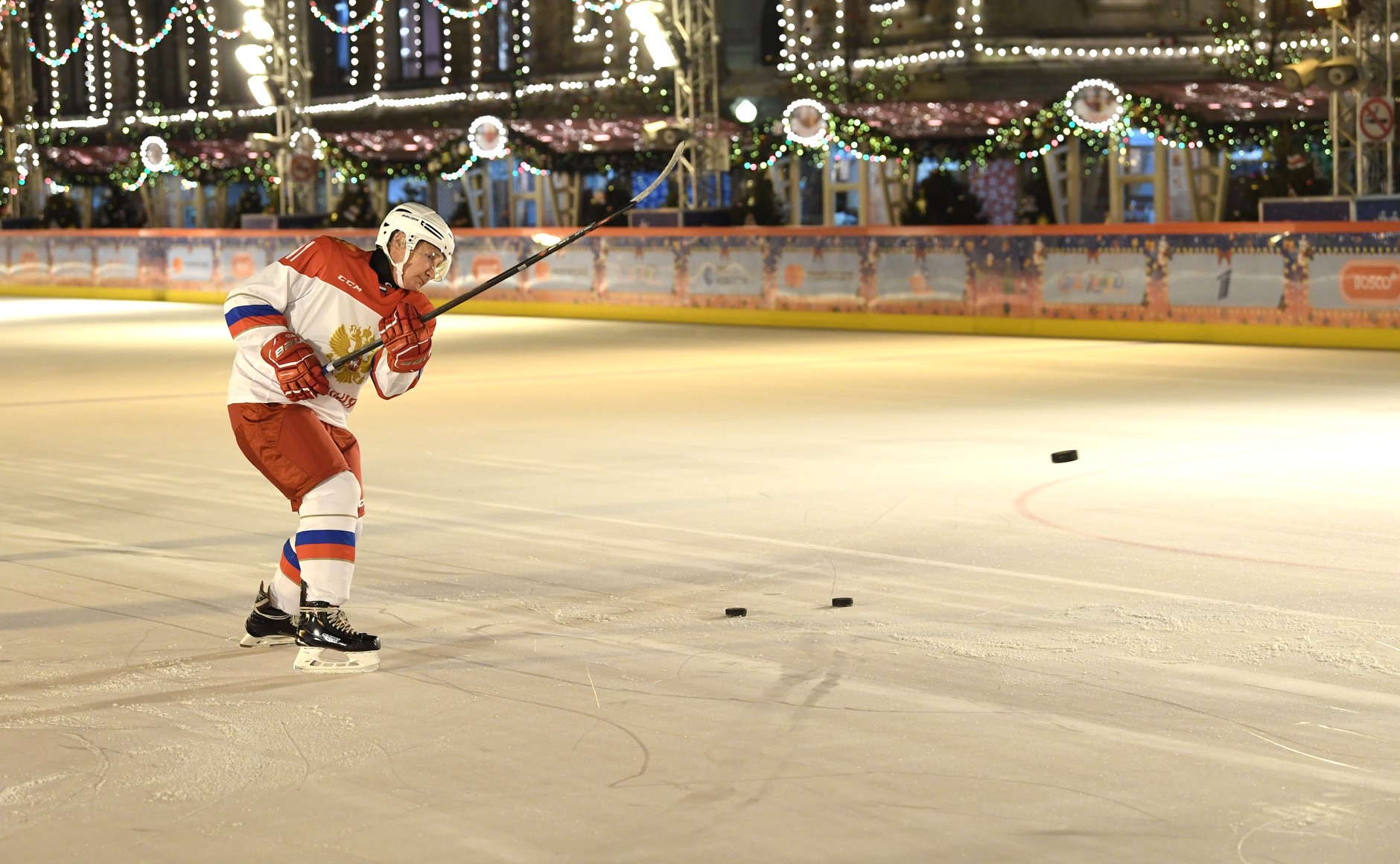 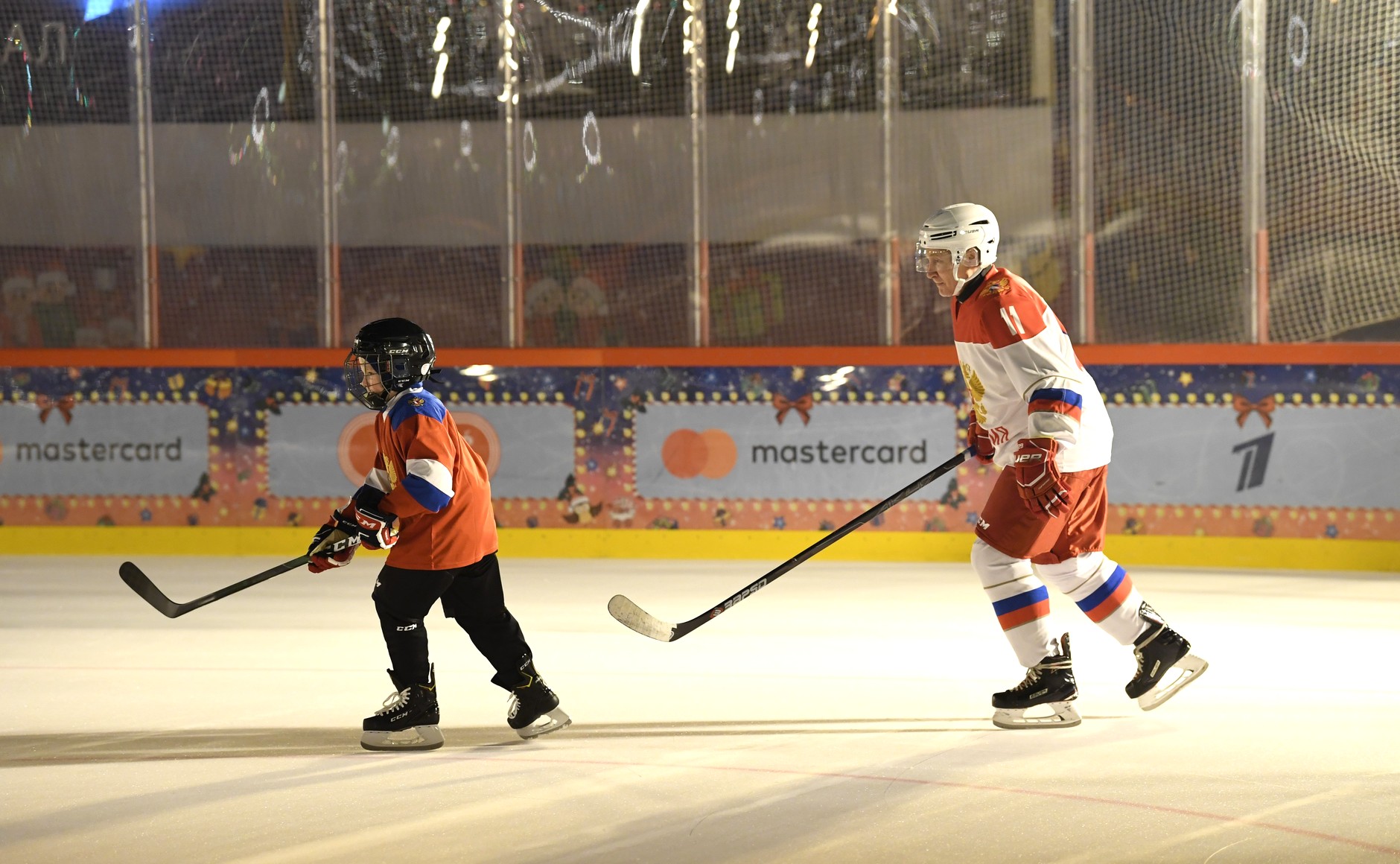  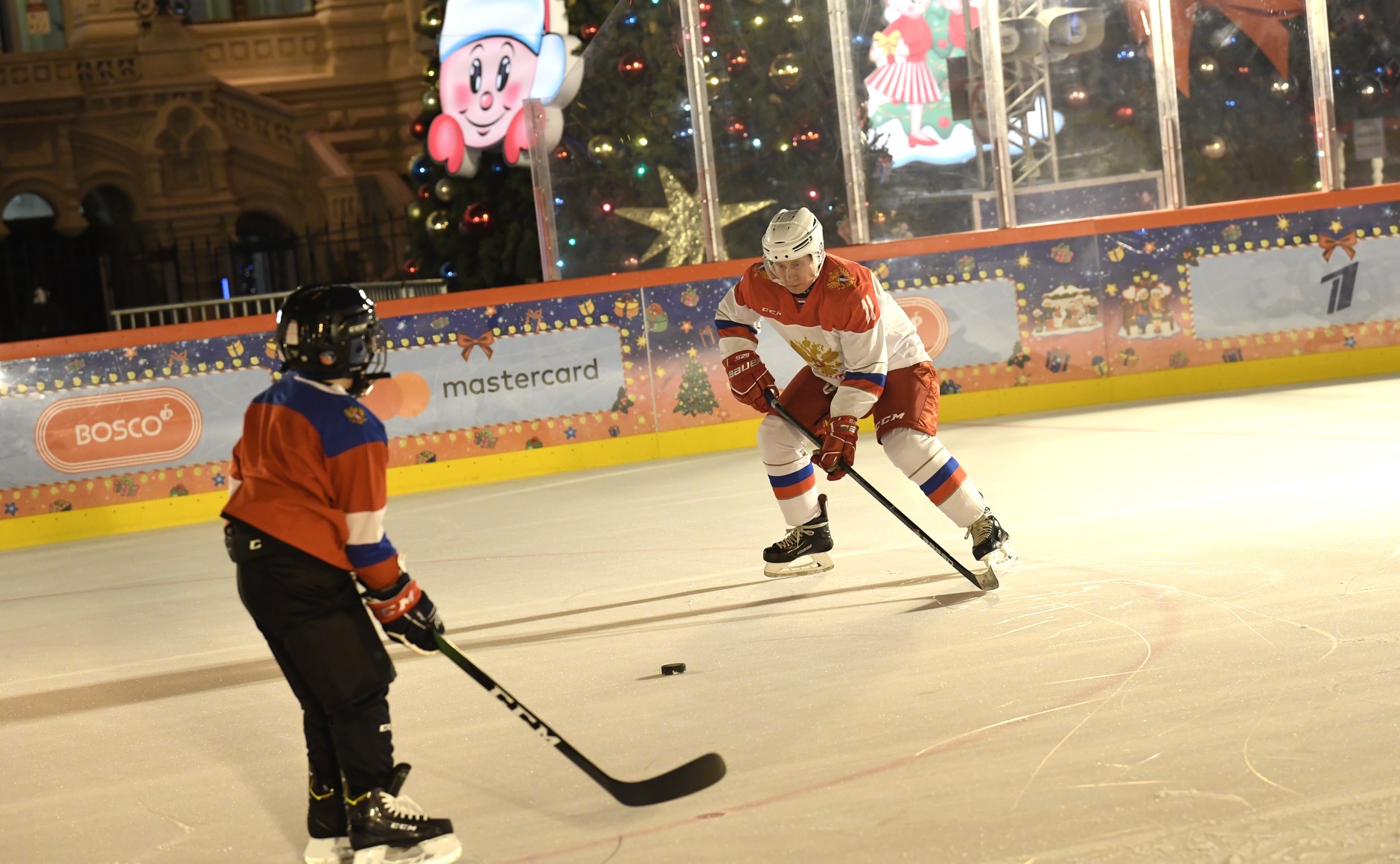 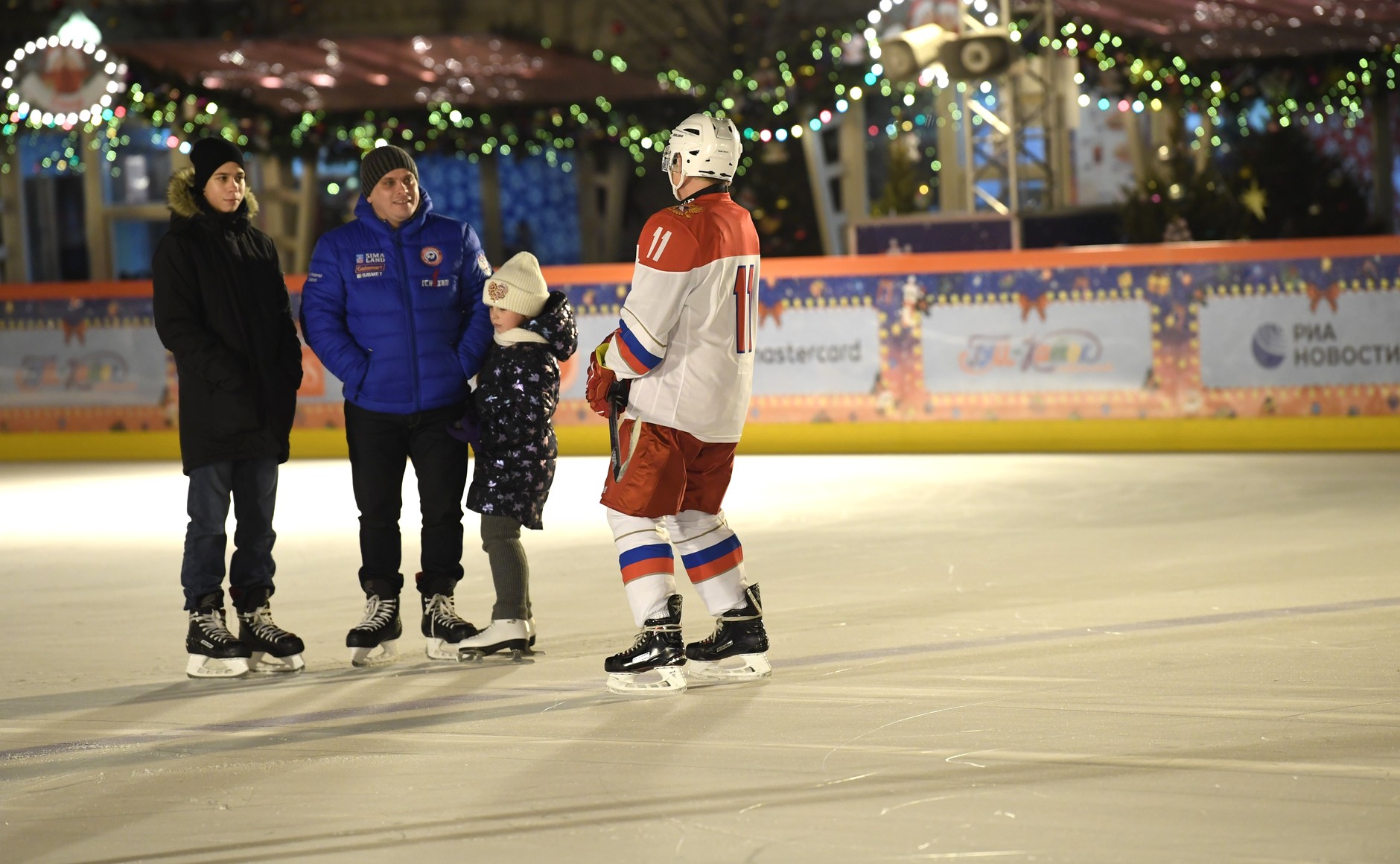 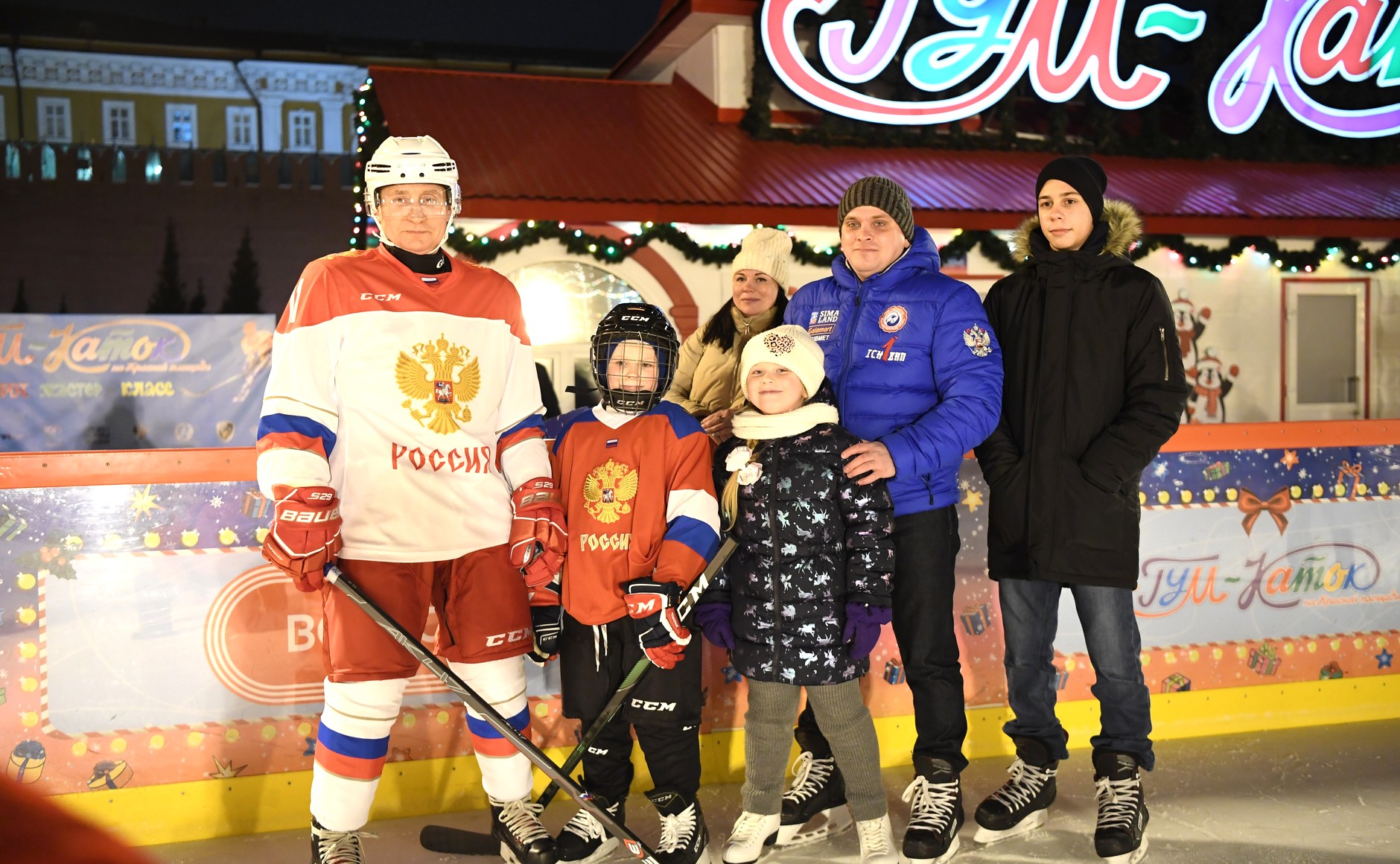 On December 5, the President took part in the New Year Tree of Wishes charity campaign. He promised to grant two wishes written on cards decorating a New Year tree: 10-year-old Alexander Kalyasnikov wanted to hug a panda and 9-year-old Dmitry Ashchepkov dreamed of visiting Red Square, skating there and seeing the President's office. The source of information - http://en.kremlin.ru/events/president/news/64695 Congratulations to energy sector workers and veterans Vladimir Putin congratulated current workers and veterans of Russia’s energy sector on their professional holiday and the 100th anniversary of the State Plan for the Electrification of Russia. December 22, 2020 - 09:00 The message reads, in part: “The adoption of the GOELRO (State Commission for the Electrification of Russia) plan was a major, momentous event that served as a powerful impetus for promoting comprehensive territorial and national economic development in general. The labour feats of the workers, engineers and specialists, coupled with advanced scientific and technical solutions paved the way to creating an effective, competitive energy system within a short period of time. It offered a reliable foundation for strengthening the country’s industrial and defence potential, as well as resolving urgent social challenges. During the implementation of the large-scale GOELRO project, dozens of power stations, as well as major industrial centres in Siberia, the Urals, the Volga region and other territories and thousands of kilometres of new roads were built. As we mark the 75th anniversary of the Great Victory, the most heartfelt words of gratitude go to energy sector veterans. They demonstrated their courage on the frontlines, enabled strategic factories and sites to operate without interruptions and restored the country’s war-torn energy utilities. It is essential that today’s generation of energy sector professionals preserve the sacred traditions of their predecessors. They have to assume responsibility for delivering on their objectives, primarily by carrying out quality capacity and grid infrastructure upgrades, introducing digital solutions and resource-saving technology and ensuring stable and reliable power supply to consumers.” The source of information - http://en.kremlin.ru/events/president/news/64696 Meeting with Deputy Prime Minister Alexander Novak Vladimir Putin had a meeting with Deputy Prime Minister Alexander Novak, who updated the President on developments in the fuel and energy complex, in particular, in power generation. December 22, 2020 - 13:10 - Novo-Ogaryovo, Moscow Region  President of Russia Vladimir Putin: Mr Novak, I would like to congratulate you and all energy workers on your professional holiday, Energy Industry Worker’s Day. This year it coincided with the 100th anniversary of the State Plan for the Electrification of Russia. You and I remember from our school years the special attention that was given to that plan in the Soviet Union and Russia. Its implementation and its results were seen as the basis for the development of the power generation sector as a whole. How does our energy sector look now? What is the current situation? Deputy Prime Minister Alexander Novak: Thank you, Mr President. First of all, I would like to thank you on behalf of all energy workers for the constant support and attention you are giving to the energy sector. It is true that this infrastructure sector is responsible for the supply of energy to the entire economy and all our people, for electricity and heat supply to our homes. Today we are marking a landmark event, the 100th anniversary of the approval of the State Plan for the Electrification of Russia. It was drafted by the State Commission (GOELRO) and adopted in December 1920. The commission was chaired by Gleb Krzhizhanovsky and comprised over 200 scientists, experts and professionals. Our electrical engineering has been and remains one the best in the world. As you have said, the plan provided the basis for state planning because it covered not just power generation, but also all other economic sectors, transport and, consequently, territorial development. I would like to show you that plan. The total capacity at that time was only 0.5 GW across 13 power plants. It was necessary to connect them and build additional 30 power plants that would become an integrated energy network. Before that, they had provided power only to some consumers, with no connectivity. The plan was to build 20 combined heat and power plants and 10 hydropower plants over 15 years. The target was exceeded. Those facilities were built in just six years and the total capacity was increased by 1,750 MW. Now, Mr President, I would like to demonstrate the current state of the energy system compared to 100 years ago. As of today, Russia’s energy system is one of the largest in the world. It is ranked first for territorial coverage and fourth for annual output, which is 1.1 trillion kWh of electricity. It should be noted that our energy grid is the most reliable despite being the fourth largest for output. The high requirements we set ensure high reliability and protection of our consumers from various technological accidents. Our current capacity is 253,000 MW, which is almost 500 times more than when the GOELRO plan was completed. The energy system includes 2.6 million km of power lines. These are huge figures. The Russian energy grid is the most diversified in the world because it also includes such clean energy sources as nuclear energy and hydraulic power, which together account for 36 percent. We produce 1,000 MW of solar and wind energy. Fifty percent of our power plants operate on gas and only 14 percent operate on coal. This is our energy mix. Our energy network currently consists of 1,000 power plants. We have 12 nuclear power plants with several energy units each, almost 170 hydropower plants, 935 combined heat and power plants, and more than 100 wind and solar power facilities built recently. Mr President, over the past eight years, our electric power industry has grown significantly thanks to the decisions that you have taken, in particular, aimed at attracting investment in the industry. During this period, over the past eight years, 6.4 trillion rubles have been invested in the power industry, to add generating capacity and expand the grid. In addition, generation facilities with capacity of 46,000 MW have been built. For comparison, I can cite an example of installed capacity in some of our neighbouring countries, such as Belarus, which has only 11,000 MW. I mean, in eight years, we have built an equivalent of four Belarusian energy systems. We already had well-developed ties with Crimea; now an energy bridge has been built and through several power plants it has been linked with Crimea’s unified energy system. New generating capacity has been added to the Kaliningrad power system, now capable of operating in any situation, even in an isolated mode. We are developing the eastern part of the system – the BAM, the Trans-Siberian line, the southern and northern parts, and we have connected the western and Siberian parts with the eastern energy system. Now it is a unified power system operating in a synchronous mode. As many as 90 percent of the power system today operates in a synchronous mode, reliably providing our consumers with electricity. And, importantly, the system’s efficiency has increased. Over the past few years, the number of accidents at generation facilities and transmission grids decreased by 50 percent, and losses are down 10 percent. The connection formalities have been simplified, which is important for our consumers, for individual households. Russia now ranks 7th in the world, meaning it has about the highest indicators in the world, having climbed up from the 181st place in 2012. We have reduced the number of connection stages from ten to two. We made decisions that allowed us to reduce the time for technological connection from 180 days to a maximum of 30 to 40 days. If there is no need to expand the existing infrastructure, it can be done in 10 days through a mobile app, that is, conclude a technological connection agreement through the website or the app. We can see that the number of issues arising in the power industry has significantly declined. There are hardly any issues and, whenever they arise, our companies resolve them promptly. Of course, all this needs further development. We have certain suggestions regarding further improvement of the energy industry. They concern modern digital technology and smart metering systems, power distribution and energy storage. We made a decision in favour of the general public and, with your support, a law on microgeneration was adopted. This law makes it possible for solar panels or small wind power generators, up to 15 KW, to be installed on individual residential buildings and for them to be used for personal electricity needs with any excess power being sold to the power grid. Nothing like this existed before. This allows people to significantly save money and even profit from selling power to the grid. This is an interesting innovation. We will be developing service systems that will help consumers see which electric equipment consumes energy and thus save money by benefitting from the most favourable tariffs. Mr President, thank you very much for your greetings. We are very grateful for your support. Allow me to say a few words about the performance of the fuel and energy industry. 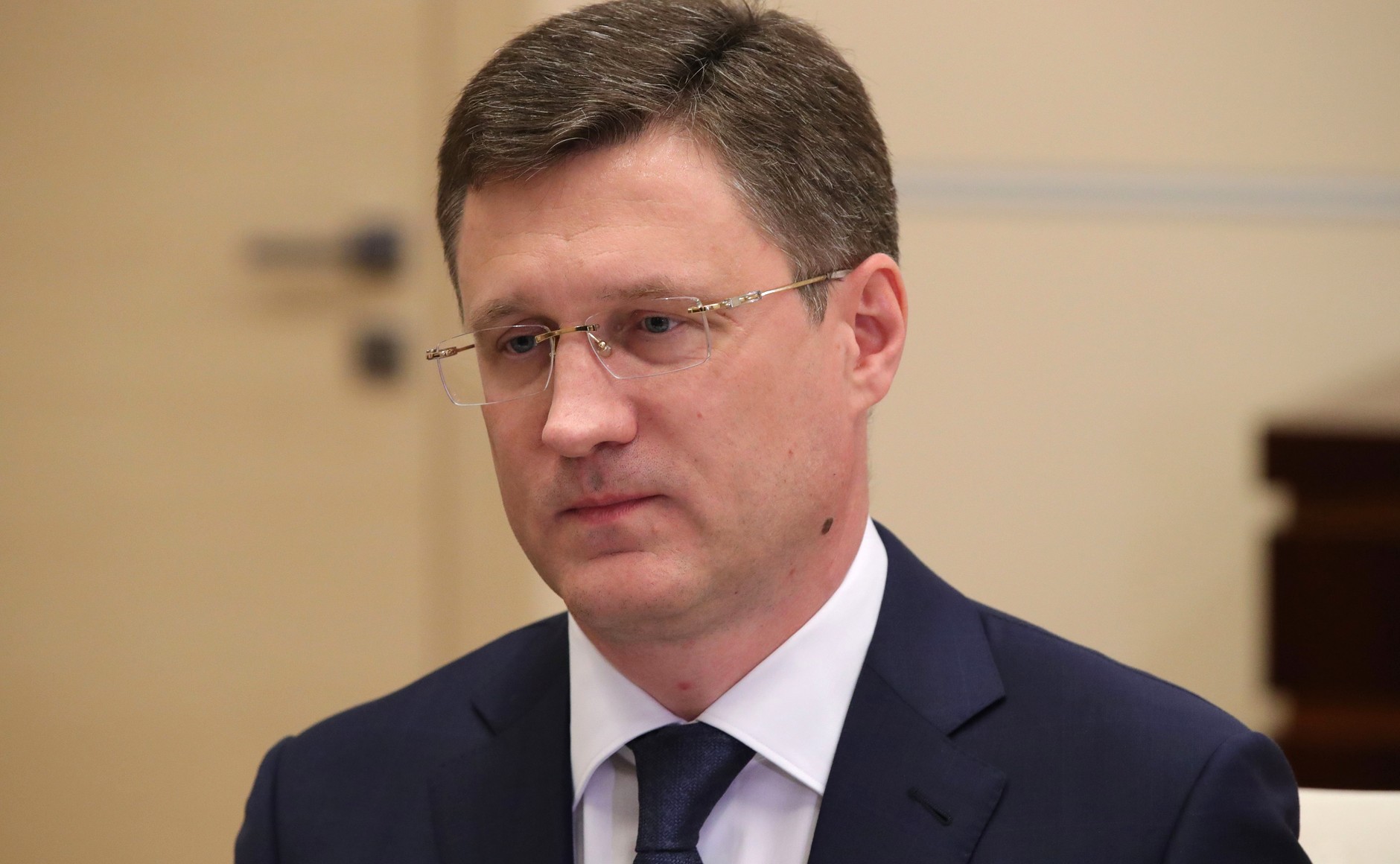 Vladimir Putin: Wait. There was a problem with maintaining and repairing electric power facilities some time ago. Where do things stand now? Alexander Novak: We analyse the situation every year. Strict controls and monitoring are in place. Over the past two years, we have adopted 30 regulations on the state of the power equipment and technical requirements for this equipment. We are keeping strict records and conducting strict monitoring of parameters, especially when we prepare for the autumn and winter season. Obviously, there are occasional cases where equipment requires maintenance and owners sometimes skip maintenance work. But we are shifting to risk-oriented models where assessment is based on the technical condition of the equipment rather than on the wear and tear according to accounting records. This provides for a more efficient use of funding for equipment distribution and maintenance. Thanks to the investment I mentioned earlier, over the past eight years, we have upgraded almost 20 percent of our core electric power facilities. Recently, you supported a programme to upgrade power generation plants producing almost 40,000 MW. This means that within the next decade, 15 percent of the facilities will be upgraded to operate using the latest technology. There is continuous improvement in this area and we are certainly overseeing these steps. Vladimir Putin: Good. Now tell me about the industry in general. Alexander Novak: I would like to note that this year our fuel and energy complex has encountered the same set of problems as the rest of the world. But it has probably been affected more, because of a major decline in demand since the start of the pandemic and the measures taken by many foreign governments. This has had a major impact on our energy sector. Nevertheless, it can be said that the sector has attained all its goals despite these difficulties, primarily, ensuring full-scale deliveries of energy resources to the domestic market, including petrochemicals, gas, coal and, consequently, electricity. However, the yearend figures will be lower than last year. This year we will produce some 514 million tonnes, which is 8.4 percent less than last year. Slide 7 shows the May decline and subsequent gradual recovery. It is Russia’s oil production with due regard for the agreement between OPEC and non-OPEC countries. We have restored the scale of production by 25 percent in light of increasing consumption around the world. As for natural and associated gas, we hope to report some 700 billion cubic metres this year, which is 5 percent or 37 billion cubic metres less than the year before. The gas sector has not been severely hit by the pandemic, because mobility is not a big factor with our consumers. You can see that we reached last year’s figures in August-September, which means the sector is recovering. The situation is not so good in the coal sector, which will report a 9 or 10 percent decline compared to last year, and figures in power generation will go down approximately 2.7 percent. Initially, we expected consumption to decrease even more, but this did not happen, which is a positive fact: electricity consumption is gradually rebounding. This means that our industry is rebounding as well. I would like to say that the issues related to the spread of COVID-19 have had an impact on our industries as well. Nevertheless, we have been focusing on the safety of fuel and energy industry workers. All the facilities are enforcing sanitary measures and providing personal protection equipment. Masks are mandatory. We are paying particular attention to the monitoring of shift workers. We are rigorously overseeing the measures being taken by industrial production facilities and the facilities of the fuel and energy industry. As concerns the electric power industry, we had a task to ensure that healthcare facilities were provided with modern and fast energy supply. The 32 new healthcare facilities that have been built in the country were connected to power sources promptly and under strict supervision. 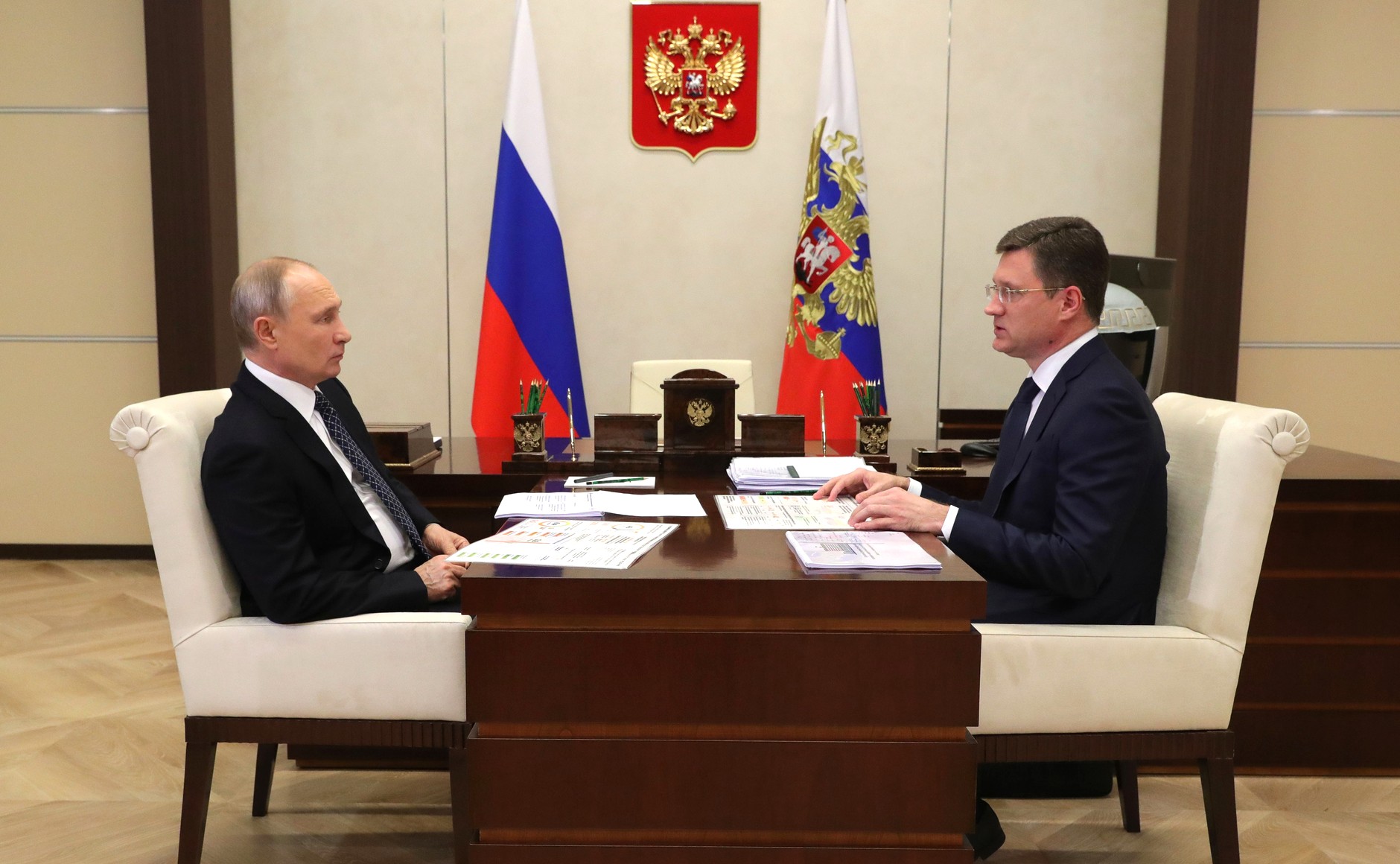 Vladimir Putin: Yes, thank you. Alexander Novak: Twenty-three Defence Ministry hospitals and around 40 repurposed medical centres were connected to a faster energy supply. The 1,573 healthcare facilities equipped with ventilators and other equipment and which are treating COVID-19 patients are subject to special monitoring. We are keeping an eye on these facilities to ensure they have a first-rate power supply. Also, I would like to report on the oil product prices expected as of the end of 2020. I think it is a crucial issue. Diesel fuel prices have been stable this year, rising by just 1.7 percent since January. I am showing you this slide because you can see how the netback and oil depot prices have been fluctuating in response to the volatile situation in the global markets. The mechanism developed as per your instruction to alleviate the effects of the global prices has allowed us to maintain the oil product prices below or equal to the inflation rate, thanks to the damping mechanism. During a period when the oil and oil product prices in the global markets are high, a damper is paid from the budget. But when the prices are low, like today, the oil company pays to the budget. Right now they are paying quite substantial amounts to the budget. Zero balance can be achieved when the price is around $50 to $55 per barrel. And further on, we will strictly monitor, as per your instruction, that the prices do not outrun inflation. This also applies to petrol, diesel fuel and kerosene-type jet fuel. With regard to jet fuel, I have a slide for you. Prices are practically 19–20 percent lower today than in 2019. 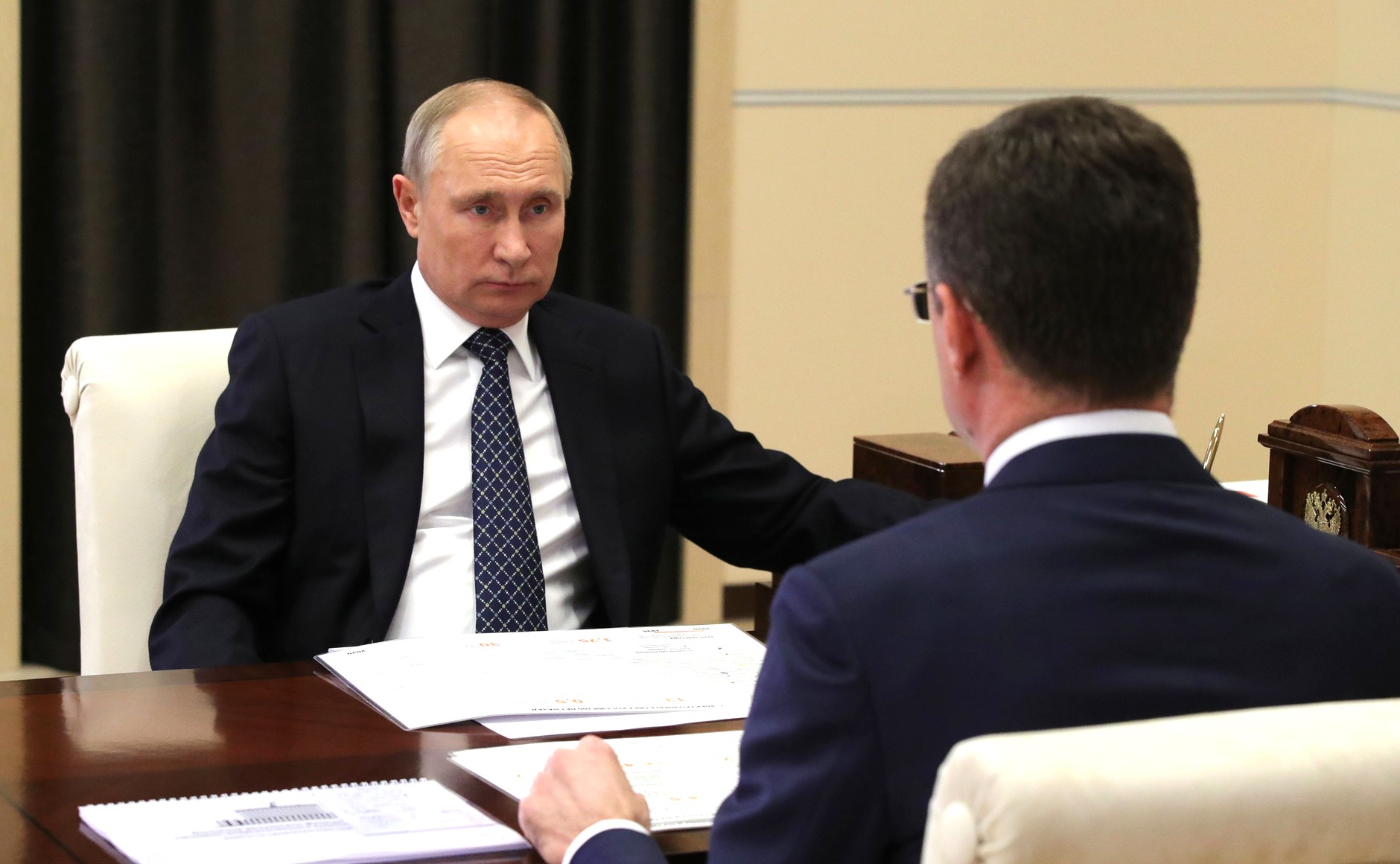 Vladimir Putin: Yes. You are well-versed on this matter. The industry must be comfortable, but consumers shouldn’t be getting the short end of the stick, either. Everything is clear there. We maintain close contact with the oil people on this subject, the mechanism works well, and I hope it will kick in when time comes. Alexander Novak: Thank you, Mr President. May I say a few words about the goals of the fuel and energy complex? Of course, our main goal is to create a proper environment for progress in the fuel and energy complex and to maintain our position on the global market. I see several trends here. In particular, this is about the climate agenda, which concerns putting in certain requirements for a carbon-free economy and carbon-free neutrality. Some countries have already announced their goals and targets up to 2050. This, of course, will significantly affect the demand for conventional energy resources. The second trend is about an excess of resources around the world as a result of technological advances, which will also lower the demand. So, based on the above trends, I believe that we need to concentrate our efforts on two areas: expanding the domestic market, on one hand, and expanding and diversifying our exports, on the other. That includes exports related to added value from processing hydrocarbons and innovative energy. As far as the domestic market is concerned, we consider it important to fulfil your instructions to expedite the country’s gas infrastructure development. We can see great potential here, and the goals that you have set will be achieved. The Government has prepared new concepts and a road map. We will propose changing the relationship in this area. Today, regions, municipalities and gas suppliers are responsible for the provision of gas supply, as well as homeowners who also cover a portion of the associated costs. We propose creating a single operator, which, just like in the power industry, would be responsible for bringing gas to the doorstep of a house, directly to the consumer. This means there will be one agreement, a one-stop shop at a multifunctional centre for public and municipal services (MFC) and, accordingly, a single agreement on a technical network connection. Vladimir Putin: Let’s discuss this in more detail later. The source of information - http://en.kremlin.ru/events/president/news/64707 Telephone conversation with President of Palestine Mahmoud Abbas Vladimir Putin had a telephone conversation with President of the State of Palestine Mahmoud Abbas at the Palestinian side’s initiative. December 22, 2020 - 13:50 The two leaders discussed current issues of bilateral cooperation in the trade, economy and culture, focusing on cooperation in countering the spread of the coronavirus infection including possible shipments of the Russian-made vaccine to Palestine. The Middle East settlement process was also discussed. Vladimir Putin reaffirmed Russia’s readiness to continue supporting a just and long-term solution to the Palestinian-Israeli conflict, including by using the potential of the international intermediary quartet. The two leaders exchanged New Year greetings. They also agreed to maintain contacts at various levels. The source of information - http://en.kremlin.ru/events/president/news/64728 Telephone conversation with President of France Emmanuel Macron Vladimir Putin had a telephone conversation with President of the French Republic Emmanuel Macron. December 22, 2020 - 21:00 The two presidents discussed in detail the situation around Nagorno-Karabakh. The President of Russia emphasised that the situation in the region was stabilising and that, in general, the agreements fixed in the November 9 Statement of the Presidents of Russia and Azerbaijan and the Prime Minister of Armenia are being consistently fulfilled. Successful operation of the Russian peacekeepers, ensuring the ceasefire and the security of civilians at the requests of Baku and Yerevan, was noted. It was reaffirmed that both parties are ready for further coordination on different aspects of the Nagorno-Karabakh settlement, in particular, within the framework of the OSCE Minsk Group. The most acute problems include, among others, humanitarian problems such as the return of refugees, the restoration of the infrastructure, and the preservation of religious and cultural landmarks, in particular, with the assistance from the International Humanitarian Response Centre. Exchanging views on Ukraine’s internal conflict, the parties expressed interest in stepping up efforts to implement the key provisions of the 2015 Minsk agreements and the decisions adopted at the Normandy summit held in Paris on December 9, 2019. In this context, the Russian President again emphasised that Ukraine must fulfil its commitments on the political aspects of the settlement, including the legalisation of the special status of Donbass and the inclusion of the Steinmeier formula in national legislation. It was agreed to continue work within the Normandy format. The presidents agreed that, as regards the situation around the Iranian nuclear programme, it is necessary to make a concerted effort to preserve the Joint Comprehensive Plan of Action. The two leaders discussed the situation in Syria and Libya, emphasising with regard to Libya the importance of observing the ceasefire and promoting an effective political process with the participation of all key Libyan parties. A number of urgent issues of bilateral cooperation with an emphasis on countering the coronavirus pandemic were also discussed. The parties reaffirmed their determination to develop contact between relevant organisations of the two countries on producing vaccines and conducting large-scale vaccination. Vladimir Putin congratulated Emmanuel Macron on his recent birthday and wished him a complete and speedy recovery. The source of information - http://en.kremlin.ru/events/president/news/64735
__________________
Where should they dig the Very Deep Pit? Piglet said that the best place would be somewhere where a Heffalump was, just before he fell into it, only about a foot farther on. (c) Alan Alexander Miln Last edited by Alex Him; December 22nd, 2020 at 05:52 PM. |
|
|
#167 |
|
Senior Member
|
Greetings on the 110th anniversary of Sergei Botkin Hospital
Vladimir Putin congratulated the staff at Sergei Botkin Hospital on its 110th anniversary. December 23, 2020 - 16:30 The message reads, in part: “The anniversary of a leading medical institution in Moscow and Russia is an important date, not only for you but for Russian healthcare in general. Kozma Soldatyonkov, a large manufacturer and philanthropist, a true devotee, stood at the origins of creating a free hospital for all social strata. His charitable idea was supported by famous public and state figures as well as outstanding representatives of the medical community. And thus the hospital opened on December 23, 1910. Always, at all times, highly qualified professionals have worked there: talented scientists, doctors and nurses, who made caring about people their dedication and moral choice. In past decades they have done a lot to develop medical science and create unique methods to treat, diagnose and prevent diseases. During this difficult year you have proven that the traditions of mercy, valour and duty can overcome any ordeal. I know about the Botkin Hospital staff’s contribution to fighting the coronavirus pandemic and providing regular care to thousands of patients.” The source of information - http://en.kremlin.ru/events/president/news/64738 Joint meeting of the State Council and the Council for Strategic Development and National Projects Vladimir Putin chaired a joint meeting of the State Council and the Council for Strategic Development and National Projects, via videoconference. December 23, 2020 - 17:20 - Novo-Ogaryovo, Moscow Region 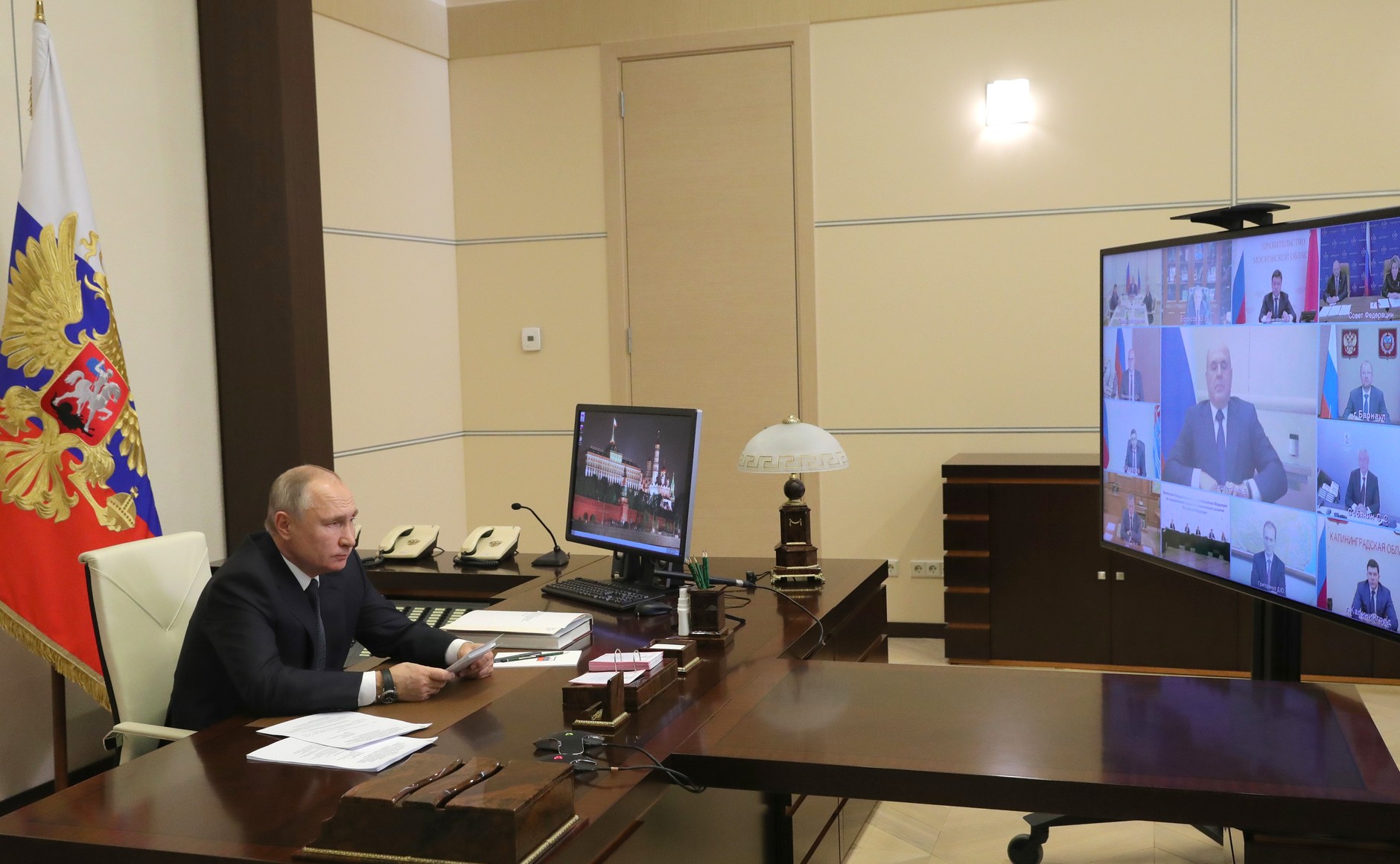 The meeting focused on implementing the Executive Order On the National Development Goals of the Russian Federation until 2030. Speakers at the meeting included Prime Minister Mikhail Mishustin, members of the Presidential Council for Strategic Development and National Projects First Deputy Prime Minister Andrei Belousov, deputy prime ministers Tatyana Golikova, Marat Khusnullin, Viktoria Abramchenko , Dmitry Chernyshenko, and Finance Minister Anton Siluanov, as well as members of the State Council: heads of Russian regions Stanislav Voskresensky (Ivanovo Region), Rustam Minnikhanov (Republic of Tatarstan), Gleb Nikitin (Nizhny Novgorod Region), Andrei Vorobyov (Moscow Region), Alexei Teksler (Chelyabinsk Region), Andrei Chibis (Murmansk Region), Moscow Mayor Sergei Sobyanin, Chairperson of the Yevpatoria City Council in the Republic of Crimea Olesya Kharitonenko; and leaders of State Duma parties Sergei Neverov (United Russia), Gennady Zyuganov (Communist Party), Vladimir Zhirinovsky (LDPR), and Sergei Mironov (A Just Russia). 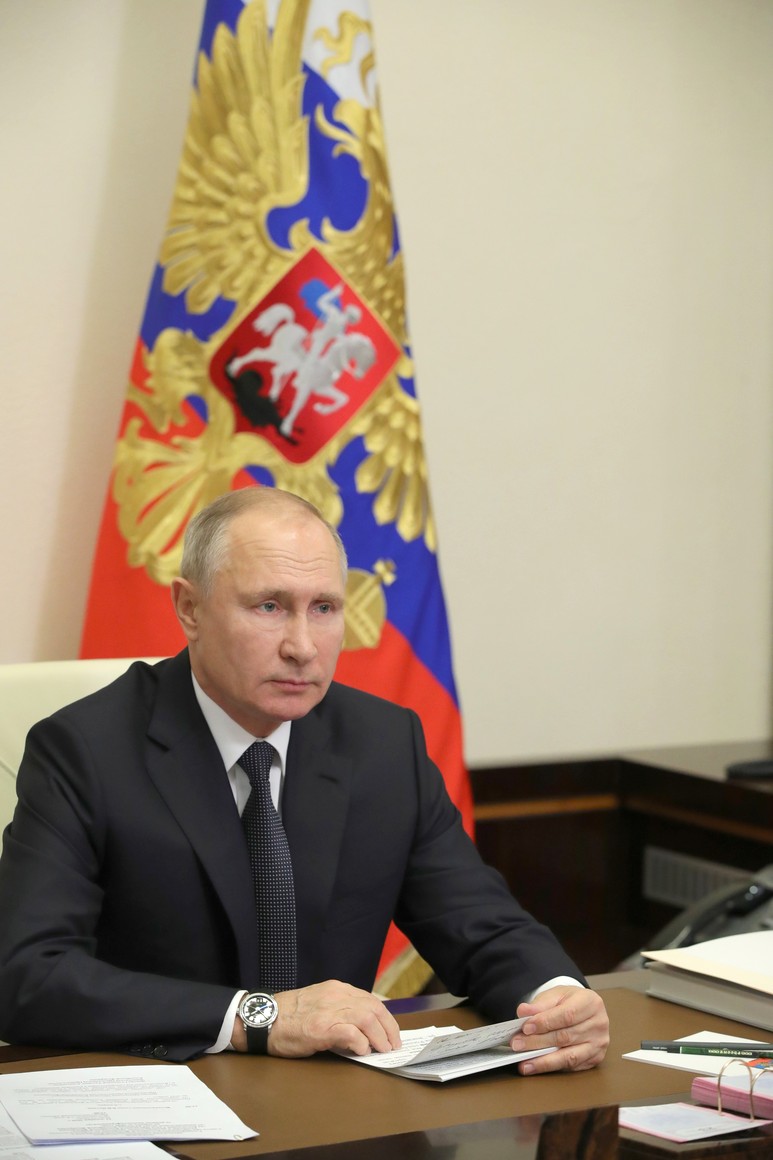 President of Russia Vladimir Putin: Good afternoon, colleagues. I am glad to see you all healthy and well. Welcome. Today we are holding a joint meeting of the State Council and the Council for Strategic Development and National Projects. First of all, we will discuss our goals for the future. This is why we are working together today. We all understand that this year has been difficult both for Russia and the entire world. The coronavirus epidemic has been a challenge for national economies and for social welfare in almost every country, and a serious ordeal for people. These issues have been and still are our primary focus. We have been concentrating and mobilising our efforts and resources in this area. We are doing this because it is extremely important today. As I said, it is a major challenge. But it should not undermine our development agenda. We have repeatedly discussed this as well. Qualitative and continuous progress is of absolute strategic, crucial and vital importance for our country. Considering the entire scope of demographic, geopolitical, economic and technological factors, we cannot afford to stop. We have been saying this in different formats but, regardless of the current circumstances, we cannot afford to pause our development even for a minute. This systematic work requires our joint and coordinated efforts at every level of government, across all Russian regions and, obviously, at the level of regional authorities. The State Council was granted a new constitutional status exactly for this purpose, which is to ensure that Russian constituent entities and municipalities are more involved in making nationwide decisions. The powers and the composition of the State Council were expanded. As you already know, the council now includes representatives of municipalities as well as public associations, businesses and trade unions. Specialised State Council commissions have been established for drafting our common position and for using the best socio-economic development practices, and I have recently signed the relevant documents. The leaders of Russian regions will head them. As I have said right now, the permanent commissions will work permanently and involve the heads of municipalities. Consequently, the heads of local government agencies will be able to directly raise the most pressing local matters before the State Council. 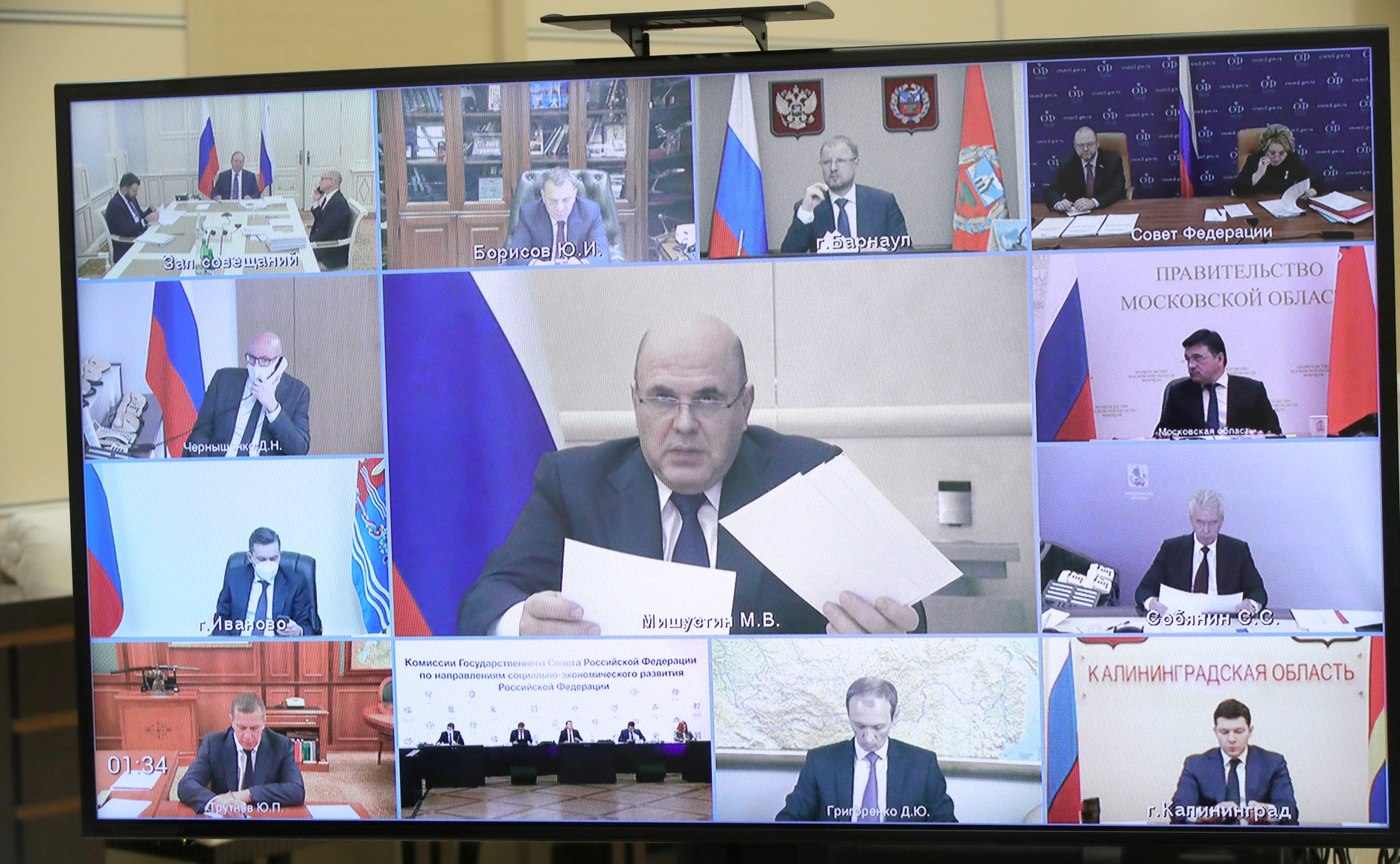 However, these organisational innovations which are also important are not the only thing that matters. In-depth changes are, of course, important in order to bring a new quality to the work of government agencies at every level, including federal, regional and municipal, as well as to ensure their cost-effective performance. In the long run, this will improve people’s lives and achieve national development goals. I would like to recall that we specified and updated them this past July, and we have expanded the so-called planning horizon up to 2030. At the same time, we have ensured full continuity of tasks and results of previous years, and we have drawn necessary conclusions. For example, we prioritise such aspects as advanced infrastructure development, environmental well-being and the digital transformation of all spheres of our life. I would like to once again mention what I discussed during my opening remarks. Objectively speaking, owing to the difficult situation, some plans that we wanted to implement earlier this year were postponed, put on a back burner, so to say. However, no one has abolished the task of attaining major breakthrough, quantitative changes in all key spheres of our life. We need to focus on the agenda to the greatest possible exent, work intensively and move ahead all the time. I am drawing the attention of all colleagues at the federal level, in the regions, in municipalities and at the local level that we must work on all this and be guided by these aspects. It goes without saying that I am expecting the Government to set ambitious tasks for the years to come, but I would like to make a reservation that it is not so hard to formulate these tasks per se. In particular, all of us, the entire people of the Russian Federation, are expecting large-scale achievements from this work, as well as tangible results and real positive change in our citizens’ lives. You and I talk about this all the time, and we constantly focus on this. Today, let us discuss this agenda in greater detail and see what has been accomplished and what has not been done. There are a lot of objective reasons. I am aware of this, as I have just said. Quite possibly, there are also subjective reasons, we have to admit it and not shy away from this. An objective and absolutely open analysis will make it easier for us to move forward. Mr Mishustin, you have the floor, please. 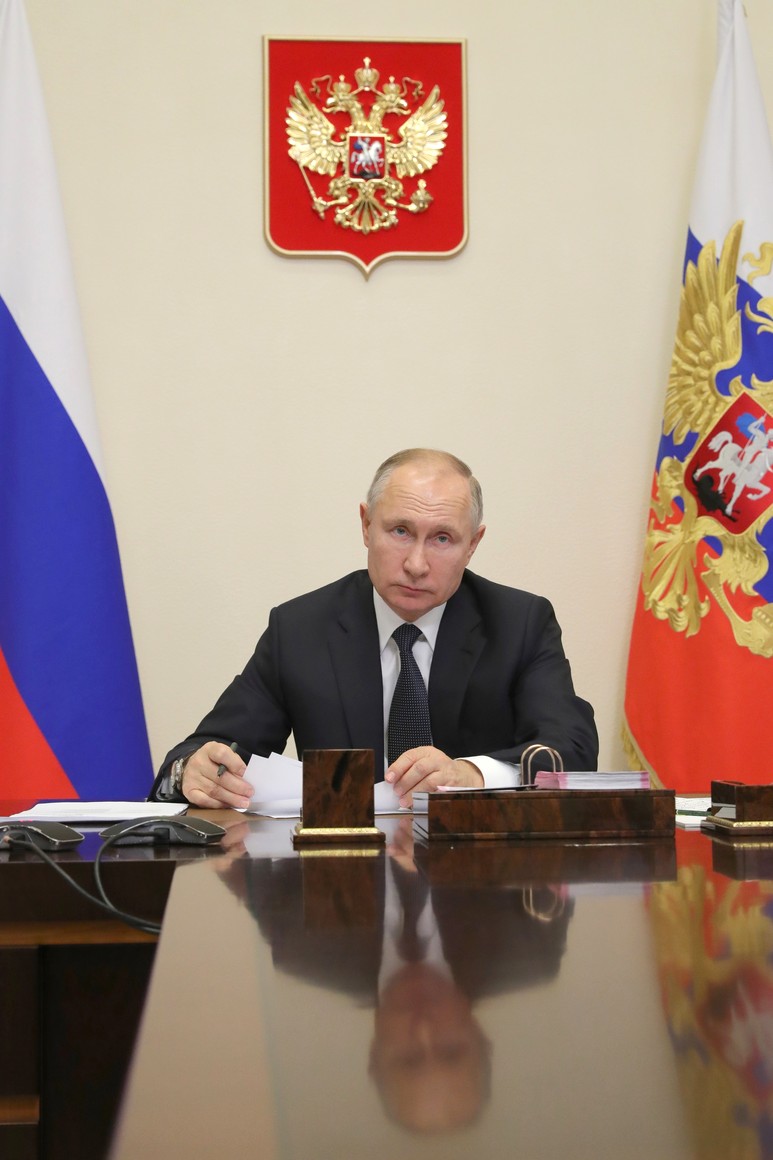 Prime Minister Mikhail Mishustin: Mr President, First, I would like to report on the situation with payments. We opened an online form for filing applications right after you announced lump-sum payments for families with children under eight. The website received over 1.5 million requests for information in the first three hours. In all, 150,000 applications were filed during the same period. This is an all-time high in terms of applications handled by the Government services website. For comparison’s sake, the website handled 1.5 times fewer applications for the most popular payments covering children aged 3–16 in the first three hours. Vladimir Putin: Mr Mishustin, this is explainable: People want to get this payment before the New Year holiday, just like you and I had planned, so as to buy food and gifts for children, etc. People want to do this before celebrating the New Year, and this explains why we have received 1.5 million applications in three hours. Thank you very much, please continue. Mikhail Mishustin: You are absolutely right. Naturally, there were no problems, the entire technological process was streamlined and efficient. As of the morning of December 23, parents who did not receive any earlier payments submitted almost 500,000 applications for children born after July 1. In all, 350,000 applications came in to correct their bank account numbers. Families that received presidential payments earlier this year got the money automatically without submitting an application. Almost 67 billion rubles have been paid out to date. Families raising over 13 million children, including over 400,000 children covered by new applications, have received the money. I would like to note that parents and guardians who have not yet submitted applications can do so until April 1. The federal budget provides for all funding for presidential payments, due to be received by all families with children under eight. I would like to note that this sum is not subject to income tax. Mr President, colleagues, The creation of an effective system for supporting families with children is a high-priority aspect of the Government’s work. We are addressing this task while implementing the national development goals, charted in July 2020. Mr President, you have just noted this. Following your instruction, we have drafted an Integrated Plan aiming to achieve the national goals. This huge strategic document has been drafted for the first time, and it will link the July executive order, national projects and state programmes. Essentially, the plan answers three main questions: when, where and which steps the Government proposes to take in order to achieve these goals. Developing the Integrated Plan required extensive work. The National Projects Centre established 25 inter-agency working groups that include hundreds of people from almost every ministry and agency. They thoroughly reviewed every detail and broke down the national development goals. Digital transformation managers at both the federal and regional levels served as the linchpin of this work. As a result, all participants supported and approved the plan. Then it went through an extensive discussion involving representatives of the Federal Assembly, the Civic Chamber, the Russian Popular Front, the business and expert communities and a State Council working group. We are very grateful to everybody for this work. The approaches to achieving the goals were thoroughly examined and documented in the plan. Every process was described not only in terms of its substance but also with an eye to which operative instrument, state programme, national project or roadmap this package of measures will be applied to as a specific action plan with deadlines, assigned coordinators, benchmarks and funding according to budget planning. The outcome is an elaborate plan that describes the logic of achieving every national goal. The plan will serve as the primary navigator through the measures arranged. At the same time, the plan specifies areas of responsibility and sets specific tasks for all the ministries, agencies, regional administrations and development institutes, and every step and every measure contribute to the common result, which is improving the quality of life and building a comfortable environment for development. 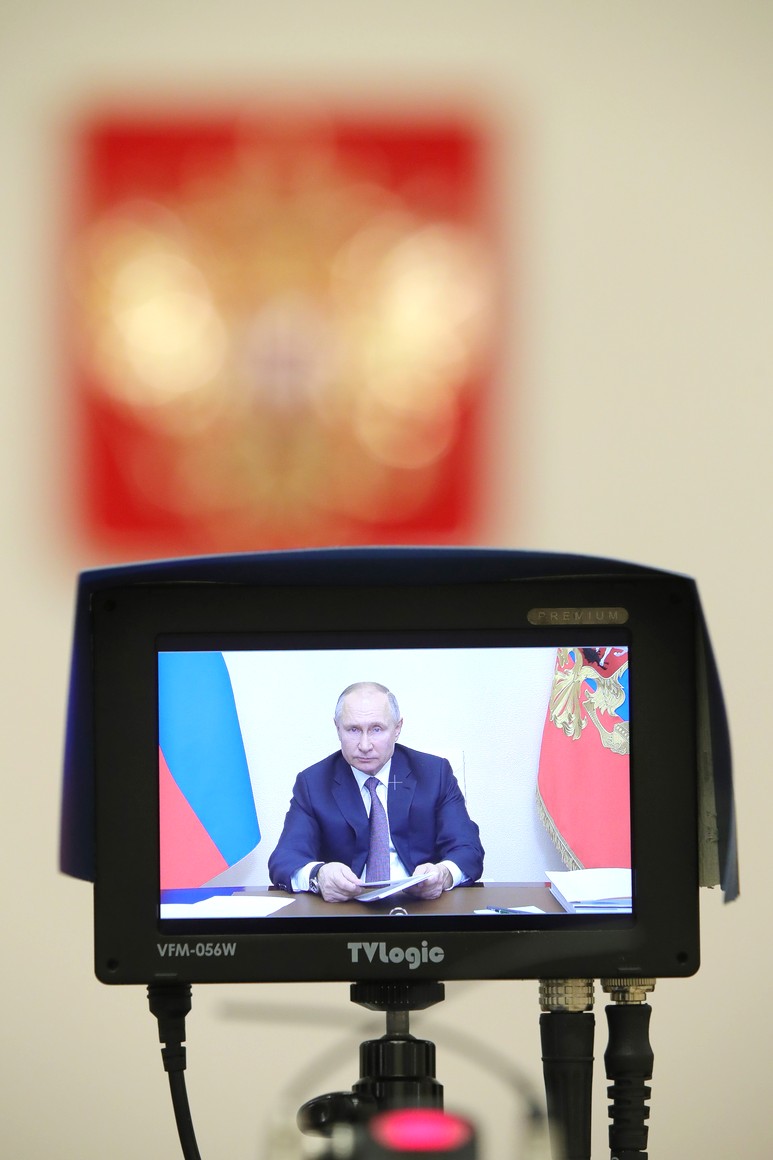 The Integrated Plan breaks down targets by month and by every constituent entity so that people know and understand when and which results they will see not only on a national scale but also in a specific region or territory. Substantial resources will be allocated to fulfil the plan. That is, over 39 trillion rubles within the next three years, or around 13 trillion rubles per year. To put this in perspective, the annual cost of all the national projects is only about 2 trillion rubles. Therefore, budget spending is now strictly bound to the achievement of the national development goals. What is extremely important is that the major part of these funds will be allocated for two areas, social programmes (maintaining the population, protecting health and wellbeing) and economic development. In essence, it means supporting our citizens by ensuring their employment and income. A special section intended to support the constituent entities of the Russian Federation was written at the suggestion of the State Council working groups. It provides considerable resources for regional development. The Government has already adjusted the national projects in accordance with the updated purposes and goals. In each of them the Government has identified socially important results that directly influence the quality of people’s lives and the conditions for conducting business, and has described the indexes for achieving them. Their implementation has not stopped this year either. For example, almost 65,000 families saw improved housing thanks to mortgages with preferential terms, and about 30,000 more children, up to the age of 3, can now be admitted to preschool facilities under the Demography national project. Currently, the state programmes are being adjusted even more finely. Each of their activities is to be tied to the Integrated Plan. And we are set to complete this process as early as March. The information control system will become a single technological platform for coordinating plan implementation. We will have a new efficient control tool that uses specific numerical values and not subjective estimates where we can follow the developments online; and we will be able to step in at almost every stage to prevent any deviation from the plan. For greater control, we will provide access to this system for the authorities at all levels. This will help increase the effectiveness of our response measures and avoid duplicating decisions at different levels. In drafting the plan we proceeded from the assumption that it should be a flexible and efficient mechanism, this is why we suggest the ability to adjust the Integrated Plan annually. To date, this operational period runs until 2024, that is, an additional year in the three-year budget. We need to arrange our work so that we can promptly and accurately respond to various challenges and risks, naturally after providing for the required transparency of the plan structure and the Government’s responsibility in attaining the national goals. Today, my deputies –Deputy Prime Ministers in charge of respective areas – will talk in greater detail about the activities that we have included in the Integrated Plan. Mister President, colleagues. I think that the approval of the Integrated Plan and updated national projects at today’s council meeting are the result of our team work, which allows us to start carrying them out as quickly as possible, starting January 1. Thank you. 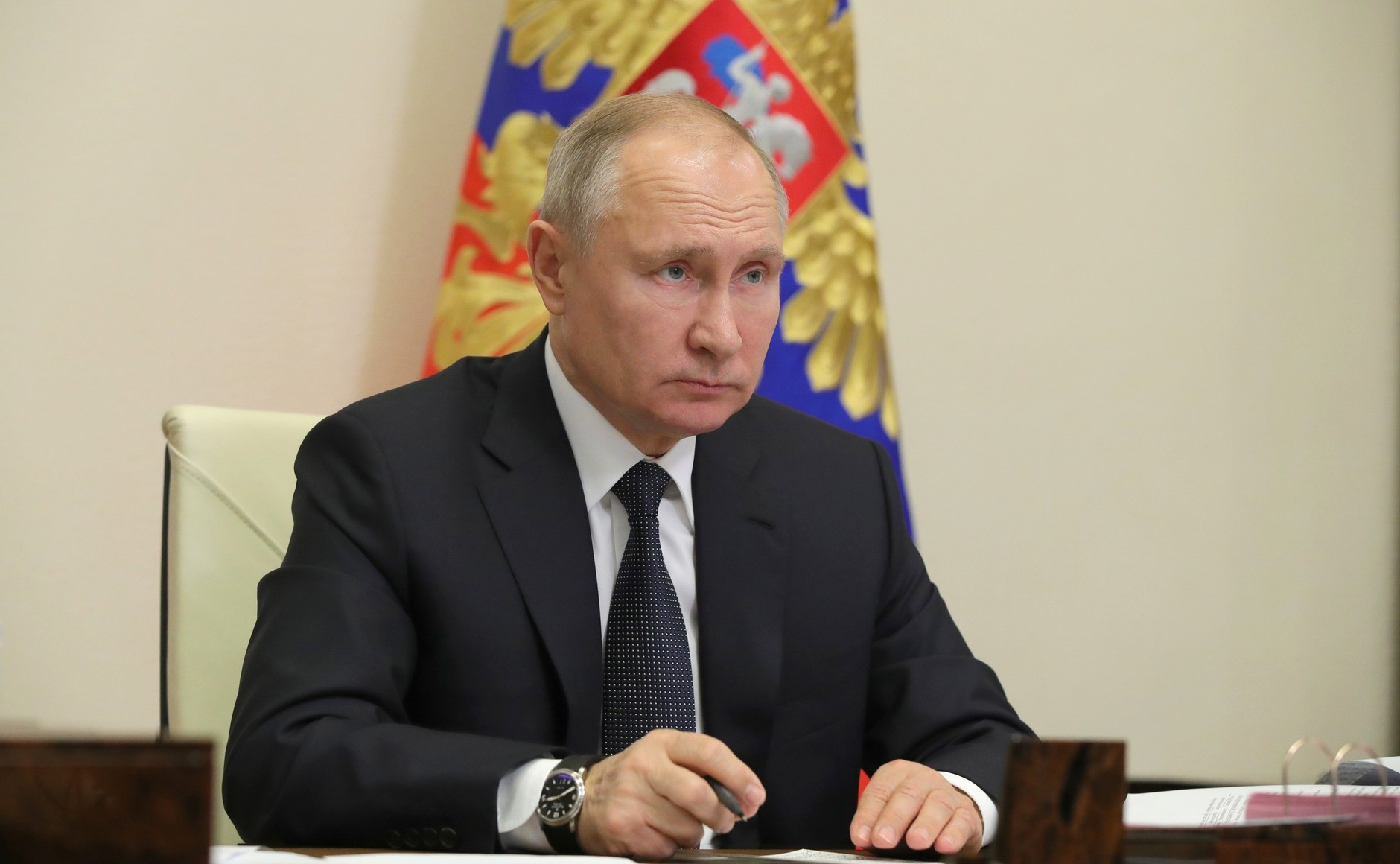 <…> Vladimir Putin: Colleagues, We have had a substantive exchange of views today. I would like to once again thank the Government members, and the heads of the Russian regions and municipalities for their hard work over the past year. But we have a no less difficult and eventful period of cooperation ahead. We have to continue to combat the coronavirus epidemic, to achieve a turning point, maintain a high level of mobilisation in the healthcare system, other public services, and of course, we need to draw lessons from all the problems we have faced and solved, to ensure recovery in employment and embark on a sustainable trajectory of economic growth. However, I would like to emphasise again that we need to do more than just promptly and smoothly implement anti-crisis solutions. I talked about this at the beginning. We should never narrow our approach, lose the development horizon. We need to increasingly focus on system-wide problems. This also applies to increasing people’s incomes, which we have just talked about, and to creating new jobs, increasing the availability and quality of healthcare and education, creating favourable conditions for investment and entrepreneurship, and developing infrastructure and new housing. Achieving a higher quality in the areas I just listed and in other key areas, should provide the underlying fundamental response to the challenges we face. We need to do more than overcome the socioeconomic consequences of the epidemic; we need to ensure development and forward movement in all spheres of life. In this regard, I would like to refer to our historical experience, including the 20th century, when our country went through the most dramatic trials. There were many difficulties at that time, and maybe it was much more difficult than now. But despite that, even at critical moments when the country was faced with the most severe challenges, we never stopped; work did not stop to create new industries, to develop new territories. Even then, in the most difficult periods of our history, plans were made to launch large and daring projects. The lesson we must learn is that no matter how difficult it is, we must always think about the future, about further growth, for years to come. We must lay the foundation for that future growth, and do it today, and set ourselves tasks that are commensurate with our country’s and our people’s historical calibre – tasks that in relation to each person, to each family would mean a new quality of life, prosperity, and new opportunities for self-realisation. And for this, I repeat, we need high dynamics and efficiency at the federal, regional and municipal levels. I know that the Government, the Presidential Executive Office and the State Council working groups I mentioned have carried out large and substantive work to prepare materials for our meeting today, while based on approved approaches and principles. I suggest approving them soon, but not in order for them to be left somewhere on a shelf, but for us to work with them as documents that must be implemented. 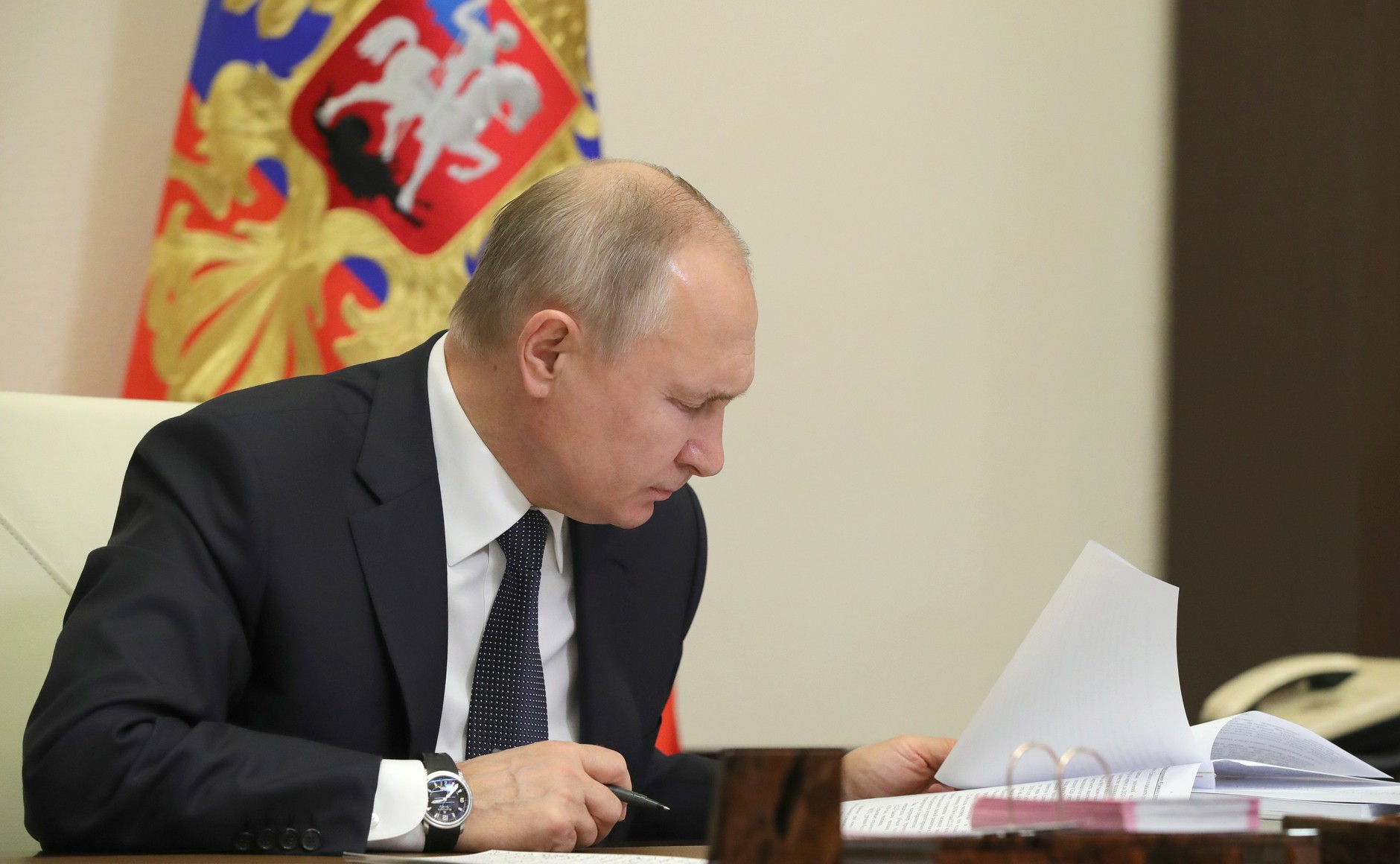 Next, the Government has prepared the Integrated Plan to achieve the national development goals. We have discussed this today. I propose adopting today’s draft in a basic form because some points require fine-tuning. It is true that a lot of comprehensive work has been done. I would like to thank my colleagues from the Government and, considering today’s conversation, do the following. First, bring all the indicators of the Integrated Plan in line with the results of 2020 in order to fully consider the significant changes that have taken place both in Russia and all over the world. Second, it is necessary that our goals and indicators for the upcoming period until 2024 are in line with the level we are starting from. Several national goals need to be more ambitious. Let me note: the fact that we set long-term goals – until 2030 – does not mean that we can postpone this work indefinitely, or, as they say, until better days. Third, I would like to ask you to outline the specific plans and results that will be achieved in the next three years on every national goal based on the prepared Integrated Plan, so we can review them after 2023. In this context, let me stress: this goes for the joint work of the Government, all agencies, all Russian regions and the local municipal authorities. Let me repeat: the outlined tasks and results must be very specific and result in significant development for the country, otherwise all this work is worth nothing. They must show progress on achieving every national goal in practice, not just on paper, and reflect changes in the lives of people. I propose examining specified lines of national development goal indicators without delay, in two months, next February, at the meeting of the Strategic Development Council. We will again discuss the planned results of this for the next three years at that time. We can invite the heads of the Russian regions to take part in the council meeting and, at the end of 2021, meet once again with the same group to review it. Why am I saying this? To make it clear that we will be constantly controlling these issues and checking on what has been done and what hasn’t and why. In conclusion I would like to convey New Year’s greetings to you and your families and colleagues. I wish you success, good health and all the best. Thank you once again for your work and attention. All the best. The source of information - http://en.kremlin.ru/events/president/news/64736 Greetings on the 50th anniversary of Russian Academy of Sciences’ Nuclear Research Institute Vladimir Putin congratulated the Nuclear Research Institute of the Russian Academy of Sciences and its staff on the 50th anniversary. December 24, 2020 - 09:15 The message reads, in part: “The Nuclear Research Institute of the Russian Academy of Sciences was established at the initiative of outstanding Soviet scientists who determined the key areas of its work, built a unique research and experimental base, and established remarkable traditions of selfless workfor the glory of our Fatherland. Today the institute, with its strong team of talented and highly qualified experts, is rightly considered one of the leading world centres of fundamental and applied research in nuclear physics. It is important that you carefully preserve and develop the extraordinary creative legacy of your predecessors, keep the professionalism bar high, focus on large-scale international projects and training gifted youth.” The source of information - http://en.kremlin.ru/events/president/news/64742 Telephone conversation with President of Azerbaijan Ilham Aliyev December 24, 2020 - 11:40 During the phone call, Vladimir Putin extended birthday greetings to Ilham Aliyev. Earlier, the Russian leader sent the President of Azerbaijan a birthday message, which said, in part: “You rightfully enjoy high respect among your compatriots and abroad. Under your leadership, Azerbaijan has achieved impressive success in the economic and social spheres. Your personal contribution to strengthening the strategic partnership between our states is no less considerable. I hope that together we will continue to develop mutually beneficial Russian-Azerbaijani ties in every area.” The source of information - http://en.kremlin.ru/events/president/news/64740 Meeting with Government members The President chaired a traditional meeting with Government members ahead of New Year holidays, this year held via videoconference. December 24, 2020 - 14:10 - Novo-Ogaryovo, Moscow Region 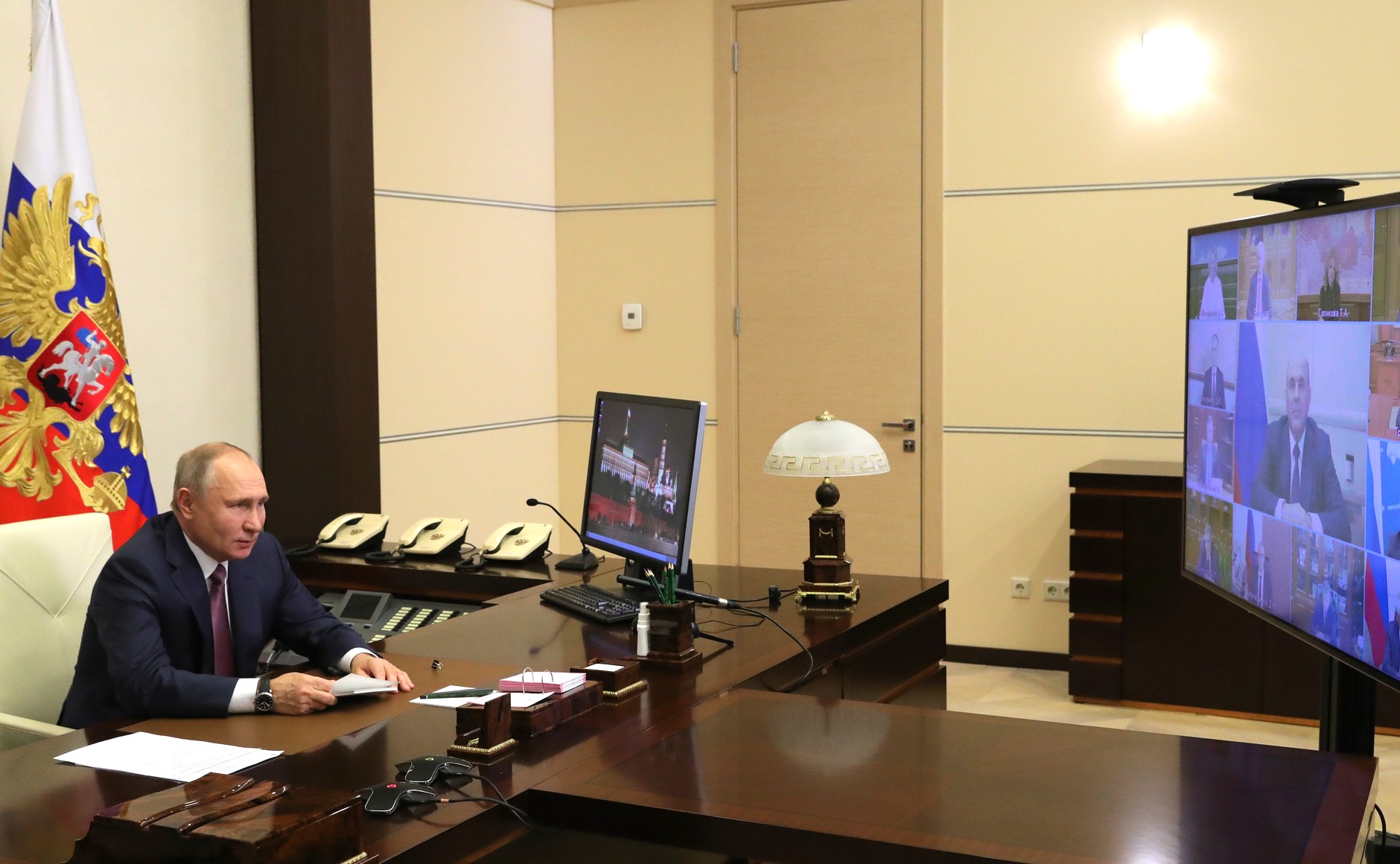 President of Russia Vladimir Putin: Colleagues, friends, Mr Mishustin, We have this good tradition to meet at the end of December, just after the annual final meeting of the Government. So today I would like to use this opportunity and support this tradition, to offer my best New Year wishes and to thank all of you for your hard work in 2020, which was so difficult and complicated. Many of you only just took office in January, when the new cabinet of ministers was formed, and two months later, in March, you had to start working in a completely different mode, in any case not the one you were initially expecting, when the entire world and our country, Russia, came face to face with the coronavirus outbreak. We had to deal with a real threat to the life and health of thousands, tens of thousands of our citizens, with an absolutely new challenge, and one of colossal complexity. But such extraordinary situations, such emergencies immediately show (I think you all agree with me), they make it clear who is who, and what they are really capable of. And here I would like to underscore that the Government has been up to the mark this year. In a short time, you set up systematic, well-coordinated work. Even in the most difficult moments, there was no confusion, and no one gave up – this much is quite obvious. On the contrary, you have maintained equanimity, composure, and efficiency. You have shouldered a heavy burden. I have already spoken about this using a hyperbole, a figure of speech and an exaggeration, I said you worked around the clock, day and night. But that was exactly what it felt like. It really was. In any case, Mr Mishustin and I sometimes discussed the situation well after midnight. There have certainly been some drawbacks too, and we talked about them more than once. I am sure that you have drawn all the necessary conclusions. But the overwhelming majority of our colleagues, I would like to emphasise this, have demonstrated great capacity for work, managerial efficiency and competence. We have been working in this composition for less than a year. However, all in all, we have managed to do a lot during this fairly short time. We have a mutual understanding and an understanding of where to go. We also have a team spirit and thanks to the team work we were able to do a lot to cushion the negative effects of the epidemic and help those who faced special difficulties. They included, as we initially decided, families with children and people who were temporarily out of work. We also had to help the affected economic sectors, enterprises, small companies, individual entrepreneurs and self-employed persons. Notwithstanding all these difficulties, we provided for the stability and sustainability of microeconomic indexes, continued the implementation of meaningful infrastructure projects and created new incentives for the support of housing construction. We granted a 6.5 percent mortgage loan – which both helped people and supported the construction. We have also devised some instruments to expedite development of tourism, which generally work. They need to be further developed, of course, as is obvious. Yet, the way for the sector’s development and support has been found, on the whole. We have prevented a critical recession, which would have thrown our economy far back, this is also an absolutely evident thing, and we were able to preserve our leading sectors; not just preserve – we developed certain systemic support measures for practically every sector. And the main thing is that we have managed to solve the issue of protecting people. I will not name them all, but we have taken many measures. I want to say thank you to all my colleagues and the Prime Minister, his deputies, heads of ministries and departments, our big teams and the Government staff. I am sure that the trials that we had – and these were real trials not only for the country, but also for the Government team – pulled us all together, toughened us and, of course, strengthened our common and your professional potential. This is because, on facing any problems and solving them, people must improve and work on themselves. We, and no doubt, I am sure you feel this too, have expanded our practical experience and learned how to do many things even better and more efficiently, than we probably thought possible earlier.  First of all, the speed of decision-making has increased. It was necessary, and it has been done. You caught the global technology wave and started using cutting-edge innovations, including artificial intelligence algorithms, more intensively. A remote mechanism to provide a number of public services and support for citizens has been built with their use. People can already feel this, I see it. This also includes organising direct payments for families with children. All the accumulated experience, as well as the lessons taught from existing problems, must be considered and used in the current, everyday work and to address key tasks of the upcoming year in order to make headway in countering the epidemic and also significantly strengthen primary healthcare. We will launch this comprehensive effort on January 1. It is necessary to fully restore the economy, employment, as we have agreed, and I would like to ask you not to put this off; it is necessary to create conditions, as soon as possible, for increasing people’s incomes. Keep in mind that, of course, people are hoping and waiting for changes for the better. They assess the work of the Government, and of course, the authorities in general by what is actually going on in their everyday life, the quality of medical care, the chances of finding employment in their home town or village, and whether there is enough money to buy children clothes and shoes and give them a good future. We will have to act as composed and responsibly as possible, without blaming our mishaps and mistakes on the difficulties of the current moment, and fight to achieve tangible positive changes in the lives of Russian families. We also have to switch from anti-crisis measures to a strategic agenda as quickly as possible. Moreover, trials and difficulties always open up new opportunities for development, as we have acknowledged many times. As a matter of fact, this is exactly what happens: look at the current statistics, it is completely obvious. What we discussed mostly theoretically is in demand today and makes us move faster. This concerns online education, the services provided in electronic form and much more. Yesterday at the joint meeting of the State Council and the Council for Strategic Development, we agreed to set more ambitious goals in several areas of the integrated plan to achieve the national goals. By the way, this is not only about indicators but also about calculating the baseline from which we will proceed. I said this yesterday, and I hope that you heard me correctly. We have to act so that all our actions meet people’s demands and are consistent with the historical role of Russia, as I said yesterday. No matter how difficult it may be today, in the next few years we must accomplish a lot more. We will have to make a real breakthrough, primarily in the areas that directly determine people’s welfare and self-fulfilment. It is necessary to ensure dynamic, confident national development in the 21st century. Ambitious tasks always – I think you will agree with me on this point – when we encounter major tasks, they are bound to stir our emotions and inspire us; they require new approaches and solutions. Let me repeat what I said at our first meeting on January 21: you have everything you need to achieve national goals without fail. I am sure you will continue cooperating with the regions and municipalities, the business community and non-profit organisations, and will undoubtedly rely on the support of our citizens. This is because trust is the most important and valuable asset at every level of management. We must value it. Of course, I would like to thank you again for your work and wish you – this is topical now – good health, happiness, and all the best. I wish wellbeing for you and your families and friends. Happy upcoming New Year. Mr Mishustin, go ahead please.  Prime Minister Mikhail Mishustin: Mr President, First of all, I would like to thank you for these greetings on behalf all Government members and me personally. I would also like to thank you for your assessment of the performance of our team, the Government. Your support helps us resolve our tasks and achieve results. You have placed high trust in us and the Government will do all it can to measure up to your trust so that our people can feel the unwavering attention of the state and receive the assistance they need in any situation. Using this opportunity, I would also like to wish you from all of us and myself personally happy upcoming holidays, the New Year and Christmas, and wish you all the best. I would like to tell you that we will try to carry out all our tasks: fulfil the national goals and the assignments you give us. Thank you for offering a helpful hand to all Government members in this regard. You helped us in the most difficult times and we thank you for this. Happy holidays! Thank you. Vladimir Putin: I would like to remind you that we are working in a continuous cycle. It is clear that all of you enjoy a festive home environment, as I hope. You will relax and see the New Year in. But, as you know, the situation is not easy. Therefore I rely on you being always ready and able to join the work whenever needed. I wish you all the best things in the year ahead. Thank you very much. Goodbye, all the best to you. Mikhail Mishustin: Thank you. The source of information - http://en.kremlin.ru/events/president/news/64743 Meeting of Moscow State University Board of Trustees Vladimir Putin chaired a meeting of the Lomonosov Moscow State University Board of Trustees held via videoconference. December 24, 2020 - 16:40 - Novo-Ogaryovo, Moscow Region The participants focused on the development strategy for Moscow State University to 2030. 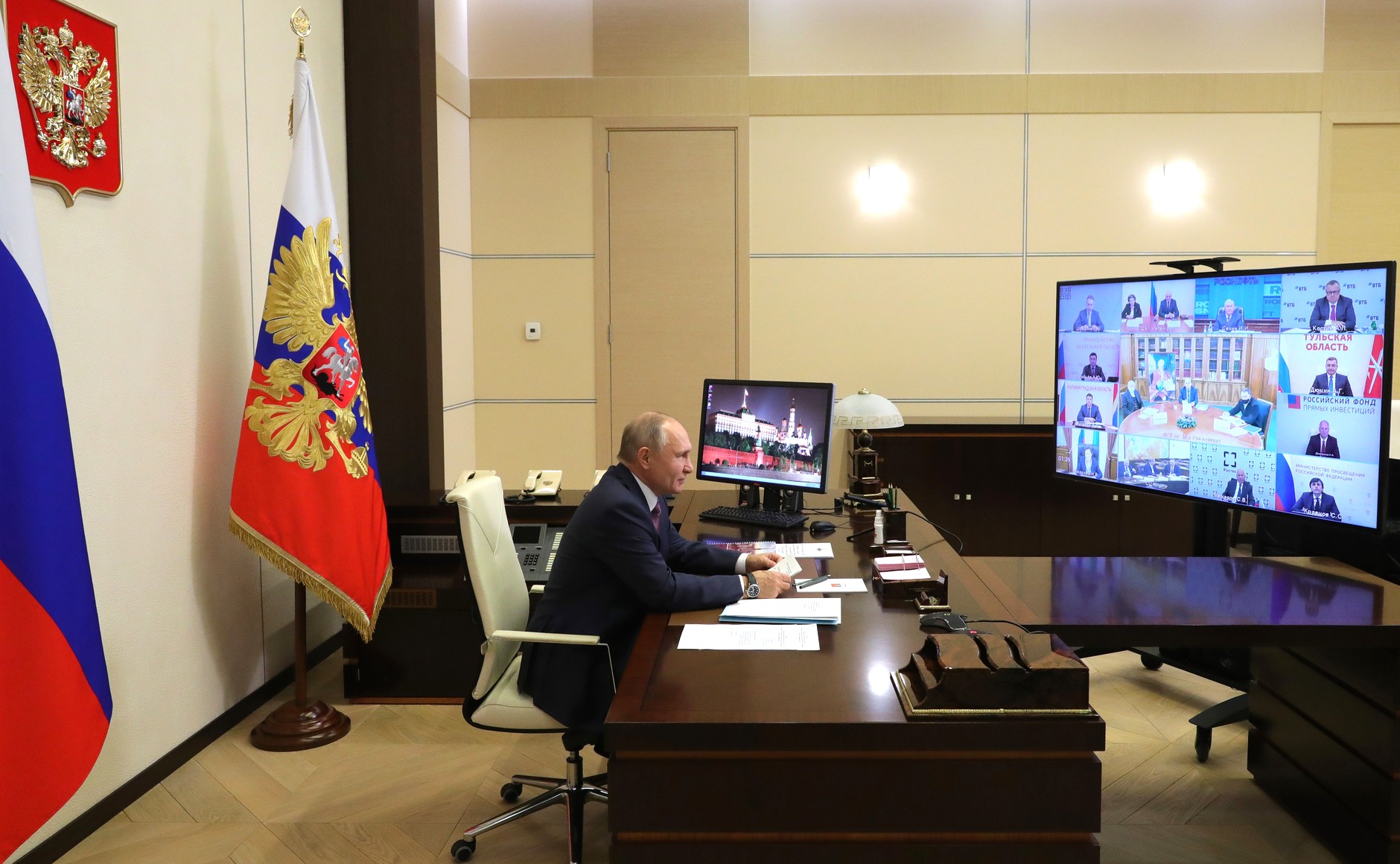 President of Russia Vladimir Putin: Good afternoon, colleagues, friends, I am delighted to have you here and wish you happy upcoming New Year holidays. I would like to wish you good health, realisation of your work plans and life plans and, of course, implementation of the plans related to the Board of Trustees. As always, there are many items on our agenda. First of all, I would like to discuss the results of the implementation of the Moscow State University development programme. Much has been achieved over the past decade. The University has made strides in training and research, and its infrastructure, including social, training, laboratory and digital, has greatly expanded. Importantly, Moscow State University’s standing among the world’s leading intellectual centres has improved; it has become more appealing for international cooperation, for young researchers and talented students from different countries. Today, without any exaggeration, the University has become one of our backbone platforms, one of Russia’s leading research and training centres and, without a doubt, we always mention this, the flagship of the national higher education system. Credit for this certainly goes to the trustees who are present here. Let us just put it a little more modestly – including the trustees. Importantly, colleagues and friends, you not only provide Moscow State University with financial and organisational help, but, most importantly, you put your hearts into your noble mission and are always there to help the university overcome the problems it is facing. I want to thank you for this active, engaged and informal participation in the life of Moscow State University. The main issue on the current board agenda is the university’s development plan until 2030. We actually started considering these matters at the previous meeting and identified a number of key objectives. They include the effective implementation of the so-called top-to-bottom education and research programmes, the faster and more energetic introduction of a promising interdisciplinary approach in teaching and in scientific research. According to experts, it is a thing of the future and should help us achieve real breakthroughs, find and offer complex, out-of-the-box solutions to fundamental issues of technological development. And of course, the further arrangement of the modern university environment requires attention – I will tell you about this in more detail in a moment – an environment where the depth and versatility of knowledge, collective creative search and team spirit are valued, and where students, teachers and scientists will feel comfortable, engaged and motivated. I hope that Mr Sadovnichy [Rector of Moscow State University] will also tell us about it, as well as about the progress in creating major research and educational schools at MSU. I would like to ask you to elaborate on what practical results are to be achieved by combining the intellectual resources, what tasks it should help perform on a new level in personnel training and in science and technology projects, and how this should affect the university’s competitiveness in Russia and in the world. Let me remind you that back in 2013, the rector of Moscow State University proposed an ambitious idea of creating a territory for innovative development at the university, a science and technology valley with greater investment appeal and a globally competitive environment for R&D. It is in fact a pilot project for MSU as well as for our entire science and technology community. We were saying so from the start. And we knew that many complex knots would have to be untangled at the preparatory stage. I am referring to management, property, land, legal and regulatory issues. Again, much of what we have been and still are doing are firsts, where experience still needs to be gained, and best models need to be elaborated to combine the efforts of Moscow State University, federal agencies, the Moscow government, and our leading companies and high-tech businesses. It should be noted, and I think you will agree with me, as many of you were involved in this work, that unfortunately, not all emerging issues could be resolved as quickly and effectively as we would have liked. There were bureaucratic and inter-agency inconsistencies. That is the way it goes when tackling complex issues. I hope all obstacles that hampered the project are now behind us. 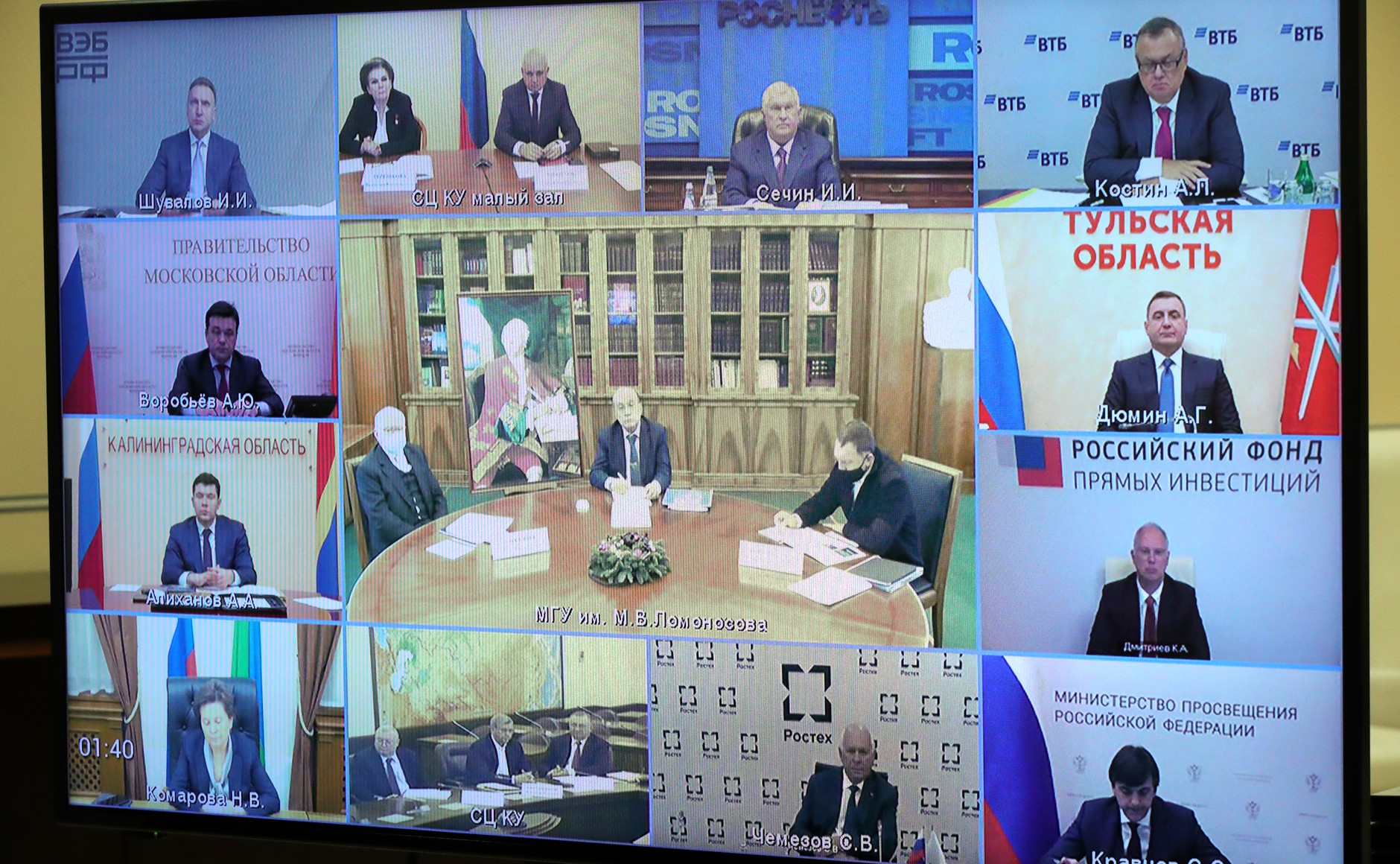 I know that now the organisational period is over, the technical obstacles have been removed and various formalities settled. This means we can assume that all conditions for implementing this large-scale project have been created. Now it is important to instantly gain momentum and fill our work with meaningful content. Our colleague Andrei Fursenko [Presidential Aide] has told me a lot about this. I hope this is exactly how Moscow State University and other participants in the project understand their goal. Their goal is not only to develop the territory of the future Vorobyevy Gory Innovative Science and Technology Centre. The main goal is to turn it into an example of innovative development and productive partnership of education, science and business that would result in competitive and commercially viable developments and products that are in demand in the world market as well as the economy, industry and social sphere of Russia, and of course in the life of a metropolis like Moscow. This must also have an impact on the life of our capital. I would like to note in this context that the Moscow government is taking an active part in implementing this project. We have spoken with the Moscow Mayor about this several times. The city has allocated over 10 billion rubles to design and build the Lomonosov cluster, which is being created as a launch pad. I believe we have every opportunity to launch the first facilities of the technological valley in the next year and a half or two years. I would like to ask you to start construction not with administrative and executive buildings but with laboratories and research venues. The infrastructure for Vorobyevy Gory Innovative Science and Technology Centre must be completed by 2025 when Moscow State University celebrates its 270th anniversary. Colleagues, I would like you to record this deadline in the instructions following this board meeting. The university and the centre’s management company must concentrate on creating the best possible conditions for the work of scientific, creative and business teams at the technological valley. It is very important at this point to use the intellectual potential of the university’s science and education schools that are now being formed. I would like to emphasise once again: it is the synthesis of top-level education, fundamental science and the introduction of new knowledge and developments that will allow the university to continue attracting gifted students, talented teachers and young scientists as well as entrepreneurs, and not only from Russia but also from other states. To achieve this it is always necessary to move forward. Colleagues, the coronavirus pandemic has become a major challenge for the world and our country, including the education system. I would like to thank the faculties of our universities and, of course, Moscow State University, for ensuring stability and continuity in education. The fact that a fairly effective digital infrastructure has been created at this Moscow university and other universities over the past years clearly played a great part here. I am aware that the Moscow Digital University was created several years ago and is operational. Game-changing opportunities for distance learning were created in previous years, even before the outbreak of the pandemic. Once the epidemiological situation gets better, the students will, of course, return to their classrooms and normal university life will resume, but this challenging experience must, of course, be put to good use in the future. We are talking about continued development of universities’ digital capabilities, new approaches to combining various forms of teaching and teaching technologies. This is important if we want to keep up with the fast-paced changes in the modern world. Each university in our country has something to offer here. It is imperative to share their experiences and to formulate concrete proposals and recommendations regarding successful and productive approaches to combining distance learning formats with practical education and actual research activities. I would like the university – as a flagship of our higher education – to take part in addressing this objective, and do so not only within its walls, but on a national scale as well. Here is what I would also like to say. The pandemic challenge faced by our civilisation has clearly and convincingly shown the importance of the spheres that determine the safety and quality of human life, such as healthcare, education, environmental protection, research and technology, the input of the people who devote themselves to this work, fulfill their professional duty, often take the unbeaten path and enrich themselves and us with new knowledge, which they pass on to the younger generations. This contribution to the future of our country deserves special recognition on the part of the public and the state. This is a segue to what I would like to say in closing. We discussed this, including during our meetings with the representatives of higher education institutions. So, I would like to propose declaring the coming year 2021 the Science and Technology Year in Russia. I wanted to do this at a meeting of the Board of Trustees of Moscow State University, which a world-class university. This concludes my opening remarks. 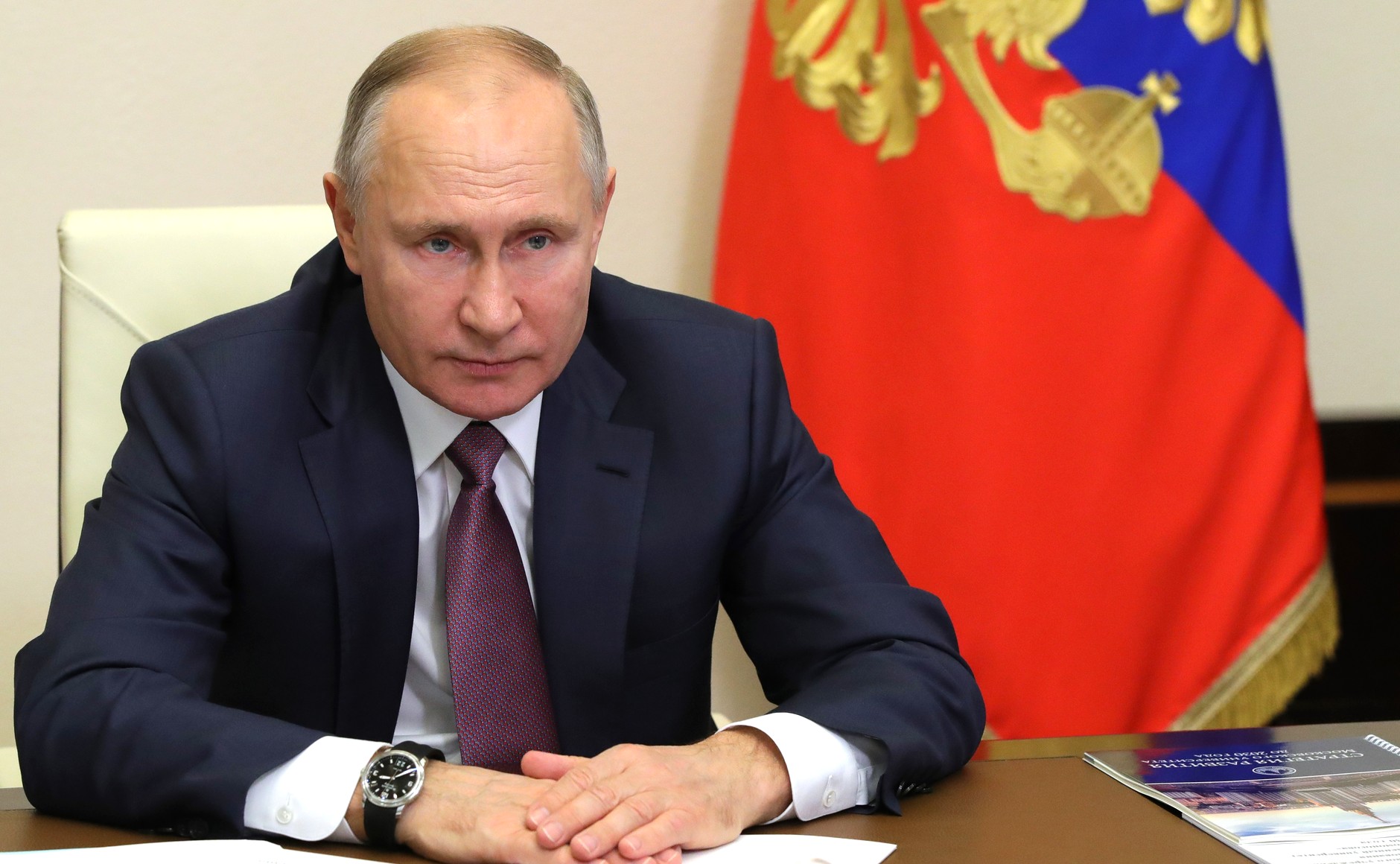 <…> Vladimir Putin: Colleagues, In closing, I would like to once again thank Moscow State University’s senior officials and faculty for their work over the past year and during the reporting period, the results of which we have now learned from the rector’s report. I hope Moscow State University will remain Russia’s leading education and research centre. That said, I cannot help but agree with the Finance Minister, who said that the strategy and development plan for Moscow State University, which is our country’s largest research and education centre, must be closely linked with Russia’s national development goals. I always mention this when I meet with our leading researchers and senior officials from this area. The President of the Academy of Sciences is aware of it, and we always discuss this during our meetings. I believe university science should make a corresponding contribution to the country’s development. I mean, of course, the core activities of education institutions and the training of personnel for the industries that are in dire need of high-quality specialists in new areas. I would like to hope that everything will turn out this way. Mr Sadovnichy, I would like to congratulate you, the faculty, staff and students of Moscow State University on the incoming New Year and express hope that together we will work energetically and with good results in 2021. The source of information - http://en.kremlin.ru/events/president/news/64744
__________________
Where should they dig the Very Deep Pit? Piglet said that the best place would be somewhere where a Heffalump was, just before he fell into it, only about a foot farther on. (c) Alan Alexander Miln |
|
|
#168 |
|
Senior Member
|
The Izvestia publishing house releases a booklet containing Vladimir Putin’s article, 75th Anniversary of the Great Victory: Shared Responsibility to History and our Future
December 25, 2020 - 13:00 In addition to the article, the booklet also features excerpts from archival documents, offering readers an opportunity to delve into the accurate and more extensive body of evidence which was used in the article. The booklet was published in Russian and five foreign languages: English, Spanish, German, French and Chinese. The Russian and English versions of the article with appendix are available on the President’s official website. The source of information - http://en.kremlin.ru/events/president/news/64746 Meeting with permanent members of the Security Council Vladimir Putin held a briefing session, via videoconference, with permanent members of the Security Council. December 25, 2020 - 16:00 - Novo-Ogaryovo, Moscow Region Attending the meeting were Federation Council Speaker Valentina Matviyenko, State Duma Speaker Vyacheslav Volodin, Deputy Chairman of the Security Council Dmitry Medvedev, Chief of Staff of the Presidential Executive Office Anton Vaino, Security Council Secretary Nikolai Patrushev, Interior Minister Vladimir Kolokoltsev, Foreign Minister Sergei Lavrov, Defence Min ster Sergei Shoigu, Federal Security Service Director Alexander Bortnikov, Foreign Intelligence Service Director Sergei Naryshkin, and Special Presidential Representative for Environmental Protection, Ecology and Transport Sergei Ivanov. 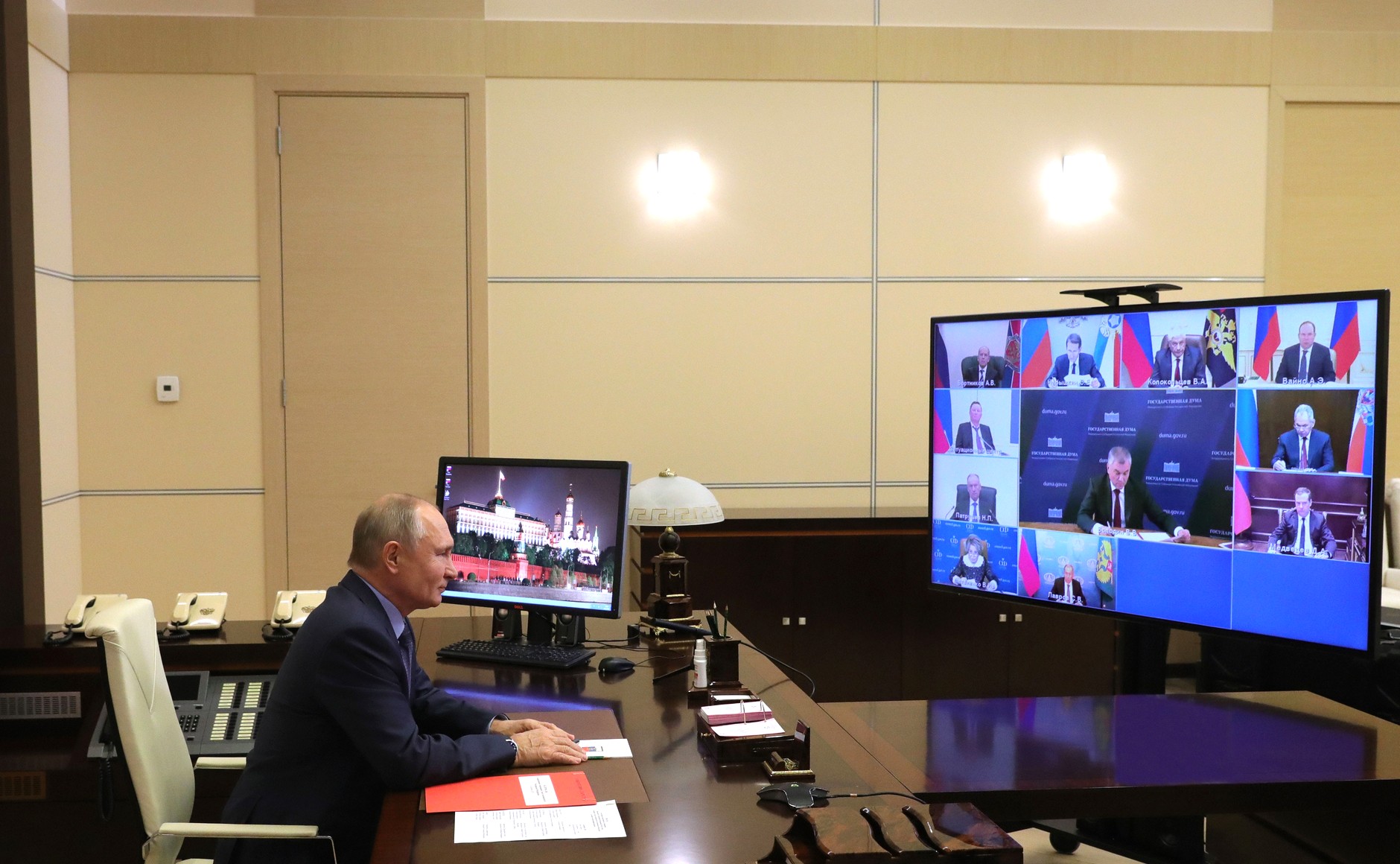 President of Russia Vladimir Putin: Good afternoon, colleagues, The New Year holiday is approaching but it is not yet here and so we continue our work. This meeting of the Security Council permanent members will focus on the current situation in the CIS. This is a very, if not the most important area of our work on the foreign policy track. These are the closest countries for us, not to mention that they are our neighbours, states with which we are connected by many things – many years, decades and even centuries of being part of a unified state. We have the most advanced economic, cultural, humanitarian, family and friendly ties with them. To sum up, this is a special area of our work on the foreign policy track. Let us listen to reports of our colleagues on different areas of this work and tailor it, if need be, to the requirements of the present time and of the incoming year of 2021. The source of information - http://en.kremlin.ru/events/president/news/64750 Condolences on the passing of George Blake Vladimir Putin expressed condolences to George Blake’s family and friends. December 26, 2020 - 14:30 The message reads, in part: “Colonel Blake was an outstanding professional of special courage and life endurance. Throughout the years of his hard and strenuous efforts he made a truly invaluable contribution to ensuring the strategic parity and the preservation of peace on the planet. Our hearts will always cherish the warm memory of this legendary man.” George Blake, a legendary Soviet agent and former MI6 officer, died aged 98. The source of information - http://en.kremlin.ru/events/president/news/64753 Congratulations to Emergencies Ministry staff and veterans on Rescue Worker’s Day Vladimir Putin sent a video message to Russian Emergencies Ministry current and former staff congratulating them on Rescue Worker’s Day. December 27, 2020 - 09:00 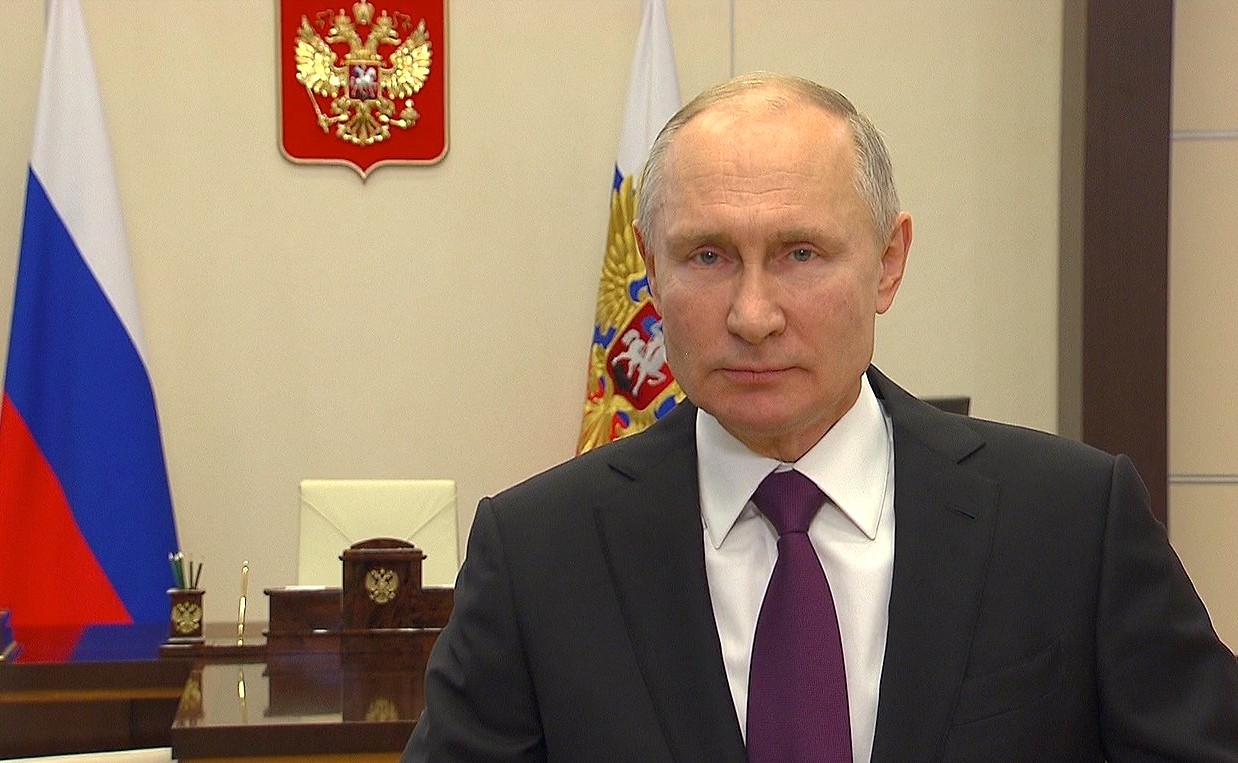 President of Russia Vladimir Putin: Friends, veterans, I would like to congratulate you on your professional holiday, Rescue Worker’s Day. The Russian Emergencies Ministry marks its 30th anniversary this year. Throughout these years and at all stages of the Ministry’s development you had one invariable key task: to protect the country’s citizens, their life, health and property from natural disasters and man-made hazards, to prevent and try to thwart them, and to promptly and efficiently help those in trouble. This work is chosen and pursued by people of special endurance, with stamina and discipline who are capable of acting resolutely and courageously, thinking out of the box, and displaying the best human qualities – mercy and sympathy, compassion and bravery. I would like to address the warmest words to the Ministry’s former workers and to thank the entire staff of the Russian Emergencies Ministry for their performance in the current year: for the professionalism they displayed during relief operations following the rains and typhoons in the Far East, the diesel fuel spill in Norilsk and other emergencies. I want to specially note your participation in fighting the epidemic of the novel coronavirus infection. Rendering humanitarian aid to Nagorno-Karabakh residents is the most complicated and noble challenge you are addressing at the moment. Let me add that in the past 30 years the Emergencies Ministry conducted over 500 humanitarian missions abroad. The whole world knows that Russia will help, send its specialists and rescuers to the worst affected places, deliver everything that is needed – food, medicines, clothes, render urgent medical help and counselling to people in desperate situations, and will do it for free, not for some political advantages. This experience should undoubtedly be used to further improve the entire Emergencies Ministry system. Much has been done to this effect. The personnel potential and technical equipment are being improved in all key segments – fire service, military rescue, search and rescue units, the mountain rescue units, the Ministry air fleet, the units ensuring safety at water facilities, and the Ministry’s Arctic centres. Overall, it is necessary to further build up the capabilities of the Russian Unified State System for Prevention and Elimination of Emergency Situations, fully utilise the advantages of modern risk forecasting methods in order to minimise damage from disasters, fires, floods, industrial accidents, and most importantly – to preserve people’s lives and health. Our country’s people take pride in you. I am confident that Russian Emergencies Ministry specialists will maintain the high standard of their performance. Thank you for your service. Once again, my greetings to you on Rescue Worker’s Day and the Ministry’s 30th anniversary. And of course, a happy forthcoming holiday season. I wish all the current and former personnel of the Russian Emergencies Ministry and their families good health and success. The source of information - http://en.kremlin.ru/events/president/news/64751 Meeting with Commissioner for Entrepreneurs’ Rights Boris Titov Vladimir Putin had a working meeting with the Presidential Commissioner for Entrepreneurs’ Rights Boris Titov. They discussed government measures to support businesses during the pandemic. December 28, 2020 - 13:30 - The Kremlin, Moscow  President of Russia Vladimir Putin: Mr Titov, you probably have a lot of questions for me. First of all, I would like to note that we have ensured that regional legislation is adopted in all the constituent territories to regulate your work and that of your colleagues involved in protecting businesses’ interests We will talk about this formal aspect of the matter separately, but I would ask you to start with your assessments of how the government-proposed business support tools work in these difficult conditions of fighting the pandemic. Presidential Commissioner for Entrepreneurs’ Rights Boris Titov: Thank you very much, Mr President. Indeed, our institute is working. And this pandemic has probably been the most difficult time for us ever, because the coronavirus has brought a lot of problems to the entire country, and especially to business, and the smallest businesses suffered worst of all. Those are businesses that directly serve consumers, in the consumer market, and that is why it was such a blow to the country's economy. But I would also like to say that we do a lot of analytical work, a sociological survey every two weeks, research on a fairly large sample. Here is the last one we just received. As many as 5,000 entrepreneurs were canvassed, and there is a variety of interesting facts. The most important information is probably that 83.7 percent of businesses have been affected by the problems caused by the coronavirus, to one degree or another. More than 50 percent of them received support, thank you very much for that. A range of support measures have been implemented. Vladimir Putin: A whole package. Boris Titov: Everyone who hoped for this support has eventually received it, and in general, we managed to maintain economic stability around the country. But I must say that, overall, the situation remains difficult. One of the questions in the poll I mentioned was if there are any restrictions in effect in your region now, and 52 percent said they had some official or informal restrictions in the region, and even some restrictions prompted by common sense . That is why most businesses are struggling, although – many thanks – we can see how you and the Government are pursuing a balanced policy with regard to those restrictions, and in general, so far, nothing is fully closed, and this is a very good step, this is probably the best and the main thing. But, unfortunately, I must say it again, the situation is still difficult. About 19 percent of respondents said their revenues dropped by over 80 percent, and 3 percent said they had closed. Three-quarters, or 76.9 percent, assess their chances of survival as 50–50, which means they feel very insecure. Only 13 percent of companies said they continued to work steadily or have actually increased their turnover. Many of the realised support measures were indeed very important and many entrepreneurs took advantage of them. And because the pandemic continues (although, of course, there is no total lockdown), today, however, many are reporting that the demand has not recovered completely and some sectors have not even reopened yet. In many regions, cinemas are closed; sport and mass public events are cancelled. These sectors have not even been able to resume operation. Therefore, today I would like to talk about the possibility of some additional measures that could slightly improve the situation for entrepreneurs at the current stage. Business people have said that right now, it would be very important to get an extension on the measures that have to do with repayment. Vladimir Putin: We have already made respective decisions. Boris Titov: Yes, but it was a three-month extension of the tax break. It should be noted that the support measure that business people have taken advantage of the most is the 2 percent recovery loan that has to be repaid only if the staff is cut down – that is, if employees were dismissed. Otherwise repayment is not required. This measure of support was perhaps the most sought after. Some 38.6 percent business people benefited from it. Vladimir Putin: I see. Boris Titov: Of all the respondents, 49.5 percent said that paying would be very difficult for them. Therefore, first, we would like to ask you to extend the payback period and, second, perhaps it would be possible to slightly relax the conditions? Because the borrower has to keep 90 percent of the staff to be exempt from paying back the loan. Vladimir Putin: There is a scale. Boris: Yes, there is a scale but those who keep 90 percent do not have to pay back anything. Perhaps it is possible to lower this bar to 80 percent? Unfortunately, many entrepreneurs are dealing with circumstances they cannot control. For example, many people are quitting their jobs because benefits have gone up. Vladimir Putin: Unemployment benefits. Boris Titov: Yes, the unemployment benefit has been raised and is rather high now. Unfortunately, small business owners cannot always retain their employees who want to quit. Vladimir Putin: We should distinguish between resignation and layoffs. I will ask the Government to think about it. Boris Titov: And, if possible, lower the bar down to 80 percent of the staff. For those who have to return half of the loan, the requirement should be 60 percent retained staff. Vladimir Putin: Alright,I will think about it. Boris Titov: Of course, taxes and tax debt restructuring in general are also important. In fact, 52.3 percent of businessmen used this support mechanism, which gave them a substantial boost, especially the 15 percent cut in social security contributions. This helped them a great deal, so I would like to elaborate on this measure a little more. The repayment deadline has been extended for three months. Unfortunately, in the current environment many will be unable to do so. According to our survey, 49.5 percent of respondents told us that they cannot pay back the money on time. Vladimir Putin: What matters here are not so much opinion surveys as the actual state in which the companies find themselves. Boris Titov: This is true. Businesses tend to complain about their hardships. This is a very difficult measure, especially if the second wave had not materialised. Vladimir Putin: We all understand this. Boris Titov: In the second quarter some debts were forgiven. Vladimir Putin: There were many restrictions, and on top of that there was a national lockdown. Boris Titov: For small businesses, what we want is to have as much of their debt for the third and fourth quarters cancelled as far as possible, so that these debts… Vladimir Putin: We will definitely look into this. I understand, and you are right to say that this is a challenging situation. We see this, and of course the Government is weighing what else can be done to support businesses and how. Thank you for highlighting this issue. Boris Titov: There is also some good news, and I wanted to share them. We carried out a research project with Sberbank. Now we can use big data not only from the Federal State Statistics Service, but also from major corporations, including financial institutions. We carried out the Small Business Development Index research project using data from Sberbank, since 60 percent of small businesses have accounts with this bank. This was not the first research project of this kind. Overall, we see that the index has increased in the third quarter compared to the second quarter, which means that small businesses are better able to make payments, as well as to pay out and increase salaries. Vladimir Putin: The reduction of insurance payments from 30 to 15 percent has led to an increase in budget revenue. Boris Titov: Yes, this is our main conclusion. Vladimir Putin: Do you confirm that this is so? Boris Titov: Figures prove this. 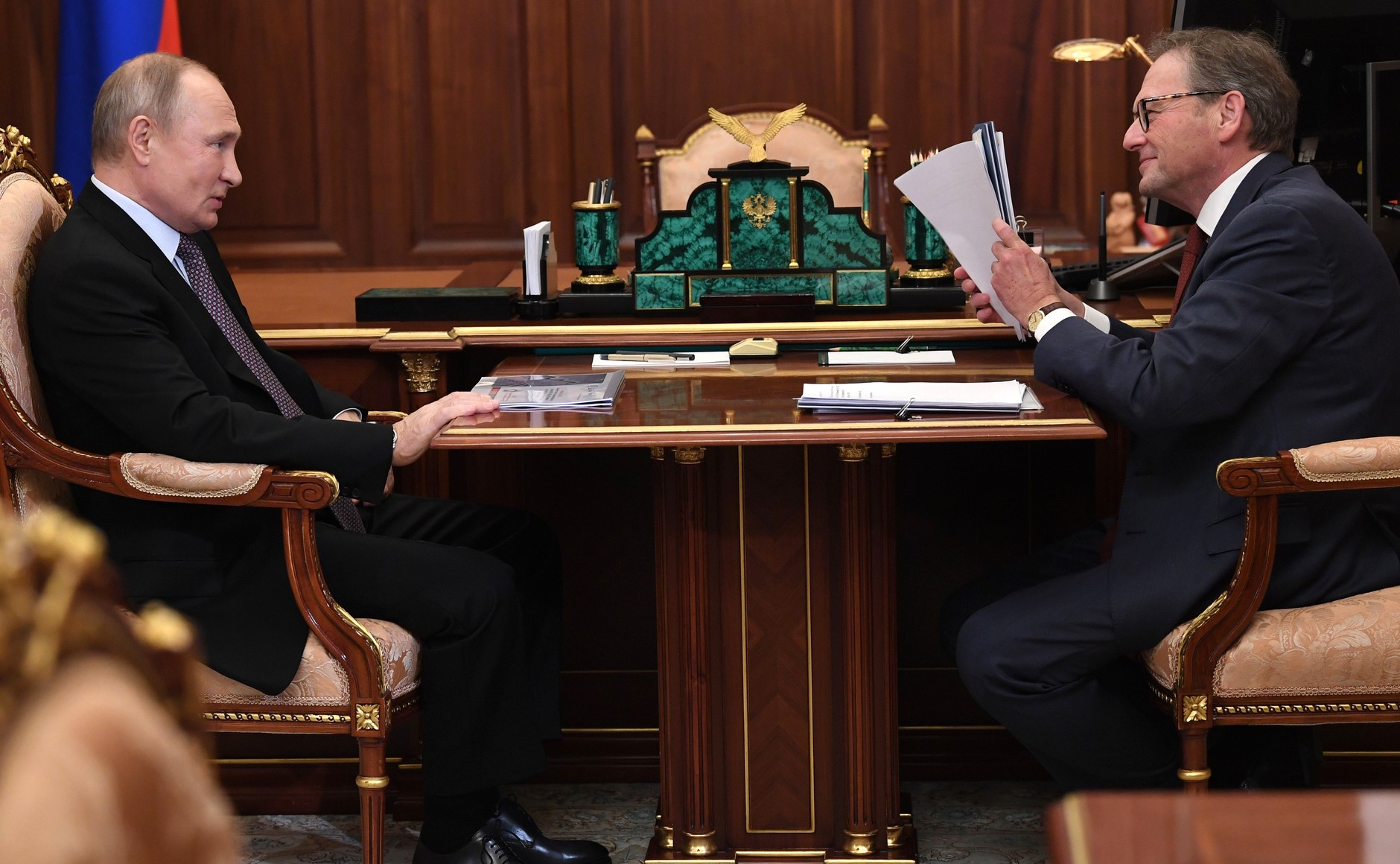 Vladimir Putin: Good. Boris Titov: Indeed, here are the figures: wages have increased by 8.3 percent, the Wage Fund by 11.3 percent, and deductions to social funds by 9 percent. If this trend persists, we will achieve a positive result for the budget and the Pension Fund in the fourth quarter. Vladimir Putin: In other words, we are moving to the white terrain. Boris Titov: This practice has shown that the burden on wages is too heavy in the country: 30 percent is too much for official insurance payments. In general, it is largely maintaining and even promoting the development of shadow wages. Vladimir Putin: I see. Boris Titov: As soon as we reduced them to 15 percent… Vladimir Putin: …wages became whiter. Boris Titov: Yes, this has become more profitable, because paying wages in cash is a complicated process. Businesses need to convert their funds into cash, which costs 12 percent. Though it is an illegal business, it still exists. This is why it has become more profitable to pay white salaries, and this is why we would like to hope that this positive practice will continue. Vladimir Putin: This is a very useful practice, and we will definitely use it. Boris Titov: It should be applied more widely, probably in several other economic sectors. Vladimir Putin: Good. Boris Titov: I would also like to talk about a matter of biggest concern to me as Commissioner for Entrepreneurs’ Rights. It concerns… Vladimir Putin: Criminal persecution? Boris Titov: Yes. Vladimir Putin: You keep raising this question. You can see that we have responded. Boris Titov: Yes, thank you very much. Actions under Article 210 of the Criminal Code have been decriminalised. Many of the recent changes have improved the situation, indeed. Regrettably, not all of the problems have been solved. Vladimir Putin: Let us talk about them. The source of information - http://en.kremlin.ru/events/president/news/64755 Telephone conversation with President of Finland Sauli Niinistö Vladimir Putin had a telephone conversation with President of the Republic of Finland Sauli Niinistö. December 28, 2020 - 13:50 The presidents exchanged warm holiday greetings. They discussed the main results of Russia-Finland cooperation in the outgoing year. The leaders expressed satisfaction with the achieved level of bilateral relations of neighbourliness and constructive partnership, which is particularly important in view of the 100th anniversary of diplomatic relations between Russia and Finland, which will be marked on December 31, 2020. They confirmed their shared intention to continue strengthening mutually beneficial cooperation in trade and the economy, as well as efficient coordination to counter the coronavirus. The presidents also discussed topical international issues, including Russia’s relationship with the European Union. They agreed to maintain contacts at different levels. The source of information - http://en.kremlin.ru/events/president/news/64756 Condolences on the Barents Sea tragedy Vladimir Putin sent a message of condolences to Murmansk Region Governor Andrei Chibis over an accident of the Onega fishing vessel. December 28, 2020 - 15:50 The message reads, in part: “It was with great sadness that I learned about the tragedy in the Barents Sea that claimed the lives of the crew members of the Onega fishing boat. “Please convey my deepest condolences to the families of the victims and words of support to the injured.” The source of information - http://en.kremlin.ru/events/president/news/64759 Telephone conversation with President of China Xi Jinping Vladimir Putin had a telephone conversation with President of the People’s Republic of China Xi Jinping. December 28, 2020 - 17:20 The presidents warmly exchanged New Year greetings and summed up the development of Russia-China relations of comprehensive partnership and strategic cooperation in the outgoing year. The leaders praised bilateral ties, stating that they have reached the highest level in history and are truly beneficial to both sides. In the context of the 75th anniversary of Victory in World War II, they emphasised that Russia and China share the same positions on the need to uphold the historical truth and results of the war. Vladimir Putin and Xi Jinping were pleased to note the effective joint efforts of their relevant agencies on countering the coronavirus pandemic and pointed to the importance of cooperation in developing and producing vaccines. In light of the 20th anniversary of the Treaty of Good-Neighborliness and Friendly Cooperation Between the Russian Federation and the People’s Republic of China in 2021, the presidents reaffirmed their shared intention to further promote cooperation in all areas, including the implementation of major joint projects on energy and industrial cooperation. They paid special attention to the cross years of Russia-China scientific, technical and innovation cooperation to be held in 2020–2021. They also expressed their willingness to step up the coordination of steps in the international arena in the interests of regional and global peace and stability. The two leaders will continue to keep in regular working contact in the future. The source of information - http://en.kremlin.ru/events/president/news/64758 Telephone conversation with Prime Minister of Israel Benjamin Netanyahu Vladimir Putin spoke by telephone with Prime Minister of the State of Israel Benjamin Netanyahu. December 28, 2020 - 18:30 The two leaders discussed topical issues of Russian-Israeli relations in various spheres and reaffirmed their mutual intention to promote comprehensive bilateral cooperation, including in the context of countering the spread of the coronavirus. The region’s problems with an emphasis on certain developments in Syria were also discussed. The leaders exchanged season’s greetings. Vladimir Putin also warmly congratulated Benjamin Netanyahu and all Israelis on Hanukkah. The sides agreed to maintain contact. The source of information - http://en.kremlin.ru/events/president/news/64760
__________________
Where should they dig the Very Deep Pit? Piglet said that the best place would be somewhere where a Heffalump was, just before he fell into it, only about a foot farther on. (c) Alan Alexander Miln |
|
|
#169 |
|
Senior Member
|
Telephone conversation with President of Tajikistan Emomali Rahmon
Vladimir Putin had a telephone conversation with President of Tajikistan Emomali Rahmon. December 29, 2020 - 13:00 The heads of state exchanged warm season’s greetings. They also reaffirmed their mutual intention to further strengthen bilateral relations of strategic partnership and alliance as well as to build up cooperation on the global stage. The source of information - http://en.kremlin.ru/events/president/news/64761 Meeting with Chairman of the Federation of Independent Trade Unions of Russia Mikhail Shmakov Vladimir Putin had a working meeting with Chairman of the Federation of Independent Trade Unions of Russia Mikhail Shmakov. December 29, 2020 - 14:00 - The Kremlin, Moscow The meeting focused on the situation in the labour market. The President and the Chairman specifically discussed the calculation of the subsistence rate and the minimum wage as well as the indexation of pensions for working pensioners. 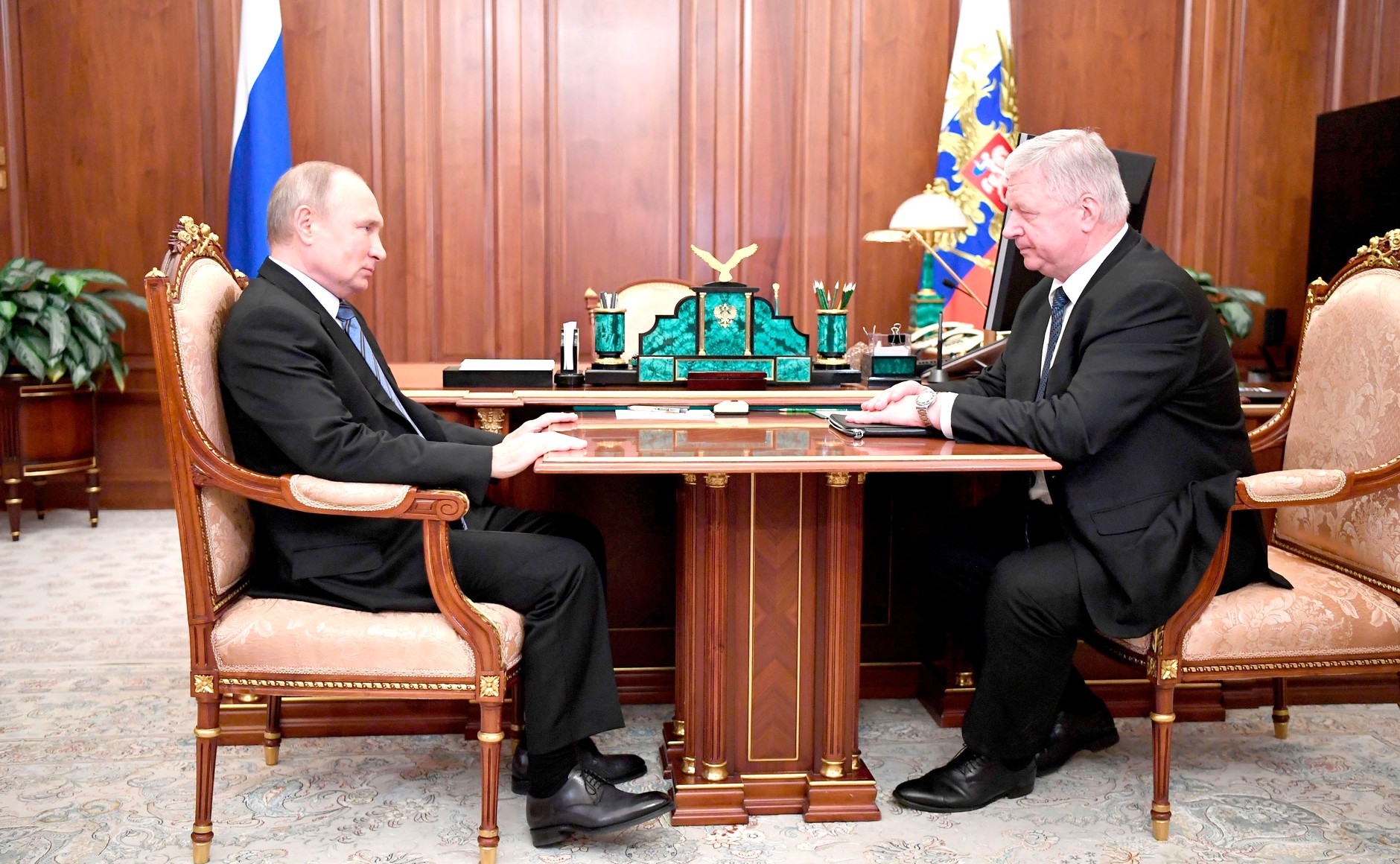 President of Russia Vladimir Putin: Mr Shmakov, as you can see, basically all of our support instruments for businesses directly relate to people. Chairman of the Federation of Independent Trade Unions of Russia Mikhail Shmakov: Yes, I am ready to support this. Moreover, I have been asked about this by the media many times, and I always say that all the measures that were taken by the Government and you as our leader were timely and very efficient. They helped us to retain the majority of jobs during the spring wave of this pandemic. Of course, now it is a little more difficult because the morbidity rate is growing faster. But I am certain that the measures being taken not only to continue the support but, most importantly, to finish the work on the vaccines and use them for vaccinating the public, will definitely help maintain the number of workers. Although Ms Popova [Head of the Federal Service for the Oversight of Consumer Protection and Welfare (Rospotrebnadzor)] reported that the number of people who contracted the disease is growing among work teams. Perhaps Rospotrebnadzor’s recommendations are not followed everywhere. And where they are followed, everybody acts responsibly, both managers and workers. We are monitoring this as well. Vladimir Putin: You know that almost all of our support measures, one way or another, and often directly, are aimed at maintaining the number of employees and not reducing staff. If a company can keep up to 90 percent of its workers, it does not have to pay back certain loans. Since the situation remains difficult for businesses, there was a request from businesses (they addressed me personally and other officials) about changing these conditions and giving them the opportunity to not pay back the loans which they were granted for maintaining jobs. Mikhail Shmakov: Lower the bar. Vladimir Putin: Lower the bar. What do you think? Mikhail Shmakov: First of all, every case is unique because there are different types of employment and different types of businesses. But in general, this high bar, 90 percent, actually forces companies to maintain jobs. But as a result, businesses are operating at a loss. Small and medium-sized businesses are suffering the most because the effective demand is declining. But by maintaining jobs and paying wages, we support the effective demand as well. Therefore, we believe this decision should be made sector by sector. Vladimir Putin: Good. I know that you are still concerned about the Government’s proposal to estimate the ratio between the subsistence minimum to the minimum wage, the median approach, right? Mikhail Shmakov: The fact is that there is indeed a need to change the methodology for determining the minimum wage and the subsistence minimum of course, because then you calculate the minimum wage based on this. Complete separation from real payments, from people’s real expenses. Today, the methodology is based on real expenses, and it is imperfect. Vladimir Putin: What about relying on average per capita income? Mikhail Shmakov: Average per capita income, yes, but nevertheless this is a mathematical interpretation of what is happening in the economy, what is happening with wages, but what methodology will be applied in order to calculate this median per capita income? In principle, we are for separating the minimum wage from the subsistence level, so that it will be possible to index it faster and more dynamically. But, on the other hand, we believe that at least some kind of transitional period should be allowed, so that we continue these calculations for now, based on the real household expenses, at least at the level of consideration by the trilateral commission. And in general, we believe there is a need to enhance the role of federal Trilateral Commission on the Regulation of Social and Labour Relations as well as regional commissions in determining these parameters based on median income and median wages, so that the opinion of trilateral commissions, both federal and regional, is taken into account in this discourse. This will help us to avoid possible mistakes. And in general, many people do not understand where the minimum wage or subsistence figures come from by calculation. That is why I believe, we believe, it should be left for consideration by trilateral commissions. Vladimir Putin: This matter is very sensitive and affects almost the entire workforce. Now, according to the Constitution, our minimum wage cannot be less than the subsistence minimum, so this must also be observed. I agree with you that at least, this requires a very thorough discussion both at the expert level and at the public level. Mikhail Shmakov: We have made our proposals. But we believe that this is a very important and indeed, as you rightly said, a sensitive matter. People ask questions. Dedicated experts understand this, but then there are questions: why was one or another coefficient applied to the median wage or to the median income? And we generally believe that there should be some kind of programme to increase this ratio. We understand that this depends on the economic situation. But the public should be a part of this at the level of specialists who sit on trilateral commissions. Vladimir Putin: This principle is applied in most of the world. Mikhail Shmakov: Yes, of course. That is why we believe this should be documented, not just left at the level of conversations and promises to take this into account some day. This must be documented. Vladimir Putin: I see. Any other questions, Mr Shmakov? 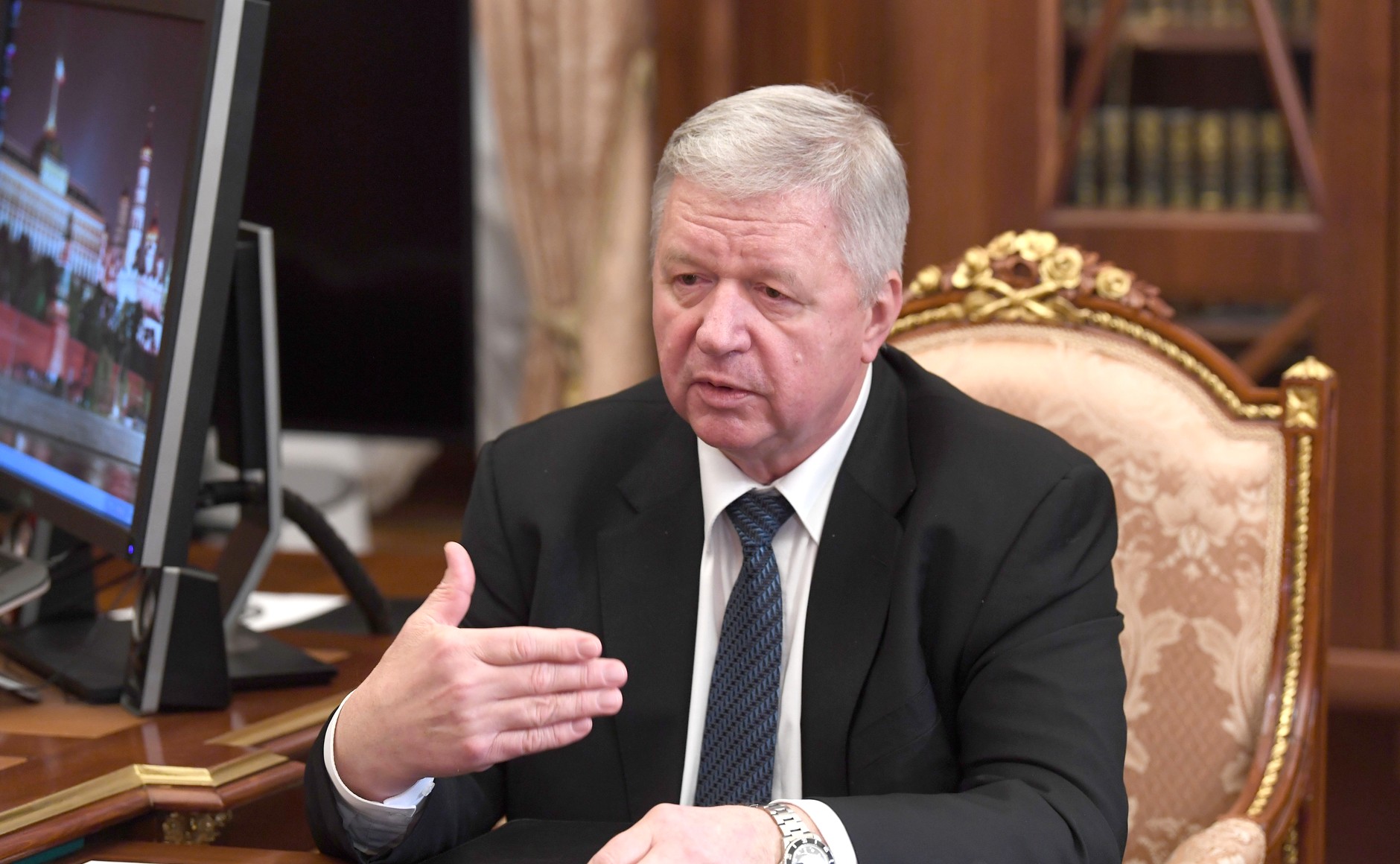 Mikhail Shmakov: Adjusting working retirees’ pensions is another issue that has been questioned in our country for a long time now. It has fomented since the amended Constitution entered into force. From day one, we believed that the decision made in 2016 was not entirely correct. Back then, the adjustment of working retirees’ pensions was suspended. Clearly, compensation factors may be applied later, but the pensioners themselves are saying that these compensations do not cover their losses. Also, this decision resulted in many employed retirees quitting their jobs. And by the way, they are also paying into the Pension Fund. So, we gained about 70 billion when we introduced this, but lost about 500 billion afterwards which are incomparable amounts of money. As a matter of fact, pensioners’ contributions to the Pension Fund cover a portion of their pensions. So, we believe we need to revisit this issue, especially since during the meeting on social issues that you held with the political parties on October 6, you issued an instruction to sort this out. Nevertheless, the Government keeps telling us that this is a settled matter, and that they will not return to it. I believe we should, though. Perhaps, the Government should be instructed to go over this issue once again, because, in fact, this is a violation of the Constitution which stipulates regular pension adjustments. It does not say anything about working or non-working pensioners, it simply stipulates pension adjustments. If a person earned their pension by contributing to the Pension Fund for a long time, there should be no discrimination, either. Vladimir Putin: They will say that it is being adjusted, but not paid out as long as the pensioner is working. Anyway, you are absolutely right when you say that this matter needs our attention. Mikhail Shmakov: Of course. We believe this matter must be taken seriously. In addition, this will also take care of major growing mistrust and tensions. Vladimir Putin: There are elements of injustice stemming from inadequate pension adjustments… Mikhail Shmakov: Technically, if we touch this, the cost will rise even more. If we go ahead with adjustments, it will entail changes in the overall approach to pensions. Perhaps, the work on pensions should also be continued. By the way, we have not achieved our main pension system goals that we set ourselves in 2012. We made some progress in that area and then stopped for various reasons. This is not to say that there was malicious intent. However, I believe that ways to improve the pension system should be further discussed. It has so far remained a blanket system, a legacy of the past. Today, we have different categories of employees who, I believe, are eligible for different but compatible pension systems. This is a very subtle matter, and specialists must continue to work on this complex matter. Vladimir Putin: Good. The source of information - http://en.kremlin.ru/events/president/news/64762 Telephone conversation with IOC President Thomas Bach December 29, 2020 - 14:25 During the telephone conversation, Vladimir Putin wished President of the International Olympic Committee (IOC) Thomas Bach a happy birthday. The head of the Russian state and the IOC president also exchanged warm season’s greetings. The source of information - http://en.kremlin.ru/events/president/news/64763 New Year greetings to foreign heads of state and government Vladimir Putin extended his greetings on Christmas and the New Year 2021 to heads of foreign states and governments, as well as executives of international organisations. December 30, 2020 - 12:00 In his message to President of the Republic of Abkhazia Aslan Bzhania, Vladimir Putin noted that relations between the two countries, which are based on the principles of alliance and strategic partnership, have been developing in a constructive manner in 2020. He expressed hope for continued joint work to build up the entire range of bilateral ties for the benefit of the peoples of Russia and Abkhazia, and in the interests of strengthening regional security and stability. The Russian leader also extended New Year greetings to President of the Republic of Armenia Armen Sarkissian and Prime Minister Nikol Pashinyan, expressing hope that the difficulties and hardships of 2020 would be a thing of the past. “It is important that we have been fully convinced of the significance of friendly, allied relations between our countries,” Vladimir Putin stressed, adding that the further development of multifaceted Russian-Armenian ties meets the fundamental interests of both peoples. In his message to President of the Republic of Azerbaijan Ilham Aliyev, Vladimir Putin noted that even during such a difficult year, both parties had a chance to see proof of the strong strategic partnership between Russia and Azerbaijan. He also expressed hope that Moscow and Baku would continue to combine efforts to build up mutually beneficial ties in all areas as this meets the fundamental interests of the peoples of the two states and is in line with strengthening peace, security and stability in the South Caucasus. In his greetings addressed to President of the Republic of Belarus Alexander Lukashenko, the President of Russia emphasised that despite the difficulties of 2020, Russia and Belarus have managed, through joint efforts, to achieve significant results in various areas. The Russian leader expressed hope that work would continue on building up mutually beneficial bilateral ties, strengthening the Union State, EAEU, CSTO, as well as the CIS, which the Republic of Belarus will soon chair. Vladimir Putin added that all this meets the interests of the two countries and is in line with strengthening security and stability in Eurasia. In his messages of greetings to President of the Republic of Kazakhstan Kassym-Jomart Tokayev and First President of the Republic of Kazakhstan and Honorary Chairman of the Supreme Eurasian Economic Council Nursultan Nazarbayev, Vladimir Putin noted progress in Russian-Kazakh relations in the spirit of strategic partnership and alliance. The President pointed out that the two countries are maintaining political dialogue at all levels, and cooperation in trade, the economy, research, technology and culture is bringing good results. Vladimir Putin also spoke positively about close coordination of Russia and Kazakhstan’s efforts within the EAEU, CSTO, CIS, SCO, as well as the UN, OSCE and other multilateral organisations. He expressed confidence that productive joint work on important issues on the bilateral, regional and international agendas will continue in the coming year. In his New Year greetings to Acting President of the Kyrgyz Republic Talant Mamytov, the President of Russia emphasised the high level of Russian-Kyrgyz relations of alliance and strategic partnership. Vladimir Putin noted that Russia and Kyrgyzstan constructively interact in the framework of Eurasian integration processes and work together to fight threats to regional and international security, including the coronavirus pandemic. The Russian President expressed hope that multifaceted cooperation between the two countries would expand in 2021 for the benefit of the Russian and Kyrgyz peoples. In his message to President of the Republic of South Ossetia Anatoly Bibilov, Vladimir Putin noted that in 2020 bilateral relations between the two countries made great strides: trade, economic and cultural cooperation expanded and joint investment projects were implemented. The President of Russia expressed confidence that in the future Russia and South Ossetia would continue the work to strengthen bilateral ties based on firm principles of alliance. The message to President of the Republic of Tajikistan Emomali Rahmon notes the progressive development of strategic partnership and alliance between Moscow and Dushanbe. “Our constructive political dialogue is expanding, and mutually beneficial projects are being implemented in various areas,” Vladimir Putin said. The President of Russia expressed confidence that productive joint work on topical issues on the bilateral agenda, as well as close coordination of efforts within the CIS, CSTO and SCO, would continue in the coming year. In his message to President of Turkmenistan Gurbanguly Berdimuhamedov, Vladimir Putin stressed that the outgoing year saw the dynamic development of bilateral relations based on the principles of strategic partnership. According to the President of Russia, much has been done to expand constructive ties in trade, the economy, energy and culture. He noted that Moscow and Ashgabat were successfully coordinating their efforts within the CIS as well as cooperating at the UN and OSCE. Vladimir Putin expressed confidence that, based on the achieved results, Russia and Turkmenistan would continue their close cooperation in bilateral and multilateral formats for the benefit of both nations and in the interest of strengthening peace and stability in Central Asia and the Caspian region. In his greetings to President of the Republic of Uzbekistan Shavkat Mirziyoyev, Vladimir Putin noted with satisfaction that in the outgoing year it was possible to ensure the consistent progress of the entire range of Russian-Uzbekistani ties, and pointed out the expansion of constructive cooperation in the political, trade, economic, cultural and many other spheres, as well as cooperation within the CIS, SCO, UN and OSCE. In addition, the President of Russia stressed that granting Uzbekistan the status of an EAEU observer state made it possible to outline new prospects for multilateral dialogue in Eurasia. In his greetings to President of the Argentine Republic Alberto Fernandez, Vladimir Putin stated that this year, Russia and Argentina, like the entire international community, faced the global pandemic, and in these times, it was especially important that Moscow and Buenos Aires established close cooperation to counter the spread of the coronavirus infection, including signing agreements on shipping the Russian vaccine to Argentina. The President of Russia expressed confidence that Russia and Argentina would continue to further develop productive cooperation in healthcare and other key areas as well as coordinate their efforts within the UN, G20 and other multilateral bodies. In his greetings to President of the Federative Republic of Brazil Jair Bolsonaro, the President of Russia stressed that the positive dynamics of Russian-Brazilian cooperation has been preserved throughout the outgoing year. Vladimir Putin also noted that Moscow and Brasilia coordinated their efforts within the BRICS, G20 and other multilateral associations. He expressed hope that the two countries would be able to ensure the further development of strategic partnership for the benefit of the peoples of Russia and Brazil and in the interests of strengthening international security and stability. Extending season’s and birthday greetings to Prime Minister of Canada Justin Trudeau, Vladimir Putin wished Mr Trudeau, his family and the nation of Canada happiness, prosperity, and success. In his message of greetings to President of the People's Republic of China Xi Jinping on the occasion of the New Year and the upcoming Spring Festival, Vladimir Putin noted that Russia-China relations of comprehensive partnership and strategic interaction continued to expand dynamically during the outgoing year, and frequent contact was maintained between the respective governments, parliaments, ministries and agencies. The President noted the successful start of a major project for holding Years of Russian-Chinese Scientific, Technical and Innovative Cooperation. In addition, the message emphasises that despite the difficulties caused by the coronavirus infection, the two countries managed to maintain a high level of trade and economic ties. The President of Russia also pointed out that Moscow and Beijing closely coordinated their efforts in addressing key issues on the regional and global agendas, and acted together at the UN, SCO and BRICS. “I am confident that the upcoming year will be marked by new achievements in our joint work to promote the entire range of bilateral relations in the spirit of the Treaty on Neighbourliness, Friendship and Cooperation, the 20th anniversary of which we will be marking soon,” Vladimir Putin stressed. In his message to President of the Republic of Croatia Zoran Milanovic, the President of Russia stated that the outgoing year was marked by major challenges both for the two countries and the entire international community, primarily those related to the coronavirus pandemic. In this regard, Vladimir Putin especially stressed the importance of preserving the constructive nature of Russian-Croatian relations and expressed confidence that further development of bilateral political dialogue, trade, economic and cultural ties meets the interests of the peoples of Russia and Croatia. The Russian President sent a message of greetings to President of the Republic of Cuba Miguel Diaz-Canel and First Secretary of the Central Committee of the Communist Party of Cuba Raul Castro on the occasion of Cuba’s national holiday, Liberation Day, and on Christmas and the New Year. He noted progress in Russian-Cuban relations in the spirit of a comprehensive strategic partnership: “Promising joint projects are being implemented as planned. Researchers and doctors from our countries are joining efforts as they continue to fight the coronavirus infection.” Vladimir Putin also noted that granting Cuba an observer state status at the EAEU opens up new opportunities for expanding mutually beneficial trade and economic ties. The President also expressed hope for continued productive bilateral cooperation in various areas. The President sent greetings to President of the Czech Republic Milos Zeman on Christmas and the New Year and expressed confidence that bilateral relations based on the principles of mutual benefit and mutual respect would meet the fundamental interests of the peoples of Russia and the Czech Republic. In his message to President of the Republic of Finland Sauli Niinistö, Vladimir Putin noted that Russia and Finland are marking the 100th anniversary of diplomatic relations. The President of Russia emphasised that the two countries had gained extensive experience of cooperation, and – despite the pandemic-related challenges – Moscow and Helsinki maintain a constructive dialogue in many areas. “I am positive that further strengthening of friendly and neighbourly Russian-Finnish ties fully meets the interests of the two countries’ peoples,” the President noted. The President sent Christmas and New Year greetings to President of the French Republic Emmanuel Macron, noting that the outgoing year was quite challenging and full of trials ranging from terrorist attacks to the coronavirus pandemic. Given these circumstances, the presidential message says, a direct and candid dialogue, which made it possible to discuss in detail many important issues on the bilateral and international agendas, was of particular importance. Vladimir Putin expressed hope that Russia and France would continue to work together in the interests of promoting bilateral ties and strengthening stability and security in Europe. The Russian President sent Christmas and New Year greetings to Federal President of the Federal Republic of Germany Frank-Walter Steinmeier and Federal Chancellor of Germany Angela Merkel. Vladimir Putin noted in his messages that Russian-German relations are very important for both countries and are of the essence for stability and security in Europe. He also expressed hope that in 2021, Russia and Germany would be able to advance bilateral cooperation in various fields, as well as cooperation in solving pressing problems on the international agenda. In his message of Christmas and New Year greetings to Prime Minister of the Hellenic Republic Kyriakos Mitsotakis, Vladimir Putin stressed that Russian-Greek relations rely on centuries-old traditions of friendship, and cultural and spiritual closeness. The Russian leader also expressed hope that in the coming year, the two countries would be able to ensure the constructive development of bilateral ties for the benefit of the peoples of Russia and Greece and all of Europe. In his congratulatory message to Hungarian Prime Minister Viktor Orban, Vladimir Putin noted: “It is important that, despite the difficulties associated with the coronavirus pandemic, Russian-Hungarian relations continued to develop successfully; we are maintaining a constructive political dialogue and are implementing significant energy-related projects together.” The President of Russia expressed hope that in the coming year Russia and Hungary would continue to interact on all current issues on the bilateral agenda. In his greetings to President of the Republic of India Ram Nath Kovind and Prime Minister of India Narendra Modi, the President of Russia noted that Russia and India were connected by relations of privileged strategic partnership, which, despite this year’s difficulties and problems, including the coronavirus pandemic, are developing confidently. Vladimir Putin stressed that the two countries maintain a substantive political dialogue and carry out promising joint projects in various spheres, while cooperation within the SCO and BRICS yields good results. Vladimir Putin expressed hope that next year Russia and India would continue to work towards stepping up constructive bilateral cooperation as well as coordinating efforts to address topical issues on the regional and global agendas. In his message of New Year greetings to Prime Minister of the State of Israel Benjamin Netanyahu, Vladimir Putin noted that Russia attaches great importance to friendly relations with Israel. The Russian President expressed hope that in 2021, the two countries will continue to work together to expand the entire range of bilateral ties, as well as cooperate in solving urgent problems on the regional and global agenda. This undoubtedly meets the fundamental interests of the peoples of the two states, and is in line with ensuring security and stability in the Middle East. Addressing President of the Italian Republic Sergio Mattarella and Prime Minister of Italy Giuseppe Conte, Vladimir Putin stressed that Russia attaches particular importance to relations with Italy. “The outgoing year was quite difficult for our countries as well as for the entire international community. It is crucial that during the escalation of many challenges, including the coronavirus pandemic, Russia and Italy continued to closely cooperate in accordance with the traditions of friendship and mutual assistance that characterise our bilateral relations,” the President of Russia noted in the message. He also expressed confidence that the development of productive bilateral cooperation in various areas as well as partnership cooperation in international affairs would be in line with the deep-rooted interests of both nations and all of Europe. In his message to Prime Minister of Japan Yoshihide Suga, the President of Russia noted the importance of maintaining the dynamics of Russian-Japanese relations in the outgoing year. As the President emphasised, the roadmap for stepping up trade and investment cooperation was of great importance in this context. Vladimir Putin reiterated his commitment to a constructive dialogue and joint work in order to address important issues on the bilateral agenda and to strengthen stability and security in the Asia-Pacific region. Greeting the President of the Republic of Korea Moon Jae-in on Christmas and the New Year, the President of Russia said that the outgoing year marked the 30th anniversary of Russian-Korean relations, and expressed confidence that acting on bilateral agreements would give a boost to developing constructive cooperation in many areas and partnership to ensure peace and security on the Korean Peninsula and in Northeast Asia in general. In addition, Vladimir Putin said that he would use the invitation by the President of the Republic of Korea to pay an official visit to Seoul, the sanitary and epidemiological situation permitting. In his greetings to President of the Republic of Moldova Maia Sandu, Vladimir Putin noted that developing friendly Russian-Moldovan relations and mutually beneficial cooperation in various areas would meet the two countries’ long-term interests. In his message of greetings to Sovereign Prince of Monaco Albert II, Vladimir Putin expressed his hope that, despite the challenges the two countries had to address, including the coronavirus pandemic, mutually beneficial cooperation between Russia and Monaco would develop successfully. The President of Russia extended New Year and Christmas greetings to President of the Republic of Serbia Aleksandar Vucic, emphasising the importance of the relations of strategic partnership between the two countries that allow them to join efforts to stand up to today’s threats and challenges, including the coronavirus pandemic. He expressed the hope that Russia and Serbia would continue to cooperate closely in all key areas and would be able to successfully implement existing agreements and carry out joint projects. Addressing President of the Republic of Slovenia Borut Pahor, Vladimir Putin noted that relations between Russia and Slovenia were based on the good traditions of cultural and spiritual affinity. The Russian President expressed his belief that in the new year Russia and Slovenia would ensure constructive development of the dialogue and cooperation between the two countries which would undoubtedly meet the interests of their countries’ peoples and all of Europe. In his message to President of the Republic of South Africa Cyril Ramaphosa, the Russian President noted, “Despite the fact that the international community faced a serious challenge in the outgoing year – the coronavirus pandemic – Russia and South Africa continued constructive interaction, including in the context of implementing the agreements signed following our meeting in Sochi.” The President expressed confidence that Moscow and Pretoria would continue to build up productive cooperation in the political, trade, economic, cultural and other spheres, as well as to coordinate their efforts within BRICS, G20 and other multilateral organisations. The President of Russia sent season’s greetings to King Felipe VI and Queen Letizia of Spain expressing hope that the next year would be good for bilateral cooperation and would open new opportunities for developing mutually beneficial cooperation between the two countries. In his message of greetings to Prime Minister of the Kingdom of Sweden Stefan Löfven, the President noted that 2020 was a challenging year for Russia and Sweden as well as for the rest of world, and expressed confidence that joint efforts would make it possible to effective cope with the coronavirus pandemic and other challenges. “I hope that Russian-Swedish relations will expand constructively in the coming year,” Vladimir Putin added. In his message of greetings to President of the Syrian Arab Republic Bashar al-Assad, the Russian leader expressed his hope that the next year would bring long-awaited stability to Syria, along with new achievements in the peaceful development of the country. Vladimir Putin noted that Russia was committed to further providing all possible assistance to Syria in securing a final settlement of the crisis in that country and addressing its consequences, and also to working jointly to further foster the diversified cooperation between Russia and Syria. In his New Year greetings to President of the Republic of Turkey Recep Tayyip Erdogan, Vladimir Putin noted with satisfaction the progress in Russian-Turkish relations across all key areas. The President of Russia said that despite the challenging sanitary and epidemiological situation, a meaningful political dialogue is being maintained, important joint energy projects are being implemented as scheduled and high level of cooperation in trade, the economy, defence and other areas is being maintained. The Russian leader expressed confidence that in the coming year, Moscow and Ankara would continue to productively interact on important issues on the bilateral, regional and international agendas, which fully meets the interests of the peoples of Russia and Turkey and is in line with strengthening stability and security in Eurasia. In his congratulations to Queen Elizabeth II of the United Kingdom of Great Britain and Northern Ireland and to Prime Minister of the United Kingdom Boris Johnson, the Russian head of state stressed that the development of Russian-British relations based on the principles of equality, mutual respect and consideration for each other's interests would help solve many key problems of our time, as well as strengthen security and stability in Europe and in the world as a whole. The Russian President extended Christmas and New Year greetings to President of the United States of America Donald Trump and wished him and his family good health, high spirits and well-being, and happiness and prosperity to all people in the United States. In his Christmas and New Year greetings to President-elect of the United States of America Joseph Biden, Vladimir Putin noted that the coronavirus pandemic and other challenges which the world faced in the outgoing year testified to the importance of broad international cooperation. The Russian President expressed the hope that by building a relationship in the spirit of equality and consideration for each other’s interests, Russia and the United States could contribute much to enhancing stability and security at the regional and global levels. In his Christmas and New Year greetings to His Holiness Pope Francis, the President noted that the outgoing year had not been easy, but Russia and the Holy See continued to conduct a meaningful dialogue based on similar approaches to key topical problems. Vladimir Putin expressed confidence that thanks to their joint efforts, Russia and the Vatican would be able to do a lot to protect humanistic values and moral principles in world politics, and to strengthen peace and stability in the world. In his greetings to President of the Bolivarian Republic of Venezuela Nicolas Maduro, Vladimir Putin stated that in 2020 much had been done to strengthen the Russian-Venezuelan strategic partnership. The Russian President noted the implementation of important projects in the energy, trade, economic and other sectors, as well as the two countries’ joint coronavirus response efforts. The Russian leader expressed hope for the continuation of joint work to develop bilateral ties and further coordination of efforts in the international arena. The President of Russia extended greetings on the New Year 2021 and on the coming Tet Holiday, the Vietnamese Lunar New Year, to General Secretary of the Central Committee of the Communist Party of Vietnam and President of the Socialist Republic of Vietnam Nguyen Phu Trong. In his message, Vladimir Putin noted the importance of maintaining the positive dynamics of Russian-Vietnamese ties in various areas despite the difficulties arising from the coronavirus pandemic. He expressed confidence that through joint efforts of Russia and Vietnam, it would be possible to ensure the further build-up of the comprehensive strategic partnership, which fully meets the interests of the two countries’ friendly peoples and is in line with strengthening peace, security and stability in the Asia-Pacific region. The President sent New Year’s greetings to a number of heads of international organisations, in particular, UN Secretary-General Antonio Guterres, Managing Director of the International Monetary Fund Kristalina Georgieva, President of the International Olympic Committee Thomas Bach, Honorary President of the International Olympic Committee Jacques Rogge and Honorary Member of the International Olympic Committee Jean-Claude Killy. The Russian leader also sent greetings to President of the International Judo Federation Marius Vizer, President of the International Federation of Association Football (FIFA) Gianni Infantino, President of the International Ice Hockey Federation Rene Fasel, and President of the Union of European Football Associations (UEFA) Aleksander Čeferin. In addition, Vladimir Putin extended Christmas and New Year greetings to a number of former heads of foreign states and governments as well as political figures, in particular, Shinzo Abe, Silvio Berlusconi, George W. Bush, Robert Kocharian, Romano Prodi, Serzh Sargsyan, Nicolas Sarkozy, Francois Fillon, Tarja Halonen, King Juan Carlos I and Gerhard Schroeder. The source of information - http://en.kremlin.ru/events/president/news/64784 Telephone conversation with President of Kazakhstan Kassym-Jomart Tokayev Vladimir Putin had a telephone conversation with President of the Republic of Kazakhstan Kassym-Jomart Tokayev. December 30, 2020 - 12:20 The two leaders exchanged New Year greetings and warm wishes. They expressed satisfaction regarding the development of the strategic partnership and alliance between Russia and Kazakhstan and touched upon a few practical aspects of bilateral cooperation, focusing specifically on the need to further step up joint efforts to combat the coronavirus pandemic, in particular, to set up the production of Russian vaccines in Kazakhstan. The source of information - http://en.kremlin.ru/events/president/news/64798 Telephone conversation with President of Uzbekistan Shavkat Mirziyoyev Vladimir Putin had a telephone conversation with President of the Republic of Uzbekistan Shavkat Mirziyoyev. December 30, 2020 - 13:00 The two leaders exchanged warm season’s greetings. Both sides reaffirmed their intention to further strengthen the relations of alliance and strategic partnership between Russia and Uzbekistan and expand mutually beneficial cooperation, above all in trade and the economy. Uzbekistan’s CIS presidency in 2020 was highly praised. Moreover, emphasis was placed on the importance of Uzbekistan being granted observer status in the Eurasian Economic Union. The source of information - http://en.kremlin.ru/events/president/news/64805 Meeting with Prime Minister Mikhail Mishustin Vladimir Putin held a meeting, via videoconference, with Prime Minister Mikhail Mishustin to discuss infrastructure and transport development. December 30, 2020 - 13:30 - Novo-Ogaryovo, Moscow Region 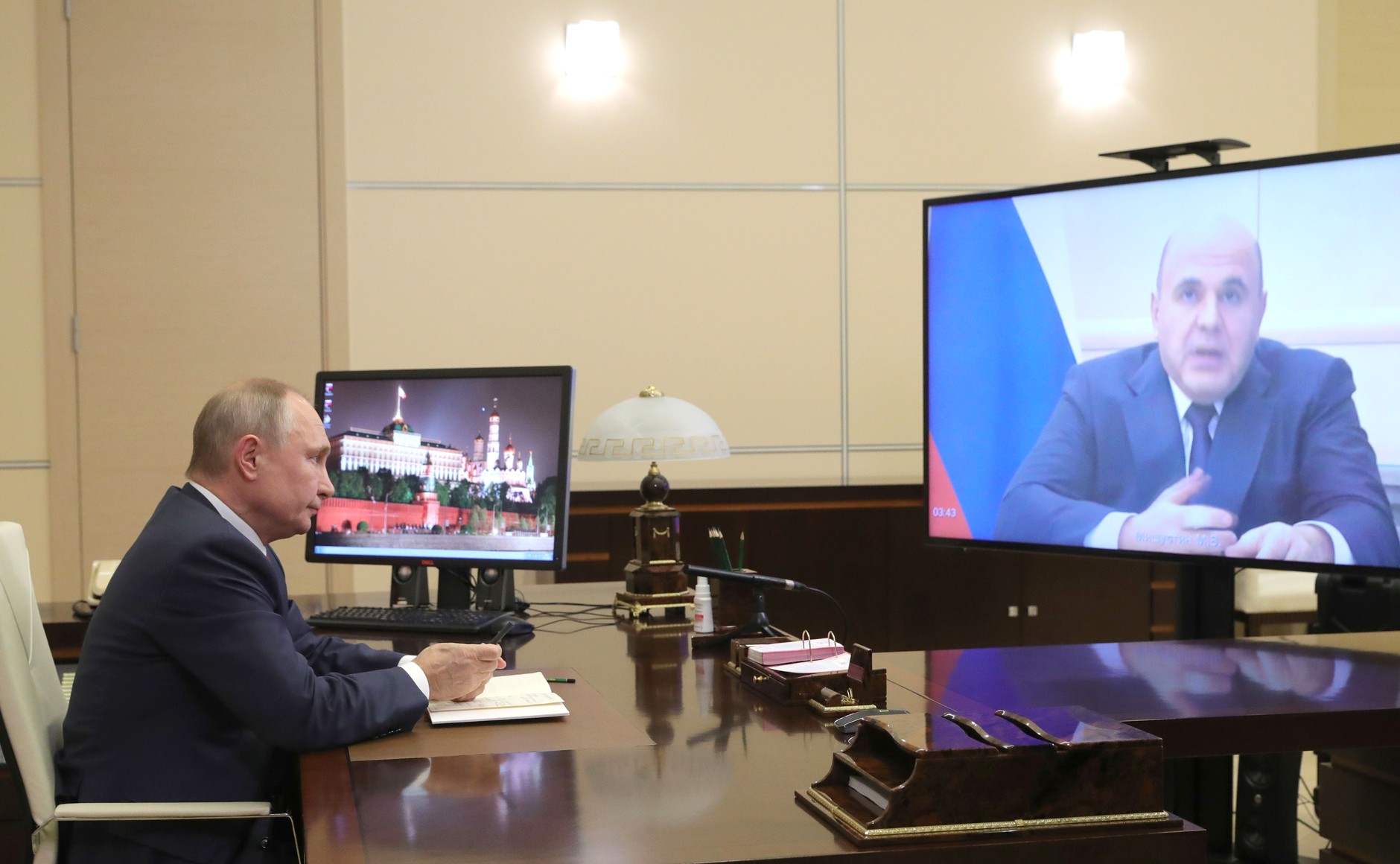 President of Russian Vladimir Putin: Good afternoon, Mr Mishustin, We have recently discussed the country’s spatial development which includes the development of transport and expanding transport corridors. I talked about the need to crosslink the country and to help people get from point A to point B based on their purchasing power. I am aware that the Government has already drafted a number of decisions on this account, and I would like you to tell me more about it. Prime Minister Mikhail Mishustin: Mr President, We have worked through your instructions on transport connectivity, which you issued during a joint meeting of the State Council and the Council for Strategic Development and National Projects. You pointed out the need for infrastructural crosslinking of our country’s vast territory and expanding transport links so that people can travel easily and hassle-free between the regions. Russian Railways plays a key role here. At a Government meeting held on December 24, we reviewed the company's investment programme, took into account all amendments and comments, and today, approved the Russian Railways’ financial plan and investment programme. Its volume for the next three years exceeds 2 trillion rubles, including over 730 billion rubles to be invested in expanding railways next year. Importantly, next year we plan to complete a package of measures of the first stage of developing railways in the Far East, which we refer to as the Eastern Operating Domain project – the Baikal-Amur Mainline (BAM) and the Trans-Siberian Railway. The second phase has started to increase the throughput capacity of the BAM and the Trans-Siberian Railway to 180 million tonnes by 2024 and ensure fourfold growth in transit container traffic. The delivery time from the Far East to our western borders will be cut to seven days. The approaches to seaports in northwestern and southern Russia, as well as the central transport hub and southern cluster, will also be improved and expanded. The issues raised by the industry participants and representatives of ministries and agencies were taken into account in the programme which made it quite balanced. Mr President, you also issued instructions to develop air transport in the Far East. I would like to report that the Government has completed a vital phase in the creation of a united Far Eastern airline. A controlling stake in the Aurora Airline has been transferred to the Government of the Sakhalin Region, which has become the sole owner of that strategic air carrier, and 10 Far Eastern regions will become shareholders in the merged company in return for consolidating their aviation assets. The new unified Far Eastern air carrier will use modern Russian planes, modern technology and a flexible system of route management. The united airline is facing challenging tasks: within the next four years, it must increase its traffic to 2 million passengers and the number of routes to more than 1,500. This will allow us to create a single regional network in the Far East and to launch direct flights between cities in that federal district without the necessity to make connecting flights to Moscow or other large cities. Of course, it is vital to offer local residents an opportunity to travel around Russia, including in their own and other regions of the country, as you have pointed out more than once. During the visit to the Far East last summer, we talked about the importance of this for local residents. Of course, the main support measure in this sphere is the programme of subsidised flights to the Far Eastern Federal District. Thanks to this programme, people can buy tickets at an affordable price of some 8,000 rubles. These subsidised tickets are available to students, pensioners, people with disabilities, with attendants, as well as large families. Mr President, we have carefully worked out all the methods which can make flights affordable for more residents of the Far East and prepared our proposals. If you approve them, we are ready to allocate another 5 billion rubles to subsidise flights for the Far East residents, so that they can buy tickets for the most popular routes, of which there are approximately 21. This will allow us to transport an additional 450,000 people a year and the average one-way ticket for local residents will cost 10,200 rubles. If you approve our proposals, the Government will continue working to develop transport communications not only in the Far East but throughout the country. Here is one more important piece of news for the transport industry, including in the Far East, where helicopters are widely used to transport passengers and medical personnel and for search and rescue operations. The upgraded Ansat light multipurpose helicopter made its maiden flight yesterday. It is a fully Russian-made aircraft, as you are well aware, which can be used for virtually any purpose. We plan to start delivering it to Russian air carriers already next year. This is the breaking news I planned to tell you. 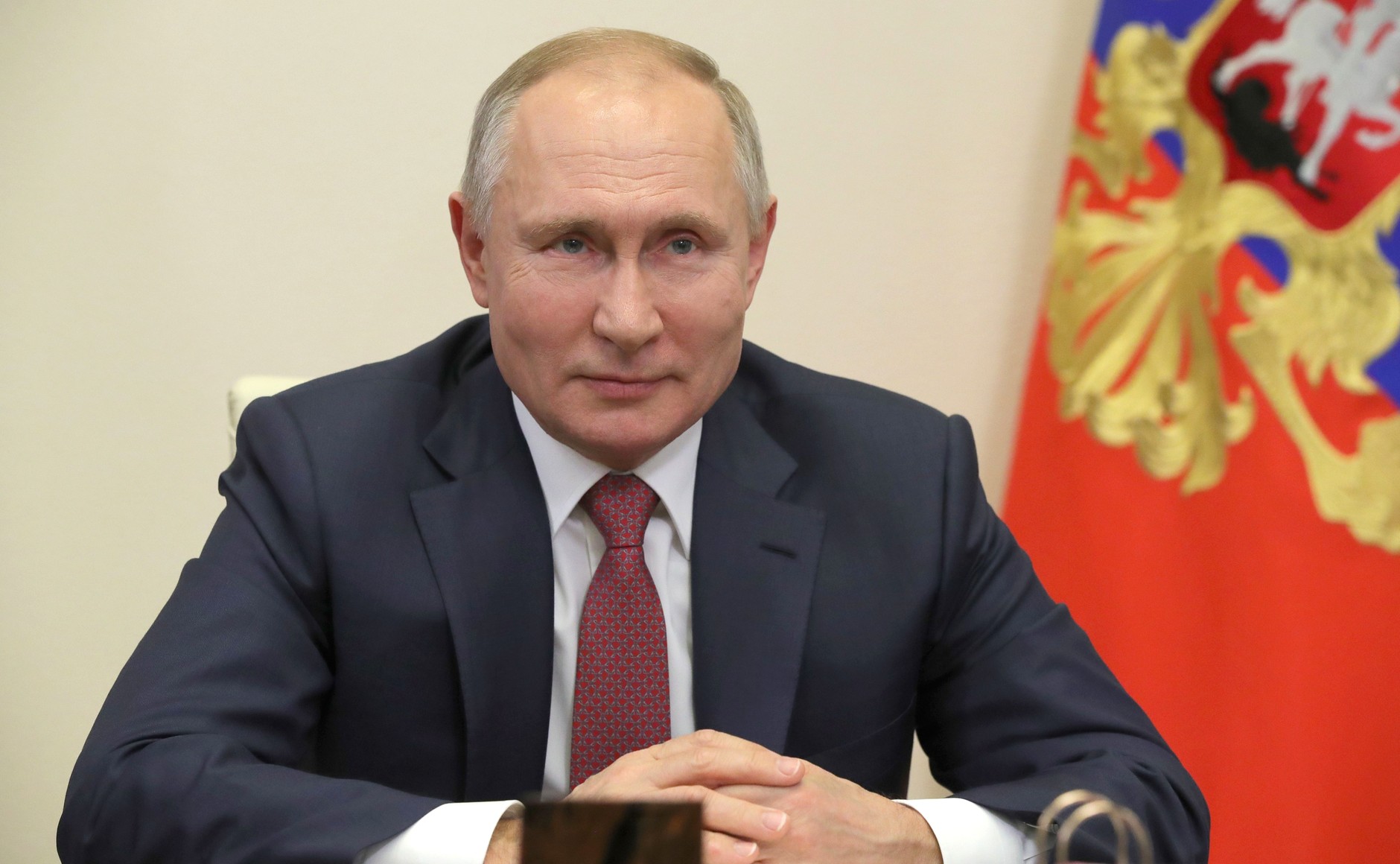 Vladimir Putin: This is good news and a good gift for people in the Far East. Thank you very much for your prompt response to my instruction. You also mentioned the creation of a regional Aurora airline on the basis of the existing division of Aeroflot, our leading company. As far as I remember, Aeroflot's share was supposed to be valued at 1 ruble. Mikhail Mishustin: Correct. Sakhalin got the block of shares for a low price of 1 ruble. Vladimir Putin: The airfare for a flight from the Far East is 10,200 rubles. As I understand it, you were talking about Vladivostok. Today, as far as I remember, the airfare is 16,250 rubles, so this is a noticeable cut, thank you very much. Yes, I know, Ansat has flown. Please, do not forget about other aircraft, such as Mi-38. It holds a lot of promise for our market, and is also a good export item. It has a decent speed of 300 kilometres per hour, the seating capacity is good, and it is a comfortable helicopter overall. Heavy helicopters should be kept in mind. They should be upgraded and used. You mentioned certain transport corridors, including the Eastern Operating Domain, the Baikal-Amur Mainline and the Trans-Siberian Railway. They are of critical importance for our economy. You also mentioned container transport. Indeed, the head of Russian Railways reported to me quite recently that they had run the first trains at a higher speed, and this is a very lucrative and competitive route for transporting cargo from the Far East and the Asia-Pacific region to Europe. This is a very competitive route and it must be supported in every way. With regard to the Baikal-Amur Mainline and the Trans-Siberian Railway, I am aware that the money has been set aside, and it must be put to good use, because this route is important to our miners. I am aware of the possibility and the plan to send some coal from Kuzbass to the Azov-Black Sea basin. We are aware of what is happening on the EU market, so the Asia-Pacific region holds more promise. In this sense, it must be expanded. You are aware of it, as we have already discussed this many times. The tunnel must be built, and so on. There are things to work on. We must not forget about the motorway corridors, such as Europe – Western China or Western China – Europe, which goes all the way to St Petersburg. As you may recall, Kazakhstan has almost completed its part of the project. We must get ours done by 2024 at the latest. 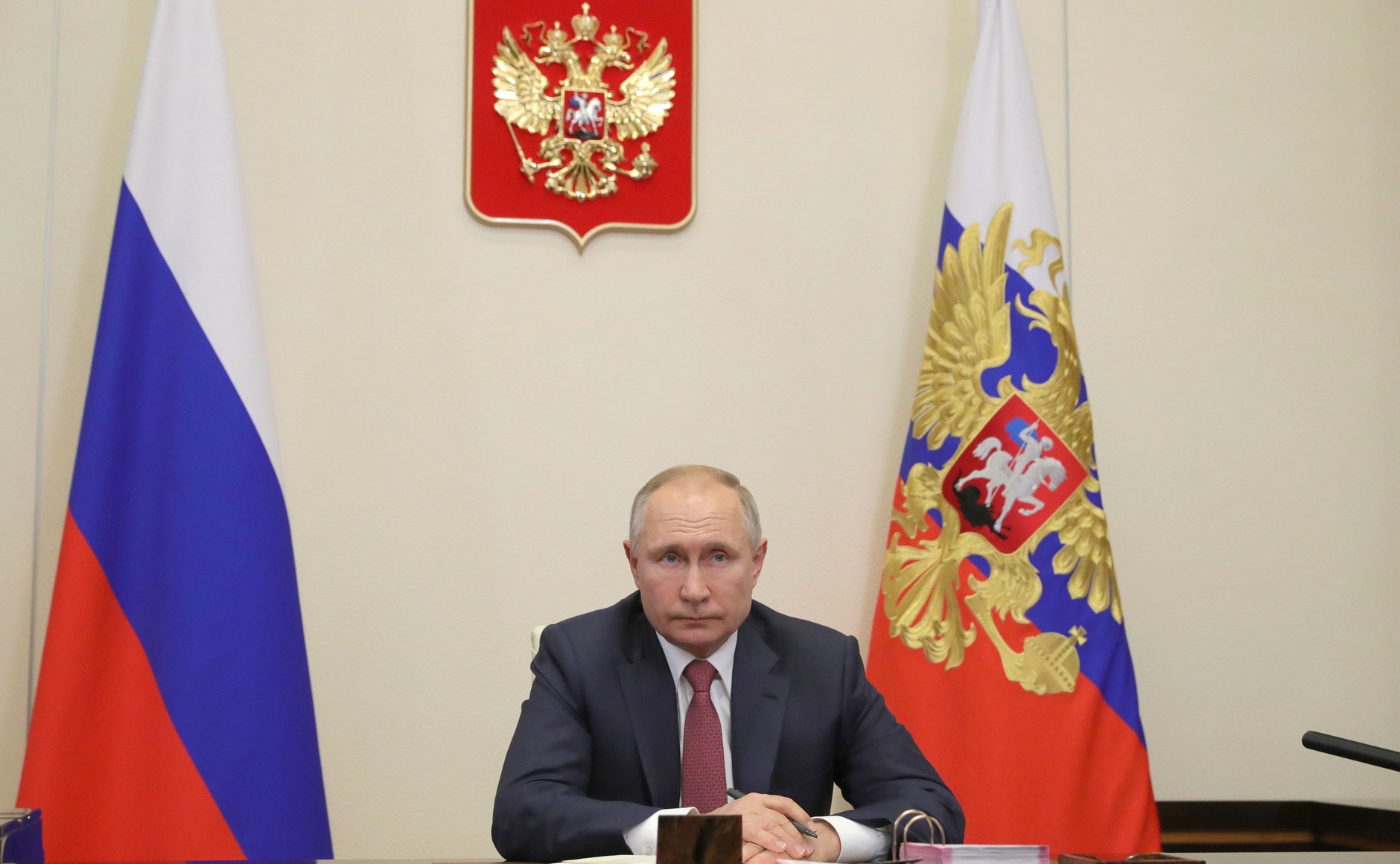 The second route, North to South, also goes from St Petersburg to Moscow and further to Astrakhan and Daghestan. We need this route, and we must definitely work on it. Please, do not forget about the approaches to the Crimean Bridge. There are two main options: bypassing Krasnodar and then Temryuk to Taman and the other option – bypassing Rostov and then Krasnodar as well. It is very important, I would also like to thank all our colleagues from the Government for their hard work to secure the appropriate amount of financing for the Russian Railways’ investment programme. It is important for rail passenger transport, for the rail passenger company, and it is also important for commuter rail traffic, because the rolling stock for that service needs to be replaced in a timely manner. It is also important for traction stock, 500 locomotives annually for the next three years. So it is an important, timely and necessary decision. I hope that it will be implemented and of course, I ask you to keep this matter under your personal control. We have spoken about the need to ‘stitch’ the country together, but with such a territory as Russia’s, this cannot be done without aviation of course – this is absolutely obvious. We need to develop an entire chain of domestic aviation equipment that will serve our citizens. And we need to start with the small aircraft. We need to finally replace the An-2s. There is the Baikal, a small capacity aircraft, with 9 seats designed by the Ural design bureau; it is going to be manufactured in Ulan-Ude, 9 seats. The prototype should be ready in 2021, and in 2024, commercial production should begin, and the plane should fly in the first quarter. Next in line is the L-410, with 19 seats, and the L-610 with 44 seats, it should also fly in 2024. I hope that production will be set up in Yekaterinburg. Then there is the Il-114–300, it has already taken off on a flight, powered by the domestically produced PD-14 engines, and this is very important. We specifically allocated money at the first stage, even took the necessary funds from Rosneftegaz to launch the project. We definitely cannot lose it. The 95-seat Superjet has been flying for several years. We need to make every effort towards the MS-21 with the PD-14 engine so that it will go into production at the beginning of 2023 and be ready for use. While we are on the subject of PD-14, I ask you to keep in mind the next engine, the PD-35, with a thrust of 35 tonnes. We need to help our engine manufacturers. First, I want to congratulate them on the PD-14 engine, because we have not delivered such a product for almost 30 years, I think, since the late 1980s, and that was done in the Soviet Union, and then they were not produced in Russia after that. The PD-35, with a thrust of 35 tonnes, is a promising model, and should be ready by 2027, but we have been planning it for wide-body aircraft. Even if it is not ready by that time (these products have a long manufacturing cycle), we still need to work on the engine. It could be used in an extended version of the Il-96, but we need to help the engine manufacturers to bring this work to completion. 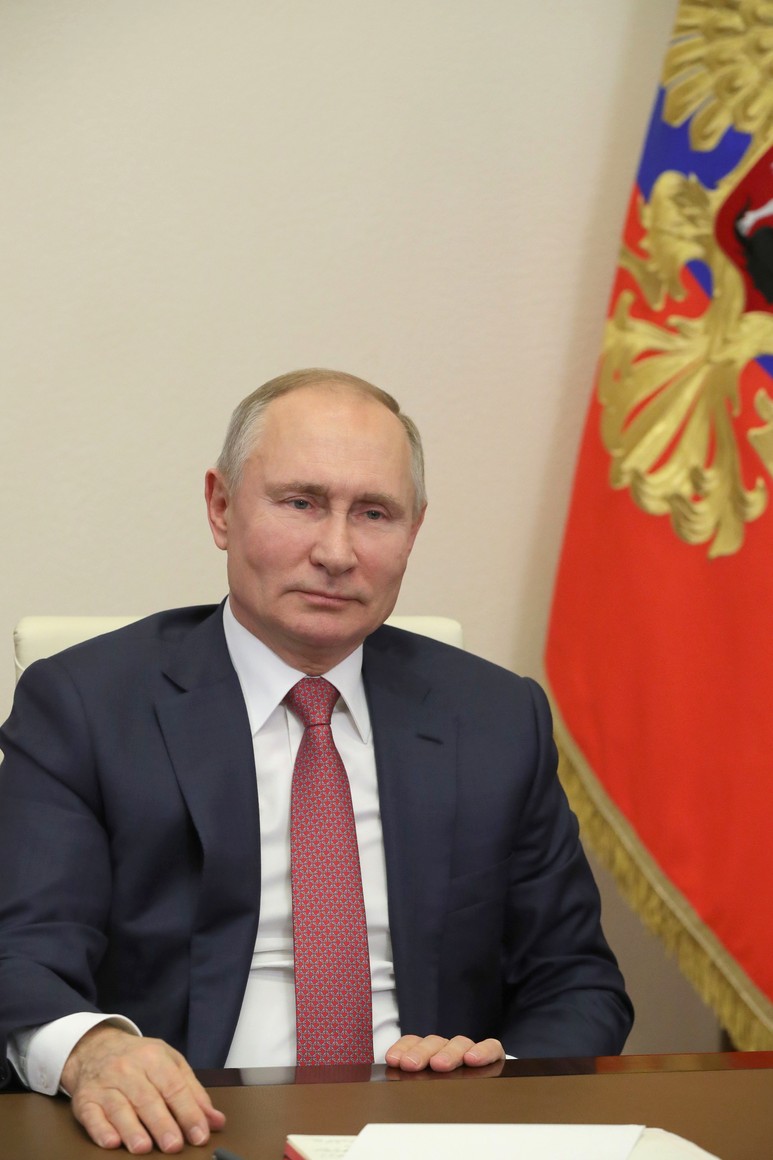 And lastly, we have received good news. I am very proud of our shipbuilders’ achievements. We will have a 10-tonne Haska hovercraft, which can be used year-round in all areas, including hard-to-access regions of Russia. It will be used to deliver cargo, and in 2022 we will also have a 50-tonne version of this vessel. I hope this project will be completed on schedule, and these vessels will be used to bring our regions closer together, serving our people so that there will be no inaccessible locations left. We must complete this project without fail. The production of Meteor hovercraft manufactured at the Alekseyev Central Hydrofoil Design Bureau in Nizhny Novgorod and of 120-passenger river vessels will begin in 2021. Incidentally, a PV300 300-passenger river-sea vessel has been created at another shipyard based in Nizhny Novgorod, Krasnoye Sormovo. It could be used to transport passengers between Sochi and Crimea. During the trials, which have been completed, the vessel went from Moscow to St Petersburg and on to Novorossiysk, which is a river-sea connection. The shipyard plans to begin working on more sea-worthy vessels in 2021, and I hope the project will be completed by the end of next year. These vessels will definitely be used on the Sochi-Crimea route. I am sure they will be in demand, and that our people will be grateful. Please, do not forget about municipal transport either. Many vehicles are being produced for cities and large towns, including modern buses and trams. A narrow-gauge low-floor tram has been produced in St Petersburg for Kaliningrad quite recently, in November. But we must also continue – and I am asking you to take this into account – with our plans for the use of natural gas motor fuel. We have moved forward a great deal in this area, and now we must take the next step, that is by 2023 manufacture a municipal hydrogen driven bus – it uses an electric motor, but we need one on hydrogen. The next objective is to produce hydrogen-powered trains, taking into account environmental requirements and the specifications of urban transport, especially in large cities with a population of over 1 million and a large pool of municipal vehicles, many of which use diesel fuel. There is much room for improvement when it comes to the impact on environment, airborne emissions create unfavourable atmosphere in large cities. Converting municipal transport to duel-fuel, or better still hydrogen fuel is a high-demand objective. There are many objectives and there is much to do in this sphere. On the other hand, considerable groundwork has been done. I would like to thank our colleagues for that and to express hope than all our plans will be implemented next year, in 2021, as well as in the subsequent years. Thank you very much for the decisions made. Mikhail Mishustin: Mr President, thank you. You have described the details of the projects we are implementing with our colleagues. I hope that all our tasks will be fulfilled. The Government has these plans on its agenda, as you have pointed out in great detail, and we are working to implement them. Thank you very much. Vladimir Putin: Thank you. The source of information - http://en.kremlin.ru/events/president/news/64806 Telephone conversation with first President of Kazakhstan Nursultan Nazarbayev December 30, 2020 - 15:35 During the telephone conversation, Vladimir Putin and first President of the Republic of Kazakhstan Nursultan Nazarbayev exchanged warm New Year greetings. They praised the development of strategic partnership and allied relations between Russia and Kazakhstan and emphasised the efficiency of bilateral cooperation in countering the coronavirus pandemic. The source of information - http://en.kremlin.ru/events/president/news/64834
__________________
Where should they dig the Very Deep Pit? Piglet said that the best place would be somewhere where a Heffalump was, just before he fell into it, only about a foot farther on. (c) Alan Alexander Miln |
|
|
#170 |
|
Senior Member
|
New Year Address to the Nation
December 31, 2020 - 23:55 - The Kremlin, Moscow President of Russia Vladimir Putin: Citizens of Russia, friends, The year 2020 will be over in just a few minutes. As we were welcoming it a year ago today, just like people around the world, we thought and dreamed of changes for the better. No one could have imagined back then what kind of trials would come our way. Now, it appears that the outgoing year has taken in the burden of many years. It was a difficult year for all of us, with worries and serious financial difficulties, bitter experiences and, for some, loss of the loved ones. However, the outgoing year was also filled with hope that we will overcome adversity and with pride for those who showed their best human and professional qualities. It made us appreciate dependable, sincere and genuine relationships between people, as well as friendship and trust. We walked through this year together with dignity, as befits a single nation which honours the traditions of its ancestors. These values – courage, compassion and graciousness – are in our hearts and blood and show in our deeds. We look up to our dear veterans – the valiant generation that defeated the scourge of Nazism. Against all odds, we have fulfilled our sacred filial duty and marked the 75th anniversary of the Great Victory with gratitude and appreciation. Indeed, the dangerous new virus has changed and even turned upside down our usual way of life, work and study, and forced us to reconsider and adjust many of our plans. But that is how things are, and trials are an unavoidable part of life. They encourage us to take a closer look at what life is all about, listen to our conscience, discard all things that are petty and vain and appreciate what is truly important. This is the gift of human life, our families, mothers and fathers, grandfathers and grandmothers, our children, be they babies or mature adults, our friends and colleagues. This is also selfless help and the general energy of good deeds, both ambitious nationwide efforts and small local projects which are no less important. Trials and troubles come and go. It has always been that way. The main things that make us noble and strong, such as love, mutual understanding, trust and support, stay with us. I would like to wish that the hardships of the outgoing year quickly sink into oblivion while everything that we have gained and all the best that has come forward in each person stays with us forever. Today, it is important to believe in ourselves, not to back off in the face of challenges and to value our unity. This is the foundation of our shared future successes. I am convinced that together we will overcome the challenges facing us, restore normal life and continue to work to achieve Russia’s goals in the forthcoming third decade of the 21st century with renewed vigour. 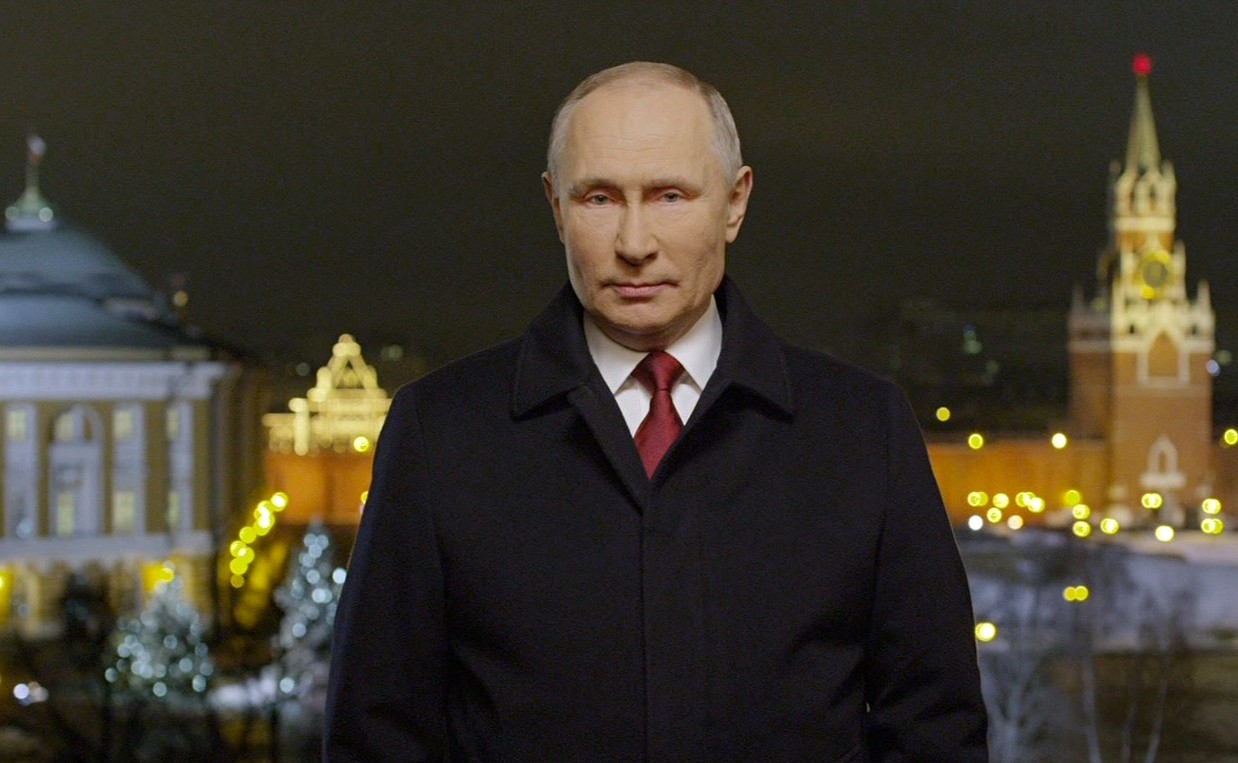 Friends, Not everyone is sitting around the New Year's table now. Many people remain in the hospitals, and I am sure they all feel the support of their families and friends. With all my heart, I wish you, my dear friends, to get well soon and to go home as soon as possible. Unfortunately, the epidemic has not yet completely come to an end. The fight against it does not stop for a minute. Doctors and nurses, as well as ambulance crews, continue to work courageously. Many of them are on duty tonight. The first responders, our servicemen in hot spots outside Russia, peacekeepers and Army and Navy combat crews are also tirelessly and responsibly performing their challenging missions. Thanks to all those people who carry out their duties day and night under any circumstances, the citizens of Russia can safely gather today in their homes with their loved ones, see in the New Year with plans for the future and hopes for the better, and make their New Year wishes. Friends, Let us use these precious moments to dream about the best things in life, peace and prosperity, happiness and joy for everyone who is near and dear to us, and our entire country. I want to thank every one of you, because we are together. When we stand next to each other, shoulder to shoulder, Russia becomes one big family. I wish you all good health, faith, hope and love, as people who are close and dear to me. I wish you happiness in the upcoming 2021! Happy New Year, friends! The source of information - http://en.kremlin.ru/events/president/news/64852
__________________
Where should they dig the Very Deep Pit? Piglet said that the best place would be somewhere where a Heffalump was, just before he fell into it, only about a foot farther on. (c) Alan Alexander Miln |
|
|
#171 |
|
Senior Member
|
Birthday greetings to choreographer and National Artist of the USSR Yury Grigorovich
Vladimir Putin sent a message of greetings to Yury Grigorovich, choreographer and National Artist of the USSR. January 2, 2021 - 10:30 The message reads, in part: “A man of abundant and immense talent, you have devoted your life to the art of choreography to enrich the glory of the Russian ballet with your inspired creations. I am sincerely happy that your work continues to be in demand and you are actively involved in the nation’s cultural life. I wish you health and vigour, and a happy New Year.” The source of information - http://en.kremlin.ru/events/president/news/64855 Mikhail Vedernikov reported to the President on freezing rain relief effort January 3, 2021 - 18:10 Pskov Region Governor Mikhail Vedernikov reported to Vladimir Putin on ongoing relief efforts after freezing rain that left over 20,000 people without electricity. The Governor praised the concerted efforts of all the services involved, primarily the Emergencies Ministry. Some 6,000 people currently remain without power supply. All consequences of bad weather conditions will be eliminated by the end of the day on January 4. The source of information - http://en.kremlin.ru/events/president/news/64857 Telephone conversation with Federal Chancellor of Germany Angela Merkel Vladimir Putin had a telephone conversation with Federal Chancellor of the Federal Republic of Germany Angela Merkel. January 5, 2021 - 13:00 The two leaders wished each other Merry Christmas and a Happy New Year. They discussed cooperation in tackling the coronavirus pandemic, with an emphasis on opportunities for cooperation in joint vaccine production, and agreed on further contacts between the two countries’ healthcare ministries and other relevant departments in this regard. Vladimir Putin and Angela Merkel also touched upon the intra-Ukrainian conflict, particularly as regards measures to implement the Minsk Package of Measures as well as the agreements reached at the Normandy Format summits. The source of information - http://en.kremlin.ru/events/president/news/64864 Meeting on social issues Vladimir Putin held a videoconference meeting on social issues. January 5, 2021 - 18:10 - Novo-Ogaryovo, Moscow Region  Government members and heads of regions spoke at the meeting. Deputy Prime Minister Tatyana Golikova touched upon the establishment of a foundation to support children with serious life-threatening and chronic diseases including rare diseases, as well as increasing the availability of places in day nurseries and kindergartens and arranging hot meals for primary students. Minister of Labour and Social Protection Anton Kotyakov reported on the measures to support families with children in need and on another pension indexation. In his report, Minister of Construction Irek Faizullin described the progress made in improving living conditions of families needing special support from the government, first and foremost, large families, and executing the programme to demolish hazardous and dilapidated housing. All of the issues mentioned were reflected in reports of the heads of regions: Novgorod Region Governor Andrei Nikitin, Moscow Mayor Sergei Sobyanin, Irkutsk Region Governor Igor Kobzev, Kaluga Region Governor Vladislav Shapsha, Arkhangelsk Region Governor Alexander Tsybulsky and Head of the Republic of Bashkortostan Radiy Khabirov. 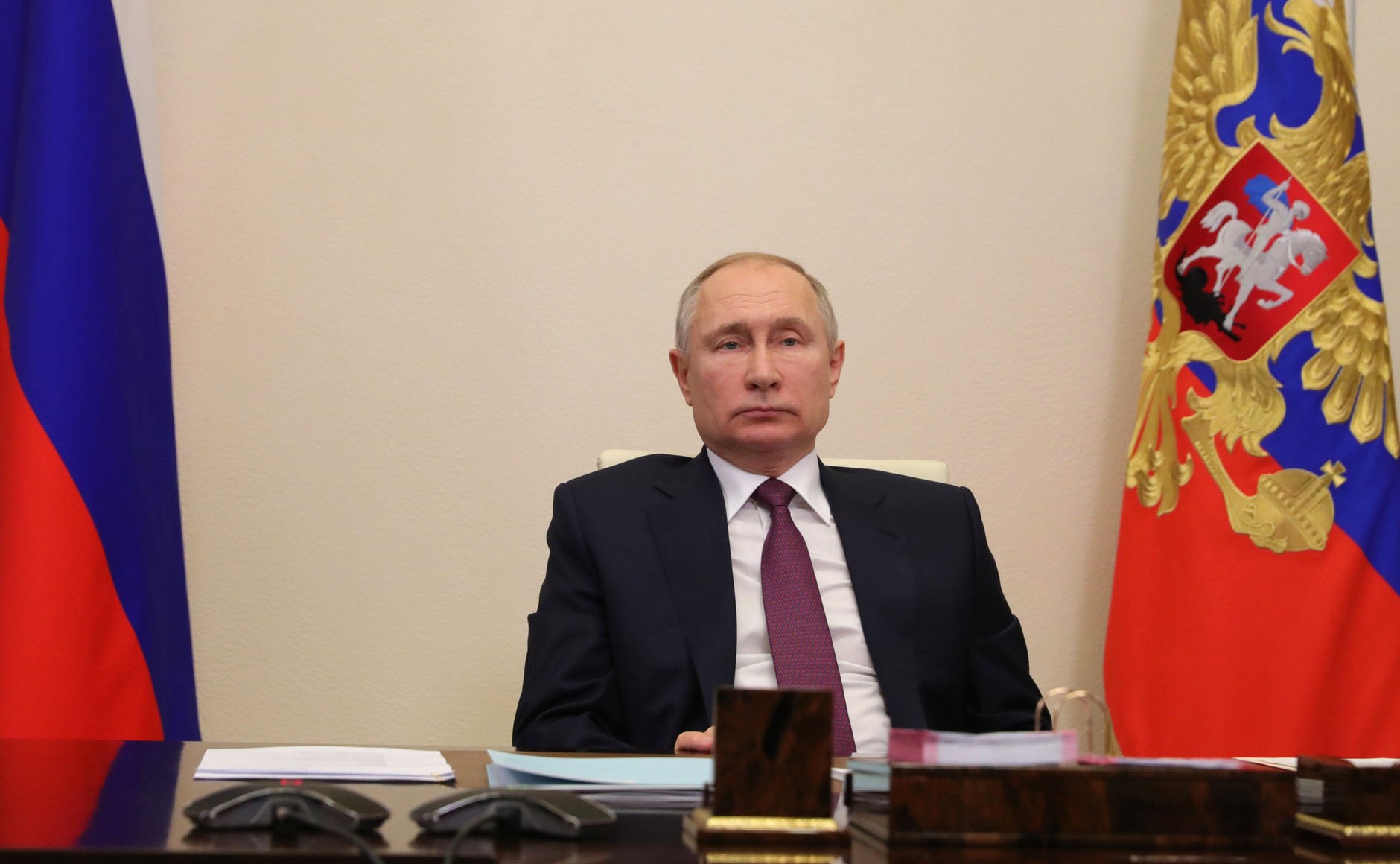 President of Russia Vladimir Putin: Colleagues, good afternoon, I would like to begin by welcoming you and by wishing you a happy New Year once again. And here’s what I would like to say at the beginning. Of course, everything we are doing – and our Government and other agencies have many issues to address on a daily basis – is interconnected. It is clearly impossible to manage finances or develop the economy without macroeconomic stability, which also means that it is impossible to ensure the state’s military capability and security without developing them. However, our ultimate goal is to make people’s lives better, which means that addressing social issues must always be at the top of our list. 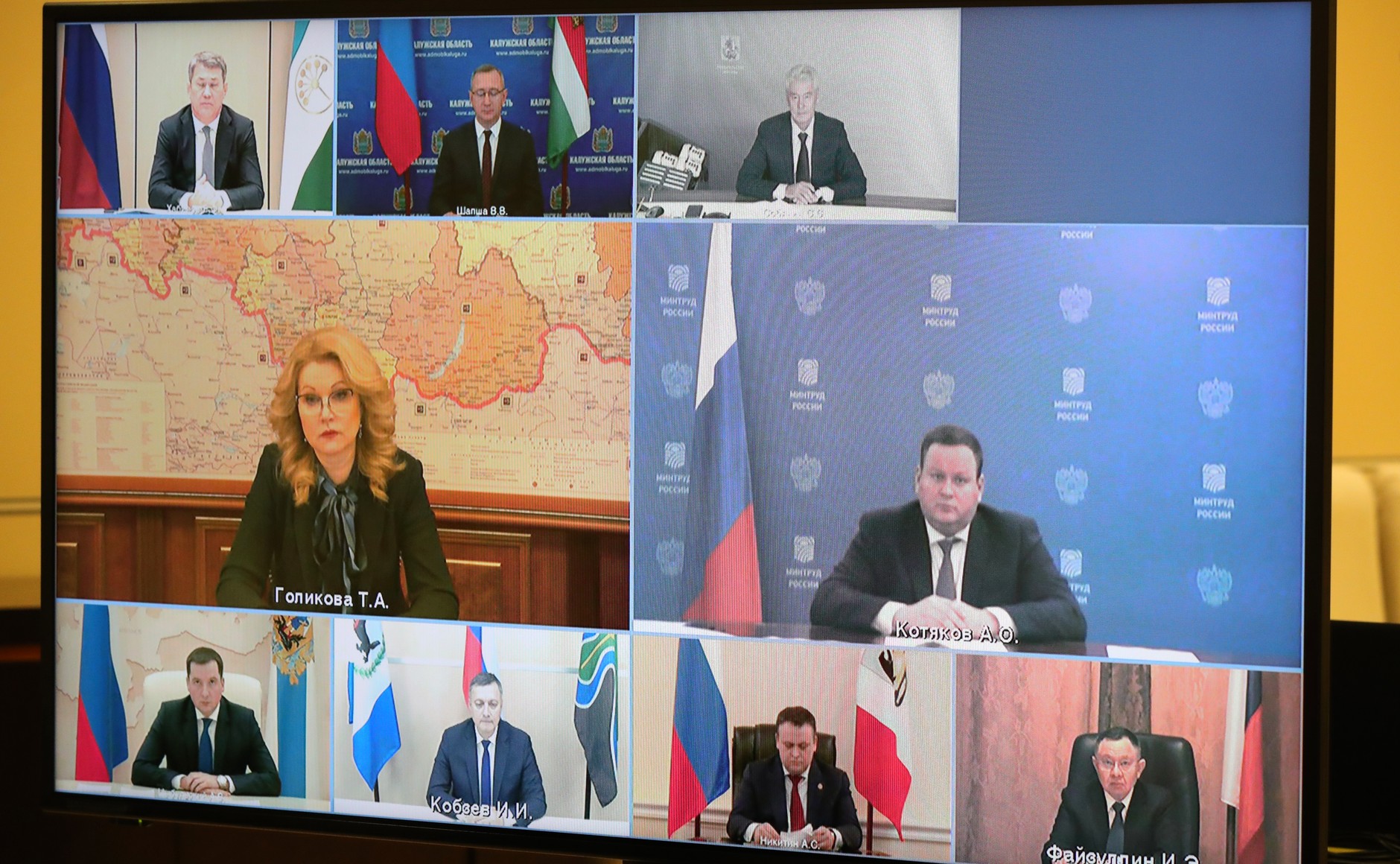 Today, just ahead of Orthodox Christmas, I would like to discuss these very issues, in the broadest sense of the word, and above all, those that concern people in need of special support from the state. These issues are diverse, but they are united by one important thing – as I’ve already mentioned, it is the work of the state agencies on the social protection of our citizens and on the implementation of both previously issued instructions and those given in the new year, 2021. So let us get down to discussing these issues. I would like to give the floor to Ms Tatyana Golikova. But first I would like to say that here on my desk I have a draft Executive Order on establishing a fund, as we have agreed, a fund to support children with serious, life-threatening and chronic illnesses, including rare, or orphan, diseases. We have decided to call this fund the Circle of Kindness. Let me remind you that we will use the money received from the increased income tax applied to those citizens whose income exceeds five million rubles. Not the first five million, but everything that’s above five million. This means that we will receive additional revenue of about 60 billion rubles, so we have agreed to establish the fund I have mentioned and allocate this money to support children in need of expensive medicines.  <…> Vladimir Putin: Thank you all, colleagues, for today’s work, among other things. We really have a few achievements on the federal and regional levels; I would go even further and say we have achieved a lot. However, you are all well aware that there is a great deal of problems in the social sphere and we did not touch on all of them today. For example, an issue that requires a separate discussion is the social contract mechanism. If in 2020 it was implemented as part of a pilot project in 21 regions, in 2021 all constituent entities of the Russian Federation will be taking part in this programme, which, as I believe, is extremely important. Its primary objective is to help families raise their incomes and overcome a difficult life situation. Simultaneously with the measures of targeted social support, it is extremely important for us to ensure a prompt recovery of the labour market, which is a crucial task. We must achieve a drop in the unemployment rate, and hence provide people with a stable income. 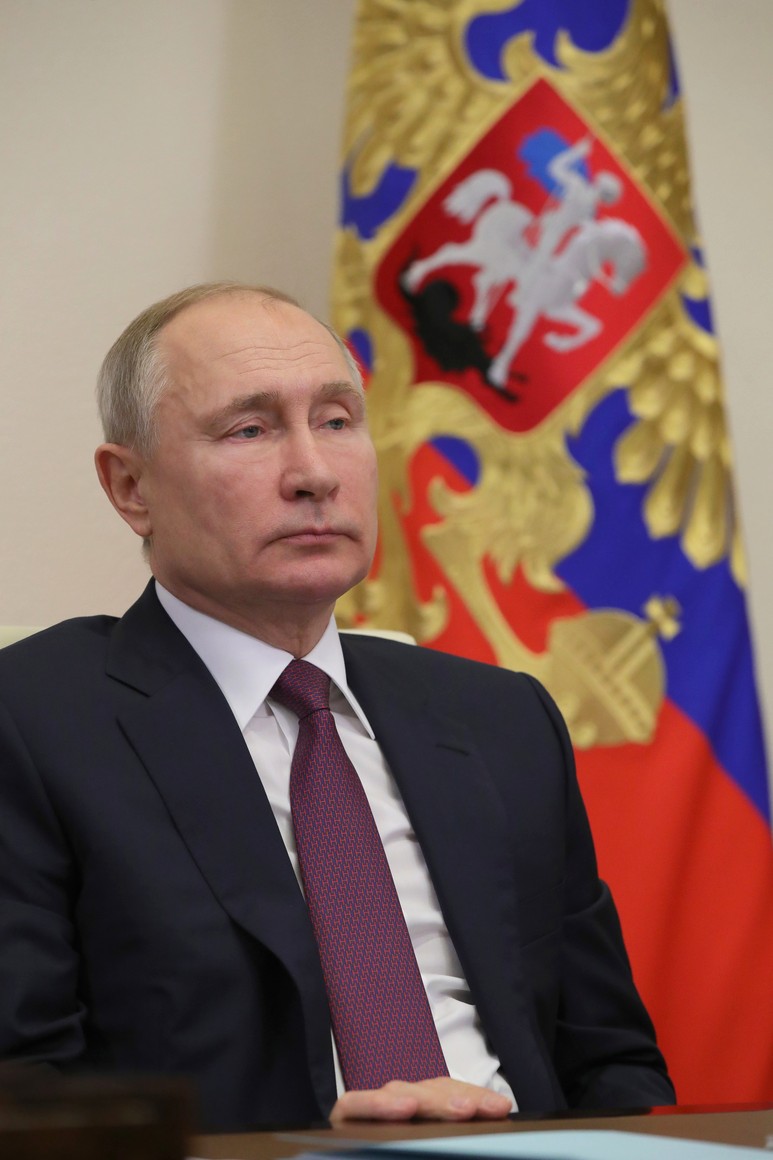 I would like to stress that the issues of social and demographic policy, and measures to support Russian families, children and the elderly have always been our priorities. We made a special emphasis on this direction of our work last year as well. I would like to get back to what I mentioned at the beginning: that today we will be speaking about the problems of people who require the government’s special attention. But we must treat all social issues in 2021 with special attention. Please encourage all of our colleagues in the regions of the Russian Federation and the Government of Russia to focus on such work. Thank you very much. All the best. I wish you a happy Christmas. The source of information - http://en.kremlin.ru/events/president/news/64865 Christmas greetings Vladimir Putin sent greetings to Orthodox Christians and all Russians celebrating Christmas. January 7, 2021 - 09:00 - Novgorod Region  The President’s message reads, in part: “This wonderful holiday illuminates the world with a light of love and kindness, gives joy and hope to millions of people and guides them towards timeless spiritual values. It is crucial that the Russian Orthodox Church as well as other Christian denominations constantly focus on the issues of the moral health of society, on strengthening the institution of the family and raising the younger generation, and that they sincerely care about maintaining inter-ethnic and inter-faith dialogue.” On Christmas Eve, the President attended mass at the Church of St Nicholas located on the island of Lipno, Lake Ilmen, eight kilometres from Veliky Novgorod. 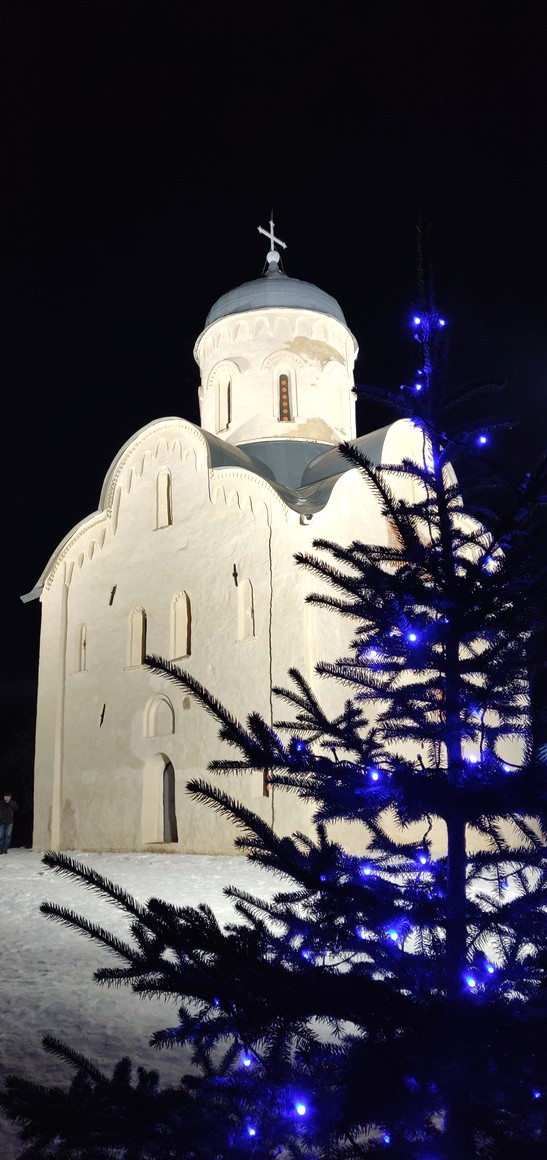 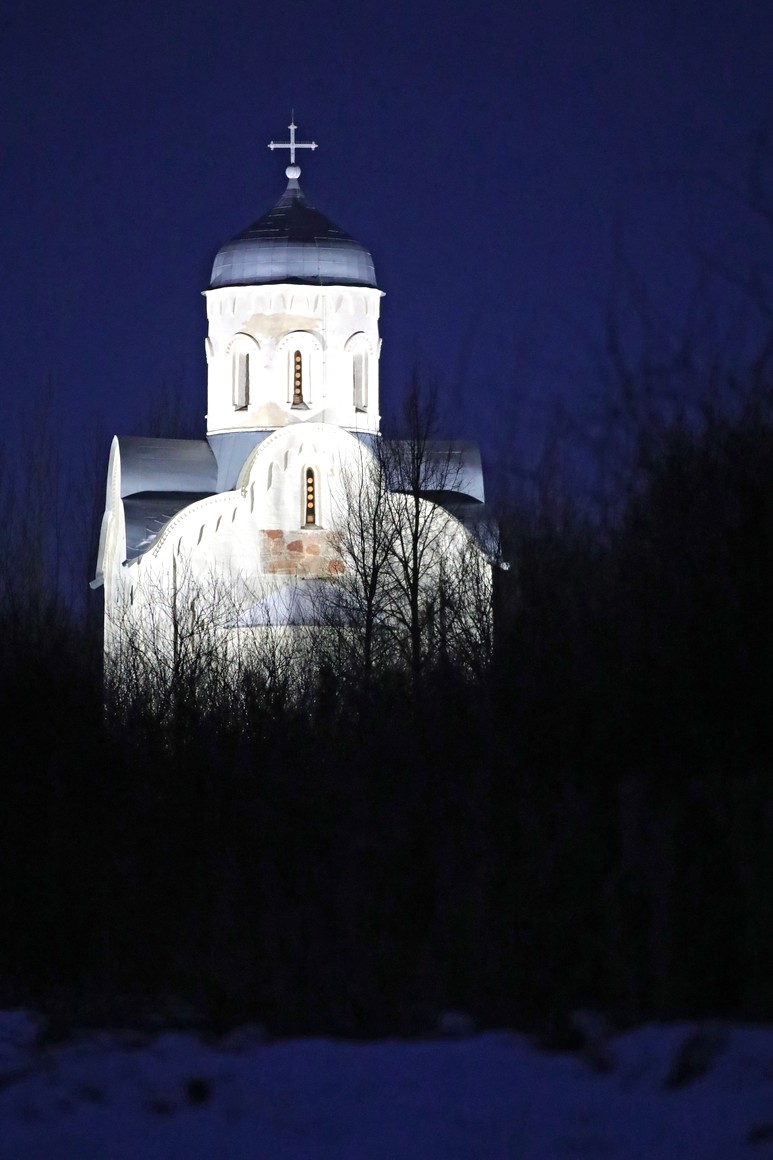 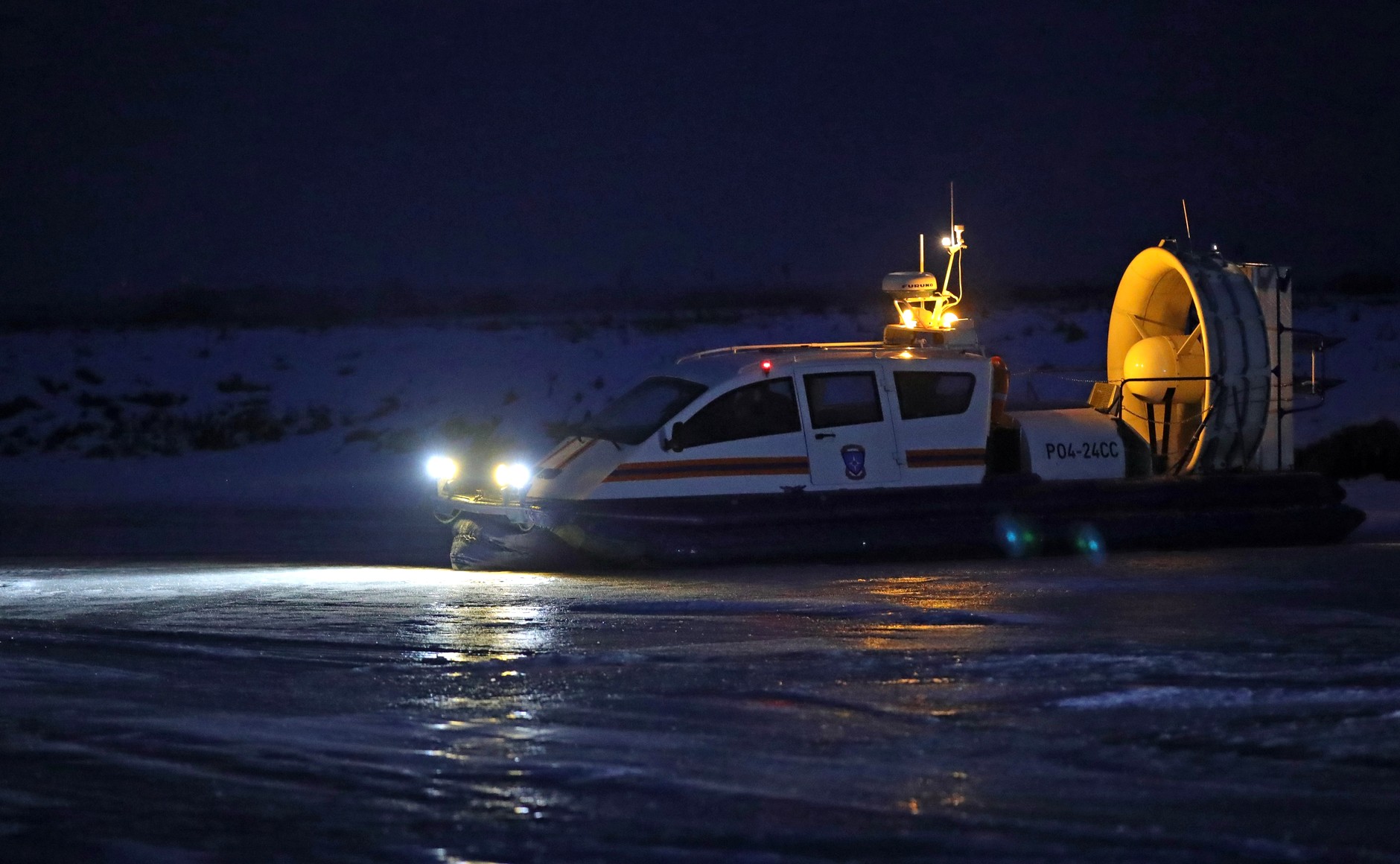  The Church was built in 1292 by Archbishop Clement on the site where the miracle-working icon of St Nicholas of Myra was found. It is the oldest remaining church in Russia built after the Mongol invasion. The church has undergone several restorations including in 2017–2019. Now the landmark has been restored to its original form and is included in guided tours. The famous icon from the church St Nicholas of Lipno is showcased at the Novgorod Museum Reserve. 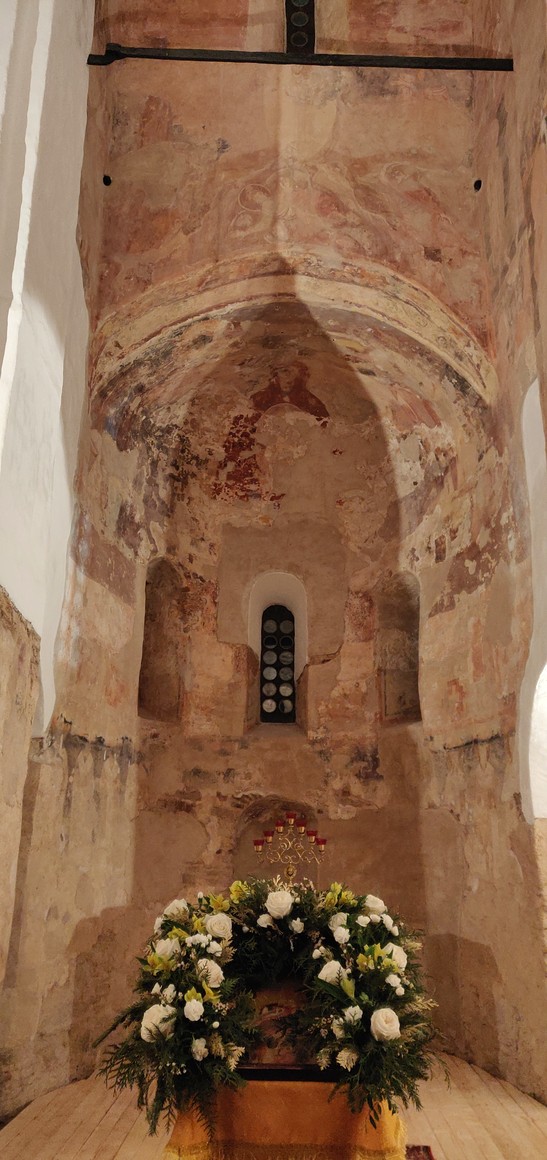 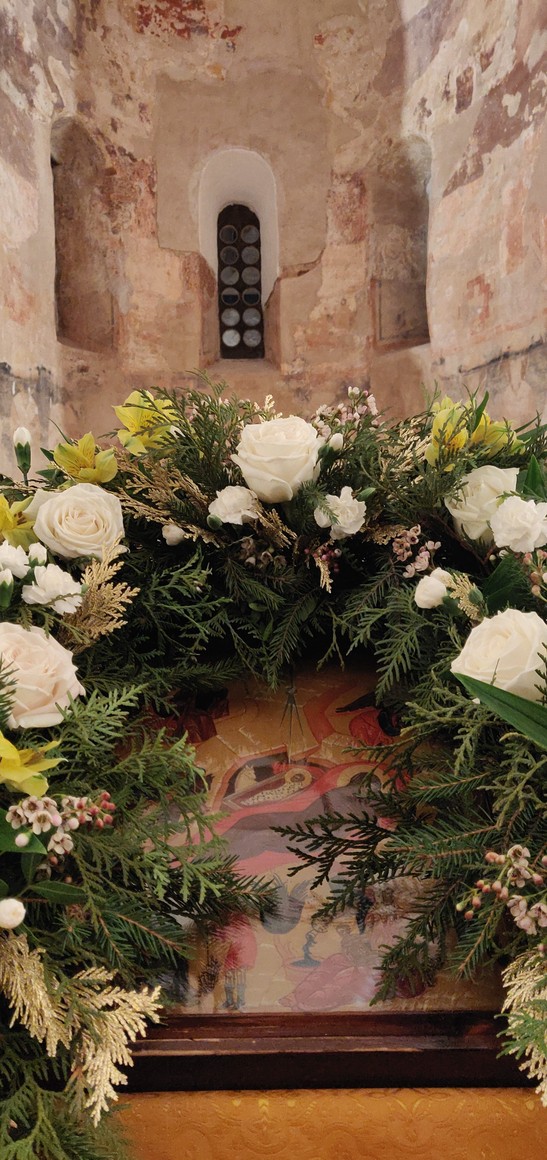 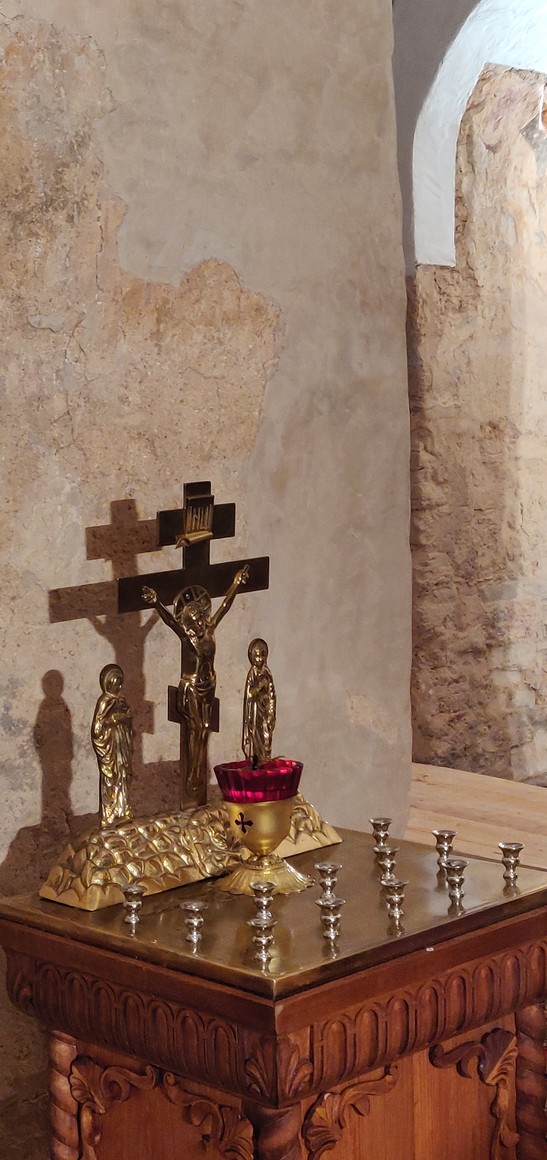 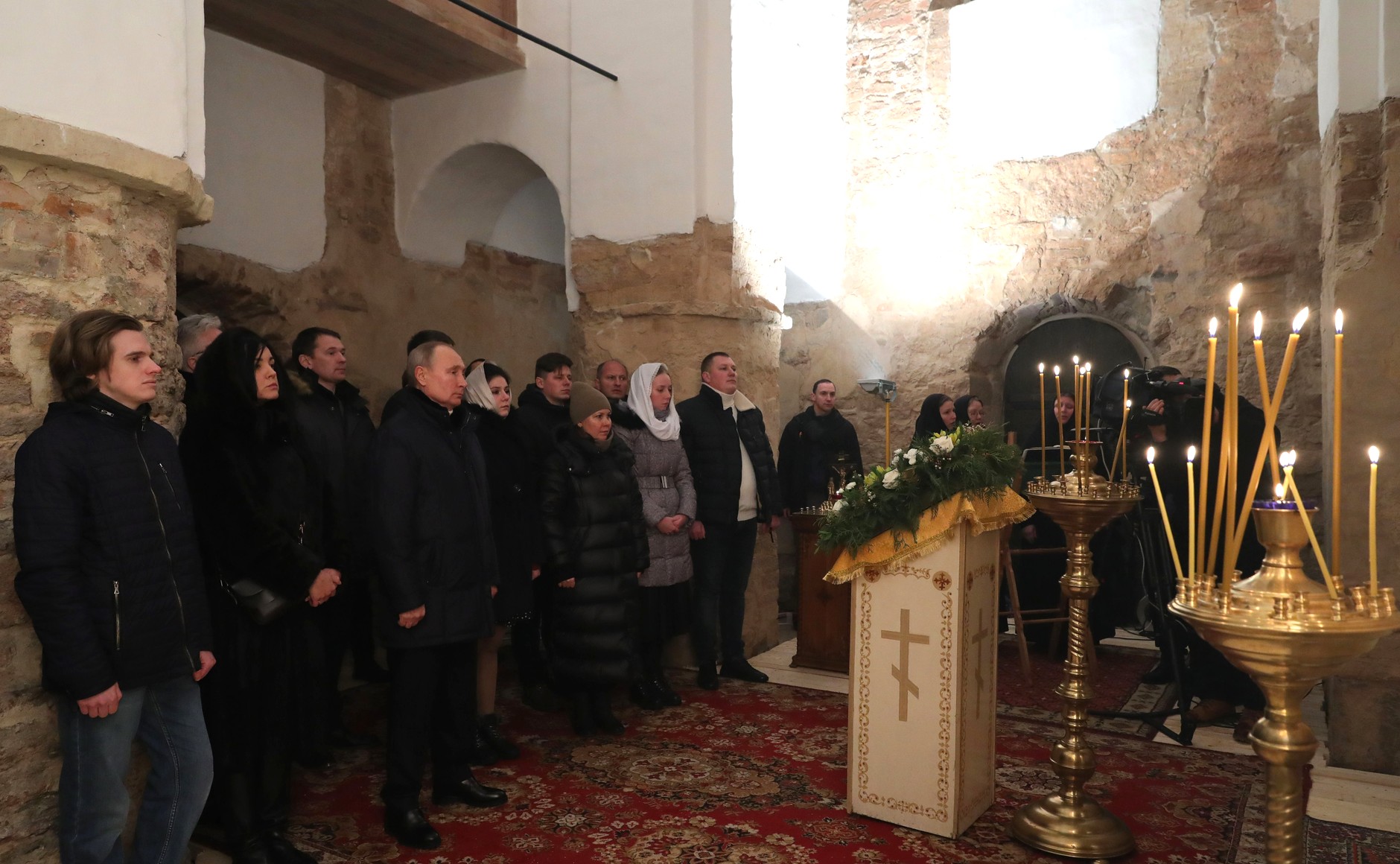 The President donated the icon of God the Almighty to the church. It was executed in tempera in the tradition of 19th century Mstera icon-painting. The icon-case, with a gilded frame, and the icon-setting were made in the workshops of the St Trinity Fellowship of the city of Shchigry.  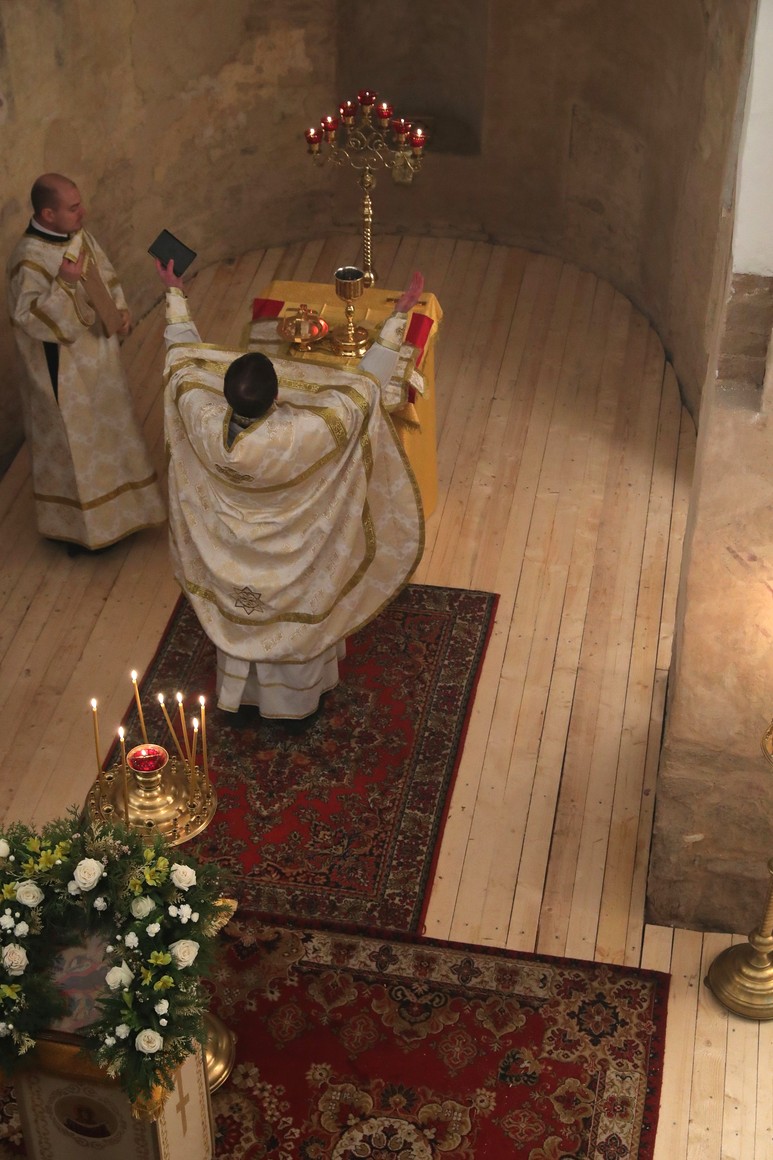 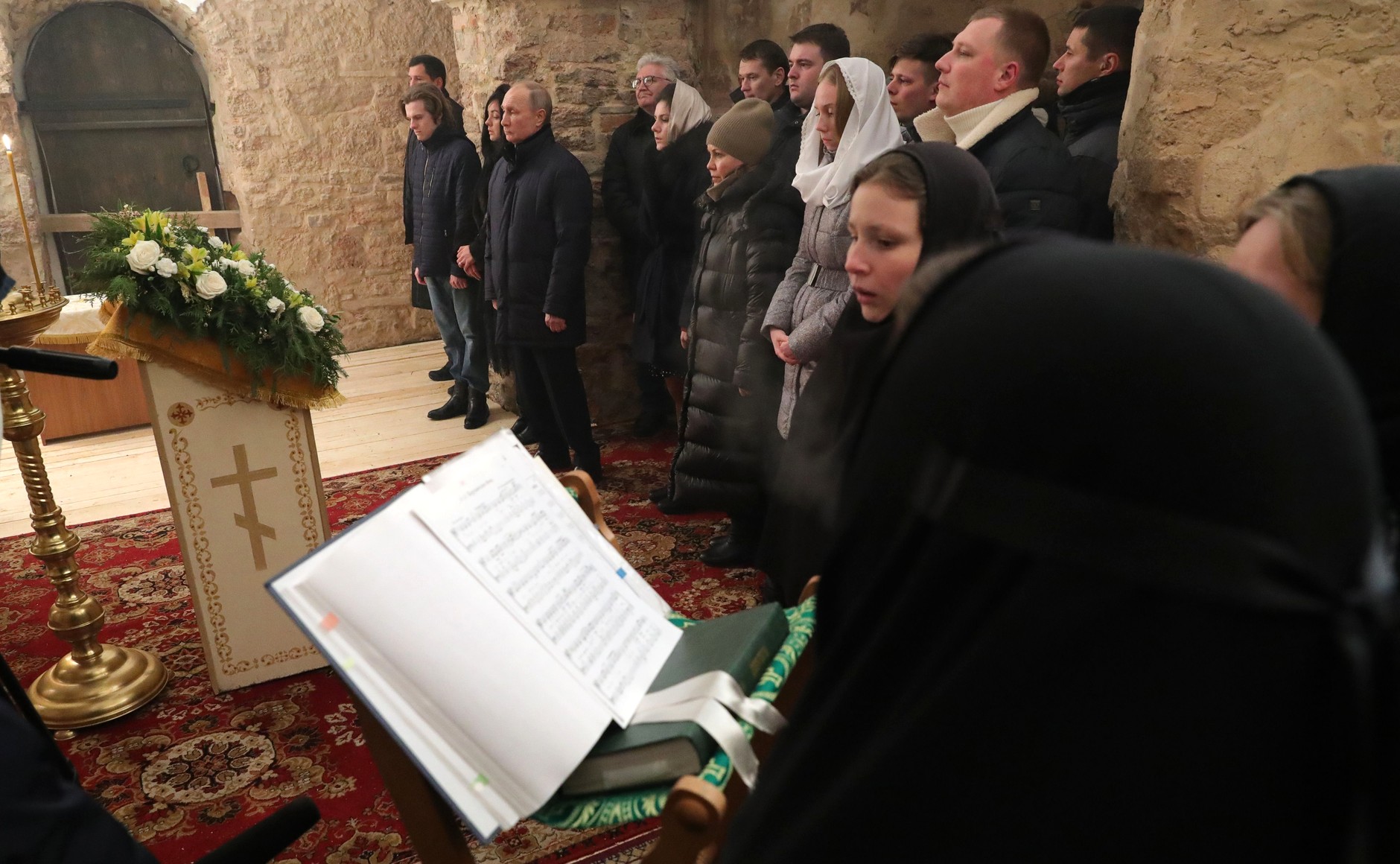 Following Christmas mass, Vladimir Putin answered a journalist’s question. The source of information - http://en.kremlin.ru/events/president/news/64868 Answer to a journalist’s question January 7, 2021 - 01:10 Question: Today is Christmas, a holiday, and we want to hope for the best. Do you ever ponder why such events – uneasy, hard ones – actually happen? Maybe from a religious or a philosophical perspective. 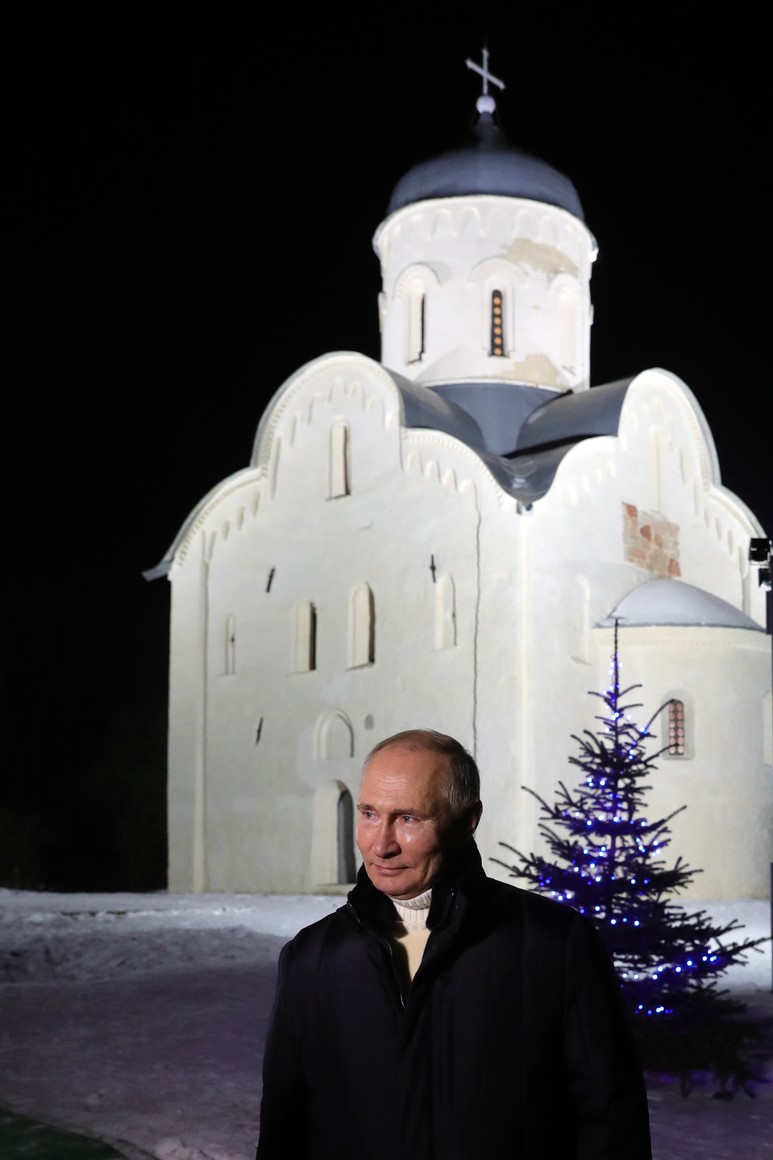 President of Russia Vladimir Putin: You know, this question with a religious perspective would be better addressed to a clergyman or a priest. They would offer a fuller and broader answer. I can only say as a secular person. God’s love for Man lies not in granting all our requests and wishes but rather in allowing us to pray for him and ourselves in the hope for the best. This hope and, occasionally, anticipation of a miracle is the very star that lights up our life’s journey and supports us in its hardest stages. Happy Christmas to you! The source of information - http://en.kremlin.ru/events/president/transcripts/64869
__________________
Where should they dig the Very Deep Pit? Piglet said that the best place would be somewhere where a Heffalump was, just before he fell into it, only about a foot farther on. (c) Alan Alexander Miln |
|
|
#172 |
|
Senior Member
|
Condolences to President of Indonesia Joko Widodo
Vladimir Putin sent a message of condolences to President of the Republic of Indonesia Joko Widodo. January 9, 2021 - 18:00 The President of Russia expressed heartfelt condolences over the death of passengers and crew of the plane which crashed off the coast of Java. The Russian leader asked to pass on words of sympathy and support to the victims’ families and friends. The source of information - http://en.kremlin.ru/events/president/news/64871 Telephone conversation with President of France Emmanuel Macron January 10, 2021 - 15:20 As part of coordinating the actions of the OSCE Minsk Group co-chairs, Vladimir Putin had a telephone conversation with President of the French Republic Emmanuel Macron, during which the two leaders discussed certain issues related to the upcoming trilateral meeting of the leaders of Russia, Azerbaijan and Armenia scheduled to take place on January 11 in Moscow. Given the consistent implementation of the joint Statement of November 9, 2020, and the stabilisation of the situation in Nagorno-Karabakh, it was noted that at the upcoming meeting its participants will focus primarily on outlining the next steps to establish peace in the region. The President of France expressed his support for Russia’s efforts to facilitate settlement in Nagorno-Karabakh. He also emphasised the importance of a prompt provision of humanitarian aid to people who have suffered from combat operations, including through relevant international organisations. Vladimir Putin and Emmanuel Macron congratulated each other on Christmas and New Year holidays. It was agreed to maintain contacts at various levels. The source of information - http://en.kremlin.ru/events/president/news/64873 The President chaired a meeting to discuss the Nagorno-Karabakh settlement Prior to the meeting with President of Azerbaijan Ilham Aliyev and Prime Minister of Armenia Nikol Pashinyan, Vladimir Putin held a meeting to discuss the Nagorno-Karabakh settlement and the developments in the South Caucasus. January 10, 2021 - 16:00 - Novo-Ogaryovo, Moscow Region Taking part in the meeting were Security Council Secretary Nikolai Patrushev, Foreign Minister Sergei Lavrov, Defence Minister Sergei Shoigu, Director of the Federal Security Service Alexander Bortnikov and Director of the Foreign Intelligence Service Sergei Naryshkin. The meeting participants also discussed security measures during New Year holidays.  President of Russia Vladimir Putin: Good afternoon, colleagues. As previously agreed, we are going to discuss two issues today. The first one is related to ensuring security during festive events, both New Year and Christmas. The second issue is a very specific, international one related to faclitating the peace process in the Nagorno-Karabakh settlement and general developments in the South Caucasus. Let us begin. Mr Bortnikov, please, take the floor. The source of information - http://en.kremlin.ru/events/president/news/64874 Greetings to Sadyr Japarov, President-elect of Kyrgyzstan Vladimir Putin congratulated Sadyr Japarov on his election as President of the Kyrgyz Republic. January 11, 2021 - 10:50 The message reads in part: “Relations between our countries are those of a strategic partnership and alliance. Russia and Kyrgyzstan have vast experience of fruitful cooperation in a variety of areas and constructive interaction within the EAEU, CSTO, CIS and SCO. I am confident that your work as head of state will further promote the development of the entire range of Russian-Kyrgyzstani ties. This will undoubtedly meet the core interests of our friendly nations and strengthen stability and security in the Central Asia region.” The source of information - http://en.kremlin.ru/events/president/news/64878 Meeting with Ilham Aliyev and Nikol Pashinyan At Vladimir Putin’s initiative, the Kremlin hosted trilateral talks between the President of the Russian Federation, President of the Republic of Azerbaijan Ilham Aliyev and Prime Minister of the Republic of Armenia Nikol Pashinyan. January 11, 2021 - 17:40 - The Kremlin, Moscow 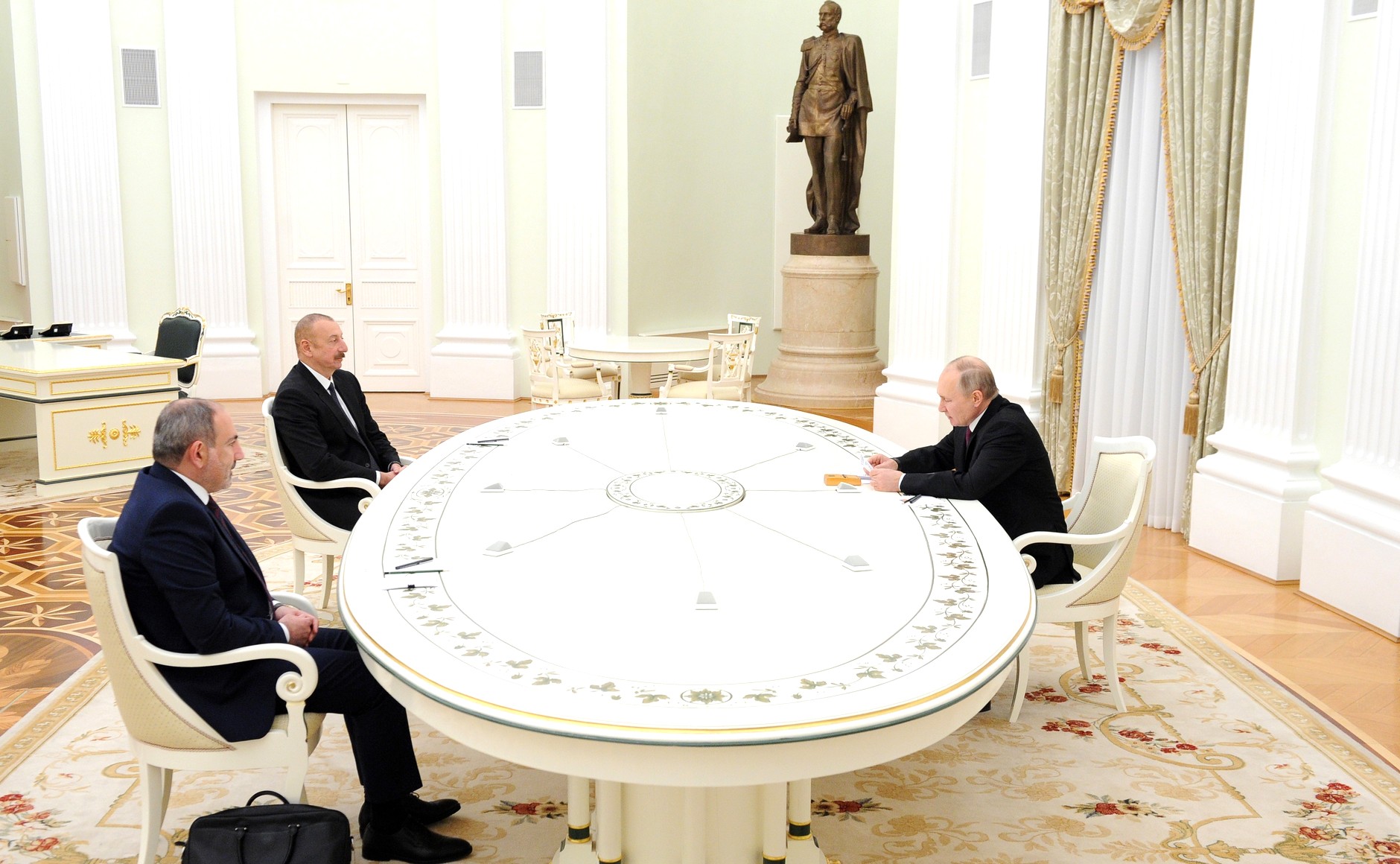 Participants in the meeting discussed the implementation of the Statement by the leaders of Azerbaijan, Armenia and Russia on Nagorno-Karabakh of November 9, 2020, further steps to address the region’s problems, providing aid to the residents of areas affected by hostilities, as well as resuming and developing trade and economic ties and transport links. Following the consultations, Vladimir Putin, Ilham Aliyev and Nikol Pashinyan signed the Statement by the President of the Republic of Azerbaijan, the Prime Minister of the Republic of Armenia and the President of the Russian Federation. The leaders of the three countries also made statements for the press. 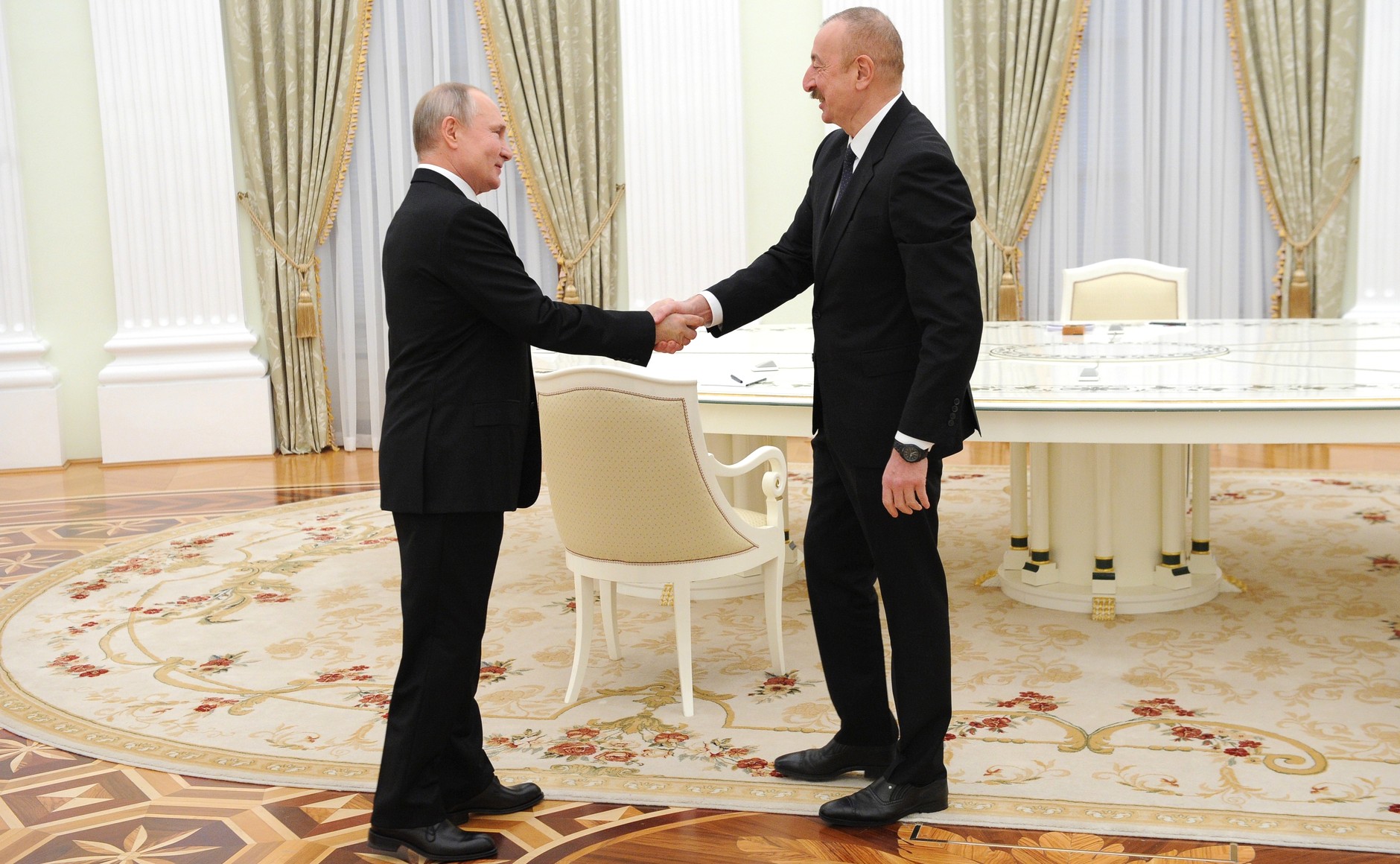 President of Russia Vladimir Putin: Mr Aliyev, Mr Pashinyan, I am happy to welcome you to Moscow, and we appreciate that you agreed to discuss the implementation of our trilateral Statement on Nagorno-Karabakh of November 9, 2020, as well as further steps to overcome the existing problems and establish peaceful life in the region. Russia values the partnership and friendly relations that our countries and peoples share; therefore, we are sincerely worried and concerned about the lives of people during this armed conflict. The large-scale hostilities, unfortunately, have led to numerous casualties and aggravated the already complicated situation in the South Caucasus, and increased the risk of terrorism spreading. I would like to thank you, colleagues, for positively receiving Russia’s active intermediary efforts aimed at stopping the bloodshed, stabilising the situation and establishing a lasting ceasefire. The diplomatic and military agencies of our countries worked hard to reach these goals. We were in contact all the time and were looking for a compromise together. It is owing to our common efforts, after intensive talks by telephone, including those at night, as you remember, that we agreed on a tripartite statement on November 9 and signed it. This fundamental document primarily calls for a complete cessation of hostilities, the sending of Russian peacekeepers to the region, and, crucially, the provision of comprehensive and effective aid to the population affected by the armed clashes in returning to normal life. I would like to emphasise that in all of its actions Russia was striving to follow the key best practices of the Minsk OSCE Group. We continue regularly checking our actions with our partners – co-chairs of the Minsk Group. It is possible to state today with satisfaction that the tripartite agreements are being consistently fulfilled. We are convinced this is creating the prerequisites for a lasting, full-scale settlement of the long-standing conflict on a fair basis, in the interests of the people of both Armenia and Azerbaijan. A Russian peacekeeping contingent was deployed to monitor the ceasefire at the Nagorno-Karabakh conflict line and along the Lachin corridor at the requests of Armenia and Azerbaijan. Twenty-three observation posts operate in the Russian peacekeepers’ zone of responsibility; another four additional posts are in charge of safe traffic in the corridor. Now the situation in the region is calm. We are doing much for the safe return of internally displaced persons and refugees. Over 48,000 people have already returned to Karabakh since November 14. Prisoners and bodies of the dead were exchanged with Russia’s mediation. The International Humanitarian Response Centre, where our countries’ experts address essential issues related to returning normal life to villages, rebuilding the destroyed infrastructure and protecting historical, religious and cultural landmarks, is operating successfully. Its employees are restoring energy and heat supply. 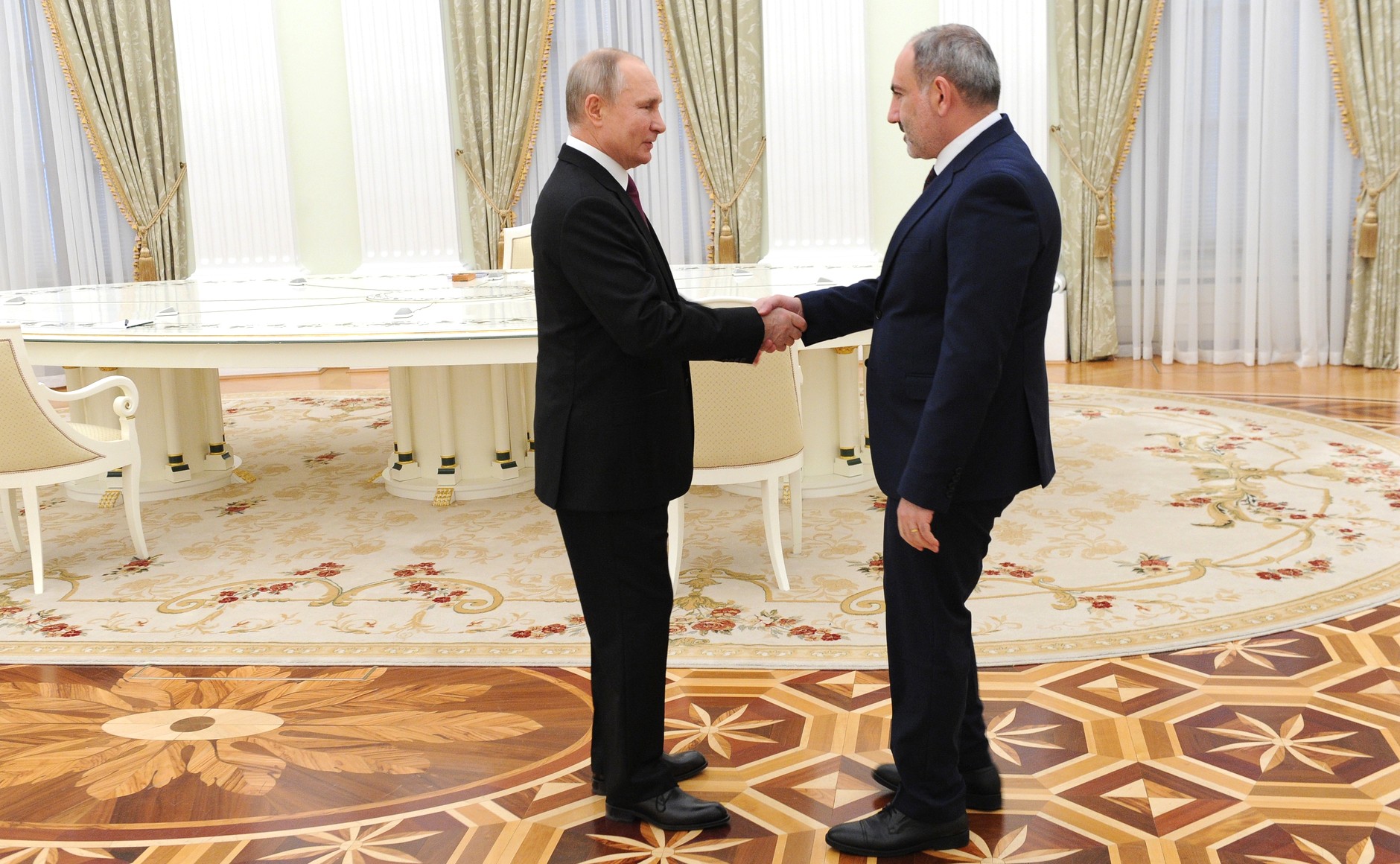 Russia has already delivered to the conflict zone over 800 tonnes of construction materials and a total of over 1.5 million tonnes of humanitarian cargo. Medical aid is being provided to the locals. Over 479 ha of land have been cleared of mines, and 182 km of roads and 710 buildings have been checked. Over 22,000 explosives were discovered and destroyed. I believe that today it would be important, above all, to outline our next steps in the key areas of the settlement process envisaged in the joint Statement of November 9, 2020. I mean issues related to the activities of the Russian peacekeeping troops and the need to clarify demarcation lines, solve humanitarian problems and protect cultural heritage sites. The task of restoring economic, trade and transport links in the region as well as opening borders deserves special attention. A special trilateral working group chaired by Russian, Azerbaijani and Armenian deputy prime ministers is to address this task. Colleagues, I hope that our talks today will be held in a business-like atmosphere and will serve to ensure lasting peace, security, and sustained socioeconomic development in the region, in which all of us are, of course, interested. The source of information - http://en.kremlin.ru/events/president/news/64877 Press statements following talks with President of Azerbaijan Ilham Aliyev and Prime Minister of Armenia Nikol Pashinyan January 11, 2021 - 17:50 - The Kremlin, Moscow  President of Russia Vladimir Putin: First of all, I would like to thank my colleagues, both the President of Azerbaijan and the Prime Minister of Armenia, for agreeing to come to Moscow today and have a meeting to discuss issues related to fulfilling the terms of our peace agreement of November 9, 2020. We came to the conclusion that overall, the terms of this agreement have been observed and there have been no serious incidents. Russia’s peacekeeping group is meeting its obligations in full to both parties. As I said at the beginning of this meeting, more than 48,000 displaced persons and refugees have already returned to Nagorno-Karabakh. The work to rebuild infrastructure, power facilities, housing and social infrastructure is in full swing. I find this meeting extremely important and useful because we managed to agree and sign a joint statement on the developments in the region. I am talking about specific steps to establish economic ties and develop infrastructure projects. A working group will be created for this purpose and will be headed by the deputy prime ministers of Azerbaijan, Armenia and Russia. They will soon create ad hoc sub-groups within the working group and present specific plans for developing the transport infrastructure and the economy in the region. I am convinced that implementing these agreements will benefit both the Armenian and Azerbaijani nations and, without a doubt, will be helpful for the region in general and, therefore, serve the interests of the Russian Federation as well. Thank you.  President of Azerbaijan Ilham Aliyev: Mr President Putin, First of all, I would like to thank you for your invitation and the initiative to hold this meeting. I also share your opinion that this meeting was very important for ensuring the further sustainable and safe development of our region. Two months have passed since the ceasefire was announced, and the fact that the leaders of the three countries that signed the Statement of November 9–10 have gathered in Moscow today shows that we are willing to achieve results and draw a line under the actions that took place in September-November. The statement that was signed today reflects our intentions, because one of the items in the statement following the cessation of hostilities was on the unblocking of transport connections. This is an important area that will help us achieve the dynamics to resume the region’s development and enhance security, and the opening of transport links meets the interests of the people of Azerbaijan, Armenia, Russia and our other neighbours. I am sure that the neighbouring countries will also join our efforts to resume transport corridors and develop a diverse network of transport arteries in our region. We must continue striving to find fields of activities that will produce quick effects and are oriented to results. 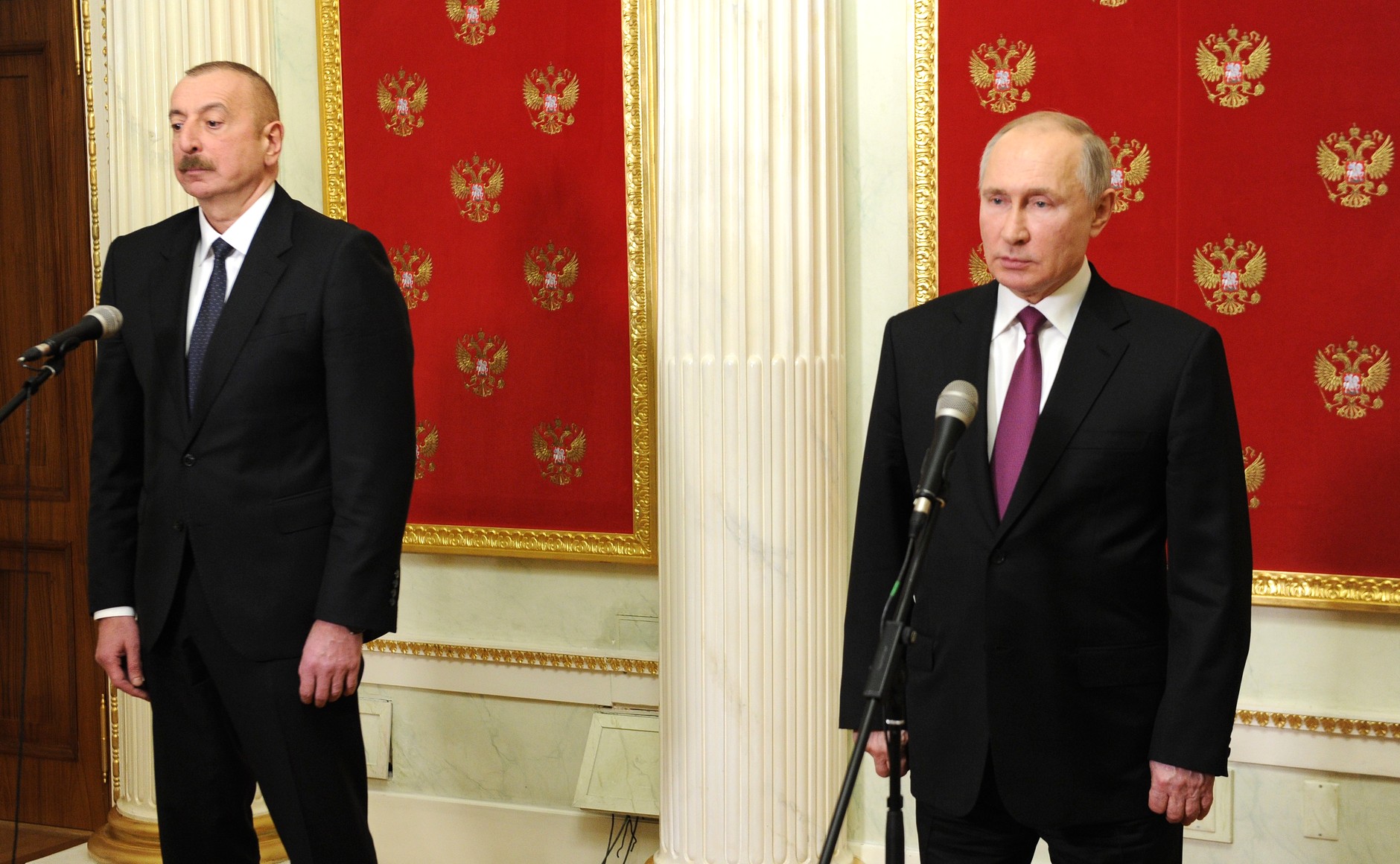 Overall, I would like to say that the Statement of November 9 and 10 (Azerbaijani time) is being successfully implemented. Many items in this statement have been fulfilled. The Russian peacekeeping mission is working effectively. Except for a few minor incidents, there have been no serious grounds for concern during the past two months. All this creates the confidence that, as President Putin said, the Nagorno-Karabakh conflict will remain in the past and that we must think about the future – how to live next to each other, how to strive for unblocking transport arteries and enhancing regional stability and security in the future. Mr President Putin, I would like to thank you once again for the invitation and I believe our meeting has been very useful and productive. Thank you. Vladimir Putin: Thank you. 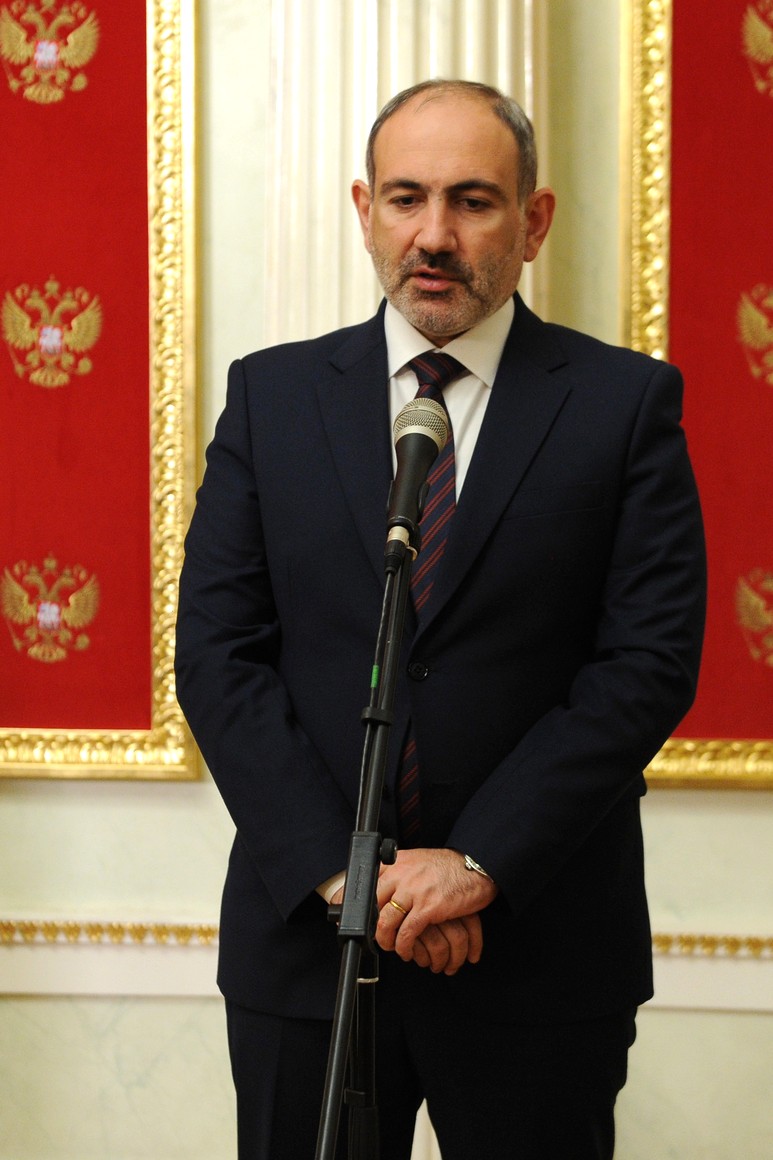 Prime Minister of Armenia Nikol Pashinyan: Mr President Putin, First, let me thank you for all the efforts you are making to restore stability and security in our region and to settle the Nagorno-Karabakh conflict. Unfortunately, this conflict has not been settled even up to this day. Of course, we have ensured a ceasefire, but many issues are still outstanding and must be resolved. One is the status of Nagorno-Karabakh, and we, Armenia, are certainly ready to continue the talks as the co-chairs in the OSCE Minsk Group, in part, on this issue. Unfortunately, today we have not settled the issue of prisoners of war, and this is the most sensitive and serious issue because it is a humanitarian issue and we agreed to continue working in this area. But we believe that unfortunately item 8 of our joint Statement, for instance, is not being fully carried out, and I hope we will be able to reach a specific decision on this as soon as possible. I can say that the Statement we signed today is very important indeed. I will say that the implementation of the agreements in this Statement could change the economic profile of our region and that the economic changes could produce even more reliable security guarantees. We will certainly work constructively to this end, but, as I said, unfortunately, it is impossible to resolve all the problems at one meeting. I hope we will continue moving forward. I would like to emphasise again that for us the main issues today are humanitarian, notably, the exchange of prisoners of war as envisaged in item 8 of our November 9–10 joint Statement. Thank you. 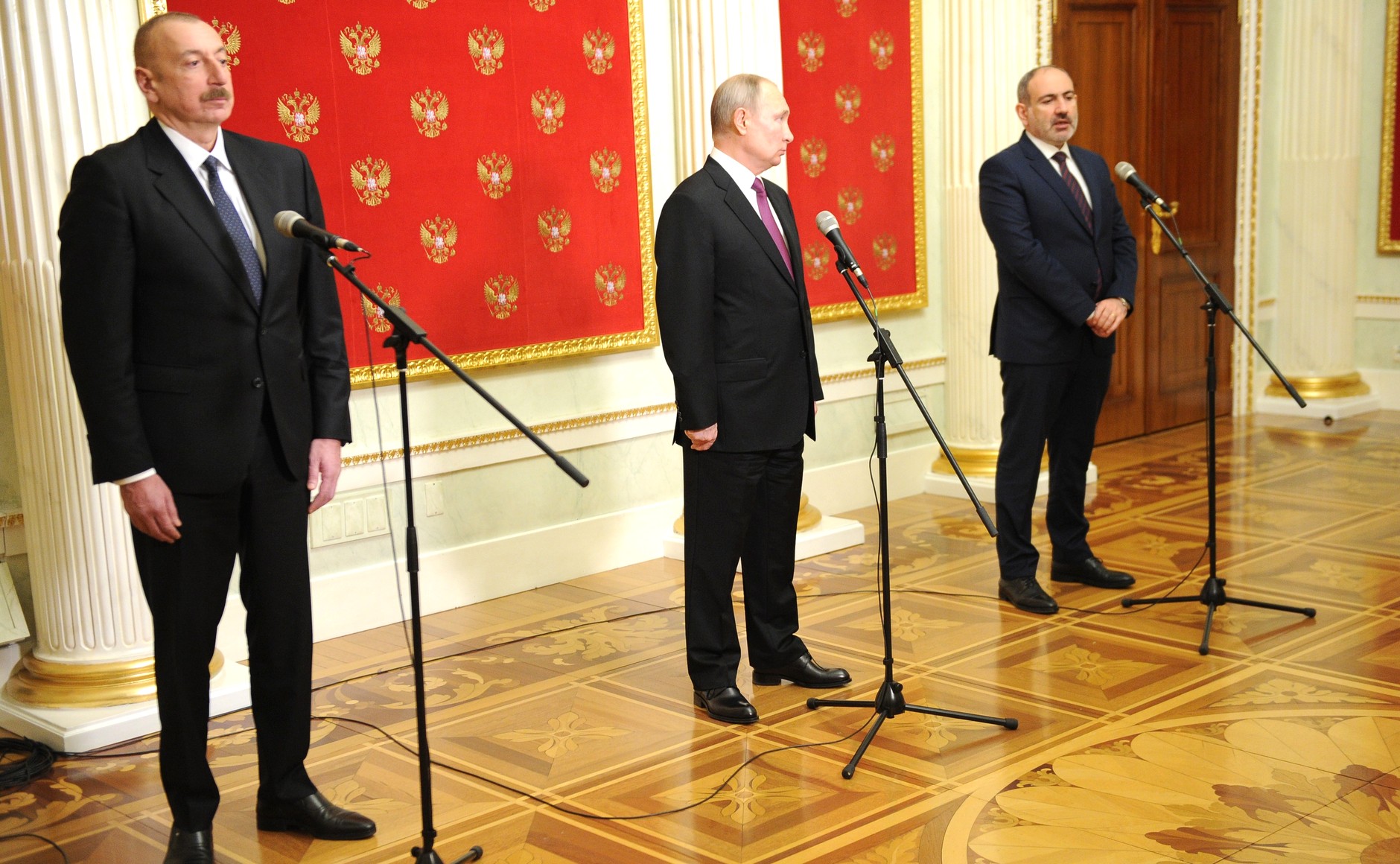 Vladimir Putin: I would like to once again thank my colleagues for today’s generally constructive work. Thank you. The source of information - http://en.kremlin.ru/events/president/news/64880 Meeting with President of Azerbaijan Ilham Aliyev Vladimir Putin met in the Kremlin with President of the Republic of Azerbaijan Ilham Aliyev. January 11, 2021 - 18:20 - The Kremlin, Moscow 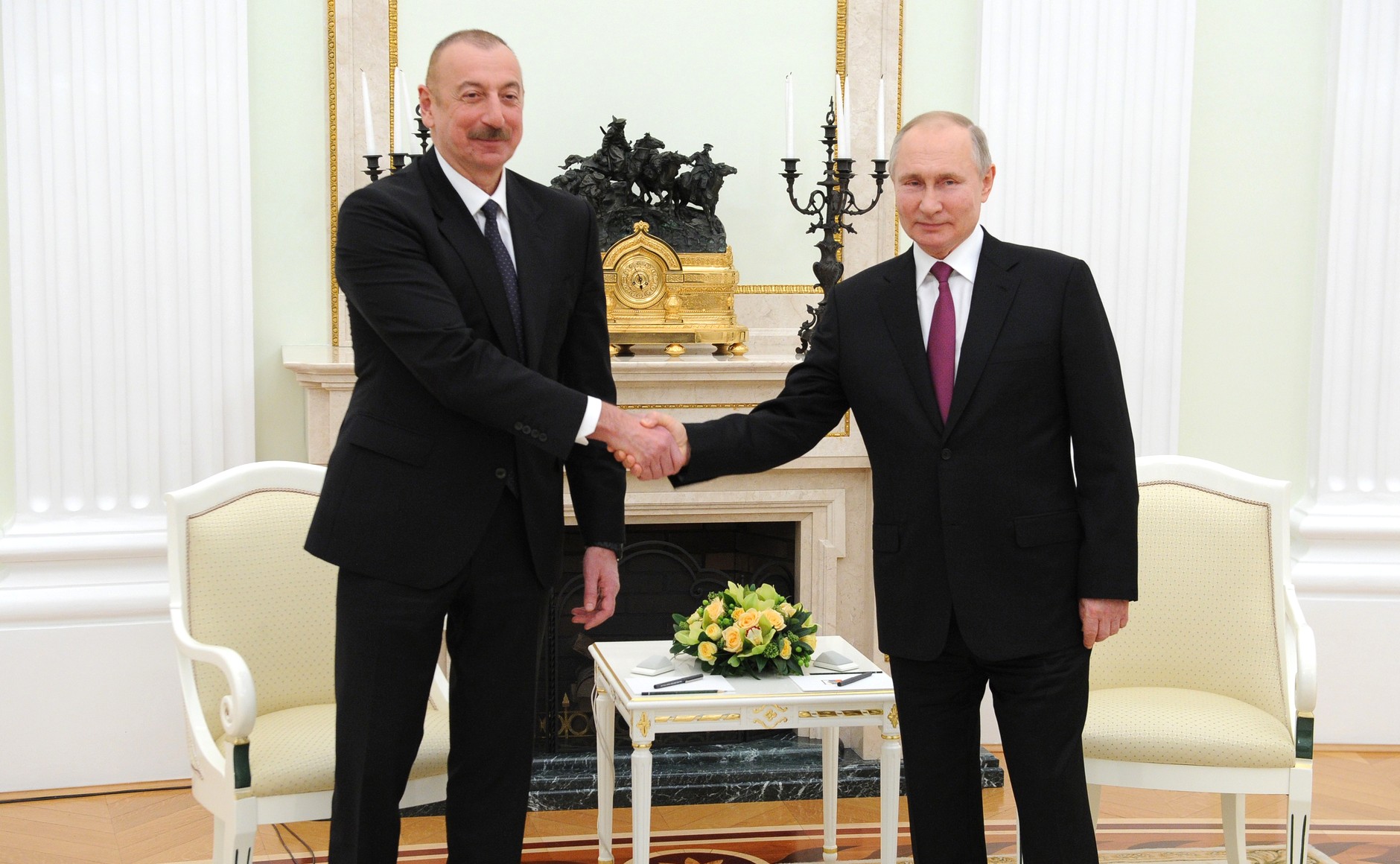 President of Russian Vladimir Putin: Mr President, I would like to welcome you in Moscow and thank you once again for accepting the invitation to come to the Russian capital. Of course, the serious situation and difficult developments in Nagorno-Karabakh were the most important events of the past year. But I would like to express satisfaction with the fact that we still managed to stop the hostilities, the bloodshed. And, as we have just said regarding our work today, the peacekeeping mission is fulfilling its function and the situation in general is gradually coming back to normal. I believe it is very important that today we worked out a joint statement based on a striving to settle the situation for the long-term. But beyond the events linked with the Nagorno-Karabakh settlement, we also have a bilateral agenda. In this context, I would like to note once again and to express gratitude to you for our joint efforts to celebrate the 75th anniversary of Victory in the Great Patriotic War. This was a momentous event for our countries, for all countries in the post-Soviet space, because we were fighting for the freedom and independence of our common homeland. Today, relations between Russia and Azerbaijan are making steady headway. This primarily concerns the economic component. We have many areas of cooperation and many similar interests in the economy. I am hoping that overall our efforts to settle the situation in the South Caucasus will also be useful for our bilateral ties, as I have mentioned. I believe this settlement will help us promote our relations and make them even more consistent not only in the economy but also in the humanitarian field. I would like to thank you again for being in Moscow today. 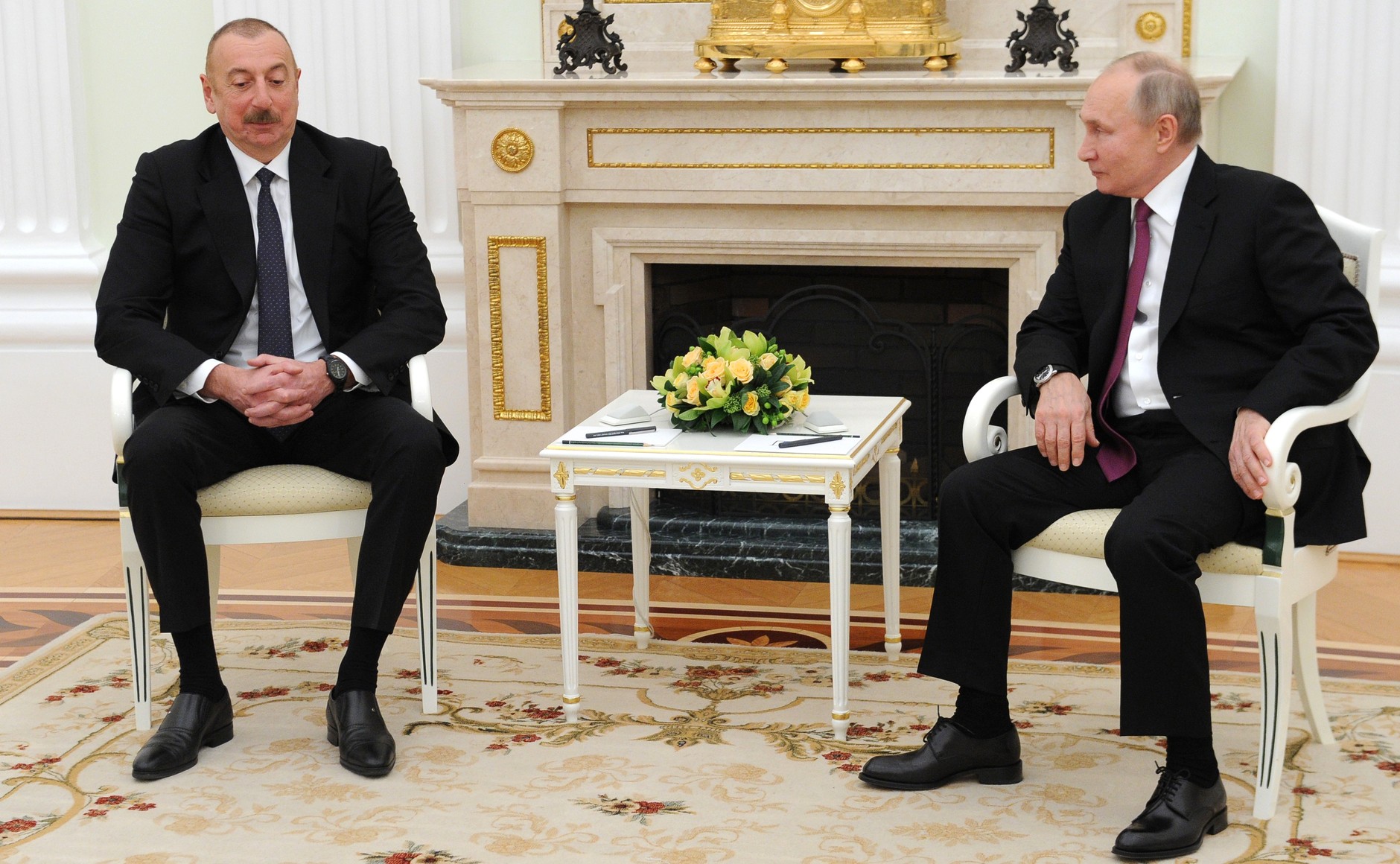 President of Azerbaijan Ilham Aliyev: Thank you, Mr President. It is always a pleasure to be in the Russian capital, and I would like to once again express my gratitude for the invitation and the initiative to hold this trilateral meeting. It was very practical, and I think productive because we were able to sign a Statement following the meeting. This is the second statement we have signed, two months after the war ended, which in essence draws a line under last year’s developments. The Statement aims to create a new situation in our region, to unblock transportation lines. This is critical because it allows Azerbaijan to have transport links to the Nakhichevan Autonomous Republic through Armenia after more than three decades. And Armenia will have railway access to Russia and Iran via Azerbaijan. We will also have access to the Turkish market through the Nakhichevan Autonomous Republic. In addition, Russian and Turkish railway lines can be linked. This Statement opens up tremendous opportunities. I know that the working group we have set up today will operate effectively and will regularly report to us on the progress of these projects. There are several projects there, not just one. I am sure they will all be implemented. I would like to thank you once again for your personal involvement in stopping the hostilities and signing the November 9 Statement. I think that you as the leader of Russia and as Armenia’s and Azerbaijan’s neighbour have once again displayed willpower, determination and wisdom. Today’s meeting, at your initiative, is further proof of how much you focus on this issue. Naturally, this makes us happy because any positive developments in the region largely depend on the Armenian-Azerbaijani conflict being settled, and now the conflict is already history. New potential is opening up which we could not have imagined before. As for bilateral relations, the trade decrease was not really significant despite the difficult pandemic-related year. I am sure that we will make up for that this year. The agenda is long and broad, including in the economy. Politically, Azerbaijan and Russia have long been strategic partners, and Russia’s involvement in stopping the war and in the peacekeeping mission shows that these are indeed long-term relations of strategic partnership that are maintaining ongoing progress. You noted cultural cooperation between our countries. This has always been marked by sincerity, efficacy and targeting specific results. We are committed to efficient cooperation in all other areas this year and in the years to follow. Meanwhile, the situation between Armenia and Azerbaijan that had been evolving for many years has finally been resolved, and I am confident that the Armenian side will make no attempts to reconsider the November 9 Statement so that both nations can find the will and wisdom to think about the future and reconciliation. Thank you once again for the invitation and for this initiative. Vladimir Putin: Thank you. The source of information - http://en.kremlin.ru/events/president/news/64881 Meeting with Prime Minister of Armenia Nikol Pashinyan Vladimir Putin met with Prime Minister of the Republic of Armenia Nikol Pashinyan. January 11, 2021 - 19:30 - The Kremlin, Moscow  President of Russia Vladimir Putin: Mr Prime Minister, I would like to welcome you again – this time to our bilateral meeting. I would like to thank you for agreeing to come to Moscow today. I believe that indeed, despite the problems you mentioned, which remain outstanding, I hope we will still be able to come to terms on the remaining problems including the humanitarian issues. I think that in general this meeting has been useful for determining the future of the region and the development of relations in the region, primarily between Armenia and Azerbaijan. I will say that we have certainly had and will have allied relations in all respects and we are close partners in many international organisations. However, today we spoke at length about the economy. I would like to mention in this context that despite the complicated year and despite all the difficulties, we still increased our trade by almost 4 percent, 3.9 percent in January-October, 2020. All this makes it possible to hope that as the settlement of the situation around Nagorno-Karabakh moves forward, we will make decisions that will definitely benefit the Armenian people, the Armenian state and our bilateral ties. 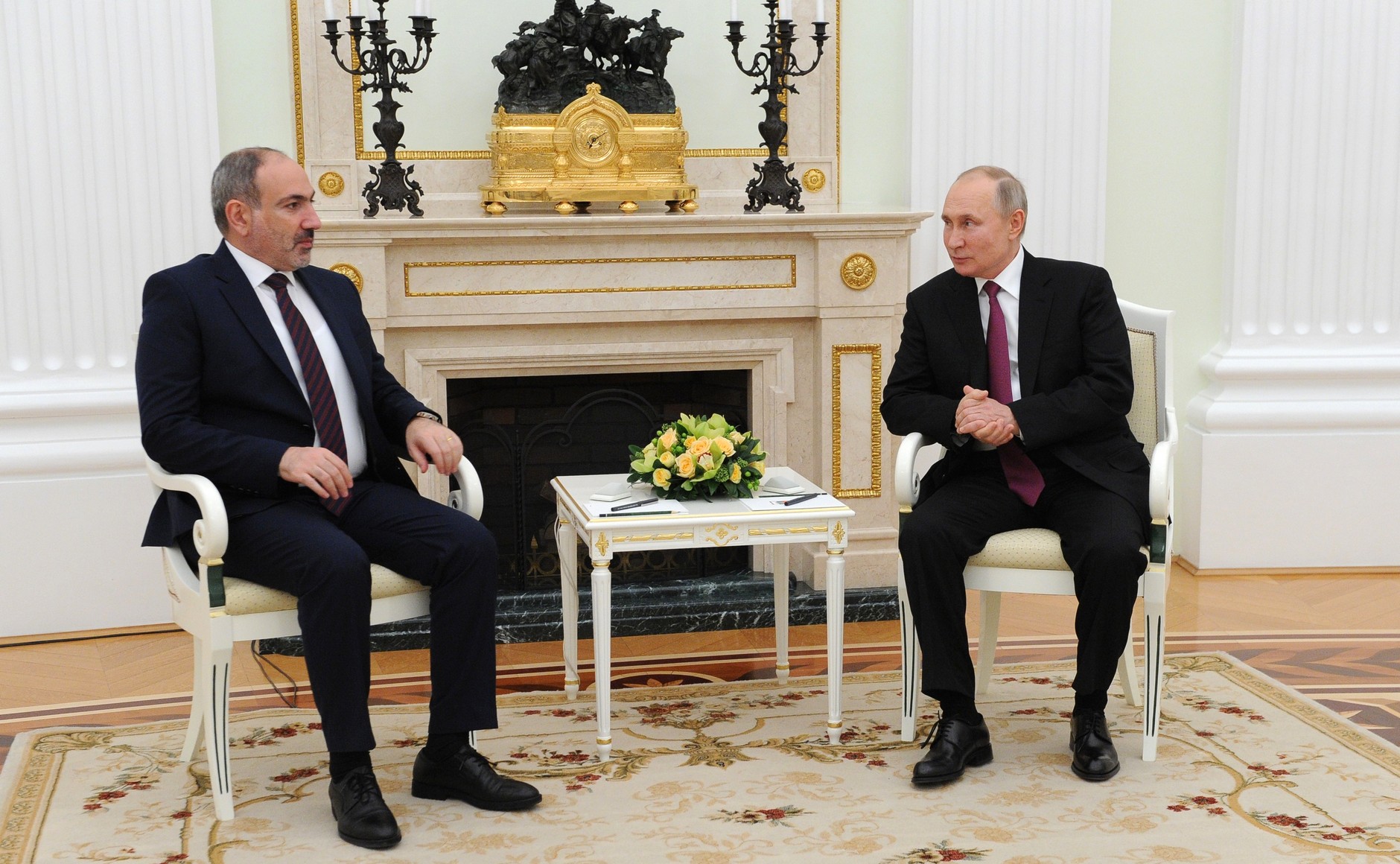 Prime Minister of Armenia Nikol Pashinyan: Thank you, Mr President. Today, we actually spent the whole day together. For over four hours, we talked in a trilateral format, and I am happy that after these talks, we have at least some results, and these results are important. As I have said, I am confident that the implementation of the agreements formulated in our joint Statement can seriously change the economic potential of our region and substantially enhance its investment appeal. However, as I also said, I think these economic issues are being complicated by the lack of progress on humanitarian matters. And, of course, as I said, the most sensitive issues for us and I think for all of us, are humanitarian matters linked with the prisoners of war, missing people, and the exchange of bodies. I would like to thank you for upholding and supporting this position. Of course, your personal contribution to the peace process has always been very tangible and is particularly special now, after the relevant events. I hope relations between Armenia and Russia will become deeper against the backdrop of these events. Russia has been and remains our main strategic ally in the security sphere. Of course, we still need to discuss not only the future of our region but also the agenda of our bilateral ties. I am happy to have this meeting and this opportunity to discuss everything today. Vladimir Putin: Thank you. The source of information - http://en.kremlin.ru/events/president/news/64883
__________________
Where should they dig the Very Deep Pit? Piglet said that the best place would be somewhere where a Heffalump was, just before he fell into it, only about a foot farther on. (c) Alan Alexander Miln |
|
|
#173 |
|
Senior Member
|
Greetings on Prosecutor’s Office Workers Day
Vladimir Putin congratulated current and former staff of Russia’s prosecution authorities on their professional holiday. January 12, 2021 - 09:00 President of Russia Vladimir Putin: Comrades, Congratulations to all Russian prosecutors and former staff of prosecution authorities on your professional holiday, Prosecutor’s Office Workers Day. For almost three centuries, prosecution authorities have been a tower of strength for our state, guarding the law and protecting society from arbitrariness and injustice. Serving the nation and our motherland remains the key principle for the office. These days, the prosecutor’s office, being an integrated and centralised system, plays an essential role in ensuring the rights and freedoms of our citizens, and in overseeing timely and accurate compliance with the provisions of the Constitution and Russia’s laws. It is making a significant contribution to Russia’s development as a democratic law-governed state. Your scope of work is always extensive. In 2020, prosecutors exposed over 3.5 million federal law violations. More than 820,000 submissions were made to remedy those violations. Almost 19,000 criminal cases were opened following inspection results. Behind every figure, there is restored truth and justice. This year too, I expect to see remarkable performance. Some of your priority tasks are to expose and rectify violations of people’s social rights, especially the rights of the most vulnerable groups. Last year, Russia faced a major coronavirus epidemic. In that extremely challenging situation, the state did everything to support the people, secure the economy, reinforce the public healthcare system, and took a whole range of other emergency measures. It is highly important that all the provided help reaches its recipients promptly and as intended, that healthcare workers, families with children and people out of work receive their financial support while small and medium-sized businesses and the self-employed can take advantage of their concessions in full, based on transparent and convenient rules. Of course, we need to step up our efforts when it comes to combating extremism and crime, clamp down on corruption and misappropriation of state funds. There are other areas that require utmost attention as well. They include supervisory support of national projects and environmental protection as well as ensuring that law is observed during the State Duma elections later this year. In each particular case, it is necessary to demand complete restoration of the rule of law and restoration of rights. It is important to take a resolute and principled approach. You have enough authority and competence for that. I should note that, considering that the prosecutor’s office performs the essential functions of ensuring the rights and legal interests of our citizens and the state, its constitutional and legal status was substantially upgraded last year. Among other duties, the prosecutor’s office received the authority to oversee compliance with the Constitution and the law; a new procedure for appointing senior officials of the prosecutor’s office was established; the guarantees of independence and transparency of the prosecution authorities were reinforced. I am convinced that this innovation will help you solve problems more efficiently and work towards your ultimate goal, which is to ensure that our citizens feel secure and protected by law. Comrades, I want to thank Russia’s prosecutors for performing their duties in good faith, and for their high professionalism. Once again, congratulations. I wish senior officials, current and former staff good health and success. Please pass my best wishes to your loved ones as well. The source of information - http://en.kremlin.ru/events/president/news/64882 Meeting with Minister of Education Sergei Kravtsov The discussion focused on remote learning at Russian schools and additional pay for classroom management. January 12, 2021 - 13:30 - The Kremlin, Moscow 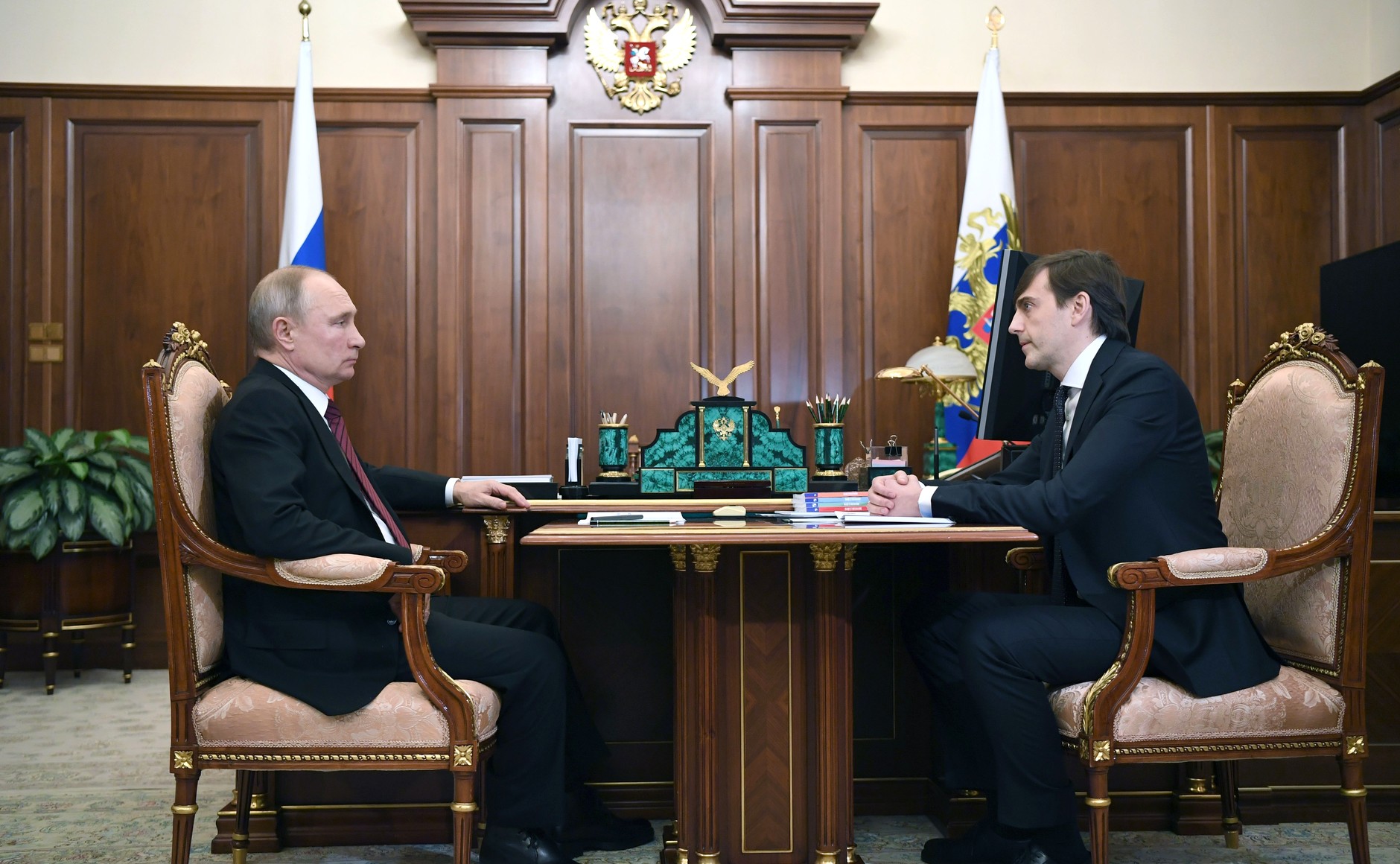 President of Russia Vladimir Putin: Mr Kravtsov, I have a few questions. I believe you have a great deal to tell me, yet I would like to begin with some of the current issues that are a major concern for many people, namely, our schools’ readiness, at least partial, for distance learning. Our plans for 2021 provide for completing the connection of all our schools to high-speed internet. How is this project proceeding? And what about some of the ministry’s other plans until 2024? 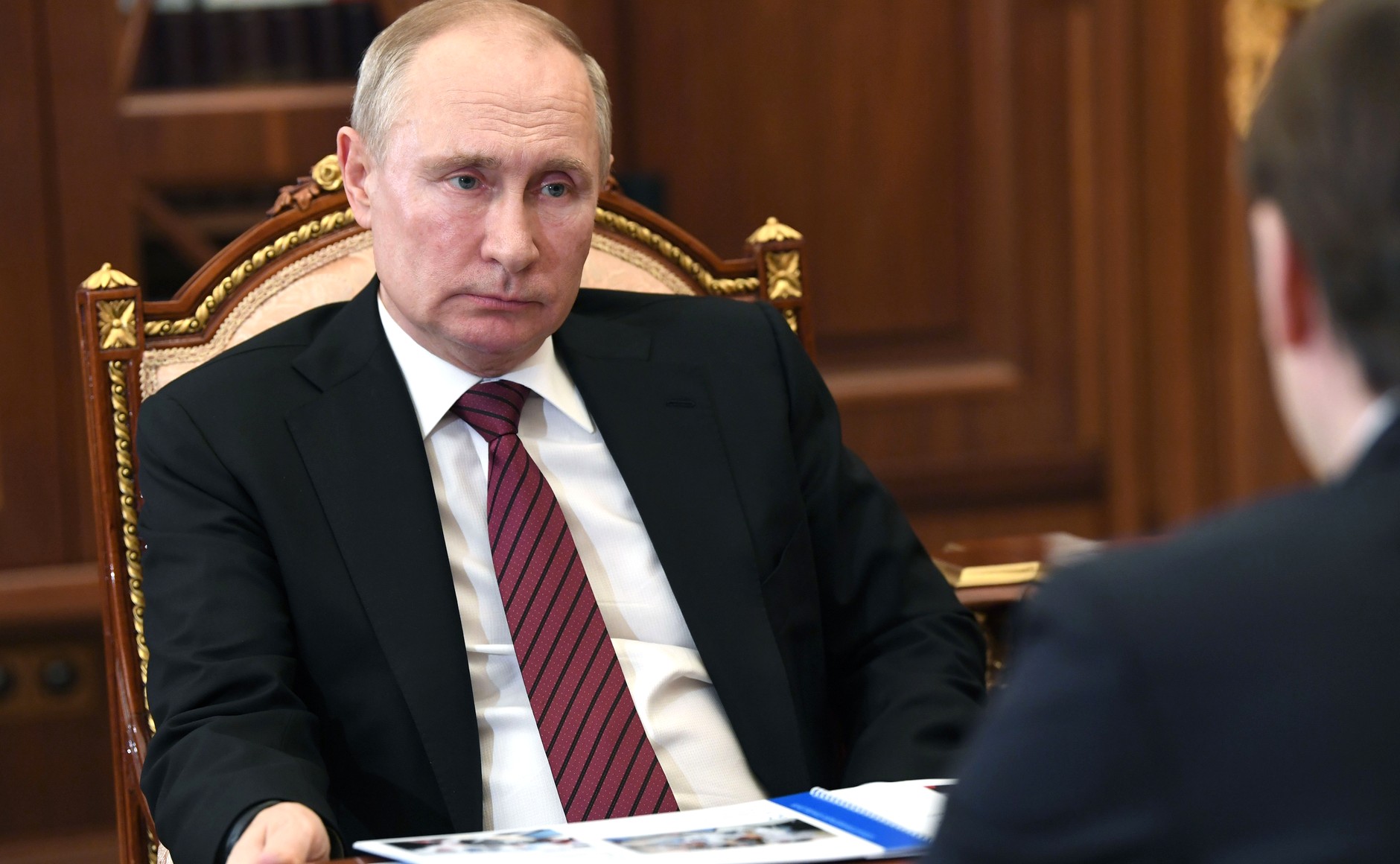 Minister of Education Sergei Kravtsov: Mr President, I would like to tell you that 2020 was not a simple year for our education system, but we managed to deal with our main challenges. As for distance learning or home schooling, it was a forced measure that we had to take last year to protect the health of our teachers and students amid the pandemic. This is why our schools introduced remote learning. But it will never replace traditional learning. Our schools reopened on September 1, and only revert to remote learning in a targeted manner when this is absolutely necessary. We have already created a digital education environment, which has complemented and reinforced traditional learning by responding to new challenges. The digital education environment includes a national system of videoconferences, which has been created to abandon our dependence on foreign analogues, and a national social network used for interaction between students, parents and teachers. The content of our digital education environment has been thoroughly checked; it corresponds to the federal standards and is reviewed by experts. As for our 2024 objectives, Mr President, you can see on the first slide the main parameters that have been set out in the form of express instructions in your executive orders. Our first objective is to build new educational establishments. Last year, we built 828 kindergartens for 122,000 children, and we will build another 767 kindergartens this year. Last year, we built 277 schools for 169,000 students. This year, we will launch a four-year long project to build 1,910 schools for 1.2 million students. It is important that we have coordinated the allocation of an additional 300 billion rubles with VEB and Sberbank, which means that we will be able to build 500 schools more. I would like to say a few words about our teachers. Last year was a difficult period for them, but they have managed, by and large. They kept in touch with their students, which was especially important for high school students who were preparing for the unified state exam. Last year, we reduced the amount of reporting for teachers. They have complained to you about this more than once, and now we have decided, together with Rosobrnadzor [Federal Service for Supervision in Education and Science], to reduce the number of papers teachers have to fill in to a minimum. They must not be bothered with paperwork. Secondly, we will introduce a unified system of teacher training already this year. We can see the positive effect of the transfer of teacher training universities to the Education Ministry. I would like to thank you for supporting this project. Last year, the GPA requirement at teacher training universities increased for the first time. We will also take a look at teachers’ salaries. 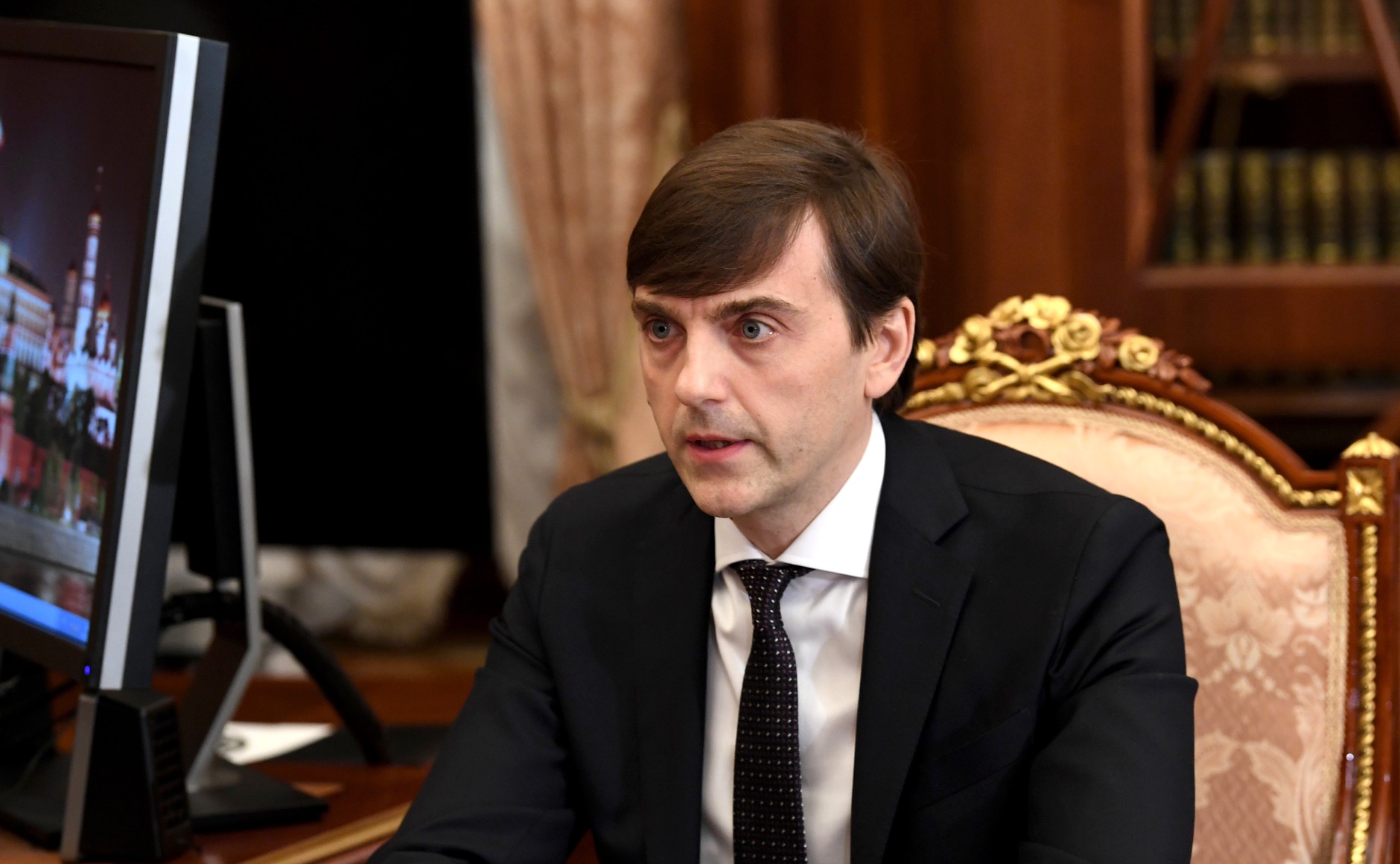 (The Minister also answered the President’s questions about additional pay for classroom management and student mentoring, since these questions were raised during the annual news conference, which included elements of the Direct Line. According to the Minister, 810,000 classroom teachers received additional pay starting September 1. The Ministry is monitoring this together with the Federal Treasury and the Federal Taxation Service. However, there are problems with payments for classroom management at vocational schools and colleges. The Minister said that they are working on this problem and he would report on the outcome to the President.) Last year, amendments to the Law on Education were adopted at your initiative to strengthen the mentoring aspect of school education. This year, schools in 10 Russian regions will introduce the post of school principal’s mentoring adviser with an additional pay of 15,000 rubles. I would also like to tell you about an impressive and very successful project we completed last year, the Bolshaya Peremena nationwide contest for school students. You have met with its finalists, bright and talented children who can inspire both their peers and adults with their ideas. This year, not only high school students but also 5th-formers will take part in this contest. Last year, we adopted a strategy for the development of secondary vocational education. We are synchronising curricula at colleges, where 60 percent of school students enrol after the 9th form. We can see that there is considerable interest for technical trades. Therefore, it is extremely important for children to be able to realise their potential and to find jobs in the professions they acquire at colleges in their cities and regions. Mr President, I would like to say in conclusion that this year we will introduce incentivising monitoring of the regions when it comes to the quantitative and qualitative factors I have mentioned, including for the construction of schools and kindergartens, the mentoring aspect, and advanced training for teachers. We must assess the individual contribution of reach region to the achievement of the objectives you have outlined for the national system of education. 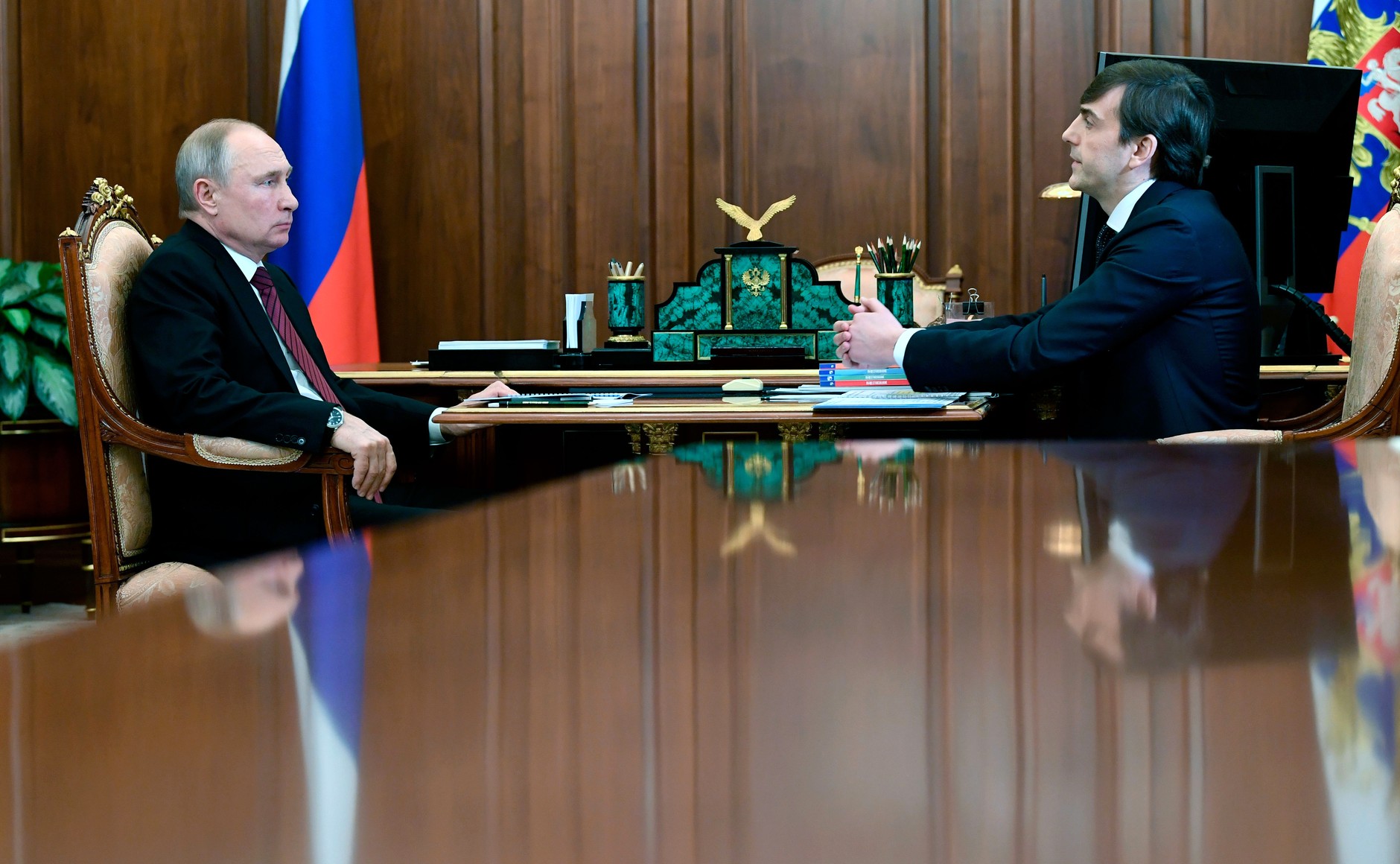 Vladimir Putin: Good, thank you. The source of information - http://en.kremlin.ru/events/president/news/64884 Telephone conversation with President of Turkey Recep Tayyip Erdogan Vladimir Putin had a telephone conversation with President of the Republic of Turkey Recep Tayyip Erdogan. January 13, 2021 - 15:15 Vladimir Putin spoke about the key outcomes of the trilateral meeting between the leaders of Russia, Azerbaijan and Armenia on January 11 in Moscow to review the implementation of the Statement on Nagorno-Karabakh of November 9, 2020. It was emphasised that one of the main results of the negotiations was Azerbaijan and Armenia reaffirming their intention to normalise relations and their readiness for hands-on cooperation in establishing a peaceful life and resuming economic and transport ties. The general stabilisation of the situation around Nagorno-Karabakh has enabled them to agree on a number of important steps in this direction. For his part, Recep Tayyip Erdogan expressed support for Russia's efforts towards a settlement in Nagorno-Karabakh, and reaffirmed support for the further coordination of actions between Russia and Turkey, including in the interests of the economic development of the region and the promotion of mutually beneficial projects. Separately, they touched upon several aspects of establishing a Russian-Turkish joint centre to monitor the ceasefire and all military action in the conflict zone. When discussing the bilateral agenda, they focused on the tasks of increasing mutual trade, expanding cooperation in key areas, as well as combating the coronavirus pandemic, including plans for joint production and use of vaccines. Vladimir Putin and Recep Tayyip Erdogan wished each other a happy New Year and expressed confidence that the multifaceted partnership between Russia and Turkey will continue to develop in 2021. It was agreed to maintain a regular dialogue at various levels. The source of information - http://en.kremlin.ru/events/president/news/64887 Meeting with Government members The President held a meeting, via videoconference, with members of the Government of the Russian Federation. January 13, 2021 - 16:00 - Novo-Ogaryovo, Moscow Region The results of road construction in 2020 and plans for 2021–2023 were the main item on the meeting’s agenda. Reports on this issue were delivered by Deputy Prime Minister Marat Khusnullin and chairman of the State Council commission on Transport, Head of Buryatia Alexei Tsydenov. Deputy Prime Minister Tatyana Golikova reported on the current epidemiologic situation and preparations for the next major phase of public vaccinations against COVID-19. Deputy Prime Minister Dmitry Chernyshenko spoke about the accessibility for citizens of services when applying for social payments and about new digital services on gosuslugi.ru public services portal. The report by Deputy Prime Minister and Chief of the Government Staff Dmitry Grigorenko covered issues of improving control and supervision activities. The meeting was attended by Prime Minister Mikhail Mishustin, Chief of Staff of the Presidential Executive Office Anton Vaino, First Deputy Prime Minister Andrei Belousov, First Deputy Chief of Staff of the Presidential Executive Office Sergei Kiriyenko, deputy prime ministers Viktoria Abramchenko, Yury Borisov, Alexander Novak, Alexei Overchuk, Deputy Prime Minister – Presidential Plenipotentiary Envoy to the Far Eastern Federal District Yury Trutnev, presidential aides Maxim Oreshkin and Igor Levitin, Minister of Economic Development Maxim Reshetnikov, Minister of Finance Anton Siluanov, Minister of the Interior Vladimir Kolokoltsev, Minister of Industry and Trade Denis Manturov, Minister of Healthcare Mikhail Murashko, Minister of Transport Vitaly Savelyev, Minister of Construction, Housing and Utilities Irek Fayzullin, and Chairman of the Accounts Chamber Alexei Kudrin. 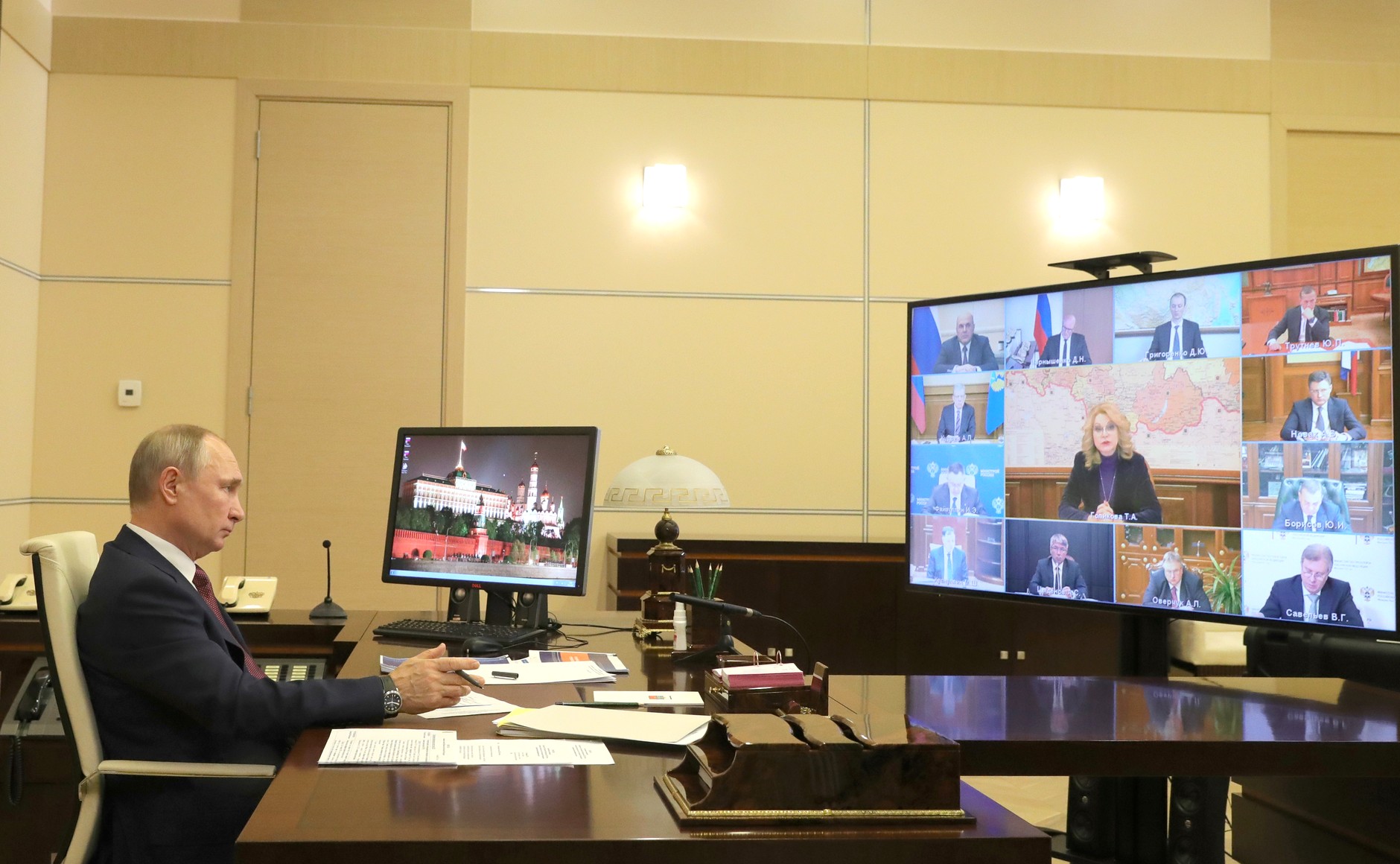 President of Russia Vladimir Putin: Good afternoon, colleagues. Today we will listen to Mr Khusnullin, who will report on the results of road construction in 2020 and plans for 2021–2022. Overall, we must pay more attention in the near future to infrastructure development in general, not just roads, but also railway construction, development of pipeline systems and of transport in general. We recently discussed the importance of the country’s spatial development and connectivity between various Russian regions, bearing in mind the huge size of our territory. We must tie this to the development of the real economy with a view to modern trends of economic development in the world and in our country. But we will start, in the near future, with the power industry. I have asked our colleagues in the Government, the Presidential Executive Office and the regions to prepare these issues for joint discussion at the State Council and the Government. After that we will meet in an expanded format to coordinate our decisions on the most complicated matters. Today we will listen to a report on road construction, as I have already mentioned. But before focusing on the main issue on our agenda today, I would like to ask Ms Golikova to update us on the situation with the coronavirus infection. We can see that the efforts to eliminate this disease around the world and to prevent its negative impacts have not succeeded, so far. But first of all, we should be interested in what is happening in the Russian Federation. We have noticed a certain decrease [in the number of new cases], but this is no reason for complacency. We are aware of the developments in some other countries, for example, Britain, which we are following with concern, and we maintain contact with our European partners regarding this. All these things are interconnected; travelling is unavoidable, and the restrictions we have introduced on communications and transport ties are a temporary measure. We must be aware of what is happening in this country and how we can deal with new threats, including new strains of the coronavirus infection. Ms Golikova, please. We maintain regular, almost daily contact with you. Please, tell us about what is happening today, right now, so that our colleagues will learn about the situation in the regions and hear your opinion. 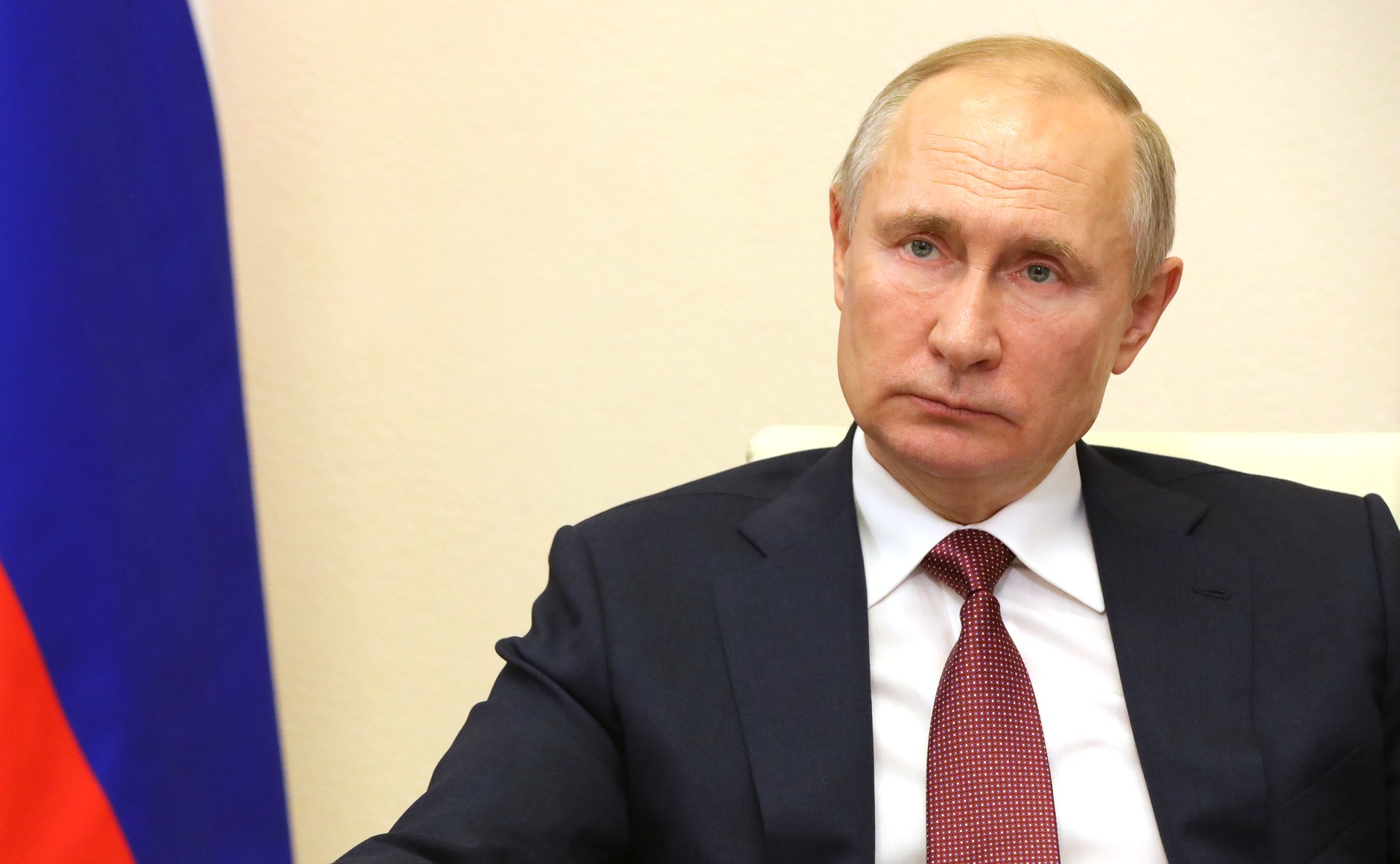 Deputy Prime Minister Tatyana Golikova: Mr President, colleagues, Good afternoon. At yesterday’s meeting of the Coordination Council Presidium, chaired by Mr Mishustin, we reviewed how the epidemiological oversight and healthcare systems performed during the New Year holidays. On the whole, as I have already said, during the New Year holidays, the systems of epidemiological oversight and medical aid for the population performed without any setbacks although the spread of the new coronavirus infection has been affected by the traditional increase in the demand for medical aid due to injuries and intoxication. About 285,000 new cases of the novel coronavirus infection have been registered so far this year. Compared with the last 12 days of December, this is a decrease of more than 15 percent. Almost 274,000 people have recovered since the start of 2021. As for the rest of the world, and you mentioned this, Mr President, in your opening remarks, in the first week of 2021 the number of diagnosed coronavirus cases increased by 5.5 percent. Almost half of all new cases are concentrated in America and 38 percent have been registered in Europe. The number of the new coronavirus cases recorded is rising in 23 out of 55 European countries. As you have already said, in absolute terms, the biggest number of cases was recorded in the United Kingdom (a growth of almost 34 percent) in the first week of this year as against the last week of 2020. This is connected with the spread of the new coronavirus strain that was identified by our British colleagues. As you know, I reported to you, we are closely following this situation and conducting relevant research. We will report to you on the results upon its completion. The daily incidence rate in Russia has fallen from 19.9 to 15.6 cases per 100,000 people. The situation in the regions remains different but in the past two weeks the number of cases has either gone down or stabilised in 83 regions. For the time being, the incidence rate is on the rise in two regions. During the holidays, we managed to continue with a fairly high level of testing for the new coronavirus infection. On average, we prevented any reduction in the established norms although commercial laboratories reduced their testing during the days off. While highlighting these encouraging epidemiological data across Russia, I still want to warn our citizens. The New Year holidays are over and as usual, after such long holidays, we monitor incidence. This monitoring, based on certain criteria, will last two weeks – the time known as the virus incubation period. Therefore, I urge our citizens to continue to comply with the restrictive measures. I am mainly referring to wearing facemasks, social distancing and other recommended measures. I would also like to highlight once again something I discussed with the Prime Minister yesterday: Rospotrebnadzor has approved all the methodological recommendations for industries, so I would like to ask our colleagues, employers, to follow these recommendations. As I said, the healthcare system worked smoothly through the New Year holidays. To date, Russia has deployed 277,000 COVID beds in hospitals. As of yesterday morning, the average bed occupancy rate was 69.2 percent, because, among other things, at the end of 2020 you made a decision to support the regions by providing financial resources for pharmaceutical procurement to provide patients with free medicines in outpatient care. The allocations to the regions totalled 7.8 billion rubles, and at the end of December, another 2.8 billion rubles for the purchase of medicines in January. So as of today, 813,500 patients were provided with medicines in outpatient care. I would like to thank the regions for their work. Yesterday, at the Coordination Council meeting, the Prime Minister instructed to allocate about 2.7 billion rubles to the regions for the provision of medicines in outpatient clinics in February. We are currently preparing a corresponding document for submission and signing. I would like to note once again that at yearend, the output of domestic medicines had increased many-fold compared to the level at the start of production. The average weekly increase in the output of anti-COVID products grew 301 percent between April and December, and 38 percent between November and December. Our industry and the Ministry of Industry and Trade have made significant efforts to this end. In 2020, we purchased 2,936 ambulances for all the regions of the Russian Federation. Following the decision that was made at a meeting you chaired, Mr President, to buy ambulances using the funds allocated for the programme of modernising the primary care system, I would like to report that these 2,000 ambulances have been manufactured and sent to the regions. As of today, 1,848 ambulances have been dispatched and 152 vehicles with off-road capabilities are still on the way because they are being sent to remote areas – the Altai, Khabarovsk and Trans-Baikal territories, the Yamalo-Nenets Autonomous Area, the Republic of Sakha (Yakutia) and the Sakhalin Region. On December 30, 2020, the Chief Doctor of the Kandalaksha Central District Hospital handed car keys to Tatyana Yakovleva, a doctor at an outpatient clinic in the village of Alakurtti in the Murmansk Region. Her appeal was voiced at your news conference. I would like to mention, Mr President, that now insurance and other papers for this car are being processed by road traffic safety inspectors. As for vaccination against the novel coronavirus infection, it was carried out as scheduled despite the holidays and is now continuing as planned. About 600,000 vaccine doses will be sent to regions on January 11–14. We will continue building up vaccine production and supplies to the regions. As you know, since November 2020, medical workers and others who help coronavirus patients have been receiving special social payments. I would like to report that last November and December, 44.4 billion rubles were paid to 1,435,000 medical workers. Ledgers are continuing to arrive because of the holidays and we are promptly making these payments. Following the decision made at your meeting on New Year’s eve, we doubled the pay of those working during the holidays. By January 15, 2021 the Healthcare Ministry must submit the ledgers of medical organisations to the Social Insurance Fund, and from January 16, this Fund will be making double payments. Starting from February 1, 2021, the Fund will be making full payments for January 2021. Mr President, I would like to report once again that the Government of the Russian Federation is in full control of this work in all aspects and areas. Thank you for your attention. 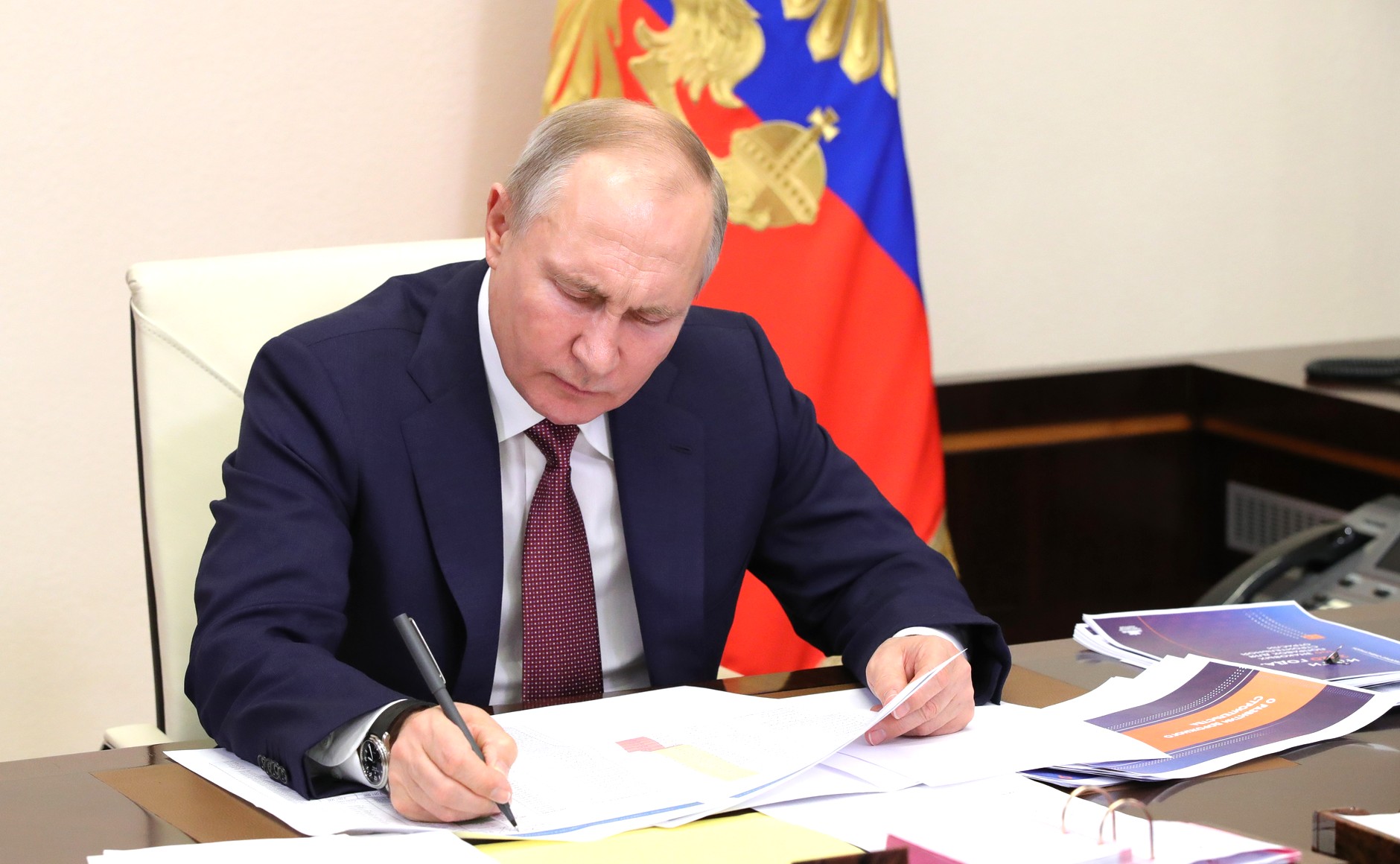 Vladimir Putin: All right, thank you. I would like to draw your attention, Ms Golikova, and that of your colleagues in the Healthcare Ministry, to the following: based on documents and reports from the regional leaders, the volume of medical treatment rendered during the holiday season did not drop, which is a positive indicator. This is thanks to you, the Healthcare Ministry, and the heads of the relevant regional bodies, and the medical personnel who were working throughout this period. This is why, as you said, the double payment I asked for just before the New Year, should be distributed completely within the timeframe you set. This is the first thing. Second, is, as you put it, the continuing research on the coronavirus infection. We are seeing a surge in cases in some countries. It is unclear whether this surge is caused by a new virus strain or a lack of proper discipline during the holiday season. We must have a clear understanding of how the vaccine is doing; I am aware that we have these new strains, and our researchers and specialists are working on it. I believe the Russian vaccine is the best in the world, which is now absolutely obvious. We thought so before, and now experience proves it. No other preparation of this kind shows the same level of protection and the same degree of health safety. This is a clear achievement by our researchers and scientists. However, we have to find out how it will work against the various strains. I know our researchers’ opinion, who believe our vaccine will work effectively regardless of the strain. However, more in-depth studies are needed. I ask you to oversee this research in full and see to it that everything meets the highest standards, as it has been until now. Regarding the regions. According to the reports I have, and you also mentioned this, the situation differs in various regions. Initially we allowed the regional governors to independently decide on restriction measures in the economy, the social sphere and in transport, that’s true. Nevertheless, we should constantly stand by our colleagues and offer them methodological, organisational and administrative assistance as well as financial assistance if needed, like we have been, and this also applies to the Healthcare Ministry. I assume that everything that has recently been worked out will be implemented in full. I mean we are rolling out the vaccination and are now moving to the public vaccination phase. Last week the Prime Minister told me that the industry had not only produced all the amounts and volumes they promised but had also exceeded the planned production volumes. We need to move from large-scale to full public vaccinations. I want you to keep this in mind and prepare for the organisation of this. Thank God our vaccine does not require extreme or unusual conditions for shipping or transportation like a temperature of minus 50 or 70 degrees. Things are much simpler and more efficient with us. So it is possible to do this. This is why I ask you to launch public vaccinations for the entire population as of next week and work out a schedule for this as we normally do with other diseases such as the flu. We have a generally streamlined system and so we must get to a larger scale in this. What do you think of the possibility of moving on to a new scale, to a full public vaccination programme? Tatyana Golikova: Mr President, thank you for appreciating our efforts. I would like to say that during the pre-holiday period and in the first working days of this week, we have made efforts to evaluate the capacities of our domestic enterprises that produce COVID-19 vaccines, particularly in view of the required quality trials that take a certain period of time before a vaccine can be launched. As of today, 1331 vaccination centres have been set up in Russia, and we are urging the regions to increase this number as the volume of the vaccine, for free COVID-19 injections, will increase many-fold compared to December. Starting Monday, we are ready to implement your instruction on shifting from large-scale vaccination to more extensive public vaccination efforts in January, February and beyond. We will hold additional consultations with the regions. Tomorrow, I am planning to chair a meeting of the emergency response centre, at the Prime Minister’s instruction, to discuss details of the process with the regions in order to avoid any setbacks during this large public process. In addition, I would say that the manufacturers are making every effort to increase vaccine production volumes. By the end of January, 2.1 million doses will be provided for citizens, and this requires a serious effort to promote the use of the vaccine. We will also step up the information campaign on the safety and efficiency of the vaccine, as you mentioned. As of today, I can say that the work to sequence the new COVID-19 strain performed by the Vector Research Centre shows that the vaccine is effective against this strain. Yet, as I already mentioned, we are conducting additional research to be absolutely certain that this is indeed so, but we already have reason to say this. We are conducting research on animals at this point. Vladimir Putin: Good. Thank you. Tatyana Golikova: Mr President, I would also like to mention that the sequencing of the new strain or any other strain of infection is essential, and we are working to refine this technology. We always make a comprehensive effort, but we want to increase the work on sequencing new strains of infectious diseases. This will allow us to receive a broader picture of the infections that spread across Russia and the world. Thank you. Vladimir Putin: Good. Thank you. I believe the work will continue at the appropriate level. The source of information - http://en.kremlin.ru/events/president/news/64886 Greetings on the opening of the 12th Gaidar Forum, Russia and the World after the Pandemic Vladimir Putin sent a message of greetings to the participants, organisers and guests of the 12th Gaidar Forum, Russia and the World after the Pandemic. January 14, 2021 - 08:00 The message reads, in part: “Your traditional meetings invariably attract many diverse participants, offer a packed agenda and set the benchmark for expert discussions on a wide range of issues that are crucial for Russia and other countries. Last year our nation and the world faced the coronavirus pandemic. It became a grave threat to people’s lives and safety, an unprecedented ordeal for national economies and many key areas including healthcare, education, culture, small and medium-sized businesses, and the services sector. It is crucial for us today to learn the lessons from these new challenges and to work not only to recover business activity and the labour market but also to ensure qualitative development in all spheres including increasing average income levels, resolving infrastructure and environmental problems, and introducing advanced digital technologies in all areas. This is why I consider the theme of this year’s forum, Russia and the World after the Pandemic, exceptionally current and much needed. I believe that the forum will be successful and that its participants will share their assessments and experience and will propose substantive initiatives and recommendations that will have broad practical application.” The source of information - http://en.kremlin.ru/events/president/news/64890 Working meeting with Head of Udmurtia Alexander Brechalov Head of the Udmurt Republic Alexander Brechalov briefed the President, via videoconference, on the region’s socioeconomic development. January 14, 2021 - 13:40 - Novo-Ogaryovo, Moscow Region 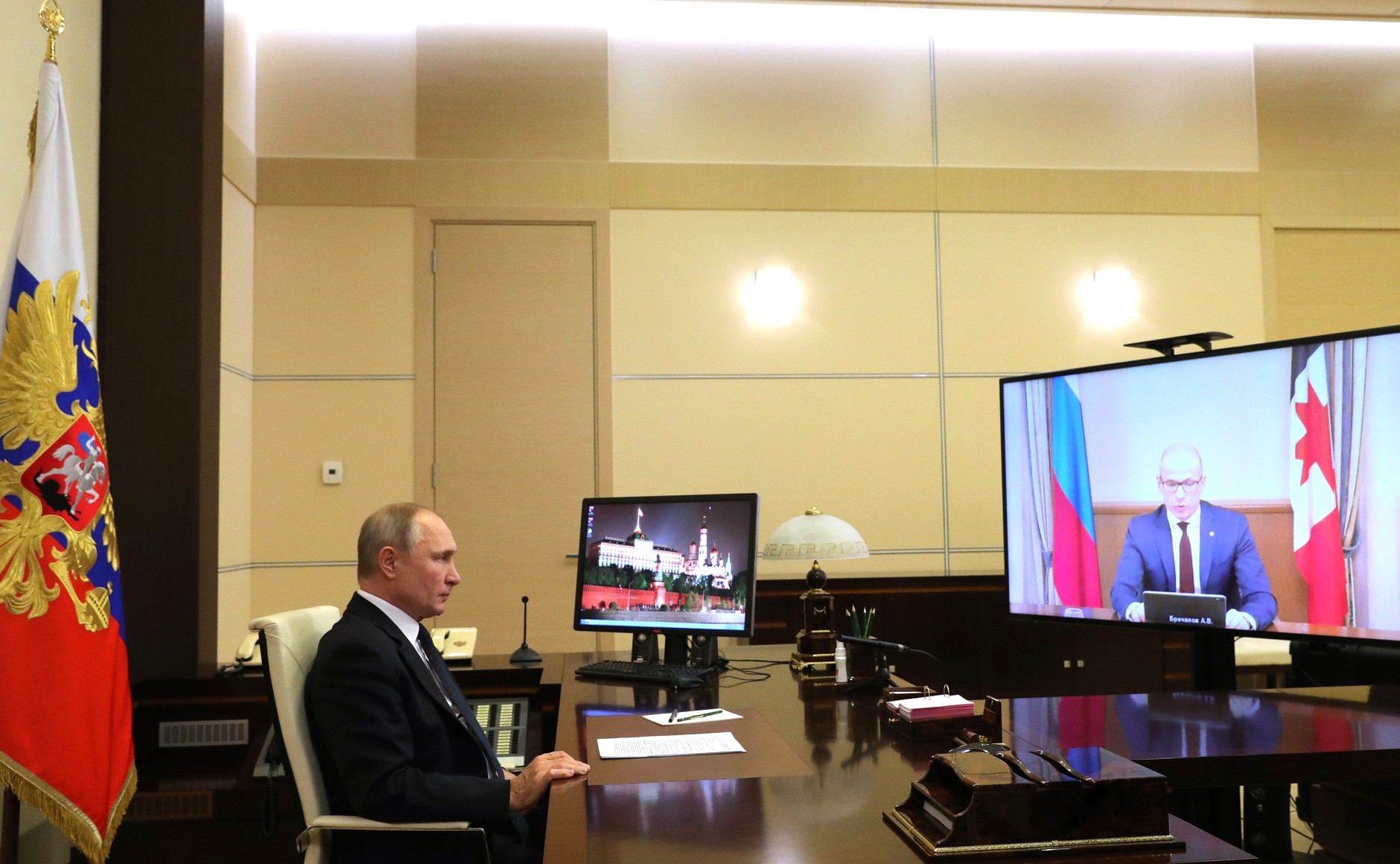 First, Alexander Brechalov reported on the situation with the COVID-19 infection. He said additional hospital beds had been deployed due to the spread of the disease, and that outpatient clinics were providing patients with anti-COVID medications. He also discussed the vaccination programme and the assistance rendered to the Republic by the Russian Healthcare Ministry. The President asked him to maintain contact with other regions and to provide mutual assistance, if necessary. Mr Brechalov recalled that the Udmurt Republic had marked its 100th anniversary in 2020 and noted that its most significant achievements were linked with local manufacturing plants. Out of the Republic’s six cities, four evolved as industrial centres. Most plants opened in the spring of 1941. Gunsmiths in Izhevsk and the whole of Udmurtia made a substantial contribution to the victory over Nazi Germany. Mr Brechalov thanked the President on behalf of the people for conferring the title of City of Labour Glory to Izhevsk whose 260th anniversary was marked in 2020. Mr Brechalov noted that the Udmurt business community had effectively coped with the challenges of the pandemic and had received substantial support, in particular, 24,000 small businesses received support, and this made it possible to preserve over 80,000 jobs. According to Mr Brechalov, non-commodity and non-energy exports reached $402 million in ten months of 2020, up 7 percent over 2019. The United States, Germany, Switzerland, Austria, the CIS countries and China buy Udmurtia’s goods and agricultural products. For example, the large company KOMOS has started exporting milk and ice cream to China, and meat to Mongolia. There are plans to export eggs to Saudi Arabia. A micro business in the village of Vyatskoye with a population of 380 people has implemented its own project with the support of the Russian Agriculture Ministry, and 2.5 tonnes of comb honey have been delivered to Switzerland. Major efforts were exerted to support entrepreneurs on digital platforms, and the e-commerce network supported 61 micro and small businesses. At the end of 2020, Udmurtia placed among the top three eBay exporters after Moscow and St Petersburg. The Republic has launched its own marketplace called udm.market representing over 136 small businesses free of charge.  The Republic has many defence enterprises that organise production of civilian goods and export them. Alexander Brechalov used Axion as an example: the very enterprise where the first AK-47 was made. Today, Axion also produces medical equipment and household appliances and exports those to 17 countries. In 2020, exports of medical equipment grew 40 percent compared with 2019, and exports of household appliances by almost 68 percent. In general, the share of civilian or dual-use goods manufactured by companies of Udmurtia’s military-industrial complex at the end of 2019 was about 20 percent, and over the first nine months of 2020 it was already 25 percent. Regarding the social sphere, Alexander Brechalov talked about the construction of kindergartens, schools, and paramedic centres as well as repairs and renovations of other social facilities, road and housing construction, and the reconstruction of the airport in Izhevsk. Vladimir Putin noted that the overall situation in the Republic was stable and suggested talking about the region’s problems and proposals on solving the most acute ones. Alexander Brechalov reported on the problem with the Republic’s debt, which grew due to the circumstances in 2020, although, he added, tax revenues and the share of taxes paid to the federal budget have been growing every year. The Republic does apply for Government financial support, but it is also working to change the situation, in particular, to develop the economy, to optimise spending of budget funds and make it more efficient, to carry out administrative reform. According to the head of the region, Udmurtia needs an individual development programme designed together with the Russian Government. He believes that in the short term, Udmurtia will be capable of strong growth, but it requires assistance in implementing investment projects. 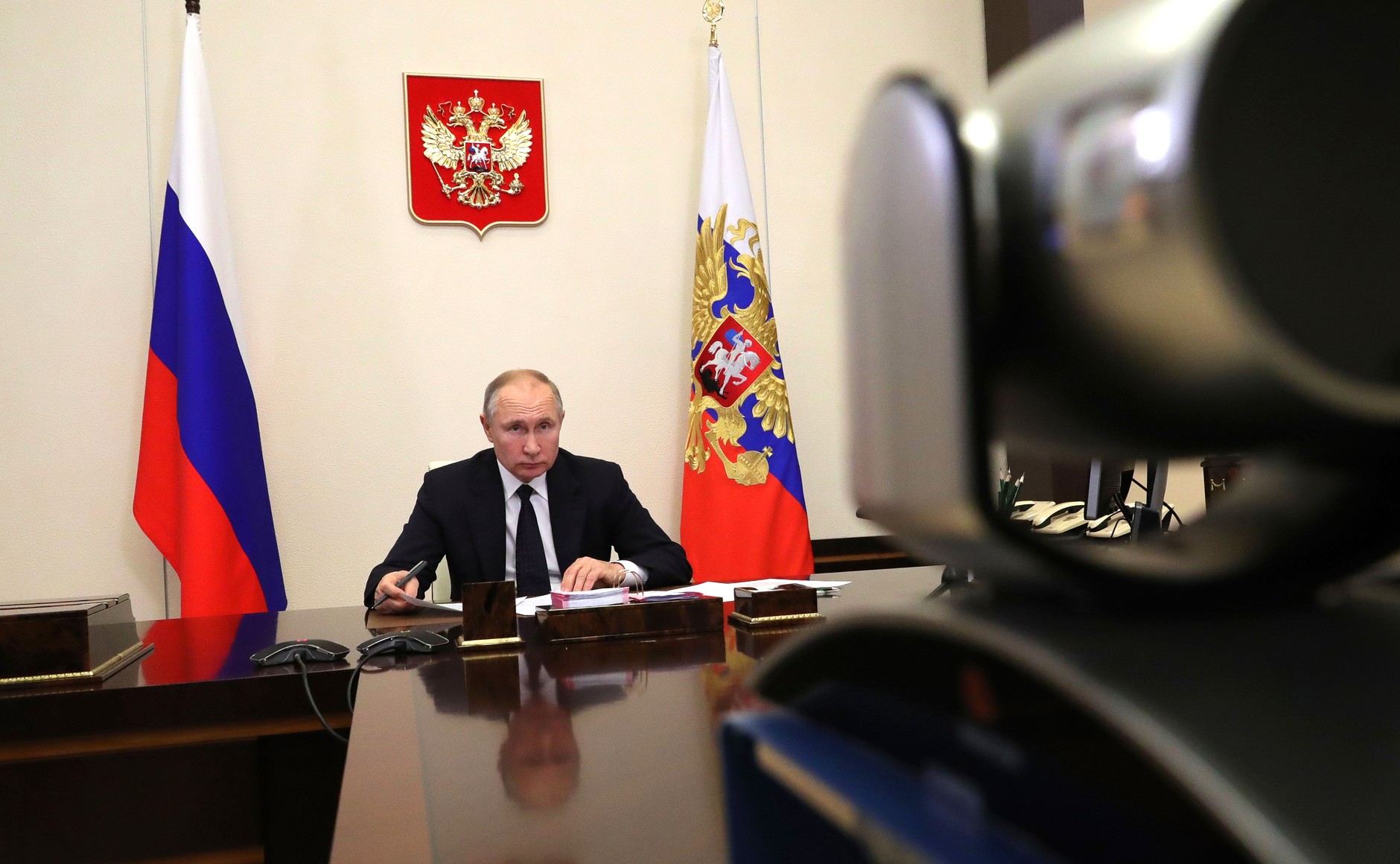 The President noted that in general the head of the region and his team were managing their tasks well. Positive trends could be seen in all main areas. Efforts taken to hold down retail prices, which were growing slower than average in Russia, the level of dilapidated housing lower than the national average, and the growth of construction volumes in 2019 and 2020 are among the positive aspects. At the same time, Vladimir Putin noted a slight increase in the unemployment rate and the fact that the number of roads not up to the standard was still high. He also noted that the effort to find ways to produce civilian goods at the Republic’s defence enterprises was still low, emphasising that these companies were not of regional importance or not regional property, therefore they needed support from the Government, ministries, agencies, and the holdings they belong to. The President asked the head of the region to maintain close contact with these enterprises and promised support, if necessary. At the same time it was important for them to avoid any lay-offs, because every effort should be taken to maintain employment in the region. Vladimir Putin noted that in general the tasks facing the Republic were being addressed steadily and in a quality manner. The development pace achieved in some areas was very good. With regard to the Republic’s development plan, the President called it a very good idea and that it should be finalised by his Executive Office and the Government. The source of information - http://en.kremlin.ru/events/president/news/64891 Greetings on 10th anniversary of Investigative Committee January 15, 2021 - 09:00 President of Russia Vladimir Putin: Comrades, I would like to congratulate all of you on the 10th anniversary of the establishment of the Investigative Committee of Russia as a standalone federal agency entrusted with broad powers in the sphere of criminal proceedings and, in general, in ensuring law and order. This high independent status helped you to take the operations of investigative authorities to a fundamentally new level, to create conditions for a more effective fight against corruption, crimes of terrorism and extremism, as well as other serious and socially dangerous criminal offences. I would like to mention a sphere of your activities that has not only a legal but also a moral dimension, namely, the suppression of any attempts to rehabilitate Nazism. It will not be an exaggeration to say that today absolutely all investigative officers are doing a responsible and complicated job of huge significance for the state and the people. Its vital features are persistence and integrity, high probity and moral uprightness, and, of course, strict commitment to law. I am aware that the absolute majority of investigative officers have these professional and human qualities and are doing their jobs diligently and accurately, ensuring thorough and objective conduct of pre-trial investigations, which is a guarantee of a fair verdict and hence of public trust and respect for the law enforcement and the judicial system in general. I would like to point out the importance of preventive measures in the work of the Investigative Committee. I would like to ask you to focus not only on exposing conditions that are conducive to crime, but also to eradicate them and do this systemically in coordination with the other agencies and bodies of executive and legislative authority. At the same time, the investigative experience you have accumulated should be summed up and analysed in due time, to be able to promptly respond to changes in the crime situation and to new threats, including those in the sphere of cybercrime. In light of this, investigative officers must upgrade their professional skills, on which the result of their work depends. I would like to once again congratulate the agency workers and veterans on the 10th anniversary of the Investigative Committee. Thank you for your service in the interests of Russia and our citizens. I would like to wish you every success. The source of information - http://en.kremlin.ru/events/president/news/64892 Meeting with permanent members of Security Council The President held a meeting, via videoconference, with permanent members of the Russian Federation Security Council. January 15, 2021 - 14:30 - Novo-Ogaryovo, Moscow Region 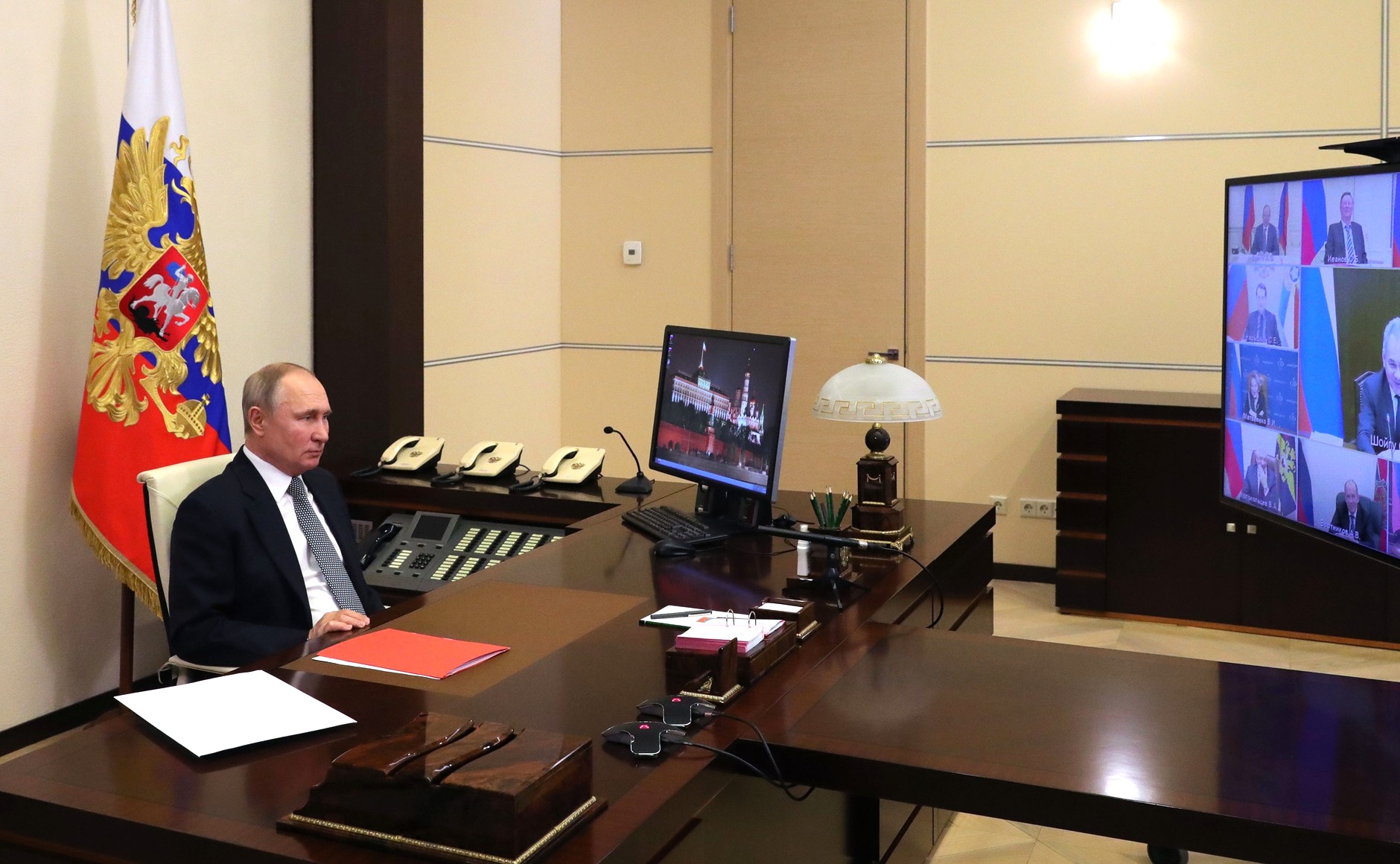 Vladimir Putin informed the meeting participants about the outcome of the January 11 trilateral talks with President of Azerbaijan Ilham Aliyev and Prime Minister of Armenia Nikol Pashinyan on the Nagorno-Karabakh settlement. Other issues on the agenda had to do with Russia’s domestic and foreign policy.  The meeting was attended by Prime Minister Mikhail Mishustin, Federation Council Speaker Valentina Matviyenko, State Duma Speaker Vyacheslav Volodin, Deputy Chairman of the Security Council Dmitry Medvedev, Chief of Staff of the Presidential Executive Office Anton Vaino, Secretary of the Security Council Nikolai Patrushev, Minister of the Interior Vladimir Kolokoltsev, Minister of Foreign Affairs Sergei Lavrov, Minister of Defence Sergei Shoigu, Director of the Federal Security Service (FSB) Alexander Bortnikov, Director of the Foreign Intelligence Service Sergei Naryshkin, and Special Presidential Representative for Environmental Protection, Ecology and Transport Sergei Ivanov. The source of information - http://en.kremlin.ru/events/president/news/64894 Greetings to Russia’s KamAZ-Master crew, winner of 2021 Dakar Rally in truck category Vladimir Putin sent greetings to Dmitry Sotnikov, Ruslan Akhmadeyev and Ilgiz Akhmetzyanov, members of the KamAZ-Master crew, to congratulate them on their victory in the 2021 Dakar Rally in the truck category. January 15, 2021 - 21:00 The message reads, in part: “The champion spirit of KamAZ-Master crews and their drive to win are well known to the participants and fans of the legendary rally. To carry on the triumphant victories of their predecessors, the Russian team has once again – for the 18th time – won the rally and showed the highest level of professionalism and leadership qualities. I want to thank you, your coaches and the KamAZ-Master service crew for your strength of character, your tireless and combined efforts, and for your impressive victory, a gift to all your numerous Russian fans. Keep up the good work!” The source of information - http://en.kremlin.ru/events/president/news/64898
__________________
Where should they dig the Very Deep Pit? Piglet said that the best place would be somewhere where a Heffalump was, just before he fell into it, only about a foot farther on. (c) Alan Alexander Miln |
|
|
#174 |
|
Senior Member
|
Meeting with Director of Russian Institute for Strategic Studies Mikhail Fradkov
Director of the Russian Institute for Strategic Studies Mikhail Fradkov updated the President on the analytical centre’s main areas of activity. January 18, 2021 - 13:55 - Novo-Ogaryovo, Moscow Region 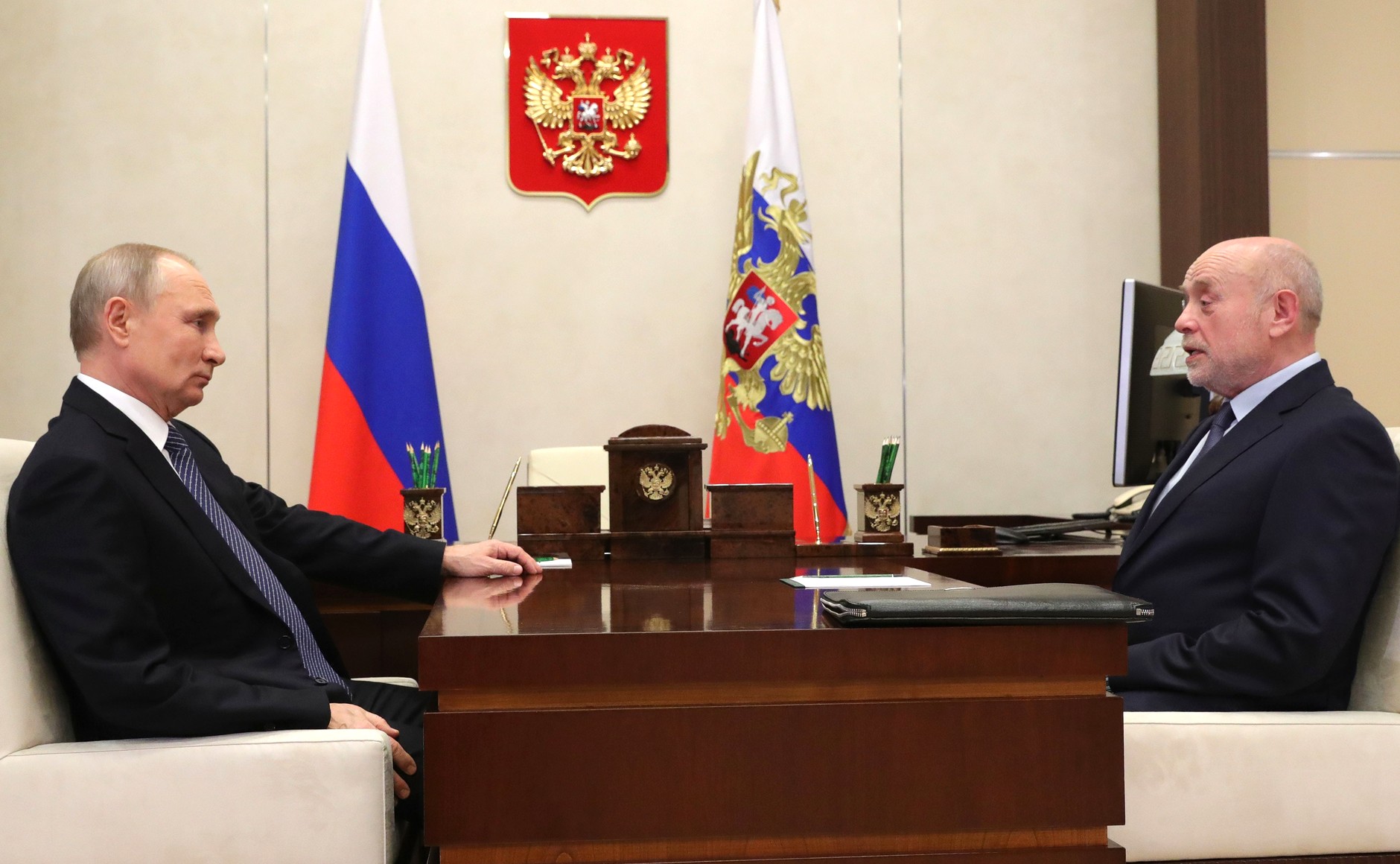 President of Russia Vladimir Putin: Good afternoon, Mr Fradkov. How is work going at your institute? Director of the Russian Institute for Strategic Studies Mikhail Fradkov: Mr President, thank you for your constant concern for our institute. I believe that this is a guarantee of improvements in the broad and positive sense of the word, because we have been trying to take a public place in the expert environment, both at home and among international experts. This is a far from simple job that requires special attention, because there are issues on our agenda of expert evaluation and in-depth research that call for especially thorough comprehension. You have given us an opportunity to create the institute’s representative office, which is very important because it is a platform where we can attract experts and conduct comprehensive analysis. I believe that this is what we need now. At the same time, you have instructed me to represent Russia in China’s Belt and Road Initiative. This is why we have added the subject of Greater Eurasia to the institute’s agenda, so that we can analyse all the problems and opportunities of this initiative in order to ensure primarily Russia’s interests. This project should be implemented jointly with the regions across which the Belt and Road route runs, so as to promptly identify and cut short the things that could hinder ensuring our interests. 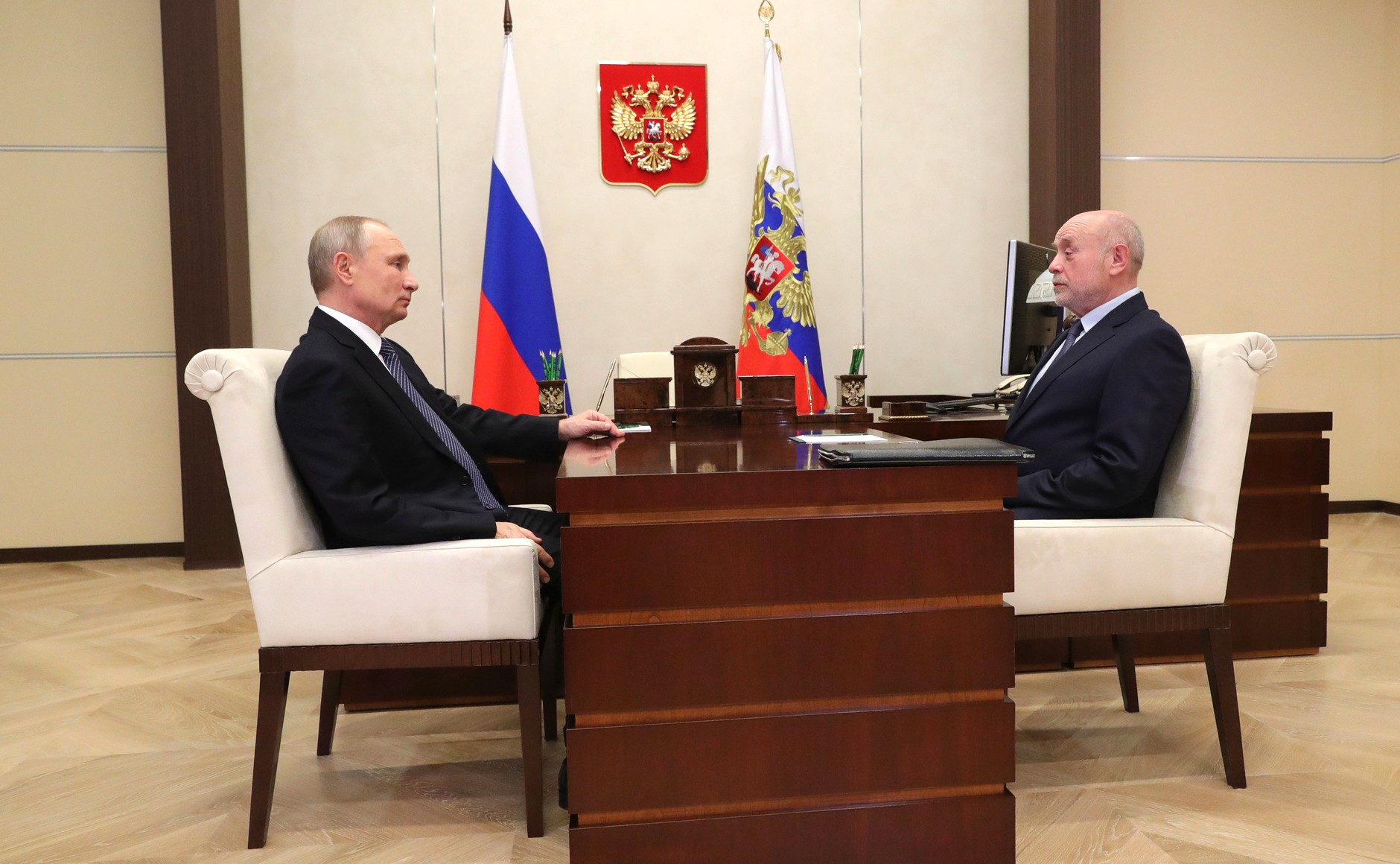 Vladimir Putin: What are the priority subjects for the institute in your opinion? Mikhail Fradkov: We traditionally deal with international topics, and so it is interesting for us to see what new trends appear in the competitive sphere, both in politics and in the economy. We must ensure the protection of our interests during our integration into the economic environment amid globalisation and digitalisation. In this sense, we are interested in both China and the United States. I believe that it is very important to take our place in relations with our post-Soviet neighbours as well. The institute is working in 50 main areas. We have also taken on domestic political and economic matters, just as you instructed. We are working together with the regions on issues of territorial development, demography, population, poverty and social psychology. We are now developing ties with the Federal Centre of Theoretical and Applied Sociology. It is a large institute with which we can work to turn additional information accumulated during polls into recommendations, as I see it. I believe that these topics could be of interest to the national leadership as well. 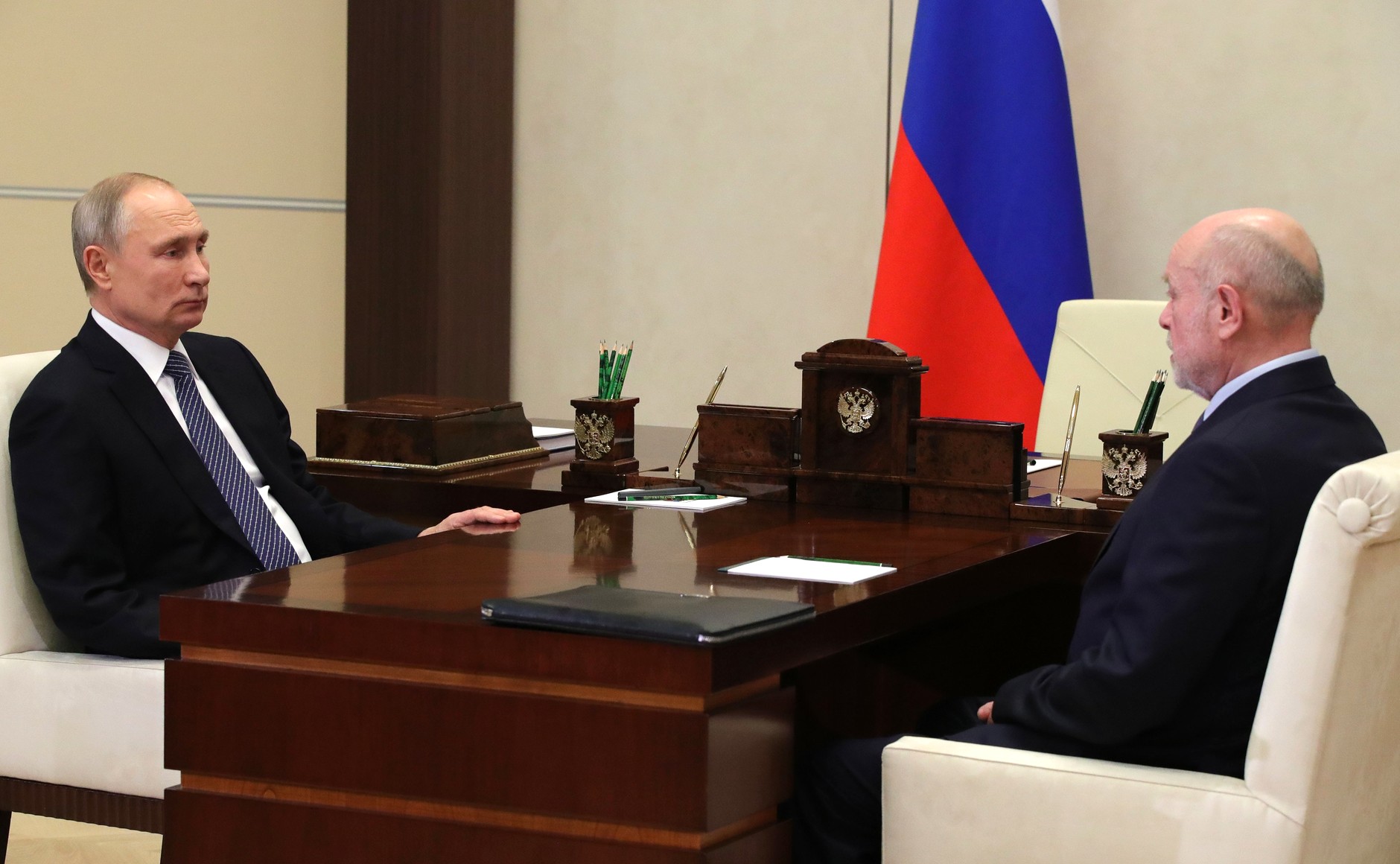 We not only write but also plan to discuss and talk. This is why we are developing ties with publishing houses. This was not a traditional part of the institute’s work in the past, but I believe that it is very important. You have issued instructions to this effect. These modern topics are very important now for young people as well, because time flies and we would like to keep up the pace without losing our traditions. You call attention to this, we believe it is extremely important. This calls for attracting the intellectual potential of experts. We would like the institute to become a public platform for discussing these and other subjects. The source of information - http://en.kremlin.ru/events/president/news/64902 Vladimir Putin took part in Epiphany dips January 19, 2021 - 11:00 - Moscow Region 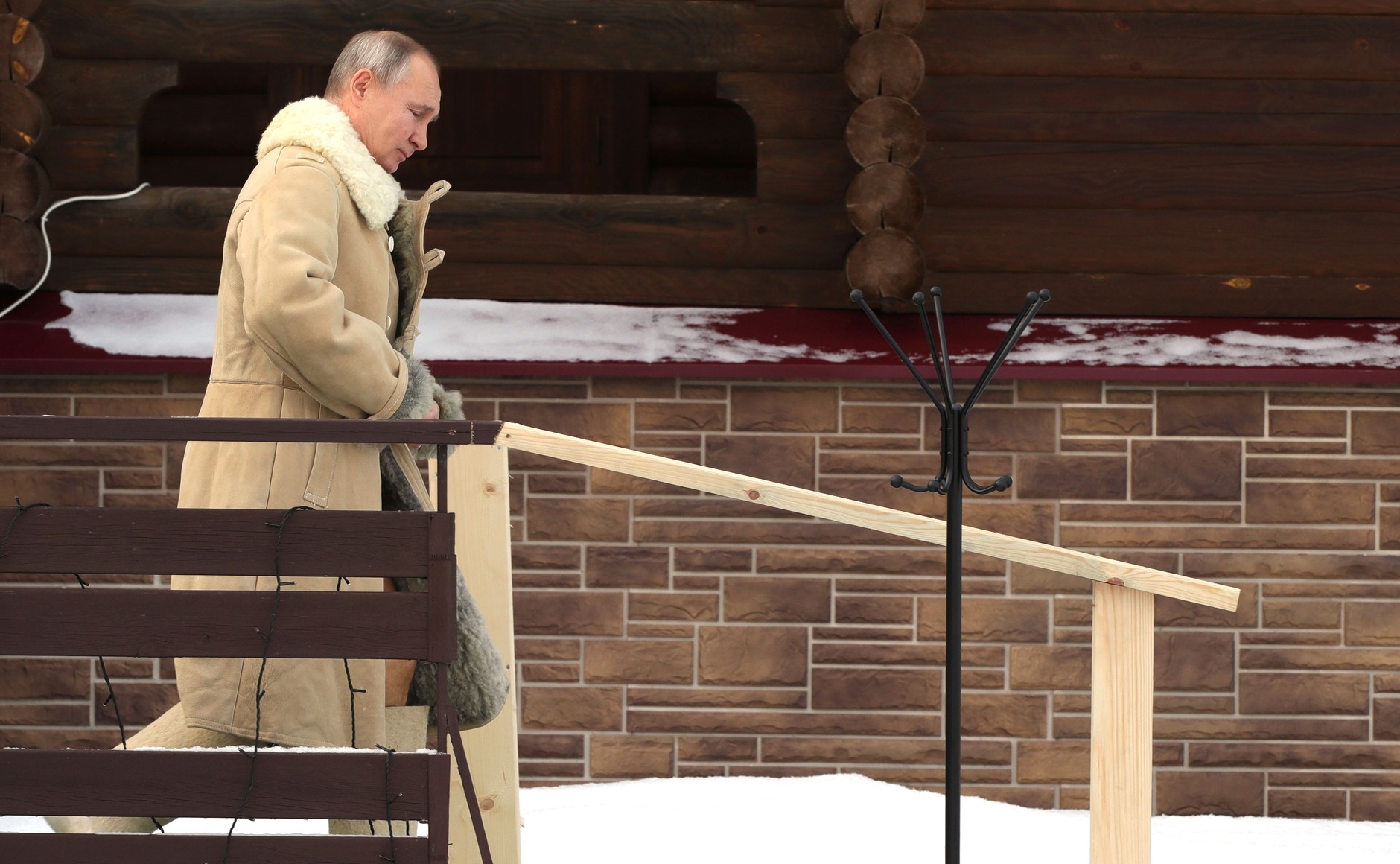 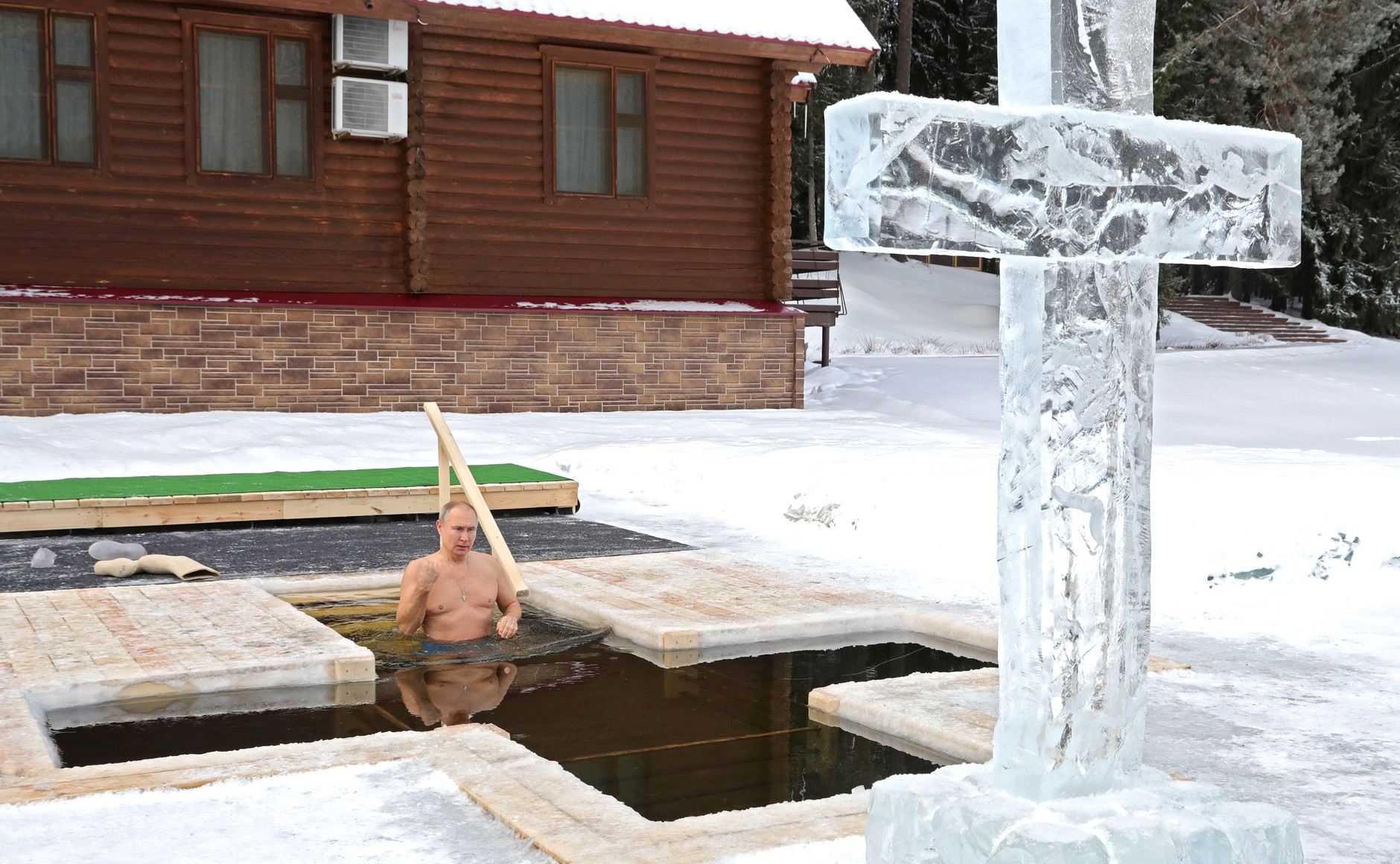 This morning Vladimir Putin took a traditional dip in the Moscow Region to mark Epiphany, one of the main Christian holidays. The source of information - http://en.kremlin.ru/events/president/news/64905/photos Meeting with Gazprom CEO Alexei Miller Vladimir Putin had a working meeting, via videoconference, with Gazprom CEO Alexei Miller. Alexei Miller briefed the President about the energy company’s performance in 2020 and its current activity. January 19, 2021 - 13:40 - Novo-Ogaryovo, Moscow Region 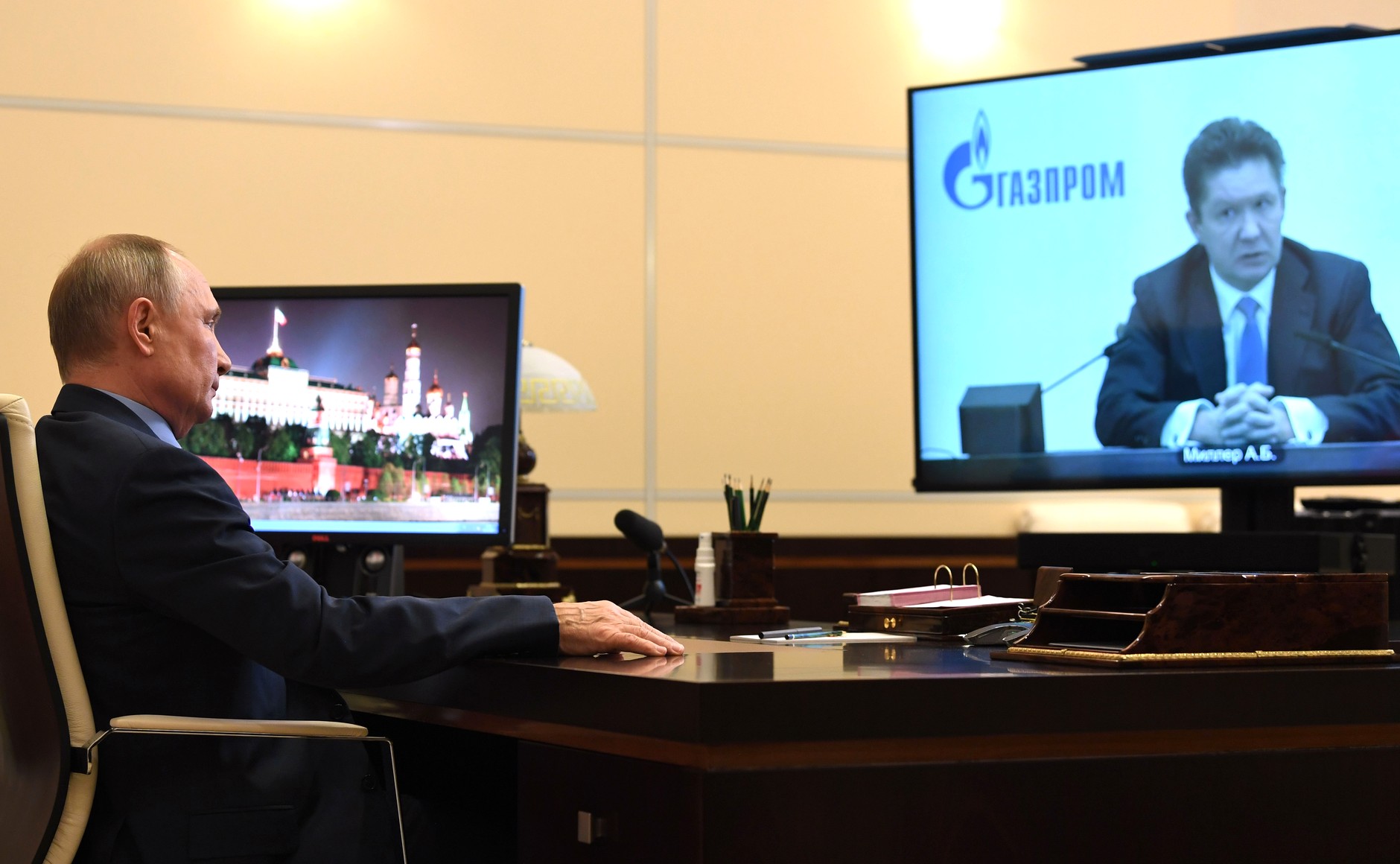 President of Russia Vladimir Putin: Mr Miller, good afternoon. We meet on a regular basis, work together, but I would like to hear your opinion on how the company performed last year, which was a difficult year for the energy industry in general. This would be my first question. The second one is how we are coping with the winter peak. The third issue is related to connecting households and facilities in Russia to gas. This issue is probably the most important one, so let us start with it. I know that the company has big plans there. You have always been focused on the issue of connecting users to the gas grid, but at some point the pace slowed down. People have many questions about that. Of course, they want to know the plans for connecting them to the grid. Gazprom is engaged in it together with the Russian regions. We all know that the plans for the development of the pipe infrastructure should include connecting the end user. Let us discuss that. Gazprom CEO Alexei Miller: Mr President, Your instructions regarding signing medium-term five-year programmes on connecting users in the regions to the gas grid have been fulfilled: all 67 programmes have been signed, their objectives and tasks through 2025 have been outlined. Gazprom is almost tripling the financing. The total volume of investment by Gazprom over this period will reach 526.1 billion rubles. We plan to build 24,400 kilometres of gas pipelines and connect 3,632 cities and villages to the grid. By the end of 2025, 35 regions in Russia will have a complete gas network. It will amount to 90.1 percent of what is technically possible to do in the country regarding connecting users to the grid. Also, Mr President, in accordance with your instructions, we have set the goals for 2030. By 2030, the technically possible connection to the gas grid in Russia will be completed by 100 percent. We also signed plans and schedules with the regions for the synchronisation of works for 2021. Starting January 1, Gazprom and the regions are gathering a new speed, a new pace of work. So, there are two priorities for us at the moment: the social focus of the programme to provide gas supply and the further connection of rural areas to the gas grid. 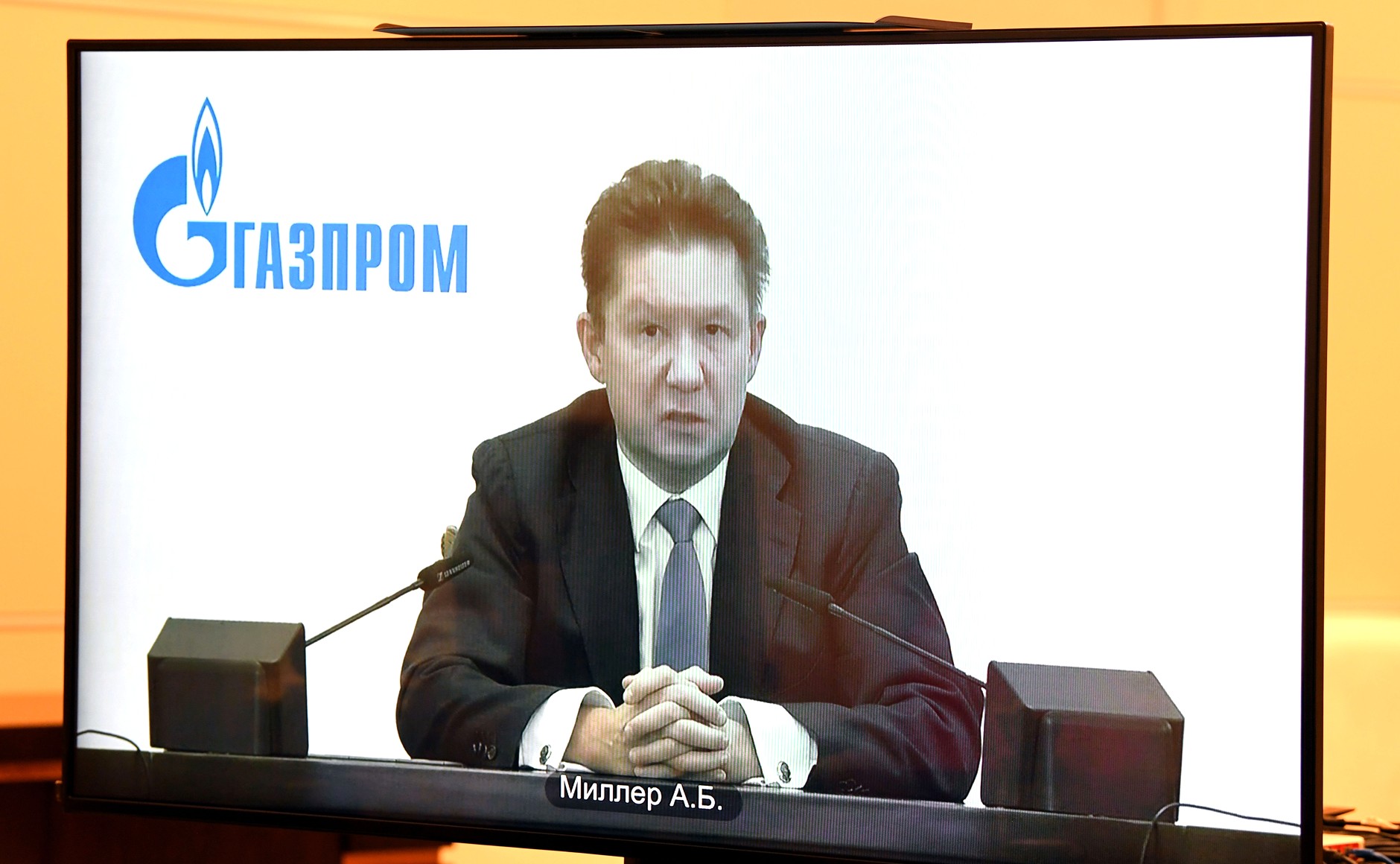 Vladimir Putin: Good. Mr Miller, what about the tariff policy and pricing? I am speaking both about domestic tariffs and prices on international markets that you use to sell gas to our foreign customers. Alexei Miller: Mr President, as for 2020, you noted that last year was a difficult year for the global energy industry. The first half of 2020 was especially hard, when both the demand and prices for Russian gas on foreign markets fell. However, in the second half of the year, the markets stabilised, and today we see that the volumes in the second half look good and what’s most important, the prices started to recover. In October 2020, we even had record deliveries to non-CIS countries, an all-time high. We delivered 17.4 billion cubic metres of gas and it definitely shows that demand for Russian gas on European markets is stable and growing. The production volume – some 452 billion cubic metres – allows us to fully meet the demand both on the domestic and foreign markets. At the same time, the company’s production capacity exceeds the volume of production by almost 100 billion cubic metres of gas. As for domestic tariff regulation, the decision is taken by the Federal Anti-Monopoly Service and the current level allows us to keep the social focus on the domestic market while providing the gas processing and gas conversion industries with the necessary commodities. As you know, in 2020 a great deal was done so that Russia would soon have a large new gas refining and natural gas conversion facilities. First of all, of course, this includes our development of the Yamal gas production centre and the Northern gas transmission corridor, as well as the two compressor stations and more than 850 km of the linear part that have been built. This will make it possible to supply gas to one of the world’s largest refining and gas chemical complexes near Ust-Luga. The project is being implemented on schedule. As for the Amur Gas Processing Plant, it is 70 percent ready. This year, the first start-up complex and two production trains will be launched. The output of this plant will be supplied to the Amur gas chemical complex. There is no doubt that soon we will take an important step forward in the area of gas refining and gas conversion; the most advanced technological production will appear in this sector. Today our goal is to build up capacities both in the west and the east in order to look towards both the European and Asian markets. Of course, speaking about the results of 2020, we should note that December marked one year since Power of Siberia began to supply gas. Mr President, I would like to report that the volume of gas supplied to the Chinese market is above the level planned and higher than the annual amount agreed under the contract; on some days during the second half of 2020, our daily deliveries exceeded our daily contractual obligations by 25 percent. Thus we can see that the Chinese market is developing dynamically. Today the demand exceeds even the volumes stipulated in the contract, which is designed for 30 years. 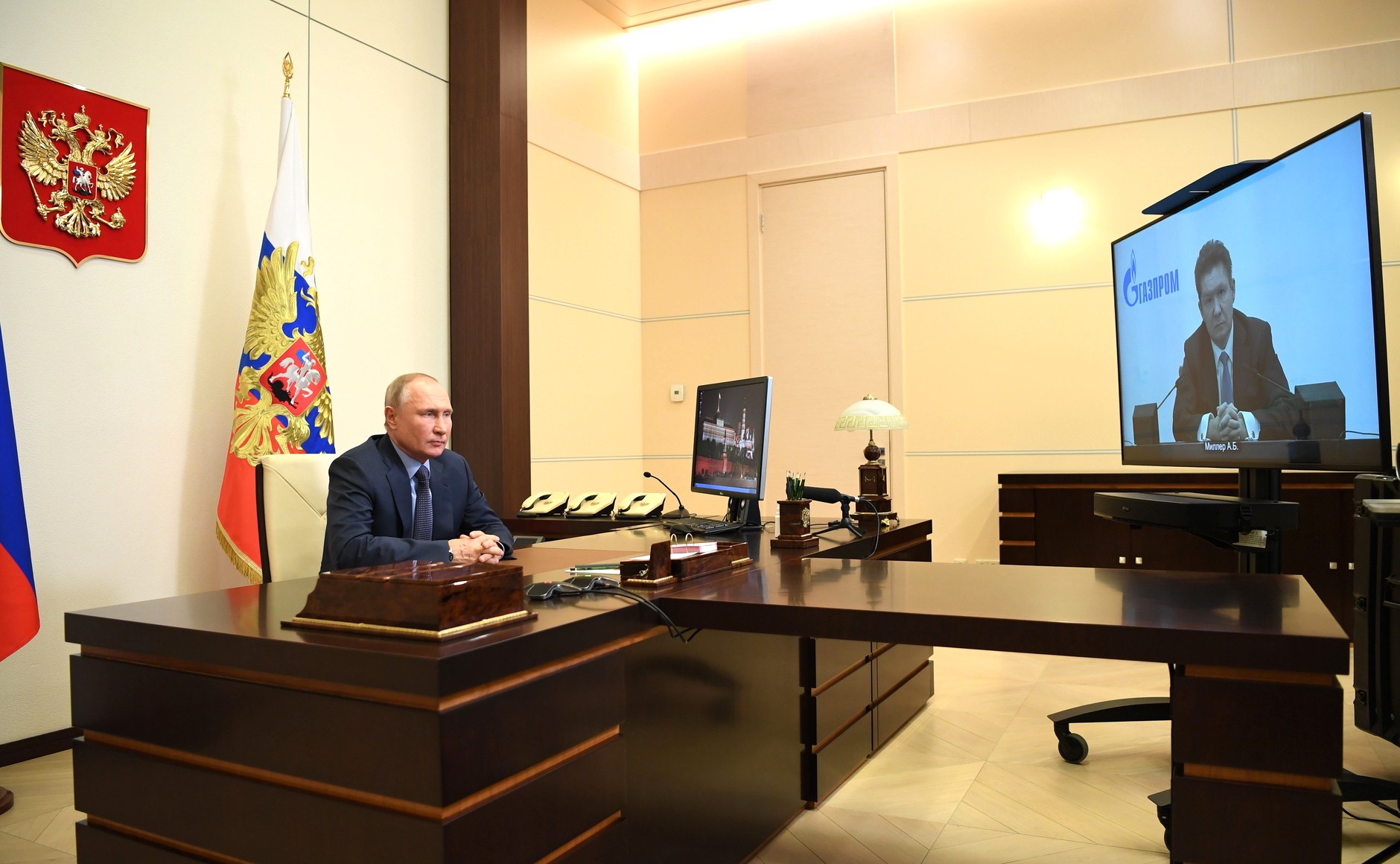 Vladimir Putin: What about work on the other route? Alexei Miller: As for the Power of Siberia 2 pipeline, Mr President, we have started environmental survey, which are being carried out in Russia, in line with your instructions. We also hold direct videoconferences with our Chinese and Mongolian partners. During this period, a feasibility study for the Mongolian route is being developed and a special-purpose company is being set up to build a pipeline across Mongolia. The feasibility study will be ready right in the first quarter of 2021. But even now, according to the preliminary feasibility analysis, we can say that it will be a technically feasible and cost-effective project. Vladimir Putin: Good. Thank you. 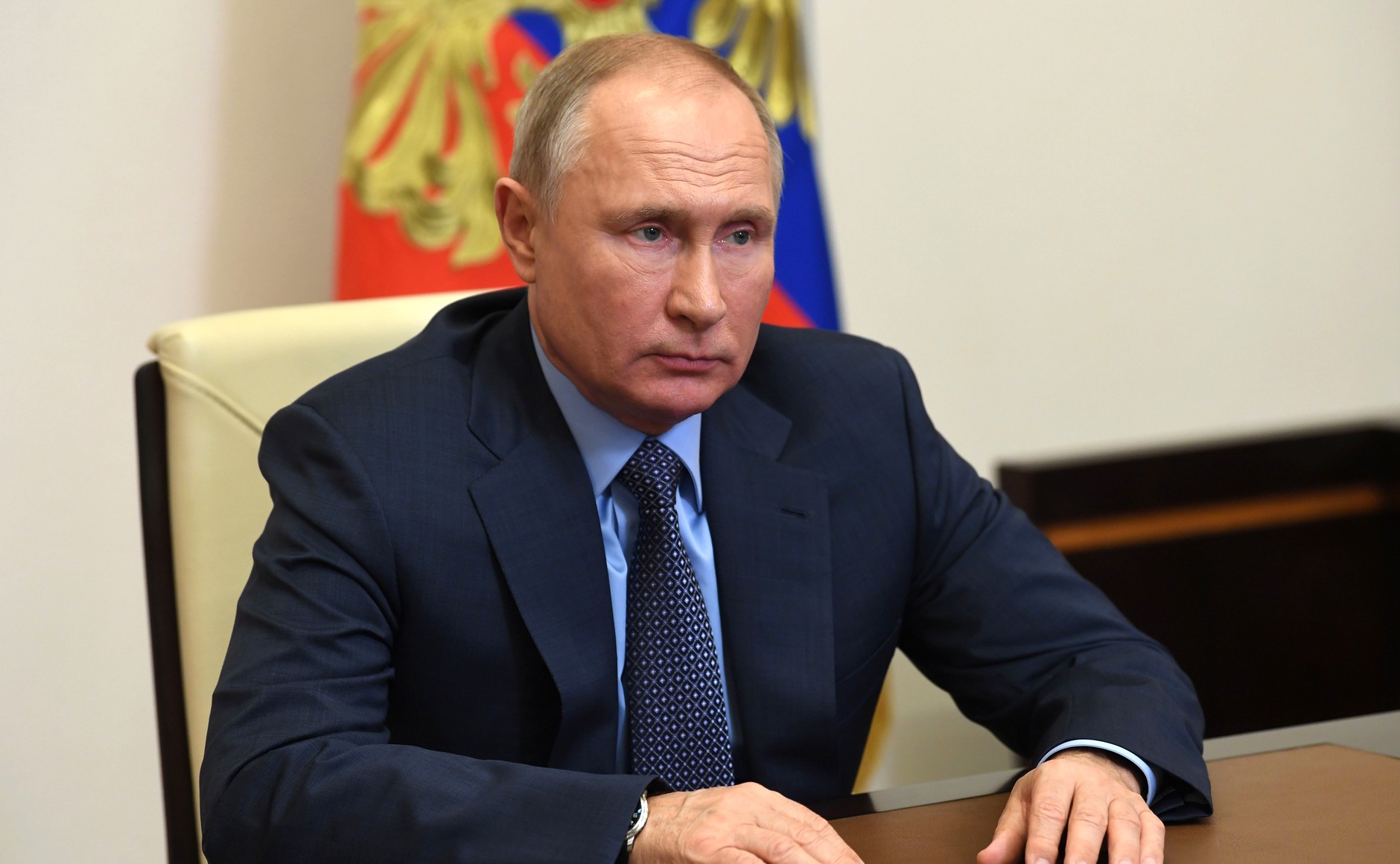 Alexei Miller: Thank you, Mr President. The source of information - http://en.kremlin.ru/events/president/news/64904 Telephone conversation with President of Bolivia Luis Arce Vladimir Putin had a telephone conversation with President of the Plurinational State of Bolivia Luis Arce. January 19, 2021 - 22:45 The two leaders discussed in detail the further development of the Russian-Bolivian relations in various areas. Special attention was paid to cooperation in countering the spread of the coronavirus infection, in particular, in the sphere of using vaccines. Both sides stressed the importance of the agreements reached in December 2020 on deliveries to Bolivia of the Russian Sputnik V preparation and agreed to maintain close cooperation in this area. The source of information - http://en.kremlin.ru/events/president/news/64906 Greetings on 100th anniversary of Republic of Daghestan Vladimir Putin congratulated the residents of Daghestan on the republic’s 100th anniversary. January 20, 2021 - 09:30 The message reads, in part: “For many centuries Daghestan has been home to many ethnic groups and different cultures. Their rich historical heritage, the customs of hospitality and neighbourliness, love of creative work and care for the family and elders are handed down from one generation to another. Today you continue upholding these high spiritual and moral values, reviving your age-old traditions and taking pride in your outstanding compatriots – scientists, athletes, state officials and courageous warriors who have made an invaluable contribution to the history of their region and the country as a whole. The republic’s people displayed their best qualities, heroism and endurance during the fight against international terrorism when they courageously stood up in defence of their native Daghestan and the whole of Russia. The maintenance of inter-ethnic accord and peace in society are a solid foundation for addressing the comprehensive tasks of the region’s economic and social development, supporting enterprise, creating modern production facilities and jobs and modernising the education and healthcare systems. The main objective and priority of these efforts is to improve the quality of life and to create new opportunities for everyone.” The source of information - http://en.kremlin.ru/events/president/news/64908 Meeting on implementation of integration projects in EAEU Vladimir Putin held a meeting, via videoconference, on the implementation of integration projects in the Eurasian Economic Union. January 20, 2021 - 14:40 - Novo-Ogaryovo, Moscow Region 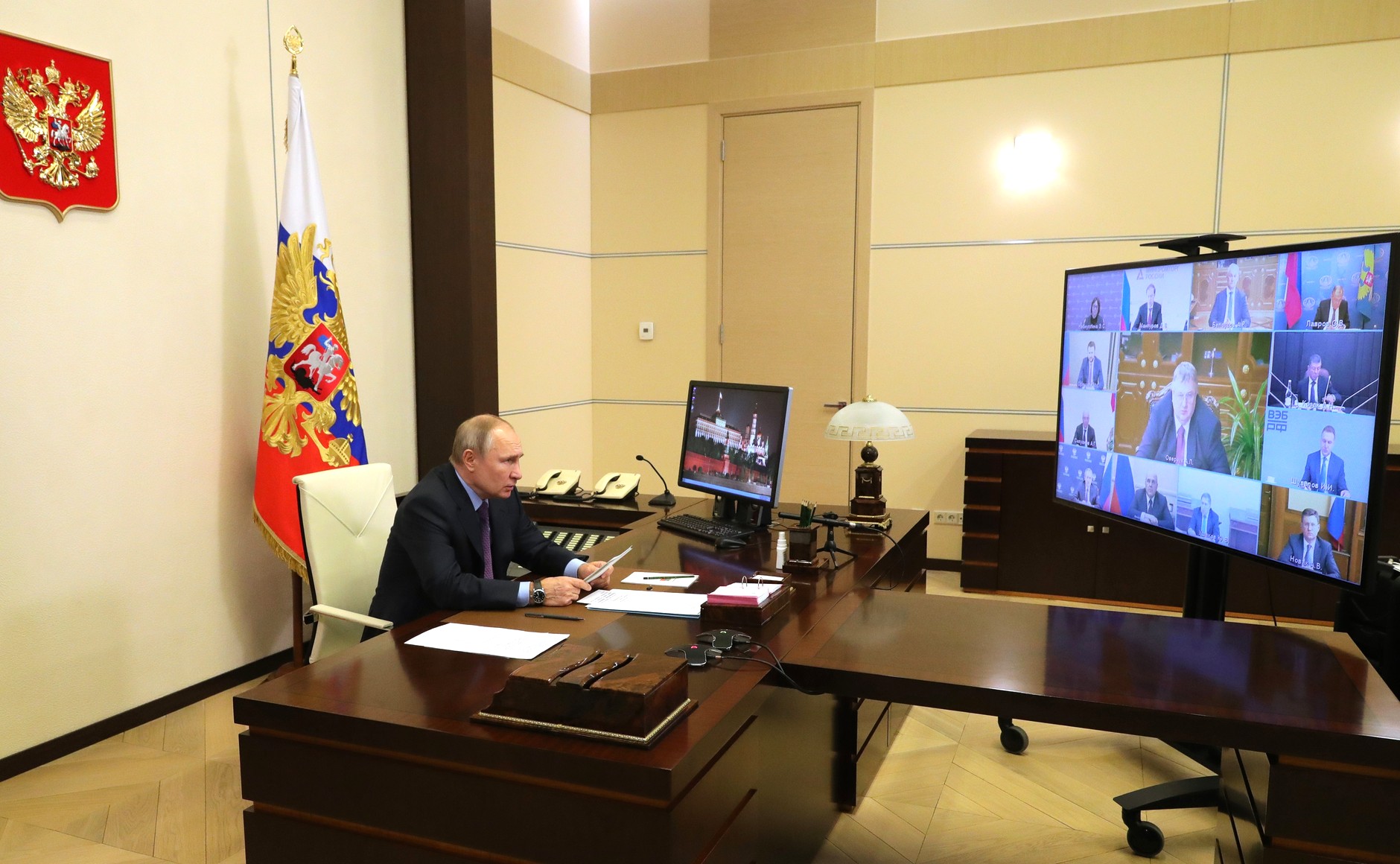 The meeting was attended by Prime Minister Mikhail Mishustin, First Deputy Prime Minister Andrei Belousov, deputy prime ministers Alexander Novak and Alexei Overchuk, Deputy Chief of Staff of the Presidential Executive Office Dmitry Kozak, presidential aides Maxim Oreshkin and Yury Ushakov, Minister of Foreign Affairs Sergei Lavrov, Minister of Industry and Trade Denis Manturov, Minister of Economic Development Maxim Reshetnikov, Minister of Finance Anton Siluanov, Minister of Energy Nikolai Shulginov, Central Bank Governor Elvira Nabiullina and Chairman of the State Development Corporation VEB.RF Igor Shuvalov. 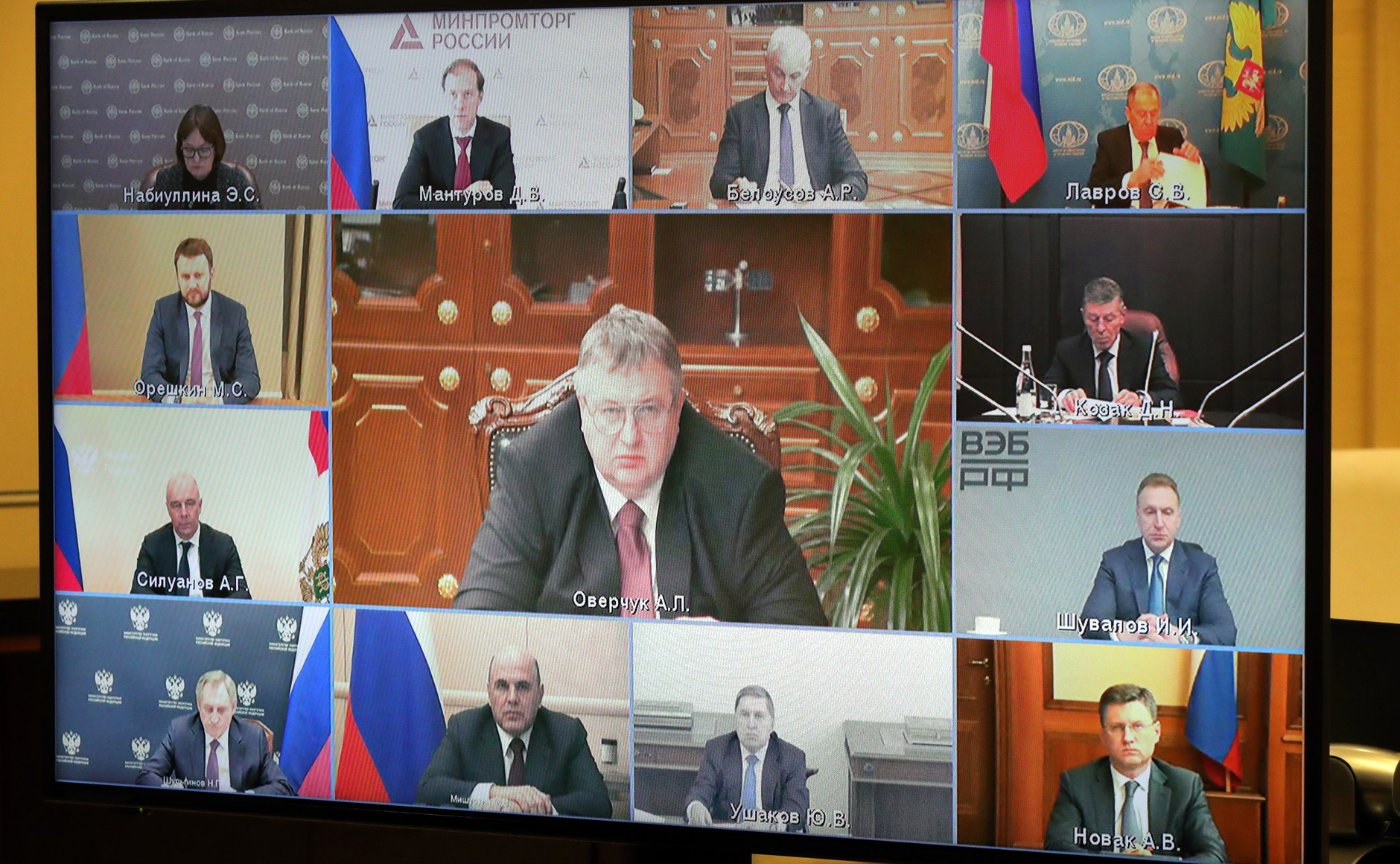 President of Russia Vladimir Putin: Good afternoon, colleagues. First of all, I would like to ask those of you who have taken Epiphany dips if everything is alright with you. Are you in good health and working? Thank God. Our meeting today will be devoted to a strategically important, priority subject, the development of integration processes. The key role in this sphere is, of course, being played by the Eurasian Economic Union (EAEU), which we established with our partners six years ago. Since then, we have achieved a great deal despite the complicated international situation. For example, in 2019, mutual trade between EAEU member states increased by 35 percent compared to 2015, reaching $61.6 billion. Contrary to some forecasts, the share of EAEU states in Russia’s foreign trade has increased as well, from 7.8 percent in 2015 to 8.6 percent in 2020. EAEU states’ foreign trade is developing consistently and has increased by 27 percent. This upward trend has been achieved largely thanks to our joint efforts aimed at removing obstacles to the movement of goods, services, capital and the workforce between the EAEU states. Common markets have been created and are working successfully in the majority of economic sectors. Movement towards this objective, efforts to settle concrete problems and the search for the best possible solutions are ongoing in the other sectors. The formation of a common market in such a sensitive and socially important economic sector as the production and trade of medications and medical goods is an example of such a successful compromise and the elaboration of common approaches by the Union members. Since January 1, 2021, the registration of all medications in the EAEU countries has to follow the same rules and procedures. This is extremely important now, as we are well aware, when we are facing a common challenge – the coronavirus pandemic – and must effectively coordinate our efforts to protect the life and health of our people. The Union is consistently expanding its common market of services. It already includes 53 sectors and will embrace another five areas this year. 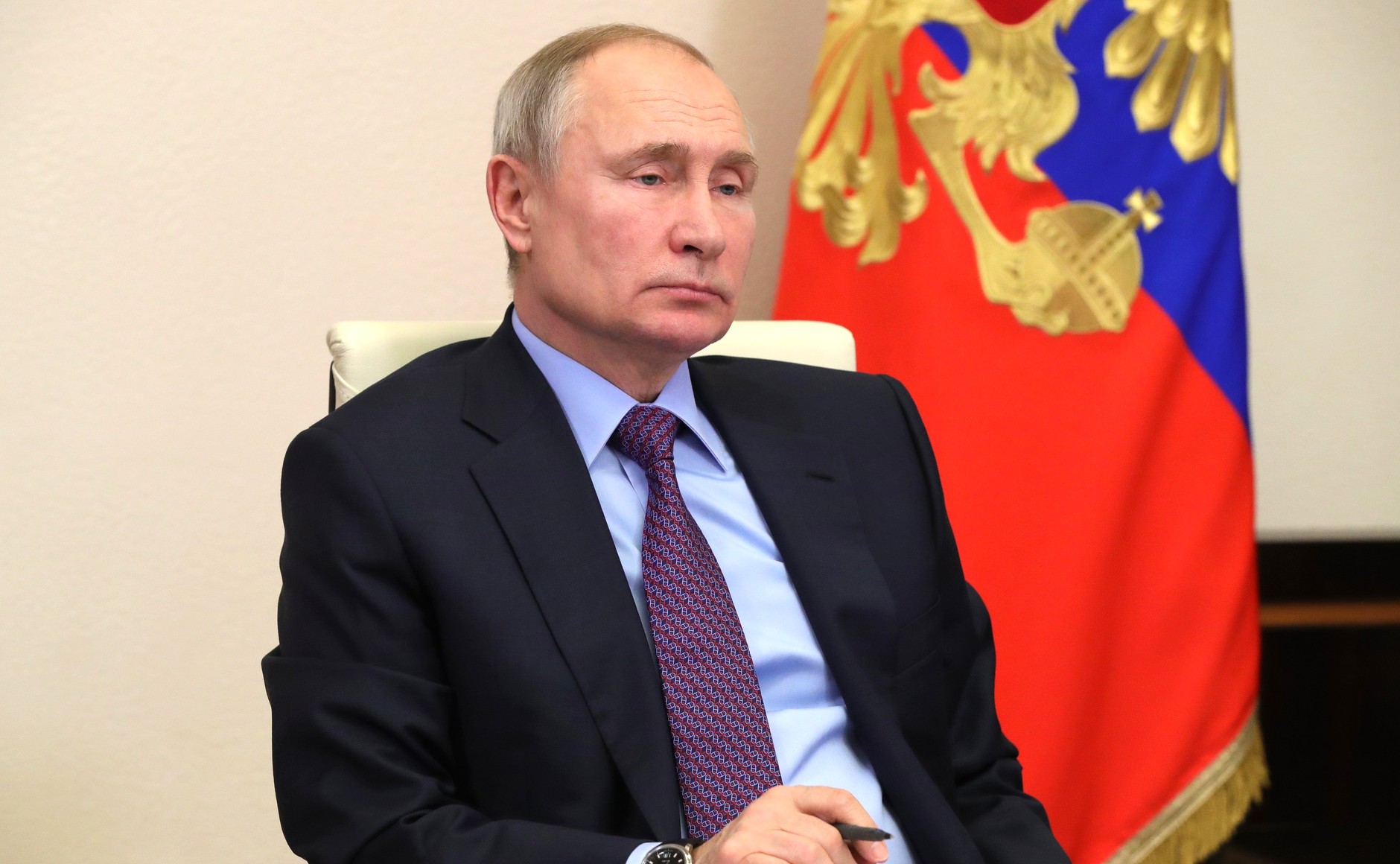 I would also like to note that the Union countries have endorsed a concept on forming an EAEU common financial market. Preparations are underway for creating a common electricity market. We have embarked on implementing the programme for establishing common markets of gas, oil and petroleum products. This is a complicated issue. However, it is also obvious that the coronavirus pandemic and its consequences have affected the state of affairs in the economy and the social sphere of our states as a whole. We must take all this into account. The gross domestic product, industrial production and trade have gone down. This decline has affected, and, unfortunately, was bound to affect, the labour market as well. Now it is important to use the integration mechanisms to restore business activity and increase employment and, hence, people’s incomes. In this context, a month ago we discussed with our EAEU colleagues what could be done to improve the situation and ensure sustainable economic growth. We approved the strategy for developing Eurasian integration up to 2025, which provides for completing the formation by that time of the Union’s common markets of goods, services, capital and workforce, as well as a single digital space that I consider very important under the circumstances. I would like to mention that these goals will be also pursued by the presidency of the Union that Kazakhstan assumed on January 1, 2021. We fully support such priorities of our colleagues. Let us start the discussion of the most urgent aspects of our integration development in the Eurasian space, including their effective coordination with the plans and work of the Government of the Russian Federation on reaching the national development goals. The source of information - http://en.kremlin.ru/events/president/news/64909 Telephone with President of Belarus Alexander Lukashenko Vladimir Putin had a telephone conversation with President of the Republic of Belarus Alexander Lukashenko. January 20, 2021 - 18:25 The leaders discussed a number of current bilateral issues, including cooperation within the Union State. They also reviewed efforts to counter the spread of the coronavirus. The source of information - http://en.kremlin.ru/events/president/news/64910 Greetings to Placido Domingo Vladimir Putin extended his greetings to Placido Domingo on his 80th birthday. January 21, 2021 - 11:30 The message reads, in part: “Together with you, a person of an incredibly bright talent and a true legend of the opera stage, this birthday is celebrated by millions of people in Spain, Russia, Europe and all over the world, those to whom you dedicate your work and generously share your inspiration and great creative energy. And, of course, you are valued for your openness, charisma, joie de vivre and sincere care for charity and support for young performers in their ambition to master the greatest skills.” The source of information - http://en.kremlin.ru/events/president/news/64914 Meeting on economic issues Vladimir Putin held a meeting, via videoconference, on economic issues. January 21, 2021 - 14:00 - Novo-Ogaryovo, Moscow Region The meeting was attended by Prime Minister Mikhail Mishustin, Chief of Staff of the Presidential Executive Office Anton Vaino, First Deputy Prime Minister Andrei Belousov, Deputy Prime Minister Tatyana Golikova, Deputy Prime Minister Marat Khusnullin, Aide to the President Maxim Oreshkin, Minister of Labour and Social Protection Anton Kotyakov, Minister of Industry and Trade Denis Manturov, Minister of Economic Development Maxim Reshetnikov, Minister of Finance Anton Siluanov, Minister of Construction, Housing and Utilities Irek Fayzullin, and Central Bank Governor Elvira Nabiullina. 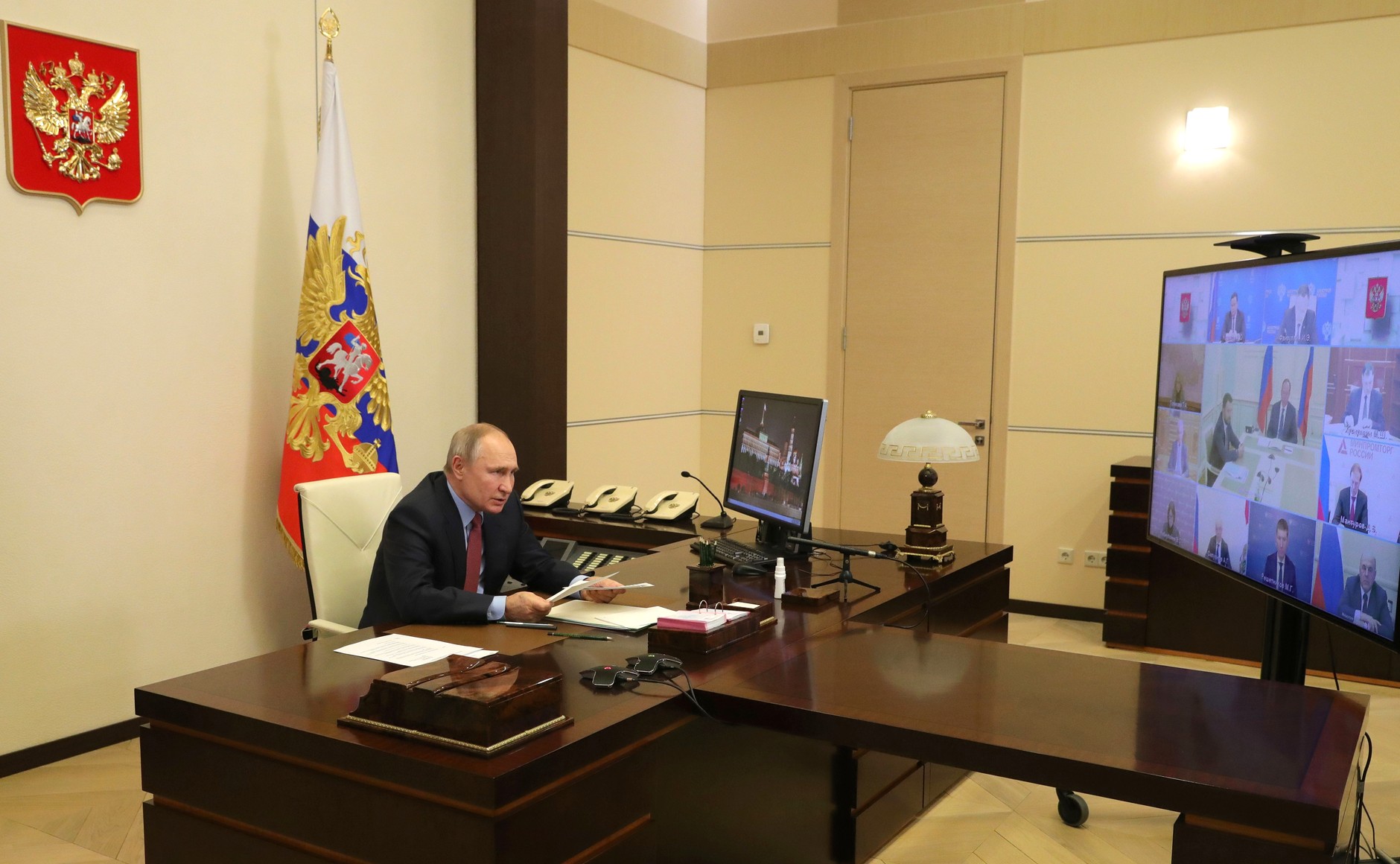 President of Russia Vladimir Putin: Good afternoon, colleagues. Last year, we held a number of meetings on the developments in the Russian economy and in the global markets. Actually, this has become a tradition, and we do it on a regular basis. This year we will continue these efforts, regularly follow trends in key sectors, and analyse issues that companies and personnel in Russia have to face. I should stress here that we are talking about both Russia and the world in general. We now see persisting factors of instability of economic development across the globe. We are aware that this is caused by the effects of the pandemic, forced restrictions, and violations of global cooperation and trade links. In these circumstances, it is essential to take prompt and timely decisions that would be relevant for businesses and citizens and will have an actual positive effect on enterprises, organisations, regions, and the country in general. In view of this, I suggest that today we discuss the preliminary results of national social and economic development last year and the forecast for the current year, and take a comprehensive look at the current developments and steps to be taken in the short- and medium-term. As I have already mentioned, the impact of the economic recession in Russia last year was not as intense as in many developed and developing economies, as we all know. In late 2020, a number of macroeconomic indicators returned to their pre-epidemic levels. I am referring, in particular, to railway cargo volumes, electricity consumption, and several other indicators. Unfortunately, last year saw a greater inflation rate, which exceeded the inflation target announced by the Bank of Russia and amounted to 4.9 percent. Some groups of commodities, primarily foods, saw a more sizable price hike of 6.7 percent. Ans these are only average figures. However, there was a significant, noticeable surge in prices of certain categories of commodities, due in part to increasing global prices of food products as well as a number of other factors, of course. As I have said, we have already discussed this at one of our meetings. We agreed to closely follow and monitor the situation. I suggest returning to this matter soon and reviewing it in great detail, considering the January 2021 results. Next. The past few months have seen a decline in unemployment. I would like to note that we managed to prevent an upsurge in unemployment during the tense period of the pandemic. This was also accomplished through measures to support the economy and small and medium-sized businesses at the federal, regional and local levels. After hitting an all-time high of 6.4 percent in August 2020, unemployment rates decreased to 6.3 percent in October and 6.1 percent in November. However, these levels remain high and exceed 2019 levels by about 1.5 percent. 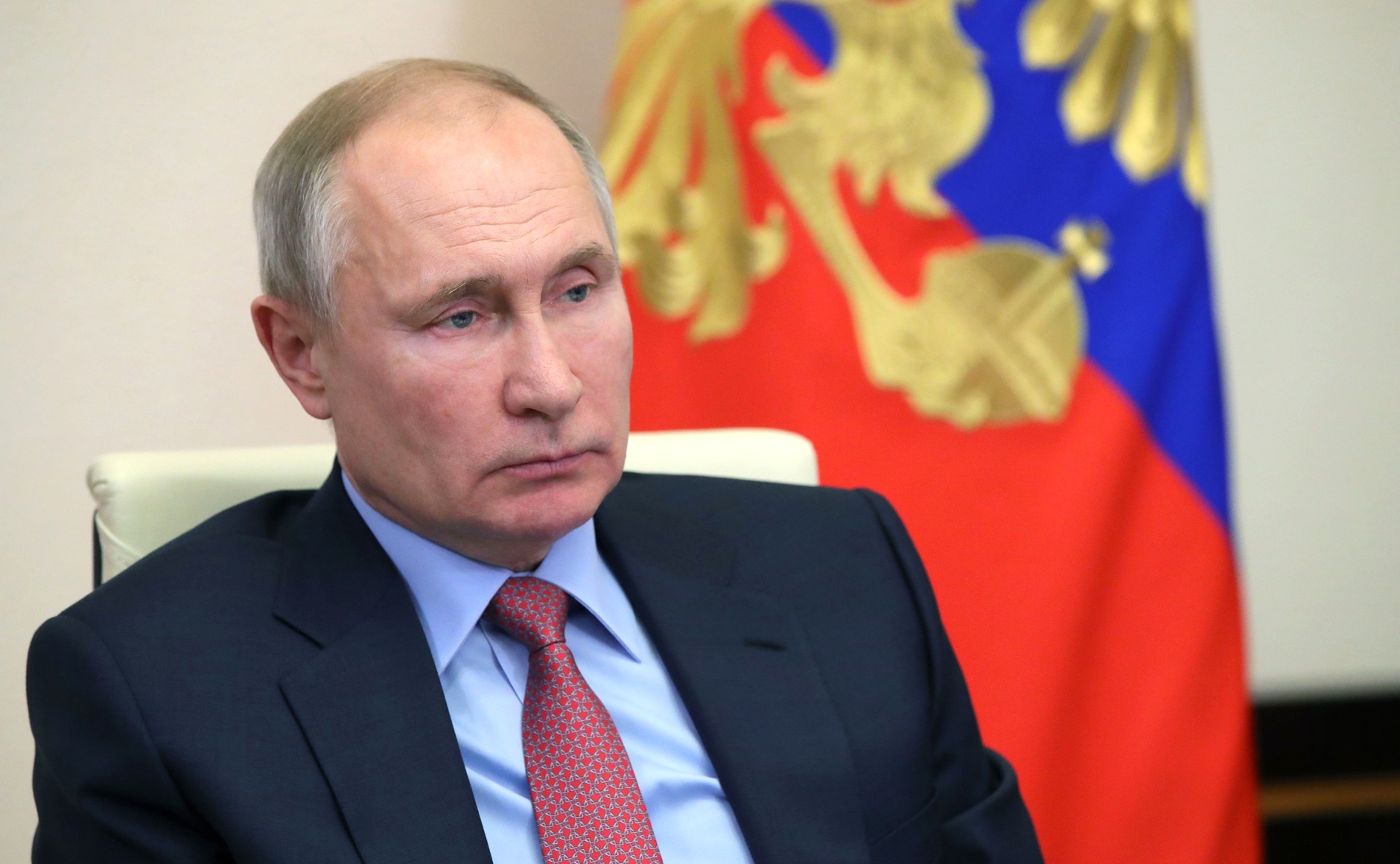 It goes without saying that we need to preserve and consolidate an employment-growth trend in the Russian economy. We have to completely restore the labour market before the year is out. As you know, this task has been set before the Government, and it must be accomplished. On the whole, I would like to note that, instead of merely getting back to pre-crisis macroeconomic indicators, we have to facilitate sustainable development. This concerns the national economy, the social sphere, demographics (we have to discuss this matter separately), the environment and other highly important national goals, set in the Executive Order on long-term national targets. Today, I would like to separately address the situation in the housing construction sector and the real estate market. I would like to recall the task that has been set here: we need to build housing at a rate of 120 million square metres per year before the decade is out. At the same time, at least five million Russian families should improve their living conditions each year. Last year, we launched an easy-term 6.5-percent mortgage programme. We created additional opportunities for Russian citizens, so that they could purchase new, high-quality housing. Loans worth about one trillion rubles have already been issued under the programme. About 350,000 families have purchased flats on the primary market. Additionally, easy-term mortgages supported the construction sector, just as we had planned. We have been commissioning more and more housing since August 2020. At the same time, housing market disproportions have emerged in some regions. Real estate prices are growing considerably, and there is a shortage of affordable flats. In this connection, I suggest discussing measures to even out the pricing situation on the market, including through expanded housing supply. Today, I hope to hear about specific measures and actions on this score. The source of information - http://en.kremlin.ru/events/president/news/64912
__________________
Where should they dig the Very Deep Pit? Piglet said that the best place would be somewhere where a Heffalump was, just before he fell into it, only about a foot farther on. (c) Alan Alexander Miln |
|
|
#175 |
|
Banned
Join Date: Aug 2020
Location: Austria
Posts: 2,205
|
Alex I have a joke for you:
So back in 1980 Soviet Russia. The Americans trained a spy out of Verginia. They taught this guy how to drink freezing vodka in freezing temperatures, swim in ice water, and speak PERFECT Russian. After the training the Americans sent this spy to Russia. 2 months later the KGB arrested the American spy.. The American spy said "I don't get it?? I speak perfect Russian, I drink freeezing vodka...????" The KGB said "This is true, but there are not that many niggers in Siberia!!" Paul |
|
|
#176 | |
|
Senior Member
|
Quote:
It is possible that it was created in Russia. Paul, if you are so interested in the topic of negroes in Russia that you write about it already in my second topic, then I can inform you that there is a suitable topic on the forum - https://vnnforum.com/showthread.php?t=62205
__________________
Where should they dig the Very Deep Pit? Piglet said that the best place would be somewhere where a Heffalump was, just before he fell into it, only about a foot farther on. (c) Alan Alexander Miln |
|
|
|
#177 | |
|
Banned
Join Date: Aug 2020
Location: Austria
Posts: 2,205
|
Quote:
|
|
|
|
#178 |
|
Senior Member
|
Telephone conversation with European Council President Charles Michel
Vladimir Putin had a telephone conversation with President of the European Council Charles Michel. January 22, 2021 - 13:50 The in-depth discussion focused on the current relations between Russia and the European Union with an emphasis on the need to build pragmatic cooperation in spheres of mutual interest. Consideration was also given to issues of countering the spread of the coronavirus infection, in particular, possibilities for use and joint production of vaccines. At the request of Charles Michel, the situation around Alexei Navalny was also touched upon. The source of information - http://en.kremlin.ru/events/president/news/64916 Meeting with permanent members of the Security Council Vladimir Putin held a meeting, via videoconference, with permanent members of the Security Council. January 22, 2021 - 15:00 - Novo-Ogaryovo, Moscow Region 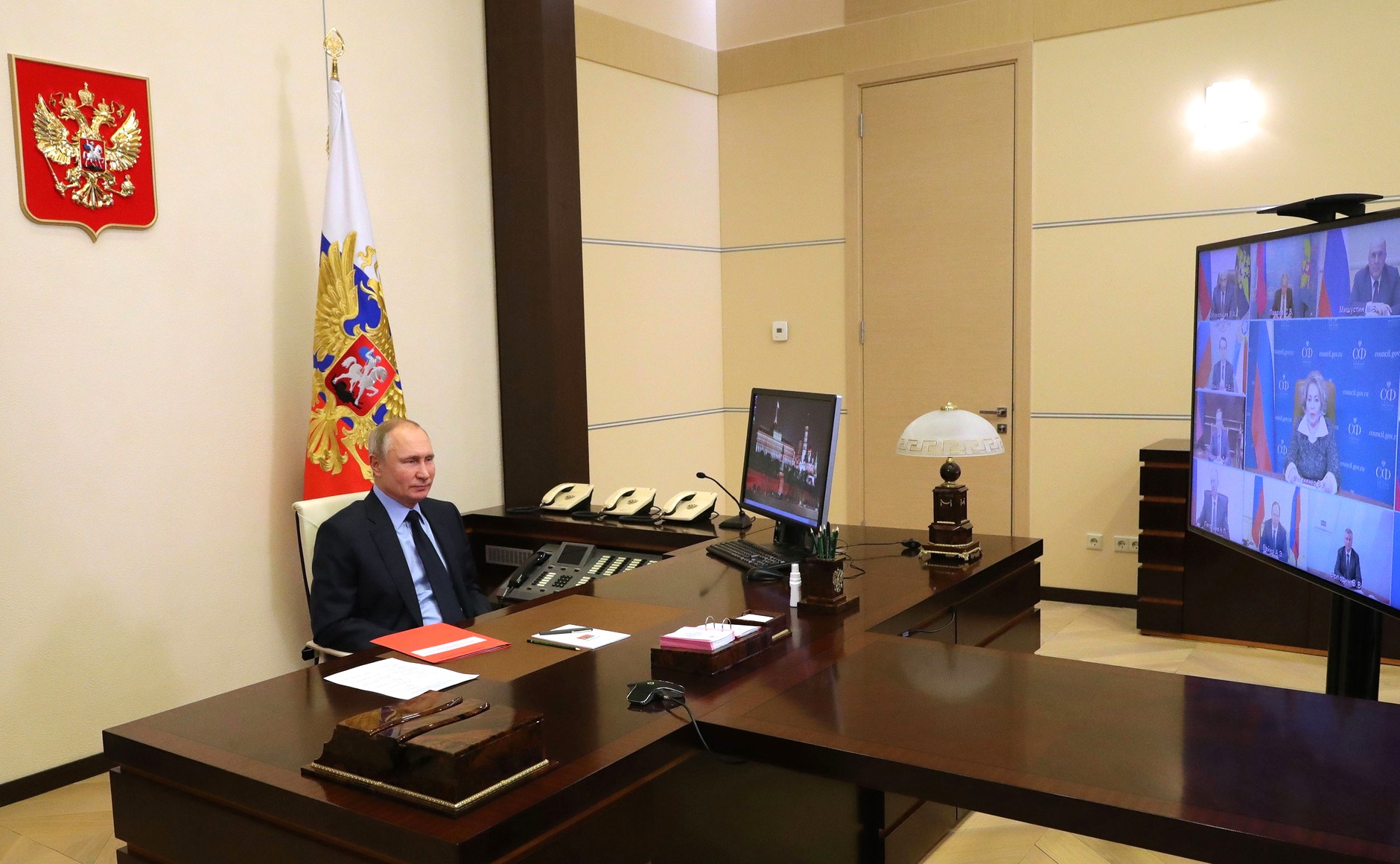 The participants discussed current socioeconomic issues in Russia. They also exchanged views on the problems of strategic stability and arms control. 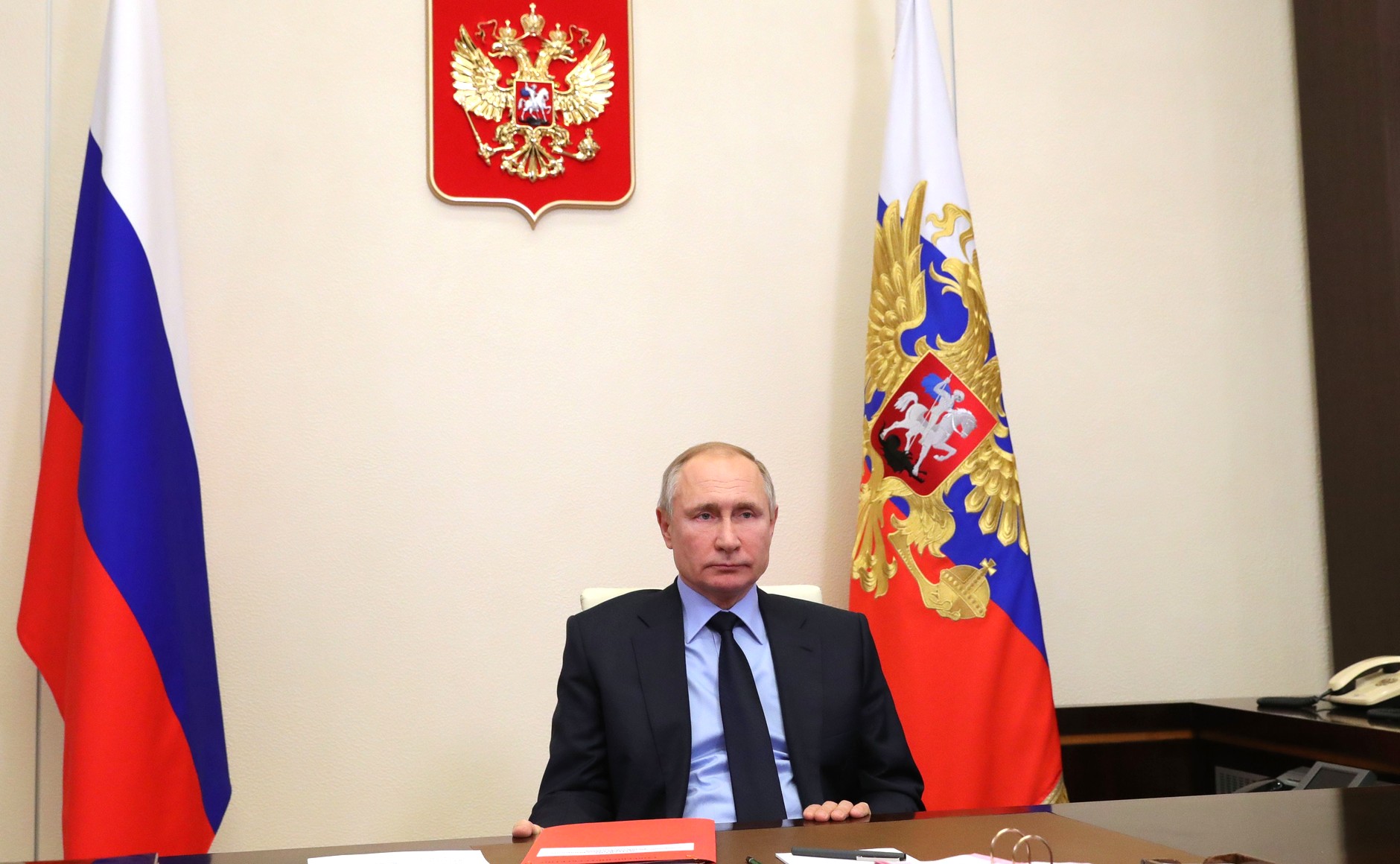 The meeting was attended by Prime Minister Mikhail Mishustin, Federation Council Speaker Valentina Matviyenko, State Duma Speaker Vyacheslav Volodin, Deputy Chairman of the Security Council Dmitry Medvedev, Chief of Staff of the Presidential Executive Office Anton Vaino, Secretary of the Security Council Nikolai Patrushev, Interior Minister Vladimir Kolokoltsev, Foreign Minister Sergei Lavrov, Director of the Federal Security Service Alexander Bortnikov, Director of the Foreign Intelligence Service Sergei Naryshkin, and Special Presidential Representative for Environmental Protection, Ecology and Transport Sergei Ivanov. The source of information - http://en.kremlin.ru/events/president/news/64917 Greetings to Golden Eagle National Film Awards Vladimir Putin sent a message of greetings to the participants and guests of the XIX Golden Eagle National Film Awards ceremony. January 22, 2021 - 19:00 The message reads, in part: “This prestigious professional award is presented for outstanding achievements in national filmmaking and major contribution to the development of national culture. For many years it has been regarded as undeniable proof a project’s success and high artistic standards. The Golden Eagle awards ceremony is an important event for the winners and the teams that worked to implement interesting creative projects and devoted their time to promoting them. I have no doubt that this well-deserved award will provide inspiration for new achievements and will help you implement unusual ideas that will certainly win the hearts of your audiences.” The source of information - http://en.kremlin.ru/events/president/news/64919 Condolences on passing of Navy Admiral Felix Gromov, former Russian Navy Commander-in-Chief Vladimir Putin expressed his condolences to the family and friends of Admiral Felix Gromov, former Commander-in-Chief of the Russian Navy. January 22, 2021 - 23:00 The message reads, in part: “Felix Gromov devoted his whole life to defending the Fatherland, developing the Navy and maintaining its glorious traditions. He was respected and valued for his expertise, self-discipline, an exacting attitude towards subordinates and a deep commitment to his profession.” Commander-in-Chief of the Russian Navy (1992–1997) Admiral Felix Gromov died at the age of 83. The source of information - http://en.kremlin.ru/events/president/news/64928 Meeting with university students to mark Russian Students Day Vladimir Putin held a meeting via videoconference with representatives of universities and other higher education institutions of Kazan, Samara, Smolensk, Ufa, Crimea, Novosibirsk, Nizhny Novgorod and Saransk. January 25, 2021 - 15:30 - Zavidovo, Tver Region  President of Russia Vladimir Putin: Dear friends, good afternoon. Can you hear and see me? It is a pleasure to you see you too. Today, by an old and good tradition, we celebrate Tatiana’s Day. I heartily congratulate you all, graduate and postgraduate students of Russian universities, as well as graduates of previous years, on the holiday devoted to Russian students. I wish you all success in life, in your studies, in your jobs, and of course, something that is very important today, I wish you, your relatives, and friends good health, and love – you are young people, as well as loyal, good friends. I would like to use this opportunity to thank you for your perseverance, stamina, and readiness to learn and receive new knowledge amid the difficult conditions of the pandemic. Of course, it has been repeatedly said that in the past few difficult months you missed the thrilling, inimitable, fascinating student and university environment. I am sure that most of you have been missing personal communication with your friends and mentors. But I want to emphasise that both you and your lecturers have worked as one team and you have done your best to continue holding lectures, seminars and exams, in a word, to continue the entire learning process, and together have dealt with the various issues that occurred during this time, as they tend to do. I know that the technical capabilities for remote study are not always available, some places lack equipment and the necessary internet speed. We have all seen how people even had to climb trees to get internet access. There have also been objective difficulties with organising practical lessons. Overall, this unusual format could not but affect the comprehensiveness and quality of education and the academic performance rating. I am sure that you and your lecturers will definitely catch up with what has been missed, if there is a need for that. Again, I reiterate that the transition to a totally remote study format was an exclusively temporary measure (in the places where it was introduced), related to, as we know, the spread of the coronavirus. As of now – as it is well known – we have got effective vaccines; they have been registered in 13 countries. Overall, the epidemiological situation in the country is gradually stabilising. I have heard appropriate reports only this morning. The number of people who have recovered in the last 24 hours exceeds the number of new cases. There is a decrease in the number of people currently infected; it is less than 20,000 as of today. By the way, we should thank the Moscow authorities for this; their efforts have not been in vain: the situation is normalising in Moscow. This allows them to carefully ease the restrictions and resume a normal education process. At the same time, we must make use of the experience we have accumulated, the best know-how and practices, increasing the digital potential of our universities. Incidentally, it is good that we had already laid the groundwork for this, meaning our education system was prepared for the challenges of the era of rapid technological transformation (we will certainly talk about this later today) and, importantly, also opened up new opportunities for young people throughout the country. 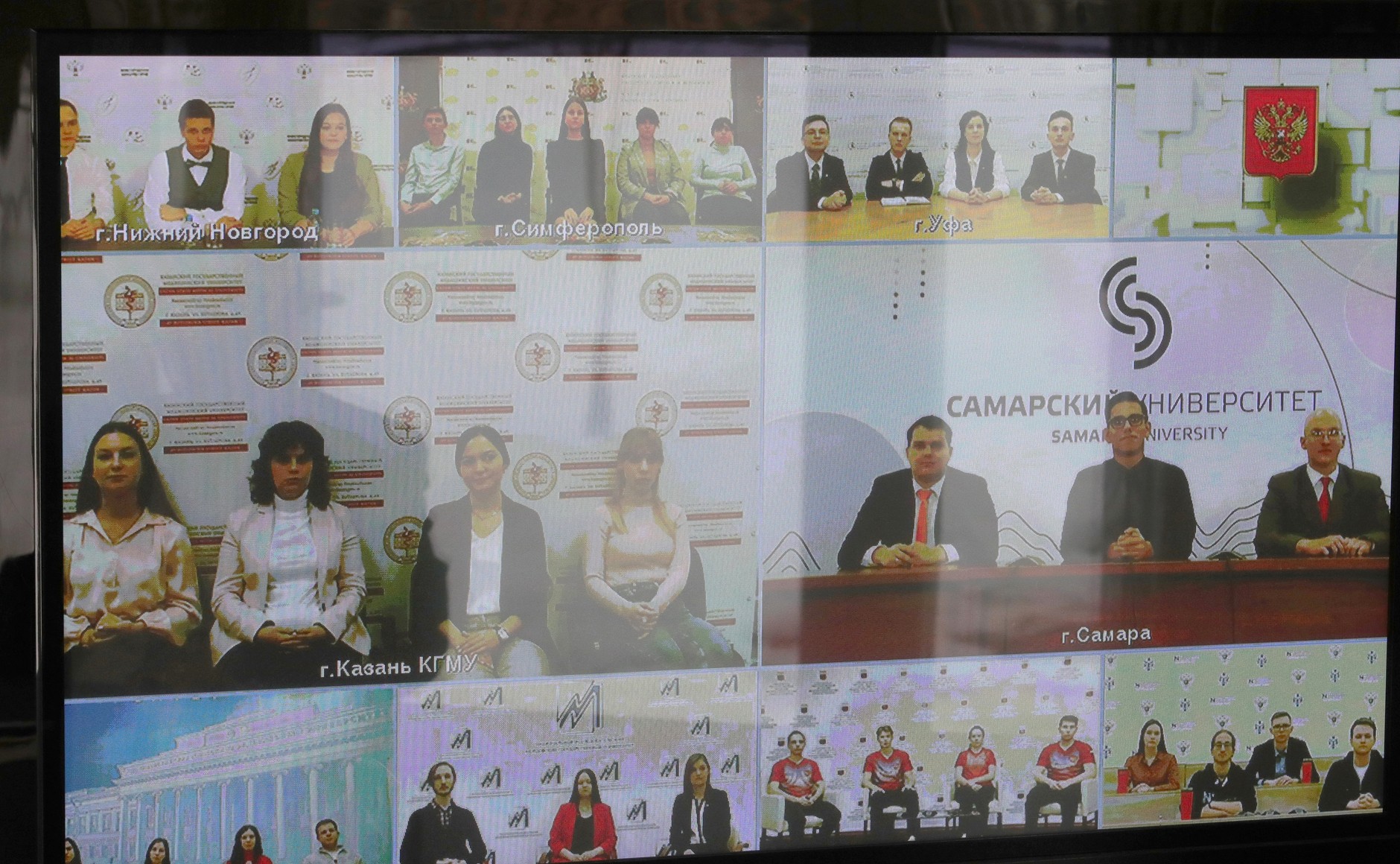 Online education is extremely important for such a huge country as Russia. I am sure that you, talented, smart, persevering and ambitious people, will make the best possible use of these opportunities to get a better grip on the future, setting yourselves really meaningful goals and realising your dreams. I have spoken about this many times, but I would like to repeat now that everything depends on you, or more precisely, on your potential. This means that you can attain all your objectives. And your ideas, creative endeavour and practical work will definitely gain the support of society and the state. As far as I am aware, this meeting is attended by university students from different Russian regions. They represent federal and research universities, as well as other higher education institutions that train engineers, doctors, teachers, coaches and musicians. Recalling history, one can say that in pre-revolutionary and Soviet Russia, during the pre-revolutionary and Soviet period, this country, its ancient and new cities were rightfully proud of an entire constellation of powerful and unique science and education centres. Schools established here have successfully competed and are still competing with their Moscow colleagues, and they continue to outpace them. They have played and continue playing a tremendous role in training personnel, accomplishing technological tasks and facilitating the entire country’s development. You know, I have repeatedly said that efforts to strengthen and drastically expand the chain of modern higher education institutions all over Russia certainly rank among our priorities. This work is already underway, and it will continue. Today, we will certainly discuss some problem issues and tasks, but I would now like to mention a number of steps. We have already expanded state-funded places at higher education institutions. An additional 34,000 students will enroll at federal budget expense in the upcoming academic year. This mainly concerns higher education institutions in the Russian Federation’s regions. Consequently, at least 60 percent of Russian high-school graduates can expect to study free of charge under higher education curricula. We will expand the share of state-funded students because the number of high school graduates will increase here in the next few years, due to positive earlier results achieved by our programmes to support families, to increase birth rates and to facilitate demographic development. Affordable higher education is a highly significant matter in the context of social and national development and in providing equitable and equal opportunities for people’s self-realisation. Nevertheless, the quality of education, its content and modern level is no less important. 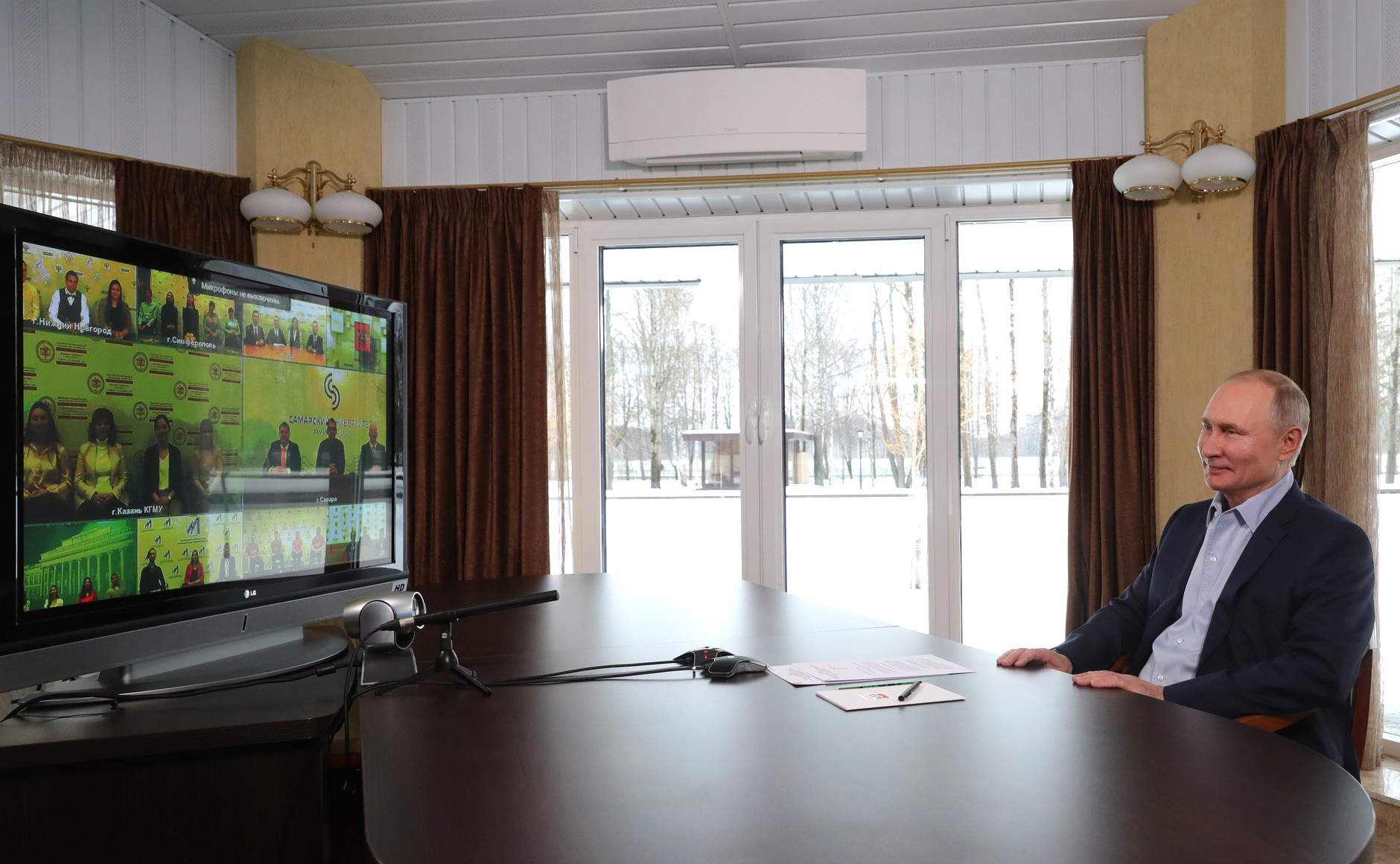 Successful studies at higher education institutions are intended to pave the way for professional success in life. This social mobility option should work, so that, instead of merely receiving diplomas, people will be in high demand on the labour market. Although this does not sound very nice, “to be in high demand on the market,” you understand what I am talking about. People need this, so that they can obtain interesting and well-paid jobs, work their way up through the ranks, and also in a good way, increase their families’ well-being and care for their future children, who they must bring into the world and certainly will. This is a separate aspect, and this will become a separate page of your life. Most importantly, you should feel confident about your capabilities and prospects. I would like to tell you in this context that a draft federal law that substantially expands the autonomy of universities in forming educational programmes was submitted to the State Duma at the end of the past year. Students may receive several qualifications, change their specialty after the second year, and transfer to different faculties and programmes in their university. I am sure you are looking forward to such decisions. Therefore, these provisions must come into force no later than in summer. I would like to ask the Federal Assembly to speed up its work on this draft law. There is more to it. In Russia, 2021 has been declared the Year of Science and Technology. This is ultimate recognition of the merits of our scientists and engineers, the enormous role of knowledge and innovation in people’s life and in the development of our regions, cities and villages. I am confident that it is universities that must become real centres for the scientific and technological development of the Russian regions and pool the efforts of students, postgraduate students, strong teachers and professors, and company specialists for resolving practical tasks. All of them must form a single team and work in this way. To attract and interest these young and talented people, it is necessary to strengthen the research potential of universities, upgrade their infrastructure in general, and build dormitories – we are bound to discuss this today – as well as sports and social facilities. Of course, it is necessary to improve cities and create the conditions for leisure and recreation, as well as for implementing business, creative and public initiatives. In a word, it is essential to ensure modern standards for education and life and, let me emphasise this again, for a career start. The aim is to let you and your peers achieve success in our country, where you were born and grew up. You know, there is a saying, “East or West, home is best.” This saying reflects great folk wisdom. It is necessary to use your energy, vigour and talent for developing our big, enormous country. That takes care of my opening remarks. I suggest discussing the issues of interest to you. 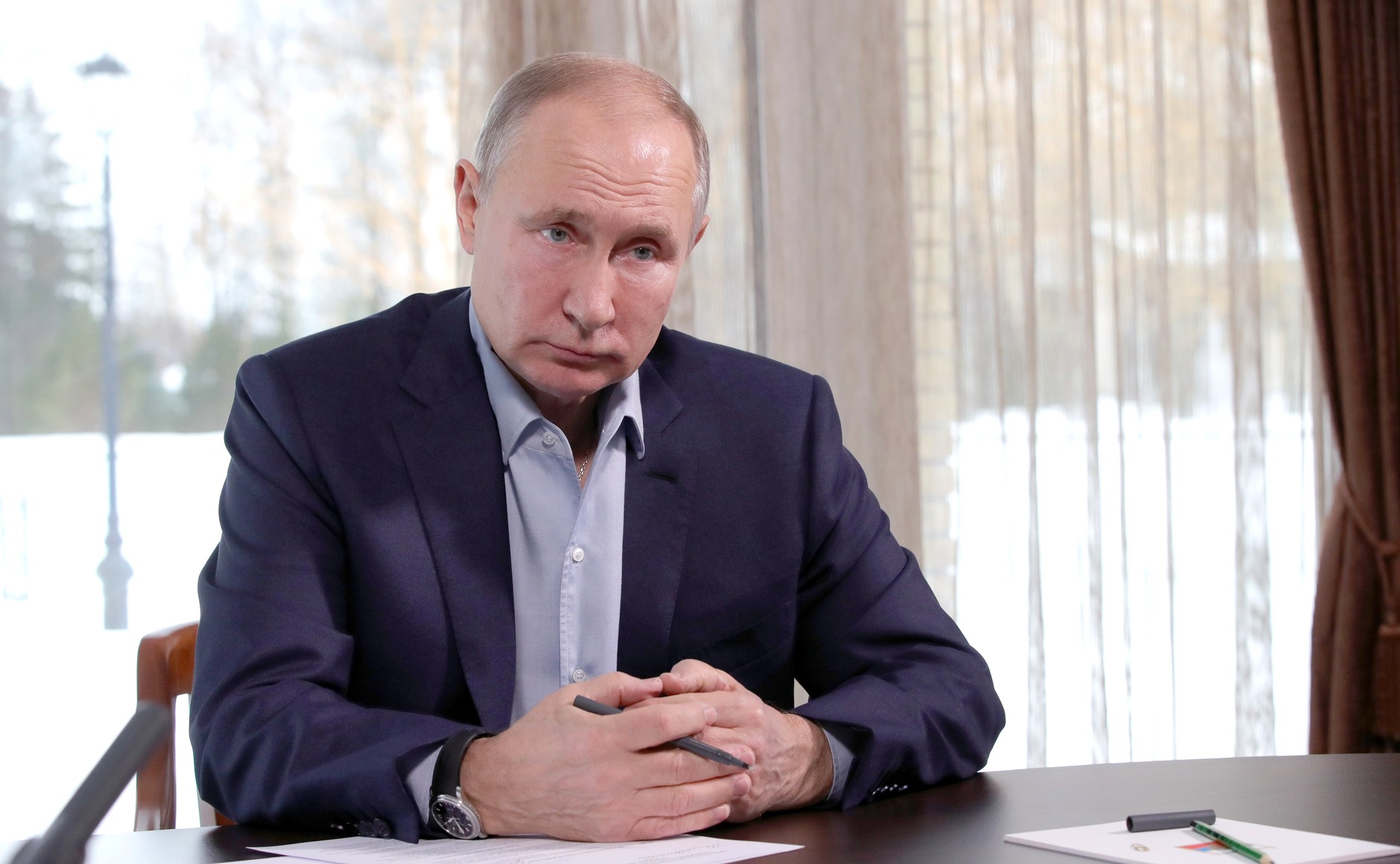 <…> Danila Chemezov: Mr President, may I ask a question concerning you personally? Vladimir Putin: Me? Danila Chemezov: Yes. Vladimir Putin: I graduated from university a long time ago, but go ahead, please. Danila Chemezov: Thank you very much for the opportunity. My name is Danila Chemezov, I am a third-year student at the Ufa State Petroleum Technological University. I would like to begin by saying that students today do not watch television, the internet is our main source of information. We certainly understand that one cannot trust everything because online content can be highly contradictory. Now top-trending on YouTube is an investigation film about a palace in Gelendzhik that you allegedly own. Mr President, is it true? Vladimir Putin: I did not watch this film, simply because I do not have enough spare time for such information, but I have been browsing through some video selections that my assistants brought me. I will answer your question right away: nothing shown there as my property belongs to me or any of my family, and it has never belonged to us. Never. This is my first point. The second thing I would like to tell you and other people who are present at this meeting today. You are all young people, but some of you – I can see senior students here, maybe even graduate students – some of you may have families, and others will start families later in life, and I sincerely wish you all have good happy families and many children. But you know that in the modern world this kind of thing is penetrating from the West, but all right, in the modern world, when you marry you may sign a prenuptial agreement. By the way, I do not think this is a good way to start a family, because if people want to get married and are going to live together and run a common household, and have children, then they probably should trust each other. Nevertheless, I admit that life situations can be different, and this is also possible, so the practice is becoming widespread. And even people who do not have any property yet, want to document their relationship on paper in some way. And in the modern world, when it comes to properties that cost millions, and maybe billions, there is always a paper trail somewhere over time, and this information has actually been circulating for more than 10 years one way or another. This is just a convenient opportunity, and they have compiled and edited it and decided to brainwash our citizens using these materials, and so they launched it on the internet – some films, some video content. But, over 10 years, something at least should have remained – registration of land plots, some financial transactions, at least a registration by a notary, there should be a paper trail, in notary books, or in digital form. What did they do instead? They posted a photo of me swimming butterfly stroke (sometimes I like to splash around using this style) in some pool that I have never seen in my life. I have no idea what pool that is. But I did swim like that. When and where? In the Yenisei River in 2016. In this case, it is just a compilation, a doctored video. Citing one of our famous characters, “It is boring, ladies.” At least, they could have come up with something better. With regard to the people mentioned in the video, I know some of them. Some are my friends and former colleagues; others are distant relatives, or acquaintances. Some of the people mentioned, I have no clue know who they are, I never met them. I understand that they do not really want to be seen too close to me because whoever does so immediately gets sanctioned. By the way, some of the people who I know well have been in business for a long time, even before we met. Of all the things I saw in that video, only one thing got my attention, not as a line of business, but as an activity: winemaking. A very good activity, a noble one, I believe. One of my good acquaintances did this with his partner. After the partner passed away, his son inherited his share, and they now run this small business. I digress but, in general, winemaking is doing well in our country. It is a good line of business, and our agricultural colleges may well support me in saying so. We have recently adopted a good law in this regard. I would like to do this someday, not as a business, but as a hobby. I have an advisor, Boris Titov, who owns Abrau Durso, a major company with a good track record. I believe Prince Golitsyn owned it in his time. Mr Titov is my advisor. When I finish my work here, maybe I will go to work as an advisor for him. Not as a businessman, but as an expert in law, for example. To reiterate, we have passed this law, and I am beginning to understand how it works. But I have never been interested in business. Not because it is something bad. On the contrary, I believe business is a great occupation, especially if you think about the social part of it, creating jobs, paying decent salaries, or expanding economic sectors. It is all very good and useful. But this is not my thing at all. Some of my colleagues, such as President Trump – he is a famous businessman. Or take former president of Ukraine Poroshenko: even as president, Mr Poroshenko engaged in business and opened offshore companies and offshore accounts. I want to finish answering this question with the message I started with: I have never been involved in this. I think this answers your question. We can return to this matter if you feel like it, but we can also move on to the next question. <…> Sofya Morozova: Good afternoon, Mr President. My name is Sofya Morozova. I am a first-year student at the Institute of International Relations, Kazan Federal University. My question concerns a fairly important topic. Even the people who are not interested in politics are aware of the recent riots in a number of regions and cities in our country. Young people also discussed this matter on social media and in person. It is common knowledge that young people tend to express their opinions on all matters. This one is no exception. What can you say about this situation? What do you think about it? Thank you. Vladimir Putin: Thank you for your question. I have covered similar topics many times before, and I want to emphasise that everyone has the right to express their opinion within the legal framework. Anything outside the law is not just counterproductive. It can be dangerous. Throughout the history of our country, we have, many times, seen the situation go far beyond the law and rock society and the state to the point where everyone, not just those who were involved in challenging the state and society, was affected by it. This was the case after World War I as a result of the October Revolution. What kind of good intentions were the people who stirred things up in the Russian Empire pursuing, and what did it lead to? I will not even go there. Or, take the 1990s, when everything looked as bad as it could get. Still, the collapse of the Soviet Union aggravated the situation beyond imagination. I am not just talking about Russia losing its geopolitical standing, I am also saying that ordinary people’s lives were affected as well. The economy and the army collapsed; law enforcement and healthcare collapsed as well. People went through the hard times of, in fact, a civil war launched by international terrorism in the Caucasus. Anything can be done, but within the law. See what happened in the United States. The crowd captured Congress. We had a moment in history when the parliament in central Moscow was fired at. Many young people are not even aware of this. Tanks fired directly at the parliament building, and not that long ago. Young people and schoolchildren, they did not see it or hear about it. For them, it is like Napoleon invading Moscow in 1812. It is so far back in history for them that they do not even feel like it is recent history. But older people remember this and, under no circumstances should they let this happen again, especially responsible people. The Capitol Building in Washington was seized. What will they do with these people? An FBI senior official said they have long arms and will catch and jail everyone for a term of 15 to 25 years for domestic terrorism. After all, they also took to the street with political slogans, but did so in violation of the law. Why should we allow things to happen outside the law? No, we should not. Moreover, in no case should minors be put in front of a crowd. Terrorists do this when they hide behind women and children. Here, the slant is a bit different, but overall, it is the same thing. To reiterate, everyone is entitled to engage in political activity, to express their opinion, or to promote their opinion in public, but they must do so within legal boundaries. Law enforcement agencies must also act within the law, they must carry out their duty as they serve the Russian people and the state within their official duties and the law. I hope we will be able to move forward in this way. Will that be enough? Svetlana Morozova: Thank you, Mr President. <…> 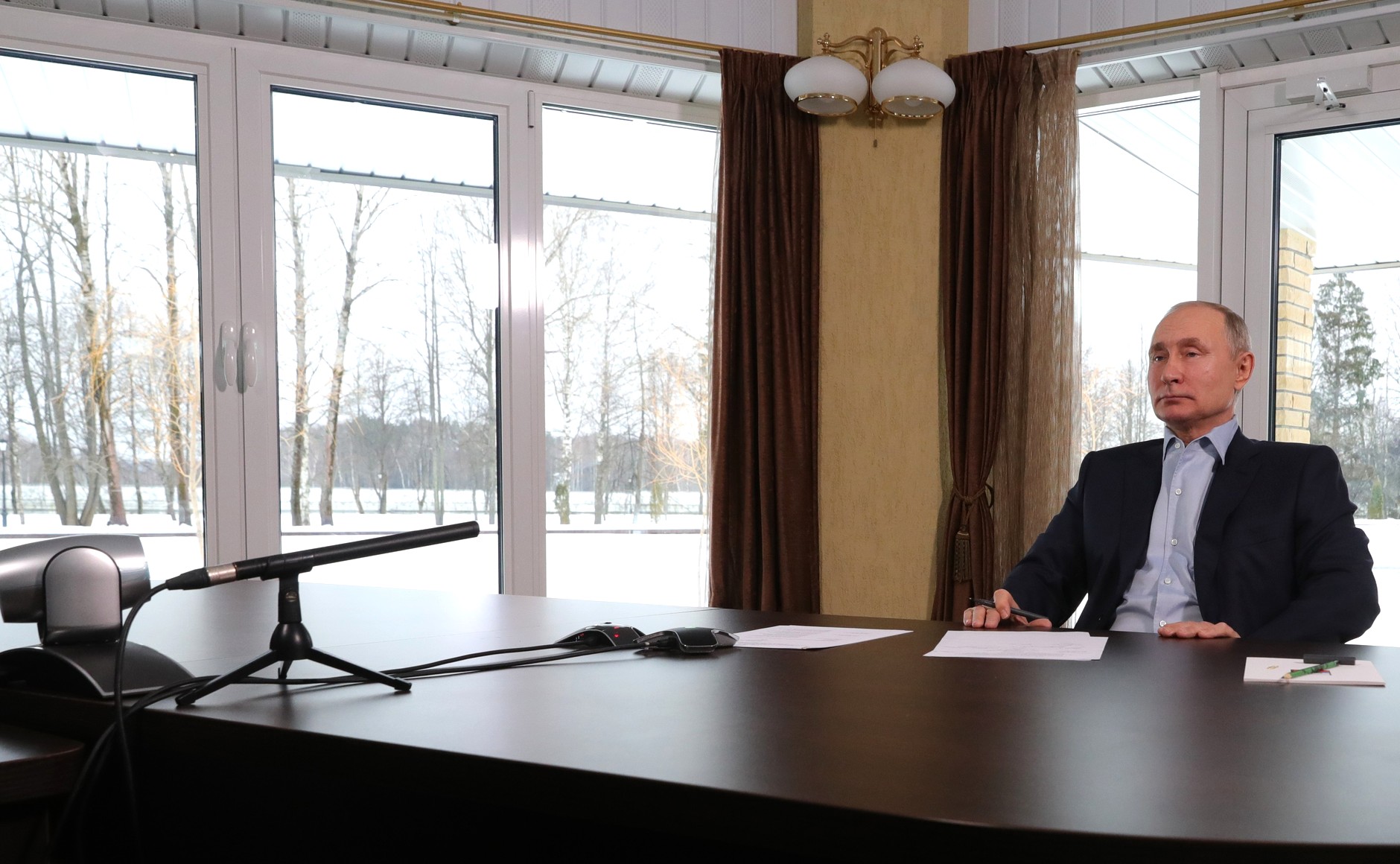 Yevgeny Skurikhin: Good afternoon, Mr President. My name is Yevgeny Skurikhin, a fifth-year student at Mikhail Glinka Nizhny Novgorod Conservatoire, department of folk instruments. I think students at creative universities are ready and willing to take part in the events of the Year of Science and Technology, which was declared in the Russian Federation. To my knowledge, in recent times, the synthesis of science and the arts has become an independent area, known as Science Art. Considering student interest at creative universities in expanding the boundaries of art as an instrument for visualising research discoveries and popularising scientific knowledge, we would like to take part in these events. As far as we know from the media, the Year of Science itinerary is now being drafted. Mr President, will such events be included in the plan of the Year of Science and Technology? Thank you. Vladimir Putin: We have declared this year the Year of Science and Technology primarily as a sign of respect for our scientists, engineering schools and engineers. In part, owing to their efforts, Russia has a status that we are proud of. We have something to be proud of. The Year of Science and Technology is called on to promote the noble labour of our scientists, specialists and engineers in relevant areas. You know, I have already spoken about this, once Daniil Granin, our outstanding writer, told me just a couple of days before he died that we devoted too little attention to the promotion of science and technology, technological progress and engineering, in the good sense of this word. He asked me to personally pay more attention to this. This is exactly what he said: “You personally must deal more with this. We must see and hear your position on these issues.” So, we have declared this year the Year of Science and Technology. To make this work more effective, we need to involve people in the creative specialties: writers, journalists and musicians, because many of our films that used to promote research and engineering and creative endeavours in general, made a very serious and substantial contribution to conveying to their audiences, our citizens, the importance of what our scientists and specialists were doing in engineering. So now, as we finalise this project, this itinerary, as you said, we must certainly take into account what you mentioned – the need to involve creative professionals in these efforts on a larger scale. I am grateful to you for raising this issue. Thank you very much. We will do this. What will you do upon graduating the Conservatoire? What is your specialty? Yevgeny Skurikhin: My specialty is Concert Folk Instruments, notably, the accordion. I also study at the department of additional education where my specialty is Orchestra Conducting. I already have a job now. Vladimir Putin: We are colleagues in a way because when I was a little boy, my mother and father encouraged me to play the accordion. I could play it a little. True, much time has passed since then. But it does not pass without a trace because all this has some relevance. Any education, especially in this area, music, has a beneficial impact on the development of a person in general. Therefore, you have a very good choice, both folk instruments and conducting, where you have very broad opportunities for creativity. I would like to wish you success. The source of information - http://en.kremlin.ru/events/president/news/64922 Telephone conversation with President of Mexico Andres Manuel Lopez Obrador Vladimir Putin had a telephone conversation with President of the United Mexican States Andres Manuel Lopez Obrador. January 25, 2021 - 18:30 Both presidents noted the constructive and mutually beneficial bilateral relations that are successfully developing in various areas. The leaders discussed in detail the tasks of countering the spread of the coronavirus and ensuring epidemiological safety. They reviewed issues of organising the distribution of the Russian Sputnik V vaccine in Mexico and training Mexican medical specialists in Russia. Vladimir Putin wished an early and complete recovery to the President of Mexico who was diagnosed with the coronavirus. The source of information - http://en.kremlin.ru/events/president/news/64926 Greetings to President of India Ram Nath Kovind and Prime Minister of India Narendra Modi Vladimir Putin sent greetings to President of India Ram Nath Kovind and Prime Minister of India Narendra Modi on Republic Day, India’s national holiday. January 26, 2021 - 11:40 The message reads in part: “Your country has widely recognised achievements in the economy, the social sphere, science and technology, and other areas. India plays a major constructive part in addressing topical matters on the regional and global agenda. We highly value the relations of privileged strategic partnership between our states. I am confident that the future expansion of the entire range of constructive Russian-Indian ties meets the interests of our friendly peoples and is in line with the goals of strengthening international stability and security.” The source of information - http://en.kremlin.ru/events/president/news/64929 Condolences on passing of Sergei Prikhodko Vladimir Putin expressed his condolences to the family of former Deputy Prime Minister Sergei Prikhodko. January 26, 2021 - 13:30 The message reads, in part: “Sergei Prikhodko, who was a talented and kind-hearted person and an outstanding representative of the Russian diplomatic school, has departed. His extensive knowledge and managerial experience have been used in widely different but always extremely important fields of government service. I would like to highlight his contribution to strengthening Russia’s foreign policy standing. He took part in many complicated negotiations and helped organise major international events, acting with precision and high professionalism, intently and reliably. He put the interests of the country above anything else.” Sergei Prikhodko died at the age of 64. The source of information - http://en.kremlin.ru/events/president/news/64932 Opening of Repin junction The Russian leader took part in a ceremony marking the opening of a transport interchange at the intersection of the M10 Rossiya motorway and Repin Street in Khimki. January 26, 2021 - 15:20 - Khimki, Moscow Region 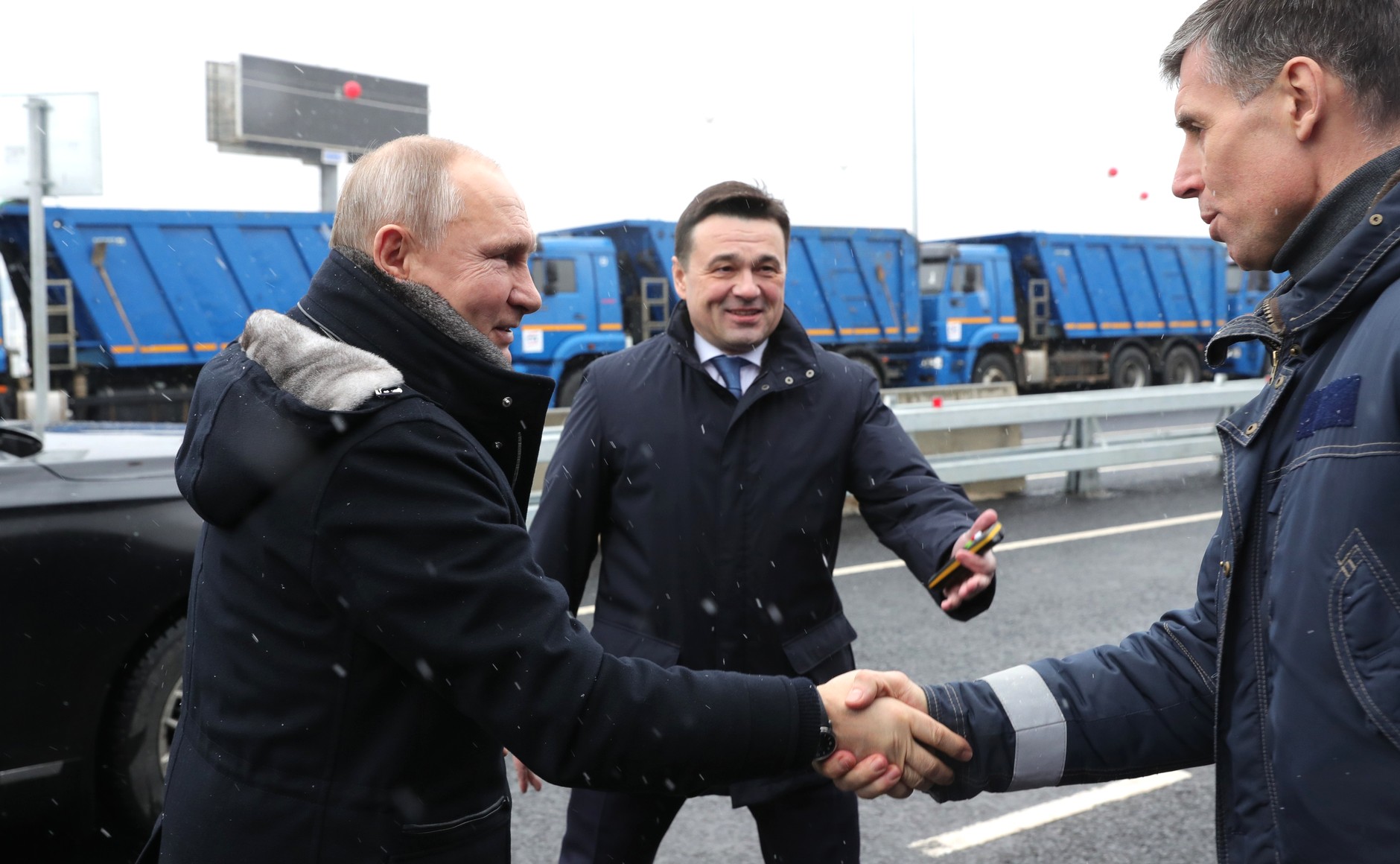 Vladimir Putin spoke briefly with participants in the construction of the new junction and was updated on the development of the road infrastructure in Khimki and in Moscow Region. 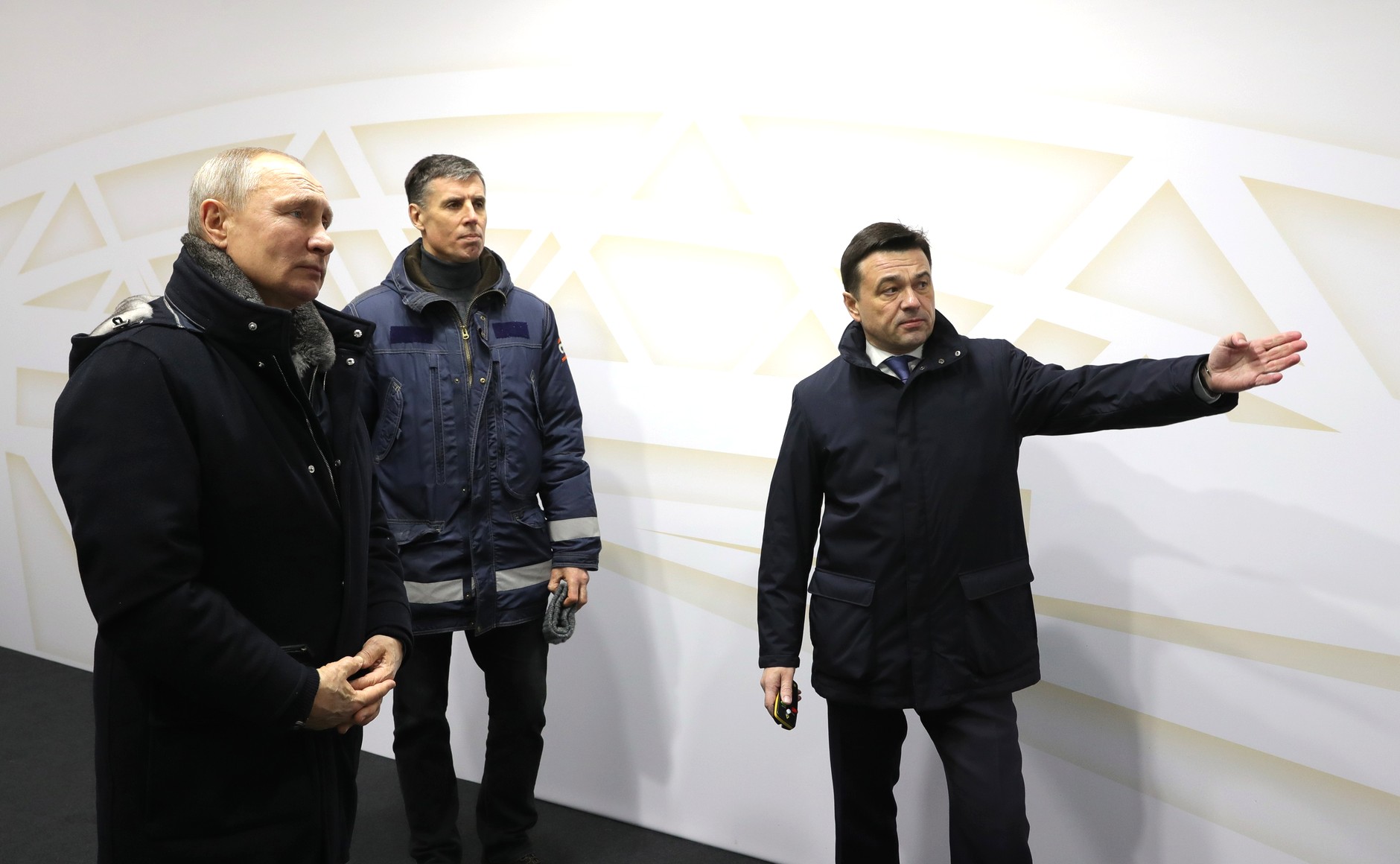 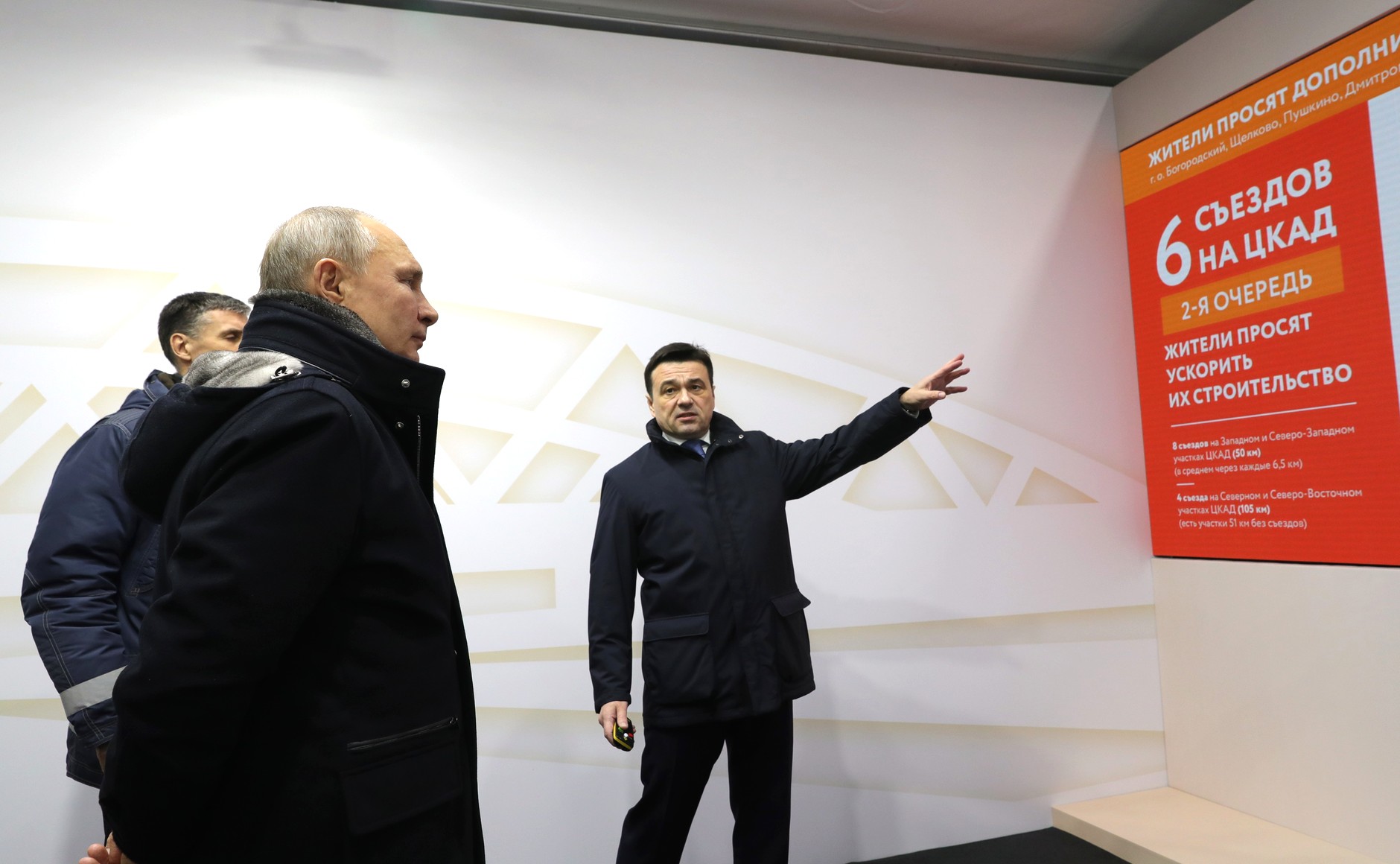 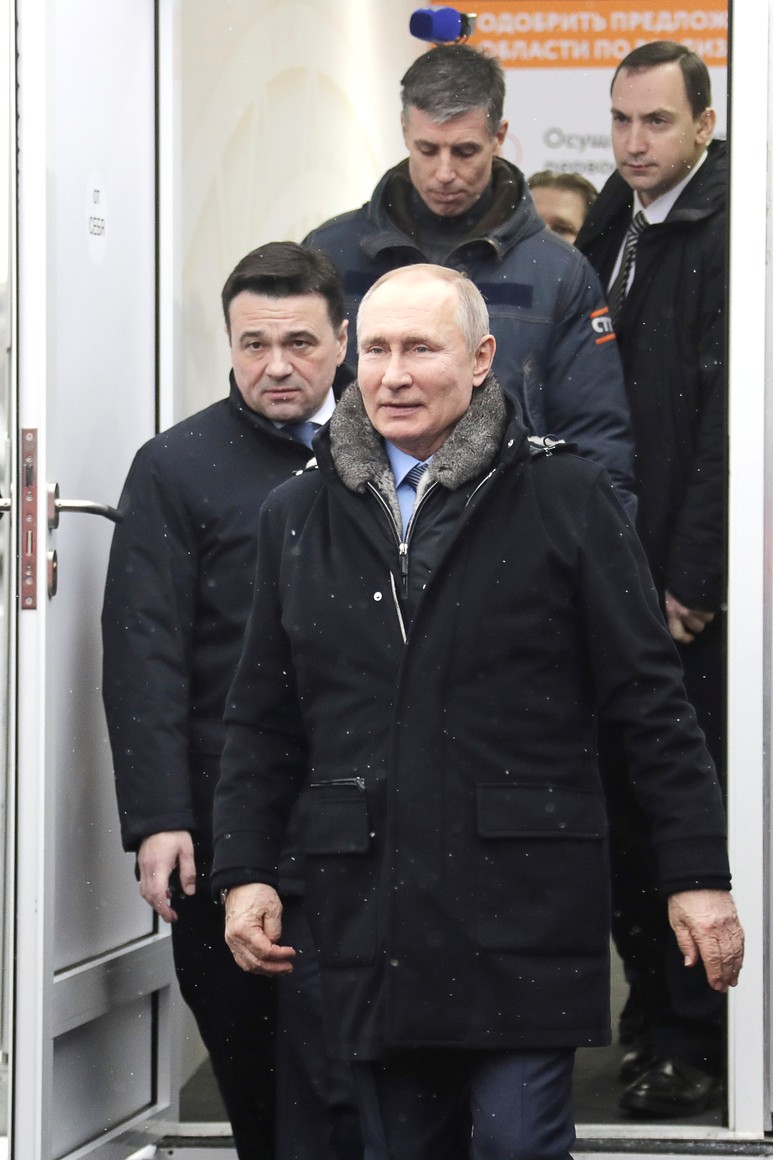 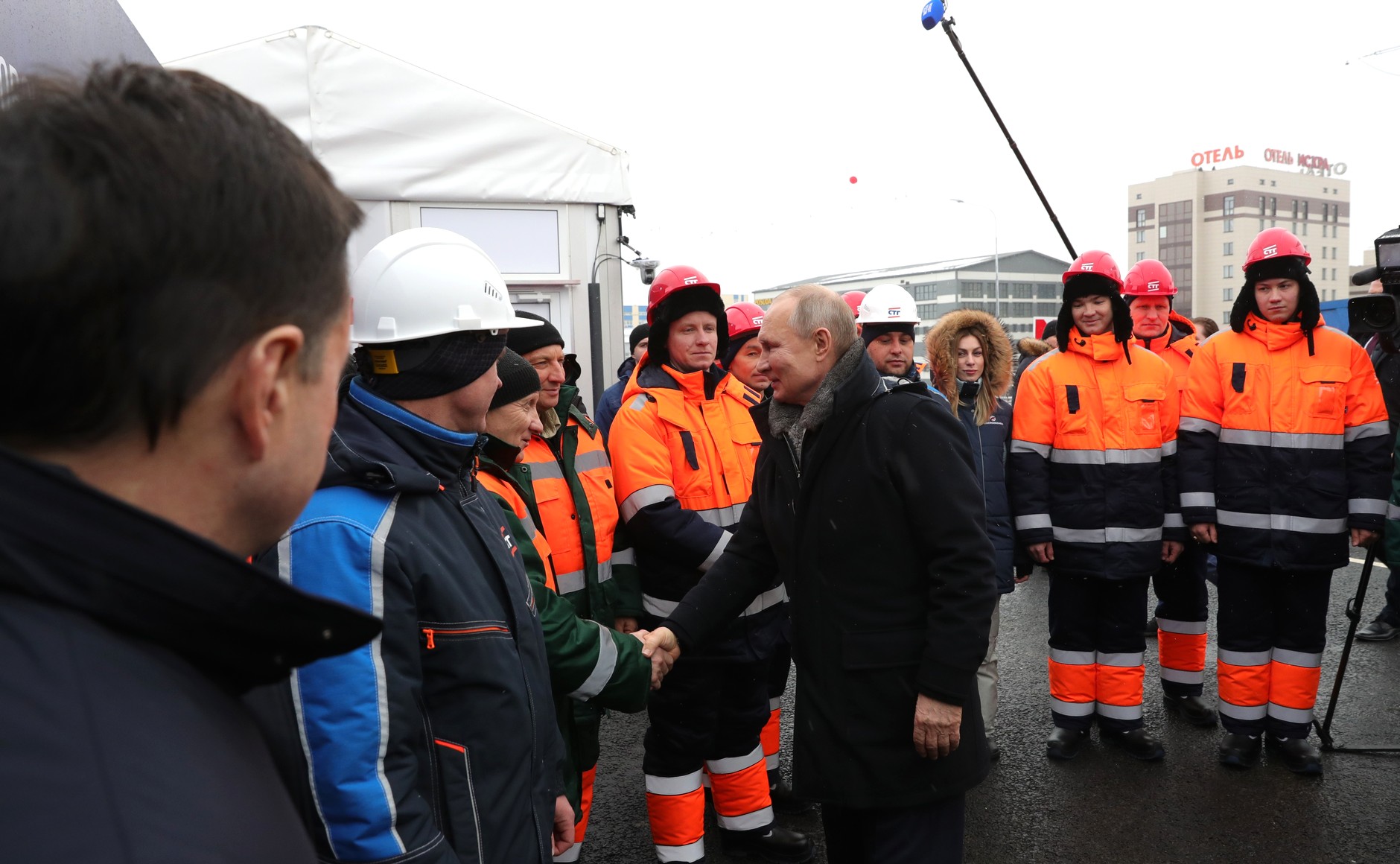 The flyover was built at the Russian leader’s instruction following his visit to Energomash Science and Production Association in Khimki near Moscow on April 12, 2019. The engineering structure was completed under the national project Safe and High-Quality Motorways. 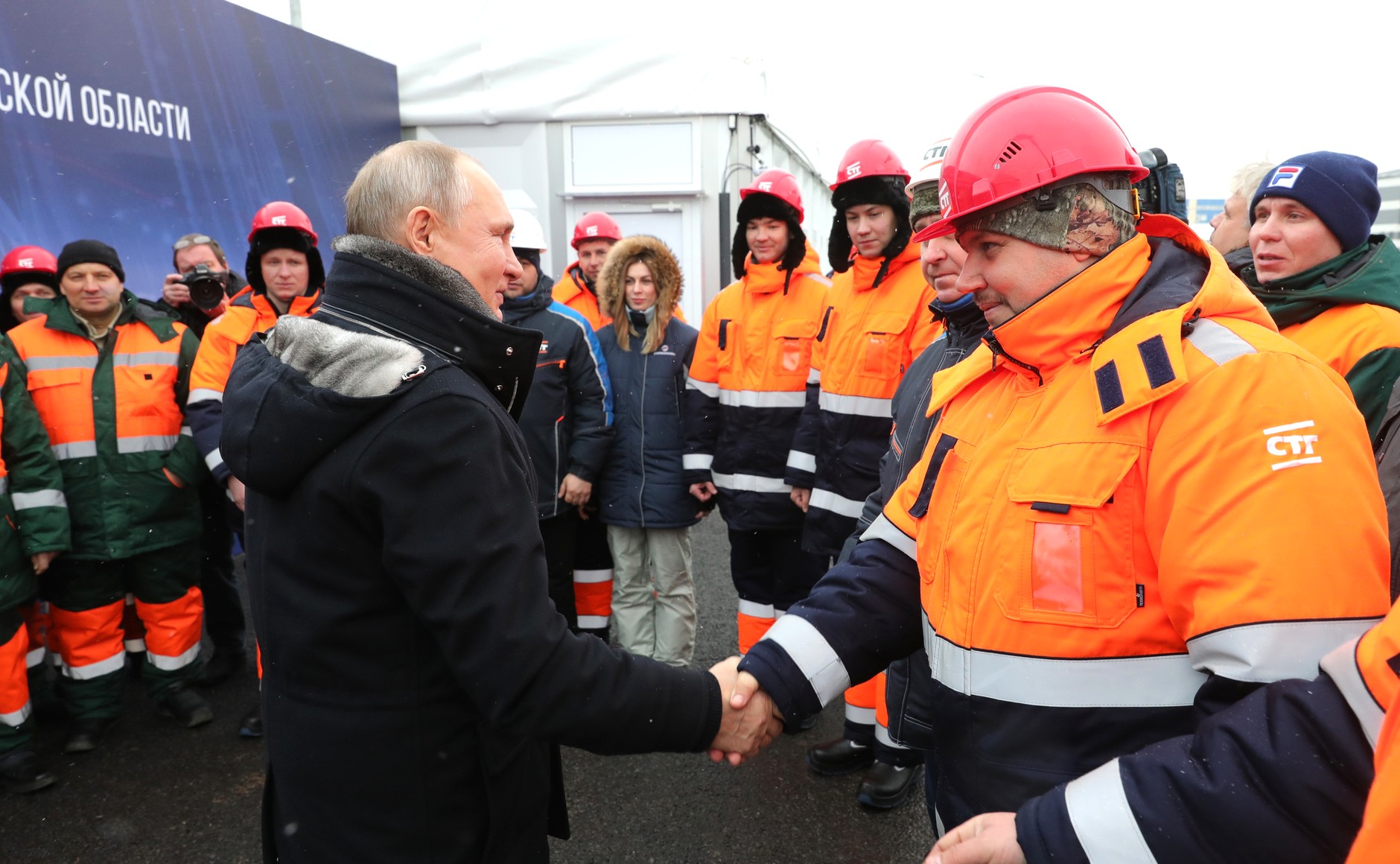  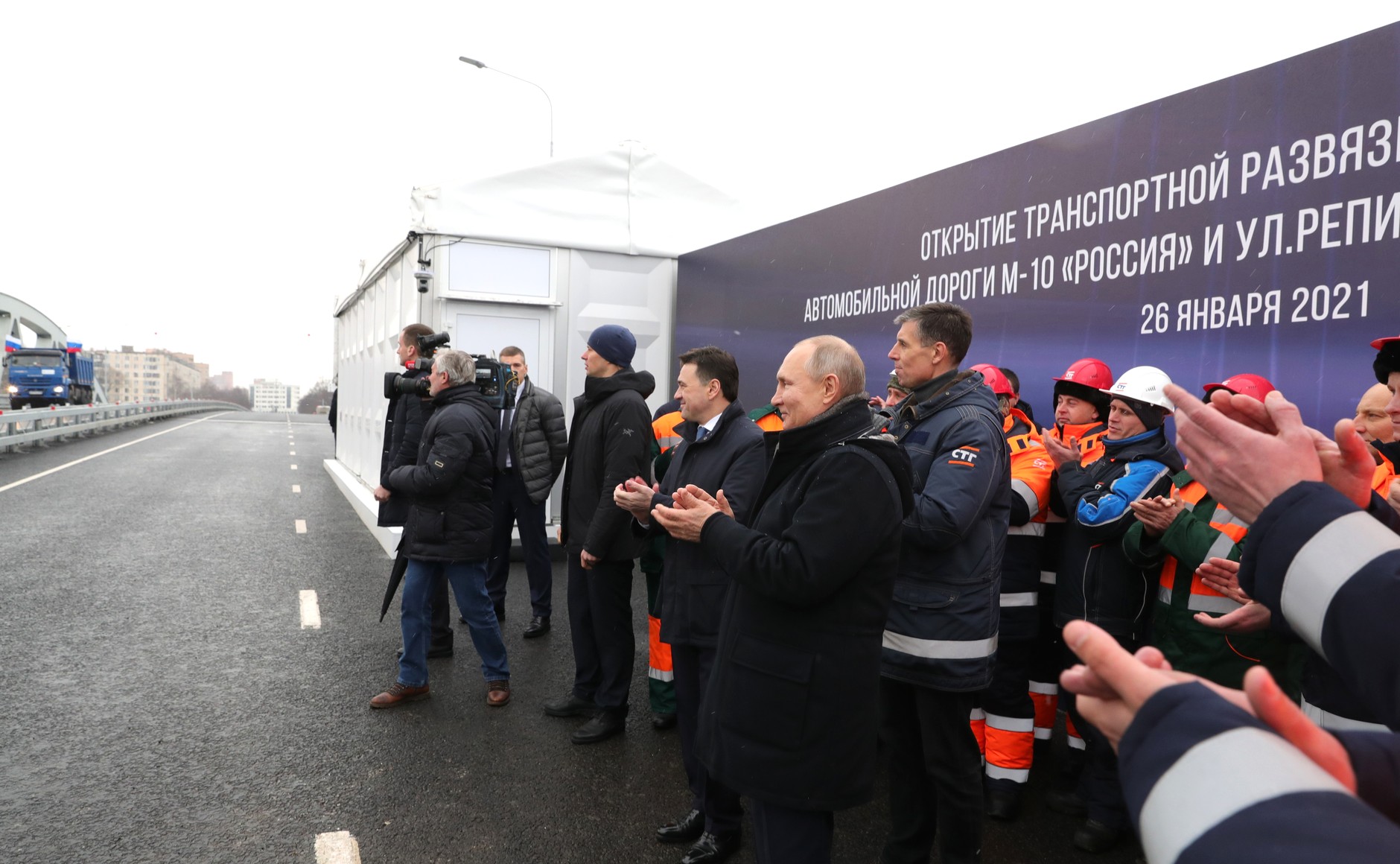 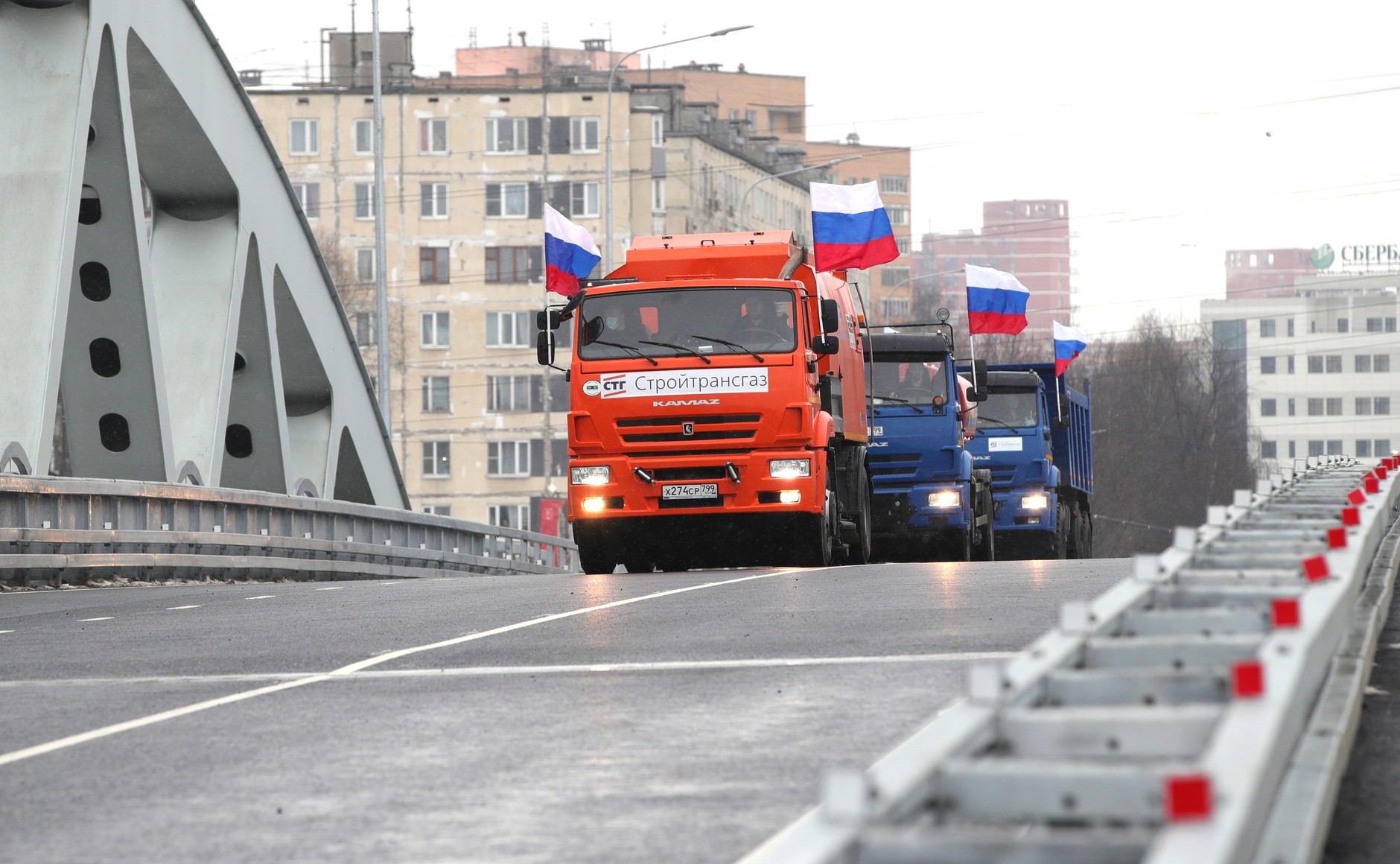 The interchange is to link the city’s “old” and “new” districts and make its industrial sector more accessible.  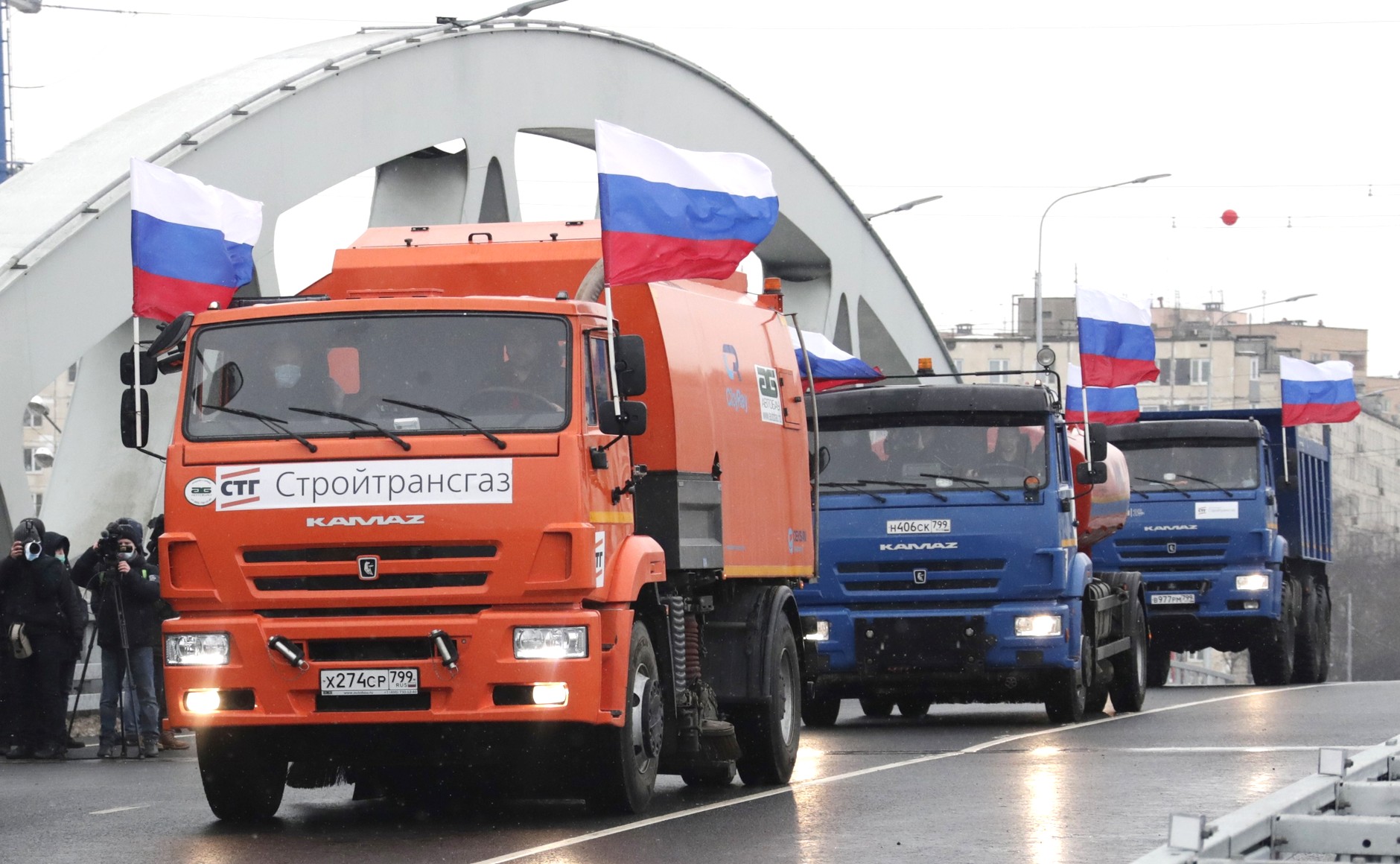 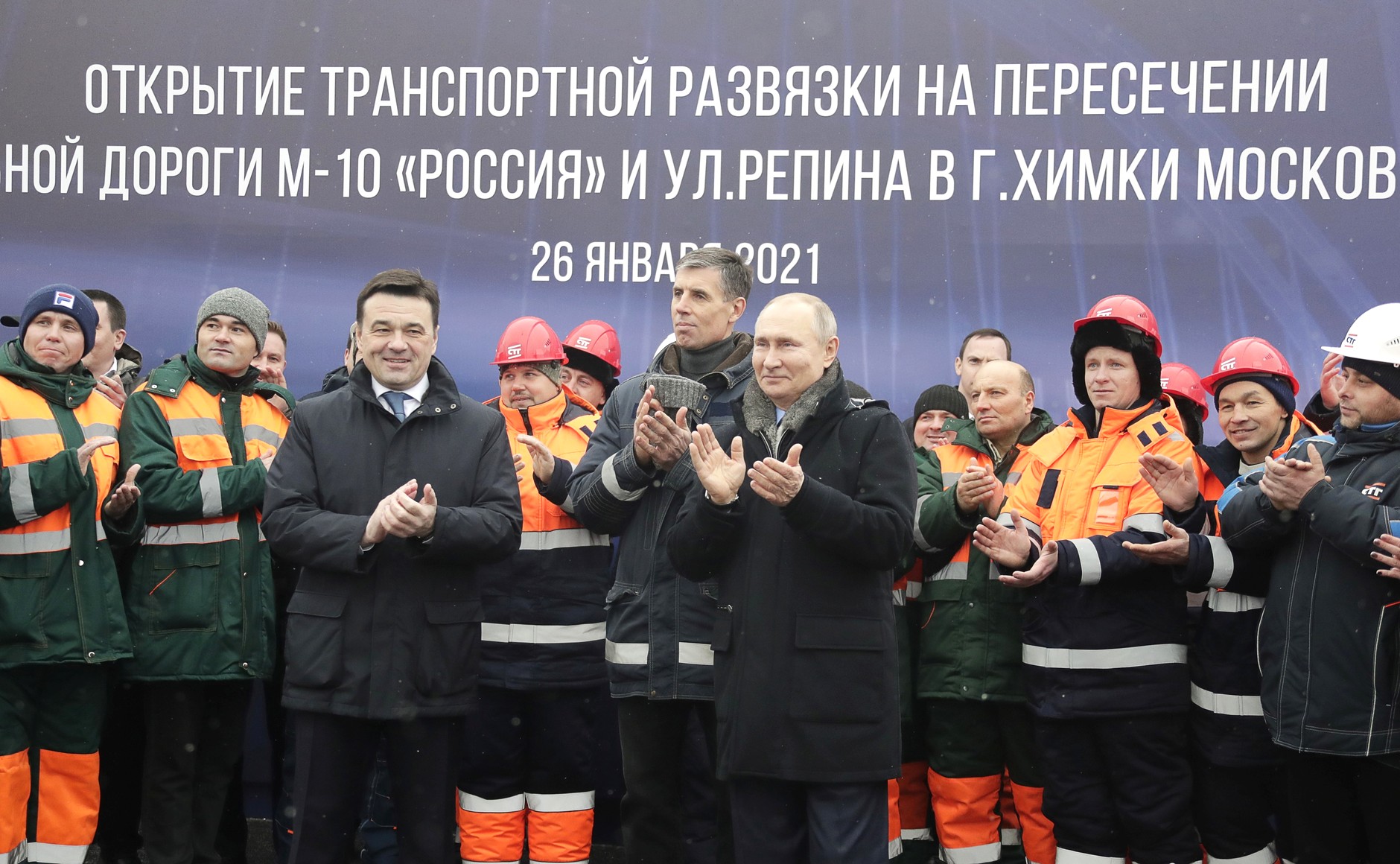 The transport interchange has an area of about 40,000 square metres and its carriageway is 0.8 km long, including a 158-metre flyover. The carriageway has two to five lanes, and allows a maximum vehicle speed of 70 kph. The source of information - http://en.kremlin.ru/events/president/news/64934
__________________
Where should they dig the Very Deep Pit? Piglet said that the best place would be somewhere where a Heffalump was, just before he fell into it, only about a foot farther on. (c) Alan Alexander Miln |
|
|
#179 |
|
Senior Member
|
Telephone conversation with US President Joseph Biden
Vladimir Putin had a telephone conversation with President of the United States of America Joseph Biden. January 26, 2021 - 21:35 Vladimir Putin congratulated Joseph Biden on the start of his term as US President. He noted that normalisation of relations between Russia and the US would meet the interests of both countries and, considering their special responsibility for maintaining global security and stability, of the entire international community. The presidents expressed satisfaction over today’s exchange of diplomatic notes on the agreement to extend the Strategic Arms Reduction Treaty. In the next few days, the parties will complete the necessary procedures that ensure the functioning of this important mechanism of international law on the mutual limitation of their nuclear missile arsenals. They discussed vital bilateral and international issues as well as opportunities to cooperate in countering such serious problems as the coronavirus pandemic, and in other areas, including trade and the economy. As for international issues, the presidents reviewed the US’s unilateral withdrawal from the Open Skies Treaty, the problem of preserving the Joint Comprehensive Plan of Action on the Iranian nuclear programme, the domestic settlement in Ukraine and the Russian initiative to hold a summit of the permanent members of the UN Security Council. In general, the conversation between the Russian and US leaders was businesslike and sincere. They agreed to maintain contact. The source of information - http://en.kremlin.ru/events/president/news/64936 Session of Davos Agenda 2021 online forum Vladimir Putin spoke at the session of the Davos Agenda 2021 online forum organised by the World Economic Forum (WEF). January 27, 2021 - 15:10 - The Kremlin, Moscow The online events are taking place from January 25 to 29 and involve heads of state and government, CEOs of major international companies, global media and youth organisations from Asia, Europe, Africa, the Middle East, North America and Latin America. The main focus of the forum is the discussion of the new global situation arising from the novel coronavirus pandemic. World Economic Forum Founder and Executive Chairman Klaus Schwab: Mr President, welcome to the Davos Agenda Week. Russia is an important global power, and there’s a long-standing tradition of Russia’s participation in the World Economic Forum. At this moment in history, where the world has a unique and short window of opportunity to move from an age of confrontation to an age of cooperation, the ability to hear your voice, the voice of the President of the Russian Federation, is essential. Even and especially in times characterised by differences, disputes and protests, constructive and honest dialogue to address our common challenges is better than isolation and polarisation. Yesterday, your phone exchange with President Biden and the agreement to extend the New START nuclear arms treaty in principle, I think, was a very promising sign in this direction. COVID-19, Mr President, has shown our global vulnerability and interconnectivity, and, like any other country, Russia will certainly also be affected, and your economic development and prospects for international cooperation, of course, are of interest to all of us. Mr President, we are keen to hear from your perspective and from that of Russia, how you see the situation developing in the third decade of the 21st century and what should be done to ensure that people everywhere find peace and prosperity. Mr President, the world is waiting to hear from you. President of Russia Vladimir Putin: Mr Schwab, dear Klaus, Colleagues, I have been to Davos many times, attending the events organised by Mr Schwab, even back in the 1990s. Klaus [Schwab] just recalled that we met in 1992. Indeed, during my time in St Petersburg, I visited this important forum many times. I would like to thank you for this opportunity today to convey my point of view to the expert community that gathers at this world-renowned platform thanks to the efforts of Mr Schwab. First of all, ladies and gentlemen, I would like to greet all the World Economic Forum participants. It is gratifying that this year, despite the pandemic, despite all the restrictions, the forum is still continuing its work. Although it is limited to online participation, the forum is taking place anyway, providing an opportunity for participants to exchange their assessments and forecasts during an open and free discussion, partially compensating for the increasing lack of in-person meetings between leaders of states, representatives of international business and the public in recent months. All this is very important now, when we have so many difficult questions to answer. The current forum is the first one in the beginning of the third decade of the 21st century and, naturally, the majority of its topics are devoted to the profound changes that are taking place in the world. Indeed, it is difficult to overlook the fundamental changes in the global economy, politics, social life and technology. The coronavirus pandemic, which Klaus just mentioned, which became a serious challenge for humankind, only spurred and accelerated the structural changes, the conditions for which had been created long ago. The pandemic has exacerbated the problems and imbalances that built up in the world before. There is every reason to believe that differences are likely to grow stronger. These trends may appear practically in all areas. Needless to say, there are no direct parallels in history. However, some experts – and I respect their opinion – compare the current situation to the 1930s. One can agree or disagree, but certain analogies are still suggested by many parameters, including the comprehensive, systemic nature of the challenges and potential threats. We are seeing a crisis of the previous models and instruments of economic development. Social stratification is growing stronger both globally and in individual countries. We have spoken about this before as well. But this, in turn, is causing today a sharp polarisation of public views, provoking the growth of populism, right- and left-wing radicalism and other extremes, and the exacerbation of domestic political processes including in the leading countries. All this is inevitably affecting the nature of international relations and is not making them more stable or predictable. International institutions are becoming weaker, regional conflicts are emerging one after another, and the system of global security is deteriorating. Klaus has mentioned the conversation I had yesterday with the US President on extending the New START. This is, without a doubt, a step in the right direction. Nevertheless, the differences are leading to a downward spiral. As you are aware, the inability and unwillingness to find substantive solutions to problems like this in the 20th century led to the WWII catastrophe. Of course, such a heated global conflict is impossible in principle, I hope. This is what I am pinning my hopes on, because this would be the end of humanity. However, as I have said, the situation could take an unexpected and uncontrollable turn – unless we do something to prevent this. There is a chance that we will face a formidable break-down in global development, which will be fraught with a war of all against all and attempts to deal with contradictions through the appointment of internal and external enemies and the destruction of not only traditional values such as the family, which we hold dear in Russia, but fundamental freedoms such as the right of choice and privacy. I would like to point out the negative demographic consequences of the ongoing social crisis and the crisis of values, which could result in humanity losing entire civilisational and cultural continents. We have a shared responsibility to prevent this scenario, which looks like a grim dystopia, and to ensure instead that our development takes a different trajectory – positive, harmonious and creative. In this context, I would like to speak in more detail about the main challenges which, I believe, the international community is facing. 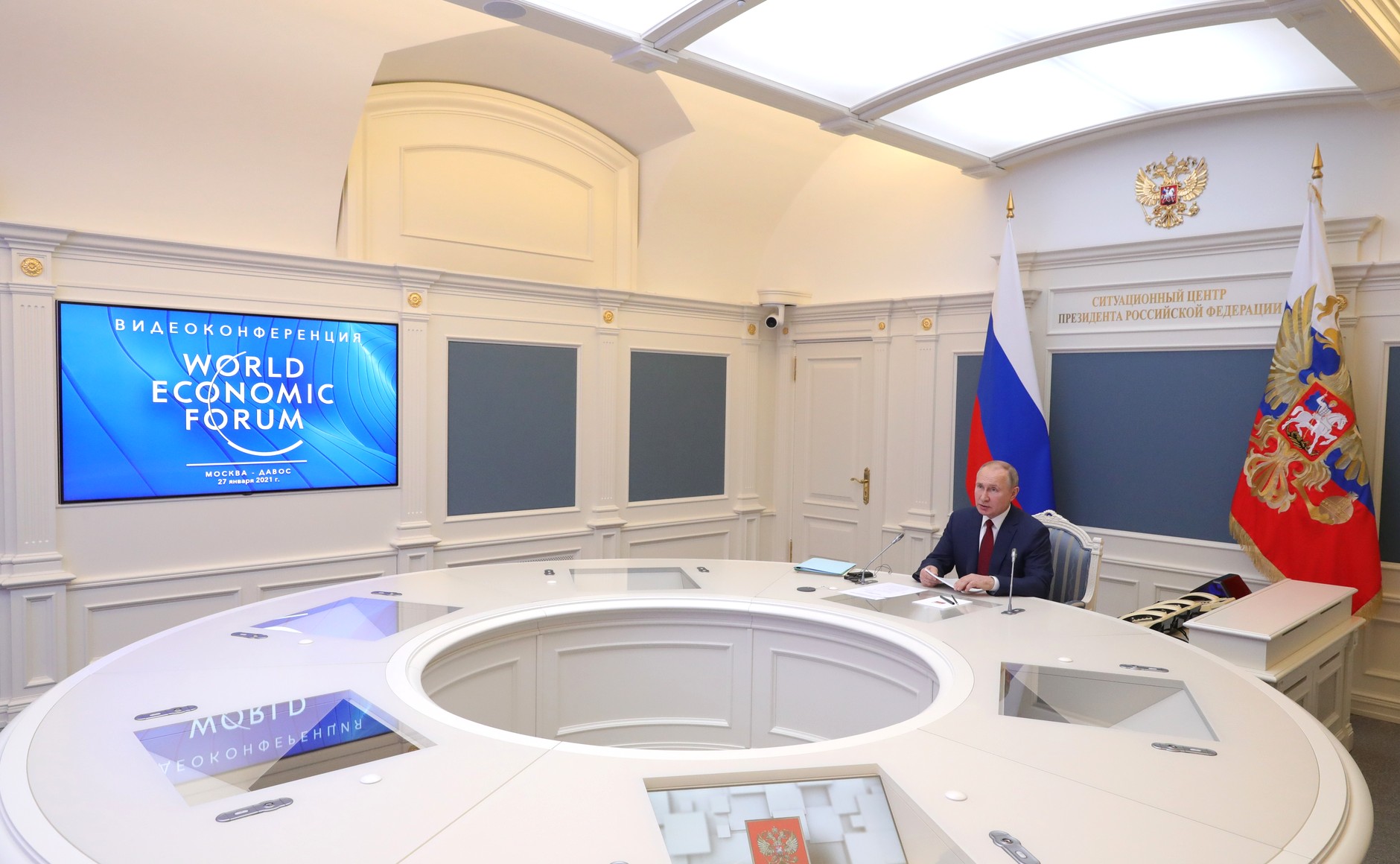 The first one is socioeconomic. Indeed, judging by the statistics, even despite the deep crises in 2008 and 2020, the last 40 years can be referred to as successful or even super successful for the global economy. Starting from 1980, global per capita GDP has doubled in terms of real purchasing power parity. This is definitely a positive indicator. Globalisation and domestic growth have led to strong growth in developing countries and lifted over a billion people out of poverty. So, if we take an income level of $5.50 per person per day (in terms of PPP) then, according to the World Bank, in China, for example, the number of people with lower incomes went from 1.1 billion in 1990 down to less than 300 million in recent years. This is definitely China's success. In Russia, this number went from 64 million people in 1999 to about 5 million now. We believe this is also progress in our country, and in the most important area, by the way. Still, the main question, the answer to which can, in many respects, provide a clue to today’s problems, is what was the nature of this global growth and who benefitted from it most. Of course, as I mentioned earlier, developing countries benefitted a lot from the growing demand for their traditional and even new products. However, this integration into the global economy has resulted in more than just new jobs or greater export earnings. It also had its social costs, including a significant gap in individual incomes. What about the developed economies where average incomes are much higher? It may sound ironic, but stratification in the developed countries is even deeper. According to the World Bank, 3.6 million people subsisted on incomes of under $5.50 per day in the United States in 2000, but in 2016 this number grew to 5.6 million people. Meanwhile, globalisation led to a significant increase in the revenue of large multinational, primarily US and European, companies. By the way, in terms of individual income, the developed economies in Europe show the same trend as the United States. But then again, in terms of corporate profits, who got hold of the revenue? The answer is clear: one percent of the population. And what has happened in the lives of other people? In the past 30 years, in a number of developed countries, the real incomes of over half of the citizens have been stagnating, not growing. Meanwhile, the cost of education and healthcare services has gone up. Do you know by how much? Three times. In other words, millions of people even in wealthy countries have stopped hoping for an increase of their incomes. In the meantime, they are faced with the problem of how to keep themselves and their parents healthy and how to provide their children with a decent education. There is no call for a huge mass of people and their number keeps growing. Thus, according to the International Labour Organisation (ILO), in 2019, 21 percent or 267 million young people in the world did not study or work anywhere. Even among those who had jobs (these are interesting figures) 30 percent had an income below $3.2 per day in terms of purchasing power parity. These imbalances in global socioeconomic development are a direct result of the policy pursued in the 1980s, which was often vulgar or dogmatic. This policy rested on the so-called Washington Consensus with its unwritten rules, when the priority was given to the economic growth based on a private debt in conditions of deregulation and low taxes on the wealthy and the corporations. As I have already mentioned, the coronavirus pandemic has only exacerbated these problems. In the last year, the global economy sustained its biggest decline since WWII. By July, the labour market had lost almost 500 million jobs. Yes, half of them were restored by the end of the year but still almost 250 million jobs were lost. This is a big and very alarming figure. In the first nine months of the past year alone, the losses of earnings amounted to $3.5 trillion. This figure is going up and, hence, social tension is on the rise. At the same time, post-crisis recovery is not simple at all. If some 20 or 30 years ago, we would have solved the problem through stimulating macroeconomic policies (incidentally, this is still being done), today such mechanisms have reached their limits and are no longer effective. This resource has outlived its usefulness. This is not an unsubstantiated personal conclusion. According to the IMF, the aggregate sovereign and private debt level has approached 200 percent of global GDP, and has even exceeded 300 percent of national GDP in some countries. At the same time, interest rates in developed market economies are kept at almost zero and are at a historic low in emerging market economies. Taken together, this makes economic stimulation with traditional methods, through an increase in private loans virtually impossible. The so-called quantitative easing is only increasing the bubble of the value of financial assets and deepening the social divide. The widening gap between the real and virtual economies (incidentally, representatives of the real economy sector from many countries have told me about this on numerous occasions, and I believe that the business representatives attending this meeting will agree with me) presents a very real threat and is fraught with serious and unpredictable shocks. Hopes that it will be possible to reboot the old growth model are connected with rapid technological development. Indeed, during the past 20 years we have created a foundation for the so-called Fourth Industrial Revolution based on the wide use of AI and automation and robotics. The coronavirus pandemic has greatly accelerated such projects and their implementation. However, this process is leading to new structural changes, I am thinking in particular of the labour market. This means that very many people could lose their jobs unless the state takes effective measures to prevent this. Most of these people are from the so-called middle class, which is the basis of any modern society. In this context, I would like to mention the second fundamental challenge of the forthcoming decade – the socio-political one. The rise of economic problems and inequality is splitting society, triggering social, racial and ethnic intolerance. Indicatively, these tensions are bursting out even in the countries with seemingly civil and democratic institutions that are designed to alleviate and stop such phenomena and excesses. The systemic socioeconomic problems are evoking such social discontent that they require special attention and real solutions. The dangerous illusion that they may be ignored or pushed into the corner is fraught with serious consequences. In this case, society will still be divided politically and socially. This is bound to happen because people are dissatisfied not by some abstract issues but by real problems that concern everyone regardless of the political views that people have or think they have. Meanwhile, real problems evoke discontent. I would like to emphasise one more important point. Modern technological giants, especially digital companies, have started playing an increasing role in the life of society. Much is being said about this now, especially regarding the events that took place during the election campaign in the US. They are not just some economic giants. In some areas, they are de facto competing with states. Their audiences consist of billions of users that pass a considerable part of their lives in these eco systems.  In the opinion of these companies, their monopoly is optimal for organising technological and business processes. Maybe so but society is wondering whether such monopolism meets public interests. Where is the border between successful global business, in-demand services and big data consolidation and the attempts to manage society at one’s own discretion and in a tough manner, replace legal democratic institutions and essentially usurp or restrict the natural right of people to decide for themselves how to live, what to choose and what position to express freely? We have just seen all of these phenomena in the US and everyone understands what I am talking about now. I am confident that the overwhelming majority of people share this position, including the participants in the current event. And finally, the third challenge, or rather, a clear threat that we may well run into in the coming decade is the further exacerbation of many international problems. After all, unresolved and mounting internal socioeconomic problems may push people to look for someone to blame for all their troubles and to redirect their irritation and discontent. We can already see this. We feel that the degree of foreign policy propaganda rhetoric is growing. We can expect the nature of practical actions to also become more aggressive, including pressure on the countries that do not agree with a role of obedient controlled satellites, use of trade barriers, illegitimate sanctions and restrictions in the financial, technological and cyber spheres. Such a game with no rules critically increases the risk of unilateral use of military force. The use of force under a far-fetched pretext is what this danger is all about. This multiplies the likelihood of new hot spots flaring up on our planet. This concerns us. Colleagues, despite this tangle of differences and challenges, we certainly should keep a positive outlook on the future and remain committed to a constructive agenda. It would be naive to come up with universal miraculous recipes for resolving the above problems. But we certainly need to try to work out common approaches, bring our positions as close as possible and identify sources that generate global tensions. Once again, I want to emphasise my thesis that accumulated socioeconomic problems are the fundamental reason for unstable global growth. So, the key question today is how to build a programme of actions in order to not only quickly restore the global and national economies affected by the pandemic, but to ensure that this recovery is sustainable in the long run, relies on a high-quality structure and helps overcome the burden of social imbalances. Clearly, with the above restrictions and macroeconomic policy in mind, economic growth will largely rely on fiscal incentives with state budgets and central banks playing the key role. Actually, we can see these kinds of trends in the developed countries and also in some developing economies as well. An increasing role of the state in the socioeconomic sphere at the national level obviously implies greater responsibility and close interstate interaction when it comes to issues on the global agenda. Calls for inclusive growth and for creating decent standards of living for everyone are regularly made at various international forums. This is how it should be, and this is an absolutely correct view of our joint efforts. It is clear that the world cannot continue creating an economy that will only benefit a million people, or even the golden billion. This is a destructive precept. This model is unbalanced by default. The recent developments, including migration crises, have reaffirmed this once again. We must now proceed from stating facts to action, investing our efforts and resources into reducing social inequality in individual countries and into gradually balancing the economic development standards of different countries and regions in the world. This would put an end to migration crises. The essence and focus of this policy aimed at ensuring sustainable and harmonious development are clear. They imply the creation of new opportunities for everyone, conditions under which everyone will be able to develop and realise their potential regardless of where they were born and are living I would like to point out four key priorities, as I see them. This might be old news, but since Klaus has allowed me to present Russia’s position, my position, I will certainly do so. First, everyone must have comfortable living conditions, including housing and affordable transport, energy and public utility infrastructure. Plus environmental welfare, something that must not be overlooked. Second, everyone must be sure that they will have a job that can ensure sustainable growth of income and, hence, decent standards of living. Everyone must have access to an effective system of lifelong education, which is absolutely indispensable now and which will allow people to develop, make a career and receive a decent pension and social benefits upon retirement. Third, people must be confident that they will receive high-quality and effective medical care whenever necessary, and that the national healthcare system will guarantee access to modern medical services. Fourth, regardless of the family income, children must be able to receive a decent education and realise their potential. Every child has potential. This is the only way to guarantee the cost-effective development of the modern economy, in which people are perceived as the end, rather than the means. Only those countries capable of attaining progress in at least these four areas will facilitate their own sustainable and all-inclusive development. These areas are not exhaustive, and I have just mentioned the main aspects. A strategy, also being implemented by my country, hinges on precisely these approaches. Our priorities revolve around people, their families, and they aim to ensure demographic development, to protect the people, to improve their well-being and to protect their health. We are now working to create favourable conditions for worthy and cost-effective work and successful entrepreneurship and to ensure digital transformation as the foundation of a high-tech future for the entire country, rather than that of a narrow group of companies. We intend to focus the efforts of the state, the business community and civil society on these tasks and to implement a budgetary policy with the relevant incentives in the years ahead. We are open to the broadest international cooperation, while achieving our national goals, and we are confident that cooperation on matters of the global socioeconomic agenda would have a positive influence on the overall atmosphere in global affairs, and that interdependence in addressing acute current problems would also increase mutual trust which is particularly important and particularly topical today. Obviously, the era linked with attempts to build a centralised and unipolar world order has ended. To be honest, this era did not even begin. A mere attempt was made in this direction, but this, too, is now history. The essence of this monopoly ran counter to our civilisation’s cultural and historical diversity. 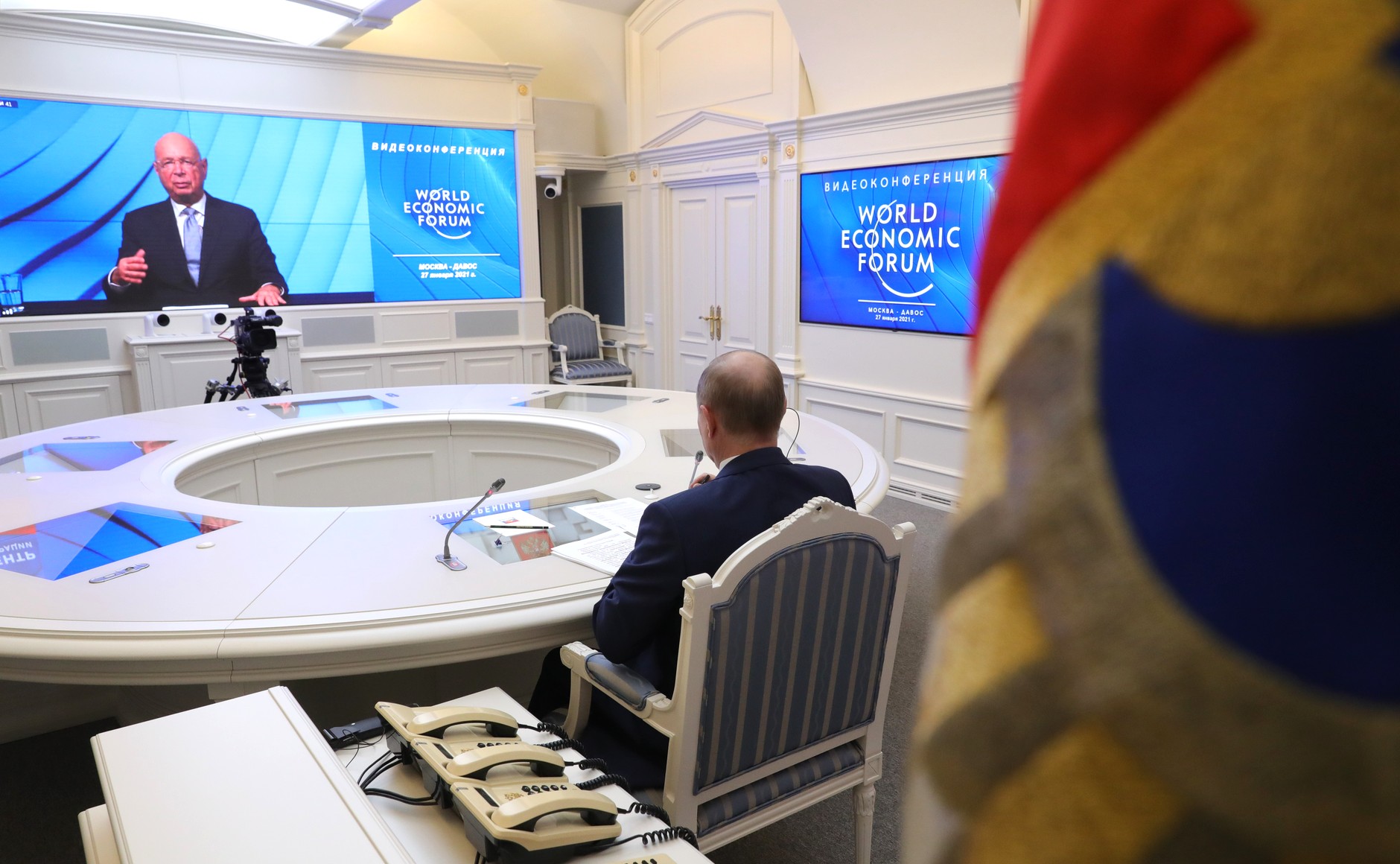 The reality is such that really different development centres with their distinctive models, political systems and public institutions have taken shape in the world. Today, it is very important to create mechanisms for harmonising their interests to prevent the diversity and natural competition of the development poles from triggering anarchy and a series of protracted conflicts. To achieve this we must, in part, consolidate and develop universal institutions that bear special responsibility for ensuring stability and security in the world and for formulating and defining the rules of conduct both in the global economy and trade. I have mentioned more than once that many of these institutions are not going through the best of times. We have been bringing this up at various summits. Of course, these institutions were established in a different era. This is clear. Probably, they even find it difficult to parry modern challenges for objective reasons. However, I would like to emphasise that this is not an excuse to give up on them without offering anything in exchange, all the more so since these structures have unique experience of work and a huge but largely untapped potential. And it certainly needs to be carefully adapted to modern realities. It is too early to dump it in the dustbin of history. It is essential to work with it and to use it. Naturally, in addition to this, it is important to use new, additional formats of cooperation. I am referring to such phenomenon as multiversity. Of course, it is also possible to interpret it differently, in one’s own way. It may be viewed as an attempt to push one’s own interests or feign the legitimacy of one’s own actions when all others can merely nod in approval. Or it may be a concerted effort of sovereign states to resolve specific problems for common benefit. In this case, this may refer to the efforts to settle regional conflicts, establish technological alliances and resolve many other issues, including the formation of cross-border transport and energy corridors and so on and so forth. Friends, Ladies and gentlemen, This opens wide possibilities for collaboration. Multi-faceted approaches do work. We know from practice that they work. As you may be aware, within the framework of, for example, the Astana format, Russia, Iran and Turkey are doing much to stabilise the situation in Syria and are now helping establish a political dialogue in that country, of course, alongside other countries. We are doing this together. And, importantly, not without success. For example, Russia has undertaken energetic mediation efforts to stop the armed conflict in Nagorno-Karabakh, in which peoples and states that are close to us – Azerbaijan and Armenia – are involved. We strived to follow the key agreements reached by the OSCE Minsk Group, in particular between its co-chairs – Russia, the United States and France. This is also a very good example of cooperation. As you may be aware, a trilateral Statement by Russia, Azerbaijan and Armenia was signed in November. Importantly, by and large, it is being steadily implemented. The bloodshed was stopped. This is the most important thing. We managed to stop the bloodshed, achieve a complete ceasefire and start the stabilisation process. Now the international community and, undoubtedly, the countries involved in crisis resolution are faced with the task of helping the affected areas overcome humanitarian challenges related to returning refugees, rebuilding destroyed infrastructure, protecting and restoring historical, religious and cultural landmarks. Or, another example. I will note the role of Russia, Saudi Arabia, the United States and a number of other countries in stabilising the global energy market. This format has become a productive example of interaction between the states with different, sometimes even diametrically opposite assessments of global processes, and with their own outlooks on the world. At the same time there are certainly problems that concern every state without exception. One example is cooperation in studying and countering the coronavirus infection. As you know, several strains of this dangerous virus have emerged. The international community must create conditions for cooperation between scientists and other specialists to understand how and why coronavirus mutations occur, as well as the difference between the various strains. Of course, we need to coordinate the efforts of the entire world, as the UN Secretary-General suggests and as we urged recently at the G20 summit. It is essential to join and coordinate the efforts of the world in countering the spread of the virus and making the much needed vaccines more accessible. We need to help the countries that need support, including the African nations. I am referring to expanding the scale of testing and vaccinations. We see that mass vaccination is accessible today, primarily to people in the developed countries. Meanwhile, millions of people in the world are deprived even of the hope for this protection. In practice, such inequality could create a common threat because this is well known and has been said many times that it will drag out the epidemic and uncontrolled hotbeds will continue. The epidemic has no borders. There are no borders for infections or pandemics. Therefore, we must learn the lessons from the current situation and suggest measures aimed at improving the monitoring of the emergence of such diseases and the development of such cases in the world. Another important area that requires coordination, in fact, the coordination of the efforts of the entire international community, is to preserve the climate and nature of our planet. I will not say anything new in this respect. Only together can we achieve progress in resolving such critical problems as global warming, the reduction of forestlands, the loss of biodiversity, the increase in waste, the pollution of the ocean with plastic and so on, and find an optimal balance between economic development and the preservation of the environment for the current and future generations. My friends, We all know that competition and rivalry between countries in world history never stopped, do not stop and will never stop. Differences and a clash of interests are also natural for such a complicated body as human civilisation. However, in critical times this did not prevent it from pooling its efforts – on the contrary, it united in the most important destinies of humankind. I believe this is the period we are going through today. It is very important to honestly assess the situation, to concentrate on real rather than artificial global problems, on removing the imbalances that are critical for the entire international community. I am sure that in this way we will be able to achieve success and befittingly parry the challenges of the third decade of the 21st century. I would like to finish my speech at this point and thank all of you for your patience and attention. Thank you very much. 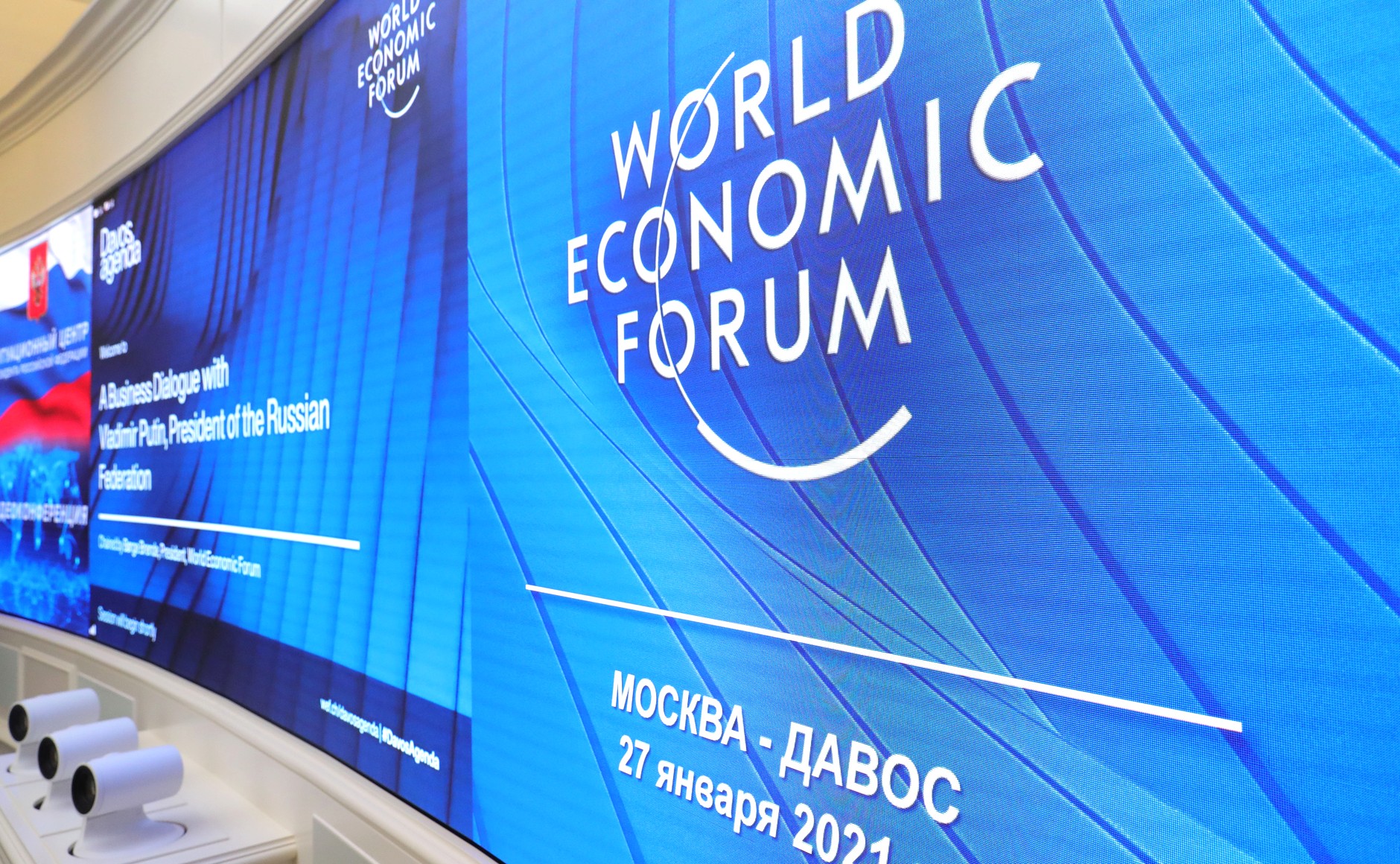 Klaus Schwab: Thank you very much, Mr President. Many of the issues raised, certainly, are part of our discussions here during the Davos Week. We complement the speeches also by task forces which address some of the issues you mentioned, like not leaving the developing world behind, taking care of, let’s say, creating the skills for tomorrow, and so on. Mr President, we prepare for the discussion afterwards, but I have one very short question. It is a question which we discussed when I visited you in St Petersburg 14 months ago. How do you see the future of European-Russian relations? Just a short answer. Vladimir Putin: You know there are things of an absolutely fundamental nature such as our common culture. Major European political figures have talked in the recent past about the need to expand relations between Europe and Russia, saying that Russia is part of Europe. Geographically and, most importantly, culturally, we are one civilisation. French leaders have spoken of the need to create a single space from Lisbon to the Urals. I believe, and I mentioned this, why the Urals? To Vladivostok. I personally heard the outstanding European politician, former Chancellor Helmut Kohl, say that if we want European culture to survive and remain a centre of world civilisation in the future, keeping in mind the challenges and trends underlying the world civilisation, then of course, Western Europe and Russia must be together. It is hard to disagree with that. We hold exactly the same point of view. Clearly, today’s situation is not normal. We need to return to a positive agenda. This is in the interests of Russia and, I am confident, the European countries. Clearly, the pandemic has also played a negative role. Our trade with the European Union is down, although the EU is one of our key trade and economic partners. Our agenda includes returning to positive trends and building up trade and economic cooperation. Europe and Russia are absolutely natural partners from the point of view of the economy, research, technology and spatial development for European culture, since Russia, being a country of European culture, is a little larger than the entire EU in terms of territory. Russia’s resources and human potential are enormous. I will not go over everything that is positive in Europe, which can also benefit the Russian Federation. Only one thing matters: we need to approach the dialogue with each other honestly. We need to discard the phobias of the past, stop using the problems that we inherited from past centuries in internal political processes and look to the future. If we can rise above these problems of the past and get rid of these phobias, then we will certainly enjoy a positive stage in our relations. We are ready for this, we want this, and we will strive to make this happen. But love is impossible if it is declared only by one side. It must be mutual. Klaus Schwab: Thank you very much, Mr President. The source of information - http://en.kremlin.ru/events/president/news/64938 Laying flowers at the Hero City Leningrad memorial plate On the day of complete lifting of the siege of Leningrad, the President laid flowers at the Hero City Leningrad memorial plate in the Alexander Garden. January 27, 2021 - 17:45 - Moscow 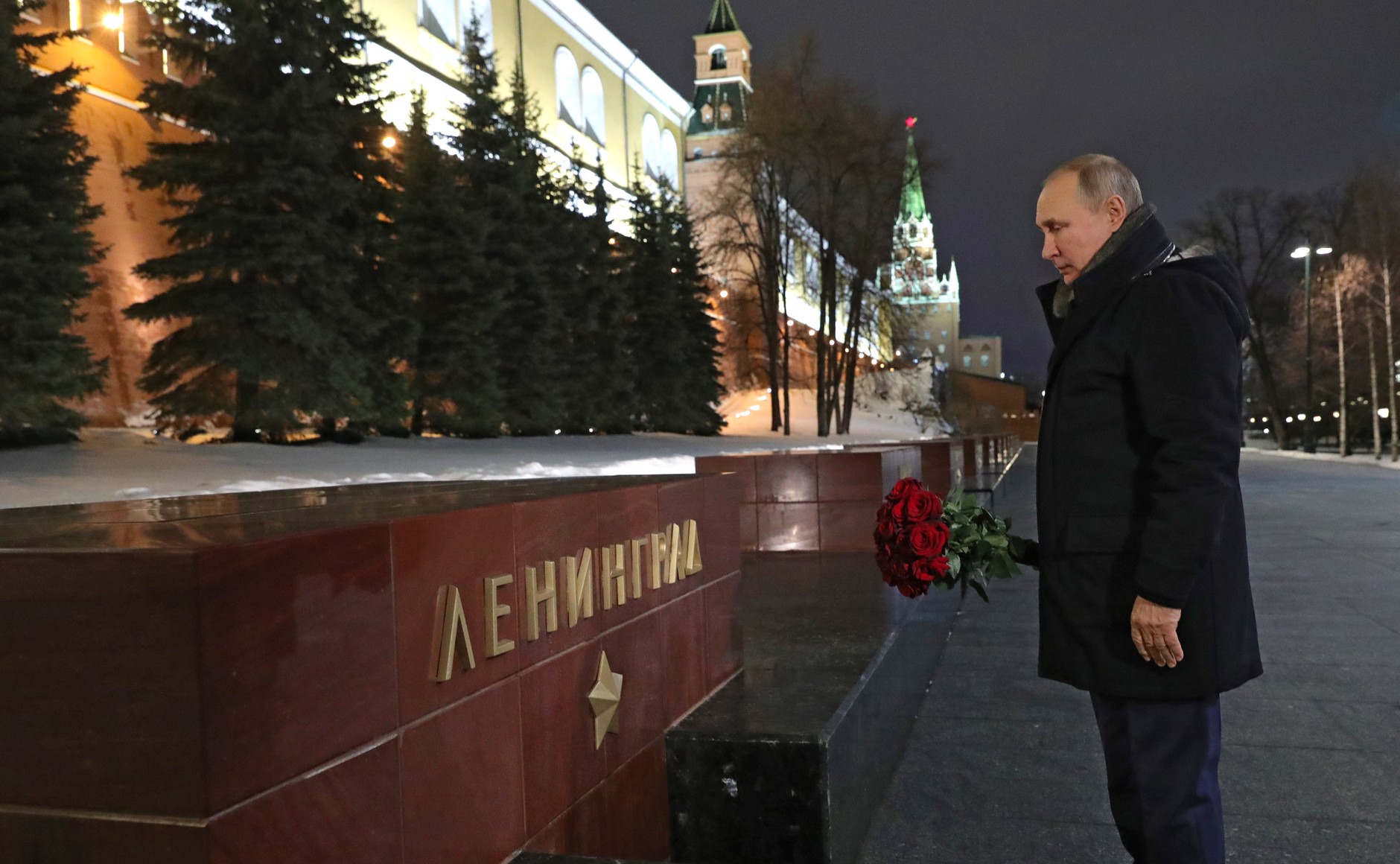  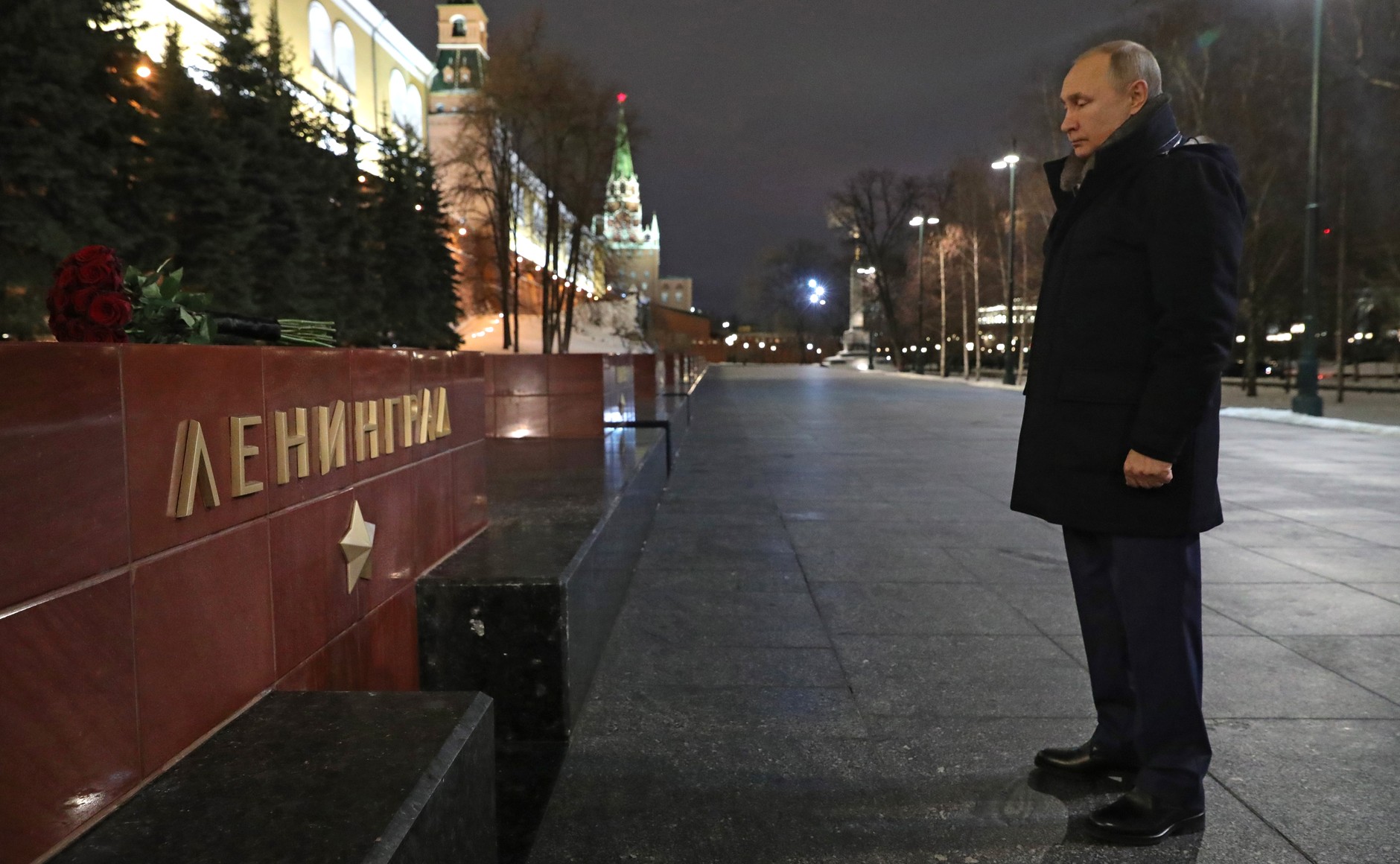 The source of information - http://en.kremlin.ru/events/president/news/64940/photos Greetings to participants and guests of the Keeper of Memory commemorative evening Vladimir Putin sent greetings to the participants and guests of the Keeper of Memory commemorative evening. January 27, 2021 - 19:00 The message reads, in part: “The annual commemorative events in memory of Holocaust victims, one of the most tragic and terrible pages in world history, are of great moral significance for Russian society. They are also important for establishing the truth about the events of World War II and about the horrible, barbaric, ruthless and fanatical force the Nazis and their henchmen were, that it was the Soviet soldier who crushed them and that Red Army soldiers and commanders rightfully stand on the pedestal of great liberators who saved the Jewish and other European peoples from extermination. We will never allow the suffering, torment and endurance of millions of innocent people who were tortured in ghettos and concentration camps, who died of hunger and cold in a besieged Leningrad, who died from death squads in firing ditches and in villages burned to the ground, to be lost to history. We grieve for all victims of these monstrous crimes and know well that such inconceivable, inhuman atrocities have no time limit in our memory. Therefore, our common duty is to resist any attempts to justify or whitewash these executioners and to obscure the facts of mass destruction of people sentenced to death only for their nationality. In standing up for the truth, we are not only protecting the past but we are also promoting a peaceful future. I thank the organisers of this commemorative evening and everyone who considers it a matter of honour to restore the historical truth, the feats, the dignity and the good name of true heroes.” The source of information - http://en.kremlin.ru/events/president/news/64942 Visit to Victory Museum Vladimir Putin visited the Victory Museum on Poklonnaya Gora and took part in launching an online version of the Heroic Feat of the People: Leningrad Unconquered project dedicated to the 77th anniversary of the lifting of the siege of Leningrad. January 27, 2021 - 19:30 - Moscow 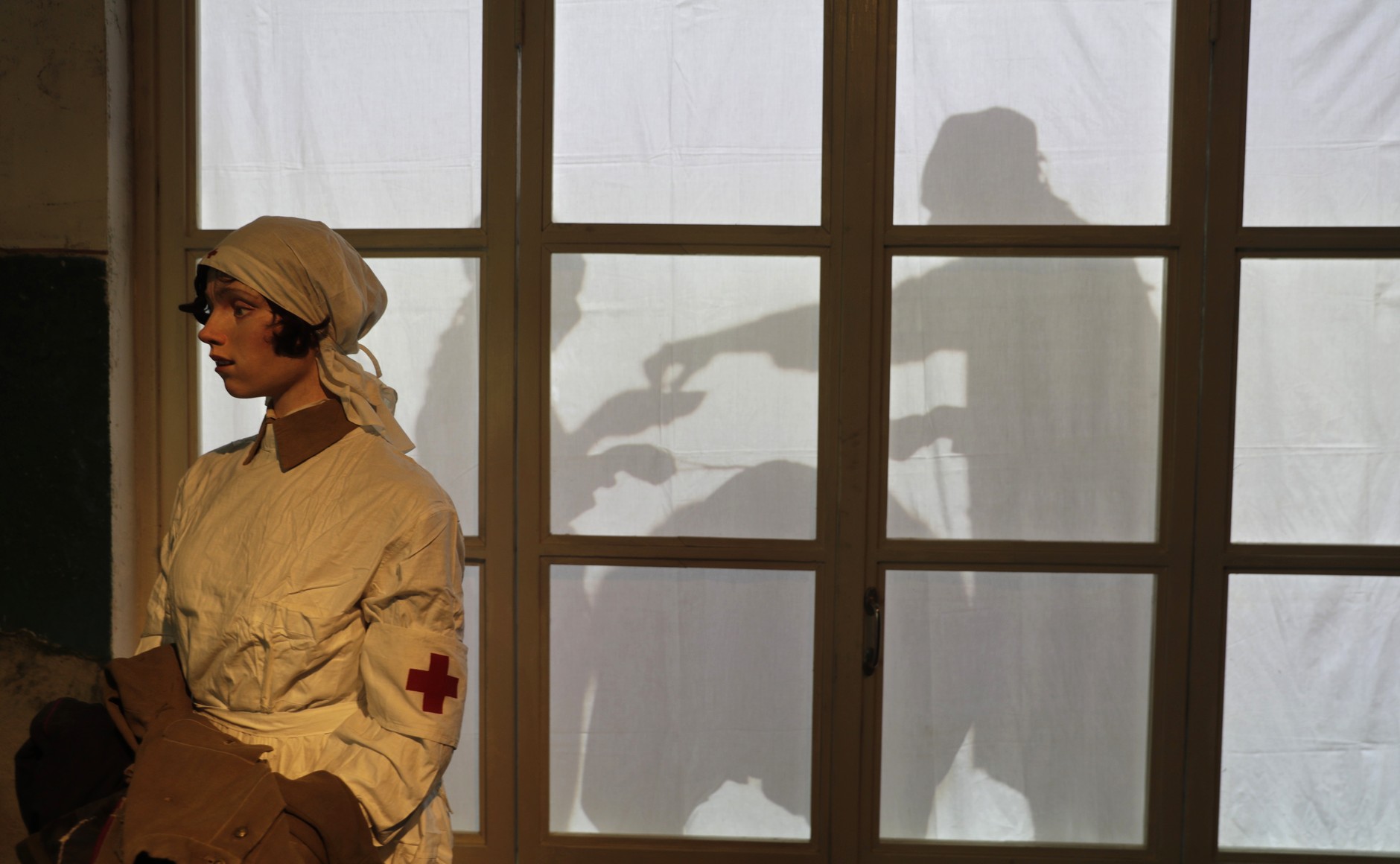 The President toured the hall of the Victory in Faces nationwide historical depository, a unique exposition created to commemorate the generation of Soviet people who contributed to the Great Victory. Anyone can contribute to it by submitting portraits of their ancestors. It is one of the key projects of the Year of Memory and Glory. Museum Director Alexander Shkolnik provided explanations to the President. 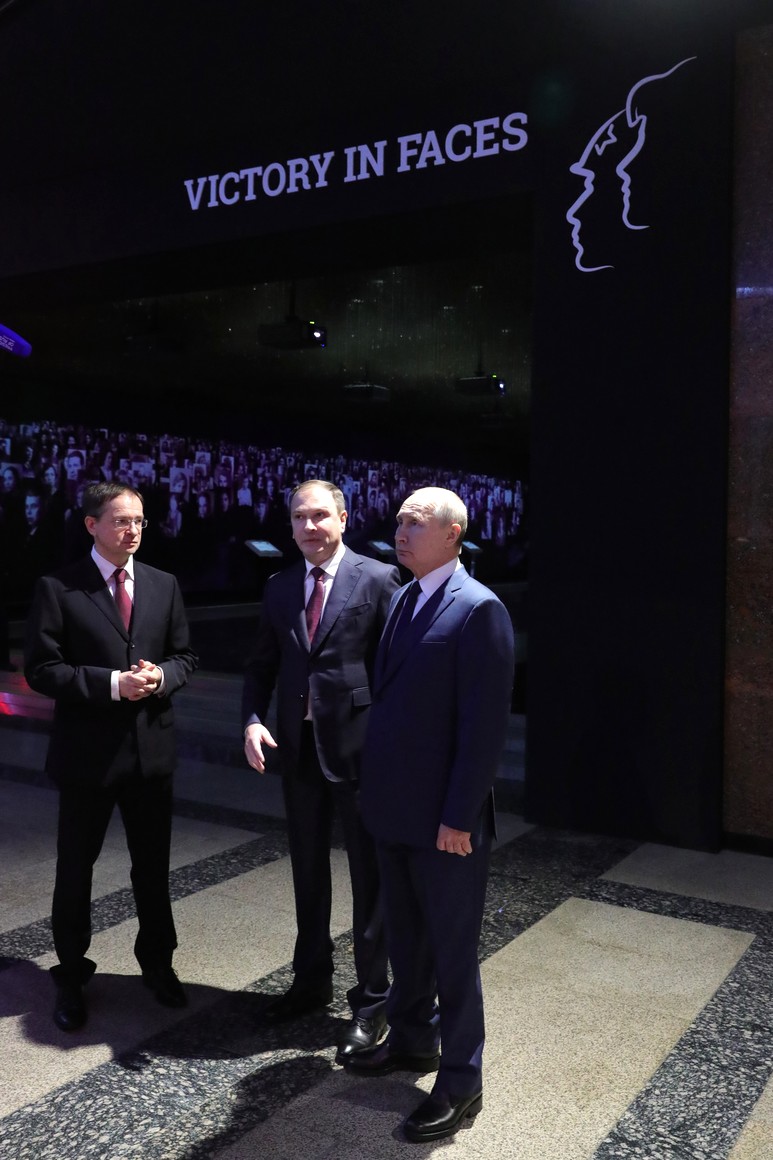   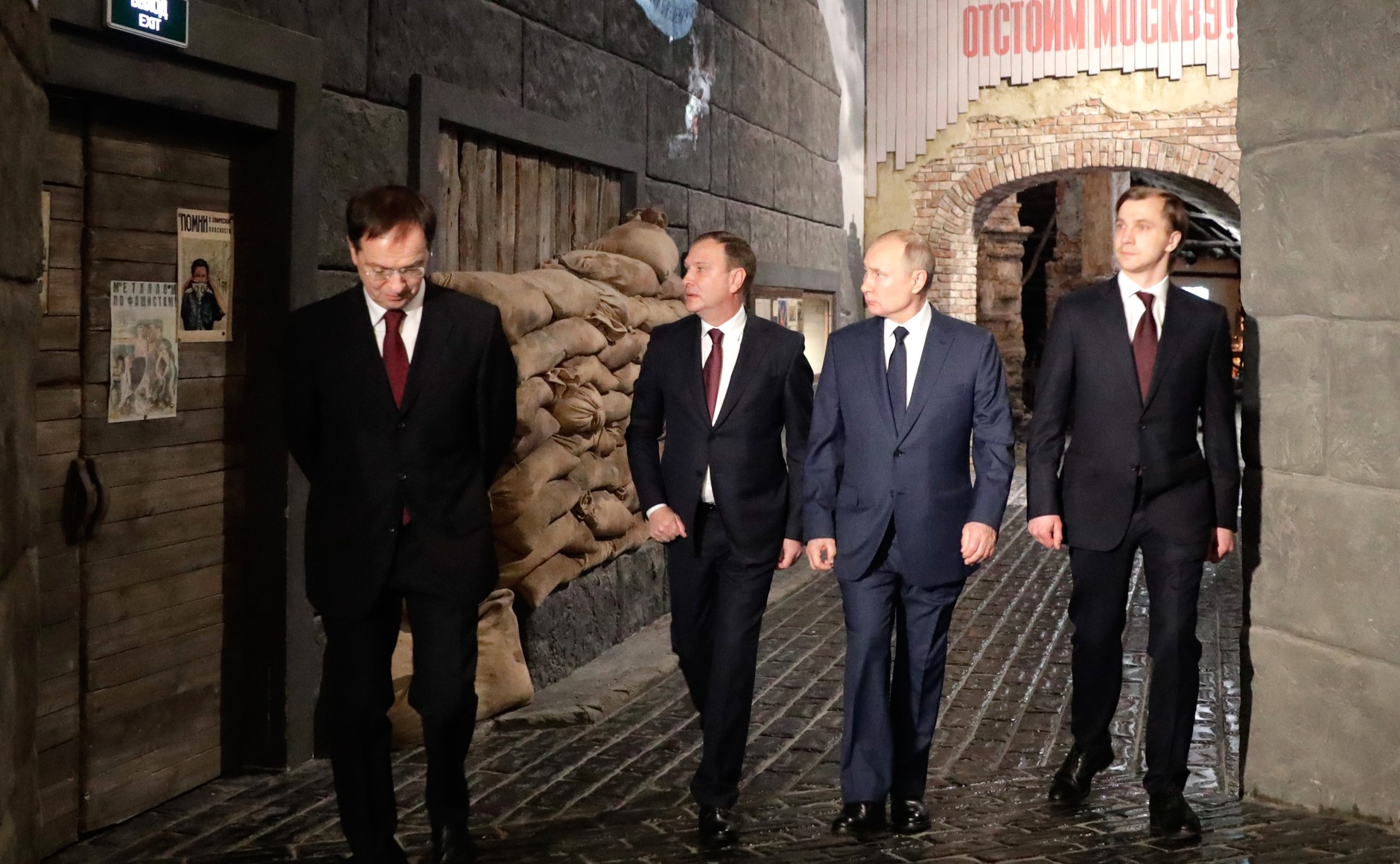 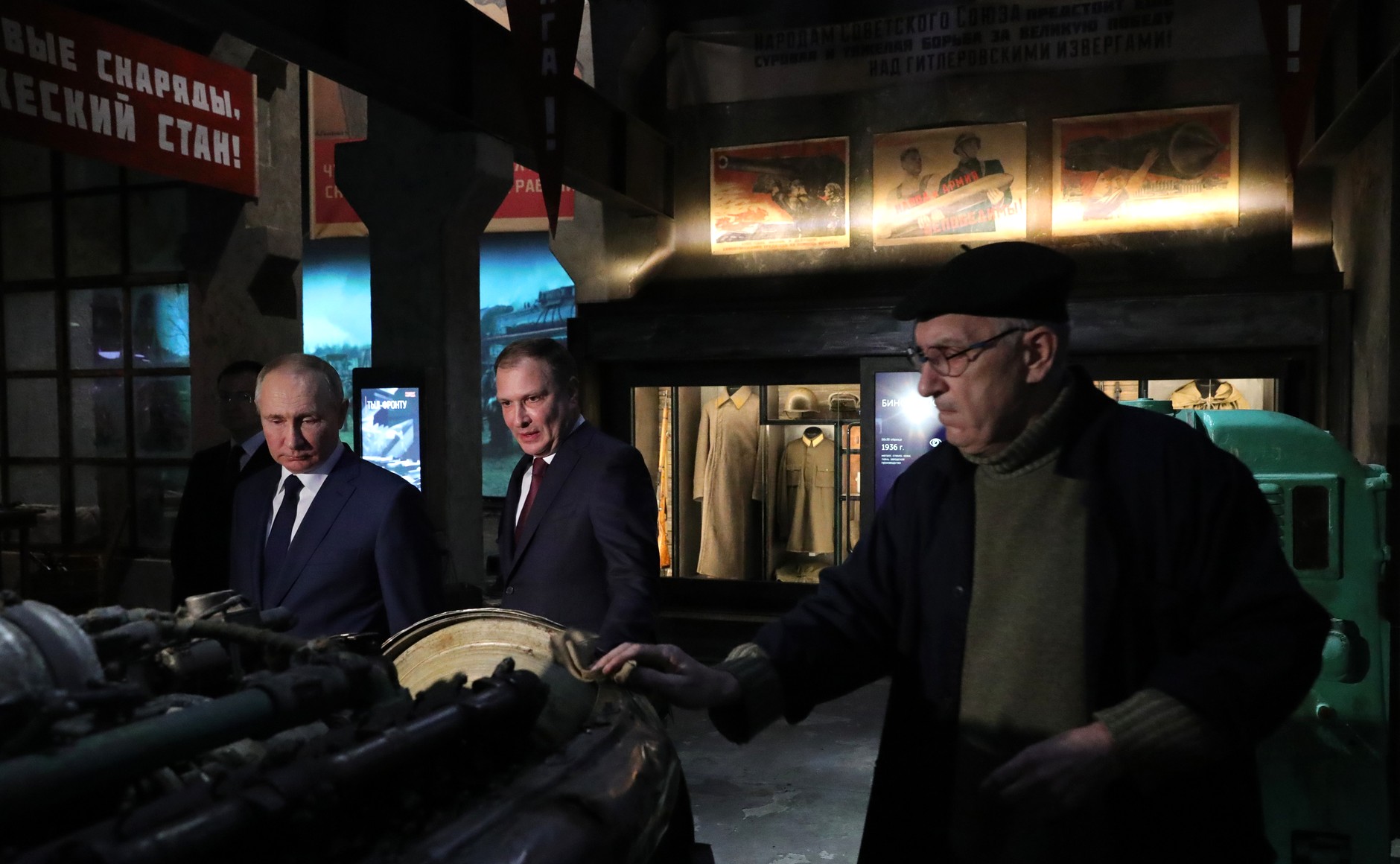 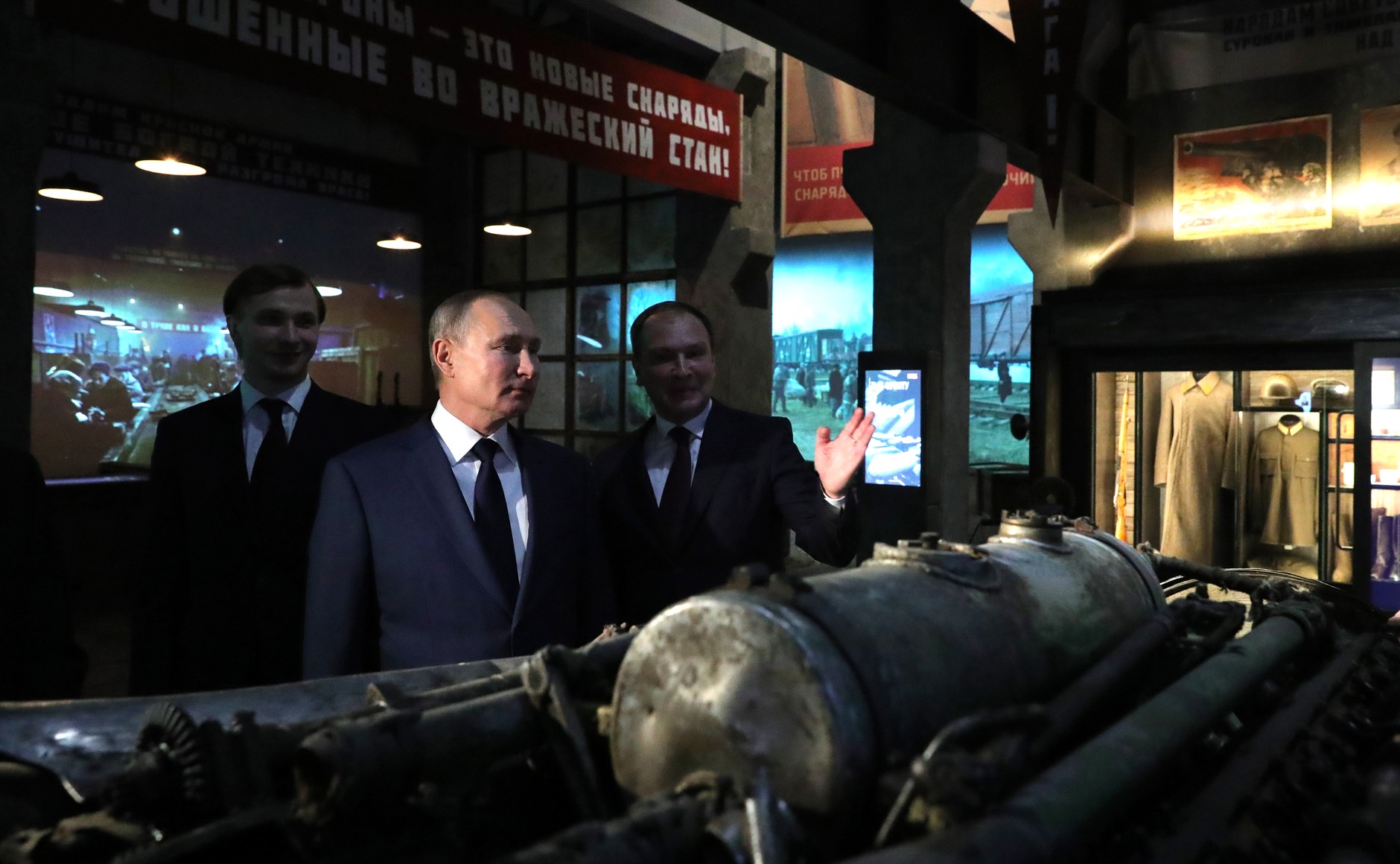 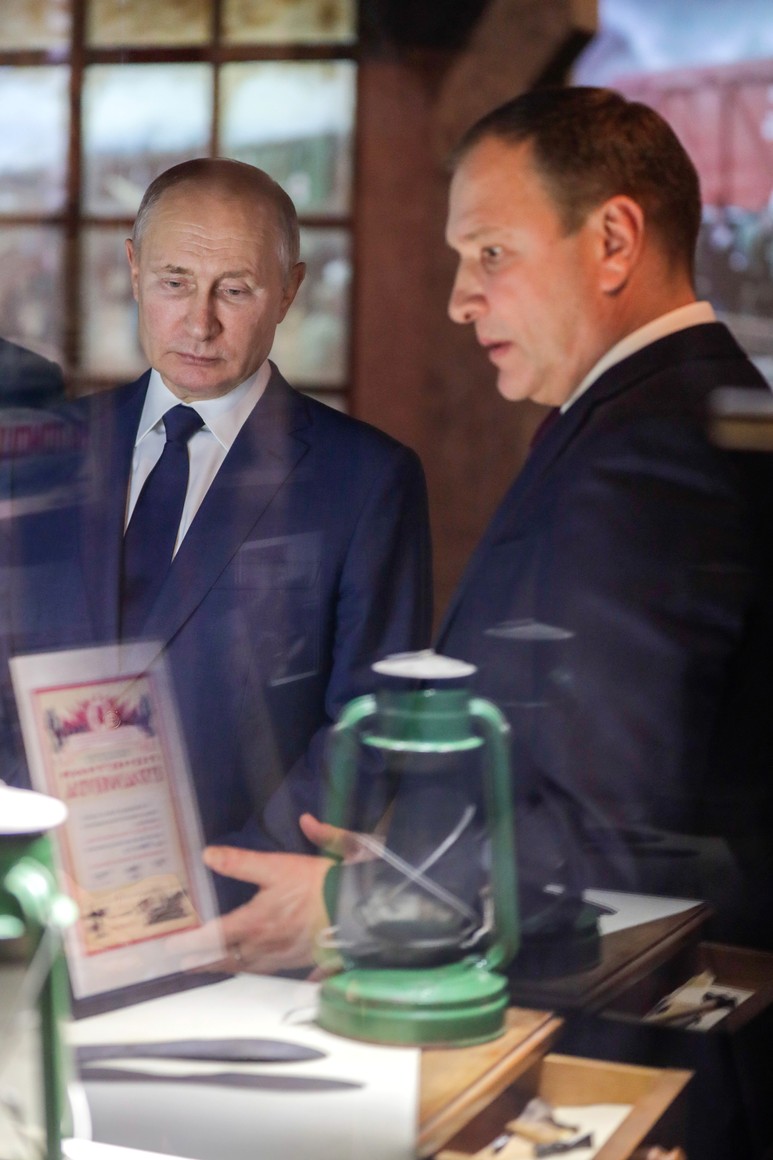 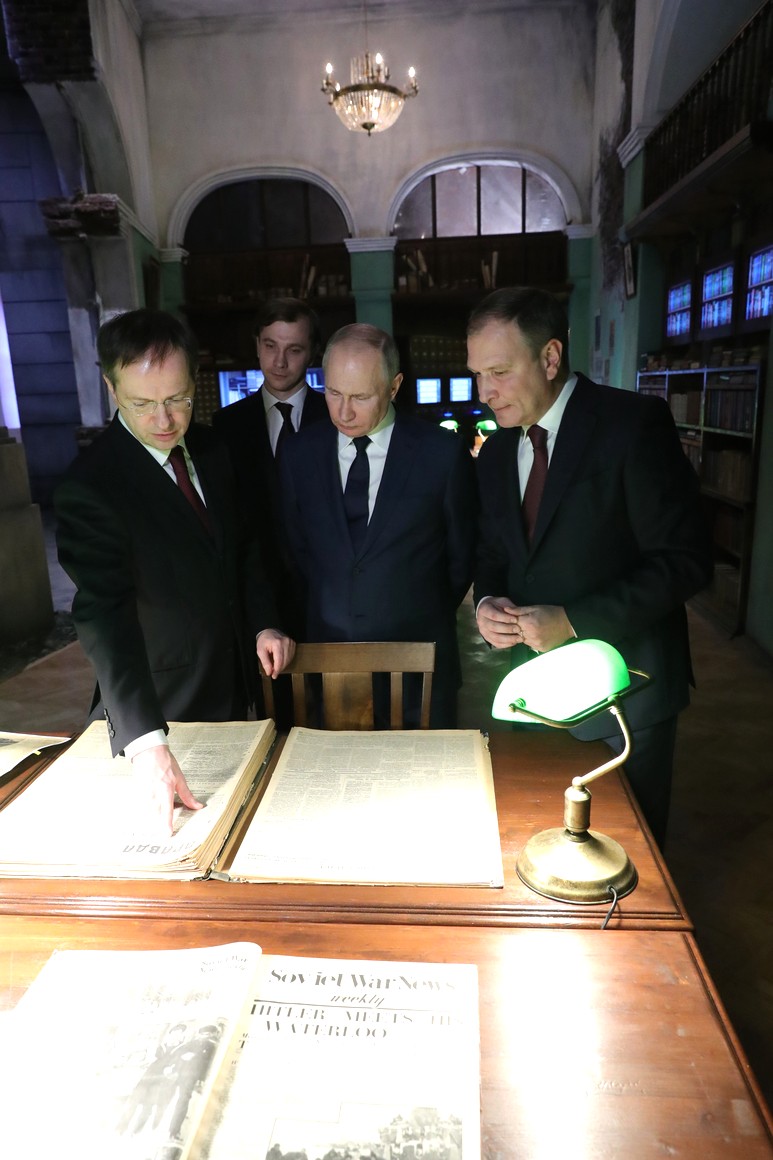 Vladimir Putin also had a look at a major exposition, Feat of the People, covering a space of more than 3,000 square metres and comprising nearly 7,000 exhibits, 22 re-enactment films and several unique 3D panorama views recreating wartime events. An immersive online version of the Feat of the People: Leningrad Unconquered project dedicated to life in Leningrad during the siege has been created for the 77th anniversary of the complete liberation of the city. Vladimir Putin took part in the launch of the project’s online version, which is available on the museum’s website. Dmitry Poshtarenko, the author of historical 3D and 2D panorama views, told the President about the creation of the exposition.  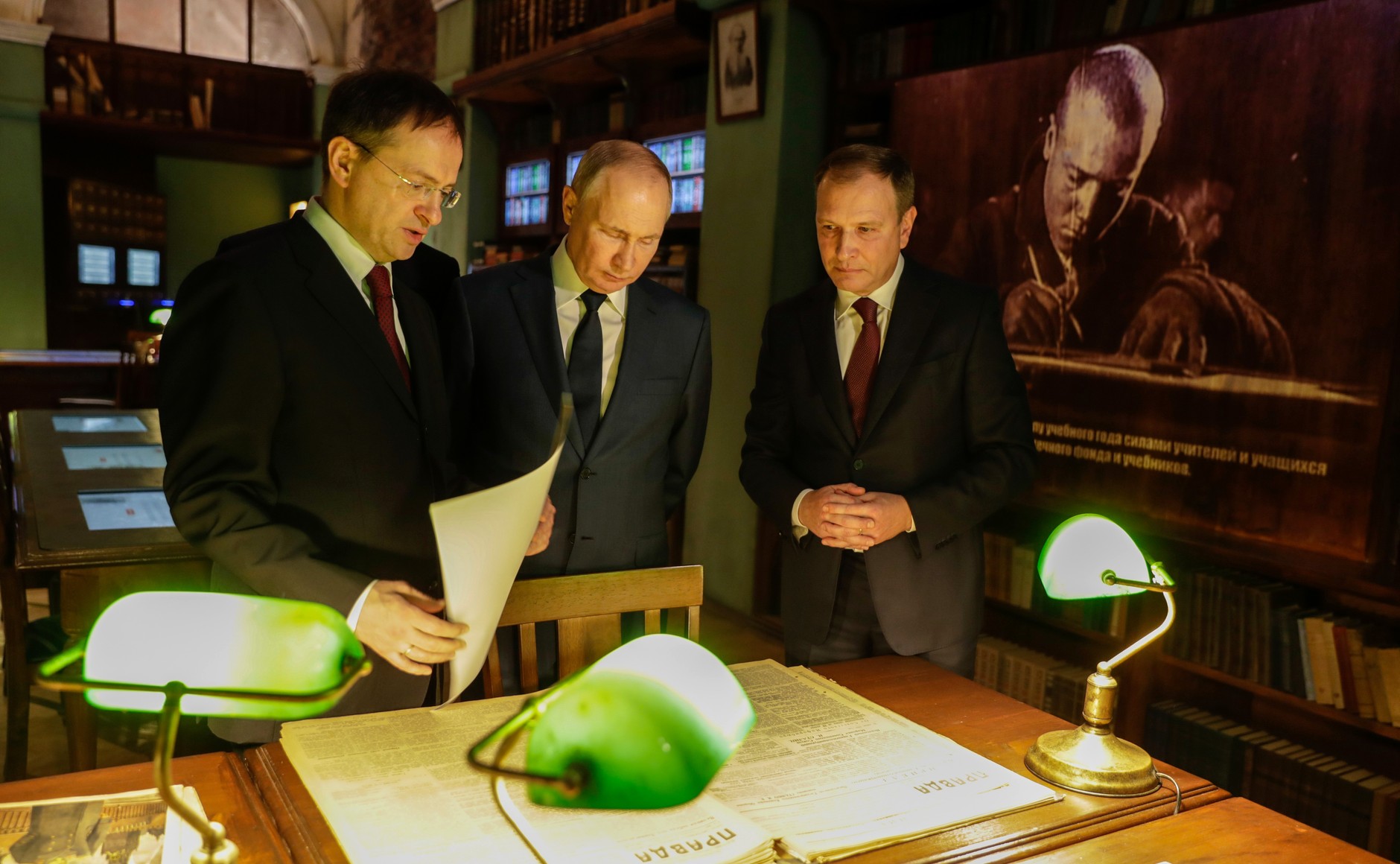 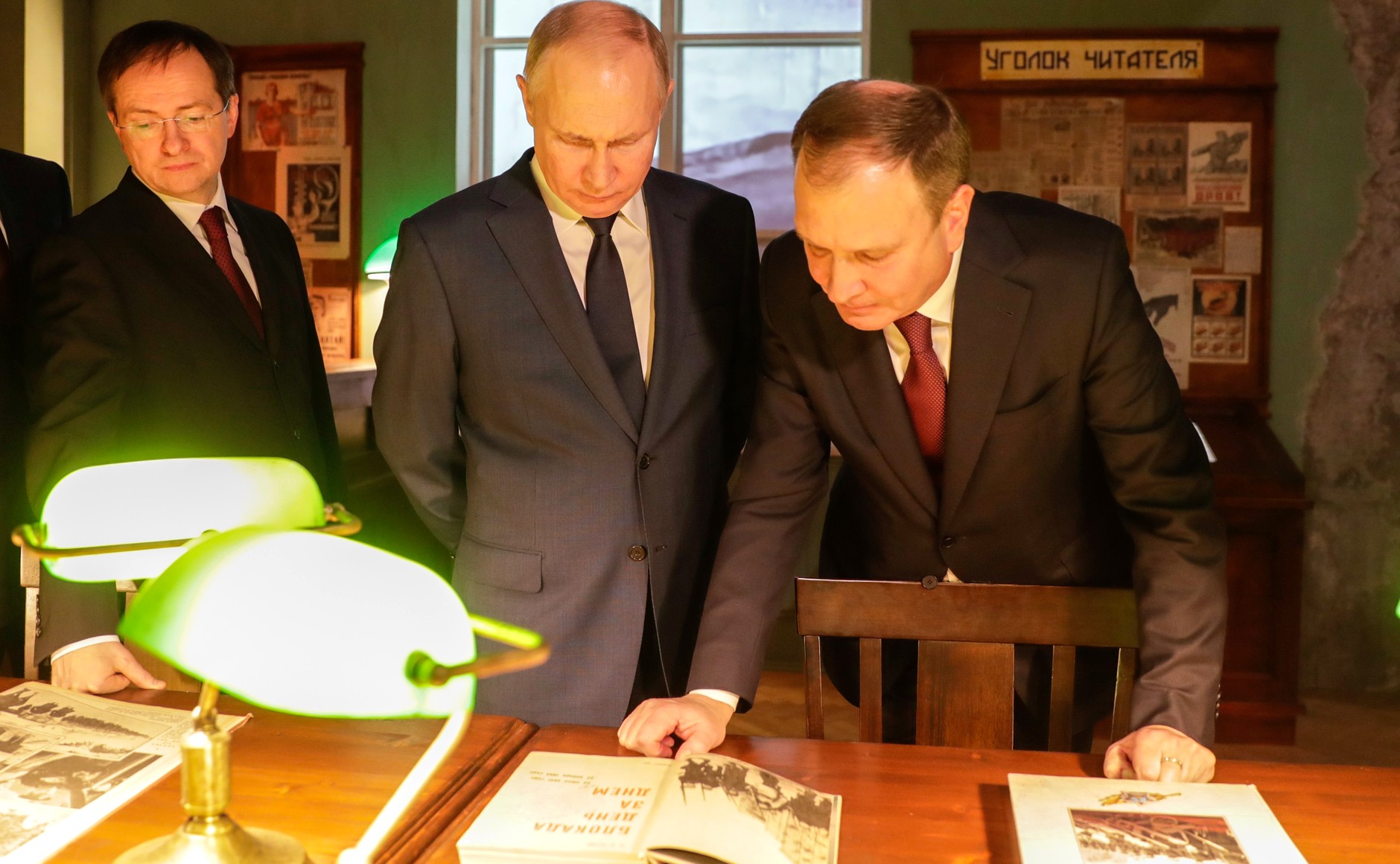 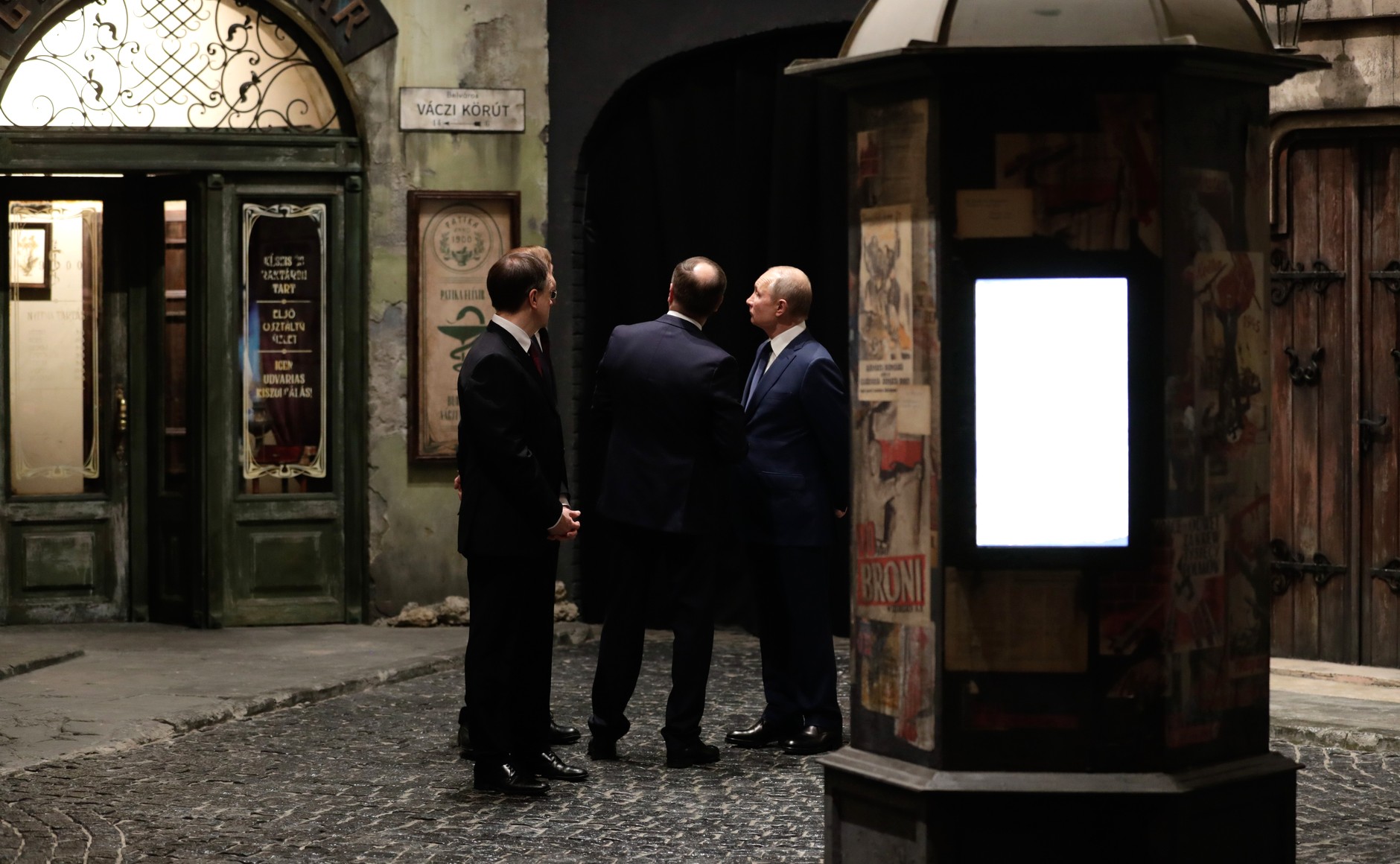 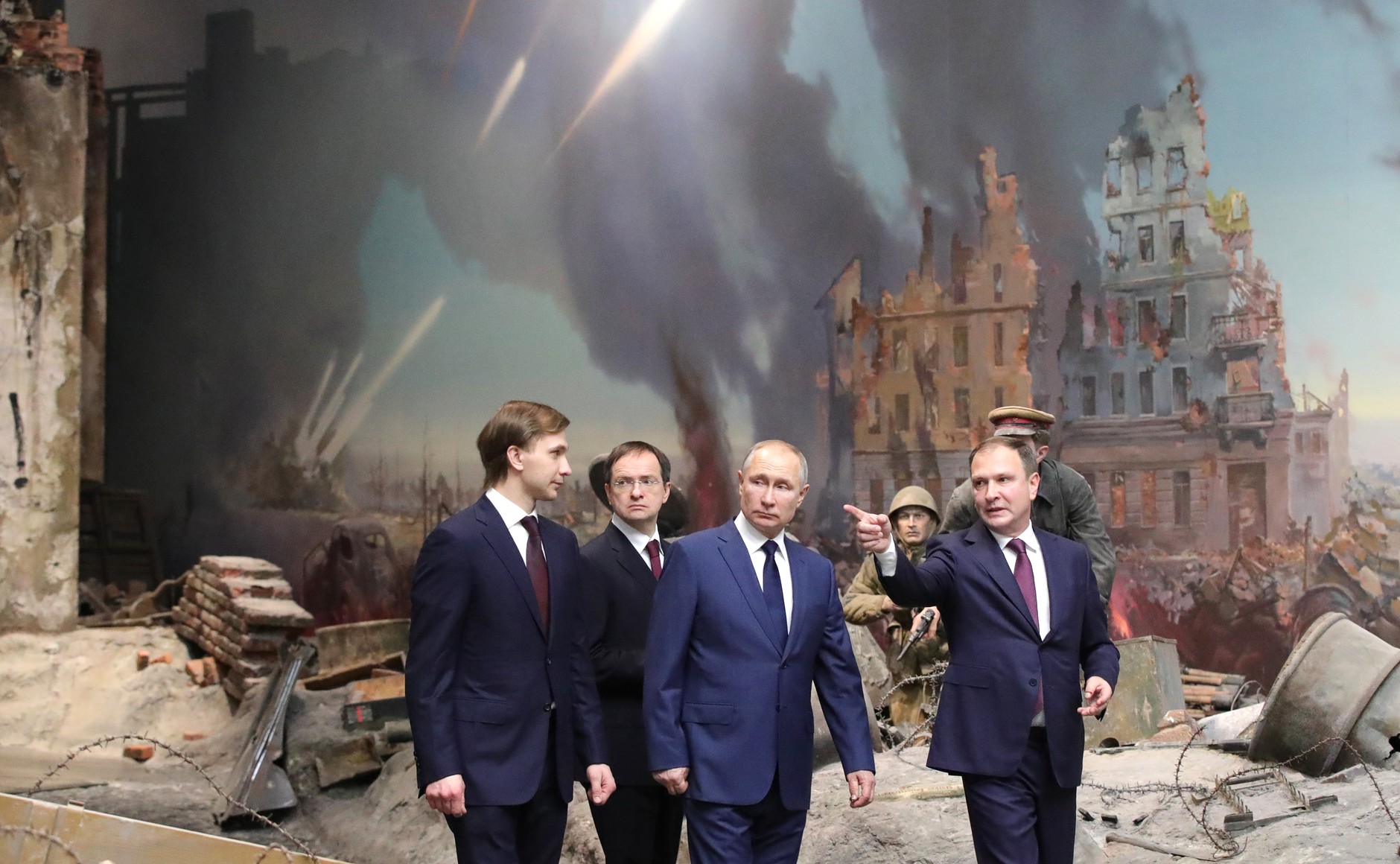  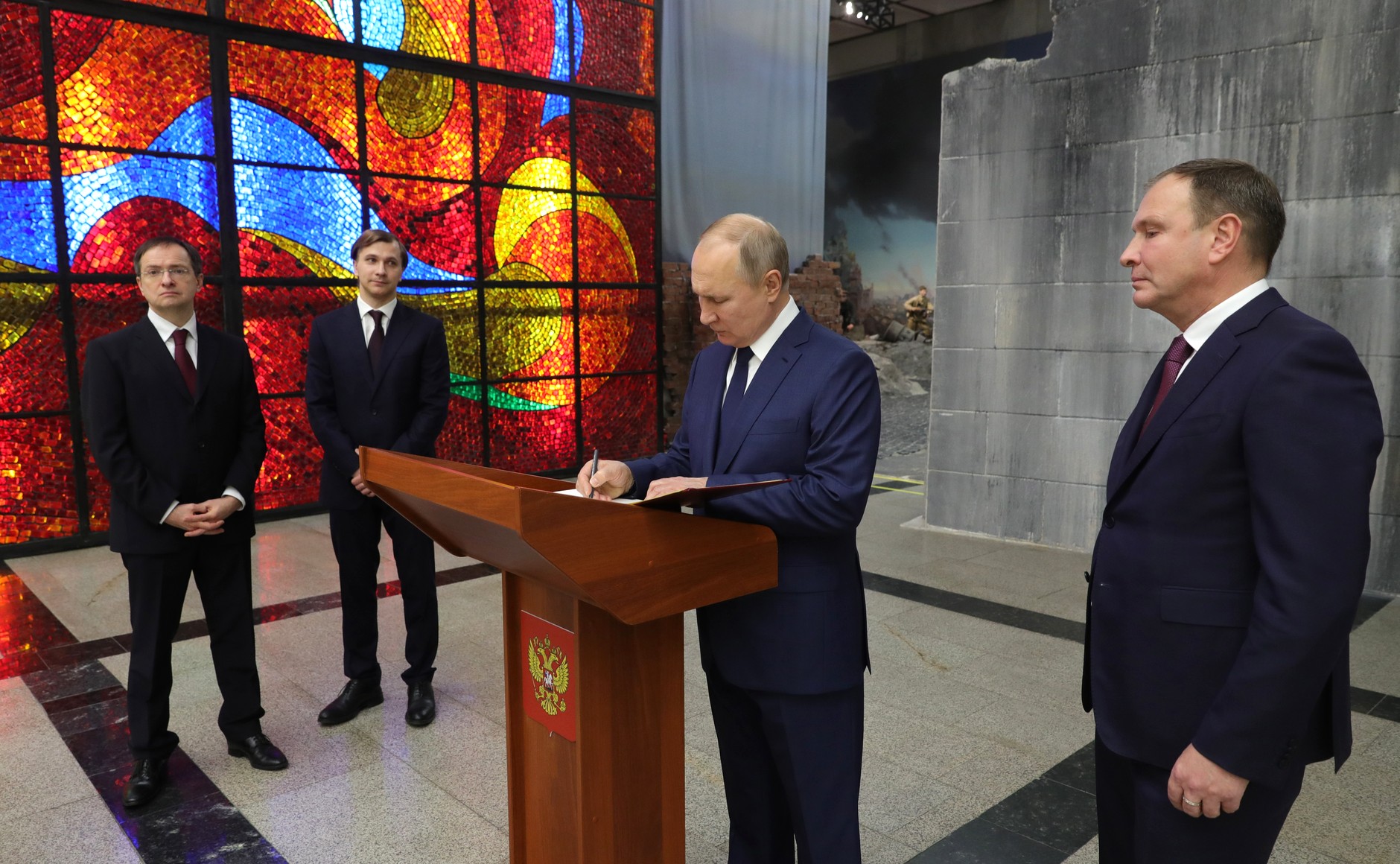 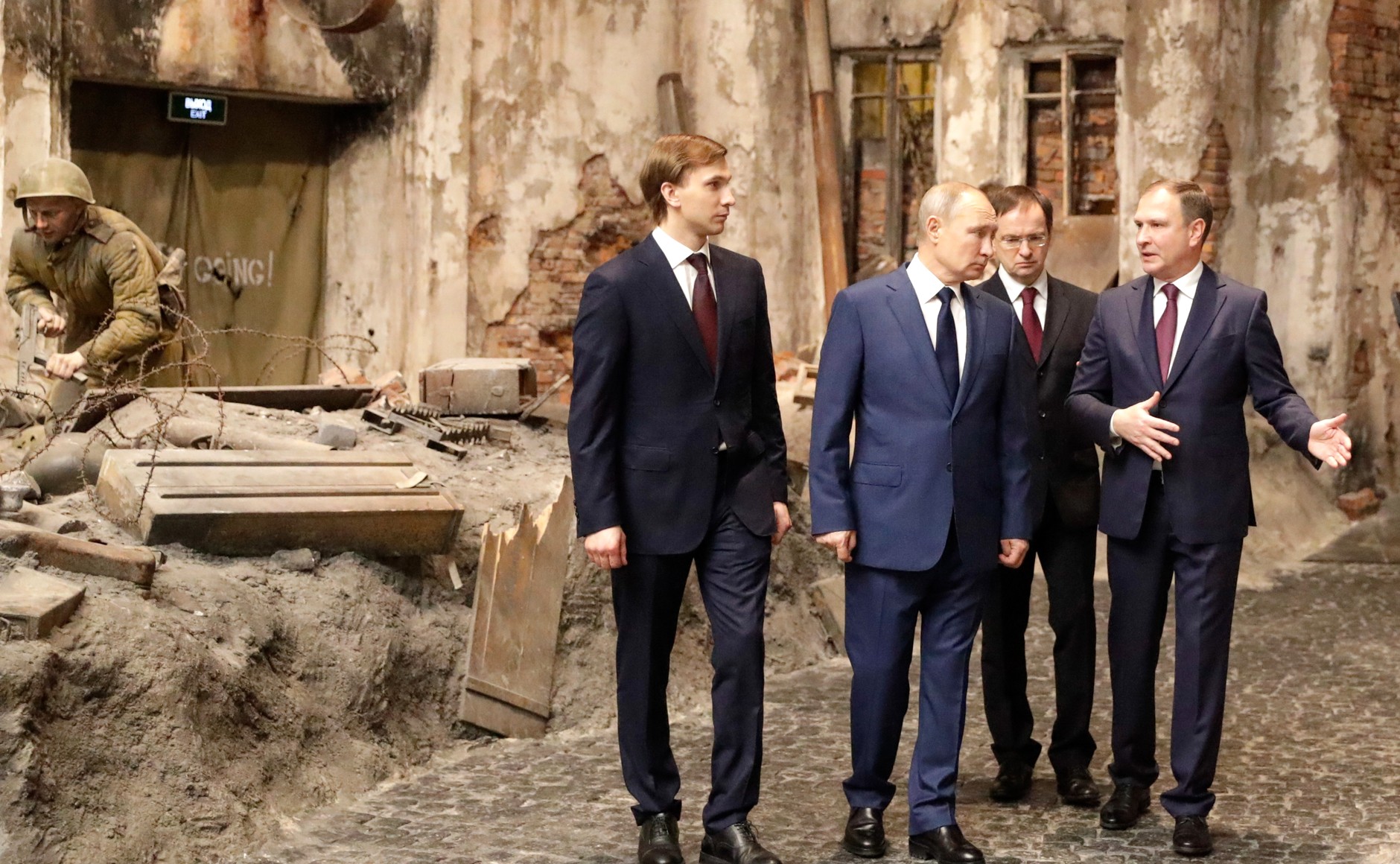 During the tour of the Victory Museum, Vladimir Putin watched segments from feature films about the war in the museum’s screening room: Podolsk Cadets, V2. Escape from Hell, Pilot, and Zoya. 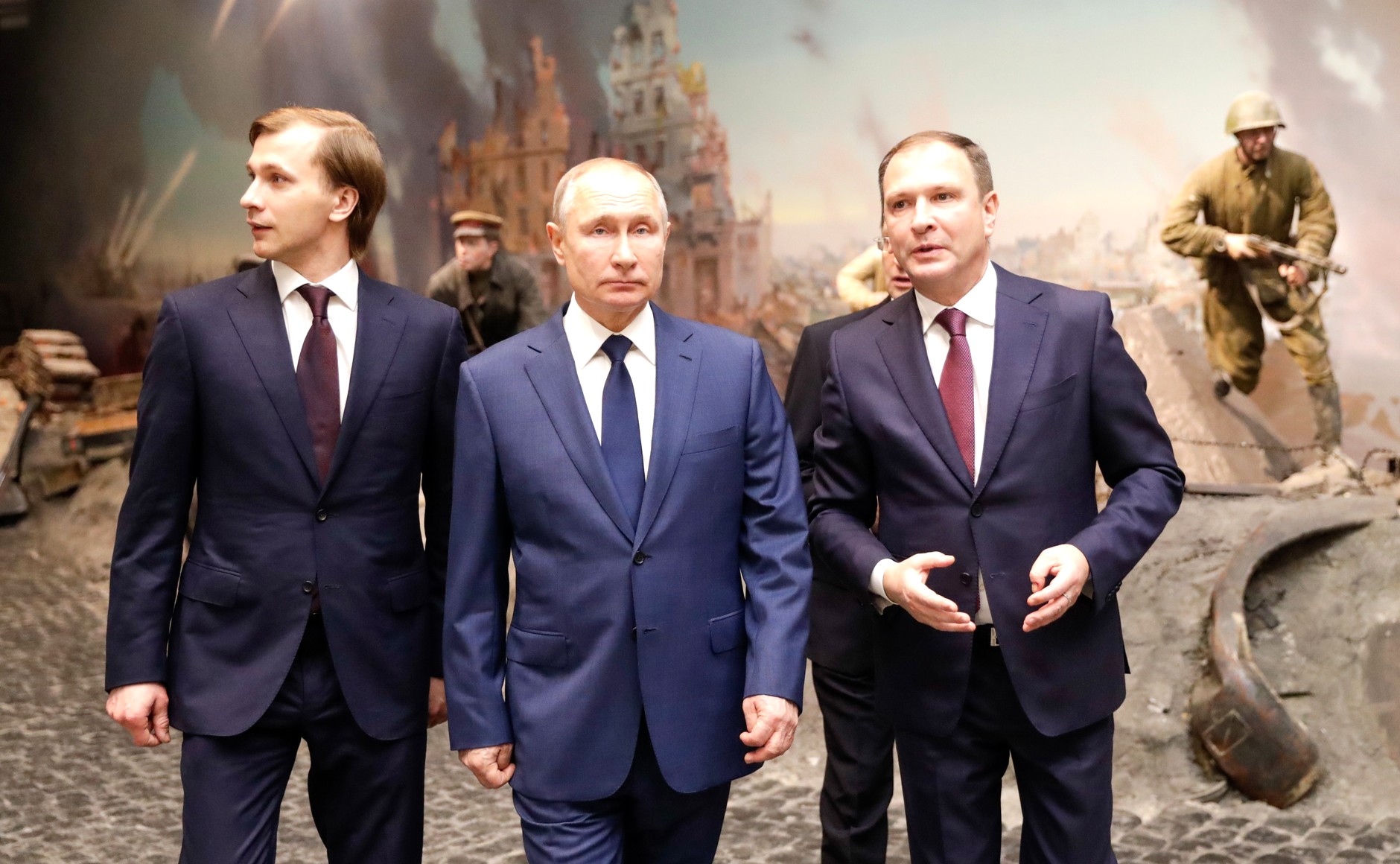 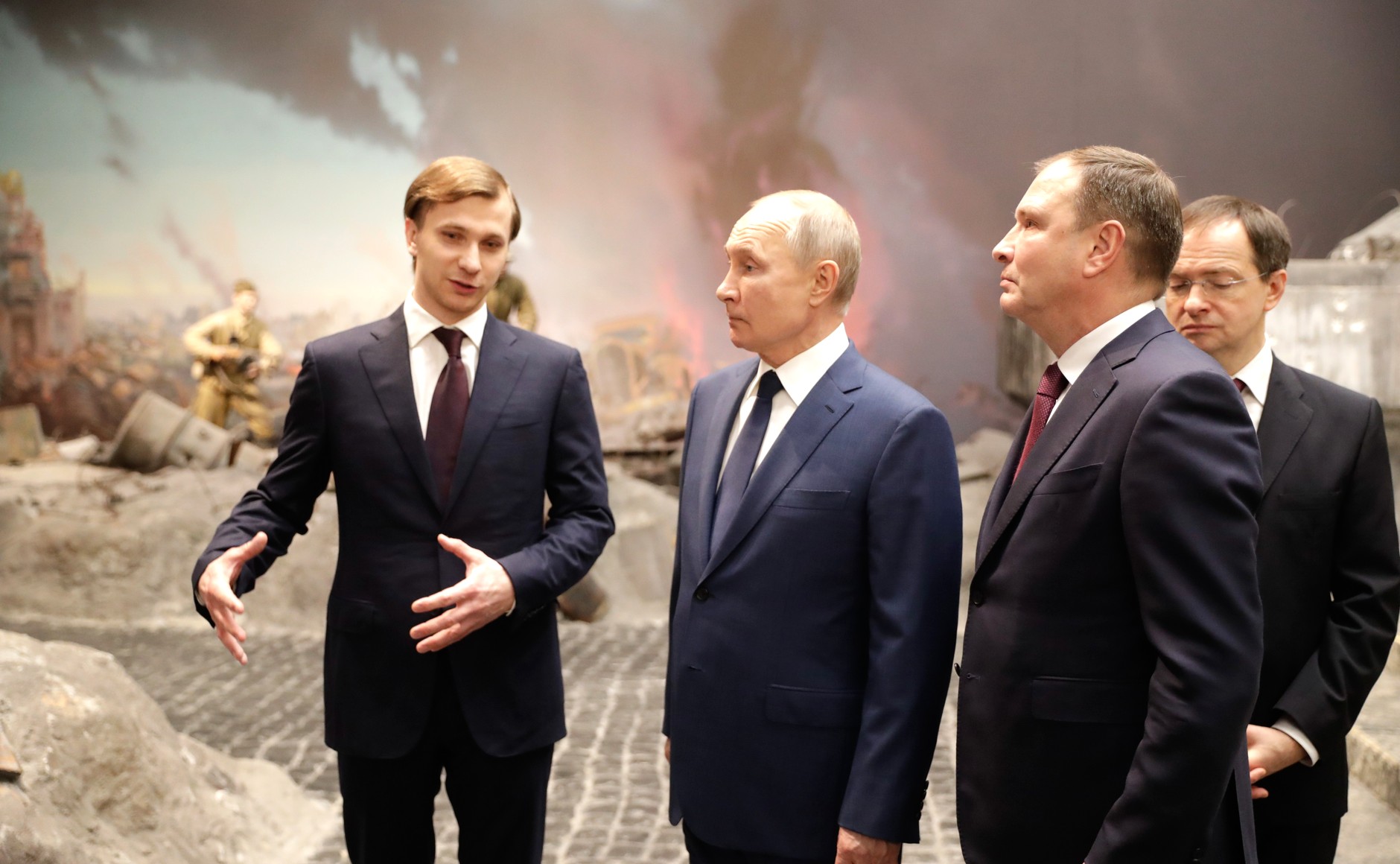 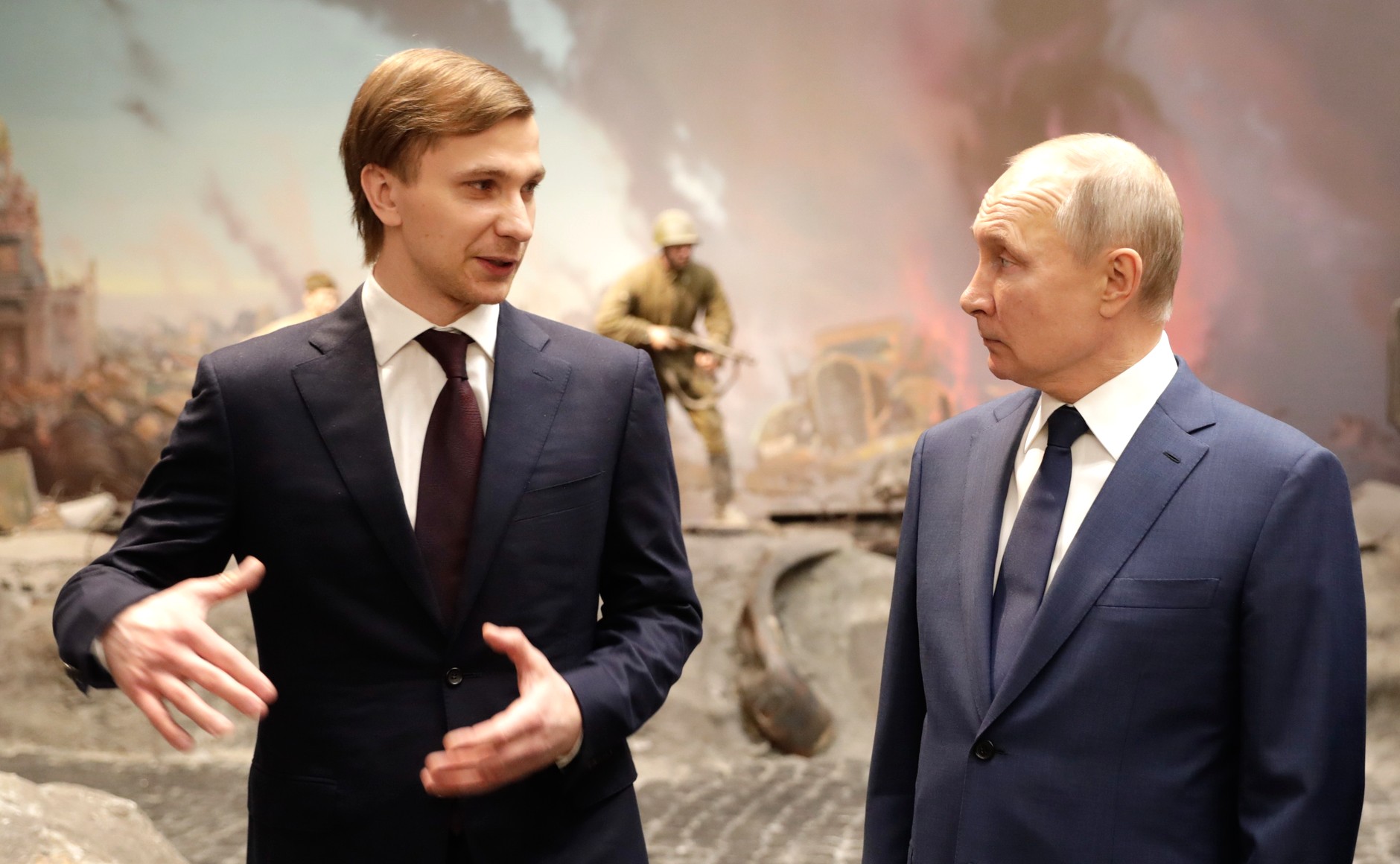 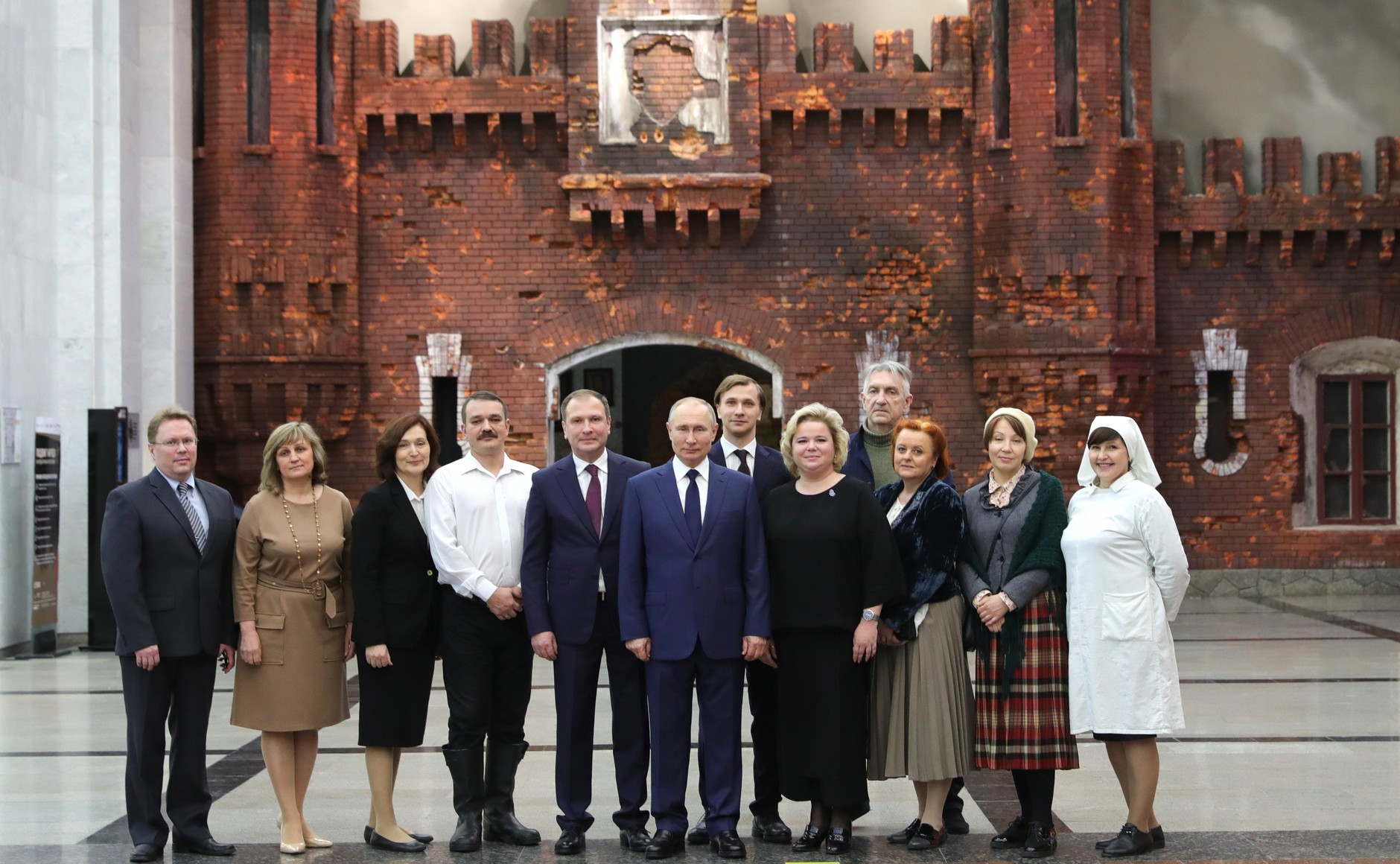 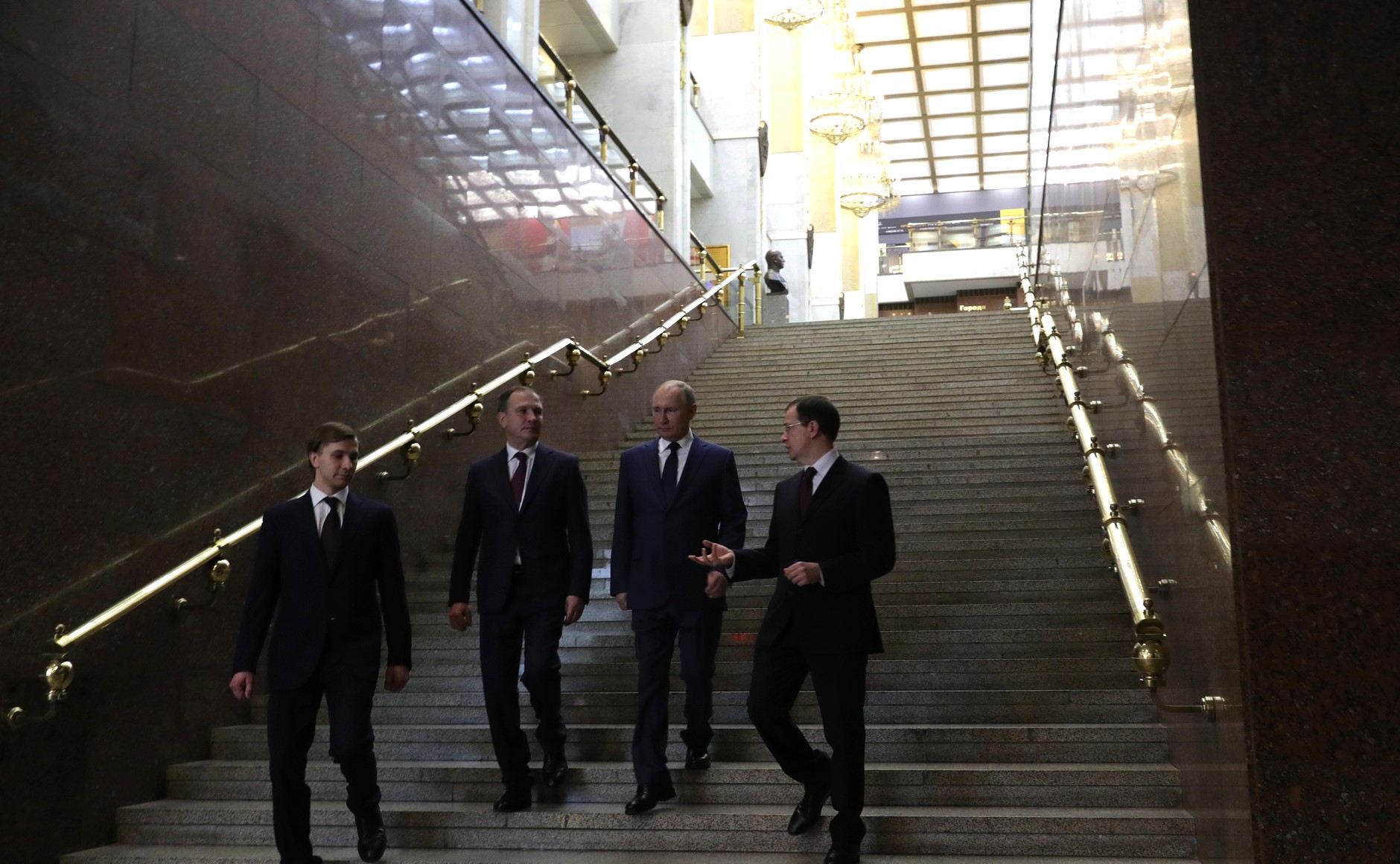 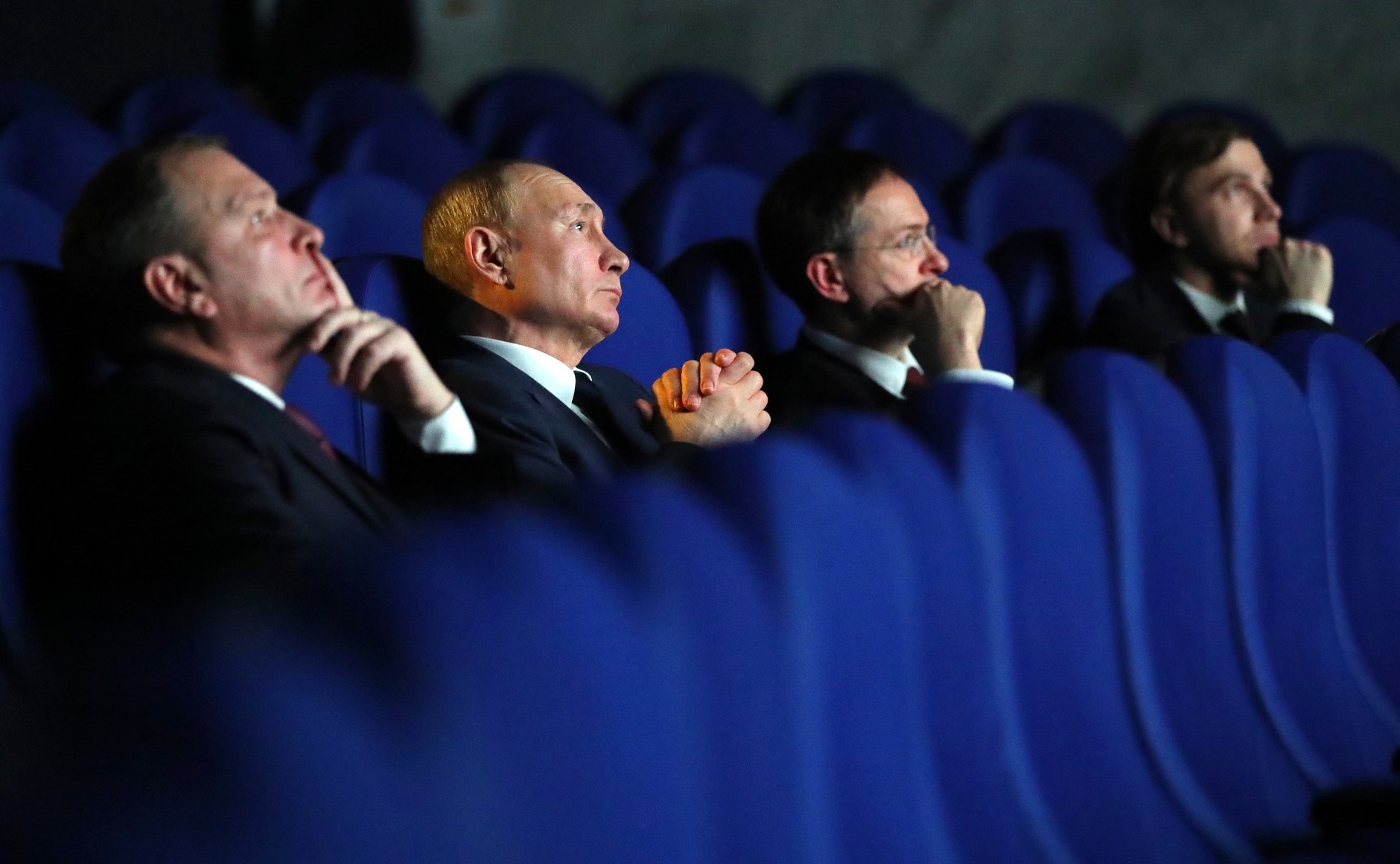  Earlier today, the President laid flowers at the Hero City Leningrad memorial plate in the Alexander Garden. The source of information - http://en.kremlin.ru/events/president/news/64941
__________________
Where should they dig the Very Deep Pit? Piglet said that the best place would be somewhere where a Heffalump was, just before he fell into it, only about a foot farther on. (c) Alan Alexander Miln |
|
|
#180 |
|
Banned
Join Date: Aug 2020
Location: Austria
Posts: 2,205
|
My favorite Kalashnikov is the Bulgarian. My second is Russian. 3rd is the chinese mac90. Worst is Romanian.
https://en.wikipedia.org/wiki/Kalashnikov_rifle 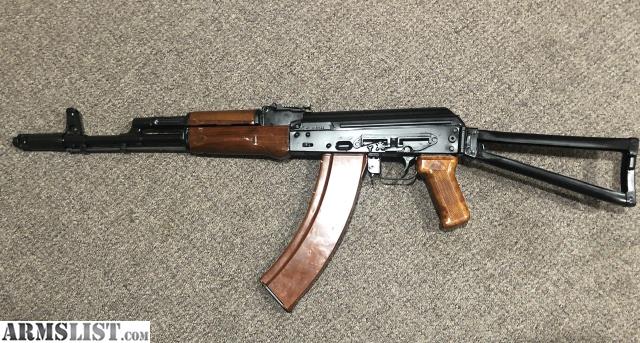 You ever shoot an AK? 7.62x39 |
 |
| Share |
«
Previous Thread
|
Next Thread
»
| Thread | |
| Display Modes | |
|
|
All times are GMT -5. The time now is 02:23 PM.
Page generated in 1.32078 seconds.




 Linear Mode
Linear Mode
